
Nutrition | Wellbeing | Education | Health | Pregnancy | Early Years | School Age & Beyond Acts ofRandom Kindness Tara Nielsen & her ONE FAMILY’S LASTING IMPACT ON THE CAYMAN ISLANDS in the Cayman Islands Mental Health Issues Why is it on the Increase? Teen Dating Violence The Importance of Early Childhood Education

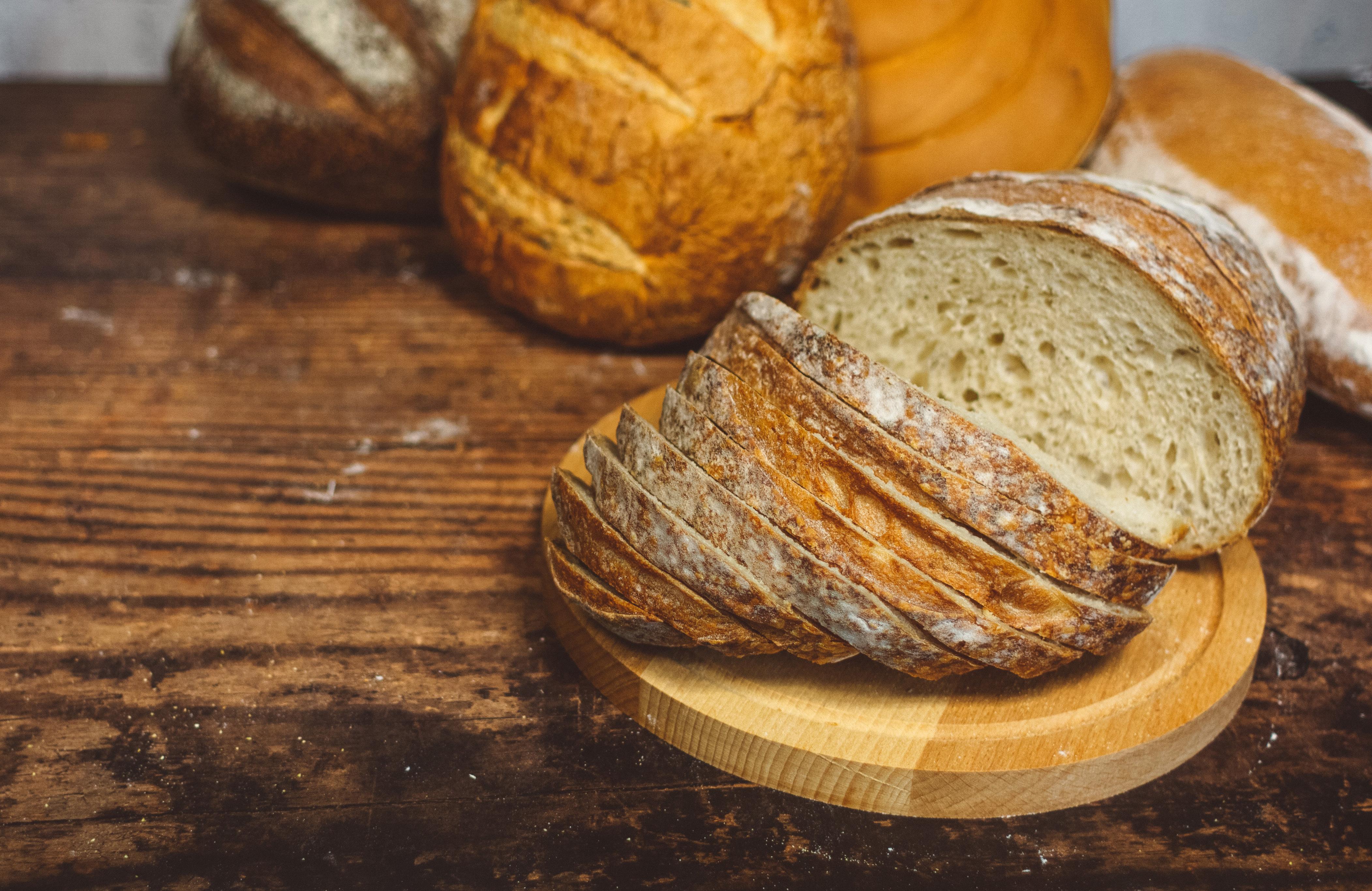
Welcome to the 2023 edition of Cayman Parent magazine, with another of Cayman’s altruistic and inspiring families on the front cover: Tara Nielsen, Founder and Director of Acts of Random Kindness (ARK), and her three boys – Tom, Theo and Jaspar.

Tara embodies the vision of ARK: humanity with great love and compassion – without judgment, and her dedication to serving the poorest and most vulnerable in our community is truly inspiring. Shining a light on the deprivation that exists in Cayman communities, with forgotten children living in deplorable conditions and without access to educational support which could help pull them out of poverty. We urge the privileged in Cayman to help ARK in any way they can, whether it be through financial means or time, and we thank Tara and her boys for talking to us so passionately about their lives and the work of ARK. It’s clear that watching Tara build the charity from scratch has rooted her sons' core values in altruism and kindness. We can’t think of a better role model.
Never a magazine to shy away from issues relevant to our readers, you will also find articles that shine a light on topics such as the mental health of our youth, the importance of good quality early childhood education, teen dating violence and the rise of vaping. The mix of invaluable practical and emotional support for all stages of parenting are within our pages too, plus all the latest information on education and healthcare in the Cayman Islands.
Our new Cayman Parent website went live in May 2022 extending our support for you. Bookmark the site in your browser for quick access to all the latest parenting info from bump, baby, teenager and beyond! The handy event calendar is updated daily too, with family friendly events including useful event round ups for the holidays. Visit Cayman’s best online family resource at www.caymanparent.com to see for yourself!
honesty, candour and for putting up with a three hour
Cayman Parent Magazine2 EDITOR'S LETTER PUBLISHERS Joanna Boxall & Charles Grover EDITOR Jessica Wright COPYWRITERS Lauren Hazlewood Emily Richardson SALES Deborah Roberts DESIGN & PRODUCTION Julian Dalton Michelle Pankhurst PROOFREADING Juliet Austin INTERNS Georgia Austin COVER Photography: Rebecca Davidson Shoot location: Botanica Luxury Cottages CONTRIBUTORS Lyndal Alexander Juliet Austin Patrick Ball Kary Claybourn Allie DiMauro Dr. Terry Giangreco Dr. Eddie Fernandes Ashley Fox Dr. Virginia Hobday Dr. Lisa Joels Nick Joseph Dr. Erica Lam Dr. Marc Lockhart Dr. Jasmina Marinova Amanda Minto Cynthia Rowe Jeanette Verhoeven Andrew Vincent Alanna Warwick-Smith Dr. Sara Watkin Natasha Were ADDITIONAL PHOTOGRAPHY Rebecca Davidson Photography, Daria Keenan, Bouke Maddock, Irene Corti, Renée Williams and Design Cayman. SPECIAL THANKS TO Stephen and Josephine Hislop, owners of Botanica Luxury Cottages, for allowing us to shoot at their gorgeous cottages – winner of the Governor’s Award for Design & Construction Excellence in January 2022. Thank you to Natalie Urquhart for her guidance on helping us select the perfect family. And most of all, thank you to our incredible front cover family, Tara Nielsen and her three boys, Tom, Theo and Jaspar (especially to Theo who flew in from the US to meet with us!), we appreciate your time,
photoshoot! Acorn Media Co Ltd. PO Box 31403, Grand Cayman KY1-1206, Tel: (345) 946 3200 Email: info@acorn.ky, www.acorn.ky. Cayman Parent is published annually in September. Complimentary copies can be found throughout the Island. The information can also be found at www.caymanparent.com. All rights reserved. No part of this book may be reproduced or transmitted in any form or by any means: electronic or mechanical, including photography and recording without the prior consent of the publisher. While every effort has been taken to provide information that is accurate as possible, the publishers and respective contributors and researchers do not accept any responsibility for injury, loss or damage occasioned to any person as a result of material in this book.
Jessica Wright



What do you consider the best thing about parenting in Cayman?
ALLIE DIMAURO
“As a mental health counsellor and teacher in Cayman, I have the opportunity to watch children grow up in a safe and happy environment full of loving and kind people. The simplicity of island life, the endless summer days, and the close-knit community, make for a childhood like no other.” Allie is a mental health counsellor and early years practitioner with a background in child development, counselling and mental health therapies. She is passionate about supporting the development of young people and enabling them to reach their full potential.
AMANDA MINTO
“Cayman offers an unrivalled opportunity to raise children in a safe, diverse, friendly and outdoor environment. With a strong sense of community and plenty of support networks, children and parents thrive.” Amanda (Counsel, Travers Thorp Alberga) is a highly experienced family law and private client litigator. She is an expert in dealing with pre and post-nuptial agreements, divorce and ancillary financial matters in addition to the practical and financial arrangements for children.

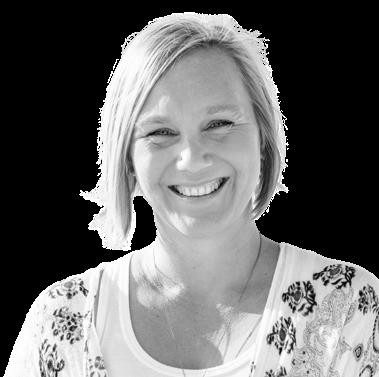

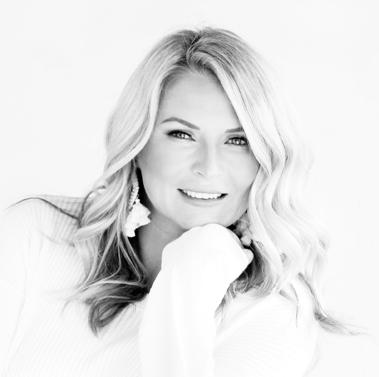


DARIA KEENAN
“The best thing is enjoying the 'endless summer' and spontaneity all year round! When school is out we can grab an ice cream and then head to the beach on a random weekday.” Daria is an award-winning family and newborn portrait photographer. She once had a thriving career in HR but traded the heels for flip flops when she moved to the Island in 2013. When she’s not capturing memories for her clients, she’s creating them with her own family on the shores of Seven Mile Beach.
LYNDAL ALEXANDER
“As therapists, we're seeing more children struggling to regulate their nervous system and emotions due to less play time and more screen time. Cayman gives parents the opportunity to support their child's regulation through time in nature – playing on the beach, swimming and exploring.” Lyndal is an Occupational Therapist with a Masters in Early Childhood Intervention. She is based at Chatterbox, where she sees both paediatric and adult clients, offers children’s therapeutic yoga, hand therapy, and practises a clinical specialty in women’s cancer rehabilitation.
JEANETTE VERHOEVEN
“Raising our children in Cayman was a pleasure – the conservative family values here helped them become stable and loving adults.” Jeanette is a Registered Nurse and has worked helping employers with group benefits in the Cayman health insurance industry for over 20 years; she is currently serving with Bogle Insurance Brokers. She was awarded a Cayman Islands National Heroes Health Services Award in 2015. She and her husband, Dennis, are blessed with five children and seven grandchildren.
DR ERICA LAM

“‘It takes a village to raise a child’ parenting approach comes to life in Cayman where parents share childcare and resources. This promotes connection, co-regulation by the presence of calm adults, and the focus on ‘being’ instead of ‘doing’ more.” Dr. Lam holds a doctorate in Clinical Psychology and specialises in trauma, attachment and complex mental health difficulties. She works with looked-after children services and develops trauma-informed care through consultation and training.
JULIET AUSTIN
“The sea. My girls grew up surrounded by the most spectacular playground –a place of wonder and beauty, where their imaginations ran free; a place to watch sunrises and sunsets; a place to wash away worries and restore calm.”
A writer and teacher, Juliet believes in the healing power of the sea; being kind to people, animals and the planet; and embracing adventure. She loves her little tribe, her dogs, her garden and fighting for social justice.

KARY CLAYBOURN
“Cayman has given us friends who quickly became family. Our kids have been so lucky to grow up in such a supportive and caring multi-cultural community.” Kary was born, raised and educated in England and has worked in the residential and commercial property industry in London, Hong Kong and Cayman. She and her husband Paul now divide their time between Cayman and Norfolk, England where their three children are at school.
Cayman Parent Magazine4
CONTRIBUTORS

TABLE of Contents 202 3
FIRST WORD
11
Tara Nielsen & Her Acts of Random Kindness p12 | Taking a Closer Look at Youth Mental Health p20 | Inclusion Cayman Q&As p24 | Cayman’s Golden Weapon – Early Childhood Care & Education p26 | Teen Dating Violence in Cayman p30
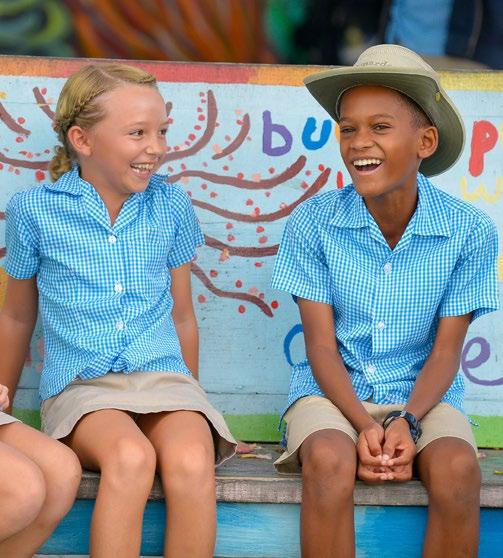
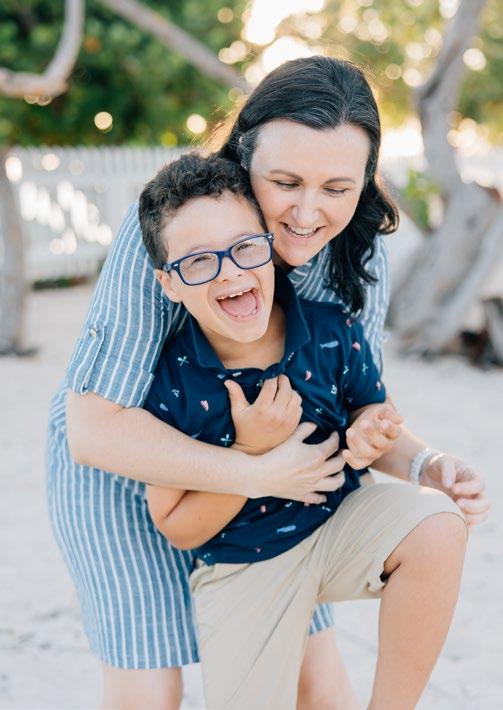
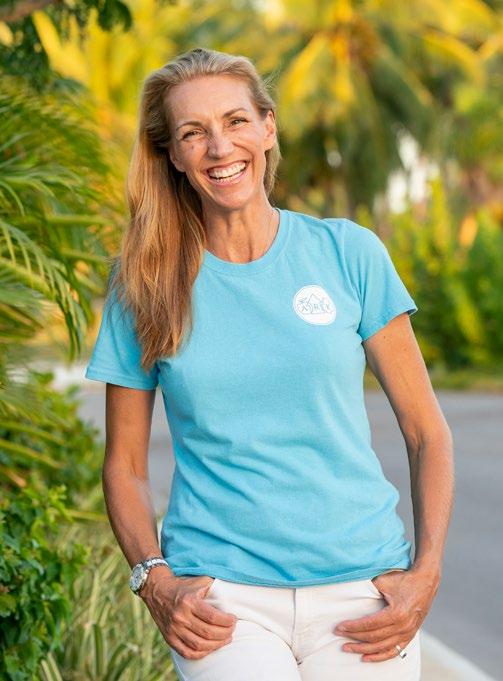
NUTRITION
35
The Rising Cost of Groceries p36 | Plant-based Eating p40 | Benefits of Baking with Children p43 | Top Family Dining Picks p46 | Nutrition Book Club p48 | The Listings p49

WELLBEING
51
Top Supplements & Vitamins p52 | Sleep Therapy: The Importance of Sleep p55 | Aesthetic Treatments to Turn Back the Clock p58 | Exercising with Your Mental Health in Mind p62 15 Ways to Relax & Unwind p66 | The Menopause: Demystified p69 The Body-Mouth Connection p72 | A Guide to Pre & Postnatal Exercise p74 Wellbeing Book Club p76 | The Listings p77
79EDUCATION
How to Choose a Preschool p80 | The ABCs of Active Reading p82 Literacy Development Milestones p84 | Schooling in Cayman p88 Homeschooling in Cayman p94 | Tutoring in Cayman p96 | Education Book Club p97 Inspiring Educators Q&As p98 | The Benefits of Boarding School p100
Ask a Boarding School Student p107 | Smart Scholarship Strategy p108 Saving for College Fees p112 | Applying to Overseas Universities p114 Local Colleges & Universities p118 | Trade & Vocational Training Courses p120 The Listings p123
141HEALTH
Understanding Occupational Therapy p142 | Keeping Up with Your Health p145 Children's Orthodontics Explained p150 | Childhood Illnesses p152 | Pain Management p155 | Identifying Learning, Behavioural or Cognitive Issues p156 | Doctors Q&As p160 Dental Care for Kids p162 | Getting Immunisations Right p164 | Protecting Your Child's Vision p166 | Health Book Club p168 | The Listings p169
Cayman Parent Magazine6

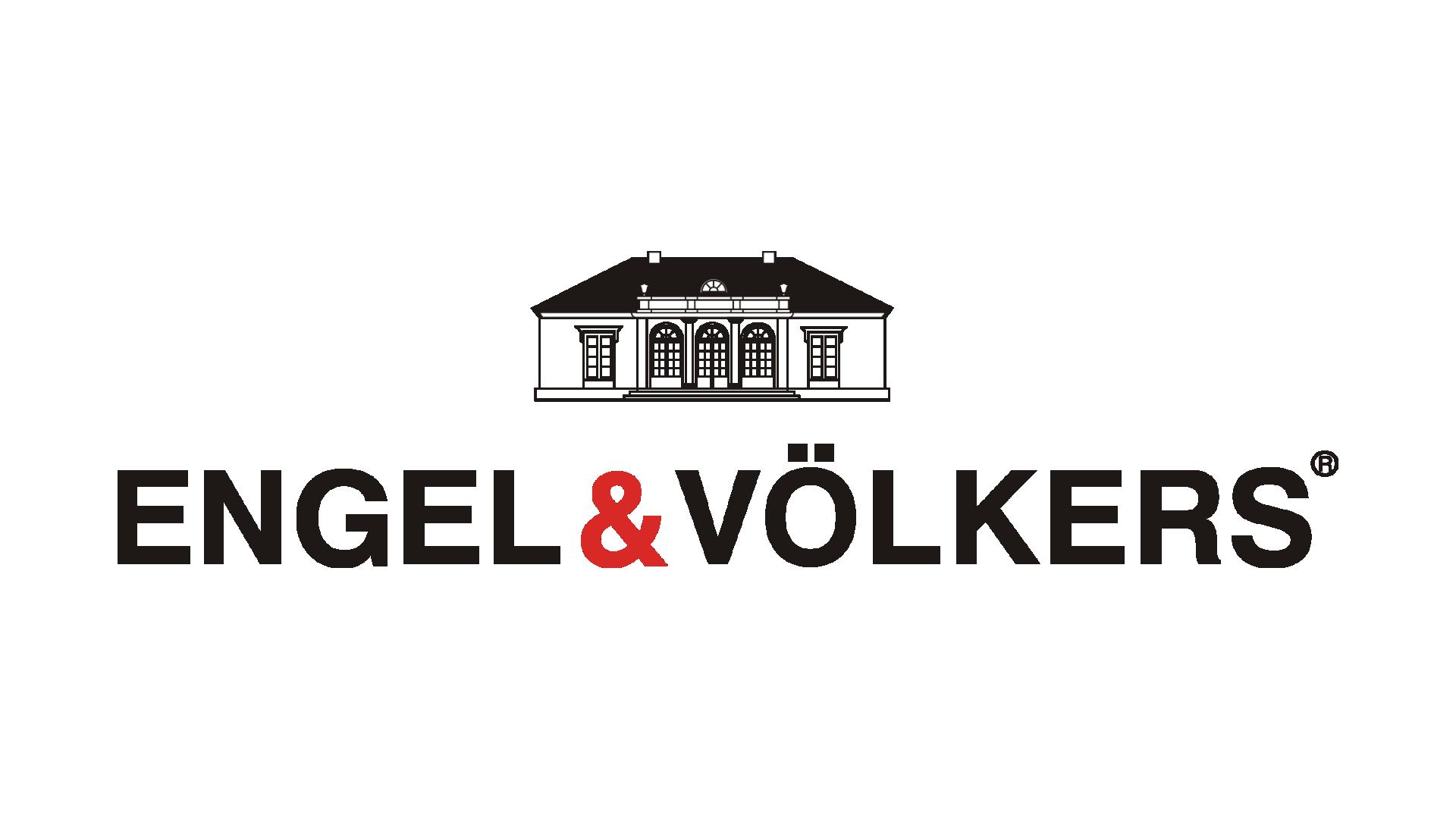
Live Your Luxury. We know Real Estate. We know Cayman. Call one of our 15 advisors, today! 623.1400 | www.cayman.evrealestate.com
TABLE of Contents 202 3
185
Preparing for Natural Disasters p186 | Hurricane Checklist p188
Home Sweet Home in Cayman p190 | The Logistics of Hiring a Helper or Nanny p193 Applying for a Passport p195 | Immigration Rules for Kids p196 | Family Breakdown p200

The Divorce Dilemma p202 | Securing Your Family's Financial Future p204 Guide to Writing a Will p206 | Essentials Book Club p208 | The Listings p209
PREGNANCY
211
Fertility Options in Cayman p212 | New Baby Must Haves p214 Designing a Stylish Kid's Bedroom p216 | Pregnancy & Childbirth Q&As p218
The Costs of Having a Baby in the Cayman Islands p220 OB/GYNS, Midwives & Hospitals in Grand Cayman p222 Bump, Baby & Beyond p224 | The Ultimate Hospital Bag Checklist p226
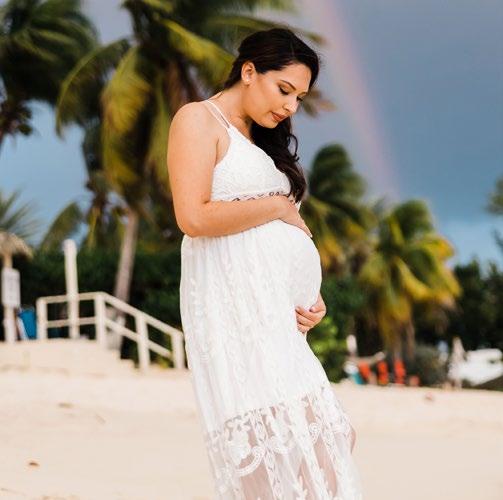
Maternity Leave p227 | The Importance of Well-Child Checks p228 Pregnancy Book Club p230 | The Listings p231
EARLY YEARS 233
Raising Environmentally Conscious Children in Cayman p234 | Dig This! Benefits of Gardening with Kids p238 | Childcare Choices: Nanny or No Nanny? p240 | Decoding Jolly Phonics p242 | Early Years Book Club p245 | Cayman's Super Nannies Q&As p246 30 Fun Things to Do with Kids Every Day of the Month p248 Parks & Playgrounds p250 | The Listings p252
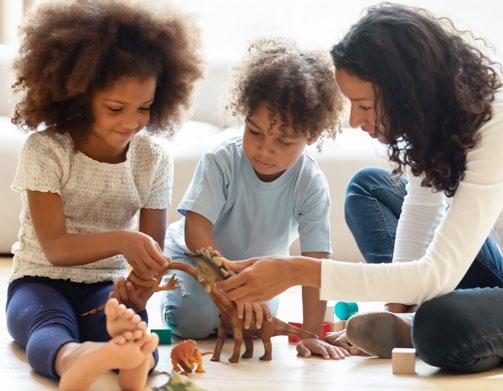
SCHOOL AGE 255
Keeping Cayman Kind: How to Spot & Stop Bullying p256 | After-School Classes & Activities p260 | Sun Safety for Kids p263 | Raising Children with Faith p264 Giving Back: Family Volunteering in Cayman p266 | School Age Q&As p268
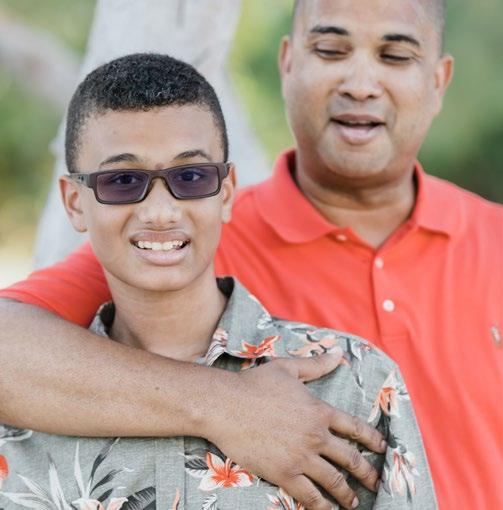
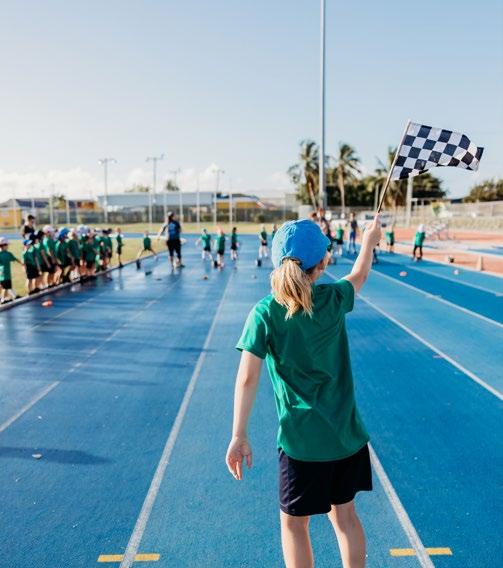
The Perfect Party Checklist p270 | Get to Know Your Public Library p273 School Age Book Club p275 | The Listings p276
ADOLESCENCE
283
The Problem of Vaping Among Teens p284 | Teens & Drinking p286 Saturday Jobs for Teens p288 | Having 'The Talk' p290 | Menstruation 101 p291 Low Cost & Free Activities for Adolescents p292 | Cayman's Inspiring Teens Q&As p294 | Budgeting for the First Time p296 | Learning to Drive & Rules of the Road p298 Adolescence Book Club p300 | The Listings p301
In Conversation with Alanna Warwick-Smith P304
Cayman Parent Magazine8
ESSENTIALS


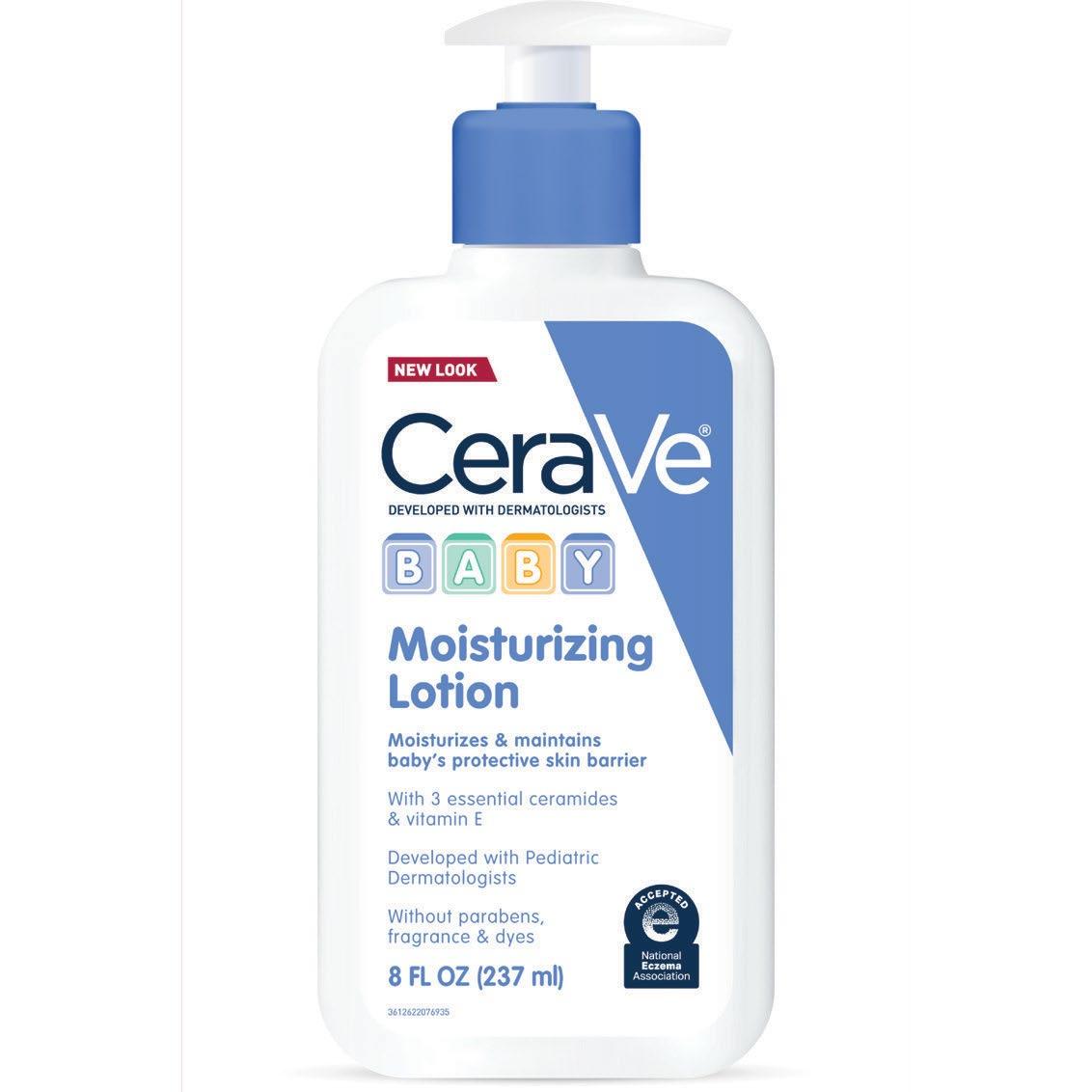


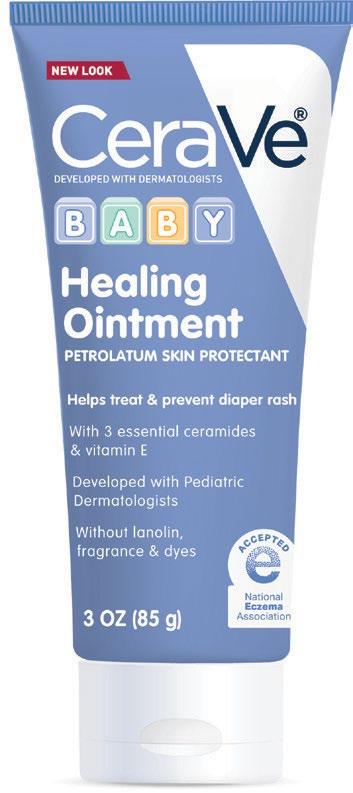

VELOPED WITH RMATOLOGISTS EDIATRIC OUR FORMULAS AIN BABY’S NATURAL SKIN BARRIER. + AVAILABLE ISLAND WIDE AND AT CEL BEAUTY CENTRE & SUPPLY. VISIT US AT 74 PORTLAND ROAD, INDUSTRIAL PARK, GT BCS CEL.KY OR 345-745-0817

Cayman’s Best Online Resource for Parenting All New CaymanParent.com Nutrition | Wellbeing | Education | Health | Pregnancy | Early Years | School Age & Beyond Search • Things to do • Schools • Camps • Medical professionals • Top parenting tips • Kids events • Recipes • Book recommendations • and much more …!
First Word
Meet Tara Nielsen, Founder and Director of ARK, discover her familial roots in Cayman’s history and follow her life’s journey of helping others.

Contents
Tara Nielsen and Her Acts of Random Kindness p12 | How Are Our Young People Doing? Taking a Closer Look at Youth Mental Health p20 | Inclusion Cayman Q&A p24 | Cayman’s Golden Weapon –Early Childhood Care & Education p26 | Teen Dating Violence in Cayman p30
www.caymanparent.com 11 FIRST WORD
Photo by Rebecca Davidson
Tara Nielsen and Her Acts of Random Kindness
By Emily Richardson
These heartfelt words echo throughout our conversation with Tara Nielsen, Founder and Director of Cayman’s Acts of Random Kindness (ARK) foundation. Over the past 16 years, Tara has devoted her life on-Island to others in unique circumstances of crisis and, along with countless volunteers, continues to demonstrate kindness through loving acts of service. Her impressive humanitarian efforts are matched by her devotion and love of raising three spirited boys, whose lives have also been influenced by ARK’s work.
Sitting down with coffee and cakes, Cayman Parent had the pleasure and privilege to discover more about Tara’s family history in Cayman, raising a family on-Island and, of course, ARK’s powerful work across the Cayman Islands throughout the years. The conversation was warm, inspiring, and above all, earnest, as Tara passionately discussed the trials and triumphs of ARK and motherhood. Fond memories, on-going adventures and hopeful futures were shared by all as Tara, Tom, Theo and Jaspar considered kinship, their ancestral ties to Cayman and the ripple effect of kindness.

Cayman Parent Magazine | First Word12 FIRST WORD
“Small acts of random kindness can be as valuable as building someone a house.”
– Tara Nielsen.
Photography by Rebecca Davidson Photography

www.caymanparent.com 13 FIRST WORD
Family History in Cayman
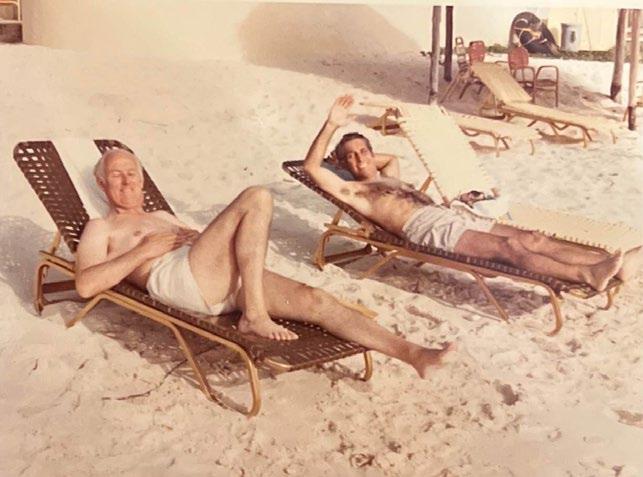
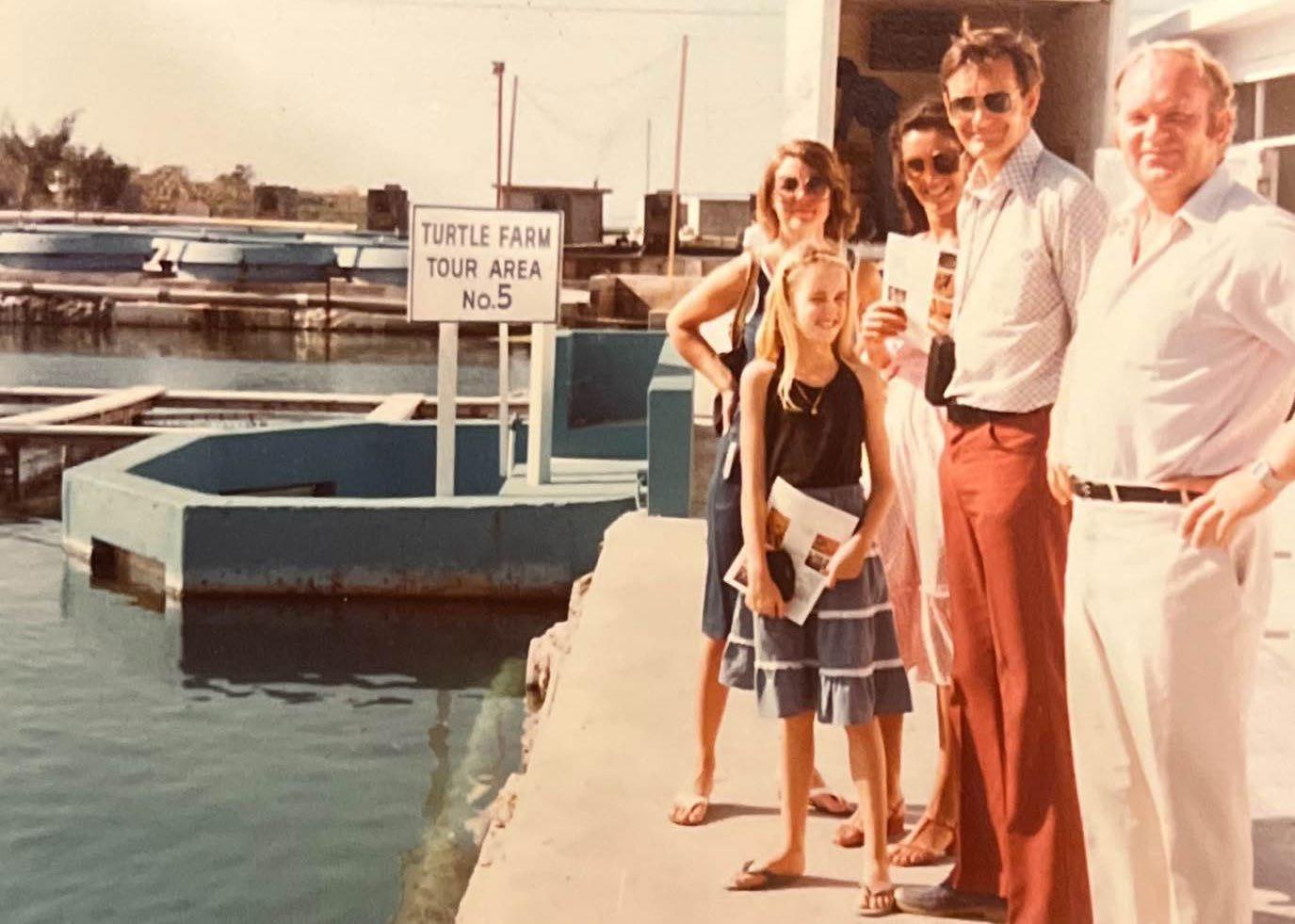
Though born in England, Cayman has always been a constant in Tara’s life. In 1968, her father Mark Fisher and grandfather Sir Anthony Fisher travelled to Grand Cayman, and with fellow shareholders established Mariculture Ltd. Now known as the Cayman Turtle Centre, Mariculture was the beginning of a huge conservation enterprise. The plan was to breed and raise Green Sea Turtles and create a scalable business with worldwide potential. As a company, they made substantial efforts to demonstrate that farming a migratory reptile could save it from the depredations on the nesting beaches, whilst also providing a new and sustainable supply of very nutritious meat. Eating sea turtles had been customary across Grand Cayman and the Sister Islands for centuries, however, regulations intended to protect the Green Sea Turtle were later introduced and prevented the sale of turtle produce, including the sustainable meat from Mariculture. During the Mariculture days, Tara’s parents had four children who travelled back and forth between England and Cayman. When the Turtle Farm closed, the family returned to England.
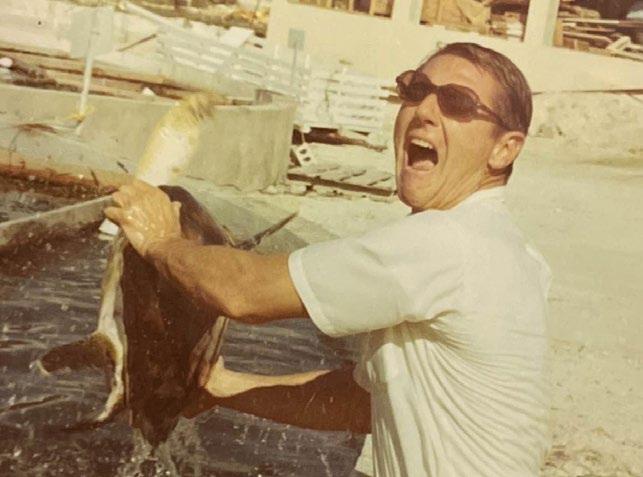
Back in England, Tara’s mother, Rosie Fisher, owned and worked in an antiques store in Uckfield, East Sussex called Dragons. Initially, Dragons specialised in antiques until Rosie became frustrated when she couldn’t find any furnishings for her children’s nurseries. She began to import tiny rush chairs
which she found by chance whilst on holiday in Spain. Being the creative and driven woman she was, Rosie branched into handpainted toy boxes, tables and chairs which sold like hotcakes! Now with a growing business, Dragons moved to a more central location in Chelsea, London. Eventually, the business secured the Beatrix Potter, Winnie the Pooh and Paddington Bear copyrights, among others, and Tara’s mother began designing fabrics and furniture herself, which was all manufactured and hand painted in England. Rosie lovingly named these designs after her children and grandchildren – there’s still a ‘Tara’s Table’ to this day! Sadly, Tara’s mum died around 16 years ago, but she’s remembered fondly by her daughter as being incredibly talented and extraordinary.
“My dad is my total hero”, Tara replies when asked who her role model is, “he taught me to be kind, to be interested in others, to listen to them, to learn from them and to be genuine and authentic in behaviour, thought and mind.” Listening to Tara, and seeing ARK thrive in the way it has, it’s clear that her father’s lessons have remained at the forefront of her mission with the charity and in parenthood.
Childhood in England
As a child, Tara was lucky enough to have an idyllic countryside life on a farm in Sussex in the Southeast of England, surrounded by animals, woodland and lakes. Being the youngest of four
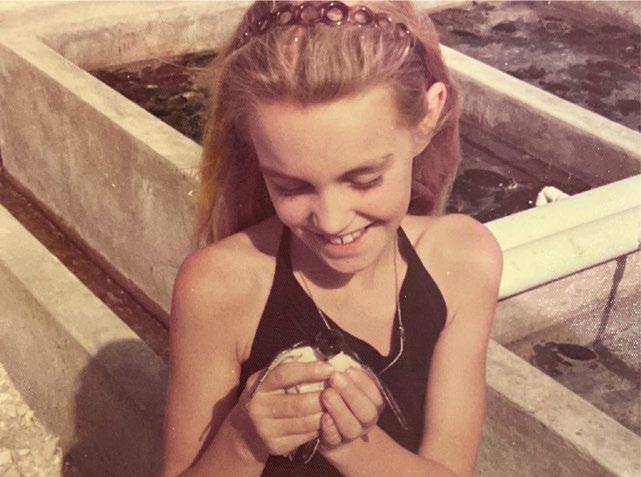
Cayman Parent Magazine | First Word14 FIRST WORD
Images Courtesy of Tara Nielsen
siblings, Tara was never short of company but found joy in the farmyard animals around her. “My parents converted an old pigsty into a little Wendy house for me”, Tara recalls, “I slept there in the summer months surrounded by geese, ducks, horses, dogs and cats. It was truly my happy place.”
At the tender age of six, Tara was sent to boarding school, attending St. Andrews in Eastbourne and later, Farlington School in Sussex. Upon discussing her time at school, Tara admits, “I was the most terrible student. I was quite naughty, probably because I couldn’t do the work.” Tara found school very challenging and struggled with a lot of the work, particularly in Maths. Because of her struggles, Tara couldn’t wait to finish school and at the age of 16 she left education.


Changing Trajectories

Growing up on a farm and having a love of animals from a young age, Tara dreamed of becoming a vet. However, due to the challenges she faced in education, that dream perished. Instead, Tara took part in Prince Philip’s Duke of Edinburgh award programme which transformed her life and put her on the path she still walks to this day. As part of the scheme, Tara visited a hospital in Hove, Sussex to work with children who suffered from the neurological disease, Rett Syndrome. The time she spent at the hospital was unlike anything Tara had previously experienced, describing it as an earth-shattering moment for
her. “It changed the trajectory of my life because I felt something I’d never felt before”, Tara explains, “I wanted to help people. I wanted to love and nurture people. And that’s what set me off on my path of working with people, families and children.”
It was this profound experience working with children, together with her own challenging time in education that helped propel one of ARK’s schemes here in Grand Cayman: The MER programme. MER is an education initiative that provides intensive learning remediation at a key stage in the lives of underprivileged children with learning difficulties. Through M-entorship, E-ducation and R-einforcement in the family home, MER aspires to reverse the tragic cycle of poverty by changing the trajectory of life for at-risk children through education. Tara emphasises how her own experiences in education helped drive the MER programme. “I wasn’t given that time”, Tara goes on, “it’s funny isn’t it, the ripple effect of your own experiences.”
The Next Generation Though Tara has done incredible work across Grand Cayman over the past 16 years in setting up and running ARK, it’s clear that her three sons are her crowning glory. Tom, Theo and Jaspar, now aged 24, 23 and 16, respectively, all grew up in Cayman and vividly recall hours spent on their boat, jet skiing in the North Sound, diving in the Caribbean Sea and lounging on Seven Mile. Much like Tara herself, their upbringing was idyllic,
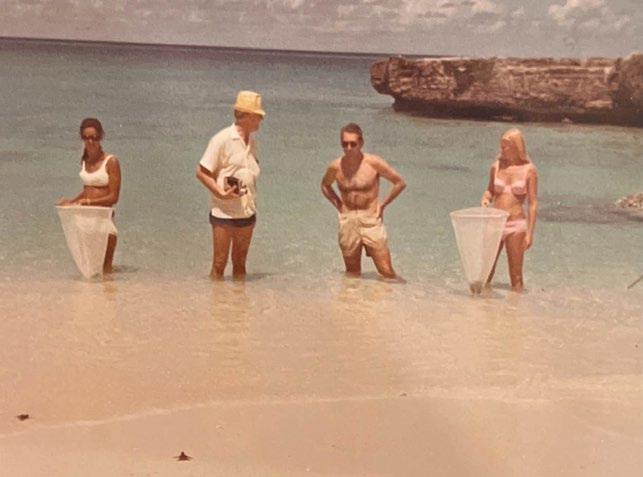
FIRST WORD www.caymanparent.com 15
Images Courtesy of Tara Nielsen
and best summed up by Tom who says it was like “something you would see in a movie.” Taking after their mother, each of Tara’s sons have forged their own path, both on-Island and overseas.
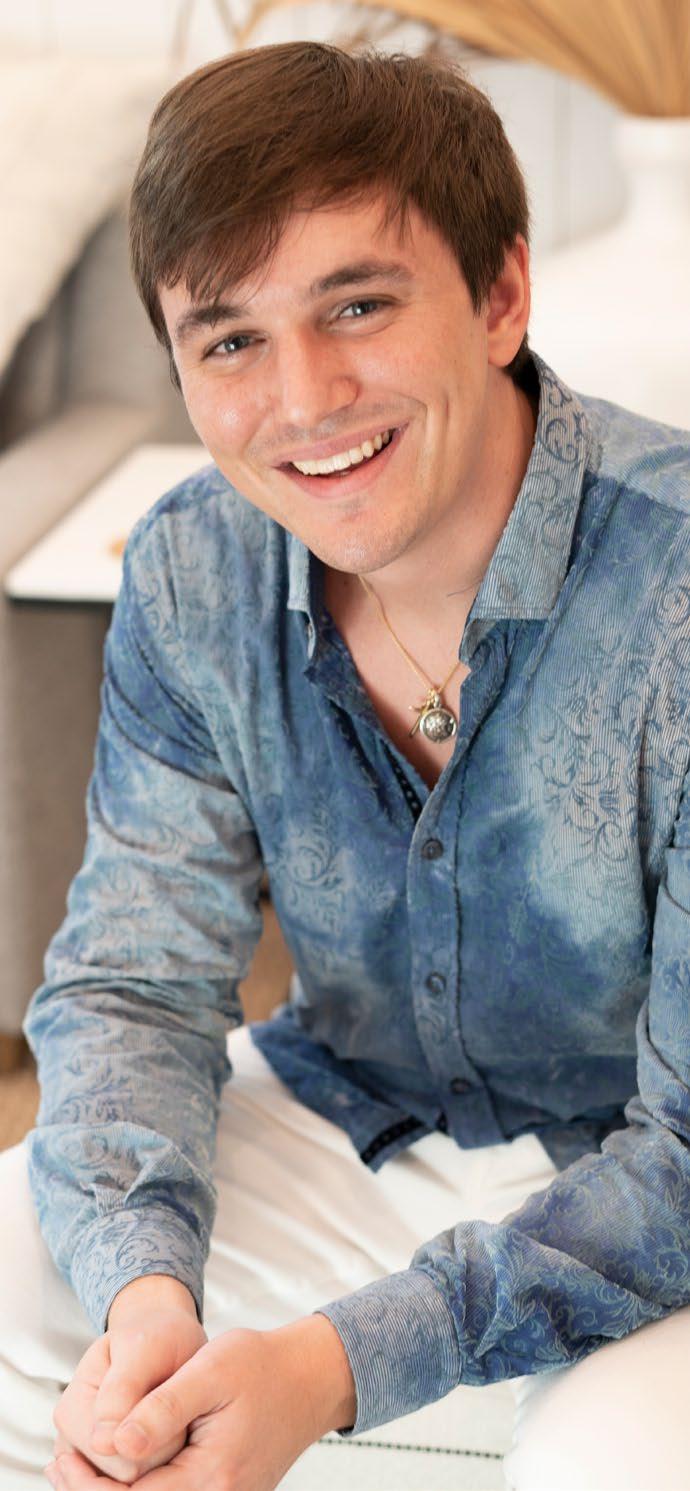
Together, eldest brother Tom and his mum tell the story of how Tom tore out an article for Military School, repeatedly put it on his mum’s desk and proceeded to persistently beg his mum if he could attend. Though she admitted to kicking and screaming, Tara eventually gave in to Tom who attended Riverside Military Academy in Georgia, USA. Since then, Tom has journeyed between Cayman and the States going first to boarding school in Upstate New York, and now studying Politics, Philosophy and the History of Globalisation at Hofstra University in Long Island, NY. Middle son, Theo, graduated as a Commercial Diver from the Divers Institute of Technology based out of Seattle. He hopes to bring back his trade to Cayman and open a business on-Island. And youngest son, Jaspar, is currently studying online at Williamsburg Academy. He is a passionate and accomplished sailor, being named National Optimist Champion in Cayman for two years, representing Cayman in the World Championships of sailing in Antigua and taking second place in the British Nationals! He was headed to his second World Championships in Italy to represent Cayman when the pandemic hit and his hopes were dashed. Described by his brothers as outdoorsy and great at physical labour,
Jaspar doesn’t have a great interest in going to university, but instead has his sights set on working in automotive and marine mechanics and hopes to open a local business.


Tom, Theo and Jaspar all see themselves as great friends. Of course, like so many other brothers, they each exhibited their fair share of devilish behaviour. Oldest brother Tom confesses how at Christmastime, not only would his younger brothers wait for him to open his presents first, Theo would also give Tom his own presents to open! “No matter how awful I could be”, Tom says, “he would always still love me as my brother.” All three boys also share an affection, respect and gratitude for Tara. When describing his mum, Theo affectionately tells us: “I didn’t realise how lucky I was when I was young but it’s obvious to me now that I’m older. My mother is extraordinary, not only is she a mother of three boys, but she has worked so very hard with ARK and has helped change so many lives.” And this gratitude is shared among the boys with both Tom and Jaspar confessing how their mum has always listened to and supported their choices in life. The personal successes of Tom, Theo and Jaspar are a testament to their upbringing.
Parenting in Cayman
As a mother, both Tara and her sons agree it was a handsoff approach. Their wild childhood involved “lots of scrapes, bruises, trouble and adventures.” Tara attests this was down to
16 FIRST WORD Cayman Parent Magazine | First Word
Theo Nielsen Jaspar Nielsen Tom Nielsen
Photography by Rebecca Davidson Photography
her experience at boarding school where there were many rules and such a lack of freedom. “I figured, let them climb that tree. If they fall, they won’t do it again.” Being the fourth and youngest child of two busy working parents, Tara didn’t feel heard like her siblings were, yet she believes this is what has made her a good listener. “I always said to myself when I was a little girl that I would listen to my children”, Tara explains, “so I've really tried to listen to my kids and that's why they've had these interesting paths.”
Growing up, Tom, Theo and Jaspar were all involved in ARK with their mum. Tara reveals that she “wanted them to see how it's not all West Bay Road in Cayman”, and in the absence of childcare, she would often bring her sons along from the very beginning. As a family they would all lend a helping hand: Christmas Eve was often spent delivering gift packages to those in need; the boys have helped with mentoring for the MER programme; and most recently they all helped with the COVID-19 food runs, feeding hundreds of people across the Island during the pandemic. “They've definitely been dragged around a bit”, says Tara, “but they've always been willing participants.” All three boys attest that both ARK and their mum have inspired their journeys through life and shaped their outlooks. They each speak passionately about their mum's work, recalling intimate details, family names and friends they have each made throughout the years.

Acts of Random Kindness - The Beginning
ARK, Acts of Random Kindness, was founded in 2006 by Tara. It was Tara’s experiences during her Duke of Edinburgh award scheme together with her deep faith that motivated her to pursue a role helping the sick, the struggling and the disadvantaged. After having her first two children, though bringing her great joy, Tara was disappointed that she would be unable to travel across the world to help others in more poverty-stricken places than Cayman. However, Tara believes that God guided her to 'grow where she was planted' and attests that charity begins at home. She was deeply inspired by Christ’s love and his lessons to love one another.
Because of this, she organised a monthly meet up with friends where the group spoke about an individual case that was close to their own heart, and those around the table would give a donation which would then be directly given to the individual discussed. By the end of one of the first meetings there was $3,000 in the old straw hat on the table. Tara couldn’t believe it, and attests that this charitable venture was a success because it centred on a tangible issue – a real story made up of real people with real problems – and ARK was born out of this same principle. Both Tara and ARK continue to be guided by faith. “We are all brothers and sisters in Christ”, says Tara, “my approach to ARK’s children and families is the same as my approach my biological family. Spiritually, we are all connected.”
FIRST WORD www.caymanparent.com 17
Photography by Rebecca Davidson Photography
Tara is lucky enough to have lived a pretty idyllic life in many ways, and because of this, she’s also been able to bring up her boys in a similar kind of paradise. But like many others, she has also faced her own battles and suffered periods of hardship. And it’s these harder times that have taught her so much about the impact of kindness. During these chapters of adversity, Tara found solace in the acts of kindness she received from strangers, and the ripple effect of these acts is what greatly influenced ARK’s birth. Passionately, Tara tells us how faith is the foundation of both the charity and her own life. ARK was Tara’s way of making acts of community service a discipline in her life and wanted to encourage others to do the same. “I wanted to share God’s love, compassion and kindness with people who were struggling and who needed a helping hand.”
Helping Those Without a Voice
When discussing ARK’s work over the past 16 years, we wondered what it was that kept Tara motivated in the face of such challenging circumstances when the deprivation seems so endless. “When I think “I just have to stop”, I meet a new person who has a plight and is alone and doesn't have a voice. ARK is that voice for those who nobody can hear when crying for help,” Tara earnestly replies. One recurring reflection throughout our meeting with Tara was her emphasis on those who make ARK’s amazing work possible. “It’s the $5 person and the $2 person who are changing lives… It isn’t ARK, it’s the community. It’s this beautiful, amazing community… It’s the people.” Tara goes on, explaining how ARK was able to deliver 8,000 meals a week for four months during the 2020 lockdown on community and corporate donations alone. What’s more, since the pandemic began, the community has supported ARK and raised a tremendous amount of money to help those in need. This generosity and hard work is what has kept ARK afloat for 16 years, making the charity a National Treasure.
Yet, every donation is precious, especially now in the aftermath of the pandemic and due to the exponential rise in the cost of living. As many families continue to face hardship and suffering, ARK needs the support of Cayman’s people to continue this life-changing work. Tara’s dream for the charity is that it will have a long-term, generational impact on lives in Cayman. The extreme challenges that many families are currently facing make it virtually impossible for some children to receive a proper education. Little ones are being exposed to sickness and disease due to unsafe housing. They are unable to wash each night with no running water. They cannot even eat for lack of money to buy food. And children who are trapped in this cycle of poverty go on to have their own children who face all the same challenges. Hence all of ARK’s programmes aim to tackle these issues, free young ones from this entrapment and break this cycle.
ARK's Programmes
The MER Programme
This is what makes the MER programme the cornerstone of the charity. Tara makes it clear that, “we don’t want to be paying for food and utilities forever. We need a long-term solution.” For
Tara, this solution stems from education. When a child is selected for the MER programme, the team go into the home of the child, meet with their family and see what’s going on at home.

“Because when we can get a child’s mother into a better place, she can then be a better parent”, Tara explains. “If her house is falling apart, we can improve the house. We can improve her spirit, her sense of self, her motivation and her mental health… the MER programme wraps its service around the parent, the child, the house and the academic intervention. It focuses on kids with learning difficulties who are completely left, and just lost.” It is unique because it is holistic.
The CASA Home Improvement, Re-Connect Cayman & Feed Cayman Programmes
As well as the MER programme, ARK have several other schemes which aim to help those who have found themselves in dire straits. Many homes across the Island are still suffering storm damage – including storms even prior to Ivan! The CASA Home Improvement programme aims to raise the standard of living island-wide, renovating dilapidated housing and harrowing living conditions because of economic hardship. As part of the home improvement programme, the Re-connect Cayman scheme provides interim aid for those struggling to pay for utilities, water, and housing, whilst the Feed Cayman programme addresses the issue of hunger. Much like the MER programme, these schemes aim to get families back on their feet to better a child’s life.
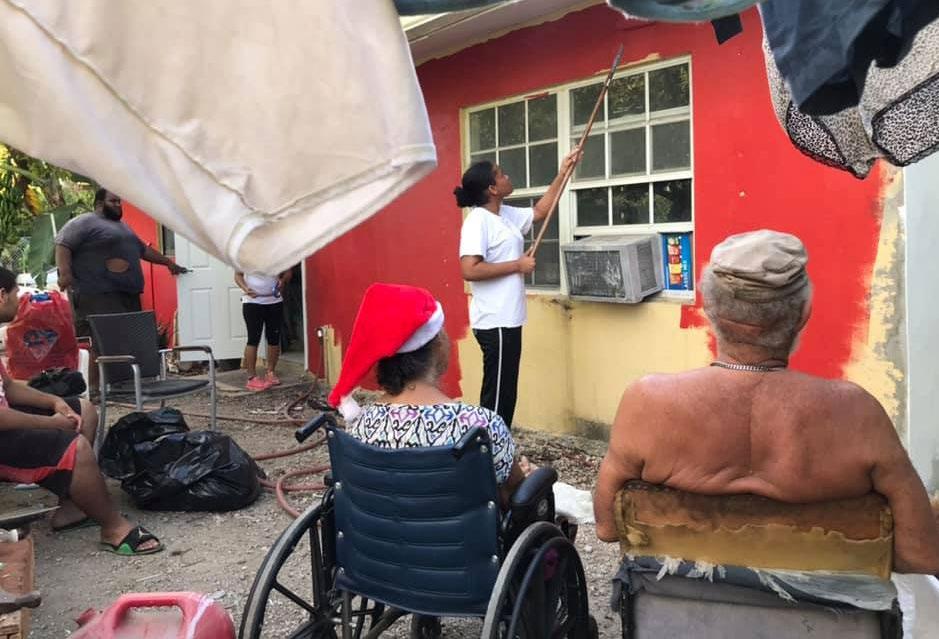
FIRST WORD Cayman Parent Magazine | First Word18
MER kids enjoying a day at Camana Bay
House painting by ARK Volunteers
Before and After Housing

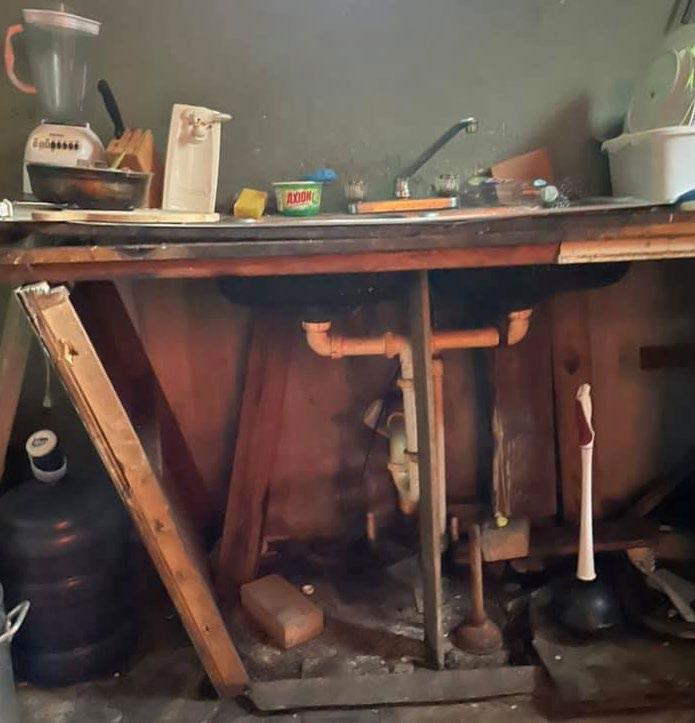
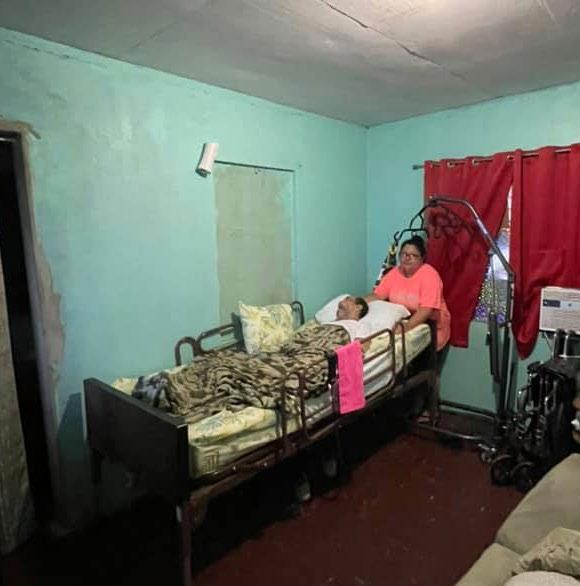

Before After
Tiny Homes
As part of the CASA programme, ARK have recently embarked on a mission of replacing condemned housing, where adults and children live in unsafe and deplorable conditions, with new 'Tiny Homes'. Even though ARK has driven down the cost of these houses, they still require up to $100,000 (per house) in labour and materials. Though this total may seem like a daunting figure, their 'buy a brick' scheme simplifies the cost and helps you to see where your donation is going. You can buy one brick, or hundreds!
Caymanians in Need
ARK estimates that, through the generosity of the local community, they have been able to assist several thousand people and their dependants in the last two years alone. However, there remains many hundreds of people in permanent need of assistance with housing, education and medical support. And this work continues in parallel to their long-term housing and education programmes. There are numerous young children in each district who are waiting to be enrolled in the MER programme alone. ARK needs funding for these children. This can change their lives and those of generations to come. Tara passionately argues, “if we can support and educate Caymanians – the country’s future – they will make Cayman a better place.”
Our conversation with Tara and her three boys celebrated brotherhood, motherhood and the gift of kindness. As a family,
one thing they all share is their genuine love and respect of one another, and their familial affection, team spirit and love has nourished ARK from its birth. Since before Tara was born, her family has nurtured a relationship with the Cayman Islands and its people, and Tara’s hope is that this relationship will continue to blossom through ARK’s legacy. In talking to Tara, she reminded us that we all need to take care of one another, and that “small acts of random kindness can be as valuable as building someone a house.”
How You Can Help
If you're able to donate to the efforts to feed and shelter children, families and vulnerable people, keep them healthy and connected to utilities, and support the education of little ones through the MER programme, ARK would be sincerely and humbly grateful.
• Consider a monthly or annual donation.
• 'Buy a Brick' for a Tiny Home.

• Sponsor a child in the MER programme.
• Consider ARK as the charity recipient for your upcoming gala event or corporate event.

• Volunteer for the CASA Home Improvement projects.

FIRST WORD www.caymanparent.com 19
Contact details: Email: info@arkcayman.com, Web: www.arkcayman.org
Renovations Completed by ARK
How Are Our Young People Doing?
Taking a Closer Look at Youth Mental Health
by Allie DiMauro
What is Mental Health? Why is it Important?
Mental health is an essential part of our overall health and wellbeing. Our mental and physical health are strongly connected and affect each other directly and indirectly. One cannot be understood without the other.
When we think about an individual with good mental health, we envision someone who has a strong sense of self-worth and is comfortable in their own skin. They have the ability to form healthy relationships, communicate in an appropriate manner, manage emotions and cope with life stressors.
Mental health can be defined as the way one thinks and feels about themselves and their life, and it can massively affect one's ability to cope in times of adversity. In every stage of life, our mental health is extremely important: from childhood, through adolescence and as an adult. Positive mental health at a young age is key to a happy and healthy adulthood.
Mental Health in Children and Adolescents
In recent years, there has been an increased acknowledgement of the importance of mental health, especially in relation to children and young people. It has been proven that many mental health challenges faced by adults have roots in early years, and that failing to address these concerns at a young age can lead to consequences that can last a lifetime. As Dr. Erica
When a child experiences positive mental health, they develop self-worth, confidence and emotional balance. On the other hand, mental health struggles in childhood can lead to lifelong low self-esteem, poor communication skills and difficulties in social situations.
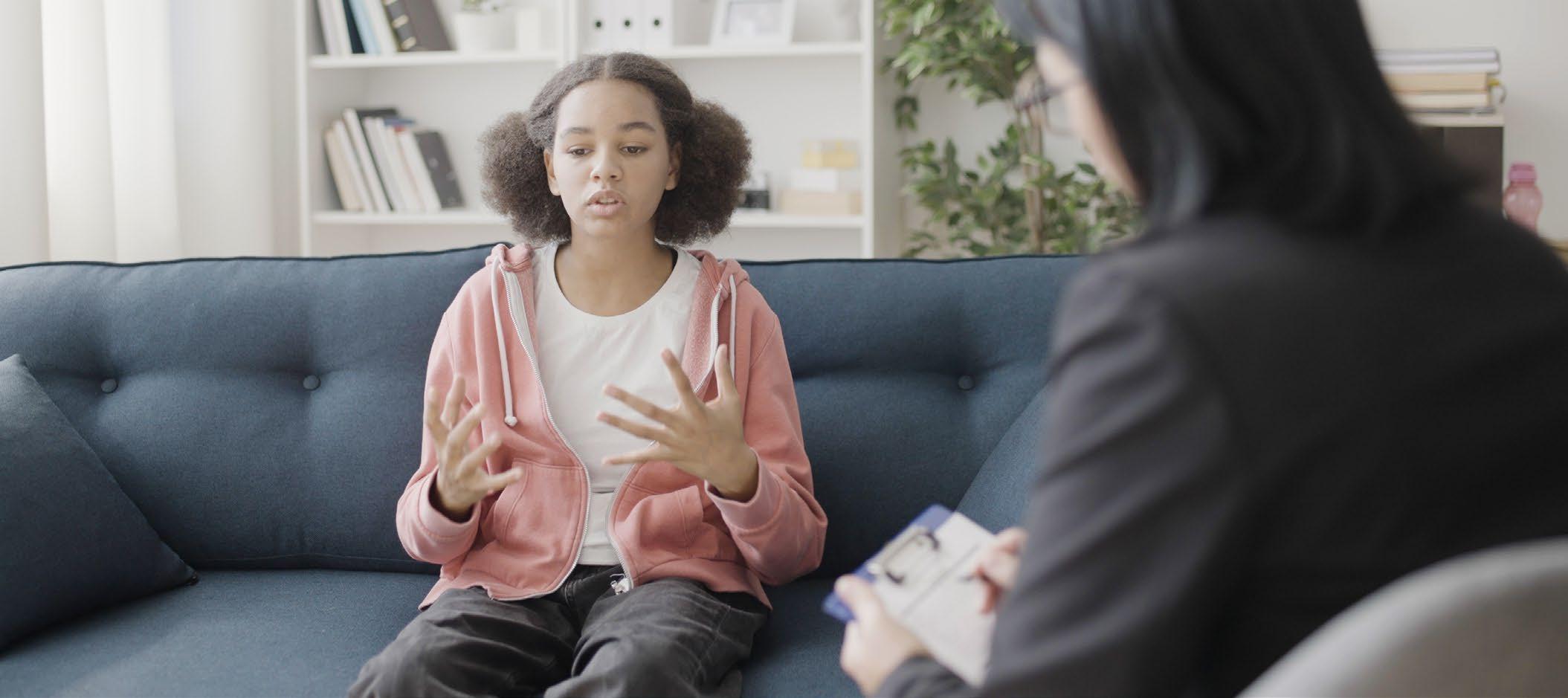
The World Health Organization (WHO) revealed that one in five of the world’s children and adolescents has a mental health disorder, and that half of all mental health difficulties begin before the age of 14. The majority of these cases remain unrecognised and untreated – less than 10% receive treatment.
Youth Mental Health in Cayman
The National Drug Council (NDC) revealed that 13% of children and adolescents on-Island are affected by mental health concerns.
Children and adolescents with mental health conditions are particularly vulnerable to social exclusion, discrimination, stigma, educational difficulties and risk-taking tendencies. Dangerous behaviours such as binge drinking, using drugs, violent outbursts, committing crimes, self-harm and suicide can
Cayman Parent Magazine | First Word20 FIRST WORD
Lam (Consultant Clinical Psychologist and Board member of the APF) explains, “It is easier to build healthy and resilient children than to repair broken adults.”
all become heightened due to mental health conditions. Suicide is the fourth leading cause of death among 15-29 year olds, and in the Cayman Islands, 1 in 6 adolescents have seriously considered attempting suicide.
These numbers are alarming and must be taken seriously. They reflect an urgent demand for better mental health services. This is not intended to place fear within our community, but rather to shine a light on the importance of this issue. There are many medical professionals, local organisations and government initiatives working to create accessible and readily available mental health services that focus on children and youth.
The Impact of COVID-19 on Youth Mental Health
COVID-19 has caused unimaginable loss, anxiety, trauma and isolation all around the world. Many families were pushed into financial crisis, numerous jobs were lost, people were kept away from loved ones, children missed routines and consistency and everything took place through a state of fear, panic and uncertainty.
The number of children and youths who are struggling with mental health has increased massively over the past three years and the demand for services to help and support our young people is at an all-time high. Dr. Lockhart (Cayman Islands Mental Health Commission chairman and psychiatrist at Behavioural Health Associates Cayman) explains that between 2019-2021 in Cayman, there has been an increase of 21% in the number of people who access mental health services; youth under 18 being the group most affected.
COVID-19 has had a significant impact on young people by disrupting their sense of normality, pushing them towards an online world, minimising their development of social skills and forcing them to miss important milestones (such as graduations, prom and college campus experiences). Dr. Lockhart believes that it will be a few years until we can fully grasp the impact of this pandemic on our young people.
Dr. Day (Consultant Clinical Psychologist at Aspire Therapeutic Services) has also noticed an increase in mental health referrals and a higher risk of suicidal ideations in young people as they are more socially isolated, have higher levels of anxiety and a lower desire to leave the house. The invisible threat of COVID-19 was not an easy concept for children to understand, and now that we are coming out the other side of the pandemic, the relaxing of rules can create feelings of worry and stress. These mental health issues will remain in our community long after the end of the pandemic, and young people need to know there are services available to them.
What Leads to Mental Health Issues?
There are many different factors that can lead to mental health concerns. The more risk-factors a young person is exposed to, the more their mental health will be impacted. The home environment is of great influence from birth. Living in poor
conditions, witnessing violence or abuse, growing up around drug and alcohol use, lack of parental supervision and guidance, and being exposed to traumatic experiences can all affect a child’s mental health from their early years.
Even when growing up in a stable and safe environment, children may face situations that will put their mental health to test such as struggling with friendships, feeling out of place during social interactions, dealing with bullies, or having low self-esteem. As explained by Dr. Lockhart, mental health challenges are not always social, sometimes chemical imbalances in the brain and genetic predispositions can create difficulties.
Children raised in a healthy and positive environment are still at risk of developing mental illnesses, even when parents do all the right things such as, creating a loving and supporting home, keeping up with teachers and school work, and being involved in the child’s life. This is why it’s important for parents to know what to look for to ensure that action is taken as soon as possible.
Signs To Look Out For
Mental health difficulties can look different in everyone, here are some signs to look out for:
• Sudden and drastic changes in behaviour
• Extreme mood swings
• Symptoms of extreme sadness or anxiety
• Bursts of anger and aggression that seem out of character (frequent tantrums, irritability)
• Arguing/fighting out of the ordinary
• Abnormal sleeping patterns (excessive sleeping (fatigue), or difficulty sleeping (insomnia)
• Avoiding or missing school
• Decline in school performance
• Use of drugs and/or alcohol
• Loss of interest in favourite pastimes or activities
• Changes in eating habits (loss of appetite, refusing food, or overeating)
• Frequent headaches or stomach aches without cause
• Social withdrawal (spending extended periods of time alone)
Changes are a normal part of growing up and they are not always a red flag. As a parent, you know your child best. If you notice something is not quite right, be curious about it. Keep an eye on the changes, ask your child what’s going on and seek professional help if you have concerns.
What Can Parents Do? Tips to Support your Child’s Mental Wellness
Create a safe, supportive, positive environment. The most important thing for a child is feeling loved and cared for. Creating a space where they feel safe and supported increases their sense of belonging, self-worth and self-esteem.
www.caymanparent.com 21 FIRST WORD
Encourage good physical health. Good physical health promotes good mental health. Healthy eating habits, regular exercise and adequate sleep are essential to a child’s wellbeing.
Foster open and honest communication. It’s important for children to feel safe coming to you with their fears, concerns and problems. Keep an open mind and be a good listener without judgement – they will appreciate it.

Model healthy coping skills. Help your children learn how to regulate their emotions in a healthy way. Taking deep breaths, being active, doing art activities, thinking positive thoughts and playing with a pet are all great coping techniques for children. Share your coping methods with them: what works for you might work for them!
Watch out for behaviour changes. It’s normal for a child’s behaviour to change as they grow through developmental stages. However, if they become overly withdrawn or isolated from family and friends, it may be a sign that they are struggling to process a situation or feeling on their own. Check in with them and let them know you are there to support them however they need it.
Create a routine at home. Uncertainty about day-to-day schedules can create a lot of stress and anxiety in a child’s life. Structure and routine can provide some comfort and reassurance (something as simple as a weekly movie night, or scheduled meals).
Talk about feelings and emotions regularly. Rather than just saying your day was “good”, talk to your child about the different emotions you felt throughout the day and how you handled them. This teaches them that feelings are normal, it gives them the vocabulary to explain their own emotions, and provides them with tools to regulate themselves.
Include them in decision making. Find ways to include them in
simple decisions like what’s for dinner, what they wear or which movie to watch. This makes them feel valued and important. It teaches them that they have a voice and gives them confidence to use it.
Stay involved in their life and encourage their interests. Show curiosity in what they do and what is important to them, and encourage them to explore their interests. Not only will this boost their confidence and self-esteem, it will also make it easier for parents to notice arising concerns.
Reach out to a professional. Even though parents play an important part in the mental health of their children, they cannot replace professional help. Mental health practitioners are here to assist and support in every way. Early identification and early intervention can make an incredible difference at a young age, don’t be afraid to reach out for help!
Don't forget that parents need support too. Supporting a child with mental health difficulties can be stressful, exhausting and overwhelming. Parents are more helpful to their children when they take care of themselves. Professional help can provide an outlet for parents to release their emotions and gain skills to better support their children.
Fighting Stigma
While there has been an incredible shift in public perception in regards to mental health disorders since the very first World Mental Health Day in 1992, this increased awareness must continue to fight stigma. The World Health Organization estimates that two thirds of people suffering from mental illness choose to avoid seeking help for their condition due to the stereotypes, prejudice and discrimination that result from misconceptions of mental health. Spreading information about mental health helps break down the stigma and normalises help-seeking behaviours.
Other reasons that prevent people from seeking assistance in Cayman are lack of affordable services, financial limitations and insufficient health care coverages. Mental health services are expensive and many young people don’t have the financial resources to afford them. Mental health coverage is limited and often not enough for long-term treatment. Government funded services exist, but can have long waiting times and are not always easily accessible.
The Alex Panton Foundation runs a Financial Assistance Programme which provides financial aid to young people seeking mental health support. For more information and support please contact assistance@alexpantonfoundation.ky.
New Mental Health Projects in Cayman
Despite the alarming situation in Cayman, the good news is that there is soon to be more quality, youth focused mental health support available.
New Youth Mental Health Hub
The Alex Panton Foundation has teamed up with the Ministry of
22 FIRST WORD Cayman Parent Magazine | First Word
Health to create a safe space for young people struggling with mental health. This new Youth Mental HealHub will be located inside the HSA hospital in George Town (95 Hospital Road) and plans to be open by the end of 2022.
Dr. Lam is happy to share that the Hub will be child-centred and child-friendly, staffed with professionals who specialise in working with children and youth. Currently, children are directed to the ER, which is geared towards adults. Dr. Lam explains that young people don’t respond well to environments that are not designed for them. She describes the Hub as a place where young people in crisis can find the support and guidance they need in an age-appropriate manner and without judgement.
Dr. Lockhart is also involved in the development of this space. He says that children and adolescents will be able to walk in and receive immediate help. The Hub will also have overnight beds to provide crisis stabilisation, assessments and short-term interventions. The Hub will have a van that will drive mental health professionals to young people who don’t live in George Town in order to bring services to children, youth and families across all districts of the Island.
24-h Kids Helpline
The Alex Panton Foundation is working on the creation of an interactive online space (due to open early 2023). In collaboration with the Crisis Centre, they are developing a 24-h Kids Helpline with text and phone support. This service will allow young people to reach out for help while remaining anonymous at any time of the day or night. Dr. Lam is hopeful that this new helpline will guide children and youth to the new Hub.
Sea Change
Cayman's new long term residential mental health facility, called Sea Change, is due to open late in 2022 and will be available to young adults age 18+. Envisioned to be a Therapeutic Farm Community, it's an alternative to the traditional hospital. This 53,980sq ft space, located in the East End, encompasses multiple treatment areas and a suite of nine six-bedroomed cottages. Residents will engage in meaningful, shared work experiences, from gardening and animal care to cheese making and woodworking, as well as music and crafting along with psychiatric consultation, to strengthen their vocational skills, social aptitude, and emotional competency. This model has been demonstrated to improve medication compliance, reduce symptoms and relapses, impart job readiness and build selfesteem.
About the Author

Allie has a Master’s degree in Child & Youth Care. She is an early years practitioner with a background in mental health therapies, child development and counselling. She is passionate about supporting the development of young people and enabling them to reach their full potential.
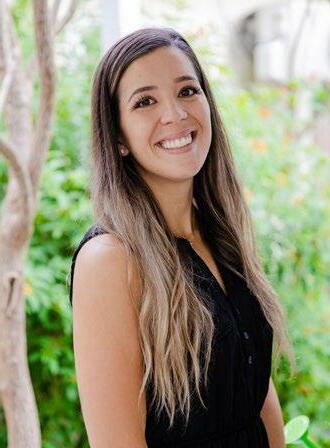
Alanna Warwick-Smith is a young Caymanian who has lived with depression most of her life. After many years of fighting for her mental health, she has found ways to cope and live with her difficulties. Her journey was full of ups and downs, and she has worked very hard to be where she is today.
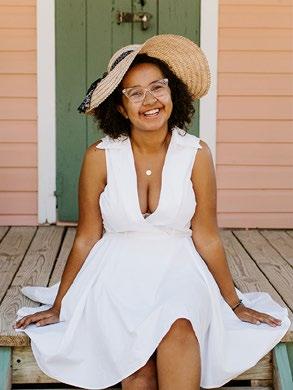
It all started when she was diagnosed with depression at the age of 11. Her mother noticed something was not right, and together they headed to the hospital. The ER was the most accessible and affordable place to take someone in a crisis, although it was not fit for children struggling with their mental health. At the hospital, Alanna was referred to a child psychiatrist, who has been by her side ever since. Mental health therapy was very expensive back then (and still is today), and growing up in a middle-class family made it very difficult for Alanna to keep therapy consistent. Even with her mother paying for premium health care, she was only able to afford a psychiatrist visit once every three months.
Alanna was given her first prescription of anti-depressants when she was 13. Due to limitations in mental health coverage, she did not receive the amount of professional assistance she needed. Because of this, she was unable to gain a full understanding of her diagnosis, resulting in an infrequent use of her medication. Her mother was always there for her, supporting her in every way she could. But as Alanna said, “parents are not trained for this, sometimes they don’t know what to do. They need help and guidance too”.
Life got worse before it got better, and at the age of 16 Alanna attempted to take her own life. It was a dark period for her, filled with blurry memories and tough moments, but one thing Alanna will never forget is her mother’s presence through all of it. It was her job to protect her daughter and advocate for her, and she did. She stood up for Alanna’s mental health, she taught her not to be ashamed of her struggles and she gave her a safe space to talk, release her emotions, and be truly herself. With time, strong will and endless support from her mother, Alanna built herself back up one step at a time.
Alanna is now 26, she still copes with depression but has found ways to live with it. She is proud of who she has become, in all of her beauty and all of her flaws. “This is the hand that I’ve been dealt”, she says, “and I learned how to live with it”. While telling her story, Alanna mentions her mother often. “Thanks to her, I am alive today”. In a world where no one else understood her, and where she could not receive the help she needed, her mother was there and that was enough to save her.
“Life is short, but also so so long. When you’re young, you don’t realise how much life is ahead of you”. With a brave heart and a love for life, Alanna keeps moving forward. The younger version of herself must be so proud!
FIRST WORD www.caymanparent.com 23
Through the Lens of our Youth: Alanna’s Story
Shan Harriman, CEO of Inclusion Cayman
As a mother of a daughter with complex disabilities, and with 25 years’ experience working in the financial industry as a certified accountant, Shan brings a wealth of personal and professional experience to Inclusion Cayman. Her own personal journey with her daughter has provided her with a solid understanding of what barriers parents are faced with, and has given her direct insight into the importance of living an inclusive life. As a generational Caymanian with deep roots in the community, Shan is committed to promoting inclusion within our Islands and ensuring that people with disabilities have equal opportunities to live a productive life.

Why did you decide to join Inclusion Cayman? I am the mom of a 15-year-old with complex disabilities. From day one I have always wanted her to be treated like everyone else and to be included. Inclusion is a passion of mine, and I am a strong advocate for my daughter and other people with disabilities. Joining Inclusion Cayman was an opportunity to be part of an organisation that cares about supporting and advocating for people with disabilities, a cause that is very dear to my heart.
Tell us about your experience as a mother to a daughter with complex needs? There have been many ups and downs throughout the past 15 years. Never-ending doctor appointments, constantly juggling therapy sessions, fighting for a place in this community, especially in school, and often feeling hopeless and alone. I have been the struggling mom so I understand
the challenges that other parents face. However, I believe that everything I have experienced; the barriers, the negative prognosis, the numerous doors closed in my face, has only allowed me to be a stronger voice for my daughter and by extension, the disability community. My daughter has made me who I am today: a strong, passionate voice that will allow us to rise above the many adversaries we face.
How have you seen inclusion working around the world? When my daughter and I lived in the US we saw inclusion at its best; being allowed to attend mainstream school, being part of the sports team and having available employment opportunities. She had the chance to gain an independent life that adds value.
What are the benefits of inclusion for children? We can all learn from each other. Having exposure to people with disabilities in your class, workplace or sports team, teaches acceptance, empathy and offers children the chance to build friendships regardless of their ability. Everyone has something to offer and we all benefit from inclusion. We all want to be accepted and have friends.
What changes would you like to see in the Cayman Islands?
At Inclusion Cayman we would like to have the opportunity to partner with the various stakeholders in education, recreation and employment so that we can find a successful way for people with disabilities to be accepted in mainstream schools, the varied recreational programmes on-Island and have the opportunity to gain employment.
What support does Inclusion
Cayman currently offer? What do you hope it will offer in the future? We provide ongoing advocacy and family support to help individuals with disabilities navigate achieving inclusive lives. Our Parent Inclusion Network (a passionate group of parents who advocate for their children) works to develop solutions to the barriers faced when trying to access the community, and it is blazing trails for families. We also offer professional development via workshops, leadership development strategies, and on-site coaching and consultancy in evidenced-based inclusive practices. This is provided to educators, employers, and recreation providers, and can be extended to other community members. But the work doesn’t begin and end with us as an organisation. There are many others working to achieve this in our community. If you'd like to find out how to be more inclusive, please contact Inclusion Cayman at info@inclusioncayman.ky.
What is your vision, as CEO, for the next two to five years? I am planning to expand our support in schools and ensure there are more inclusive recreation programmes. We would like to create a clear pathway for students through secondary school and into vocational programmes, ultimately increasing employment opportunities. Cayman is my home, this is where my family is from, I want our community to be inclusive of all people regardless of their ability.
FIRST WORD Q&A
Inclusion Cayman CEO & Parents

Leslie Bromfield Daniel Reid
What is your proudest parenting moment? Figuring out how to strap in the car seat! But truly, when both my children join their class in the morning at school and friends run to greet them. We work hard to teach our kids to be loving and kind to everyone, that is most important thing.
What are the challenges you face in accessing community activities? For us, it's the time to accompany Jordan to activities. My husband and I both work so it's hard to carve out extra time for sports, music, dance, etc. We can dropoff Emma, our daughter, that's no problem, but we are not quite ready for Jordan to be on his own outside of school or church.
What would you like people to know and understand about children with disabilities? Please don't set limits on them. The power of expectation is so huge, and when we remove the 'can’t do' mindset, the sky’s the limit. At the same time, expect the same things as you would from children without disabilities. Jordan’s experience at Montessori has shown us that he can work independently and demonstrate good behaviour, just as his peers can, because that is the expectation.
What would you like to see change in Cayman to improve inclusion? For all parents to have a choice in school setting. Right now there are limited options for those seeking an inclusive education. Expat parents are essentially left on their own if the Lighthouse School is unable to accept them. Thankfully, Inclusion Cayman now has a waiting list of schools seeking support with inclusion. The tide is changing, but there is still a lot of work to be done.
What advice would you give a parent whose child has recently be diagnosed? Embrace the journey! While there are certainly lots of unknowns and potential struggles, you have no idea what joys may lie ahead as well. All children have 'a thing' they must overcome; do not become so wrapped up in your child’s diagnosis that you miss out on living. Take care of yourself and whatever you do, resist the urge to compare your child or lifestyle with others. Everyone is created for a purpose and your child is no different! Jordan is the gift we never knew we wanted. He has brought so much colour and blessing to our world, opened doors for helping others and helped us to keep the important things in life in perspective. We would not trade him for all the tea in China and we cannot wait to see who he becomes.
Leslie Bromfield is mother to Jordan (9) and Emma (7). Jordan has Down syndrome and attends Village Montessori.
What is your proudest moment? There have been so many, but because my son is on the autism spectrum, as he develops I start to see his technological savants. As Ethan communicates differently, many assume that his receptive language is delayed, but that could not be further from the truth. His receptive language is on a par with a neurotypical child his age. In addition, his natural ability when it comes to technology is truly fascinating at times.
What has your child taught you? My son has taught me selflessness, humility and patience. When we become parents, it becomes more about our kids than it does us. We owe them every opportunity to strive and flourish.
What are the challenges you face in accessing community activities? I would like to see more opportunity for children with special needs to have access to summer and school break camps. There have been great strides to become more inclusive and Ethan has done swimming camps, agriculture camp and boxing camp, to name a few. But there are still some programmes that will not accommodate us once they are aware your child has special needs.
What would you like people to know and understand about children with disabilities? Children with disabilities, and especially autism, are unique human beings but they want the same thing as any child – to be loved, cared for, valued, respected, and included.
What would you like to see change in Cayman to improve inclusion? I would like to see better access to employment at all levels, access to better educational opportunities and adequate insurance coverage for therapies is needed.

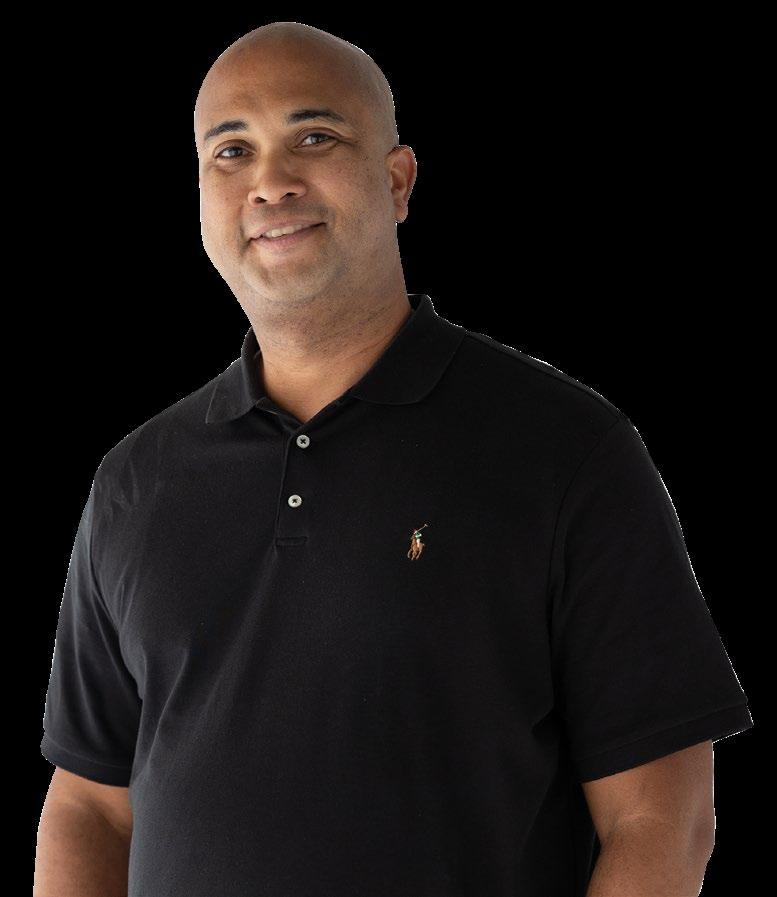
What advice would you give a parent whose child has been recently diagnosed? When Ethan was diagnosed as being on the ASD spectrum, it was a kick to the stomach. One has to put a pause on all the dreams and aspirations they had for their child. However, the sooner a child is diagnosed and treatment begins, the better the outcome for the child. I can attest to this, and I thank God every day that Ethan was diagnosed early and started on his therapeutic journey to ensure the best outcome for his life and future.
Daniel Reid’s son Ethan (12) is on the Autism Spectrum and is formally diagnosed.
FIRST WORD
Cayman’s Golden Weapon –Early Childhood Care & Education
by Juliet Austin
They say, “It is easier to build strong children, than it is to repair broken adults.” In fact, decades of longitudinal research into the neuroscience behind early childhood education proves unequivocally that investing financially and philosophically in the early years, from the womb to age five, is the golden weapon in the battle to raise educational standards and solve a host of societal problems.
Consider that 90% of the brain’s capacity is formed by age five, before children even set foot in formal schooling; that pruning of the neurological pathways begins at just 12-months; and that by three, a child’s brain can form three quadrillion connections... and the case for focusing time, energy, and resources on this vital stage of development is a no-brainer. So, how do the Cayman Islands stack up when it comes to providing equal access to quality early childhood care and education (ECCE) for its youngest citizens?
The Evidence
For evidence of the link between early childhood provision, increased productivity, and breaking cycles of poverty that require costly remedial social spending, we need look no further than the work of Nobel Laureate, James J. Heckman, Professor of Economics at the University of Chicago. Recognised for his ‘Heckman Curve,’ an economic impact study that proved that the greatest productivity of investment came from investment in the early years, Heckman identified the economic benefits of investing in human potential through nurture, provision of quality
early childhood enrichment programmes, and the promotion of physical health from birth to age five.

Furthermore, papers authored by Heckman, and predoctoral fellow, Ganesh Karapakula, entitled, The Perry Preschooler at Late Midlife, irrefutably demonstrate the long term, lifelifting impacts of the well-respected Perry Preschool Project undertaken in Ypsilanti, Michigan in the 1960s. Research on graduates, now aged 54, proved significant gains in educational outcomes, health and wellness, employment, and marriage when compared to peers in the control group who did not attend preschool. What is more, multigenerational effects were noted in the profiles of the graduates’ siblings and offspring, now in their 20s.
As if this were not sufficiently compelling, a linked study, entitled, The Dynastic Benefits of Early Childhood Care and Education, (Garcia, Bennhoff, Leaf, Heckman, 2021), successfully monetised the impacts of investing in the early years, calculating that for every $1 spent, society receives a $14 life cycle benefit.
26 FIRST WORD Cayman Parent Magazine | First Word
Image courtesy of Bouke Maddock for Little Trotters
Early Childhood Education in Cayman
So, just what is the status of early childhood education in the Cayman Islands? Defined by the Education Law, 2016, as education provided to children under the compulsory age of five to include, “the care, stimulation, and socialisation necessary to support developmental learning,” there are currently 22 privately registered ECCE centres in Grand Cayman, with an additional government funded facility on Cayman Brac. Sixteen Reception classes for four-year-olds at all government primary schools provide 286 children with early years’ provision, based on the Cayman Islands Statutory Framework for Foundation Stage (National Curriculum for England), and plans are currently underway to expand Red Bay Primary to allow more children to attend.

Recognising the need to expand and strengthen early childhood provision, in December 2021, the PACT government announced increased allocation for Education, Early Childhood, and Support Services from $8.6million in 2021 to $9.5million in 2022, with a further increase to $9.87 million in 2023. Of these amounts, approximately $600,000 and $622,000 are earmarked for Early Childhood services in 2022 and 2023, respectively. Furthermore, Minister for Education, Honorable Julianna O’Connor-Connolly also announced her intention to incorporate nursery facilities for three-year-olds into government primary schools however, no specific timeline was given.
A Ministry of Education statement recognises that, “A substantive body of research avouches that the earliest years of a child’s life are critical to developmental learning. Our young children demand and deserve special attention and care. Early childhood education provides unique opportunities for children’s intellectual, emotional, physical, and social development.”
Play-based Learning
Rooted in the pedagogy of purposeful play-based learning, play – as different to traditional ‘chalk and talk’ schooling – is recognised as a natural way for children to learn and develop, solve problems, and understand the world. “Purposeful play ensures that learning experiences are carefully planned to facilitate a healthy balance between child-initiated play and adult-led instruction. In this model, early childhood staff prepare enabling, open-ended learning environments to facilitate exploration and critical thinking. Play is essential to a child’s holistic development, and the natural and best way for them to learn.”
Public vs Private
However, with 84% of children attending ECCE centres enrolled in private settings, this raises the question of equity of access. Private ECCE centres judged ‘Good’ or ‘Excellent’ by school inspectors charge annual full-time fees in excess of CI$10,000, stretching to over CI$15,000 per annum. Following an application and means testing, Caymanian children who turn three by September 1st, may apply for Early Childhood Assistance Programme (ECAP) funding – a maximum allowance of CI$500 monthly, or a subsidy of CI$305. However, with only one centre’s monthly fees under CI$500, and centres catering to the lower socio-economic bracket largely receiving ‘Weak’ to ‘Satisfactory’ inspection grades, there exists a clear inequity in access to quality early childhood care and education.
Professional Development
This inequity is compounded when one considers that, according to current Education Council Guidelines, only one staff member must possess a Licence to Teach, per ten unqualified practitioners. Worryingly, this individual may be a manager/ owner, not directly involved in teaching and learning. Their qualification may be in primary or secondary education rather than the unique field of Early Childhood.
The University of the West Indies (UWI) currently offers a Certificate in Early Childhood Development, and the good news is that plans are underway by The Early Childhood MultiAgency Panel to develop the first ever Associates Degree in Early Childhood Education to be offered through the University of the Cayman Islands (UCCI), enabling access to additional qualifications locally.
What is more, with passionate advocates, like Dr. Pearlyn Henry-Burrell, Director of the Ministry of Education’s Early Childhood Care and Education Unit, driving much needed change, the future looks bright. “Through the work of the unit and associated partners, the Government supports early years practitioners, centre owners, and families to garner the skills needed to enhance children’s holistic development as they help prepare them for the next stage of their learning. The mandate of the government… is for all stakeholders to understand and appreciate that early childhood education is much more than learning basic literacy and numeracy skills…it’s about enhancing children’s social, emotional, cognitive, and physical needs so
FIRST WORD www.caymanparent.com 27
Image courtesy of St.
Ignatius
Catholic School
that they can survive and thrive in their later years of learning.”
Enter Dr. Cheryl Rock, Early Intervention Programme Coordinator, whose team works with children under compulsory school age requiring medical, sensory, cognitive, or physical support. “We offer Speech and Language, Occupational Therapy, Hearing and Vision specialists, Counsellors, and inschool support as well as Educational Psychology evaluations, where appropriate, so that eligible families have access to a formal diagnosis, recommendations, and services as soon as possible. We cannot afford to lose time with young children,” she explains. A passionate advocate for strong preventative measures, in-class training, and professional development, Rock is eager to nurture neurodiverse preschool environments where multi-modal instruction and differentiation are expertly used to cater to all children’s needs and foster a sense of belonging.
This is recognised in the psychological theory of Maslow’s Hierarchy of Needs. It states that humans are motivated to fulfil their needs in a hierarchical order, beginning with basic physiological needs and the need for safety, to a need for love and belongingness, with the ultimate goal of self-actualisation. Neuroscientist, Dr. Bruce Perry (2016), states, “The brainmediated set of complex capacities that allow one human to connect to another form the very basis for survival and has led to the ‘success’ of our species on this planet. Without others or without belonging, no individual could survive or thrive.” Dr. Perry argues that learning can only happen if the brain is in a relaxed state. If a child feels threatened, unsafe, stressed, or lonely, the brainstem - responsible for the survival function –takes over, resulting in a child demonstrating behaviour issues as a consequence of a ‘fight, flight, or freeze’ brain mode. To make real learning occur, therefore, preschools must consider creating conditions for learning that make every child feel safe, nurtured, and with a sense of belonging.
One non-profit putting its resources into meaningful change is Literacy Is For Everyone (LIFE) who, in partnership with the

Cayman Islands Early Childhood Association, launched Thrive By Five, a foundational literacy programme at participating preschools in 2021. As Erica Dell’Oglio, Executive Director of LIFE explains, “Our programmes empower educators and families to create purposeful, language-rich interactions with children. When children are at the centre of the adult gaze, the foundational bond is formed, written forever into their brain chemistry; in essence, creating a blueprint for later learning.”
Designed to foster community, Thrive By Five offers family engagement workshops, and the creation of print-rich environments with donations of curated libraries to support Early Years Curriculum Framework themes. Professional Development includes a video education series featuring a host of experts including Psychologist, Shannon Seymour, owner of The Wellness Centre. Seymour's programme, The Growing BrainTM, supports parents and educators in understanding the profound impact of interacting and responding positively to young children, and the impact it has on brain architecture. “Brains are built like houses and a strong foundation in the early years is critical. When the foundation is strong, thanks to warm and responsive adult caregivers, children can withstand difficulties and the challenges they will face in life. Unfortunately, if the foundation is weak, because parents were not supported or nurtured to provide the caregiving their child needs, the foundation will be weaker, and children will need additional supports to weather the storms of life.”
Creating Potential
It was this concept of early brain architecture that caught the interest of career educator, Delores Thompson, former Director of the Cayman Islands Further Education College (CIFEC), and newly appointed Director of the NCVO’s Miss Nadine’s Preschool and Jack and Jill Nursery. Having spent decades working with students nearing the end of their educational journeys, she became concerned by the disillusionment she saw - the lack of self-esteem and motivation. “Some students lacked the perseverance or ‘grit’ needed to keep going
28 FIRST WORD Cayman Parent Magazine | First Word
Image courtesy of Island Montessori
when things got rough,” she observes. “They didn’t see their potential.” Later, attending a workshop presented by Clinical Psychologist, Dr. Erica Lam of Aspire entitled Trauma Informed Classrooms, Thompson recalls a pivotal discussion on angry and uncooperative students. “Dr. Lam revealed that experiences during the first five years…can impact entire lives. There is much research on this. One study links a quality early childhood education to children thriving in school, completing high school, attending college, and staying out of the prison system. I wondered how many of my students might not have struggled as teenagers if they had had a more positive start. At that moment, I remembered why I found early childhood so fascinating,” she states. “So, I decided to finish my degree. I truly believe that if we want to improve our education system, we have to begin with early childhood education.”
A strong proponent of play-based learning and child-initiated practice, Thompson is keen to raise standards and excited for the future. Introducing the HiMama App has enabled more effective parental interactions, while the new continuous assessment tool, Tapestry, meaningfully links lessons to the CI Early Years Curriculum Framework. “Professional development of our team is also crucial,” Thompson adds. “Four staff members are taking the UWI Certificate in Early Childhood Development and three have completed The Growing BrainTM training offered by The Wellness Centre. We also participated in the ECCE’s book study on Continuous Provision – I feel blessed to have a dedicated staff who really care about children.”
So, what is the single most important thing that Thompson believes parents can do for their babies? “Spend time with them,” she says. “Serve and return refers to responding to babies when they cry, babble, or seek attention. This helps with brain development and contributes to their feelings of security.”
It Takes a Village Committed to building an early childhood ‘village,’ is Joanna Boxall, owner of Little Trotters Farm & Nursery School whose

‘reach one, teach one’ initiatives spread resources and expertise far beyond the gates of her own preschool. Having received the highest overall grade of ‘Excellent’ from the school inspectors, Boxall is keen to pay it forward, whether by encouraging staff mentorships, or opening Little Trotters’ doors to fellow preschool teachers to observe good practice, showcase resources, or view innovative classroom layouts. “At Little Trotters, we inspire discovery and learning through exploration and play and are delighted to welcome visitors from other centres, the ECCE Unit, and Ministry of Education,” explains Boxall.
Also responsible for installing purpose-built, all-weather blackboards at Sister Janice’s, Precious Gems, Cayman Academy, and ABC preschools, and creating cosy reading nooks, complete with rugs, throw cushions, and Julia Donaldson book sets to Cayman Academy and Precious Gems, the community of early childhood is coming together for future generations.
Early Years Inspection Framework
Recognising the need to support quality assurance via the collection and presentation of valuable, accurate information gathering in early childhood centres, the Office of Education Standards (OES), responsible for promoting the raising of standards of achievement in ECCE centres in the Cayman Islands, is in the process of creating the first Inspection Framework geared specifically to the early years. OES Director, Nicholas Sherriff says, “The current inspection framework was not designed as a bespoke tool for the early years. As such, the language and exemplar referred to are often not recognisable. Our view is the OES can communicate far better through a bespoke inspection framework, more appropriate to the early years, thus supporting clearer recognition and greater potential for self-improvement.”
The new framework, devised by international early childhood expert, Sharron Fogarty, in collaboration with a development team of government and private early years stakeholders, ensures local context along with method and standardisation for inspectors and guidance for centre leaders. “Picking up one system and dropping it into a new environment does not often work well. Hence the need for a wide stakeholder group that will eventually include parents. This means the socio-cultural aspect of Cayman education is not lost. However, there is a balance to be struck that ensures international best practice is embedded, giving young children the best possible start on their educational journey,” Sherriff adds.
Put simply, developmentally appropriate early childhood education is the business of building brains; of creating a growing community of resilient, capable, self-assured twentyfirst century thinkers. And, like savvy nations across the globe, Cayman is waking up to the socio-economic, and educational benefits of investing in comprehensive, high-quality provision and understanding that, getting it right first time, avoids the need to fix the problem later. After all, as Bill Gates observed, “The first five years have so much to do with how the next 80 turn out.”

FIRST WORD www.caymanparent.com 29
Image courtesy of Bouke Maddock for Little Trotters
Teen Dating Violence in Cayman
Dating violence doesn’t only affect adults. In fact, 16 to 24-year-olds are the age group most likely to experience dating violence or abusive relationships. It’s therefore crucial that the issue be talked about
Last year, the Cayman Islands Crisis Centre (CICC) conducted a survey – the first of its kind – of 14 to 18-year-olds to determine the prevalence of dating violence among teenagers. Students at five secondary schools were polled with around one third of respondents reporting having experienced some form of abuse in a relationship. This is not a Cayman-specific issue: the statistics for other jurisdictions are similar.
“We knew it was an issue, so we weren’t surprised by the results,” Mariesha Spencer, outreach coordinator with CICC explained. “But we wanted to establish whether teens were aware of what constituted abuse.” In the presentations she gave and the discussions that followed, Spencer says, there were many ‘Aha’ moments, where students recognised the controlling or abusive behaviours she described, but hadn’t known they were a form of abuse.
What is Dating Violence?
Dating violence, dating abuse, or abusive relationships are defined as a pattern of controlling behaviour by one partner (or ex-partner) towards another.

This can take several forms. The most obvious is physical abuse,
which includes any form of unwanted physical contact from shoving to slapping, punching or kicking. It can also involve destruction of the victim’s property, throwing objects, threatening with a weapon, or physically preventing the victim from leaving.
Emotional abuse is not always as obvious, but verbal threats, insults, put downs in front of friends, and name-calling are all forms of emotional abuse. More subtle forms of emotional abuse might include the perpetrator telling the victim what to wear, or who they can see, progressively isolating them from friends and family, blaming the victim for their own abusive behaviour, or threatening to harm themselves, or the victim.
“From talking to teens we realised a lot of them don’t know about setting boundaries as a safety net to protect themselves from abuse,” Spencer noted. “They don’t necessarily understand that it’s okay to maintain your individuality in a relationship and to do things your partner is not interested in. They may give up their own identity and assume that of their partner.”
Abuse can also be sexual in nature, with either one partner pressuring or forcing the other to perform sexual acts they are not comfortable with, or being prevented from using protection.
30 FIRST WORD Cayman Parent Magazine | First Word
Among the survey respondents, however, the most prevalent form of abuse was digital. This type of abuse takes place online and can include checking the partner’s emails, texts and social media channels, stealing their passwords, threatening to post intimate pictures of them online or demanding their partner send them explicit photos, and constantly keeping tabs on their partner via texts or phone calls.
Where Does it Begin?
It’s hard to say whether teen dating violence is on the increase in Cayman as there were no statistics prior to 2021, Spencer says. One theory is that movies, TV shows and music that perhaps glorify violence, refer to women in disparaging terms, or portray adults in unhealthy relationships, are giving youngsters a skewed idea of how to treat their partners.
Certainly, it’s usually the case that abusers are acting out behaviours they have seen elsewhere – but the first place we should look, says Spencer, is the home.
Many of those who participated in CICC’s survey had witnessed abuse at home. They may have seen, for instance, that conflict can be resolved with violence and so believe that is how arguments are handled. What a child experiences at home inevitably shapes their concept of ‘normal’ behaviour. Therefore, if they grow up around adults in an unhealthy relationship, they are likely to repeat those patterns, not realising they are unhealthy.
The current culture of ‘toxic positivity’, Spencer adds, may exacerbate the situation, by causing victims to believe that even if their relationship is not ideal, they should ‘suck it up’ and not complain.
Consequences of Dating Abuse
The experience of abuse is stressful at any age, so anxiety and depression are common consequences, as are feelings of guilt, shame and low self-esteem.
Teens who are victims of dating abuse are also more likely to engage in risky behaviours, such as smoking, drugs and alcohol, and may be more likely to lie, bully or steal. And for adolescents with many stresses in their lives, something has to give – and that will most often be their studies, so poor grades are a real consequence.
Abuse tends to get progressively worse, putting victims in real danger of physical harm from their partners. Over time, living in constant fear of a partner leads to prolonged stress, which is well known to contribute to the development of a number of diseases, including heart disease and cancer.
Is Your Child in an Unhealthy Relationship?
If your child is in a violent relationship, it may not always be obvious to you. According to Reach Out, a website dedicated to raising awareness of unhealthy relationships in teens and young adults, while 82% of parents believed they would know
if their child was in an abusive relationship, only 45% actually recognised the warning signs. With that in mind, these are some warning signs for parents to look out for:
• Your child is prone to emotional outbursts.
• Your child’s grades are declining, or they are missing school.
• Your child stops seeing their friends or doing activities they used to enjoy.
• Your child’s partner is constantly texting, calling and checking up on them.

• Your child is anxious, depressed or secretive.
• Your child makes excuses for, or apologises for, their partner’s behaviour.
• Your child is worried about angering their partner.
• Your child has unexplained injuries, gives explanations that don’t make sense, or covers up injuries.
• Teen pregnancy - whether because of coercion or the belief that a baby will improve the relationship.
Protecting Your Child from Dating Abuse
The best way to protect your teenager from dating violence is to make sure they know an unhealthy relationship when they see it. Talk to them early about what characterises healthy and unhealthy relationships.
Explain that healthy relationships are characterised by open communication, respect, trust, honesty, equality, enjoying personal time away from each other, and making mutual choices. In an unhealthy relationship, partners are not communicating, the trust and respect is missing, and there may be no room for friendships and activities outside the relationship. When a relationship becomes abusive, the communication may be threatening, there is often mistreatment, accusations of cheating, excessive control and isolation from others.
FIRST WORD www.caymanparent.com 31
How to Talk to Your Teen About Their Relationship
Teenagers are at a stage in life when they are asserting their independence and want privacy. They therefore may not be open to discussing their relationship with a parent. If you suspect your child is in an unhealthy relationship, approach the situation with care and sensitivity.
Dos & Don'ts
DON’T:
• Wait for your child to come to you. If you see red flags, try to open a conversation and let them know you are there to support them.
• Force the conversation if they are not ready to talk about it. Try again another time.
• Accuse or blame your child – they may be on the receiving end of plenty of that already, and the last thing they need is to be made to feel they have brought this on themselves.
• Tell them to get out of the relationship. Teens who are victims of this type of violence typically want the abuse to stop – but they don’t necessarily want the relationship to stop.

• Start sentences with "you should" or "you shouldn't". An abusive relationship is all about power and control, so you telling them what to do only adds to the feeling of powerlessness.
• Confront the abuser.
• Try to fix this yourself. There are resources available and professionals who have the training and experience to help you and your child.
DO:
• Try to open a conversation in a non-judgmental way. Ask open ended questions like "how is your relationship going?" or "is everything okay?"
• Focus on behaviours you’re seeing and ask how that affects them. For example, "I notice your partner calls and texts a lot. How does that make you feel?"
• Be empathetic and supportive.
• Remind them it’s not their fault.
• Ask them how you can help.
• Be patient. You may be met with resistance or denial at first, but let them know you’ll be there when they’re ready.
• Arm yourself with information and resources that you can share with your child.
• Be prepared for it to take some time for your child to seek help.
Relationship Red Flags for Teenagers
“It’s only because I love you that I get angry when you flirt with other people.”, “If you really loved me you would want to spend your time with me, not your friends.”, “You shouldn’t wear that/talk to them/go there.”, “I don’t like you being friends with that person”.
There are many ways that one partner may try to control another. But whether it’s physical, emotional, or through digital channels, it’s never ok.
Dating violence is not always easy to recognise. If you’re a teen and inexperienced in dating, you have nothing to compare your relationship to. If your partner is jealous and possessive, you may believe that shows they really love you. And for teens who have been neglected or abandoned in the past, being needed and wanted is exactly what they crave, making it that much harder to see the abuse for what it is.
Abuse takes many forms and tends to occur in cycles: periods of relative calm precede a build-up, then there is an explosion, followed by apologies and reconciliation, and then the calm and harmony returns (for a while). This can be confusing and cause victims to believe things are improving after each reconciliation.
If you’re a teenager and starting to date, these are ten red flags to be aware of in your partner’s behaviour:
• Frequent jealousy, moodiness or anger
• Reading your text messages and emails
• Pressuring you to perform sexual acts or taking/sharing explicit pictures
• Blaming you for their anger/jealousy/moodiness
• Controlling what you wear, where you go and who you see.
• Constantly monitoring your whereabouts
• Bullying, harassing or embarrassing you, online or in real life
• Preventing you from seeing other friends
• Vandalising or ruining your personal property
• Threatening or causing any physical violence.
32 FIRST WORD Cayman Parent Magazine | First Word
If you’re not sure if your partner’s behaviour is abusive, imagine your best friend behaving in the same way towards you. Would that be ok? If the answer is no, then it’s not ok coming from your partner either.
Make a Safety Plan
If you’re in an abusive relationship and are sometimes afraid of your partner, it’s a good idea to make a safety plan. Should a situation escalate and you need to get out quickly, you may find it hard to think straight at the time.

A safety plan involves knowing in advance who you would call (have their number on speed dial) and where you would go, as well as making sure you have the contact numbers for emergency services and support services you can reach out to.
How to Talk to Your Friends About Dating Violence
Most teens who attended the CICC’s presentations on teen dating violence said they would turn to their friends before they talked to their parents about a toxic relationship.
If you have a friend who has confided in you about an abusive relationship, here is what you can do:
• Don’t be offended if they have been distant, or not shared this with you before. Abusers typically isolate their victims from friends.
• Believe them. It may have taken a lot of courage for them to admit it, so if you doubt their story they may retreat.
• Be patient. Leaving an abusive relationship often takes
time. First a victim has to admit to the abuse, then make the decision to leave. Even when they do end it, they may go back to it – often more than once. On average it takes seven tries to leave an abusive relationship for good.
• Help them create an exit plan. Leaving an abusive relationship can be dangerous so it needs to be carefully planned.
• Check in regularly so that they know you are there for them and that they have your support.
Resources for Teens & Parents in the Cayman Islands
Cayman Islands Crisis Centre:
• TAYA (Teens and young adults) Lounge – A safe space for kids who have experienced or witnessed abuse.
• Kids Helpline (345) 649 5437 – A free-to-call helpline available to all Cayman youths up to age 18. Trained staff and volunteers provide support until the child is in a safe situation. Open Monday-Friday 10am-6pm.
Alex Panton Foundation: alexpantonfoundation.ky or email: info@alexpantonfoundation.ky.

Family Resource Centre: (345) 949 0006.
Department of Community Rehabilitation: (345) 926 9505 or (345) 949 1693.
FIRST WORD www.caymanparent.com 33
GROCERIES
SHOP ONLINE, ANYTIME WITH FOSTER’S GO!
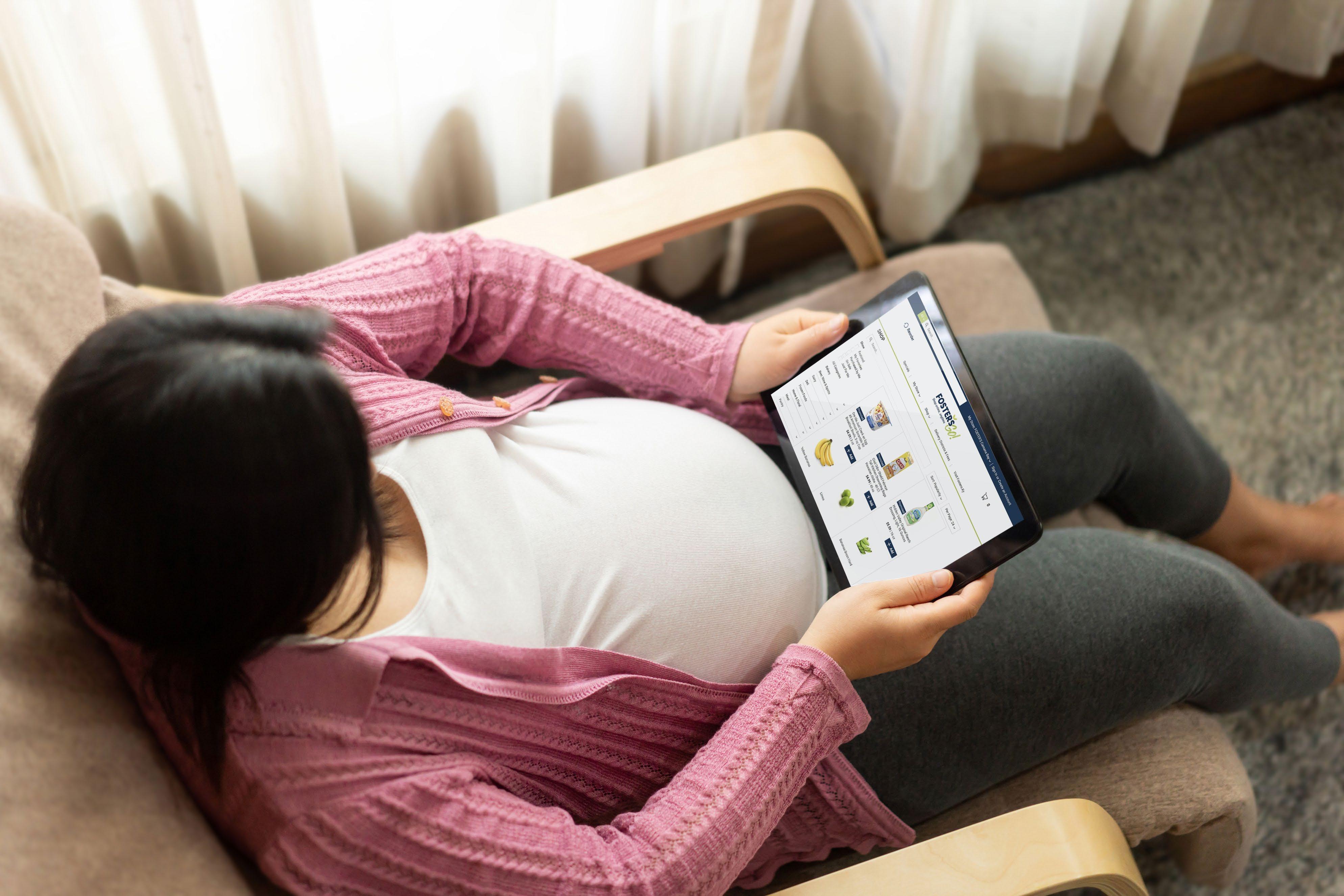
ON-THE-GO! When you’re busy juggling school drop-off, Saturday sports, dance lessons, and everything in between, let the island’s supermarket shop for you.
For delivery island-wide or curbside pickup at Foster’s Camana Bay. Scan to get your order started, go to shop.fosters.ky or download the Freshop app 945-FOOD | fosters.ky | @fosterscayman

www.caymanparent.com 35 Nutrition Buying on a budget, benefits of baking, family dining & more... The Rising Cost of Groceries: p36 Buying, Cooking & Eating Smart Plant-based Eating in Cayman p40 Benefits of Baking with Children p43 Top Family Dining Picks p46 Nutrition Book Club p48 The Listings p49Contents
The Rising Cost of Groceries: Buying, Cooking & Eating Smart
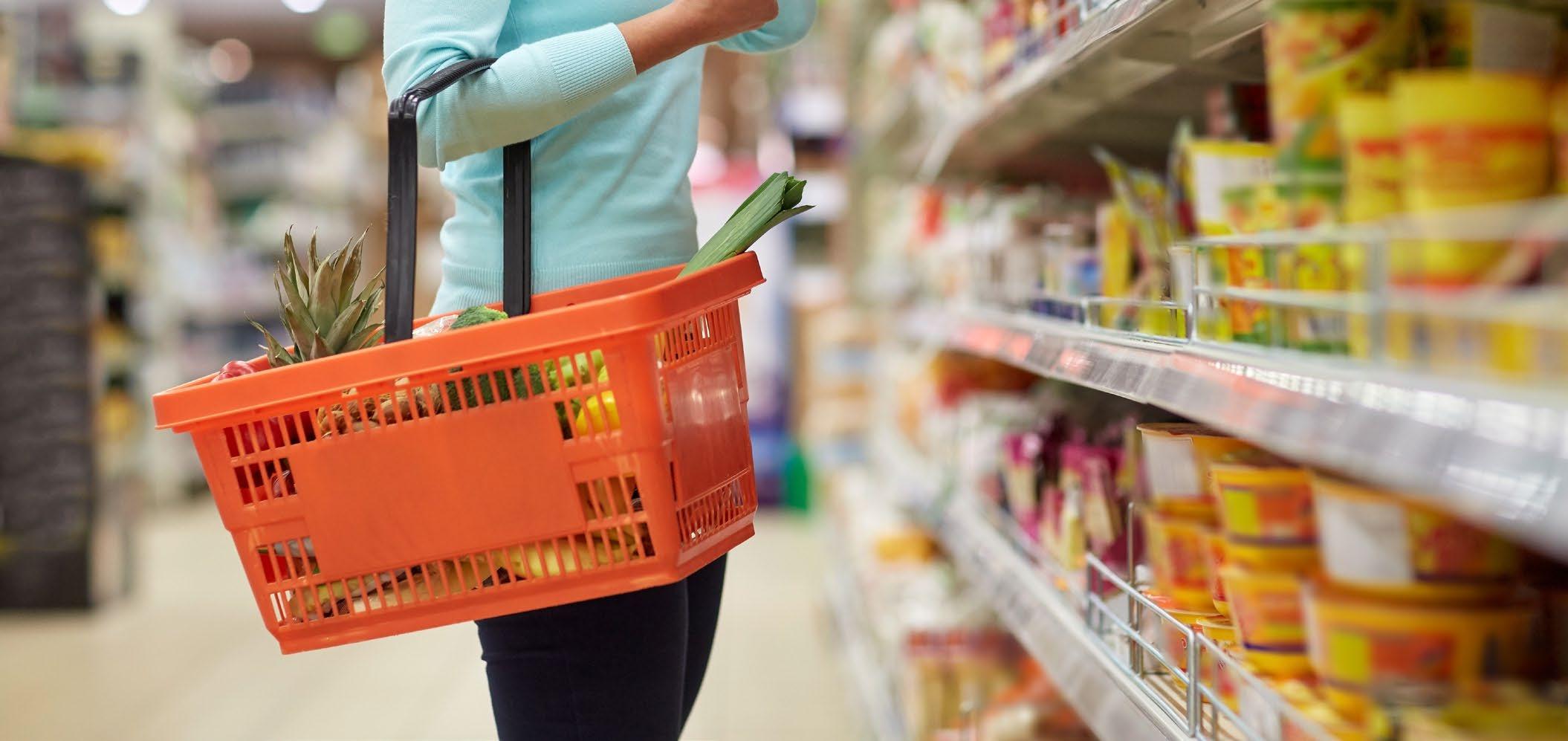
The cost-of-living is skyrocketing in the Cayman Islands. Unavoidable expenses such as rent, utilities and fuel are all up, and it’s costing more and more to feed our families and ourselves. With erratic price spikes and unpredictable surges in import costs exacerbating the problem, we’ve put together some helpful hacks, tips and tricks to help make a tight budget stretch that little bit further during these difficult times.
Understanding What’s Going On
Though prices in Cayman have been, on average, higher than in other parts of the world, the rising cost-of-living is not exclusive to Cayman. Both the UK and US have experienced significant price increases across the board, and since Cayman imports most goods from the US, this naturally has influenced Cayman’s prices.
Needless to say, the pandemic has had a monumental impact on the global economy for the past few years, the repercussions of which are still being felt. Firstly, there are labour shortages in key industries such as trucking, fruit-packing and meat-packing, which have caused supply chain and shipping challenges. Not to mention the significant rise in oil prices, largely caused by geopolitical tensions between Ukraine and Russia. These price increases in oil and electricity have had a knock-on effect on shipping and supply chain costs.
Across the world, ongoing lockdowns and quarantine periods kept businesses closed and populations across the globe were
restricted to staying indoors, unable to go out and spend their disposable income. Because of this, many people have been able to save money, meaning they had more money to spend once lockdowns were eased and businesses re-opened. Once released, consumers had a desire to spend and started buying more goods and services whilst the supply was still limited. In Cayman, the government unlocked pensions, allowing people to make one-off withdrawals as a provisional measure due to the economic impact of the pandemic. In addition, a pension holiday was announced, meaning employers and employees did not need to make their otherwise mandatory pension contributions each month. For the fortunate few who kept their jobs, these monthly savings meant extra disposable income, and like in other countries across the world, this sudden increase in consumption was crippled by constrained supply which helped drive prices up.
In Cayman, we have seen the return of tourists, work permit holders and cruise ships following a relaxation in COVID-19 rules. This sudden increase in people on the Island contributes
Cayman Parent Magazine | Nutrition36
to reduced supply, rising demand and, therefore, escalating prices. As these costs have continued to rise, wages have remained largely stagnant. With businesses still struggling, these additional costs mean employers are generally unable to increase wages to help match inflation.
Action to Take
Though, given time, inflation will slow and these issues should resolve, it's highly unlikely to be overnight. In the meantime, as prices remain high in Cayman’s supermarkets, we’ve put together a list of simple actions to take to buy smart, cook smart and eat smart. Incorporating a few or many of these everyday tips into your day-to-day life at home could help you save money, reduce waste and maybe even stay healthy. And, when inflation in the Cayman Islands begins to plateau, you’ll be able to continue using these handy hints to help you save into the future.
and help you prioritise necessities. Take out cash each week for groceries, rather than for the whole month. This will help you spend less elsewhere on-Island.
• Ignore eye-level items – Look for cheaper alternatives above and below eye-level. You’ll be surprised at the size of the price difference.
• Bring your own bag – A simple but effective one! Spend less and help reduce plastic waste.
• Leave the over-spenders at home – If you know your children have a tendency to add unnecessary items to the trolley, leave them at home! If you struggle to pay for childcare, try reciprocal childcare. Ask a trusted parent to watch over your little ones and do the same for them when they need help.
• Plan meals around sale items – Search your supermarket online and on social media before writing your list. Find out this week's/month's deals and plan meals around these items. This will also save you from wandering around the store trying to find cheaper deals.
• Buy cheaper cuts – Start slow-cooking your dinner. It’s cheaper and oh so tasty!
• Beware of multi-buys – Good for non-perishables, bad for fresh ingredients. Bulk buy items that you use every day, or ones that will last.
Buy Smart
• Write a shopping list (and stick to it!) – Don’t underestimate the humble shopping list. Write a list based on what you have in your cupboards/fridge/freezer already.

• Don’t shop whilst hungry – You’re much more likely to spend more money and buy unhealthy foods.
• Plan meals to reduce waste – Only buy what you’ll actually eat (this is where that helpful shopping list comes in). Write specific ingredients on your list and amounts you need. Don’t over buy, and freeze what you cannot use.

• Buy frozen – Fruit and vegetables retain all their nutrients when frozen, they’re pre-chopped, last longer and are often cheaper.
• Don’t be fooled by the label – Don’t let the label choose for you. Experiment with cheaper brands (just make sure to check ingredient lists for additives and nasties).
• Crunch the numbers – As you shop, do some number crunching. Use your phone, a calculator, or encourage kids to exercise their mathematic skills to add up your trolley total. It will make you double check you definitely need everything that’s in there before checking out!
• Pay in cash – Paying in cash will restrict your spending
Cook Smart
• Cook with pulses – Meatless dishes don’t have to just be cauliflower and Brussels sprouts! Pulses are one of the cheapest items in the supermarket. Pulses include: baked beans, lentils, chickpeas, garden peas, black-eyed peas, kidney beans, butter beans, haricots, cannellini beans, flageolet beans, pinto beans and borlotti beans. Buy dried rather than canned to reduce the cost further!
• Know your kitchen – Raid your pantry, you may find you have enough ingredients to make a full meal. Organise the food in your cupboards/fridge by use-by dates to reduce waste.
• Redefine dinner – Don’t be afraid to serve simple meals several times a week. Have breakfast for dinner to make ingredients stretch and to ensure you use ingredients before they expire – kids will never be disappointed!
www.caymanparent.com 37
• Batch cook – To reduce waste and create bonus dinners/ lunches, start batch cooking. It’s like getting a free meal! Why not set aside an afternoon or evening to batch cook? This way, you’ll have a freezer full of meals to choose from and less ingredients going bad in your kitchen.
• Keep an inventory – This one might seem a little too far, but it’ll keep you from finding a rotten cucumber at the back of your fridge! Keeping a list of products on your fridge reminds you what you have to eat. Each time you fill the fridge, write a list. When you use items, cross them out and when you buy new items, write them down. This way you always know what ingredients you already have on hand to cook with.
• Store correctly – By simply following storage instructions, you can get the most use out of your ingredients. Use reusable storage containers, keep those fresh herbs in water, and freeze that bread before it goes blue!
• Get all your base spices and herbs – Once you’ve got a good collection of basic herbs and spices, you’re well equipped to make a plain meal taste delicious. Not to mention dried herbs and spices are largely very affordable.
• Substitute ingredients for ones you have – Another simple but effective one. There’s no reason you can’t replace broccoli with cauliflower, green beans with peas or crème fraiche with sour cream. Following a recipe is helpful, but it’s more fun and more helpful to experiment. You might discover a brand new dish!
mush the food up. This is much healthier for them and puts less pressure on the purse strings.
• Utilise Cayman’s Happy Hours – If you do want to eat out, which we all do at times, make use of the vast amount of happy hour options available Island-wide. There are so many great deals to choose from.
Helpful Recipes
Eat Smart
• Eat more veggies – The rise in supermarket prices has largely affected fish, meat and dairy products. You don’t have to become a total herbivore to experiment with veggie or vegan recipes. Join the hoard of families who have adopted 'meat-free Mondays'.
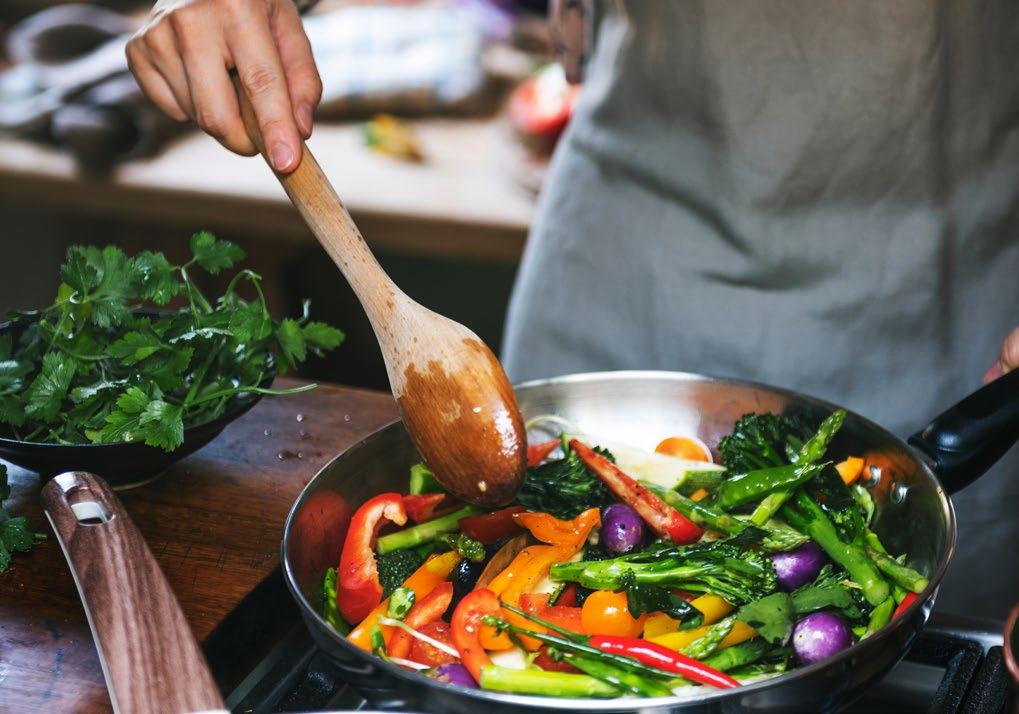
• Control your portion size – Try weighing or measuring staples such as pasta and rice to control portion size and reduce waste. This will also help with stretching meals further and improving your diet.
• Toddlers can eat the same – There’s no reason your toddler can’t eat the same meals as the rest of the family. Rather than buying extra food, encourage them to eat the same foods as you. If needs be, use a food processor to
Baked Bean Shakshuka – Breakfast for Dinner

Ingredients (2 average portions)
• 2 tbsp oil (for frying)
• ½ onion (chopped or thinly sliced)
• ½ red pepper (deseeded and chopped or thinly sliced)
• ½ tsp ground cumin
• Dried chilli (optional)
• 400g tin baked beans
• 2 eggs
• 30g your favourite cheese (optional)
Method
› Heat the oil in a frying pan. Fry the onion and pepper over a low heat for 5 minutes, or until softened and beginning to brown, stirring regularly with a wooden spoon.
› Add the cumin and chilli flakes and cook for 20–30 seconds, stirring constantly. Tip the beans into the pan and cook for 2 minutes, stirring occasionally.
› Make two wells in the beans and break an egg into each one.
› Reduce the heat to low, cover with a lid and cook for 5 minutes, without stirring, until the egg whites are set but the yolks are still runny.
› Sprinkle with the cheese, if using, and serve with toast on the side for dipping.
Five Bean Chilli – Use any beans, and don’t forget that this is a great one to batch cook or freeze. Ingredients (2 average portions)
• 2 tbsp oil (for frying)
• 1 onion (chopped)
• 2 peppers (chopped)
Cayman Parent Magazine | Nutrition38
• 2 garlic cloves (crushed and chopped)
• 1 tbsp ground cumin
• 2 tsp hot smoked paprika
• 400g can chopped tomatoes
• 400g can mixed beans (drained)
• 400g can black beans (drained)
• Pinch of sugar
• 250g brown rice
• ½ bunch coriander (chopped), sour cream or avocado (to serve)
• 50ml water
Method
› Heat the oil in a casserole dish or saucepan and fry the onion and peppers for 10 minutes over a medium heat until the onion is golden brown.
› Add the garlic and spices, and fry for 1 minute. Pour in the tomatoes, both cans of beans and 50ml of water, then add the sugar and season. Simmer, stirring regularly, for 15-20 minutes until thickened.
› Meanwhile, cook the rice following pack instructions.
› Serve the chilli on the rice. Scatter over the coriander and top with a spoonful of sour cream or guacamole, if using.
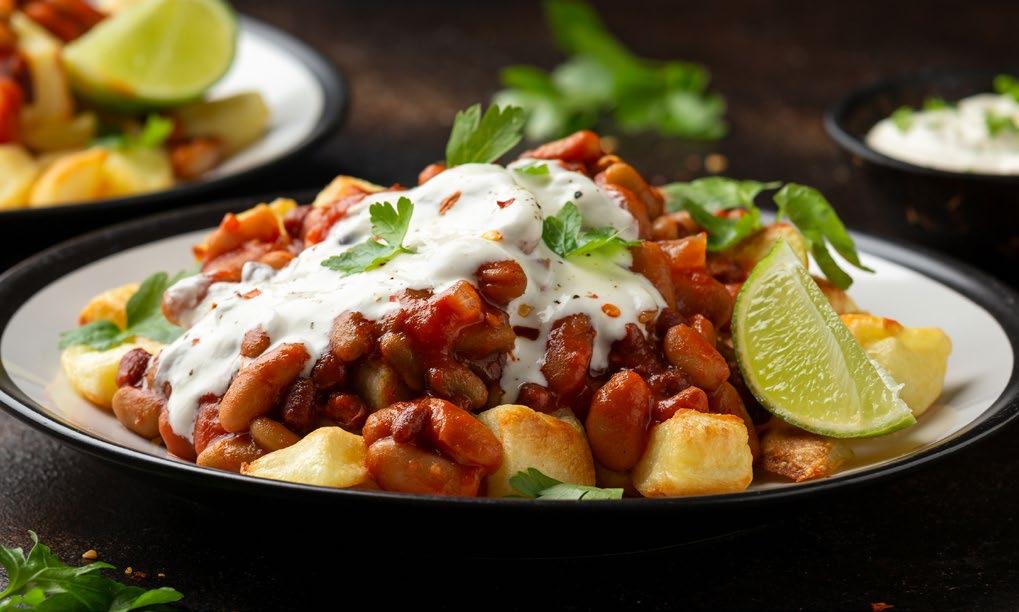
• 300g penne pasta
• 40g butter
• 1 small leek (thinly sliced into rounds)
• 25g flour
• 600ml milk
• 100g frozen peas
• 175g mature cheddar cheese (or your favourite)
• 1 slice day-old brown bread (into crumbs)
Method
› Pre-heat oven to 390°F/fan 350°F. Put the broccoli (or other veg) in a steamer over boiling water. Steam for around 10 minutes or until tender. Drain and set aside.
› Cook the pasta according to the pack instructions.

› Heat the butter in a medium saucepan. Add the leek and cook for 2 minutes. Stir in the flour and cook for 1-2 minutes more. Take the pan off the heat and gradually whisk in the milk. Return to the heat and bring to the boil, stirring all the time. Simmer for 5 minutes.
› Stir in the peas (from frozen) and bring back to a simmer. Take the pan off the heat and stir in the broccoli (or other veg), then add 125g of the cheese.
› Stir the pasta into the sauce and transfer to an ovenproof dish. Sprinkle over the remaining cheese and the breadcrumbs. Bake for 20 minutes or until golden and bubbling.
Fridge-raid Fried Rice – Vegetarians can substitute the chicken, and any leftover veggies can be used! Ingredients (4 average portions)
• 2 tbsp vegetable oil
• 1 white onion (finely chopped)
• 1 carrot (finely chopped)
• 100g green beans (chopped)
• 1 red or yellow pepper (finely chopped)
• ½ medium broccoli (chopped into small florets)
• 150g cooked chicken, or other meat (roughly chopped)
• 300g cooked rice
• 2 eggs (beaten)
• 1 tbsp sesame oil
• 1 tbsp oyster sauce
• 1 spring onion (finely sliced)
• 1 tsp sesame seeds
Method
› Heat half the vegetable oil in a wok or frying pan over a medium-high heat, and stir-fry the onions, carrots and green beans for 5 minutes. Add the peppers, broccoli and chicken and stir-fry for 3 minutes more.
Veggie Mac ‘n’ Cheese - Using up those ingredients at the back of your cupboard.

Ingredients (4 average portions)
• 150g broccoli (chopped into small florets. Or your favourite veg! Use frozen for ease.)
› Tip in the rice and stir-fry for another 4 minutes until all the grains of rice have separated. Push the rice and vegetables to the side, then add the remaining vegetable oil to the other. Crack in the egg and scramble briefly before stirring into the veg and chicken mixture.
› Stir in the sesame oil and oyster sauce to coat, then garnish with the spring onions and sesame seeds.
www.caymanparent.com 39
Plant-based Eating in Cayman

Recent years have seen plant-rich diets go from fringe fad to mainstream lifestyles, and with the positive impact they have on personal health, animal welfare and your carbon footprint, it’s easy to understand why. In Cayman, many residents are adopting this way of life as supermarkets, restaurants and shops offer more and more vegan-friendly options.
Veganism is defined as a way of living that attempts to exclude all forms of animal exploitation and cruelty for any purpose. Hence, the vegan diet is devoid of all animal products, including meat, eggs and dairy. Vegans opt for a plant-based diet, made up of vegetables, fruits, nuts, legumes and pulses. The exponential growth of veganism and plant-based eating can be attributed in part to the benefits of this lifestyle. It seems there’s no shortage of reasons as to why more and more families are embracing the vegan diet.
Animal Welfare
Veganism is free from all products that come from animals including meat, fish, insects, dairy and eggs. Only consuming plant-based foods means no animals are mistreated or killed in the process of making food for human consumption. Enjoying a plant-based diet is one of the most obvious ways you can take a stand against animal cruelty and animal exploitation everywhere.
Limited Resources
Food security is becoming a major concern across the globe, and we simply do not have enough land to feed an ever-
growing population an animal-based diet. Earth only has a limited area of viable agricultural land, and meat-heavy diets are a huge drain on vital resources that we desperately need to conserve. Rearing livestock for meat and dairy requires an enormous amount of grain feed which is a major contributor to deforestation. A plant-based diet requires significantly less land to feed humans. With water insecurity and food poverty rising around the world, a plant-based diet is a brilliant way to practise sustainable living.
Planet Earth
Every piece of food we eat has an impact on the environment, but some foods make much more of an impact than others. Each one of us has a carbon footprint, a net total of greenhouse gas emissions generated by our own actions, and what we eat is one of the biggest contributors. The production of meat is taking a heavy toll on the planet; breeding, raising and slaughtering billions of animals requires massive amounts of natural resources, such as fresh water and land, and it also generates huge amounts of pollution and waste. According to research done at the University of Oxford, plant-based diets reduce food emissions by up to 73% depending on where you
Cayman Parent Magazine | Nutrition40
live. By enjoying a plant-based diet, you could shrink your carbon footprint immeasurably.
Your Own Health
Well-informed, plant-based diets promote good health and can result in weight loss. Naturally, they tend to reduce your calorie intake without actively focusing on cutting down. Many animal products are high in fat and calories, so replacing them with vegetables, beans, pulses and some meat-substitutes can help manage your weight. It’s important to note that meat substitutes such as veggie burgers and sausages can contain high amounts of salt and can be highly processed, so consuming them in small amounts is suggested. Focus on fruits, vegetables, nuts, seeds, grains and legumes.
Getting the Right Nutrients for Yourself and Your Family
Energy
Plant-based diets tend to be less energy dense than those that contain meat, dairy and eggs, so children need larger quantities to get enough energy. Adding healthy oils to food adds calories and encourages the production of fatty acids needed for brain development. Important foods to include: fresh fruits such as banana, mango, pear, berries, kiwi and avocado; vegetables including leafy greens; nut butters (peanut and almond); nuts (walnuts, almonds, Brazil, pecans).
Fibre
A plant-rich diet can be high in fibre, which is great! However, high fibre foods can be very filling and cause children to get full before they have eaten enough calories and have got the nutrients they need. Opt for nutrient-rich foods like avocado, nuts and dried fruits.
Vitamin D
Vitamin D regulates the amount of calcium and phosphate in the body, keeping bones, teeth and muscles healthy. Being in sunny Cayman means we are unlikely to fall short of this vitamin. Our bodies produce it when our skin is exposed to sunlight. But, of course, make sure you’re protecting your skin with SPF. You can also find vitamin D in fortified fat spreads, breakfast cereals and unsweetened soya drinks. Supplements are also available, but be sure to check the label to ensure they are not of animal origin.
Iron
Iron is essential in the production of red blood cells. A vegan diet can be high in iron but iron from plant-based food is absorbed by the body less well than food from red meat. There are lots of alternatives you can fill your plate with to get your iron intake. Lentils, chickpeas, beans, tofu, cashew nuts, chia seeds, ground linseed, hemp seeds, pumpkin seeds, dark leafy veg (watercress, broccoli, kale), dried apricots and figs, raisins, quinoa and fortified breakfast cereal.
Vitamin B12
Vitamin B12 helps to keep your body’s blood and nervous system healthy. It also helps make DNA, the genetic material in your cells. Fortified breakfast cereals, fortified unsweetened soya drinks, yeast extract (Marmite) and nutritional yeast are
all great sources of B12.
Omega 3 Fatty Acids
Omega 3 helps build and maintain a healthy body. It’s an energy source that helps keep your heart, lungs, blood vessels and immune system working correctly. There are lots of delicious foods on a plant-based diet which will provide you with omega 3 fatty acids. Avocado, blueberries, flax seeds and hemp seeds, walnuts, edamame and soya-based foods such as tofu.
Protein
Protein is really important in helping to build and maintain muscles. It boosts your metabolism, strengthens the immune system and is a good source of energy. Great foods that contain protein are tofu, tempeh, edamame, lentils, beans, nutritional yeast, nuts, seeds, quinoa and oats.
It's always best to get nutrients from your diet, but if you're needing a little extra help, check out our article on supplementation options in Cayman on page 52.
Plant-based in Cayman
Heralded as the Caribbean’s Culinary capital, Cayman’s food scene is vast and delicious. Though many menus feature meat, fish and dairy-heavy dishes, you don’t have to look too hard to find the plant-based havens among us. Our threeisland nation is a world leader for vegan friendliness and plant-based living, as our restaurants and supermarkets have demonstrated.
Plant-based Alternatives
If you and your family have always been meat and fish lovers, the initial step into a plant-based diet may be the introduction of meat alternatives. Often, these meat alternatives are fortified with the vitamins and minerals that are lost when we stop eating animal products. Ingredients such as tofu, tempeh and jackfruit are rich in protein and fibre and low in fat.
However, it’s easy to end up relying on meat alternatives due to their readiness of flavour and ease of cooking, but beware of fillers, added sodium and artificial ingredients. Opt for clean foods such as fruits, vegetables, grains, nuts and seeds.
Good things to look for in your meat alternatives are: whole foods such as beans, grains, nuts and seeds; added vitamins and minerals like B12 and iron; the non-GMO project certification label; and protein-rich products such as pea protein (note that pea protein is a legume and should be avoided by those with a legume allergy). A few things to avoid are: long lists of artificial ingredients; added sugar and salt; and those who suffer with celiac disease or an intolerance to gluten should avoid seitan and wheat gluten.
Though meat alternatives are great options, processed food is still processed food, so try eating clean plant-based foods with only one or two meat and dairy alternatives a week. It may seem like a minefield, but it’s simply a case of reading
www.caymanparent.com 41
understanding
when choosing
you’re putting into your body,

Meat and Dairy Alternatives in Cayman
Meat alternatives:
Lightlife
Field Roast
The Jackfruit Company
Impossible
Beyond Meat
Tofurky
Boca
Linda McCartney
Quorn (some contain egg/milk)
House Foods Tofu
alternatives:
Violife
Yves
Follow Your Heart
Field Roast Chao
Moocho
Things to Consider
plant-based is not an easy shift, especially when you have a family to think of. It's important to be well-informed before taking on this kind of lifestyle change. Though we've highlighted important things to consider, it may be helpful to consult a nutritionist or your GP if you have uncertainties.
Whilst Pregnant
you’re pregnant and enjoy a plant-based diet, you must ensure you get enough iron, vitamin B12 and calcium.
Seasonal Fruit & Vegetables
Year Round
Passion Fruit • Cantaloupe • Papaya Watermelon •Banana • Sweet Potato Lime • Cassava • Breadfruit • Eggplant • Callaloo • Long Beans • Mint • Pumpkin • Cabbage • Bok Choy • Cucumber • Scotch Bonnet • Okra • Seasoning Peppers • Bell Peppers
Mango
Tamarind
Sorrel
Dragon Fruit
Soursop
Sweetsop
Orange
Guinep
Being in sunny Cayman, you won’t be short of vitamin D. However, you may want to consult a nutritionist or midwife about getting enough nutrients for yourself and your growing baby.
Whilst Breastfeeding
As a rich source of vital nutrients, breastfeeding is preferable if you can. However, if formula is better for you and your baby, select one with vitamin B12 that is fortified with iron and calcium. Speak to your doctor, dietician or health advisor for recommendations. Plant-based drinks (such as soy and oat) are not appropriate for babies less than 1 year as they do not have the right ratio of carbohydrates, proteins and fats. They also lack vital nutrients for growth and development.
Whilst Weaning
An iron-fortified infant cereal is a great first option. The cereal can be mixed with expressed breast milk or a plantbased formula. Vegetables and cereal foods, such as barley, quinoa and pulses are all good options. Make sure to purée well. Naturally sweet fruits (apples, bananas) and vegetables (carrots, sweet potatoes, butternut squash) can be used to sweeten a meal, instead of using refined sugar. As your baby’s intake of breast milk or formula decreases, you may want to consider supplementation.
Adopting a plant-based diet can feel difficult and inconvenient to you and your family. But if you're looking to reduce your carbon footprint or simply eat a little healthier, then give it a go. The humanitarian, environmental and health benefits make plant-based eating a great endeavour, even for just a couple of nights a week.
Vegetables
Potato
Lettuce
White Yam
Kale
Yellow Yam
Mustard Greens
Arugula
Purple Basil
Green Beans
Tomatoes
Zucchini
Butternut Squash
Broccoli
Beets
Key =
Summer Fall Winter
Cayman Parent Magazine | Nutrition42 labels and
what
as you would
your meat and dairy products.
•
•
•
•
•
•
•
•
•
•
Dairy
•
•
•
•
•
Going
If
•
•
•
•
•
•
•
•
•
•
•
•
•
•
Fruit •
•
•
•
•
•
•
•
Spring
Benefits of Baking with Children
"Baking is both physical and mental therapy," says Mary Berry, Food Writer, Chef, Baker and Great British Bake Off veteran. Baking makes us feel happy, enthusiastic, more relaxed (sometimes!) and it’s even better for little ones.
Whether it's a rustic one-bowl banana bread, some sweet fairy cupcakes or a polished Swiss meringue, baking is a fantastically therapeutic activity for all of the family to get involved in. As well as being an entertaining pastime, baking is an activity that is rich with physical and cognitive development opportunities for young children.

Fine Motor Skills
The development of motor skills is best done by repeating natural actions that come about by everyday activities, such as doing up buttons, opening lunch boxes and turning the pages of a book. During baking, we constantly use our hands for different aspects of the bake. Children can help to chop, mix, squeeze, spread and pour ingredients which tests their hand-eye coordination. By kneading, rubbing, creaming and whipping, they will strengthen their different muscle groups and practise their control.
Communication
There is a constant stream of general chit-chat during a baking session, but you can also actively encourage types of language. Teaching positional language will build on your child’s ability to accurately give instructions and follow them. You can use actions and baking equipment to support their understanding. Introduce early mathematical language to develop their skills in numbers, shapes, space and measurements. They will see and hear lots of numbers during a baking session too. Of course, whilst baking, it’s easy to encourage descriptive language as your little one sees, hears, feels, smells and tastes the ingredients. You can also play with alliterative and onomatopoeic language. It’s great for pre-readers to encourage awareness of sounds and just as good for readers to help with descriptive writing and understanding.
Positional or directional language on, in, over, beside, under, top, bottom, left, right
Early mathematical language more, less, heavy, light, big, bigger, biggest
Descriptive language
boiling, bubbling, freezing, soft, sweet, fluffy, crumbly, refreshing
Reading & Writing
Often, learning basic comprehension skills can be rather dull or unexciting for children when they are taught alone, but during the conversation of baking they sit very comfortably. Little
ones who may be unwilling or even too shy to sit and read in a formal setting may be eager to ‘help’ read the recipe. Recipe books are also a great place for children to learn how to read an index, follow written instructions, recall information and retell instructions in their own words. You could also make them responsible for choosing a recipe and writing a shopping list for the ingredients, which is a great way to practise their reading and writing skills. Depending on their age, you could help sound out the ingredients. If you have visitors who will be eating your delicious baking, older children may enjoy writing about their bakes using descriptive and persuasive language.
Mathematics
Every recipe includes exposure to mathematical language and of course, sums. Often you are required to double or halve ingredients to create larger or smaller quantities, and when we weigh ingredients, we need to add and subtract. There is also constant language around time, weight, volume, mass and density. Even something as simple as an oven temperature can help younger children understand larger numbers.
Science
In many ways, baking is simply a chemical reaction that brings about a tasty result! The process of baking requires all the skills of an aspiring scientist. Children may see baking as a simple way of conducting an experiment, since throughout a baking session, we follow instructions, make careful measurements,
www.caymanparent.com 43
observe everything closely and record the results. What’s more, there are many fun reactions in baking that children can witness, such as dough rising.
Patience & Perseverance
Not only does baking teach physical and cognitive skills, but it also helps children to develop emotionally. Baking requires patience. We must wait for the dough to rise, for the timer to ‘ding’, and even to eat the end result. These simple things teach children to learn to wait. They can enjoy finding other activities to do in the meantime, or (even better) help you tidy up the kitchen! Perseverance is also a key aspect of baking. Mistakes will be made, and baking can teach children that that is fine, and it doesn’t mean you should give up. If, or rather when, a bake goes wrong, you simply need to reinforce that they can always try again and next time they will know not to make the same mistake. Also, when the bake goes well next time, they will learn to be persistent.
Ingredients:
• Cooking spray, or butter to grease the tray
• 1 cup carrot (grated)
• ¾ cup unsweetened apple sauce
• 1 egg
• 1 tsp vanilla extract
• 1 cup wholemeal flour
• 1 cup rolled oats
• ¾ tsp bicarbonate of soda
• 1 tsp baking powder
• ¼ tsp cinnamon
¼ tsp nutmeg
Method:
› Preheat your oven to 350°F and lightly spray your muffin tray with cooking spray, or grease with butter.
› In a mixing bowl, add the dry ingredients – flour, oats, bicarb of soda, baking powder, cinnamon and nutmeg –and mix together.
› Next, add the wet ingredients to the bowl – carrots, apple sauce, egg and vanilla. Mix everything together so the batter is well-combined.
› Divide the mixture in the greased muffin tray.
› Bake for 20-25 minutes or until golden brown.
Sense of Achievement
By working on a task that produces a delicious result that they can enjoy and share with friends and family, little ones will feel a genuine sense of achievement and a real confidence boost. Of course, it’s important to remember that if a child lacks confidence, it’s better to start off with a simple and easy-tofollow recipe.
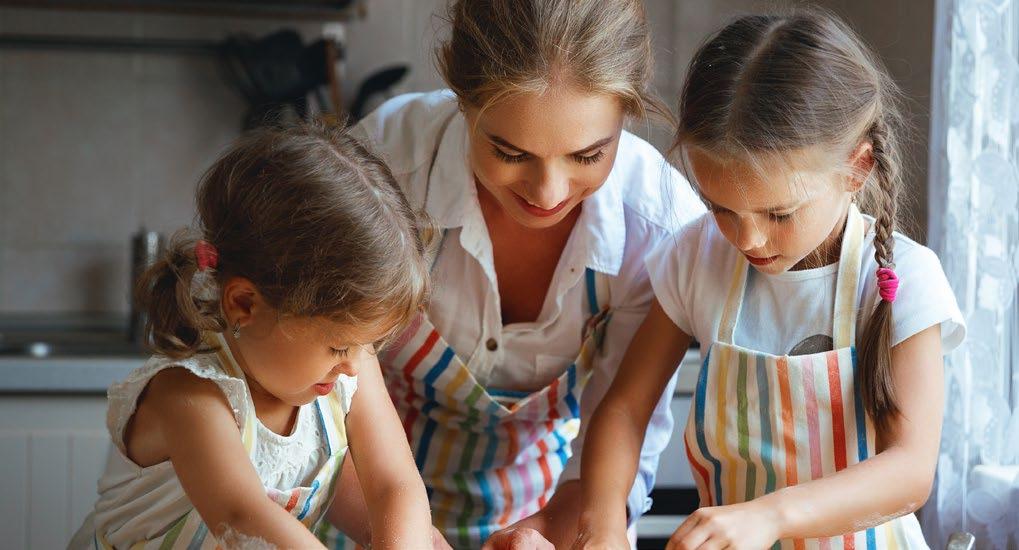
Suitable Recipes
When choosing a recipe to bake with children, it’s important to choose one that is developmentally appropriate. Make sure the recipe isn’t too complex for young ones, but also try to introduce new skills. Find a recipe that will allow a child to be hands-on in a safe way. For example, refrain from a recipe which involves handling boiling hot liquids and excessive use of sharp kitchen tools. Try incorporating seasonal or local produce that can be found in gardens or at the local farmer’s market. These whole foods are healthy and good for the environment, and shopping for them is another enjoyable experience to be done together. Lastly, we all love a naughty treat, but it’s a good idea to choose a recipe that promotes healthy food choices so they can learn about what’s good for their bodies.
Recipe Inspiration
Carrot & Oat Muffins
Perfect for young ones! A great snack and lunch box idea.
Preparation: 10 minutes Baking: 20-25 minutes
Double-dipped Shortbread Cookies

A fun bake with a few more skills. A lovely little treat!
Preparation: 20 minutes
Baking: 30 minutes
Ingredients:
• 200g salted butter (softened)
• 100g icing sugar
• 1 tsp vanilla extract
• 250g plain flour
• 1 tbsp milk, plus extra if needed
• 50g white chocolate (broken into pieces)
• 50g milk chocolate (broken into pieces)
Method:
› Preheat your oven to 350°F.
› Beat the butter with the icing sugar using a wooden spoon until the mixture is light and fluffy.
› Next, mix in the vanilla and flour. The mixture will stiffen
Cayman Parent Magazine | Nutrition44
•
and look like crumble as you add the flour. If the mixture gets too stiff, the adult might need to lend a hand.
› Add the milk and keep beating until the mixture softens and sticks together. Add a little extra milk if needed.
› For older children, scoop the dough into a piping bag fitted with a large star nozzle and pipe swirled rings. Start in the centre and swirl around until you have a small, circular cookie shape. For younger ones (and if the mixture is too thick to pipe) roll the dough into balls and place them on your baking sheet. The cookies will spread as they cook so ensure there is enough space between each cookie, so they don’t stick together.
› Bake the cookies for 15 minutes, or until lightly golden.
› Put the white and milk chocolate in separate bowls and microwave each one for 15 second bursts until melted. Don’t leave it too long in the microwave or it will burn.
› Here comes the fun bit! Dip the cookies into each chocolate – milk on one side, and white on the other. Let any excess drip off before popping them on a wire rack to dry.
baking powder – add the milk and mix everything together. Once combined, stir in the chocolate chips.
Spoon the batter into the tin and level the top. Bake for 30 minutes, or until the top is set and then cool completely.
Meanwhile, make the topping. Melt the milk chocolate, let it cool a little and then mix it with the soft cheese until fully combined and silky.
Spread the topping over the cooled brownies and cut into small squares – note that these brownies are very rich, so
Gooey Brownies

Great for all ages. They’re delicious served warm with vanilla ice cream!
Preparation: 10 minutes
Baking: 30-35 minutes
Ingredients:
• 100g unsalted butter (softened)
• 175g caster sugar
• 2 large eggs (beaten)
• 75g plain flour

• 50g cocoa powder
• 1 tsp baking powder
• 3 tbsp milk
4 tbsp mixed white and milk chocolate chips
100g milk chocolate
75g full-fat soft cheese
Method:
› Preheat your oven to 350°F and line a 20cm square brownie tin with baking parchment.
› Beat the butter and sugar together with a wooden spoon. Once it’s light and fluffy, slowly add the beaten egg
Sift in the dry ingredients – flour, cocoa powder and

Adult’s Role

• Ensure safety protocols are in place and teach children about safety along the way.
Handle food in a sanitary way and enforce proper hand washing procedures.
Adequate parent to child ratio to ensure safety.
Actively engage children in conversation.
Support children by describing what to do.
• Pose questions to encourage conversation (e.g. where do specific ingredients come from? What does this feel/smell/taste like?).
• Make observations for children to think about.
Model positive behaviours.
Ask probing questions to encourage children to think logically and problem solve.
All the taste, none of the hassle.
meals handmade in our kitchens, using the same ingredients



you would at home. Responsibly sourced. Freshly prepared.
nasty additives.
www.caymanparent.com 45
•
•
•
›
›
›
›
you don’t need a big one!
Frozen
as
No
BOXED KY
•
•
•
•
•
•
Top Family Dining Picks

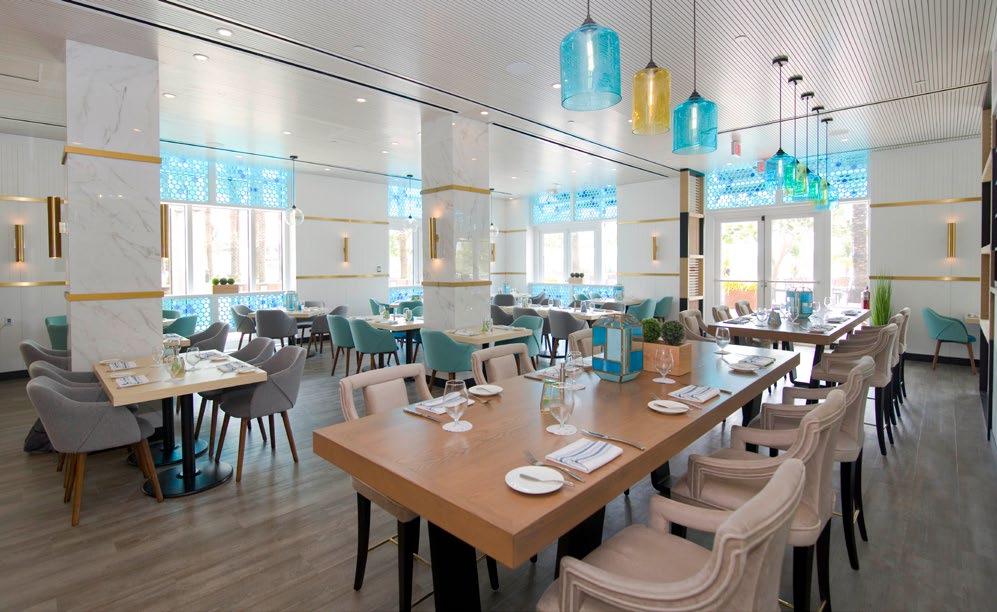
The Cayman Islands has been dubbed the Culinary Capital of the Caribbean, and with its impressive variety of diverse cuisine, it’s easy to see why. With over 200 restaurants and eateries across Grand Cayman and the Sister Islands, it’s a wonderful place to encourage your little ones to explore local and international fare. Cayman’s restaurant scene is ever-evolving as eateries continue to excite visitors and residents alike with bold flavours, unique experiences and Caymankind hospitality. With this in mind, we’ve collected some of our favourite, family-friendly dining options for a delicious meal that promises fun for all the family.

Agua
Agua has great offers throughout the week for families. Sit outside by the waterfront and relax as your children play on the grass and splash in the fountains. Camana Bay is a lovely, family friendly area to spend an evening, and you certainly won't be disappointed with Agua's fantastic food!
Anchor & Den
Across the weekend at Anchor & Den, little ones under four eat for free and kids aged 6-12 eat half price, as long as they are dining with adults! Enjoy looking at the terrapins outside and head out onto the veranda to watch the sun go down after your meal.
Cimboco
Cimboco is a family staple in Cayman. They have a great kid's menu available all day, and while children sit they can shape pizza dough before it’s baked in their oven! Not only that, but Cimboco also has colouring sheets available – perfect for the wriggliest of bottoms.
Driftwood Bar & Grill
Driftwood Bar & Grill at the Grand Caymanian Resort has a beach, pool and some relaxing swing seats. They have recently had pickleball courts installed which is a fun bat and ball game for all the family! When you book an hour of pickleball, you get the equivalent money back in Driftwood food and drink vouchers to spend on breakfast, lunch or dinner!
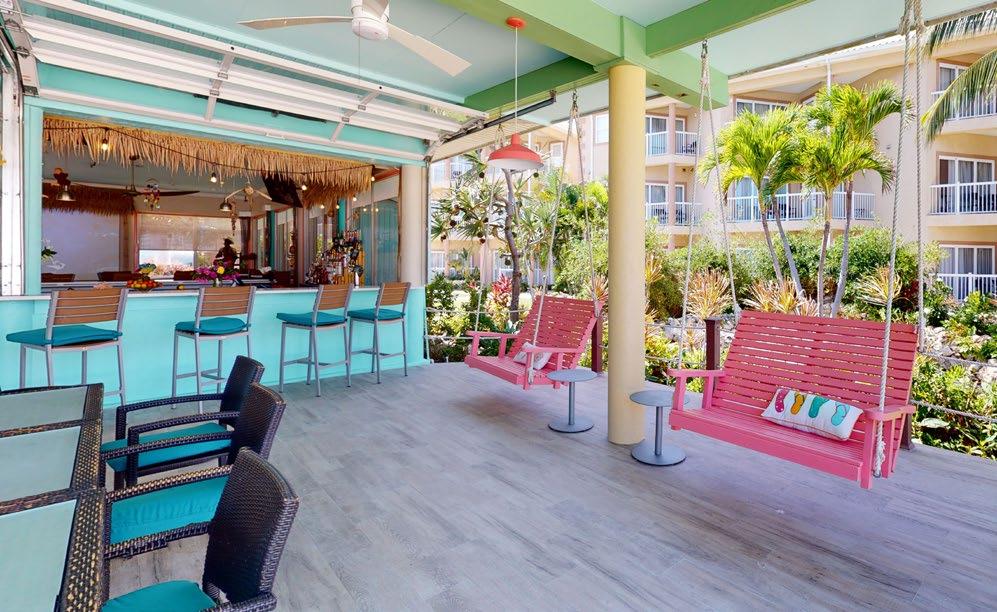
Cayman Parent Magazine | Nutrition46
George Town Yacht Club
Kids can enjoy splashing in the pool whilst the adults sip cocktails and enjoy the cool, island breeze. With their kid's menu and easy access to the airport, this is a hot spot for families.
Gino's Pizzeria
Located on Seven Mile Beach, Gino's Pizzeria makes a fantastic, New York-style pizza. Most recently, they have introduced scrumptious pizza cupcakes, filled with cheese, tomato and pepperoni - a tasty treat for all the family.

Kaibo

Take the ferry from Camana Bay across to Kaibo for a day out! Children can play in the water, or on the sand and tuck into a delicious dish from their kid's menu. There are also football nets on a sandy spot next to the restaurant, so it’s a great place for a kick-about with the kids.

Macabuca
Children can watch divers descend and emerge from Turtle Reef at Macabuca in West Bay. The iron shore is home to many a crab that children can spot as they play in the rock pools between courses. It is also right opposite the Turtle Centre and neighbours the Dolphin Centre, so it’s the perfect spot for a traditional Caribbean lunch after a day out seeing the animals!
Ms. Piper’s
When you dine at Ms. Piper’s, children can use their beautiful pool, and you can sit at the bar and sample their delightful cocktail menu!
Salty’s
Over in Red Bay, Salty’s has both a playground and a bouncy castle to entertain your little ones whilst you eat. They also offer a kid's menu with all their favourite classics!

The Wharf
Every night, with the ring of a bell, the nightly tarpon feeding is announced for guests of The Wharf at 7pm and 9pm. The large kid's menu is great for all picky eaters.
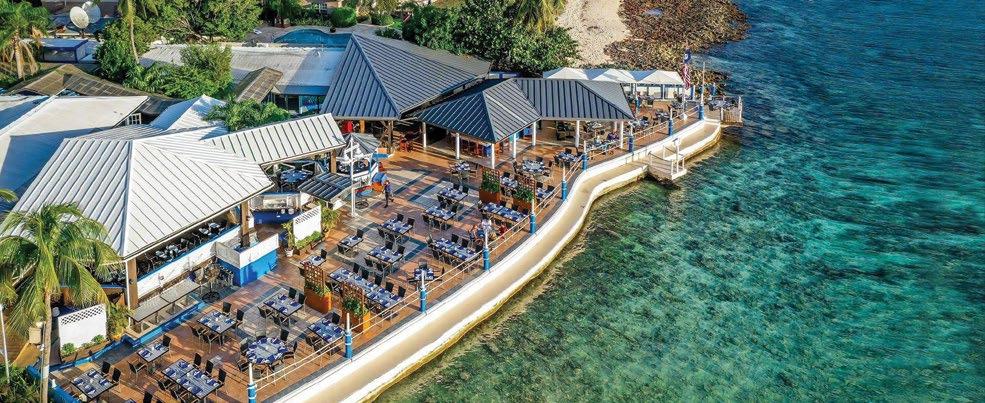
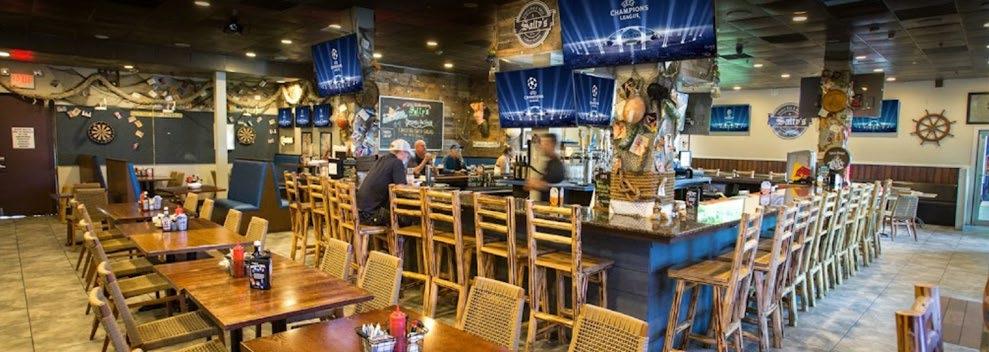
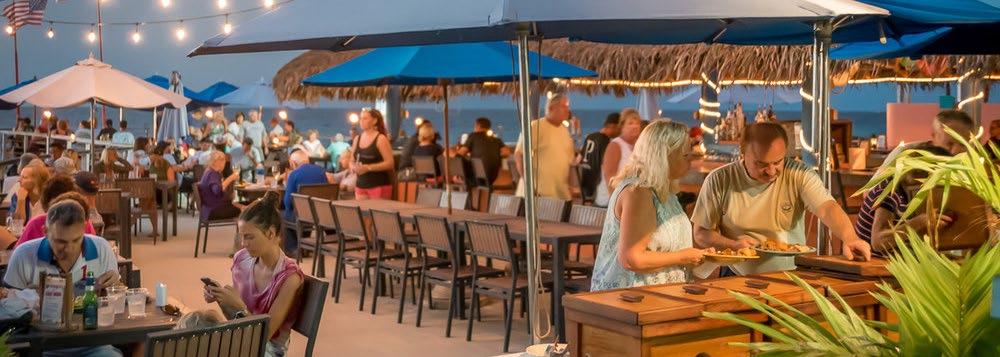
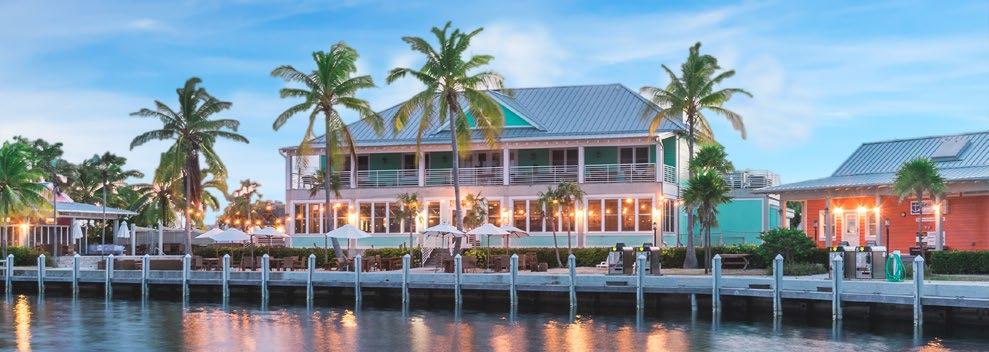
Tukka East
If you're in East End, you must stop at Tukka East for their scrumptious Caribbean/Australian fare! Each night, there is Frigate Bird feeding at 5.30pm. Tukka East also supplies food to the Parrot Sanctuary which is a really fun day out for all the family.
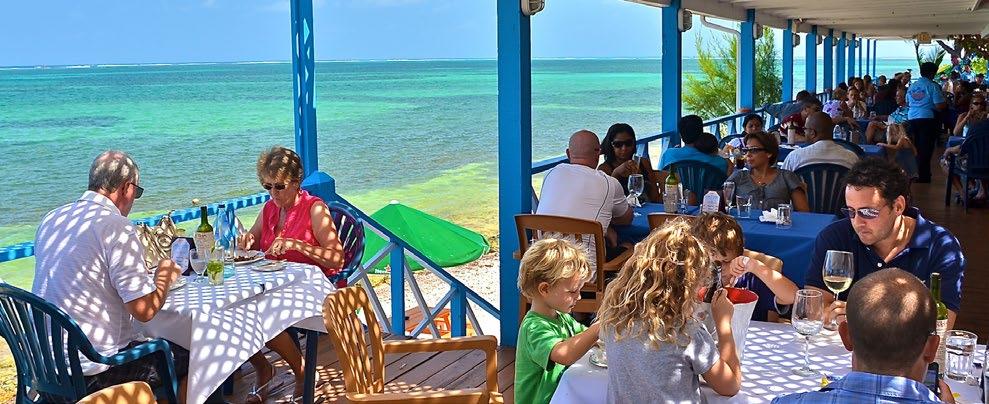
www.caymanparent.com 47
Nutrition Book Club
Best for Parents Best for Children
Whether your family is totally vegan or just looking to be less carnivorous, Morgan's book will help you cook delicious family feasts without giving up your favourite comfort foods. She proves that a vegan diet can be fun, healthy and delicious.

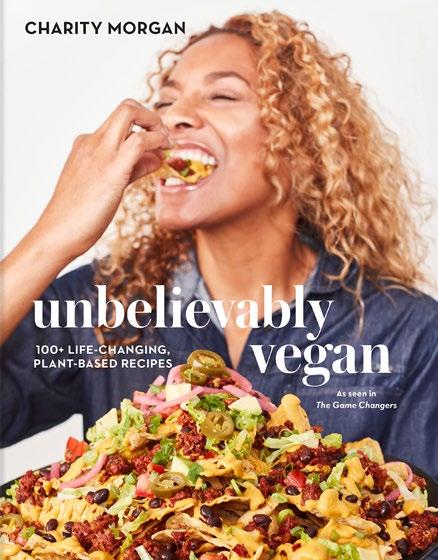
Proud Dad, Joe Wicks, helps to wean your baby from first foods to enjoying family meal times. His trustworthy and simple ideas are combined with expert guidance from a leading nutritionist. It will help lay the foundations for a lifetime of health and happiness.

Family meals that are fast, delicious and nutritious. Recipes that are perfect for a family that might have little time but big appetites! Even better, they are all made in one pan and ready to eat in 45 minutes or less!
Best Digital for Parents
feel better: deliciously ella makes health and wellbeing simple and accessible. Plantbased recipes, movement classes, mindfulness and meditation, and sleep. Helping you feel better every day. Free on Android and iOS.

Where does the food on my plate come from? This book teaches children about farm-to-table eating. Find out where food comes from and see the hard work of farming and the cool technology today’s farmers use.
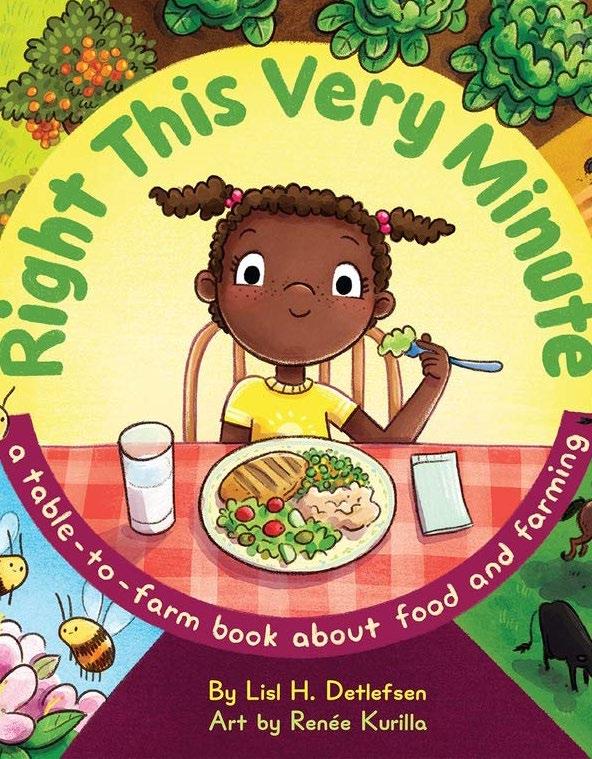
Teach your child about upper and lowercase letters whilst introducing them to fruits and vegetables from around the world.
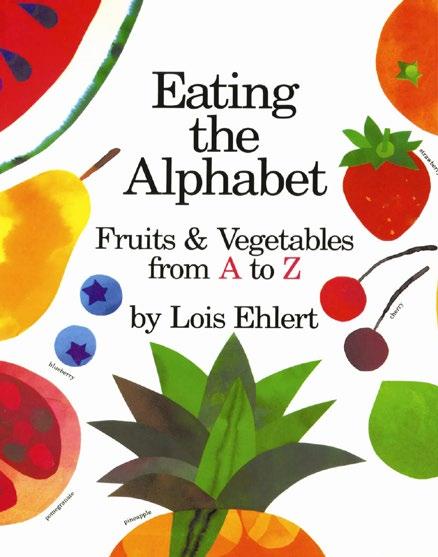
The glossary at the end provides interesting facts about foods to get them ready for mealtimes. There are so many special moments to celebrate as a family throughout the year and with Nadiya, your child can help join in with these moments by baking tasty treats for all to enjoy. Storybook meets cookbook meets activity book to make a delicious sweet treat.
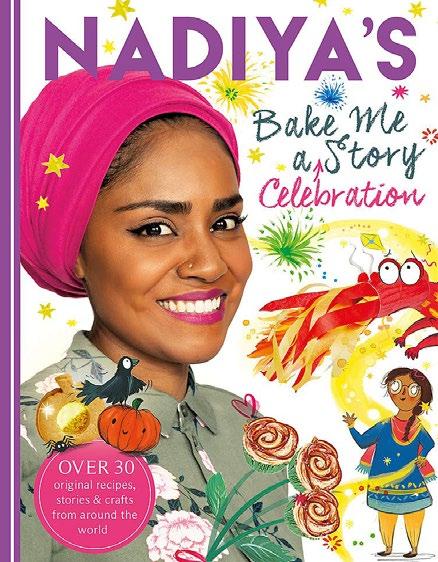
Best Digital for Children
Carrot Kitchen is the cooking buddy for kids. The app guides 6-13 year old kids to learn to cook at home. With a playful game-like experience, kids earn points while they progress and reach new chef levels. Free on Android and iOS.
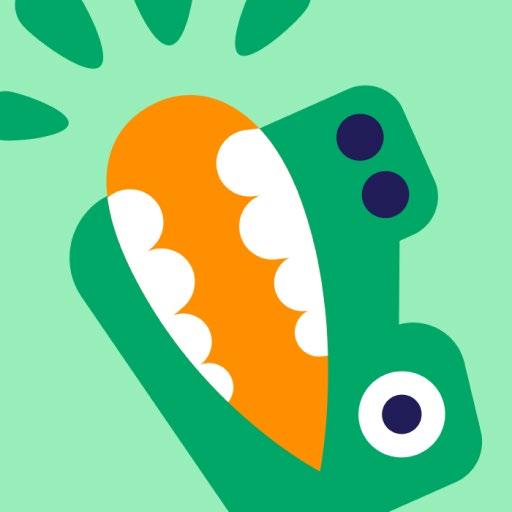
Cayman Parent Magazine | Nutrition48
Listings
Dieticians, Supermarkets, Farmers Markets and Supplements
Allergy Specialists
There are two different types of allergy testing done in the Cayman Islands. There is the environmental allergy testing for things like dust, grasses, weeds, blossom, and pet hair. You would use this test if you are breaking out in hives, have a persistent rash or your skin is very itchy and you have a constant runny nose. The other test is a food intolerance test and there are now two options for that: the ALCAT Test and MRT Mediator Release Test which both uncover food and chemicals that trigger chronic inflammation internally.
Cayman Clinic
439 Crewe Road, George Town. Tel: (345) 949 7400 Email: cayman.clinic@gmail.com Web: www.caymanclinic.ky Cayman Clinic conducts the ALCAT food intolerance test.
Dr. Louis A. Cona MD
The Strand Medical Centre, The Strand Shopping Centre, off West Bay Road. Tel: (345) 945 7077 Email: thestrandmedicalcentre@candw.ky Web: www.caymandoctor.ky Dr. Cona conducts the ALCAT food intolerance test.
Dr. Frank Glatz MD FABO FAAOHNS FAAOA FAASM
Cayman E.N.T. Associates, 2 Alexander Place, Dorcy Drive, George Town. Tel: (345) 945 3822 Email: drbob@candw.ky Web: www.entcayman. com Dr. Glatz is an Ear, Nose and Throat Surgeon, certified Sleep Medicine Physician and can test for environmental allergies.
Dr. Ulrich Ecke MD, ENT, Head & Neck, Otolaryngology
ENT in Cayman, Pasadora Place, 94 Smith Road, George Town. Tel: (345) 745 3253 Email: info@ entincayman.com Web: www.entincayman.com ENT in Cayman' s allergologist offers a range of tests to help diagnose allergies.
Dieticians & Nutritionists
Andrea Hill BCHN, MS, BASc
Tel: (345) 938 4246 Email: andreahill.nutrition@ gmail.com Web: www.andreahillnutrition.
com A Holistic Nutrition Educator and Board Certified in Holistic Nutrition with the National Association of Nutrition Professionals (NANP). Specialises in female hormonal health for
menopause and perimenopause. Helps adults and children work on getting a balanced diet for optimal health.
Brandi Propas MHSC, RD, CCDE
International Medical Group, 30 Pasadora Place, Smith Road. Tel: (345) 945 2881 Email: info@intmedicalgroup.com Web: www. intmedicalgroup.net.
Cayman Islands Hospital
95 Hospital Road, George Town. Simone Sheehan, Tel: (345) 244 2655 Email: simone. sheehan@hsa.ky, Tamara Riley, Tel: (345) 244 2663 Email: tamara.riley@hsa.ky.
Cayman Nutrition
227 Smith Rd, George Town. Tel: (345) 525 2019 Chad Collins RD, Email: caymannutrition@gmail. com, Jessica Watterworth RD, (Paediatrics Specialty) Email: caymannutritionjessica@ gmail.com Nutritional advice as well as counselling on various nutrition related concerns. They also offer allergy testing. Vitamin/Mineral and Nutritional Genetic testing as well as 3D Body Scans.
Kristen Lomas RD MBA
Seven Mile Medical Clinic, Queens Court Plaza, West Bay Road. Tel: (345) 949 5600 Email: klomas@sevenmileclinic.ky Seven Mile Medical Clinic offers the ALCAT food intolerance test.
Total Health
The Grand Pavilion Commercial Centre, Bougainvillea Way, 802 West Bay Road, SMB. Tel: (345) 333 2222 Email: info@totalhealth. ky Web: www.totalhealth.ky Nutritional management for weight loss, diabetes management, inflammation and sports and exercise nutrition.
Supermarkets
Chisholm's Grocery
1240 North Side Road, North Side. Tel: (345) 947 9418 Open seven days a week selling a full range of groceries.
Foster’s – Five locations:
> Airport Centre, Tel: (345) 949 5155
> Camana Bay, Solaris Avenue, Tel: (345) 945 4748
> Republix Plaza, West Bay, Tel: (345) 949 3214
> Countryside Shopping Village, Savannah, Tel: (345) 943 5155

> East End, Morritt’s, Tel: (345) 947 2826 Web: www.fosters-iga.com Offers a friendly in-store experience with all the food options needed for a growing healthy family. They also carry Waitrose products.
Hurley’s Supermarket
Grand Harbour, Red Bay. Tel: (345) 947 8488 Web: www.hurleys.ky A good choice of baby food, children’s food, plus child and baby essentials.
Kirk Market
413 Eastern Avenue, George Town. Tel: (345) 949 7022 Web: www.kirkmarket.ky An exceptional selection of baby and children’s food with a good choice of organic options. Baby and childcare essentials such as nappies, formula, bibs, cutlery and more.
Farmers Markets
Camana Bay Local Harvest Market
The Paseo, Camana Bay. Web: www. camanabay.com Every Wednesday 10am4pm, local purveyors offer fresh produce and farm goods as well as an eclectic selection of artisanal products and handicrafts.
The Market at the Cricket Grounds
Huldah Avenue, next to the cricket pitch, GT. Web: www.caymanfarmersmarket.com
Monday to Saturday from 7.30am-5.30/6pm (Saturdays, the market closes between 3pm and 4pm). Fresh local fruits, vegetables and herbs, fresh fish and all-natural meats and eggs. Arts, crafts, beauty products and locally made jewellery are also for sale.
Vitamins & Supplements
GNC
Queens Court, West Bay Road. Tel: (345) 945 7690 and Country Corner, Savannah. Tel: (345) 946 7235 GNC has the largest selection of vitamins, sports nutrition and wellness products available on the Island. A centre for personal preventative nutrition and wellness advice which offers something for every member of your family.
Island Naturals
Earth Close, off West Bay Road. Tel: (345) 946 3321 Email: retail@islandnaturals.ky.
www.caymanparent.com 49
the
Make your dream a reality
Make your dream a reality
Make your dream a reality
VACATION IN CAYMAN
VACATION IN CAYMAN
VACATION IN CAYMAN
Cayman Villas goes the extra mile to create a unique vacation experience. Our on-island
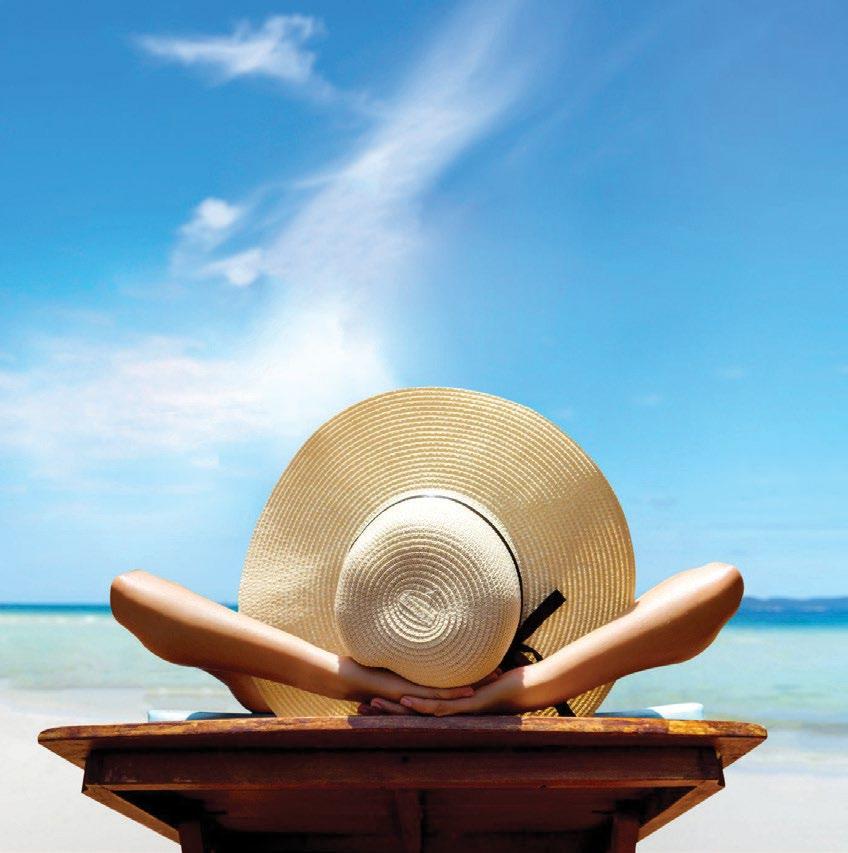



are here to help make your home away from home the vacation that you deserve.
Cayman Villas goes the extra mile to create a unique vacation experience. Our on-island Specialists are here to help make your home away from home the vacation that you deserve.
Cayman Villas goes the extra mile to create a unique vacation experience. Our on-island Specialists are here to help make your home away from home the vacation that you deserve.
STAYCATION BLISS
AMAZING RATESPRIVATE RETREATS
AMAZING
Choose from over 70 gorgeous beach front villas and condos across Cayman. Perfect for family escapes
over 70 gorgeous beach front villas and condos across Cayman. Perfect for family escapes
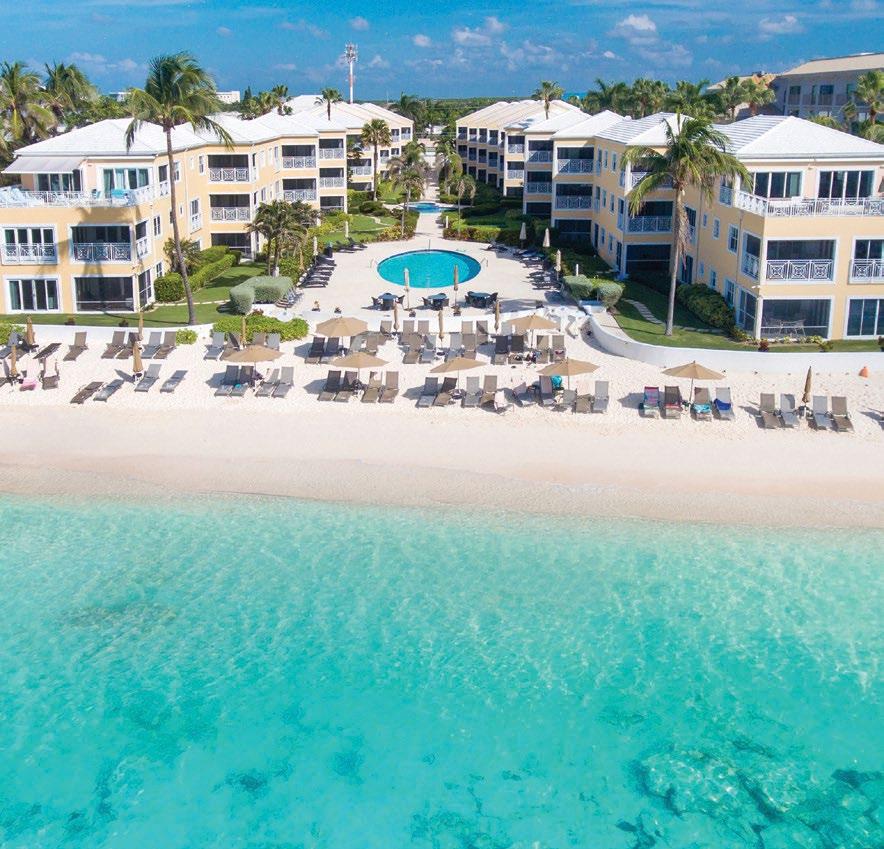
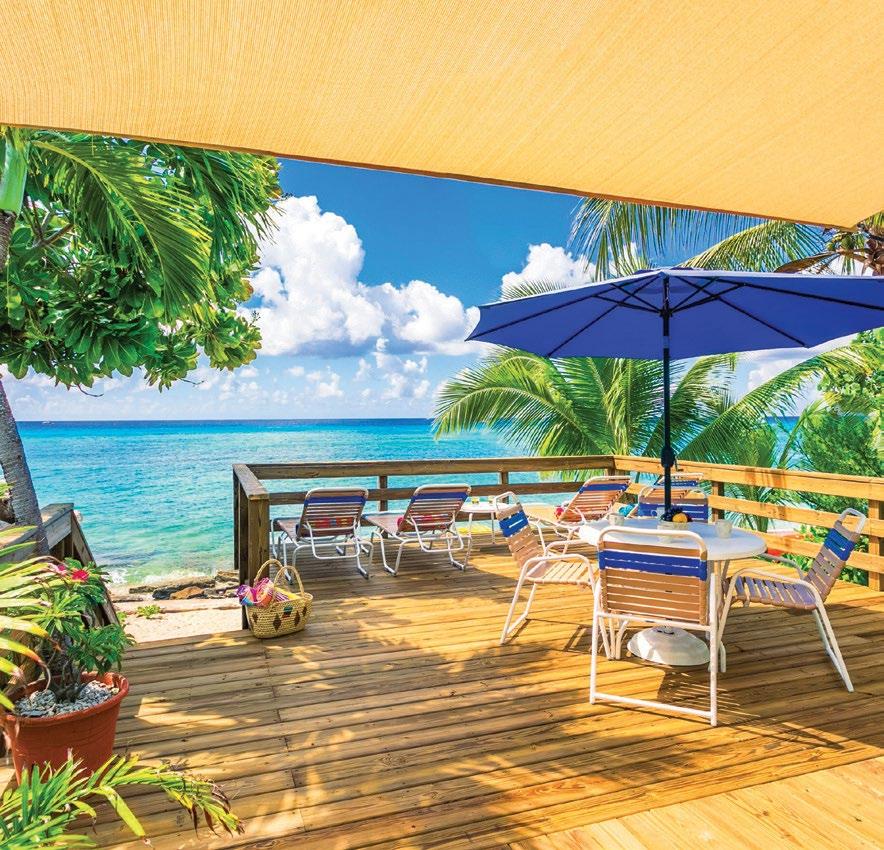


over 70 gorgeous beach front villas and condos across Cayman.
over 70 gorgeous beach front villas
family
for family escapes
romantic getaways.
Make the most of your vacation in a private villa
Make the most of your vacation in a private villa
Make the most of your vacation in a private villa
most of your vacation
on
on
the pool.
relax on a beach, or by the pool.
Cayman Villas team are here to assist
your vacation
fantastic
range
We have a fantastic selection of vacation properties at a range of great rates to suit your budget. Visit our website to view all our properties.
Make the
in a private villa – relax on a beach, or by the pool. The Cayman Villas team are here to assist you with all your vacation needs. Choose from
and condos across Cayman. Perfect for
escapes or romantic getaways. We have a
selection of vacation properties at a range of great rates to suit your budget. Visit our website to view all our properties. 1.345.945.4144 | 1.800.235.5888 | reservations@caymanvillas.com | www.caymanvillas.com |
– relax
a beach, or by
The Cayman Villas team are here to assist you with all your vacation needs. Choose from
Perfect
or romantic getaways. We have a fantastic selection of vacation properties at a
of great rates to suit your budget. Visit our website to view all our properties. 1.345.945.4144 | 1.800.235.5888 | reservations@caymanvillas.com | www.caymanvillas.com |
Specialists
–
The
you with all
needs.
or
1.345.945.4144 | 1.800.235.5888 | reservations@caymanvillas.com | www.caymanvillas.com |
STAYCATION BLISS
RATESPRIVATE RETREATS
– relax
a beach, or by the pool. The Cayman Villas team are here to assist you with all your vacation needs. Choose from
or romantic getaways. We have a fantastic selection of vacation properties at a range of great rates to suit your budget. Visit our website to view all our properties. 1.345.945.4144 | 1.800.235.5888 | reservations@caymanvillas.com | www.caymanvillas.com |
STAYCATION BLISS AMAZING RATESPRIVATE RETREATS

www.caymanparent.com 51 Wellbeing Supplements, aesthetic treatments & exercise for mental health... Top Supplements & Vitamins p52 for Frazzled Mums and Dads Sleep Therapy: The p55 Importance of Sleep Aesthetic Treatments to p58 Turn Back the Clock Exercising with Your Mental p62 Health in Mind 15 Ways to Relax & Unwind p66 The Menopause: Demystified p69 The Body-Mouth Connection p72 A Guide to Pre & Postnatal p74 Exercise Wellbeing Book Club p76 The Listings p77Contents Photo courtesy of Daria Keenan Photography
Top Supplements & Vitamins for Frazzled Mums & Dads

Life is busy, and as we have children, we add more and more to our plate. Many parents are constantly running from work, to pick-up, to home, feeling huge levels of exhaustion that we just have to push through. But is there more to it? Is it more than just feeling exhausted? Have you had unexplained weight loss as well as fatigue, cracks in the corners of your mouth, constipation, even depression and anxiety? All these symptoms can be related to a lack of essential nutrients, but how do you figure out what you are lacking? Where do you start?
Hippocrates, the Greek founder of Western medicine, was a believer that food and exercise could be a person’s medicine. However, many of us do not eat a balanced organic diet, and most of our fresh fruit and vegetables are imported from overseas, losing vital nutrients in the time it takes to get from the field to our plate. Add to that, farmed fish that have high levels of PBCs; USAraised non-organic pork and beef containing growth hormones, steroids and antibiotics; and many crops (lentils, peas, nonGMO soyabeans, corn, flax, rye, buckwheat, millet, sugar beets, potatoes, wheat and oats) being sprayed with glyphosate which is a controversial herbicide that the world’s leading cancer authority has named as a probable human carcinogen. Even labels can be hard to decipher – manufacturers are only required to list vitamin C, vitamin D, calcium, iron and potassium in their food, so it can be hard to tell whether your food provides sufficient nutrients. The best foods that provide a variety of vitamins, minerals, fibre, and phytonutrients do not have a food label – fruits and vegetables! This should be the foundation of every person's diet. Having said that, someone who is vegan must pay extra attention to their diet as they will often require extra supplementation for B12, iron, calcium and vitamin D.
All these genetically modified, hormone and antibiotic-filled foods are safe to eat according to the FDA, but do they contribute
to your feelings of tiredness and exhaustion? Some might well think they do. So what to do about it?
Tests You Can Take
Firstly, there is now an interesting test one can take called the SpectraCell Micronutrient Test which measures 31 vitamins, minerals, amino/fatty acids and antioxidants on a cellular level in your blood and will explain which ones you are deficient in. Regardless of how well you eat, some people have what is called a ‘snip’ on their DNA, which means that they cannot absorb a certain vitamin (or two). So, if for example, you have a snip on your DNA which does not allow you to absorb certain B vitamins, which are essential for energy production, then maybe you do need to take supplements to boost what your body is struggling to absorb.
Other Things to Consider
Are you eating a sensible, balanced diet that includes a variety of foods and a good balance of vitamins and minerals? Do you have a diet that is high in sugar? Do you have a limited diet, i.e. you eat the same breakfast every morning with the same exact ingredients? If so, over time, your body is more likely to develop nutritional inadequacies and deficiencies. Do you consume enough fibre? Do you get plenty of sleep and do you drink
Cayman Parent Magazine | Wellbeing52 WELLBEING
enough water? All these things are essential in your effort to stay healthy and keep your energy levels up.

Risks of Taking Too Many Vitamins
Please note that there are risks associated with taking too much of any one vitamin or mineral. For example, too much vitamin A can cause frontal headaches, too much zinc can cause nausea and vomiting, too much selenium can cause hair loss and too much vitamin C can cause diarrhoea. Taking Vitamin C at the same time as Vitamin B12 will reduce the amount of B12 that you can absorb, so take them at least two hours apart. Taking too much Vitamin E can lead to increased bleeding and can stop the absorption of Vitamin K, which is essential for blood clotting. Then there are well-known contraindications with vitamins interacting with medications. You are strongly advised to talk to a registered dietitian before you jump into taking lots of vitamins and minerals.
Five Routine Blood Tests
Routine bloodwork can also help catch issues before they become a problem. The five routine tests include:
1. A broad thyroid panel.
2. Essential nutrients of iron/ferritin, Vitamin D, B12 and Magnesium.
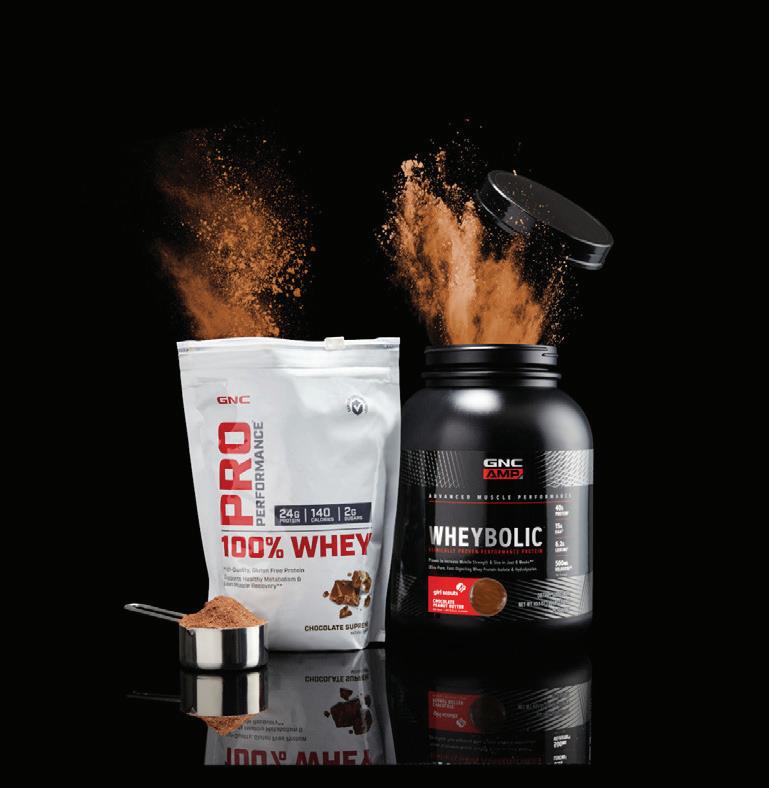
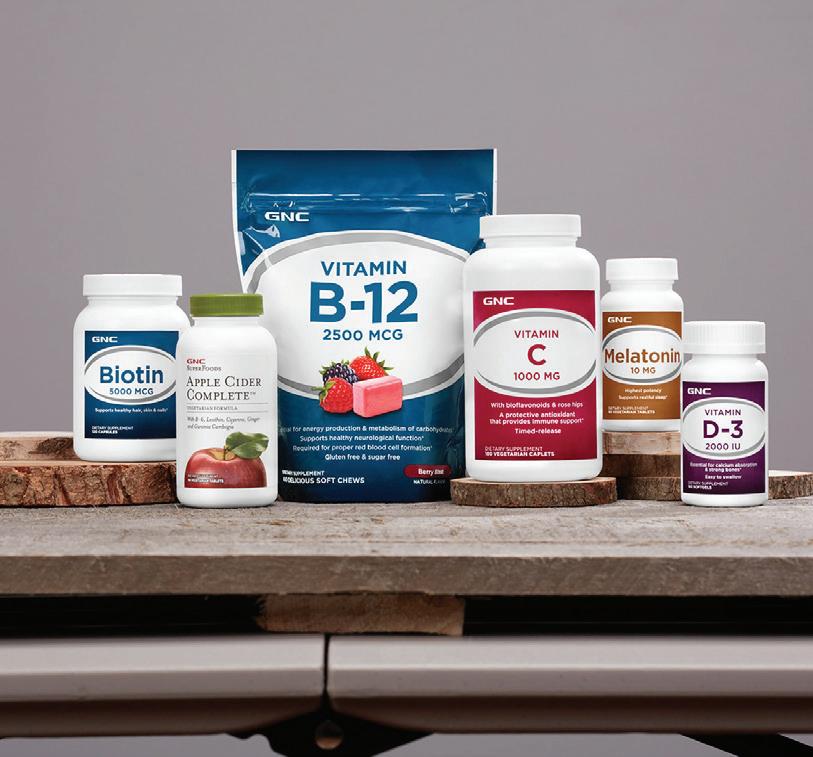

3. A complete metabolic panel and a complete blood count.
4. Measuring your metabolic markers: haemoglobin, fasting glucose and insulin and lipid panel.
5. Inflammatory markers: hsCRP and homocysteine.
Other Things to Think About
If these tests don’t come up with anything significant and you still feel exhausted, then try the following: 1) Get your house checked for mould. It’s a simple and easy process. If you or your children are constantly sick with colds, then secret mould could be the cause. 2) Look at how much exercise you are getting. Everyone needs to move their bodies. 3) Get an allergy panel and/or a food intolerance blood test done. This will show how you develop IgE (antibodies produced by the immune system) with certain foods that you eat. If something comes back showing that your body is producing lots of antibodies when you eat potatoes or eggs, for example, that could well be the reason you are feeling so exhausted. 4) Take a look at your diet and analyse your food choices before you jump into taking supplements. Taking a supplement isn't always the most effective long-term solution.
www.caymanparent.com 53
GNC has the largest selection of vitamins, sports nutrition and wellness products available in the Cayman Islands. Their highly experienced Nutritional Consultants are ready to work one-on-one with a wide demographic of customers to achieve their personal health goals, offering something for everyone in the family. (345) 945 7690 / (345) 946 7235 • Queens Court Plaza, Seven Mile Beach and Country Corner, Savannah Multivitamins for every member of the family • Full range of Sports Nutrition products • Diet • Omegas and Probiotics • Herbs and Superfoods • And a whole lot more!
Cellular Repair For: Orthopedics Auto-immune Diseases Diseases Of Aging Cosmetics Wellness
Stem cells have the ability to renew themselves and become many other types of cells. They are a natural repair and regeneration system that allows us to recover from injury and disease.
While we can treat any condition responsive to procedures that use your own cells, a great deal of our work involves treating orthopaedic conditions so as to alleviate pain and, in many cases, avoid major surgery
However, if you have reviewed your diet and you are drinking enough water, eating sufficient calories, and adequately balancing quality proteins and healthy fats with fibre-rich carbohydrates, but still need that energy boost, an active B-complex that provides methylcobalamin can be helpful. So could magnesium, as it's involved in over 300 enzymatic reactions in the body.
If you are pregnant then it is definitely recommended that you speak to your doctor before starting any new supplements. Generally, a high-quality prenatal vitamin can be helpful as a pregnant woman's body needs more of everything – calories, protein, calcium, iron, zinc and B vitamins, for instance. Omega-3 can also be helpful for a baby's brain development.
How to Start a Good Supplements Routine
Start with your doctor or a natural healthcare provider like a registered dietitian or a holistic nutrition educator. They can study what you are eating, recommend tests and then build a plan for you that can help lift the fog, feel healthier and less tired as you continue your busy life.
Where to Buy Vitamins & Minerals
In Cayman, you are really spoiled for choice in where to buy vitamins and minerals as all the supermarkets and pharmacies sell a selection. GNC has two locations (Queens Court and Countryside) and Island Naturals in Coconut Village sells them as well. GNC and Island Naturals also sell sports nutrition products, as do the gyms.
The most extensive procedure for orthopaedic issues will use stem cells from fat, bone marrow and platelet rich plasma from the blood. It will take approximately three hours to extract the cells, prepare and reinject them into the patient.
Injectable Vitamins & Supplements
body absorbing what it needs.
Cellular Repair For: Orthopedics

Auto-immune Diseases
Once the stem cells are injected into the joint or tissue, they will start to release various growth factors that will begin the healing process. You should start to see an improvement at about six weeks.
IVs are a wonderful way to get a high dose of Vitamins, Minerals and Antioxidants directly into the bloodstream. The nutrients are infused into the circulation and delivered directly into the cellular space without going through the digestive tract.
Diseases Of Aging Cosmetics Wellness
Please call us to learn more about which therapy is best suited for you.
13 Belmont Close, Crewe Road
IVs will detoxify your liver, kidneys and help to metabolize toxins, carcinogens and activate enzymes to prevent illness and restore energy.
+1 (345) 949 8676 (Clinic)
(345) 939 4505 (Cell)
Stem cells have the ability to renew themselves and become many other types of cells. They are a natural repair and regeneration system that allows us to recover from injury and disease.
While we can treat any condition responsive to procedures that use your own cells, a great deal of our work involves treating orthopaedic conditions so as to alleviate pain and, in many cases, avoid major surgery
Please call us to learn more about which therapy is best suited for you.
13 Belmont Close, Crewe Road
+1 (345) 949 8676 (Clinic) +1 (345) 939 4505 (Cell) Health@Pensum pro
PensumMed pro




NAD or Nicotinamide adenine dinucleotide IV therapy can help stimulate cell regeneration in your body. Our natural levels of NAD decline as we age, so replenishing them may help clear brain fog, increase mental clarity and metabolic function, boost energy, memory and concentration, improve athletic performance, create a superior immune system, detox and cleanse and support addiction recovery.

The most extensive procedure for orthopaedic issues will use stem cells from fat, bone marrow and platelet rich plasma from the blood It will take approximately three hours to extract the cells, prepare and reinject them into the patient.
IV therapy allows you to inject vitamins and minerals directly into your bloodstream, bypassing the normal process of digestion and absorption through the gastrointestinal tract. IV drips deliver a higher concentration of certain vitamins and minerals into the bloodstream at a quicker rate. Popular options include vitamin C, vitamin D and vitamin B shots. All of the above IV therapies are available at Pensum Regenerative Medicine (Tel: (345) 949 8676).
Once the stem cells are injected into the joint or tissue, they will start to release various growth factors that will begin the healing process. You should start to see an improvement at about six weeks.
Nutritionists & Dietitian
Going to talk to a dietitian or holistic nutrition professional can often be the best money you can spend! They can explore what you are eating, discern what you might be lacking and make invaluable suggestions. Cayman Medical Group has a dietitian on staff every Saturday, and Seven Mile Medical Clinic, the Cayman Islands Hospital, Total Health and Cayman Nutrition all have Registered Dieticians on staff. Or you can contact Holistic Nutrition Educator Andrea Hill BCHN MSc on (345) 938 4246.
Cayman Parent Magazine | Wellbeing54
www
C M Y CM MY CY CMY K
IVs available: COQ10 GLUTATHIONE MYERS COCKTAIL VITAMIN C MULTI VITAMINS NAD HYDRATION
+1
Health@Pensum pro www.PensumMed.pro
Pensum-CaymanResident-PR.pdf 2 24/08/2021 2:29 PM
Sleep Therapy: The Importance of Sleep
A decent night’s sleep is as important for your mental and physical wellbeing as a healthy diet and regular exercise. The consequences of poor sleep go far beyond feeling fatigued. Lack of sleep impacts brain function, can increase your risk of heart disease, diabetes and high blood pressure, and is linked to depression.
What is ‘Good’ Sleep?
The National Sleep Foundation advises that healthy adults require seven to nine hours of sleep per night, teens require eight to ten, and babies can need up to 17. However, getting the right kind of sleep is just as important as the duration. Throughout the course of the night, the body goes through various sleep cycles, each of which has four defined stages. During the ‘deep sleep’ stage, our heart rate decreases, our muscles relax and our brain waves slow down: this is the most restorative sleep stage, when our bodies release human growth hormone (HGH) which gets to work repairing and regrowing tissues, resetting our brains, consolidating memories and strengthening our immune system. As you age, the amount of deep sleep you get each night naturally decreases. It then becomes increasingly important to make sure your lifestyle choices and sleep habits are conducive to a good night’s sleep.
Improve Your Sleep Quality
We all have an internal body clock that runs continuously in the background, regulating when we wake and when we sleep. Known as the circadian rhythm, this 24-hour cycle drives the release of certain hormones that control whether we feel alert or drowsy. Certain lifestyle habits can influence this cycle and affect when and how we sleep. To maximise your sleep quality, consider the following:
1. Develop a consistent sleep routine Sleep experts agree that establishing a regular sleep routine is essential to ensuring you fall asleep easily and stay asleep. The key is to set a regular wake-up time and stick to it, regardless of how tired you are. If you’re getting enough sleep, you shouldn’t need an alarm to wake up, so if you are struggling to get up in the morning, bring your bedtime forward.
Avoid long lie-ins, even on weekends, and don’t give in to long daytime naps, as these will disrupt your internal body clock and leave you feeling less tired when bedtime comes around. If you need a power nap, keep it to a maximum of 5-20 minutes.
2. Exercise early Exercise is essential to overall health, and because it tires you out physically, it can help you fall asleep quicker. But there is a caveat: when you exercise can affect how you sleep. Because working out elevates your heart rate, speeds up your metabolism and stimulates the release of cortisol (the hormone that makes you feel alert and energised), intense exercise right before bedtime can end up keeping you awake. Aim to exercise earlier in the day and stick to breathing exercises or gentle stretches in the evenings.

www.caymanparent.com 55
3. Avoid caffeine, alcohol and too much liquid
Caffeine is a well-known stimulant, and for many, it’s an essential for getting going in the morning. However, its effects linger in the body for six to eight hours, so avoid caffeinated products after around 4pm.
Alcohol, too, can cause interrupted sleep. Although a nightcap can act as a sedative and help you fall asleep faster, as it wears off it has the opposite effect. This is why so many people report falling asleep fast but waking up at 2am or 3am after drinking.
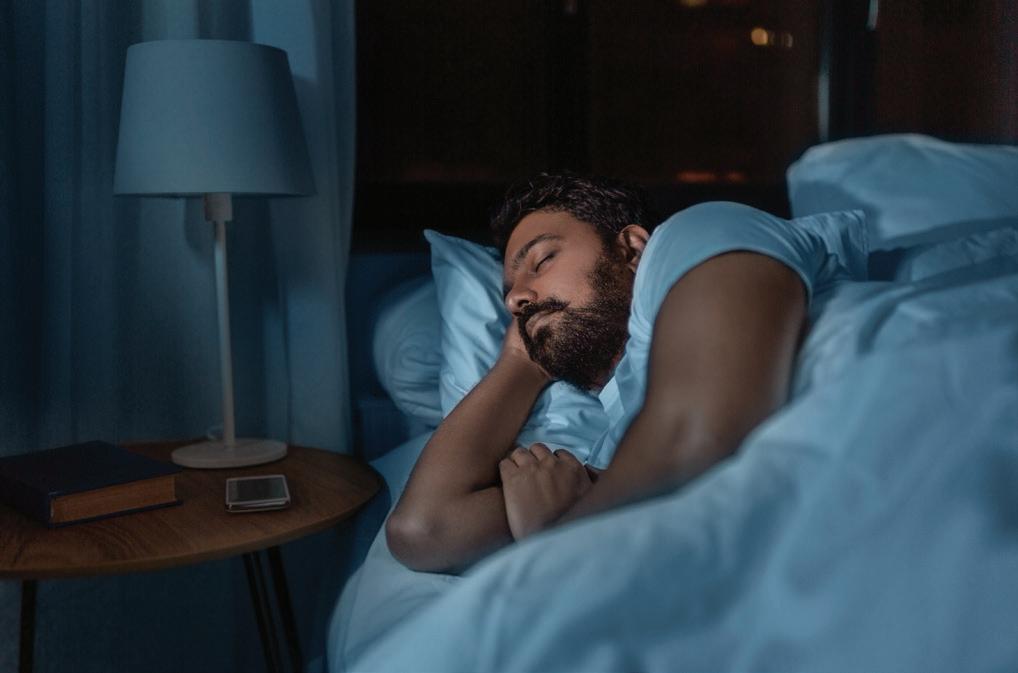
According to Dr Matthew Walker, a well-known sleep scientist, as a by-product of your body metabolising alcohol, the chemical aldehyde is created, and aldehydes are known to block your brain from entering REM sleep (also known as dream sleep). For
a restful sleep, avoid alcohol several nights a week and don't drink in excess.
Waking up in the night to use the bathroom and not being able to get back to sleep is also a common complaint. If this sounds familiar, try not to drink fluids of any kind for at least two hours before bed to minimise your chances of waking up in the night. If you do wake up, try to get to the bathroom and back without looking at any light.
4. Wind down for bed
Once you’ve turned off those devices, spend the next hour or two engaging in activities that will help you unwind and prepare you for sleep. This might be reading a book, listening to music or putting an audiobook on. For some, having a warm bath or shower is a great way to relax. For others, writing a todo list for the following day, getting the next day’s outfit ready or preparing the kids’ packed lunches can all help to make you feel more organised and therefore less prone to running through mental lists when you get into bed.
5. Create an inviting bedroom
Your bedroom should be the most comfortable room in your house, and a place that provides a welcoming retreat at the end of a busy day. Create an inviting space with beautiful bed linens made with quality fabrics that feel great on the skin. Add cushions to your bed and mix different sizes and textures to give your bedroom a luxurious, hotel-style feel. Soft and cosy
SLEEP
Dedicated to crafting the very finest soft home decor for over 30 years, Eastern Accents is passionate about beautiful textiles and trend-leading design. Discover their latest beautiful bedding collections at Bedside Manor.

Cayman Parent Magazine | Wellbeing56 WELLBEING
WELL Market Street, Camana Bay 345 947 2711 DreamTeam@bedsidemanor.ky @bedsidemanor @bedsideky www.bedsidemanor.ky
blankets will also make your bed feel enticing, and will come in handy if you are someone who likes to crank up the air con at night! To make this dream a reality, head to Bedside Manor which has a wide range of quality linens, duvets, pillows and more to elevate your bedroom space. It also offers plenty of accessories and decorative items to really help your bedroom feel as homely as possible!
6. Make your bedroom an oasis of sleep



Create the right conditions for sleep. This generally means a space that is cool, dark and quiet. For most, the ideal temperature is around 24°C/75°F, so turn the airconditioning down, put the fan on and, if necessary, get a blanket out. The room should also be very dark, so invest in some heavy curtains or blackout blinds, and quiet – noise is a major impediment to sleep.
Electric fans are a great way to create white noise to drown out other irritating sounds – and keep you cool at the same time. An alternative is to listen to a sleepcast (a podcast designed to send you to sleep) which talks you through some relaxing breathing exercises and sends you off to sleep.
7. Make sure your bed is up to the task

Did you know that mattresses should be replaced every five to eight years? A bad mattress and the wrong sort of pillow can cause back and neckache and really impact your sleep quality. A good mattress, on the other hand, can solve aches
and pains, and even make you look forward to going to bed!
Talk to the experts at The Mattress Gallery or The Mattress Experts for advice on the best type of mattress, pillow and bedding depending on whether you prefer soft or firm, whether you sleep on your side, back or front, and whether you tend to feel warmer or cooler at night.


8. Reduce blue light exposure before bed Because our circadian rhythm is heavily influenced by light, exposure to bright lights before bedtime can trick our bodies into being more wakeful. Blue light in particular – the light emitted by TVs, tablets and phones – is known to suppress the release of melatonin, the hormone that causes drowsiness.
Of course, we all like to wind down at the end of the day by watching a movie or scrolling through social media, but consider dimming the lights when you do so and imposing a blue light curfew whereby electronic devices must be switched off one to two hours before you go to sleep.
TOP TIP: When to Seek Professional Help
Everyone can experience sleep problems from time to time, however, you should speak with your doctor if your quality of sleep is interfering with your daytime activities and your ability to function. For a list of medical professionals who can advise you, see page 172.

Sleep
www.caymanparent.com 57
better at any age… At The Mattress Gallery by Tomlinson Furniture we know that your perfect night’s sleep is unique and we believe your mattress should reflect that. We promise to help make your mattress buying experience easier by offering our Sleep Better Guarantee so you can buy in confidence. 9 Walkers Rd, Tomlinson Building, George Town (345) 949-5383 or (345) 526-2337 e: info@tomlinsonfurniture.my l www.tomlinsonfurniture.ky
Aesthetic Treatments to Turn Back the Clock
Time, stress, lifestyle choices and sun exposure all take their toll on our faces and bodies – so much so that sometimes what we see on the outside doesn’t match how we feel on the inside.
For some of us, the visible signs of ageing can make us selfconscious and be a blow to our self-esteem. If what you see in the mirror is affecting your outlook and your overall happiness, or if you would simply like to look as young as you feel, it might be time to consider rejuvenation treatments.
Whether you want to erase lines and wrinkles, tighten loose skin, restore volume or regain that youthful glow, there are various treatments available that target all the different signs of ageing. Unlike the invasive facelifts of old, many of these procedures are non-surgical and don’t require extended, or indeed any, downtime. Often, they can be performed in under an hour, so it’s possible to get a treatment in your lunch hour and get right back to your life, without anybody needing to know.
Most fillers are formulations containing hyaluronic acid, a substance that occurs naturally in the skin, helping to keep it hydrated and plump, so it is well tolerated. There are numerous brands of dermal filler on the market, including Juvederm, Radiesse and Restylane, each offering different product lines for different applications. Your aesthetician will help you decide which is the most suitable filler depending on your skin type, age and areas to be treated.
Some results are visible immediately but the full effect takes up to four weeks to show. It is worth noting that some fillers are reversible (they can be dissolved by injecting another substance), if you are unhappy with the result. For those that are not, the body will reabsorb the filler over the course of several months.
Procedure time: 30-60 minutes
Downtime/side effects: Localised redness, bruising and swelling is possible, but settles in a few days
What Non-Surgical Treatments are Available? Botox
One of the most commonly performed rejuvenating procedures worldwide, Botox is a quick, safe and effective way to reduce visible lines and wrinkles. Botox (botulinum toxin) is a neurotoxin that, when injected into muscles, weakens or paralyses them. It is typically injected into muscles in the upper portion of the face, where it softens frown lines, crow’s feet and the lines between the eyebrows. It is administered using very fine needles and is relatively painless. Because Botox prevents your muscles contracting to form the creases that eventually become permanent lines, when used consistently, it can prevent new wrinkles forming. Results take a week or two to show fully.
Procedure time: 15-30 minutes
Downtime/side effects: Some light bruising is possible Duration of result: 3-4 months Anaesthetic used: Ice to cool the area, pre and postinjection
Approximate cost: CI$250-CI$500
Dermal Fillers
As we age, facial tissue thins out and volume is lost, giving a hollowed out look. Dermal fillers are gel-like substances that are injected beneath the skin to plump it up, smooth out lines and restore the contours of the face. Fillers are most commonly injected into the cheeks, nasolabial folds and lips.
Duration of result: 6-24 months, depending on the filler Anaesthetic used: None Approximate cost: CI$500-CI$650
Profhilo
The most highly concentrated hyaluronic acid formulation on the market today, Profhilo is an injectable gel that works on a deeper level than dermal fillers. Rather than adding volume, it stimulates the production of four types of collagen and elastin, to improve the quality and laxity of the skin over the long term, resulting in a lifting effect.
Profhilo is administered using ultra thin needles at specific points on the face. It can also be used on the neck and décolletage. It requires two treatments, spaced four weeks apart and full results are not seen until four weeks after the second treatment.
Procedure time: 30 minutes
Downtime/side effects: Small bumps and/or bruises at the injection site may persist for a few hours
Duration of result: 6 months Anaesthetic used: None Approximate cost: CI$375-CI$500
Platelet Rich Plasma (PRP)
Originally developed to treat sports injuries and wounds, PRP uses your own platelets to accelerate the healing process.
Cayman Parent Magazine | Wellbeing58 WELLBEING
For
a
list of aesthetic treatment providers in Grand Cayman
please turn to page 77.
The treatment involves drawing a small vial of your blood which is placed in a centrifuge to separate and concentrate the growth factors. These are then injected back into the area to be treated, triggering the body to repair damaged tissue. The treatment is sometimes combined with micro-needling (known as a 'vampire facial') which makes multiple tiny perforations in the skin that induce collagen production and help the PRP penetrate the skin. PRP is typically used to reduce scarring, uneven skin tone and fine lines, and can be used on the face, décolletage and stretch marks. It has also been found to be effective in preventing hair loss. Because it uses your own blood, and no pharmaceuticals are involved, there is no risk of rejection, making it very safe.
Results are visible after three weeks, with the best results appearing after three months.
Procedure time: 30-45 minutes. 2-3 sessions may be needed.
Downtime/side effects: Small bumps or bruises at the injection site may persist for a few hours. Bruising and redness when combined with micro-needling may last several days. Duration of result: 6-18 months Anaesthetic used: Topical anaesthetic may be applied Approximate cost: CI$400-CI$550
Polydioxanone (PDO) Thread Lift
A PDO thread lift is a minimally-invasive alternative to a

surgical facelift. PDO threads are made from medical-grade suture material, which is engineered to be reabsorbed by the body over the course of several months. The procedure involves inserting a mesh of these ultra-fine, barbed threads below the skin, and pulling them to tighten the skin. The threads have a two-fold effect however, as they also stimulate collagen production, which in turn restores volume and elasticity.
PDO threads can be used to lift the face, jawline, breasts, upper arms, abdomen and more. The best results appear around three weeks after the procedure.
Procedure time: 45-60 minutes
Downtime/side effects: A little bruising is possible for up to a week
Duration of result: 1-2 years
Anaesthetic used: Topical anaesthetic may be applied Approximate cost: CI$500-CI$1,500
Chemical Peels
Chemical peels involve painting an acid solution onto the area of skin to be treated, usually the face, which removes the top layers of skin to reveal fresh, younger skin underneath. While these treatments can reduce fine lines, they will not tighten sagging skin. They are most effective at treating acne-prone and scarred skin, uneven skin tone, hyperpigmentation and enlarged pores.
www.caymanparent.com 59
The chemicals used depend on the depth of the peel: light peels use salicylic acid, medium peels use glycolic or trichloroacetic acid and deep peels use phenol.
After a light peel, some flaking of the skin during the first week is normal as old skin is shed and new skin is uncovered. The procedure is usually repeated five or six times, two to four weeks apart, to achieve the desired results.
For deeper peels, the results are much more pronounced so one treatment is often sufficient. Recovery time, however, can take up to a month or more and may involve soreness, redness and crusting.
Procedure time: 30-90 minutes depending on the strength (deeper peels take longer)
Downtime/side effects: 1-4 weeks. Deeper peels result in more extreme after-effects
Duration of result: 2 months to several years, depending on the depth of the peel Anaesthetic used: Local anaesthetic and/or sedative may be administered for deep peels Approximate cost: From CI$125

Before You Book, Do Your Research
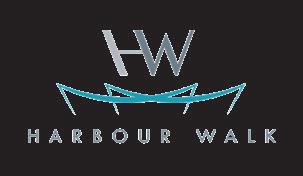
Although these treatments are non-surgical, that does not mean they are totally risk-free. We have all heard stories of botched cosmetic procedures, whether due to being carried out by unqualified individuals, or because they used 'cheap'
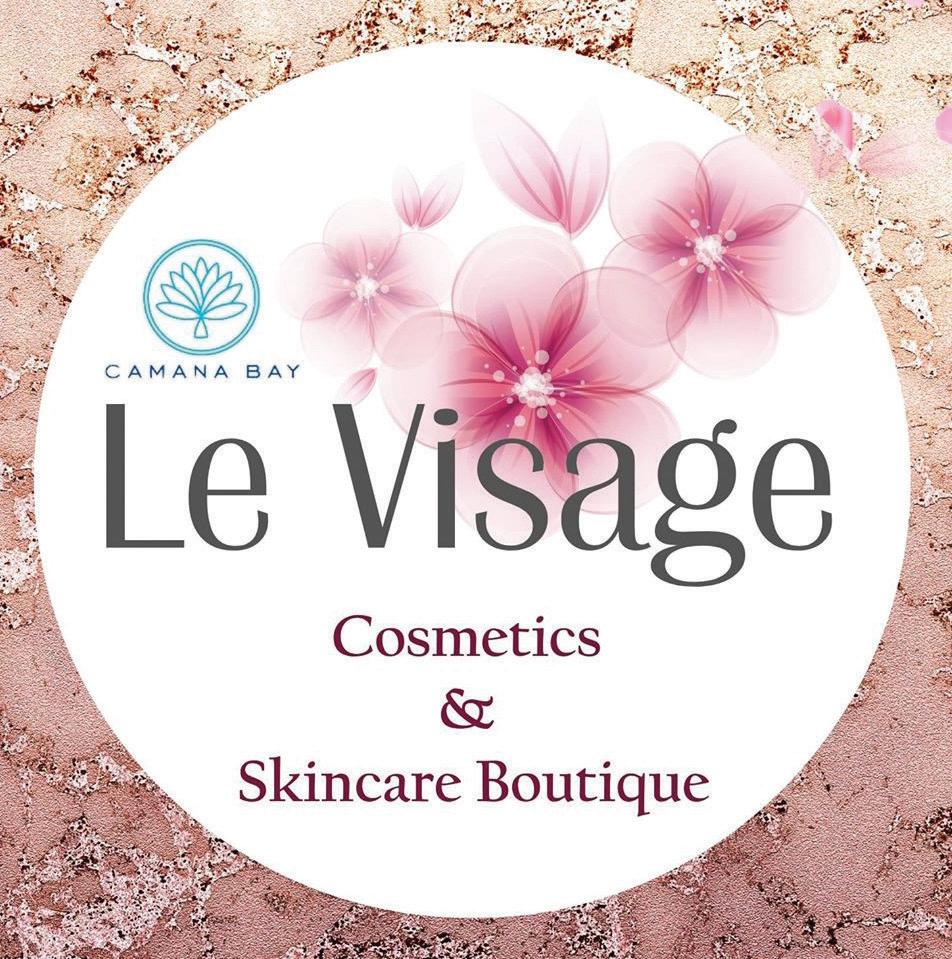
chemicals – or both. So before booking any kind of procedure, do your research.
First, make sure you know what the potential risks or complications of any treatment may be. Next, choose a reputable, well-established clinic. Most treatments (with the exception of some peels) can only be performed by medically qualified individuals, such as a surgeon, doctor, dentist or nurse, so make sure you know who will be administering the treatment and that they have the appropriate experience.
Before going ahead with a procedure, book a consultation. Reputable clinics generally offer free consultations so that you can discuss your desired results and the medical professionals can advise on the right treatment, or combination of treatments. Don’t assume you know which treatment will work best for you, as it may depend on your age, skin type, body type, health and other factors.
Remember to keep your expectations realistic. These are not full face-lifts and you are not going to emerge from a one-hour treatment looking 20 years younger. Results are subtle and natural, and the full effect of the treatment may take several days or weeks to show.
While non-surgical treatments are relatively affordable – hence their widespread popularity – it’s important to note that the results are temporary, so maintaining the results will require regular touch-ups.

Cayman Parent Magazine | Wellbeing60 WELLBEING
1-345 946 2332 sharron@levisageboutiq levisagecayman levisag Le Visage The Paseo Market Street Camana Bay Le Visage Harbour Walk Edgewater Way Grand Harbour
Here for health. Here for you.
Doctors Hospital, we go beyond traditional medicine to bring you tailored wellness programs that empower you to take control of your health. Visit us today to start your journey to a happier, healthier you.

Biometric screenings
Disease prevention & management
Health coaching
Health risk assessments
Health screenings
Nutrition
Pain management
Smoking cessation
Stress management
Vaccine clinics
Weight management
And more...
the difference your care deserves.
At
Learn more at doctorshospitalcayman.com •
•
•
•
•
•
•
•
•
•
•
•
Discover
Exercising with Your Mental Health in Mind
Often, the hardest part about exercise is summoning the motivation in the first place. However, this initial effort is hugely outweighed by the positivity we feel following a good workout. Why? Physical activity is great at stimulating our brains in amazing ways!
For the most part, when we think about exercise, we think about keeping our body healthy and strong. But a lot of people gravitate towards fitness because of its mental benefits. In fact, there’s a science behind the high we feel after a great workout.
When our heart rate rises, so does our blood flow. This increase helps bring more oxygenated blood into the brain, depositing important nutrients, promoting the growth of new neurons and releasing a number of beneficial proteins.
You’ve probably heard about endorphins, the small but mighty transmitters that help our brains produce pleasure. Exercise helps stimulate these chemicals in the same way that biting into a cookie or laughing with friends would. Often, the more you move, the better you’ll feel. Medical experts agree that exercise can help reduce feelings of stress and anxiety while amplifying feelings of happiness and self-esteem. But while all exercise helps stimulate the brain, there are a few workouts that tap into our mental wellness on an even deeper level.
Whether you’re looking to shake it out or find a moment of peaceful solitude, here are the best ways to exercise with your mental health in mind.

Dance
Looking for a fun way to get your heart pumping? Dance is a workout that perfectly combines physical activity with creativity!
Dance is great for your body, improving muscle tone, endurance and flexibility. But physical benefits aside, it’s also a fantastic exercise for the brain and a great way to de-stress after a busy week.
Learning a new dance routine will help train your memory and improve your concentration skills. In fact, many studies show that dance can help with cognitive decline as we age. So don’t leave the dancing to the kids… join a class and reap those brainboosting benefits!
Cayman Parent Magazine | Wellbeing62 WELLBEING
Across history, dance has been used as a way to express emotion in a healthy and cathartic way. It provides an opportunity to let go, laugh and move your body in new ways.

Another benefit is its social aspect. Feelings of loneliness can have a huge impact on our mental health, increasing anxiety and even depression. A lot of fitness classes are filled with people, but it doesn’t necessarily mean that you’re getting much interaction. Dance is often dependent on collaboration, forcing people to come together and trust one another. This creates a wonderful sense of community and opens the door to meeting new people.
Still unsure? It’s been said that joy is often right on the other side of our comfort zone, so why not try something different? Switch up your regular routine and dance things out to a great song. You’ll connect with new people in a supportive atmosphere, inspiring newfound confidence and self-esteem.
Centre Pointe Dance Studio offers ballet, hip-hop and tap classes for adults multiple times a week, and each class is specially customised to fit all abilities. Head to www. centrepointedancestudio.com for more information.
Yoga
The practise of yoga dates back thousands of years. We know that it’s great for our physical wellness, restoring our bodies and improving our flexibility, balance and strength. But the main exercise that yoga offers is actually for the mind.

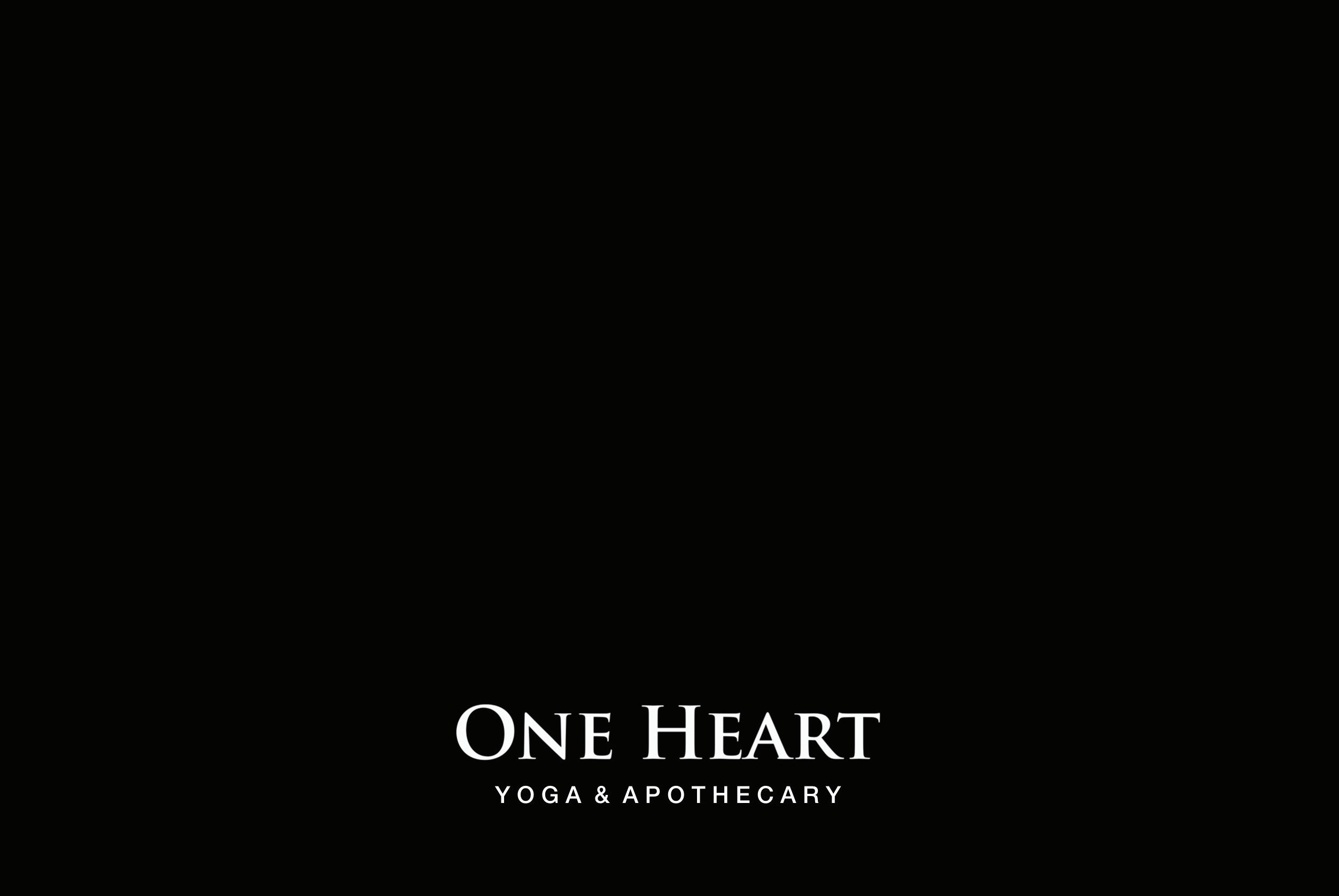

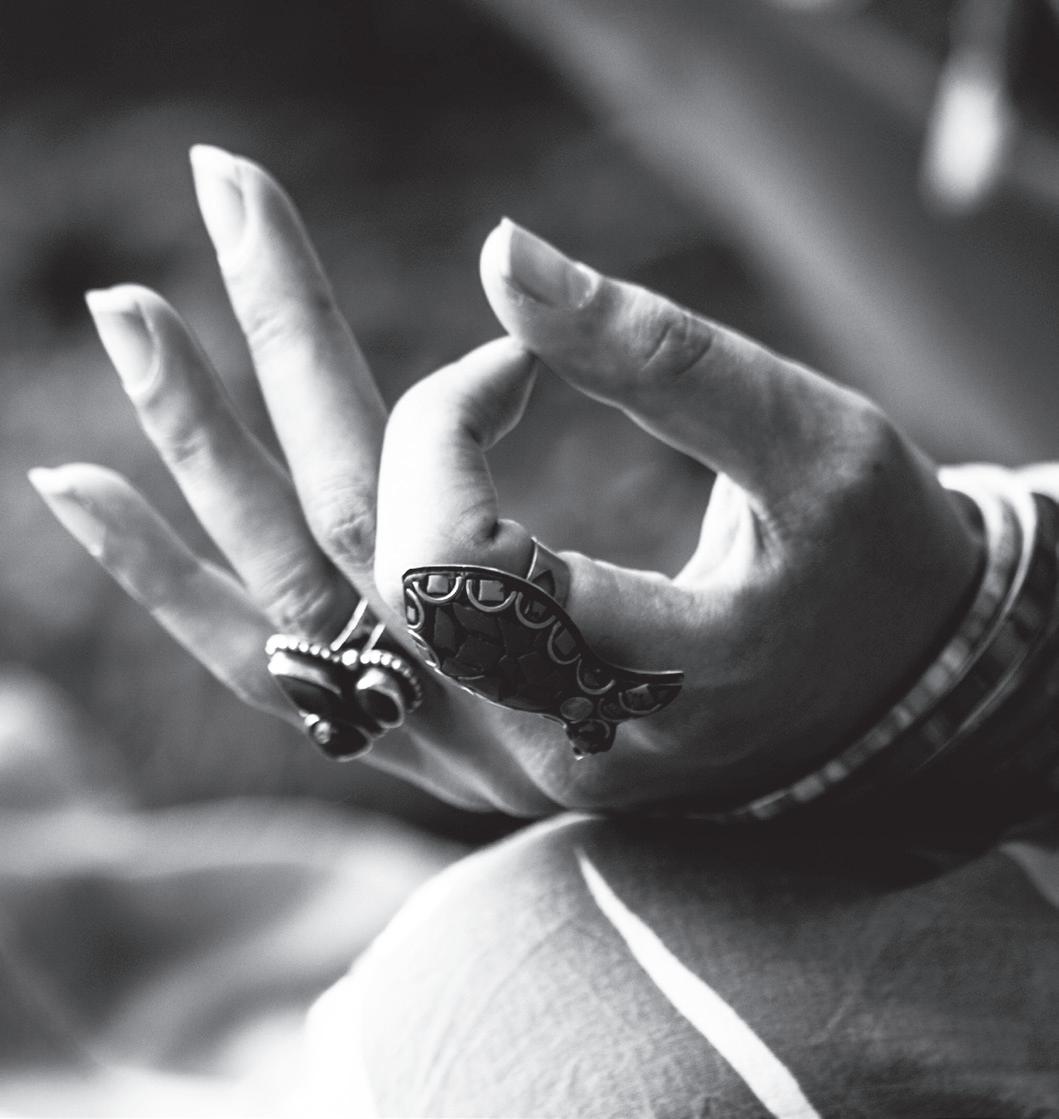
Why do we feel so much better after a yoga session? Let’s take a look at the science first. According to Harvard Health, yoga may elevate levels of a brain chemical called gamma-aminobutyric (GABA), which is associated with a better mood and decreased anxiety. Completing even one yoga class a week may help maintain these chemical levels and, therefore, diminish depressive thoughts and symptoms. Stress and anxiety can generate the release of cortisol and adrenaline in the body, increasing your

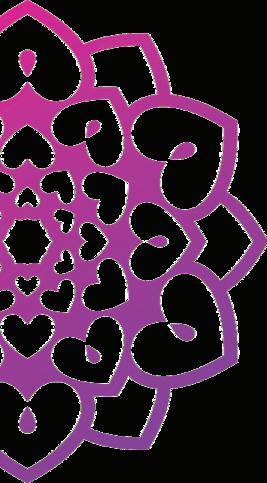
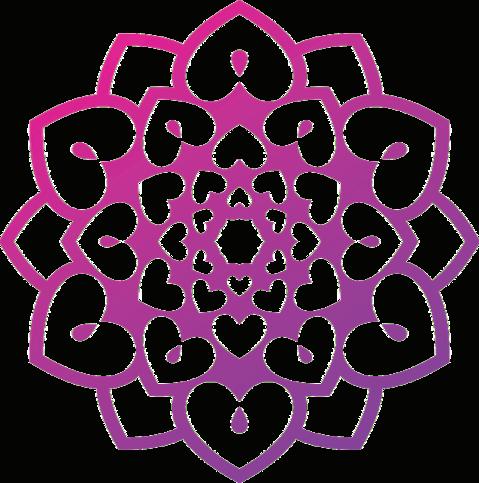


www.caymanparent.com 63
Offering Hot & Unheated Classes. From Yoga Asana to Pranayama and Meditation. Find yourself here – at One Heart 215 West Bay Road I 7 Mile Shops 345 938 9642 I www.oneheartcayman.com Let Us Hold Space For You WE ARE MORE THAN YOGA ASANA! Come Feel the One Heart Difference! • Asana • Meditation • Pranayama • Prenatal • Postnatal • Healing • Plant Medicines • Spiritual Giftshop oneheartcayman.com • 938 YOGA 7 Mile Shops @oneheartcayman
heart rate and activating a fight-or-flight response. Your body does this for a reason, and in cases of rare, legitimate danger, this is a critical reaction. However, when we experience prolonged anxiety and our stress levels remain high over an extended period, the consistent outputs of cortisol and adrenaline can wreak havoc on our bodies.
Thankfully, yoga can help us control these physical responses. The foundation of yoga is built around the breath. These slow and steady inhalations and exhalations help activate our parasympathetic nervous system, which calms the body, decreasing anxiety and racing thoughts.
As we dedicate more time to our relationship with our breath, activity in our limbic system will also reduce. This is the part of our brain responsible for emotional reactivity. By incorporating yoga and meditation into our routine, we can help ensure a calmer and more controlled response when faced with intrusive thoughts or stressful situations.
As we age, yoga can also help protect us from injury and even improve our brain function. According to Harvard Health, yoga can help strengthen the part of our brain that plays a key role in memory, attention, awareness, thought and language.
Studies using MRI scans and other brain imaging technology revealed that people who regularly participated in yoga had a thicker cerebral cortex and hippocampus than those who didn’t. These are the areas of the brain dedicated to learning, memory
Adult Dance Classes at Centre Pointe Dance Studio


and information processing.
The combination of physical postures, measured breathing and deep meditation create a holistic practice that goes beyond a physical workout.
One of Grand Cayman’s newest yoga studios, One Heart Yoga Apothecary, focuses on that balance between the physical and mental practice, emphasising the importance of staying rooted in the present instead of the future or past. They utilise all of the eight limbs of yoga, but especially Yoga Asana, which prepares the body to work towards meditation and mindfulness. Find the best practice for you, including heated and unheated classes, at www. oneheartcayman.com.
Spin
For some people, working out in a traditional gym setting can be a great source of anxiety, especially for those already struggling with mental health issues or self-confidence.
Bright, crowded fitness classes can be intimidating, which is why spin can provide a great alternative. These sessions are often carried out in darkened rooms. You find your stationary bike, look towards the spotlight of your instructor and get ready to pedal it out in an uplifting space.

Spin classes allow you to engage in group fitness while also bringing the focus back to yourself. Each session is made up of repetitive motions that help you sink into the workout, clearing your mind of any stressors until you’re ruled by the rhythm. You’re free to focus on self-improvement, working towards better stamina and higher levels of endurance at your own pace.
Adult
Even though you’re pedalling into the dark, you’re not alone. Many people have described the incredible energy that comes from spinning in a crowd. The camaraderie and euphoric feeling is contagious, and you’ll leave the room on a collective high.
Cayman Parent Magazine | Wellbeing64 WELLBEING
Get moving with a range of adult group dance classes that provide fun, fitness and friends!
classes include: Tap, Ballet and Hip Hop! Private wedding dance lessons are also available. Alissta Towers North Sound Road (345) 926-5889 centrepointedance@gmail com www centrepointedancestudio.com
The cardio work helps promote cardiovascular health and releases feel-good chemicals and hormones like endorphins, dopamine and serotonin, reducing anxiety and producing feelings of motivation and accomplishment.

Spinning is also a great way to help synchronise your circadian rhythm. When your mental health is suffering, it can be hard to develop a proper sleep schedule. Sleep issues are actually one of the most common symptoms of anxiety and can create a pattern of restlessness in the evenings and fatigue during the day. A regular spin routine will help your body adjust and recover. Try spinning once a week and if you see the benefits, consider moving up to three to five one-hour sessions a week to help with your physical and mental health.
Last but not least, at the heart of spinning is the music. Music is an instant mood booster that’s proven to help with stress and spin classes are known for their uplifting, positive playlists. Love a certain style of music? Look for themed rides that focus on a specific artist or genre like EDM, reggaeton, the best of the 90s, hip-hop and more! At VITAL Spinbar & Yogaden, there are plenty of classes that let you pedal off the calories to your favourite beats! For a closer look at their offerings, check out www.vitalcayman. ky for more information.
Walking

We’ve discussed many exciting options, but at the end of the day, even a quick daily walk can lead to significant mental health improvements. Walking is great because it’s easily accessible. It doesn’t require any special equipment or come with any costs, and it’s something that people of all ages, body types and fitness levels can enjoy.
Try to plan dedicated walks at least three times a week. We recommend aiming for 30-45 minutes of walking or around two miles. If you can only squeeze in a 15-minute walk on some days, that’s totally fine! The key is consistency. A fitness watch or smartphone can help you keep track of your steps and document your favourite routes.
Take a look at your current schedule and figure out the best times to get outside. If you work from home, consider using a part of your lunch break to take a quick walk around the block. If you’re at the office, why not end the day with a sunset beach walk? Go alone and listen to your favourite music or bring a friend and chat about your week. These walks will help soothe any negative thoughts, refresh your mind and provide you with some mental clarity.
Walking outdoors can be especially effective at warding off anxiety, depression or low self-esteem. Mindful walking — or meditation in movement — is a great technique to adopt if you're having trouble focusing on the present moment. Whilst on your stroll, maintain an awareness of your footsteps, the movement of muscles in your body and the way your arms swing as you walk. Hear the wind blow, smell the sea air and feel the touch of sun on your face. Count five things you can see, hear and touch. The physical and mental benefits of mindful walking are far-reaching.
We are lucky to live on a beautiful island with many hours of sunshine and long stretches of beachfront. Head out to Barkers National Park and take in the stunning casuarina and seagrape trees. You can even spot various types of marine life in the shallows.
If you have dogs, the Nature Loop at Camana Bay is a great way to get some steps in. Enjoy sightings of birds and butterflies as you walk through Cayman's mangroves. The Nature Loop begins at the Festival Green and features three loops of varying lengths, the longest being 0.92 miles.
Have a longer walk in mind? Head out to Breakers and check out the Mastic Trail, a 2.3-mile footpath through mangrove wetland, ancient dry forest and rare trees that are often found only within the island's undisturbed interior. Keep an eye out for Cayman's native parrot, lizards, frogs, large hermit crabs and a shy agouti or two!
Walking is a great compliment to many other forms of exercise and creating a regular walking routine can help ease you into other areas of fitness! You'll have a great foundation to build up to spinning, yoga and dance, or even transition into running.
Whatever you choose, we ask that you treat your body with kindness, patience and love. Don't forget that this includes prioritising your mental health too! The key to success is finding an exercise that works for every part of you!
www.caymanparent.com 65
15 Ways to Relax and Unwind
In a culture that often seems obsessed with productivity, it can feel a little strange to take time for yourself. But the reality is that practising self-care and indulging in a bit of pampering can actually help you manage stress and find greater success in your life, work and relationships.
Nurturing your physical, emotional and mental needs is the key to a life well-lived. Carving out time for self-care in your day is not selfish. In fact, it will make you a better partner and parent.

Whether it’s a 15-minute meditation or a weekend staycation, when you return to your regular routine, you’ll feel calm, refreshed and ready for whatever comes next!
TOP TIP: If child-free time is an issue, consider reciprocal childcare: you watch a friend’s children for a couple of hours and they return the favour!
1. Head Outdoors
We’re lucky to live on a beautiful island where sunny days are in high supply! Get outside and appreciate nature with an energising walk or sea swim. According to the NHS UK, a 10-minute daily walk is enough to boost your endorphins, improve your mood, reduce stress and lower anxiety. Once you’ve got into the swing of things, try working towards 150 minutes of moderately intensive activity every week. If you need extra encouragement, consider combining your exercises with a new podcast or music album you love!
2. Get Artsy
Kids are constantly expressing themselves creatively, but as we grow older, many of us spend less time making art. That being said, there’s a reason why adult colouring books became hugely popular in recent years. Being creative helps our brain think in new ways and working on something that inspires us can actually be very meditative. Art helps take our mind off of stress because it forces us to focus on the task-at-hand. There are many ways to get artsy, from making beautiful paintings to experimenting with new makeup looks. No matter the canvas, try getting creative more often.
3. Take a Long Bubble Bath
Consider incorporating a long bubble bath into your weekly routine. Create your own at-home oasis with candles and essential oils. Bedside Manor has a wide selection of beautifully scented products. If you can find eucalyptus leaves, hang them in your bathroom and enjoy their aromatic fragrance, which is often associated with stress relief. You can add peaceful music or even pour yourself a glass of wine. The most important thing is that you make it all about you! When you emerge, you’ll feel calm, serene and ready for a night of deep, restorative sleep.
Cayman Parent Magazine | Wellbeing66 WELLBEING
4. Book a Hair Appointment
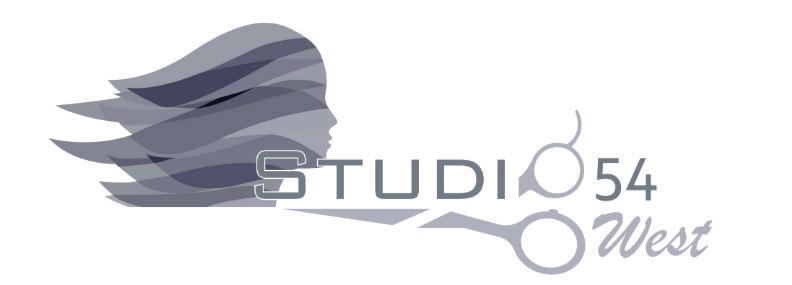

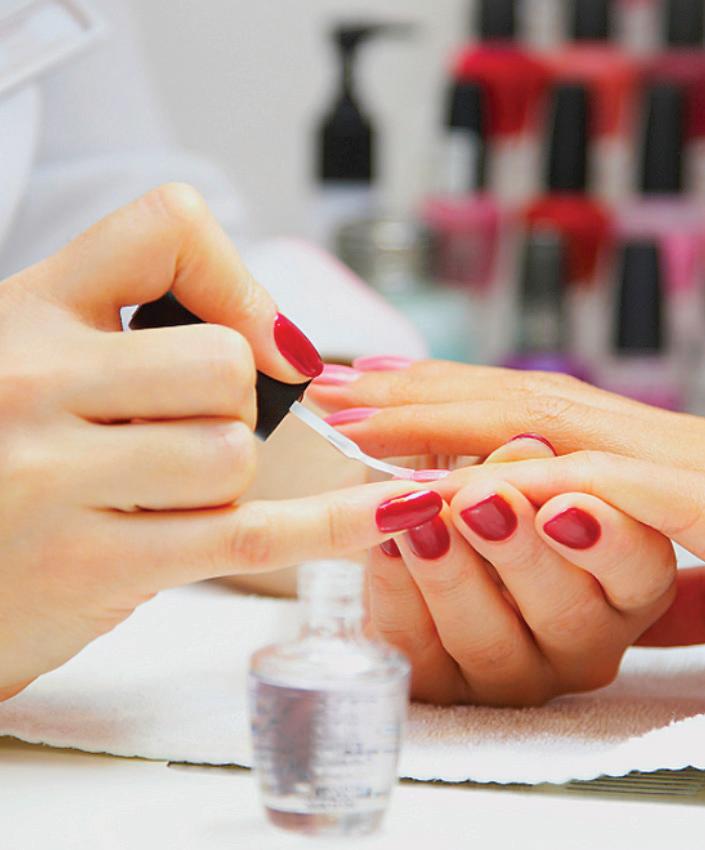


Having your hair done is a real confidence booster and a great excuse to sit down and unwind for a few hours! Who doesn't love a hair wash and relaxing scalp massage? Uniko Eco Salon and Studio 54 both offer a wide range of services to help you look your best including haircuts, colour and blow-dries. Or why not book an additional treatment such as Hair Botox from Uniko or a deep conditioning treatment from Studio 54? Both salons use natural hair products that are cruelty-free and vegan so you are also doing your bit for animal welfare and the environment. Men don’t need to feel left out either and can take advantage of haircuts, grooming services and even facials.
5. Get Outside Your Comfort Zone
If you’re feeling down, one of the best things you can do is try something new. Challenge yourself with a new hobby or learn a brand new skill. Getting outside of your comfort zone doesn’t mean putting a ton of pressure on yourself. Keep things fun and discover new passions! Maybe you want to join a recreational sports team or take a drawing class. Perhaps you want to cross something off your bucket list, like learning how to dive. Check out the ‘Social Clubs’ and ‘Sports & Fitness’ pages on www. caymanresident.com for some inspiration. The possibilities are endless!
6. Prioritise Sleep
According to the Huffington Post, the average person will spend 26 years of their life sleeping and another seven trying to fall
asleep! Sleep is a massive part of our lives and it’s not something that should be overlooked. Daily stresses, multiple night wakings from children and scrolling through our phones before bed can all translate to an empty tank. Matthew Walker, the author of ‘Why We Sleep’, notes that we need at least six hours of uninterrupted sleep per night for our DNA to regenerate and between seven and nine hours of sleep for optimal mental and physical health.
7. Take a Vacation... from Social Media
Social media apps like Instagram, Facebook and Twitter are wonderful in many ways, but the desire to constantly stay connected can also have a negative impact on mental health –so why not schedule a break? Whether it’s one full day a week or every other weekend, stepping away from scrolling will help you step into the moment! Try turning your phone display to greyscale. This removes all colour from your screen which is a simple idea, but one that tricks our brains which are attracted to anything bright and eye-catching. The idea is to make your phone less fun to use; social media becomes a stream of gloom and games lose all their stimulating visual appeal.
8. Practise Mindful Moments
Clear your head of chaos by incorporating meditation into your routine. At first, it can be challenging to switch off your brain, but practising for even five minutes every day will help you create more calm and order in your life. Apps like ‘Headspace’ and ‘Calm’ provide guided meditations that will help you on your journey towards more mindful moments. Meditation is a fantastic
www.caymanparent.com 67
BARBERSHOP HAIR SALON NAIL BAR & MOBILE SERVICES www.studio54west.ky Cruelty Free / Vegan Gel Nail PolishesChildren’s Hair Cutting Also Available Studio54WestCaymanstudio54west.ky
self-care tool because it helps manage feelings of depression and anxiety while also igniting important sentiments around gratitude and self-love.
9. Get Cosy
Put on your cosiest clothes, wrap yourself up in a blanket, switch on the television and watch that new reality series everyone is talking about. Self-care doesn’t always mean finding new hobbies or developing new habits. Don’t feel guilty about not being productive during your time off. Sometimes what we need most is simply a night on the couch with a fun-filled movie and some popcorn!
10. Pick up a New Book

Whether you love thrillers, fantasy or romance, a good book has the ability to transport you to another world. Sit back, relax and sink into the story. Head to Next Chapter in Camana Bay and choose a title from their vast selection!
11. Treat Yourself to a Staycation
Cayman is a vacation destination, and we are lucky to have an abundance of hotels, condos and cottages on-Island. Choose from five-star hotels on Seven Mile Beach or escape to the tiny island of Little Cayman for a weekend away. If you’re looking for some peace and serenity, rent a cottage in the Eastern Districts. If you have adventure in mind, why not try rock climbing amidst the rugged beauty of Cayman Brac? Escape the daily grind and re-create the best parts of a getaway without straying too far from home. No crazy airport transfers, no jet lag… just a little change
of scenery and a moment to unplug and unwind.
12. Try a Yoga Class
Yoga is a workout for the body and the mind. Bring your focus back to your breath by participating in a restorative yoga class. Whether you prefer a heated yin session or a vinyasa flow, yoga is the perfect way to add a bit of zen to your life. Practise at home with the Asana Rebel app or head to a class at One Heart Cayman Yoga & Apothecary. When you get on the mat, you’ll feel the connection between your mind, body and breath start to blossom.
13. Count Your Blessings
Research has shown that one of the best ways to reduce anxiety and improve your overall wellbeing is to write a list of the things you are grateful for. Keeping a Gratitude Journal helps you gain a new perspective on what is important to you and what you truly appreciate in your life. By noting what you are grateful for, you gain clarity on what you want to have more of in your life, and what you can cut from your life. At the end of each day spend 10 minutes recording your appreciation; it can be as general or specific as you want. You will find lovely notebooks in Next Chapter and Kirk Market.
14. Enjoy a Relaxing Nail Treatment

Pamper yourself with a manicure or pedicure at Studio 54. Sit back in their comfortable chair and zone out while you soak your feet in a warm bath before enjoying a relaxing treatment. Your beautician will exfoliate your hands and feet to remove dead skin and give you a blissful massage that helps improve circulation. Emerge from the salon feeling wonderfully relaxed having taken some time for yourself.
15. Learn How to Say No

Sometimes the hardest thing to do is carve time out, away from family and friends, to invest in yourself. It can feel self-indulgent and guilt ridden but our mental health should be seen as a priority. The next time somebody asks you to do something for them just as you are on your way out to a yoga class or the phone rings as you are sitting down with a good book, think to yourself: can I put myself first here? Give yourself permission to say yes and reap the benefits.
Self Care for Dads
While self care is a buzzword for mothers, fathers need to take care of their health and wellness too. All of the duties and responsibilities involved in being a husband and father leave little time for hard-working men to take time to care properly for themselves. Like mums, dads often sacrifice sleep, exercise, nutrition and hobbies for their families. All of the tips in this article can also be applied to men, so make sure the man in your life gets to recharge his batteries too!
Cayman Parent Magazine | Wellbeing68 WELLBEING
We are the only certified EcoSalon in Cayman We use only DAVINES cruelty free formaldehyde free products made with sustainable ingredients We adopt energy & water saving practices We are paper free & offer refills on hair products We do great hair in a comfortable Eco ambience Hair Botox services 3 Bay Harbour Centre, WB Rd North, Next to Grand Pavilion (Kaaboo BLDG) t: +1 345-769-5400 e: unikosalon@gmail.com www.unikosalon.com
The Menopause: Demystified
The two great transitions in a woman’s life – puberty and menopause – are fraught times when our bodies do strange and unpredictable things and our moods can take us completely by surprise. But unlike puberty, menopause is often regarded as somehow unsavoury – an issue best kept under wraps. The taboo surrounding menopause means many of us are woefully ill-informed about an unavoidable phase in our lives.
Not only do women not talk about the more difficult aspects of the menopause amongst themselves, but it’s so overlooked that medical practitioners in the US and UK receive no mandatory training in it, and employers often offer no support to women going through it.
Granted, some women will sail through the menopause with no adverse effects, but at least 25% suffer debilitating symptoms –both physical and mental – that seriously impact their quality of life and sometimes their ability to continue working. However, because it’s not talked about, many women don’t know that they can safely get relief from the symptoms and decrease their risk of other diseases at the same time.
That wall of silence is starting to crack though. Celebrities and TV personalities are opening up about their experiences of the menopause, how it is affecting their lives, and their challenges in getting treatment. And this is sparking a wider conversation and reassuring women all over the world that there is no shame in talking about this inevitable experience.
What is the Menopause?
Quite simply, the menopause refers to the end of a woman’s menstrual cycle. A woman is considered menopausal when she has not had a period for more than 12 months. The average age for this is 51, although it can vary by several years earlier or later. Menopause usually lasts between five and seven years, but again, it can be longer or shorter. Once a year has passed without seeing a period, a woman is considered postmenopausal.
For some women, periods will stop suddenly, but many others will experience irregular periods that may be heavier or lighter than normal, some years before they stop completely. This phase, when hormone levels are fluctuating, is perimenopause and is often accompanied by menopausal symptoms. Perimenopause usually begins in your 40s. "The distinction is not particularly important though as it relates to treatment," says Dr. Rhonda Reeves, OB/ GYN at the Health Services Authority, “as any treatment seeks to manage the symptoms, rather than the stage a woman is in."
Symptoms of Menopause
Menopause is driven by hormones, or rather a lack thereof. As we approach the end of our fertile years, our ovaries slow down and eventually stop functioning: not only do they stop producing
eggs, but they also stop producing the hormone oestrogen. Because there are oestrogen receptors in every tissue and organ in the body, oestrogen affects not only our menstrual cycles and reproductive organs, but also our urinary tracts, heart and blood vessels, bones, breasts, skin, hair, mucous membranes, pelvic muscles and brains.
So, when levels of this vital hormone decrease, we feel it in a perplexing variety of ways – so much so that many women fail to connect the symptoms they are experiencing with the menopause. The most recognised physical symptom – and for many the most debilitating – are the hot flushes. These tend to affect the upper part of the body and usually occur later in the day, but can also occur during sleep (night sweats) which then causes fatigue and can in turn lead to a low mood and irritability.
However, the symptoms women experience varies widely and present in different combinations. Other physical symptoms include aching joints, weight gain, tingling skin, headaches and heart palpitations. Because the tissue of the bladder thins during menopause, symptoms can also include frequent UTIs, overactive bladder and incontinence. More difficult for many to talk about are the loss of libido and vaginal dryness, which is also caused by thinning tissue and, if not treated, can make sex painful and day-to-day life uncomfortable.
In addition to these unquestionably unpleasant physical symptoms, are the severe mental and psychological symptoms that can accompany this time. An estimated 40% of women do not even know about these, so that when gripped by extreme mood swings, anxiety, anger, poor memory and mental fog, they think they are losing their minds. These symptoms don’t only impact relationships, but also leave some women feeling unable to continue in their jobs, or to pursue more senior career roles.
TOP TIP: Set up a support group with friends so that you can share symptoms and grumbles about the menopause. There is also a Facebook group called 'Cayman Hot Flush Menopause Support' which is a kind and friendly support group for women wanting to know or share information about menopause. Being able to share your frustrations with others who are going through the same experience is great for your mental health.
www.caymanparent.com 69
When to See a Doctor
Too many women soldier on, ignoring the symptoms as best they can, looking forward to the calm after the storm. However, by not seeing a medical professional, we are not doing ourselves any favours, as treatments can dramatically improve one's quality of life.
The best time to see someone is as soon as you start to feel symptoms, but if your doctor is not knowledgeable about menopause seek out a medical professional who specialises in women’s health (for example an OB/GYN).
GPs may hear 'insomnia, low mood, weight gain, anxiety and irritability' and assume they are dealing with depression, rather than menopause. Equally, perspiration, hot flushes, low mood and depression can also be a sign of thyroid issues, so it’s essential to rule out other conditions.
The other reason to see a doctor, whatever your symptoms, is because certain health risks increase post-menopause.
After the symptoms abate, low oestrogen levels stay with women for the rest of their lives. As Dr. Reeves emphasises, post-menopausal women are in effect living with a hormone deficiency. That deficiency can affect their health in multiple ways: most importantly, it dramatically increases women’s risk of osteoporosis, heart disease and Alzheimer’s.
Up until a century or so ago, when life expectancy was much lower and women tended not to live long beyond the menopause, this hormone deficiency was not particularly significant. These days, however, many women will live up to a third of their lives after the menopause, so it’s essential to consider the long-term health impacts of low oestrogen.
Hormone Replacement Therapy (HRT)
The single most effective treatment available for menopausal symptoms is Hormone Replacement Therapy. The aim of HRT is not to delay or stop the menopause but rather to manage the symptoms by topping up hormone levels.
There are two main types of HRT: oestrogen-only and combined oestrogen and progestogen (a synthetic form of progesterone).
Women who have had a hysterectomy can take oestrogenonly HRT, but because oestrogen can cause a thickening of the uterus and increase the risk of endometrial cancer, however, women who still have their wombs are also given progestogen to reverse that risk. Occasionally, testosterone is prescribed for sexual issues.
Oestrogen is best delivered through the skin so that it is not metabolised by the liver; this can be in the form of patches, gels or sprays. Progestogen is usually taken as a capsule whereas testosterone mainly comes in gel-form.
There is no one-size-fits-all HRT treatment: every case is treated individually and it may require trying different formulations to find the right dose and combination for the individual.
HRT is best started at the onset of symptoms. While the standard recommendation is to administer the lowest dose for the shortest possible time (not more than five years), a growing number of
women’s health experts like Dr. Reeves advocate taking HRT even if you have mild symptoms and, in some cases, staying on it long-term, to reduce your future risk of osteoporosis, heart disease and Alzheimer’s.
Risks of HRT
Available since the 1960s, HRT was widely prescribed until the early 2000s. Then, in 2002, a large-scale study by the Women’s Health Initiative, which evaluated the effect of HRT on health in postmenopausal women, published its preliminary findings. These showed a link between HRT and increased risk of breast cancer, stroke, heart disease and clots – although it was the breast cancer link that made headlines. Almost overnight millions of women stopped taking HRT and doctors around the world stopped prescribing it.
Those initial findings have been widely discredited, and investigators involved in the study now emphasise that it was poorly designed and that the risk identified was not statistically significant. But it is the sensational headlines that have stuck in people’s memories and kept women in fear of HRT. Twenty years on, only a minority of menopausal women now take HRT. There have been several studies since, some of which show an increased risk of disease, and others that do not – but that should not be cause for alarm. "The worst-case scenario," Dr. Reeves says, "is that there might be a slightly increased risk, but it’s definitely not as much of a concern as it’s made out to be. It’s been blown out of proportion by the media."
She states that the benefits of HRT in healthy women with symptoms of menopause generally outweigh the risks when started before age 60 and within 10 years of menopause. The key points to bear in mind regarding the risks are:
• Women on oestrogen-only HRT do not have an increased risk of breast cancer.
• Starting HRT before age 60/within 10 years of the onset of menopause is preferable. Starting at age 70+ carries more risk.
• HRT does not increase your risk of cardiovascular disease and oestrogen-only HRT may offer protection.
• There is a very small increased risk of stroke associated with oral oestrogen but most doctors now prescribe transdermal oestrogen.
• HRT is widely accepted as protecting against osteoporosis.
• Menopause specialists agree that the benefits of HRT far outweigh the risks.
Stopping HRT can cause menopause symptoms to return, particularly if you do so suddenly. It may be best to reduce the dosage gradually. If you’re on HRT and want to stop, discuss it with your doctor first and decide on the best approach.
Body-Identical HRT
Body-identical hormones have the same molecular structure as the hormones in your body and are derived from yams or soy. Estradiol and micronised progesterone are body-identical hormones usually prescribed by doctors, including Dr. Reeves, and are available at the HSA Pharmacy.
Cayman Parent Magazine | Wellbeing70 WELLBEING
Lifestyle Changes
Whether you choose to take medication to assist you through the menopause or not, certain lifestyle changes will also help to manage the symptoms.
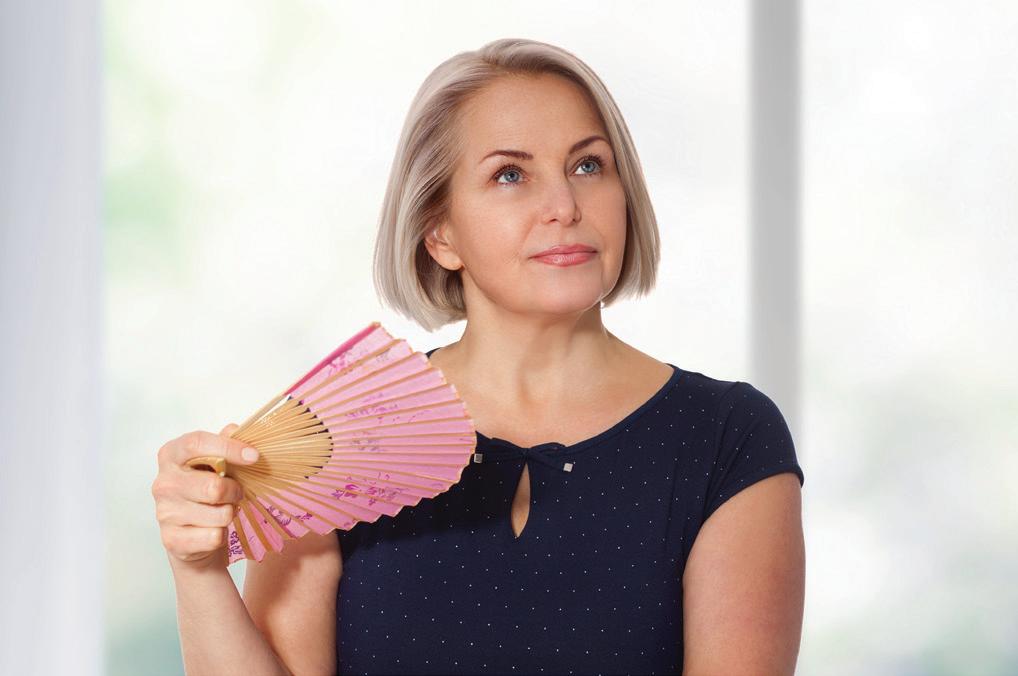

Exercise: At a time when low mood and depression can be a daily battle, physical activity is a great way to release endorphins and can also be a great sleep aid for those struggling with insomnia. Weight-bearing exercise strengthens bones and protects against osteoporosis and any aerobic exercise will help to protect against heart disease.
Diet: It’s important to support your body through this change by giving it the nutrients it needs. Eat plenty of plant-based foods for fibre and lean proteins. Avoid excessive salt, which can adversely affect bone density, and make sure you eat calcium-rich foods to keep your bones strong. To keep your heart healthy, avoid saturated fats.
Pelvic Floor Health: Keeping your pelvic floor muscles strong is the best way to prevent or control urinary incontinence and pelvic prolapse, which can be a distressing effect of menopause. The women’s health experts at the HSA’s Women’s Health and Therapy Centre, Cayman Physiotherapy and Elevation Health & Physiotherapy can all create individualised treatment plans to help women in this stage of life.
Caffeine and Alcohol: Both of these can contribute to hot flushes, mood changes, interrupted sleep and the need to urinate more frequently, so are best consumed in moderation.
Supplements: To keep your bones strong, it may be a good idea to up your calcium and vitamin D intake with supplements once you enter menopause.
For those who prefer natural alternatives to HRT, there is a huge choice of supplements that claim to relieve mild menopause symptoms, particularly hot flushes. Black cohosh, red clover, soy, flax seeds and ginseng are some of the most popular ones. However, there is no solid evidence to support the claims. In fact, black cohosh is not recommended for anyone with liver issues, and phytoestrogens, such as soy, may be risky for women who still have their uterus. Remember, herbal supplements can interact negatively with other medications or cause side effects, so consult your healthcare provider before using supplements. You can also consult with HSA’s Complementary and Alternative Physician, Dr. Irka Ebanks about other available natural remedies.
Menopause can be a messy, confusing and unpredictable time. The fact that it often coincides with a phase in women’s lives when they are also dealing with grouchy teenage children, ageing parents, marriage breakdowns and reaching the peak of their careers, makes it all the more stressful. And the lack of conversation surrounding the topic also adds an unnecessary extra burden. But this transition isn’t one we have to grin and bear alone and in silence: we can – and should – be more open about it, both at home and at work. And rather than enduring it in ignorance, we should seek out medical professionals who are knowledgeable about menopause, and do our own research, so that we are armed with facts, not fiction.
For a list of doctors and clinics in Cayman that specialise in women's health, please see page 77.

TOP TIP: Managing Hot Flushes in the Cayman
Heat: Keep hydrated, wear loose layers, and keep a towel in the freezer. When you feel a hot flush coming on turn the air con down, put your cold towel on your face, position yourself in front of a standing fan – or get a hand-held fan – and if all else fails, put your head in the fridge!
Further Reading
• Megs Menopause www.megsmenopause.com
• Menopause Matters www.menopausematters.co.uk
• My Menopause Doctor www.menopausedoctor.co.uk
From obstetrics and gynaecology to family planning, our Women’s Health team is there to support you through all stages of life.
www.caymanparent.com 71
95 Hospital Road, Grand Cayman (345) 949-8600 | info@hsa.ky | hsa.ky
Committed to promoting and supporting women’s health because you matter to us.
The Body-Mouth Connection
Clean teeth and healthy gums certainly make for a bright smile. But maintaining good oral health is not only about appearances – it’s important for your overall health. In the past decade or so researchers have linked poor oral health to a number of diseases. It’s what is now being referred to as the bodymouth connection.
When you visit the dental hygienist, they are doing more than simply cleaning and polishing your teeth. “We look at your face, neck and jaw first to assess whether there have been any changes, then we look inside your mouth at your teeth, and also at the soft tissues – tongue, cheeks and gums,” explains Lauren Chapman, dental hygiene therapist at Cayman Dental.
One thing dental hygienists are looking for is signs of mouth cancer – there is now a tool that can screen for this - but they are also checking for swelling, bleeding or pocketing – a space between the teeth and the gum – which all indicate periodontal disease, or gum disease. Gum disease is very common: around 50% of adults over age 30 suffer from it, and the incidence increases with age. If left untreated it can have serious consequences both for the teeth and for other organs in the body.
What is Gum Disease?
Gum disease occurs when bacteria build up on the teeth and gums in the form of plaque. Regular brushing and flossing will remove plaque, but if left it hardens into tartar along the gum line, which can only be removed by a hygienist.
Acids in the plaque and tartar attack the enamel on the teeth
and irritate the gums, leading to inflammation and bleeding. The early stages of gum disease – known as gingivitis – may be painless and therefore go unnoticed by the patient, Chapman notes, so regular dental hygiene appointments are important for early detection, when the condition is still reversible. If it is not treated, gingivitis can progress to periodontitis: gums recede, the bone that supports the teeth is lost, teeth then become loose and may even fall out.
Gums Health & Overall Health
It’s not only the risk of tooth loss that makes it so important to catch and treat gum disease early on. Numerous studies have found associations between gum disease and other systemic diseases such as diabetes, heart disease, respiratory disease and, more recently, Alzheimer’s and dementia.

The theory is that the mouth is the gateway through which most bacteria enter the body. In a healthy mouth, there are enough good bacteria to fight off the bad, but when gum disease is present, bad bacteria proliferate and can then enter the bloodstream and travel to other parts of the body.
Diabetes: The connection between oral health and diabetes is the one that has been known the longest, Chapman says,
Cayman Parent Magazine | Wellbeing72 WELLBEING
and it’s a bi-directional relationship. People with diabetes are more likely to have gum disease, as high blood sugar levels lead to oral bacteria multiplying. At the same time, gum disease may impair glycaemic control, exacerbating diabetes. It’s therefore essential that diabetic patients look out for and manage gum disease – particularly as periodontal treatment has been associated with improved glycaemic control.
Heart disease: People with gum disease are two to three times more likely to have a heart attack, stroke or other cardiovascular event than those with healthy gums. Several studies have found an association between the two conditions, and although no direct causal link has been established, it is thought that inflammation and bacteria in the gums may travel to the arteries causing them to narrow, or infection may reach the heart’s valves.
Respiratory disease: Various studies have confirmed a strong association between gum disease and respiratory diseases such as pneumonia, bronchitis, and emphysema, possibly as a result of bacteria multiplying in the mouth and moving into the respiratory tract. Poor periodontal health and oral care are particularly linked to an elevated risk of developing chronic obstructive pulmonary disease.
Alzheimer’s and dementia: Some studies have found that the bacteria that cause gum disease are also associated with the development of Alzheimer’s and other dementias.
Others have linked gum disease with a faster cognitive decline in those diagnosed with dementia. Again, there is no clear causal link, but it is possible that better dental hygiene could help slow the progression of dementia.
A Good Oral Health Routine

Good oral hygiene clearly has numerous benefits. So what is a good routine to follow?


“Brush your teeth twice a day, for three minutes each time. Use a rechargeable electric toothbrush and pay attention to the gum line as well as the teeth,” Chapman advises. “You should also floss once a day to reach the surfaces that brushing doesn’t reach.”
Regular visits to a dental hygiene therapist are also an essential part of preventive dental health. For most, a visit will be scheduled every six months, but if there are oral health issues, more frequent appointments may be required. And, Chapman adds, it’s never too early for an oral hygiene appointment – as soon as a child has teeth, they should start to visit the dentist.
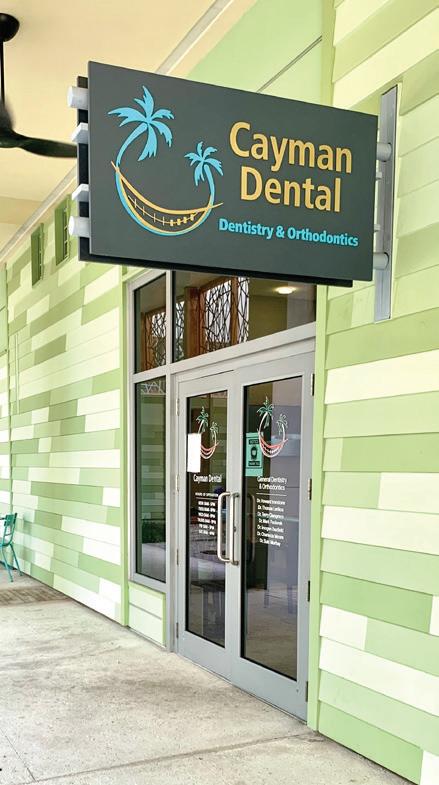
Although further research is required to establish the exact mechanisms that connect oral and overall health, taking good care of your teeth and gums, by brushing, flossing and seeing your hygienist regularly, can clearly help you live a healthier life.
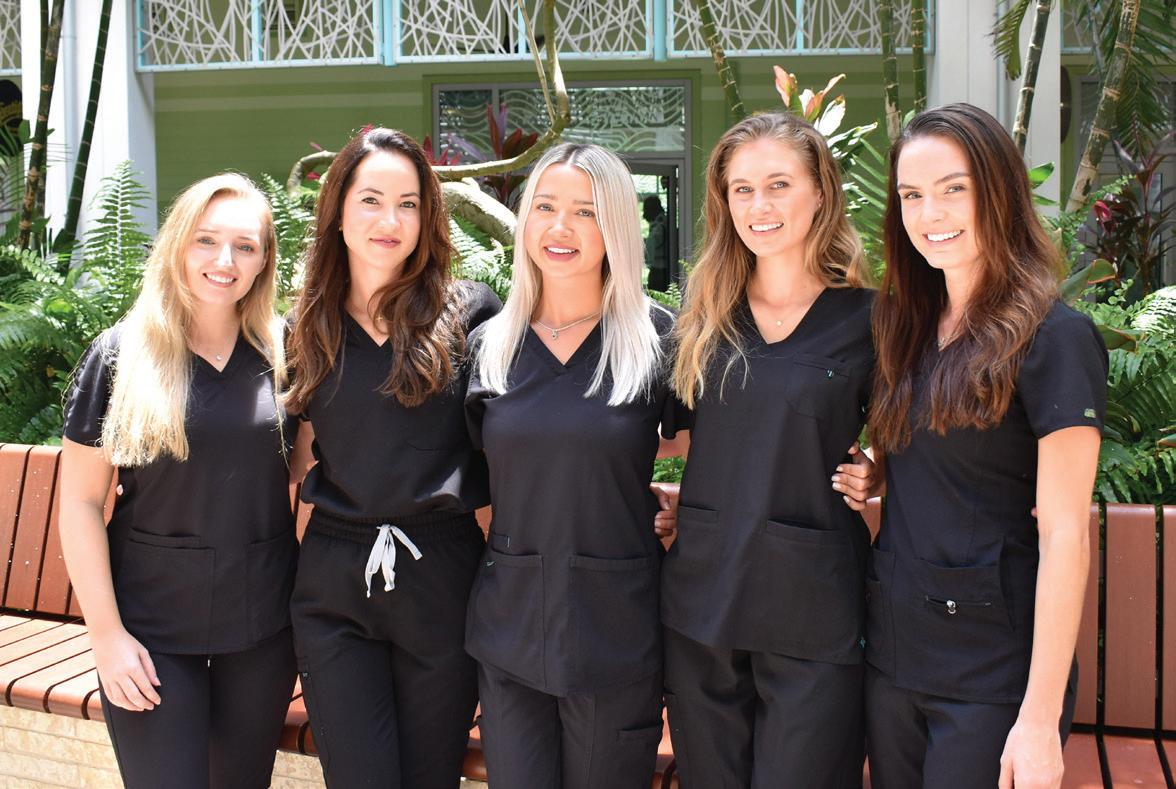
www.caymanparent.com 73
EXCEPTIONAL DENTAL CARE IN A COMPASSIONATE AND FRIENDLY ATMOSPHERE CONTACT US (345) 945 4447 caymandentalservices@gmail.com www.caymandental.com 18 Forum Lane Camana Bay George Town CAYMAN DENTAL at Camana Bay Routine Dental Care Cosmetic Dental Services Dental Implants & Oral Surgery Medical Aesthetics Botox & Dermal Fillers
A Guide to Pre & Postnatal Exercise
Developing an exercise routine during pregnancy is a great way to manage not only your physical health, but your mental health too! Taking the time to move your body will help reduce stress and have you feeling energised and motivated. Regular exercise during this period is completely safe and recommended by obstetricians, but there are some guidelines to follow to ensure yours and your baby’s safety. Lindsay Bridgeman from Cayman Physiotherapy has provided Cayman parents with a guide on the best ways to exercise during pregnancy, plus suggestions for after your baby arrives!
Prenatal Exercise
Pregnancy is the perfect time to adopt a healthy lifestyle and give your baby a great start to life. Regular exercise during pregnancy helps control excessive weight gain, improves cardiovascular fitness and decreases the risk of gestational diabetes. Exercise can also help you sleep better, increase your energy levels, improve your mood, reduce back pain and help prepare your body for childbirth.
The NHS recommends that pregnant women should aim for 150 minutes of moderate intensity physical activity each week. This should be spread out over at least three sessions. Even 10 minute sessions are great, and being active every day is encouraged.
If you are experiencing any pregnancy complications you must speak to your obstetrician or midwife first.
What exercise is right for you in your pregnancy?
If you are already active then keep going! Most women will have to adapt as the pregnancy progresses – remember, don’t bump the bump! If you’re not already active then start gradually. This is not the time to start any new strenuous exercise, but it is a good time to get moving and improve strength in preparation for labour and delivery. Remember to stop exercising immediately if you feel dizzy or lightheaded.
Prenatal Exercise Options
Pelvic Floor Exercises
During pregnancy your pelvic floor muscles will loosen due to hormonal changes in your body. This, along with your growing baby pressing on your bladder, may cause you to leak urine when you cough, laugh, sneeze or exercise. Doing daily pelvic floor exercises, such as Kegels, will strengthen these muscles and help reduce the chance of any accidents.
Swimming & Water Workouts
This is the perfect activity for mums-to-be. Not only do you feel weightless, but it takes all the pressure off your joints. Don’t forget that you can still overheat in the water, so be careful not to overexert yourself.
Walking
Walking is one of the best cardiovascular exercises for pregnant women. It strengthens the heart and lungs and builds stamina.
Prenatal Pilates & Yoga
These gentle exercises help increase strength, balance and flexibility. Prenatal Pilates and yoga breathing techniques might also help you reduce or manage shortness of breath later during pregnancy.

Cayman Parent Magazine | Wellbeing74 WELLBEING
As a rule of thumb, the ‘talk test’ is a good check when carrying out your chosen sport or activity – you should be able to hold a conversation as you’re participating. And don’t forget to keep hydrated, especially in the Cayman heat!
Exercises to Avoid During Pregnancy
Be sure to steer clear of scuba diving, skiing, climbing, horseback riding, Bikram Yoga and any contact sports. Also avoid exercising on your back after the first trimester as the weight of your bump presses on the main blood vessel bringing blood back to your heart. This could cause low blood pressure and make you feel dizzy.
Postnatal Exercise & Common Problems
Some mums are keen to start exercising soon after pregnancy but it’s important to take things slow. The idea of ‘bouncing back’ is an outdated concept and women need to take the time to heal and recover without any pressure to look or feel a certain way.
Exercising before you’ve healed can also lead to all sorts of problems, from incontinence to even a prolapse. How soon you can exercise again will depend on what type of birth you had.
Current guidelines advise waiting three months before returning to high impact activity. After a caesarean birth, mums may be advised to avoid high impact activity for up to six months.
Here is some basic advice for the first six weeks, but remember to listen to your body.
Week 0-2 Pelvic floor exercises, basic gentle core exercises (pelvic tilts) and slow walking.
Week 3-4 Increase the time and speed of your walks and keep doing your pelvic floor exercises multiple times a day.
Week 5-6 Now you can add low impact exercise like the stationary bike (if that feels comfortable) or cross trainer but start gradually. Keep going with the pelvic floor exercises!
After your six week postnatal check up with your obstetrician or midwife, it is a good idea to see a specialist women’s health physiotherapist for an assessment prior to embarking on a vigorous exercise programme. This involves the therapist checking your abdominal and pelvic floor muscles as well as any other postnatal issues. Based on this assessment, you can have an exercise programme tailored to your postnatal needs and you will get personalised advice for returning to the activities you enjoy.
Common Postnatal Problems
Urinary Leakage

This is completely normal after childbirth as pelvic floor muscles are weakened during pregnancy and childbirth. It’s advised that all mothers have their pelvic floor assessed after child birth, no matter how they delivered their baby. One in three women suffer from urinary incontinence after pregnancy but in most cases it can be easily fixed with the correct treatment.
Diastasis Recti
This is the separation of the abdominal muscles that happens when your growing womb pushes the muscles apart, making them longer and weaker. It’s very common but often easily fixable. Getting help from a women’s health physio can help you restore the muscles and prevent problems in the future.
Back, Shoulder & Pelvic Pain
This can be a problem after birth as a result of hormonal changes. It can then be exacerbated by holding a newborn for long periods of time and adopting a bad posture while breastfeeding. Seek specialist advice to prevent back and pelvic pain becoming a long term problem.
TOP TIP: Breastfeeding isn’t a barrier to exercising after childbirth. It’s important to wear a well-fitted supportive sports bra and to stay well hydrated.
Lindsay Bridgeman is a licenced physiotherapist and owner of Cayman Physiotherapy. Lindsay has worked as a physio in the Cayman Islands for more than 30 years, after having trained in Scotland. While Cayman Physiotherapy has a multidisciplinary team tackling all aspects of physiotherapy, Lindsay and her women’s health team specialise in the treatment of pelvic pain, incontinence, pelvic organ prolapse and pre and postnatal musculoskeletal problems. Visit www. caymanphysio.com to learn more.


www.caymanparent.com 75
Cayman Physiotherapy offers an innovative approach to women's health in a peaceful, supportive environment. Our treatment program is designed by women for women. Women’s Health Treatment Phone: 345.949.8828 Email: womenshealth@caymanphysio.com Web: www.caymanphysiotherapy.com Direct Billing Available to all Local Insurance Companies 26 Pasadora Place Smith Road, George Town Grand Cayman Appointments Available Mon-Fri 7.30am - 7.00pm Sat 8.00am - 3.00pm
for Parents
Wellbeing Book Club
for Children
In this collection of notes, lists and stories, Haig uses a mix of his own experiences and stories from around the world to gently remind us that there is beauty in the unpredictability of life.

Written by celebrated neuroscientist and sleep expert, Matthew Walker PhD, this book examines how our relationship with sleep can affect every aspect of our physical and mental wellbeing. It's easy to read and brilliantly informative.

If you're having trouble changing your habits, the problem isn't you. The problem is your system. This book teaches how to form good habits, break bad ones and master behaviours that can lead to great results.
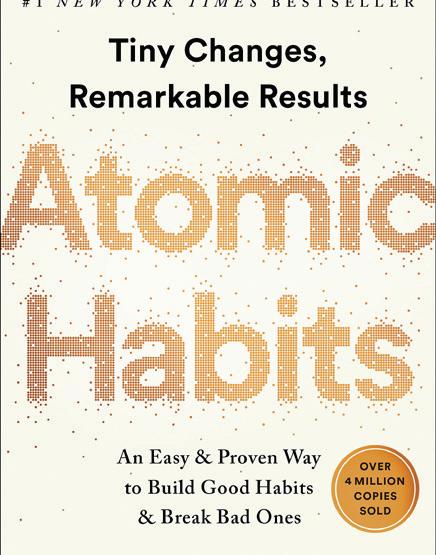
Happify uses sciencebased activities and games to help you overcome negative thoughts. It's great for when you're feeling anxious, sad or stressed. Free on iOS.

Anxiety can be tricky to explain, but this book helps kids understand how stress can affect the human body. Empower your children by giving them the tools to understand more about their mental health.
Everyone can benefit from meditation – kids included! This is a great beginner’s guide for children starting their journey towards mindful moments. Playful rhymes and illustrations will keep practise fun for all!
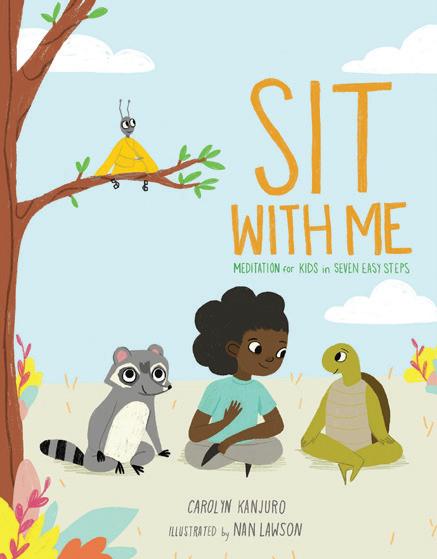
This sweet story reminds children of the importance of self-love. It emphasises that while being kind to others is important, it’s equally important to be kind to ourselves. This is an essential lesson as children get older.
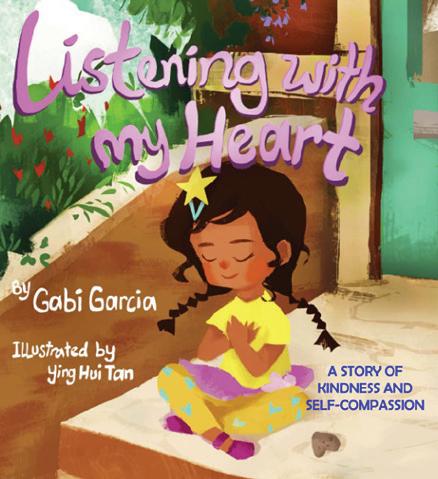
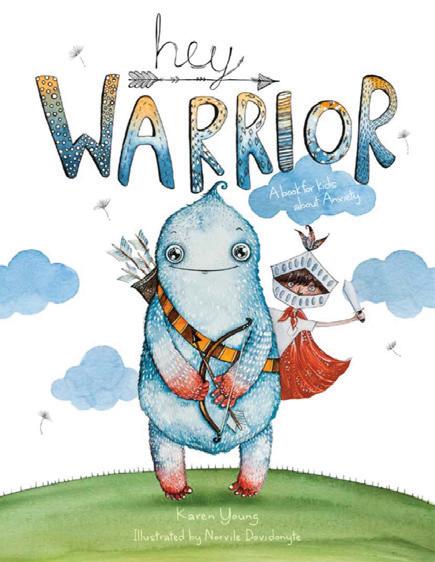
Moshi Kids provides audio stories designed to promote emotional wellbeing. Whether your kids are having trouble sleeping or simply feeling anxious, Moshi can help relieve stress. Free on Android and iOS.

Cayman Parent Magazine | Wellbeing76 WELLBEING
Best
Best
Best Digital for Parents Best Digital for Children
Listings
Gyms, Women's Health and Aesthetic Treatment Providers
Bliss Yoga Cayman
Family Doctors.
Aesthetics Clinics
Aesthetics Cayman
2nd Floor Fidelity Financial Centre, SMB. Tel: (345) 943 7001 Web: www.aesthetics-cayman. com Convenient and effective aesthetic services including Botox, dermal fillers, injectable facial rejuvenation treatments and more.
Cayman Rehab Services
Eucalyptus Building, Shedden Road. Tel: (345) 943 7974 Email: caymanrehab@gmail.com Web: www. caymanrehabservices.com Microdermabrasion, facials, Platelet Rich Plasma (PRP) Facial Rejuvenation, sculpting treatments and more.
Da Vinci Centre
Park Place Plaza, West Bay Road. Tel: (345) 943 2002 Web: www.davinciwellnesscentre.com Botox, fillers, Carbossi Therapy, microneedling, laser services and more.
Dr. Rebeca de Miguel MD PhD
Derma Ltd, The Grove, 1358 West Bay Road. Tel: (345) 233 1152 Web: www.derma.ky Dermatological intervention and treatment for clinical and cosmetic issues and procedures.
Feminine Care Products
Women’s Haven
Email: info@womenshaven.com Web: www. womenshaven.com Moon cups and organic sanitary pads and tampons. Available at Foster’s, Kirk Market, Hurley’s and West Bay Pharmacy.
Gyms/Exercise/Yoga Studios
345 Personal Training
Tel: (345) 926 2117 Email: 345personaltraining@ gmail.com Offers weekly group pre and postnatal circuit classes and personal training.
Align
45 Market Street, Camana Bay. Tel: (345) 640 5050 Web: www.align.ky Pilates studio with pre and postnatal classes.
Anytime Fitness
82 Market Street, Camana Bay and Harbour Walk, Red Bay. Tel: (345) 946 4748 24-hour gym.
Balance Cayman
Caribbean Plaza, West Bay Road. Tel: (345) 326 8111 Web: www.balancecayman.com Small group classes, remote coaching and personal training.
Marquee
Plaza, 36 Lawrence Boulevard. Tel: (345) 949 9642 Web: www.blissyogacayman.com Yoga classes and workshops.
Cayman Physiotherapy
Two locations: Suite 26 Pasadora Place, Smith Road and West Shore Center, West Bay Road. Tel: (345) 949 8828 Web: www.caymanphysiotherapy.com
Physio led Pilates, 1:1 and small classes including pre and postnatal specialised classes.
Centre Pointe Dance Studio 108 Alissta Towers, North Sound Road. Tel: (345) 926 5889 Web: www.centrepointedancestudio. com Dance studio with adult classes including ballet and tap.
Energy Essential Fitness Cricket Square. Tel: (345) 946 6006 Web: www. energycayman.com Fitness classes including pre and postnatal Pilates workshops.
Fitness Connection Glen Eden Road, South Sound. Tel: (345) 949 8485 Web: www.fitness.ky A family fitness and aquatic facility.
One Heart Yoga & Apothecary 215 West Bay Road, Seven Mile Shops. Tel: (345) 938 9642 Web: www.oneheartcayman.com Deepen your being and your yoga practice at One Heart.
Powerhouse Gym
861 Crewe Road, Red Bay. Tel: (345) 946 5464 Web: www.kingssportscentre.com Full gym and fitness studios. Personal training available.
Ryde Cayman
The Crescent, Camana Bay. Tel: (345) 746 7933 Web: www.rydecayman.com Performance cycling on stationary bikes set to music.
VITAL Spinbar & Yogaden
1053 Crewe Road, Unit B1/B2, Grand Harbour Shops. Tel: (345) 333 4825 Web: www. vitalcayman.ky Yoga, indoor cycling, hybrid classes, personal training, HIIT, dance/sweat classes and private sessions.
World Gym
Snooze Lane, Seven Mile Beach. Tel: (345) 949 5132 Large 24-hour gym with a good selection of machines and classes.
Women's Health Clinics
list of General &

Cayman Clinic Medical Centre
439 Crewe Road, George Town. Tel: (345) 949 7400 Email: cayman.clinic@gmail.com Web: www.caymanclinic.ky.
Cayman Islands Hospital – Women's Health 95 Hospital Road, George Town. Tel: (345) 244 2649 Web: www.hsa.ky.
Cayman Physiotherapy
Two locations: Suite 26 Pasadora Place, Smith Road and West Shore Center, West Bay Road. Tel: (345) 949 8828 Web: www. caymanphysiotherapy.com Offering an innovative women's health programme, pre and post-natal Pilates, 1:1 women’s health specialist physio, specialist postnatal check ups (Mummy MOT), acupuncture, massage therapy and more.
Elzke Hoehler PT, OMT & Certified Pelvic Health Therapist
Elevation Health & Physiotherapy, 2nd Floor, Fidelity Financial Centre, 1 Gecko Link. Tel: (345) 623 6663 Email: info@ehphysio.ky Web: www. ehphysio.ky Assisting women with all aspects of personal healthcare at every stage of life.
Dr. Barry Richter MBChB, MMed, FRCS(C)
NovoClinic, BritCay House, 236 Eastern Avenue, George Town. Tel: (345) 746 6082 Email: frontdesk@novocayman.com Web: www. novoclinic.ky Specialised care in gynaecology, urogynaecology, the menopause and feminine aesthetics.
Total Health
The Grand Pavilion, West Bay Rd. Tel: (345) 333 2222 Pharmacy: (345) 333 4444
Email: info@totalhealth.ky Web: www. totalhealth.ky A flexible and personalised approach to preventative healthcare.
Regenerative Medicine
Pensum Regenerative Medicine
13 Belmont Close, Crewe Road, GT. Tel: (345) 949 8676 or (345) 939 4505 Email: health@pensum. pro Web: www.pensummed.pro Specialising in regenerative medicine and cellular repair. Pensum utilises IV therapy to deliver potent doses of vitamins, minerals and antioxidants into the bloodstream. These services include NAD IV, Myers Cocktail IV, Multi-Vitamin IV, COQ10 IV, Glutathione IV and more.
www.caymanparent.com 77
the
Please see page 172 for a full
We are Change Makers


Events App



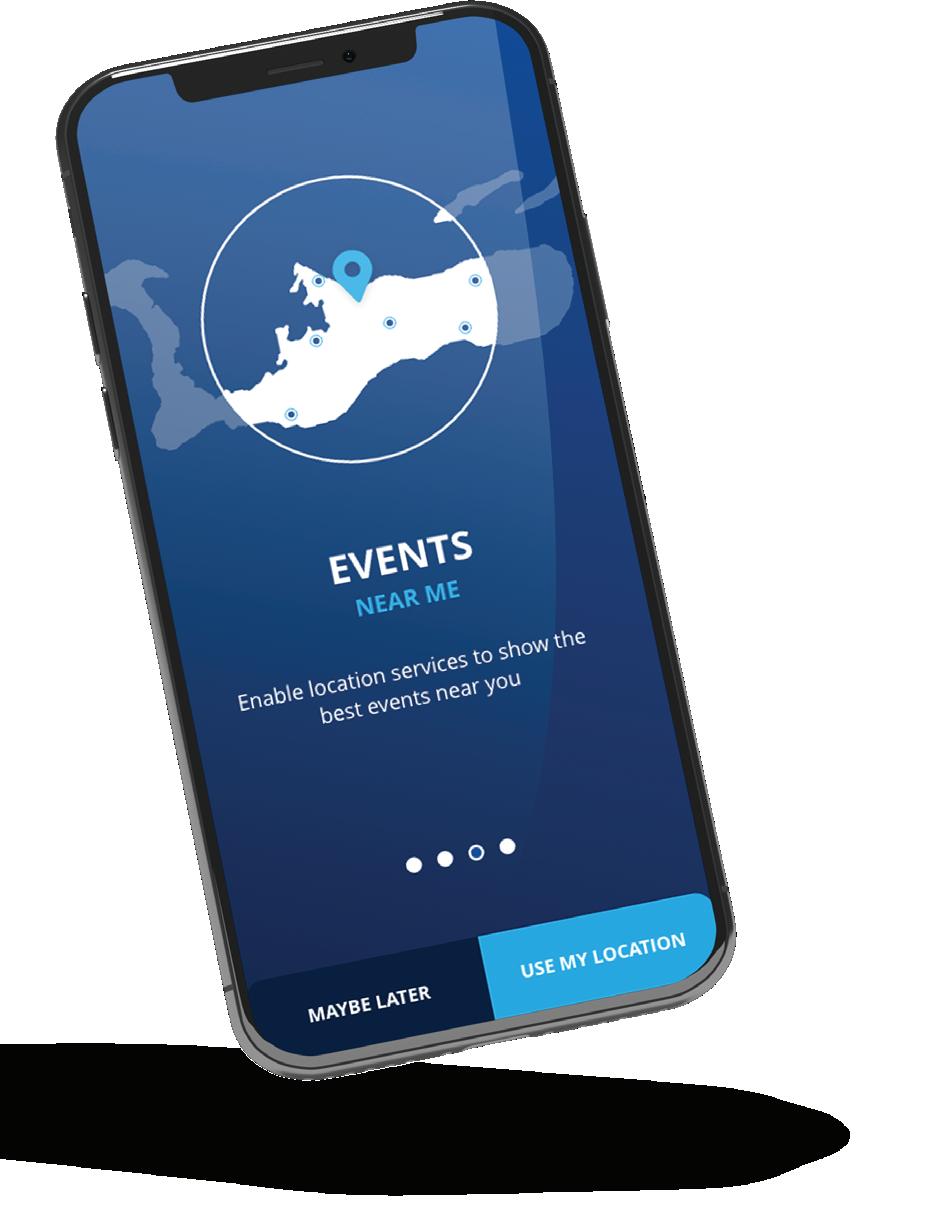


Culture • Food & Drink •Entertainment •Arts • Community • Parties • Charity • Toddler • Sports
Cayman’s 100s of events to keep you and the family entertained WhatsOnCayman.ky Scan to download
Yes, we teach pupils how to excel in exams, but we also teach them how to collaborate, how to solve problems and how to think critically. We equip them with the skills, resilience and ideas they need to adapt and thrive in a world that’s changing faster than ever before. We are co-educational boarding and day schools just 30 minutes from London by train and 45 minutes from Heathrow Airport. Together we offer education for pupils aged from 3 to 18 years. Stowe, Swanbourne House and Winchester House Schools are educating a generation of Change Makers ready to transform the world. stowe.co.uk Cayman Parent Magazine | Education78

www.caymanparent.com 79 Education Contents Everything from preschool to university, at home & abroad... How to Choose a Preschool p80 The ABCs of Active Reading p82 Literacy Development p84 Milestones Schooling in Cayman p88 Homeschooling in Cayman p94 Tutoring in Cayman p96 Education Book Club p97 Inspiring Educators Q&A p98 The Benefits of Boarding p100 School Ask a Boarding School p107 Student Smart Scholarship Strategy p108 Saving for College Fees p112 Applying to Overseas p114 Universities Local Colleges & Universities p118 Trade & Vocational Training p120 Courses The Listings p123 Photo courtesy of Cayman Prep & High School
How to Choose a Preschool
The preschool years – from birth to age five – see the most active period of development the brain ever undergoes, where neurological pathways are established for future learning, and patterns of health and behaviour are laid down that may affect the trajectory of a child’s life. All the more important, therefore, to find a preschool that will give your little one the greatest start.
If you are new to the Cayman education system, or this is your first child, you might want to check out a prospective preschool’s latest inspection report, produced by the Office of Education Standards (OES), a division of the Cayman Islands Government. This enables you to glean a wealth of insight about a school before you even book your tour! Judged according to various criteria, preschools receive a rating from Weak to Satisfactory, Good, or Excellent and inspection reports detail recommendations to improve standards. However, there are a wealth of other factors to consider. Here are a few pointers:
10 Markers of an Excellent Preschool
1. Qualified & Passionate Early Childhood Practitioners
Current Education Council Guidelines stipulate that only one member of staff (out of every ten) must possess a Teaching Licence – though not necessarily specific to Early Childhood Education. Excellent preschools invest in well qualified early childhood teaching practitioners, experienced and passionate about this unique stage of learning and development. The socioemotional bonds and relationships that your child builds with teachers are central to nurturing positive dispositions to learning.
2. An Active, Hands-on Learning Environment
Quality preschools create engaging, developmentally appropriate, purposeful, and enjoyable play-based learning
environments that tap into the interests and fascinations of each child. Diversity should be reflected in all aspects of these environments and mirrored in displays, books, artwork and photographs. Offering a mixture of self-initiated and adult-led activities including exploratory play with open-ended resources (e.g. water play, role play and sensory play), fosters creativity, teamwork, independent thinking and a strong sense of self.
3. Developmentally Appropriate Foundational Skills
Preparing children for the next stage of their learning journey is vital but beware of the trend towards ‘schoolification’ (introducing school standards earlier via increased teacherdirected pedagogies, less playtime, greater attention to academic content and isolated, technical instruction) as this can backfire, increasing stress hormones in the brain. Conversely, creating fun, purposeful language and print rich environments that promote ‘serve-and-return’ interactions motivates children to read and write, promotes curiosity, and creates lifelong learners and creative, critical thinkers.
4. Routines & Expectations
Children thrive with clear routines and expectations, but within this there should be a healthy mix of free play and small group sessions that are structured to your child’s needs. Likewise, flexibility within the syllabus allows children to pursue their own

Cayman Parent Magazine | Education80
Photo courtesy of Bouke Maddox taken at Little Trotters
interests. It is important that value is placed on the process of how children learn, rather than simply the end result.
5. Music & Movement
Children intuitively love music, songs, nursery rhymes and clapping games. Regular exposure to different rhythms, rhymes, sounds and instruments, along with movement and dance, is key to developing language, number concepts, spatial awareness and socio-emotional bonds.
6. A Shady & Stimulating Outdoor Environment
Education Council Guidelines require all Early Childhood
Centres to have 40-square-feet of useable outdoor space per registered child. This should include a shady garden or play area where children can engage with nature and enjoy fresh air and stimulating physical play out of the sun.
7. Themes & Topics

Exploring a variety of topics linked to books, learning activities, outings, or guest speakers sparks curiosity, firing children’s imaginations and enabling them to make connections between concepts and the world in which they live.

8. Caring for Animals
Whilst not possible at all preschools, guinea pigs or rabbits make perfect nursery pets. Looking after and cuddling animals instils responsibility, nurtures compassion and empathy, and reduces anxiety in children.
Fun Activities for Preschoolers
All children love water! Why not have an industrious soap-sud-covered morning washing the car? This encourages team work, builds character and self worth, and develops gross motor skills. The benefits abound!
Make mud pies! Add fragrant herbs and spices like thyme and rosemary, which are abundantly available in Cayman and can be bought at the Farmers Market. Then let the mud pies bake in the sun and enjoy the fragrance of the cakes that afternoon.
Leap into the world of make believe and role play by providing fabric for tent building and fancy-dress garments to stretch the imagination, build confidence and evoke dramatic play and storytelling.
Equip young explorers with a magnifying glass and a torch and go on a bug hunt in the undergrowth of the garden.
9. Parent Partnerships
When parents feel engaged, and schools establish clear and effective lines of communication, the result is improved outcomes and fewer behavioural issues. Positive engagement with parents and families surrounding matters like behaviour, rewards and sanctions, screen time, or nutrition, makes for a more cohesive and supportive school experience for all.
10. Positive Atmosphere & Ethos
Preschools should have a caring, nurturing ‘can-do’ ethos, that promotes thinking and where mistakes are seen as integral to the learning process. Skills such as concentration, trying a different approach, risk-taking, or perseverance should be praised. This kind of responsive, nurturing, respectful caregiving fosters confidence and an all-important sense of belonging.
Observe how teachers listen and talk to children in their care. They should embody and model the kindness and respect you would like your child to develop. Naturally, there are practical considerations to choosing a preschool, including location and hours of operation, but those ‘good feels’ should not be ignored.
It is worth noting that some preschools in Cayman have long waiting lists. Many require you to sign up your child while pregnant. If you do not get your child into your first choice then do not despair there are plenty of great preschools in Cayman that will give your child a brilliant start to their education.
Each BrightBox

your child to explore, solve and create.
enjoy
www.caymanparent.com 81
We offer Maths, Sensory and Invention subscription boxes delivered directly to your door.
encourages
Order once or
discounts on 6-month and 12-month subscriptions. www.brightbox.ky | brightboxltd@gmail.com Fun! National Curriculum-based! Kid-Approved! BrightBox
The ABCs of Active Reading
If you want to send your children to school with a head start, reading with them, rather than to them, is the best way to begin. Reading does not need to be a daunting or over-complicated endeavour for your child – it should be an enjoyable activity that they look forward to.
Reading is, without a doubt, the foundation of all learning, and the correlation between good readers and good learners has been extensively documented. However, the foundations for reading are laid out long before your child goes to school. They begin at home, with picture books and bedtime stories, and it’s the way those stories are read that is just as important as the reading itself. Over time, consistent active reading can significantly improve your child’s language and literacy skills.
What is Active Reading?
Active reading, also known as interactive or dialogic reading, is reading in a way that makes your child an active participant. In other words, it’s reading with, rather than to, your child.
Instead of simply reading aloud from beginning to end, active reading allows the book to become a tool or prompt for you to have a two-way conversation with your child. Active reading involves not only following the text, but also looking at and talking about the pictures, asking questions, explaining new words, and discussing the story. This more interactive style of reading helps children expand their vocabulary, greatly improves their comprehension and encourages them to think analytically from an early age.
How to Read Actively with Your Child
There are many acronyms that have been suggested to guide parents and caregivers in making reading interactive, but the simplest is the 'ABC' one:

A Ask questions
B Build vocabulary
C Make connections
Ask Questions
As you read, pause often to ask questions that prompt a conversation about the story. With toddlers, you may ask them what a story book is about based on the front cover, or use the pictures inside to help develop their language skills. Have them count objects, name colours, or point out animals.
For preschoolers, ask questions about the story: What is the boy doing? Where is the family going? Who is inside the house? Open-ended questions like this encourage children to think about the story and to express their understanding in their own words.
As they progress, questions might arise about why they do or don’t like the story, what they think will happen next, or why a character might be feeling scared, happy or excited. These types of questions not only check their understanding, but also encourage them to make inferences about things that are implied but not specifically stated.
Build Vocabulary
Use pictures to teach your toddler new words. For example, point to a picture of a cow and pronounce the word. Later, ask them to point to a cow on another page.
As your child grows older, take time to pause at new words and phrases, sound them out and explain their meaning or act it out. This could be whispering the word 'whisper' or demonstrating scratching, stroking or snoring sounds/actions.
Stories expose children to vocabulary they may not encounter in every day conversation at home, and the wider a child’s vocabulary is, the easier they will find learning to read.
Cayman Parent Magazine | Education82
Make Connections
When you talk about the story or introduce new words, try to make connections between them and your child’s experiences, whether that is explaining that a 'bungalow' is a one-storey house 'like Grandma’s house', or illustrating that 'rough' can mean wavy, 'like the sea on a windy day'. By relating words and events in the story to things your child has encountered or experienced — be it people, places, or emotions — they will absorb new words and ideas faster.
Benefits of Active Reading
Sitting your child on your lap to read their favourite story is an experience to be cherished. Not only does the intimacy of the experience build strong bonds with your child, but the positive associations your child makes with books — especially when reading is fun and interactive — helps foster a lifelong love of reading.
As the esteemed children’s author Julia Donaldson told Cayman Parent, "Reading broadens the mind and stimulates the imagination — and it’s one of life’s great pleasures."
Although children will be exposed to new words and become familiar with sentence and story structure with all styles of reading, when reading is interactive, children are more engaged, and therefore learn concepts faster. They are pushed far beyond simply sitting and listening. Their comprehension improves, and their attention span is longer. In fact, a 2013
study found that reading to a child in an interactive style raised his or her IQ by over six points. Given that 90% of a child’s brain development occurs before the age of five, the sooner they are introduced to language, literacy and comprehension, the better.
Tips to Keep Children Engaged in Reading
Look at pictures: As you read, prompt your child to name colours, count objects or identify animals in pictures.
Check understanding: Ask your child to tell you in their own words what the story is about, who the characters are, or what they might do next.
Allow interruptions: Interactive reading is a two-way communication, so keep it unstructured and let your child make comments and ask questions.
Know when to stop: If your child is restless or not paying attention, don’t force it. Put the book away and try again later.
Make it fun: Put on voices for different characters, act out movements and make the story fun so that your child thinks of reading as an enjoyable activity.
Repeat: Toddlers love repetition, so if they want to read the same story over and over, don’t resist. They will soon be able to finish sentences and fill in the blanks in well-loved books.
book store

Next Chapter is a haven for book lovers across Cayman. Offering an unparalleled selection of books, magazines, toys, games and unique gift ideas, all backed by their Lowest Price Guarantee. The store is also home to regular literary events, including a local and international author series, children’s events, poetry evenings and book clubs, all of which make the store a popular community gathering place.

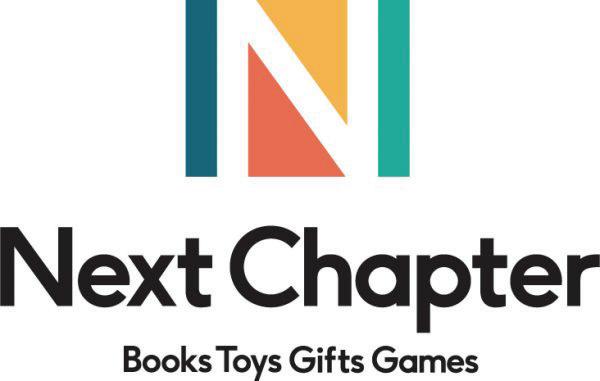
Programmes:
Chapter
wellness
all free of

Details:
a
Monday-Friday
www.caymanparent.com 83
Next Chapter Independent
(345) 640 2665 | www.nextchapter.ky | Market Street, Camana Bay Highlights: Independent book store • Unparalleled selection of fiction and non-fiction titles • Toys • Unique gift ideas • Home to regular literary events • Free gift wrapping • Lowest Price Guarantee
Open
from 10am-6pm, Saturday 9am-6pm and Sunday 10am5pm.
Next
hosts
range of local and international author readings, and monthly
presentations by local physicians and wellness professionals,
charge.
Literacy Development Milestones
From being able to read labels on medication, identify road signs and order food at restaurants to browsing the internet and emailing and messaging friends, literacy plays a significant role in our everyday lives. The most basic definition of literacy is the ability to read and write, but it is so much more than that. Having strong literacy skills means we are able to communicate effectively and make better sense of the world around us. – Cynthia Rowe, Clinical Supervisor & Speech-Language Pathologist at KidsAbility
Literacy is quite possibly the most important factor contributing to academic and social success. Children who struggle with reading and writing often find themselves struggling in other subjects as well. Even children who excel in subjects like Maths may not reach their full potential if they aren't proficient in reading and writing.
In addition to having a negative impact on a child's overall academic progress, poor reading skills can also affect a child's social wellbeing. For example, having to repeatedly ask for help and struggling when reading aloud in class can be embarrassing for a child – this can cause a decrease in self-esteem, and may cause children to withdraw or shut down, resulting in an even greater learning gap.
As a parent, you might be wondering, “How do I know if my child is falling behind in regards to their reading and spelling skills?”. Although children generally follow the same path and stages in their literacy development, each child is unique and may well learn and progress at a different rate to another child of the same age. The stages below can be used as a tool to help parents become more aware of typical development of reading and spelling, so we can better help or guide children when and if that is necessary.
Stage 1: The Pre-Reader or Emergent Reader (typically 6 months — 6 years)
Closer to the beginning of this stage, children will...
• 'Pretend' to read
• Sing their ABCs (but may not be able to single out particular letters)
• Recognise the first letter of their name
• Recognise environmental print, such as their street name
• Have some favourite books memorised and can 'read' them
• Be curious about words and may ask, “What’s that word?”
Closer to the end of this stage, children will…
• Be able to 'read' some words that are important to them, such as their name
• Prefer writing uppercase letters over lowercase letters
• Begin to write from left to right
• Know most letter names and most consonant sounds
• Be able to 'play games' with word sounds, such as rhyming
words and counting syllables
• Begin to match letters to sounds in words
• Confuse letters that sound and/or look the same such as b, d, p, and q
• Use spacing in between words more regularly, but can still be random at times.
Stage 2: The Initial Reader and Decoder (typically 6 years – 7 years)
Closer to the beginning of this stage, children will…
• Move from pretend reading to real reading
• Attempt unknown/unfamiliar words, even if they don't make sense
• Sound very laborious when reading (word-by-word)
• Begin to recognise sight words for example 'the', 'and' and 'up'
• Be very focused on reading the words correctly hindering comprehension
• Finger point to words when reading
• Consistently be able to rhyme and 'play' with sounds in words
• Be able to match the written letters in words to letter sounds more consistently
• Spell mostly with the beginning and ending sounds, as they are easiest to hear and feel in the mouth (e.g. ball spelled BL and seat spelled ST)
• May reverse some letters.
Closer to the end of this stage, children will…
• Attempt unknown words, but begin to realise that their guesses need to make sense
• Start to add vowels in the middle of words, whereas before they were left out (e.g. fall may be FOL and boat may be BOT)
• Use context clues to help with unknown words when sounding out doesn’t work
• Develop more of an awareness that text should make sense; begins to self-correct more when an error is made
• Begin to spell most short-vowel patterns (CVC) correctly
• Start to spell consonant blends (fr, gl, sn, etc.) and digraphs (th, sh, ch) correctly
• Reverse letters less often, but it may still happen on occasion.
Cayman Parent Magazine | Education84
Stage 3: The Confirmation and Fluent Reader
(typically 7 years – 9 years)
Closer to the beginning of this stage, children will…
• Be able to hear and count individual sounds in words (phonemes)
• Self-correct more when what is read doesn’t make sense
• Read more fluently
• Focus more on comprehension as decoding becomes easier
• Be able to recognise more high frequency words by sight
• Spell most one-syllable short vowel patterns correctly
• Spell most common sight words correctly, such as 'the', 'like', 'play', etc.
Closer to the end of this stage, children will…
• Begin to read many two or even three syllable words if there’s enough context to support them
• Discuss what’s read in more depth as texts become longer and more complex
• Recognise sight words more frequently
• Read sounds more fluently, as readers think beyond word-
• Begin to spell words with more complex consonant patterns correctly such as –tch, str– or thr– (still may confuse them).
Stage 4: The Comprehending Reader (typically 9 years – 15 years)

At this stage, children will:
• Read to learn new ideas
• Read to gain new knowledge
• Read for pleasure
• Read to learn new attitudes
• Explore ideas from multiple perspectives
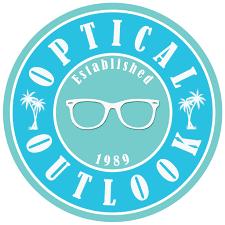
• Read to study textbooks, reference works, trade books, newspapers, and magazines that contain new ideas and values, new vocabulary and syntax.
Stage 5: The Expert Reader (typically 16 years and older)
At this stage, children will:
• Read from a broad range of complex materials
• Read from a variety of viewpoints
• Read for one’s own needs and purposes (professional and
www.caymanparent.com 85
Anderson Square, GT l Jacques Scott Plaza, WB l Tibbets Square, Cayman Brac l +1 345 746 2020 email: team@opticaloutlook.ky l Open: Monday - Saturday 9.00 am – 5.00pm9.00am – 5.00pm Protect your eye health with an eye exam from one of Optical Outlook’s trusted Optometrists Optical Optometrists. With kids in mind, we have a variety of glasses styles, and colours, for your favourite little people. h ve variet ss s st s an col urs, fo o r vo i e itt peo le
should you actually start to worry? According to Today's Parent, some kids just get it — they seem to be reading naturals and are practically self-taught by kindergarten, or they’ll learn it in school rapidly no matter what method a teacher uses. For other children, it takes more time to decode language by making the connection between letters and sounds, and different teaching styles may be needed before it finally 'clicks'.
According to Molly Ness, Ph.D. and Associate Professor in the Graduate School of Education at Fordham University, in her March 2020 article for Psychology Today, "We now know that the precursors of dyslexia are visible as early as age three, demonstrated in weakness in phonological skills, letter knowledge, rapid naming, and working memory (Gaab, 2017)." Even without a family history of literacy difficulties, it may be important for a child to undergo an early literacy assessment in order to determine whether intervention is warranted. There is no reason to wait for a child to fail and then see if they require intervention. Instead, we can identify at-risk children early, provide high quality intervention before failure occurs and, in most cases, make significant progress in their reading skills.
According to Dr Kirstina Ordetx's article for The Institute for Multi-Sensory Education (IMSE) titled 'Early Signs of Dyslexia' (July 2020), and in line with current research, "Evidence-based reading intervention provided in the early years can better prepare the child to confront reading at the word, sentence, and passage level. Screening can be administered as early
as preschool and should check for developmental skills in the essential areas of reading including phonological awareness, letter-sound association, blending, word recognition fluency, word identification, vocabulary, oral reading fluency, and comprehension."

It is also important to note that children presenting with language and literacy deficits will not outgrow these deficits on their own. For this reason, it is crucial that language and literacy difficulties are identified in children at an early age in order to ensure their optimal educational and social outcomes.
So, what can parents do about it? The first thing is to speak to your child's school. Advocate for your child if you believe that something is not quite right. Schedule a consultation with a Speech-Language Pathologist and/or Psychologist to discuss your concerns and pursue clinical testing.
Red Flags to Watch Out For – Early Warning Signs in Preschool
1. A family history of Dyslexia
The most common indicator that a child will struggle with reading is whether they have a family history of reading or learning difficulties. Twenty years worth of research shows that there is a heavy genetic component to reading difficulties.
2. History of delayed speech and/or difficulty pronouncing words
When kids learn to read, they need to hear differences in sound — this is called ‘phonological awareness’ — and they need to grasp how language works. Children identified as having speech and language delays will almost certainly have lingering weaknesses in phonological processing. This is why it is crucial to initiate speech and language therapy as early as possible if your child needs it.
3. History of chronic ear infections
A history of ear infections may hamper a child’s ability to learn word sound structures, affecting their development of reading skills. It is therefore important to attend regular hearing tests.
4. Difficulty learning the alphabet
As well as trouble recalling numbers, days of the week, colours, shapes and how to write his or her name.
5. Difficulty with rhyming
An early red flag is difficulty in learning to rhyme. Many times these children do not want to play rhyming games as preschoolers or kindergarteners.
6. Difficulty with sequencing and following directions
Knowing the directions from A to B is about memorising a sequence of actions. If a child has difficulties following simple steps, such as setting the table in the right order, or routinely gets the days of the week muddled up, these might be symptoms of a problem with sequences of information. You may also notice things like mistaking dinner and lunch, or being unable to tie shoe laces correctly.
7. Avoiding reading at all costs
preschool and kindergarten, the majority of children
Cayman Parent Magazine | Education86
In
lovePasadora Place, 94 Smith Road, Unit 15, George Town, Grand Cayman Clinical Services: • Developmental Psychological Assessment • Psycho-Educational Assessment • Functional Behavioral Assessment • Early Intensive Behavioral Intervention (EIBI) • Focused Behavioral Therapy (ABA, ACT) • Behavioral Skills Training (BST) for parents, caregivers, and school staff • Positive Behavior Supports (PBS) training for parents, caregivers, and school staff Educational Services: • Playschool program, for early intervention • "Alternate Placement" Educational Program, for school-age children • Tutoring for children with Special Education Needs 345-947-5477 info@caymanaba.com www.caymanaba.com
being read to and can’t get enough of books, letters and numbers. Most want to grab a crayon and start trying to print their name. It’s the opposite in kids who go on to struggle with reading, experts say. They often don’t have a curiosity about being introduced to letters as they’re getting towards school age. So those kids who enjoy being read to get more out of it; those who don’t get left behind.
Warning Signs in Elementary & Middle School
1. Frequent spelling mistakes
Children with reading difficulties often confuse letters that sound alike. Vowels and vowel combinations can be tricky. They may mix up the order of letters (blet for belt). They may also misspell common sight words, even after a lot of practise.
2. Letter or number reversals after first grade
Repeatedly mixing up similar letters (for example, b and d) can be a red flag if it goes on long enough. By eight years of age, all reversals should have been corrected.
3. Slow, choppy reading
Slow or choppy oral reading with words omitted, substituted, or misspoken are important clues that a child is not on track to becoming a skilled reader.
4. Poor memory for sight words
Sight words are common words that kids recognise instantly without sounding them out. Recognising words by sight helps kids become faster, more fluent readers. Many sight words are tricky to read and spell as they aren’t spelled the way they sound.
5. Difficulty focusing or paying attention
Teachers report that they are struggling in class. It may be that there are underlying difficulties with reading and that an assessment is required. People may also mistakenly assume that their child is lazy or bored because of their avoidance of school work.
6. Right and left confusion
Problems with direction and issues with words often go together.
7. Difficulty learning to tie shoe laces Shoe-tying, like reading, requires a certain level of spatial awareness. If your child is struggling with both tasks, that is a red flag.
8. Difficulty with clock reading Learning to read an analogue clock is an important part of child development, but for some children this can be a difficult and frustrating process. Children who are struggling to learn to read often find that it is hard to learn how to tell the time when using a clock that has hands and numbers.
Literacy Programmes
Below is a list of well-known Literacy Programmes. Some of these are used at schools for students who struggle with reading and some are being incorporated into intervention programmes at many of the treatment clinics in the Cayman Islands. Please also note that the local non-profit organisation, Literacy is for Everyone (LIFE) who, in partnership with Nicola Williams, President of the Cayman Islands Early Childhood Association, sponsors Deloitte, and a host of community partners, launched Thrive By Five, its foundational literacy
programme in September 2021 at participating preschools. This is an amazing programme and the people involved in it are passionate about raising literacy levels in Caymanian children. Through donations the LIFE group has created printrich libraries in many of Cayman's preschools.
Literacy Programmes
- Seeing Stars® by Lindamood-Bell
- The Orton-Gillingham Approach - The Wilson Reading System® (WRS)
- Nessy, the Davis Reading Programme for Young Learners - Fast ForWord
If you have concerns about your child’s reading, speak to their school about the programmes they have available. It may also be recommended that you schedule a consultation with a Speech-Language Pathologist and/or Psychologist to discuss your concerns and the programmes they have available.
Cynthia Rowe is a highly qualified Clinical Supervisor and Speech-Language Pathologist at KidsAbility. Cynthia has over 18 years of experience providing speech and language intervention and is passionate about providing client and family-centred services to create meaningful changes in the lives of her patients
KidsAbility
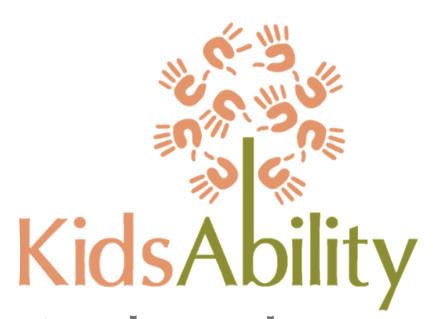
A multidisciplinary paediatric therapy clinic.
KidsAbility is a multidisciplinary therapy clinic that offers Psycho-educational and Neuropsychological Assessments, Clinical Psychology Services, Counselling Services, SpeechLanguage Therapy, Occupational Therapy, Feeding Therapy, Literacy Services and Workshops for parents, educators and allied health professionals. Their clinical and administrative staff work together to provide the highest quality, efficient and effective care for their clients and their families in a confidential manner.
Highlights: Psycho-educational Assessments • Neuropsychological Assessments

Details:
Open: Monday-Friday 8am-5pm & Saturday 8am-4pm
Clinical Psychology Services • Counselling services • Speech-Language Therapy • Occupational Ther apy • Feeding Therapy • Literacy Services • Workshops for parents, educators and allied health professionals (345) 943 5437 | 8 Midtown Plaza, 273 Elgin Avenue, GT info@kidsability.ky | www.kidsability.ky
www.caymanparent.com 87
•
Schooling in Cayman
In Cayman, it is compulsory for all children from the age of five to 17 to attend school or be home-schooled. However, the reality is that most children in Cayman start preschool at two, primary school at four and don’t finish high school until 18 (if in the private school system, and 17 if in the government school system). At all levels in Government schools, priority for admission is assigned to Caymanians; in addition, at the compulsory education stage, priority is also ascribed to dependents of Caymanians, dependents of Government workers, dependents of Permanent Residents, and other children approved by WORC for entry into Government schools. Admission for categories outside of Caymanians and dependents of Caymanians, is subject to space availability. See https://schools.edu.ky/ Pages/SchoolRegistration.aspx for registration details. The cost difference between public and private schools is significant.
The education in Cayman is good but invariably the quality fluctuates between schools and indeed between classes within the same school. The children who excel the most have parents who are constantly on top of their children’s academic progress. Knowing, for example, that 90% of children should be able to read quite comfortably by the age of six should raise a red flag if your child is not. See the Literacy Development Milestones article on page 84. Parents who keep in very close contact with their child’s school, insisting on solutions to any problems, and who are willing and able to help their child with their reading and homework, will find their children do not fall through the cracks. It’s worth every effort you can make: education has been proven to be the best way of pulling people out of low incomes and poverty, and provides access to highly skilled and highly paid professions.
The Office of Education Standards (www.oes.gov.ky) has an amazing team of fair and highly experienced educators and ex-educators who conduct regular school inspections. From their reports, which include everything from teacher's and student's performance to where a school’s strengths and weaknesses lie, you can make either an informed choice on where to send your child or where you might need to assist your child so that they fulfil their full potential at school. Most schools are inspected once every two years, unless they are graded 'weak' and then they are inspected again six months later. A 'Good' or 'Excellent' school inspection result is highly coveted and a 'Weak' or 'Satisfactory' result highly frowned upon, so standards have been improving at a considerable pace as a result.
School Statistics
According to the 2021 Education Data Report, there are 1,780 children enrolled in 43 preschools, and a total of 8,434 children enrolled in 27 private and government schools spread across
the three Islands with 790 teachers teaching these students. In primary and secondary education there are 3,755 students in private schools, 2,306 in government primary schools, 2,373 in government secondary schools and 115 students enrolled in the Lighthouse School, the country’s school for special needs, with 18 teachers teaching them. Approximately 150 children are homeschooled.
Factors to Consider
When considering your options for schools for your child, remember to take into account school inspection results, class sizes, discipline, manners, special needs support, standard of teaching and the consistent dedication of the teachers, and lastly the cost. At the end of the day it is a false saving if your child is going to a low-fee school but they are not learning and growing academically and socially at the rate they should and could for their age.
Curriculum
Government schools follow the Cayman National Curriculum and students take CXCs and GCSEs in Year 11. Students then have various options for their 12th and final year of high school, such as UCCI, attending a private school for A Levels, or CIFEC, where they can do BTECs, retake CXCs or GCSEs and participate in work experience and internships or take one of the many vocational courses now being offered in Grand Cayman. British private schools take GCSEs or IGCSEs, then A Levels. The American system leads to a US High School Diploma and AP (Advanced Placement) credits. The highly regarded International Baccalaureate is available in Grades 11 and 12 at Cayman International School.
Class Sizes
Class sizes vary from school to school. All government school class sizes are capped at 24 students per class for Kindergarten/ Reception and Year 1, and 28 students in other years. In private schools, it ranges from 13 students to 25 students. All government schools and most private schools also have a full-time qualified teaching assistant helping the teacher in most classes of 25 children. In some schools, this additional teaching resource runs through all primary year groups. Make sure to ask about this.
Religious/Non-Religious
Most of Cayman’s schools have a strong Christian tradition and celebrate the Christian faith. If you would prefer a school that is not affiliated with a church or religious group, then there are a few to choose from – see pages 123-136.
Location
Entry to a government school is determined by catchment area.
Cayman Parent Magazine | Education88
Private schools are spread between West Bay and Prospect, so you’ll need to consider location when making your choice.
Exam Results
The Ministry of Education publishes a very detailed data report each year which explains the student enrolment numbers for both government and private schools, plus student attendance and performance data from government schools. The reports are very thorough and make for interesting reading. You can view them on www.education.gov.ky, listed under National Education Data Reports.
School Inspection Reports
Check the school's inspection report and read in detail how they are doing. See the 'School Standards & Inspections' page of the Cayman Resident website. There are also reports available on how each school handled the home learning requirements during the COVID-19 lockdown.
Key Preparations Prior to Starting School
Health Screenings
New students entering either private or government schools for the first time have a school medical exam before the new school year begins in September. These tests are invaluable for schools as they identify previously uncaught speech and language, sight or hearing issues just before the child starts at primary school. Interestingly, most therapists agree that this test should be done at 2.5 and not 4.5 so that remedial therapy can begin well before the child goes to primary school. Some problems caught under the age of three can be completely resolved if therapy is started early enough, and definitely under the age of 5 while the brain is still growing. This is one of the reasons why all preschools are now required to have a SENCo on staff.
In order to ensure that all students entering school for the first time are up to date on their immunisations, additional immunisation clinics ensure that children aged four and five are up-to-date with their required vaccinations. For further information please contact the Public Health Department on (345) 244 2648/244 2889.
In Cayman Brac and Little Cayman, school entry screenings can be done through the Public Health Nurse, Kadine Hyde, at Faith Hospital. She can be reached at: (345) 948 2243 or (345) 244 7643.
Uniforms & Dress Codes
Each school in Cayman will have approved vendors that sell uniforms and some schools sell them directly to parents. Every school will have different rules, but most maintain a strict policy on such things as uniforms, hair accessories, jewellery and hair length on boys. Parents should read the school’s dress code policy very carefully, as there is little flexibility and their rules are strictly enforced.
Transferring Schools
Moving your child from one school, either private or government, to another private school will involve some written assessments to
determine the level your child is currently working at, or capable of. Many schools will now assess applicants using some form of Cognitive Ability Test (CAT) which assesses the child’s innate skills and ability for learning. If this is the case, then it does not necessarily matter what areas your child is strong or weak in but rather how able they are. Some schools will also assess English and Maths using traditional tests to determine gaps in learning, so that teaching is directed accordingly, rather than to ascertain the level the child is currently at. Of course, there are no guarantees of a place at any public or private school and some children who have been considered as working at a high level in their current school may find that the new school’s assessment criteria is more stringent. Other things to consider are that your child must have an up-to-date medical record that includes vaccination details and a completed transfer form signed by the previous school. Along with a standard report on the child’s performance and behaviour, this form must clearly state whether financial commitments have been met. This is an essential component of the acceptance process for students transferring within the private school system. If you wish to move your child from a private school to a public school, you will also be required to submit a student registration form which can be accessed from www.schools.edu.ky.
Government Schooling in Cayman Enrolment Policy
Due to there being a high demand for a free public education, combined with limited spaces and resources, only Caymanians (including Cayman Status holders) are given priority for the places that are available. After this, spaces are offered to the children of expats who work for the government and then, if there is space, other expats. Some schools in the outer districts do sometimes have spaces available which expats can fill. Caymanians do not have to pay for their schooling, although external exams are charged at cost, and there are usually a few other incidental fees. However, if an expat child gets into a government school, then their parents are required to pay CI$750 per year for primary school, CI$900 per year for middle school and CI$1,200 per year for high school. For Government schools everyone must now register online. See https://schools.edu.ky/Pages/SchoolRegistration.aspx and make sure to have all your documents ready to upload. These include your child’s birth certificate, residency documents, immunisation record, two forms of proof of your street address plus a previous school report or transcript (Years 1-11) and any Educational Psychological reports, if they apply.
Cayman School Acronyms 101
CSEC: Caribbean Secondary Education Certificate
GCSE: General Certificate of Secondary Education
BTEC: Business and Technology Education Council
CXC: Caribbean Examination Council
CAPE: Caribbean Advanced Proficiency Test
IB: International Baccalaureate
CIFEC: Cayman Islands Further Education Centre
CIS: Cayman International School
IGCSE: International General Certificate of Secondary Education
www.caymanparent.com 89
School System
Caymanian students in the Cayman Islands have the option to enter Government primary schools either at the age of 4 or at the age of 5. If they are 4 by September 1st then they will enter Reception, and if they are 5 by September 1st they will enter Year 1. Compulsory education starts at the age of 5. Non-Caymanian children who have been accepted at a government primary school cannot start in Reception; they have to start in Year 1 or above. From Year 1, students follow the Key Stage 1 Cayman Islands National Curriculum, which is adapted from the English National Curriculum, and follow this until the end of Year 2. Key Stage 2 begins in Year 3 at primary school and runs through to Year 6, covering ages 7-11. Some primary schools also follow the International Baccalaureate Programme. Students then move from their Government primary school at the end of Key Stage 2 (Year 6) and enter one of three Government high schools, or a private school, for Key Stage 3 which covers Years 7-11. In Year 9 students choose their options for GCSE or CXC and then begin Key Stage 4 in Year 10 and study towards internationally accredited external examinations, following the relevant syllabi depending on what they are taking. Students complete this two year programme of classes (Years 10 and 11) in the core subjects of English, Maths, Science, PE* and Life Skills* (*these do not count towards your child's 5 passes if they are moving on to a private school to do A Levels) and they have the option of taking three additional subjects of their choice. Students then take exams set either by a UK exam board (GCSE) or the Caribbean Examinations Council (CXC). Students take, on average, seven GCSE/CXC but many students take more.
Some Government high schools offer the Goal Accelerated Programme (GAP) where higher performing students are guided through a far more rigorous academic programme. This includes mentoring and extensive work with the student’s parents to ensure that the children are pushed but supported. This programme ensures that goal-oriented students take additional CXCs/GCSEs as early as Year 9 as well as in Years 10 and 11 when all the other students take their GCSEs.
The Government school system also offers the Caribbean Secondary Education Certificate (CSEC) examinations which are commonly referred to as CXC examinations. CXCs are taken by students after five years of secondary school, usually at the age of 16, at the same time or instead of GCSEs. CXCs are graded I-VI with Grades I-III being considered the equivalent of a GCSE pass at A*-C or 9-5 in the newer GCSE exams. For example, a Grade I result means you have attained a comprehensive grasp of the subject and a Grade VI result means you have attained a very limited grasp of the subject.
If a student reaches the required level at CSEC, or equivalent, they may also be given the option of taking a Caribbean Advanced Proficiency Examination (CAPE) subject, which is the Caribbean equivalent of an A Level. The grading system is similar to CXC exams, with Grade I representing an excellent performance, whereas Grade VII represents an unsatisfactory performance. Grades I–III are the equivalent of an A*-C at A Level.
All students are then automatically enrolled in the compulsory Year 12 (one academic year) programme at the Cayman Islands Further Education Centre (CIFEC), where they can take an array of business and technology courses (BTEC), get involved in work experience and internships, or retake CXC or GCSE exams to improve their grade standing. There is also the option for students to enrol in a ‘dual entry programme’ such as A Levels at St. Ignatius or Cayman Prep and High School, an approved accredited school overseas (this option at the student’s expense), or attend the University College of the Cayman Islands and work on an Associate's Degree. After completing their Year 12 programme, students graduate from their original respective secondary schools at the compulsory school leaving age of 17. Those taking A Levels will carry on with their education until the age of 18.
Students who do not have the minimum five external passes (at CSEC or GCSE) including English and Mathematics (after graduating from high school), may have the opportunity to be admitted to UCCI’s Pre-College Matriculation programme, where they can obtain transferable college credits. This programme allows students to take foundation level courses in Maths, English and college skills in order to prepare students to transition into an Associate's Degree programme.
Graduation Rules & Exams
Until June 2014, government high school students graduated with a High School Diploma based solely on attendance and behaviour, and a clutch of external exams (usually CXCs or GCSEs) if they had taken any. However, for a student to officially graduate with a High School Diploma, they now must pass a minimum of five subjects, including passes in Maths and English. They are then graded into one of four academic levels: Level 2 with High Honours, Level 2 with Honours, Level 2 Diploma, Level 1 Diploma – the highest being Level 2 with High Honours. In addition, during their last three years (Years 10-12) they must have at least a 90% or more attendance record, along with less than 14 days of suspension. The levels are based on the number of CXC, GCSE or BTEC exams they pass. For example, the Level 2 Diploma with High Honours means that the student has passed at least 9 subjects at A*-B. The 9 subjects must include English and Maths. For the last two years an additional requirement to graduate has been the completion of at least 10 hours of volunteering or community service.
For entry to an A Level programme, a minimum of five passes at CXC or GCSE, including Maths and English, are considered necessary. Further requirements include a minimum grade pass at A*-C or 1-3 which are essential if applying for a government scholarship. For those in the US system, a 2.75 GPA is considered necessary for entry to a university course, but a 3.0 GPA is necessary to qualify for a Cayman Islands Government university scholarship.
For those who go on to Level 3 (International Baccalaureate or Advanced Placement diplomas, A Levels or an Associate’s Degree at UCCI) after leaving high school, the passing of this level indicates suitability for pursuing tertiary education.
Cayman Parent Magazine | Education90
Exam Fees
It is worth noting that whilst all education is free for Caymanians (at government schools), parents must still pay exam entry fees, i.e. they have to pay for every CSEC, GCSE or BTEC course (British and Technology Education Council) that is taken. Fees are approximately CI$25 per subject for CSECs, CI$50 per GCSE and between CI$110 and CI$250 per BTEC vocational qualification, depending on the subject and the level.
Government Scholarships for A Levels
All Caymanian students accepted at a private school to take A Levels or an Associate’s Degree at UCCI can apply for a scholarship to help pay for their school fees. If a student is accepted from a government school, they get the first year’s fees paid in full (plus text books) and then either CI$7,000 or CI$5,000 paid for the second year. The amount is decided on a points system based on the student's GCSE results. They must also have higher passes in GCSE and/or CXC English Language and Mathematics to secure funding. Current Caymanian students at St. Ignatius and Cayman Prep and High School can apply for funding when they enter Year 12 (and 13). All students must obtain a minimum of three Cs in their AS levels at the end of Year 12 in order to get the funding for the second year of Sixth Form.
The application period for local scholarship funding is 1st March to 30th April. Late applications will not be considered. For more information please see pages 108-110. Please note
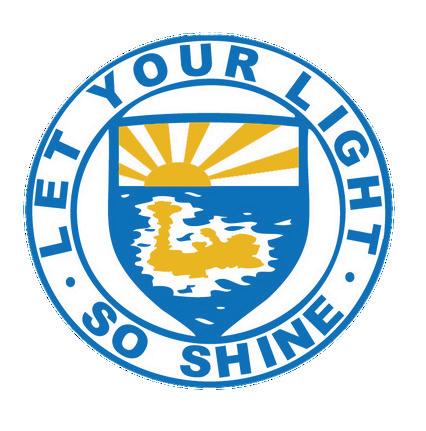
that all scholarship funding is now means tested to ensure that only those who really need financial assistance receive the funds.
International Baccalaureate System in Government Schools
The IB Primary Years Programme (IBPYP) is offered at three government primary schools in Grand Cayman from Kindergarten to Year 6. These schools are: Prospect Primary School, Joanna Clarke Primary School and Sir John A. Cumber Primary School. The IB curriculum which they cover focuses on the development of the whole child as an enquirer, both in the classroom and the world around us. The curriculum focus for these schools mirrors those presented in schools worldwide; such as Languages, Social Studies, Mathematics, Arts, Science, Personal, Social and Physical Education.

The most significant and distinctive feature of the IBPYP is that the curriculum is presented through six transdisciplinary themes. This allows students the opportunity to make connections and identify the relevance to the local and global platforms. These transdisciplinary components help the children explore their beliefs and values; their mental, social, physical and spiritual health; how human relationships work between cultures, communities and families; and the inter-connectedness of individuals and civilisations.
The tenets of the programme are all very relevant to the Cayman Islands, which is a melting pot of over 130 different nationalities.
www.caymanparent.com
The IB Middle Years Programme from ages 11 to 16 is not currently offered in Cayman. (Note: The IB Diploma Programme is offered at Cayman International School for certain students in Years 11 and 12 — see page 93 for more on this.)
Private Schooling in Cayman
The Ministry of Education recognised years ago that it needed to conduct regular support visits to all schools in the Cayman Islands. For preschools, it wanted to make sure that children were being better prepared socially and academically for their entry into compulsory school at the age of five. There are now standards that must be met on how school staff interact with the children and ensure that the children are being properly stimulated through exposure to age appropriate activities. In all schools there is now a requirement that a Special Education Needs Coordinator (SENCo) be on staff so that children with developmental delays or difficulties can be identified early and given help so that they are better prepared for primary school and life beyond. The Office of Education Standards inspects all schools once every two years, and more often if they are graded 'Weak' on their inspection report. These reports are available on the Cayman Resident website. We highly recommend that you review these to ensure that you are choosing the best possible school for your child.
Cayman has a selection of excellent private schools, each following either the British or American curricula. In both systems the main student intake is for Kindergarten/Reception (British) and Pre-K (US). The most popular schools have very few places
available in Year 1, so think carefully if you are offered a place and decide to delay your child's entry for a year. Students can then remain in their chosen school up to Year 13 (UK system) and Year 12 (US system). Schools following the UK system take GCSEs and A Levels and the US system offers either the IB programme or prepares students to take the Scholastic Aptitude Test (SAT) and attain a US High School Diploma. Some schools also offer Advanced Placements (APs) and the Government's Further Education Centre (CIFEC) offer BTEC courses.
British Education System
Children entering the British school system have to be four years old by 1st September. They enter Kindergarten/Reception and then stay in primary school until the end of Year 6 or the year they are turning 11 (a total of seven years). They then go to high school for Year 7 through to Year 13. In Year 11 (when they are 16) students take GCSEs or IGCSEs and all students are required to take a science, a language, as well as Maths, English Language and English Literature. Many international schools that teach the British curriculum often offer IGCSEs, which is widely considered to be more rigorous than the GCSEs. After finishing GCSEs, the two-year A Level programme commences in Year 12 and is completed in Year 13 when students are turning 18. However, students studying in Cayman are expected to take AS Levels in Year 12 and their results are used as a benchmark for universities to predict how the student will do in their A Levels. Since government high schools in Cayman finish at 16, and do not offer A Levels, Government students will often move to the British system for the start of year 12.
Exams
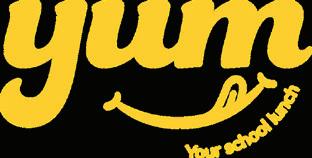
Students usually take between 8 and 11 GCSE subjects and they need to have passed Maths and English and get three A Levels with grades A*-E to get into a university. Students will often start doing four A Levels and then drop their weakest subject at the end of AS Levels. Exam passes at A Level are graded A*, A, B, C, D and E.
(Note: Most Montessori schools that extend into Primary follow the Montessori philosophy, whilst aligning with UK curriculum
American Education System
Most American schools in Cayman offer a Pre-K3 programme, so your child can start at the age of four. These children will be given preference for Kindergarten places when other children start at the age of five. Children then move up to Grade 1 when they are six and stay in school for a total of 13 years, graduating at 17 or 18, when they are in Grade 12. They usually graduate with an American High School Diploma and students are taught the ins and outs of sitting SATs (Scholastic Assessment Test). Cayman International School (CIS) also offers the International Baccalaureate diploma (IB) for students in Years 11 and 12. Triple C School offers Advanced Placement (AP) courses.

Exams
To graduate with an American High School Diploma, students need to obtain at least 20 credits, split between English

Education
yumcayman ky We get that life can be unpredictable That’s why our fresh and healthy school lunch service is designed to take the stress off your plate so you can spend more time with your family *available to select public and private schools
(4), Social Studies and a Foreign Language (6), Math (6), Arts/Drama/Music (1) and Physical Education (2). Credit requirements for graduation are different for every school, and will depend on how a school’s curriculum is structured. Having said this, all have standard requirements for core subjects such as English, Math, Science and Social Studies, and then elective credits for other classes. Parents should familiarise themselves with the credit requirements of their child’s school, keeping in mind that some will require a minimum Grade Point Average (GPA) for graduation. The GPA is the grade (number/ percentage) representing the average value of the accumulated final grades and ranges from 0.0 to 4.0. For example, 4.0 = A, 3.0 = B, 2.0 = C, 1.0 = D and 0.0 = F. Most universities in the United States will require a specific High School GPA before a high school graduate can even be considered for admittance, so it is very important for parents to be aware of what the requirements are for any college or university to which their child may be applying. Students should also be aware of this, if hoping to secure a scholarship. See pages 109-110 for more information on this.
The International Baccalaureate at CIS The IB Diploma Programme (DP) is offered at Cayman International School (CIS). The curriculum is made up of three core components a) Theory of Knowledge (TOK); b) Creativity, Activity and Service (CAS) and c) Extended Essay – plus six subject groups. Students must participate in all three core subjects and also choose one course from each of the
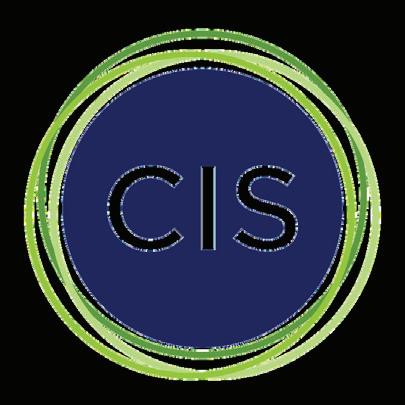
six subject groups. The six subject groups are: language and literature, language acquisition, individuals and societies, sciences, maths and the arts. Three or four of these are taken at Higher Level, and the rest at Standard Level.





Students sit exams for the Diploma Programme in May. They are graded from 1 to 7 (7 being the highest) for each of their six subjects. Additionally, the Theory of Knowledge and Extended Essay are also graded, and together can add up to an additional 3 points. The maximum score one can therefore achieve is 45. The pass rate is 24, and anything over 34 is considered very solid. Universities will also publish the IB scores they require for the subject you want to study. For example, if someone wants to study medicine at university, they need to get an IB score in the 40s. Architecture would be in the high 30s.
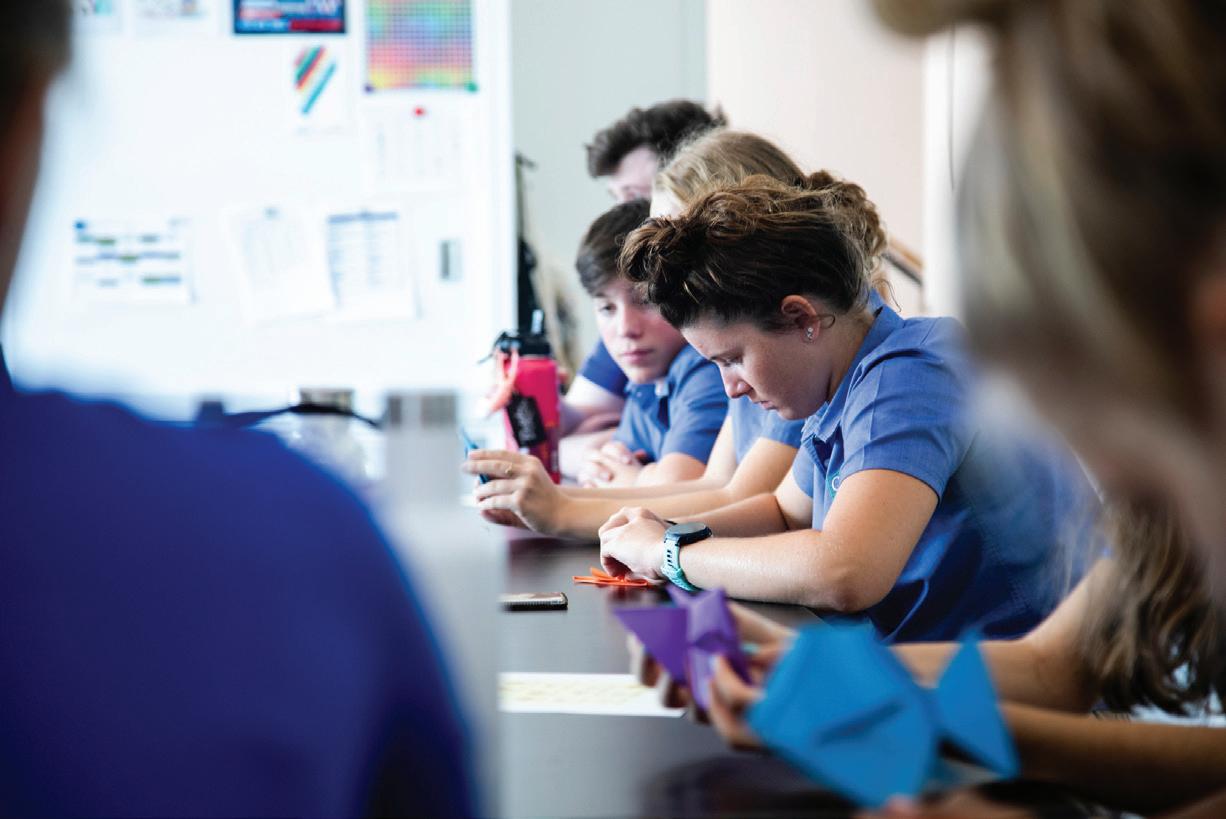
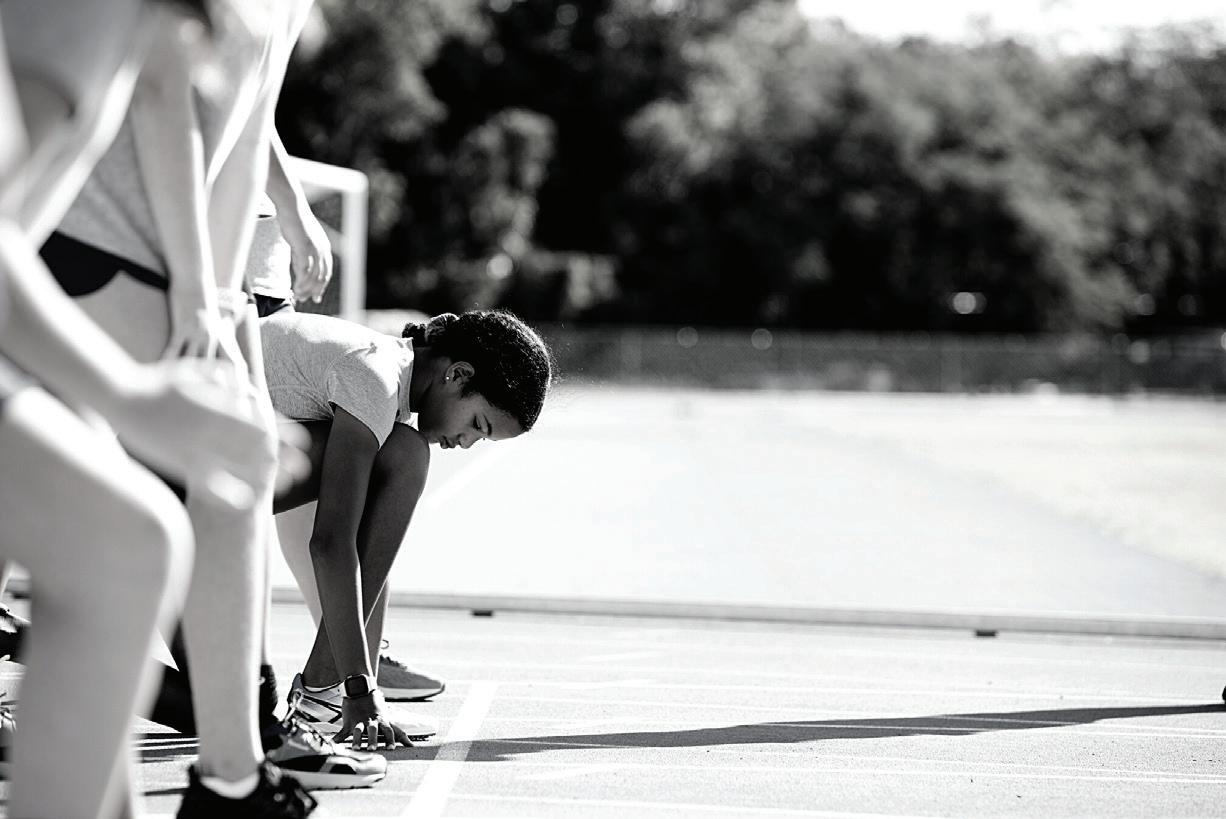
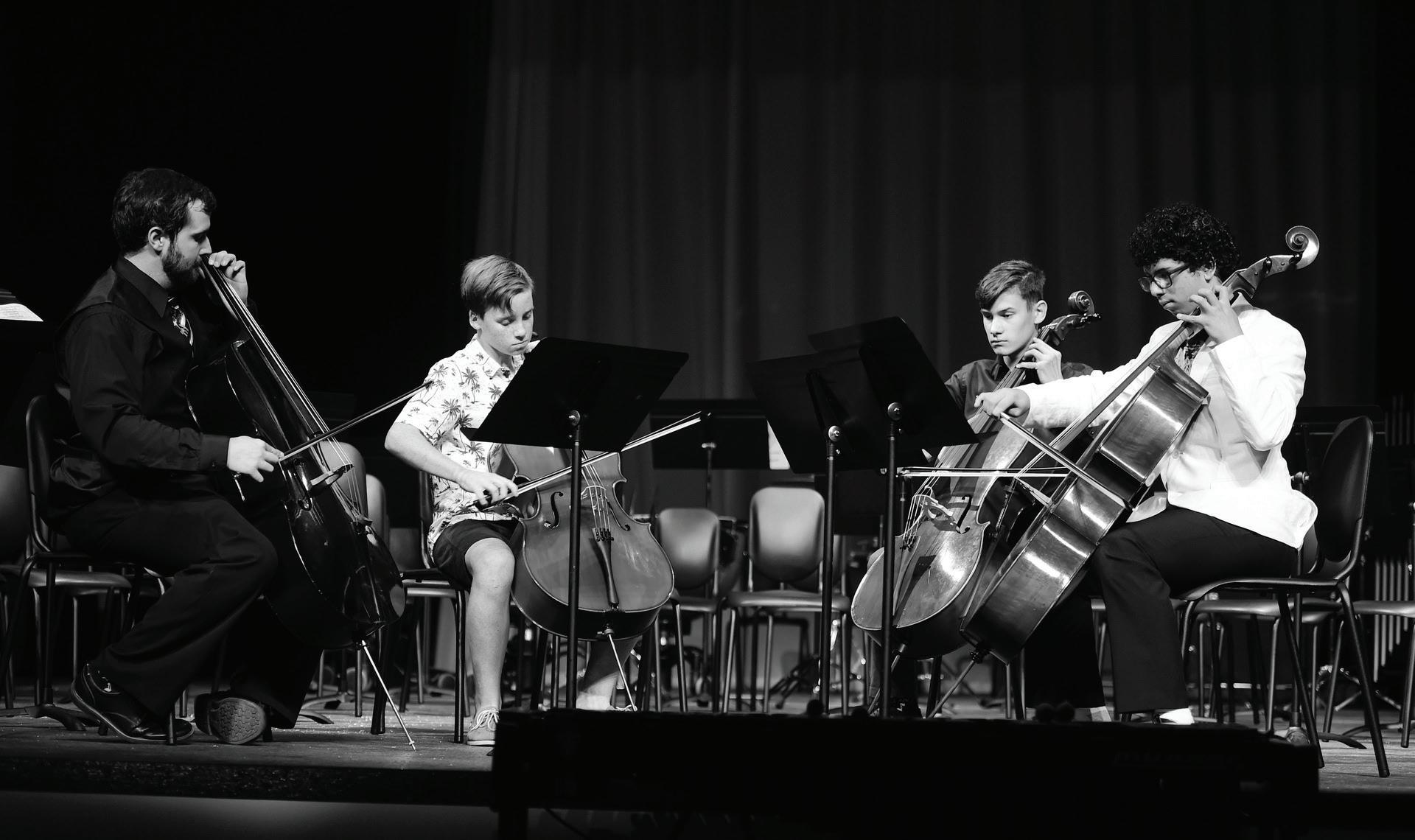
Montessori Education System
There are two Montessori schools in Cayman who offer the Montessori schooling system beyond preschool. Village Montessori and Montessori By The Sea teach children up to the age of 12. Both implement an enriched Montessori elementary curriculum that is geared to meet Cayman Islands National Curriculum Standards. Also included are life skills education along with specialised instruction in Spanish, ICT, Physical Education, the Arts and Music. One is located in Prospect, across from the beach, and the other in Camana Bay. See pages 127 and 128.


www.caymanparent.com 93
95 Minerva Drive, Camana Bay (345) 945 4664 cis@cis ky caymaninternationalschool org C O N N E C T I N S P I R E S E R V E CIS is a private, university preparatory, non sectarian, co educational school for students from two years old through Grade 12 C A Y M A N I N T E R N A T I O N A L S C H O O L
Homeschooling in Cayman
The number of children being homeschooled has exploded in the Cayman Islands. Whether parents are choosing this due to practical reasons or philosophical preferences, their concerns are the same: how to provide the best home-based education they can.
Children in the Cayman Islands can be homeschooled with prior approval from the Department of Education Services (DES), and like any educational programme, there is an application process and certain requirements to be met, which are discussed below. We also give an overview of the advantages, disadvantages and resources available for homeschoolers. In the 2020-2021 school year, approximately 150 children were enrolled in a homeschooling programme in Cayman.
Homeschooling may be a suitable option in cases where:
• A child is waitlisted but has not yet been offered a place in a private school
• A child has special educational requirements that schools may not have the resources to accommodate
• A child has been the victim of bullying at school
• The cost of private schooling is prohibitive for low income families and/or those with multiple children
• Families travel frequently and wish to be able to take their children with them
• Parents want their children to follow a more flexible and individually-tailored programme
• A child speaks a different first language and needs to learn English before transferring to a mainstream school.
The Department of Education Services assess individual requests for homeschooling on a case-by-case basis as they know there are some exceptional circumstances. They do not want children to get lost in the system. They understand that for schooling to work for some children it might need to involve the use of special services, such as Speech and Language Therapy, and this can of course be included as part of the five hours per day of schooling.
How to Apply for Homeschooling Approval
The Department of Education Services in the Cayman Islands now expects all applications for homeschooling to be made online. See their Registration for Homeschooling page (https:// schools.edu.ky/Pages/SchoolRegistration.aspx) where you will find the forms and submit your supporting documentation. If you need to visit Nicki Samuels at the DES, then their address is 130 Thomas Russell Avenue, George Town, which is just off the Cayman National Bank roundabout.
You will be required to create an Individualised Homeschool Plan (IHSP) which must include:
• The child’s name, age and grade level
• Location and address of the homeschool
• A list of the syllabi, curriculum materials, textbooks or plan of instruction to be used in the core subjects
• A timetable which shows the subjects covered on which days and at what time. This would also include any outside activities or online classes
• The dates for submission of semi-annual reports
• Names and qualifications of individuals providing instruction
• A statement confirming the child will be meeting compulsory educational requirements of the Education Law 2016 (Regulations).
For parents wishing to apply after the start of the school year (end of August), written notice must be provided within 14 days of arrival to the Island. Once a family or child is a resident, then the child must be registered with a school.
The Director of the Department of Education Services will inform parents if their application has been approved within 10 days of receipt. If approved, a homeschooling certificate is issued, valid until the end of the school year (30th June).
Qualifications for Homeschoolers
Depending on the age of the child, the parent or tutor providing instruction should hold the following qualifications:
• Primary – the parent(s) must have at least a high school diploma
• Secondary – the parent/tutor should have a minimum of a bachelor’s degree from an accredited institution. This is a recommendation and it is not mandated.
The Department of Education Services strongly recommends that an accredited programme for homeschooling be used. If you visit www.homeschool.com you will find lots of suggestions. Alternatively, look into the UK-based homeschooling group Wolsey Hall, Oxford, or you could try Abeka. Accredited programmes such as K12 have online teachers who can help.
Cayman Parent Magazine | Education94
However, if a parent wanted to use a programme that is not accredited (which many parents choose to do), the DES will consider the programme and make a decision based on whether the curriculum meets their standards. Finding and using an accredited programme is something many parents get worried/stressed about, and knowing there is room to use a programme that is not accredited (as long as it is approved by the DES) can sometimes set their minds at ease.
Teaching Requirements

The DES requires that the school day be at least five hours, excluding recess and lunch, and that there be at least 185 days of instruction in the school year.
The curriculum must include the areas of reading, writing, mathematics, sciences and social studies, and although it does not have to be an accredited programme, it is encouraged. Parents/tutors must maintain a record of attendance and submit semi-annual reports on the students’ progress to the Department of Education Services. If there are any changes to the programme, the DES must be advised in writing.
The DES will conduct at least two site visits, one scheduled, one impromptu, each year and where necessary will liaise with the Office of Education Standards for assessment and reporting.
Pros & Cons of Homeschooling
The main advantages homeschooling parents report are being able to spend more time with their children and having the ability to adapt the teaching to a child’s learning style and interests, ensuring they receive a quality education and plenty of individual attention.
The flexibility homeschooling offers is also key: classes can be held in any location and at the time one chooses, enabling parents to fit schooling around other commitments.
On the other hand, homeschooling is time consuming for the parent (or tutor) providing instruction, and thus means that one parent usually cannot work, and therefore cannot contribute to the family’s income. It also means the ‘teaching’ parent may get little or no time apart from their children.
Socialisation & Friendship for Homeschooled Children
One of the most frequently asked questions that parents of homeschooled children get asked is whether there is a danger that a child might miss out on socialising with their age group and have fewer friends than a regular school student. It’s a valid concern, but there is much that can be done to ensure a child does not become isolated.
Enrolling kids in extra-curricular activities, sports lessons, church groups, music and art lessons all ensure they meet and socialise with kids of their age. Where one lives can also be influential: some residential areas are particularly family-
friendly, guaranteeing there will be plenty of other kids around to play with.
The 'Cayman Homeschoolers' Facebook group was set up specifically so that parents and children could connect with other homeschooling friends. These children go on field trips with other parents and children and time is specifically set aside each week to socialise with the other kids. A homeschooling family can become just as busy with extra-curricular activities as any other public/private school family.
Resources for Cayman Homeschoolers
The Cayman Homeschoolers Group has worked diligently to create a dedicated homeschooling website which provides everything needed to homeschool in the Cayman Islands. It includes the application procedures and documents, curriculum list, resources for tutoring/educational assessments/therapy, how to write your reports, FAQ, etc. You can also sign up to the email list so that you can be kept in the know on when any events and gatherings are happening. See their website here: https://homeschoolcayman.ky.
There are also a growing number of educational programmes for homeschooled students to participate in:
High Achievement Academy have highly qualified and experienced teachers from the UK and USA if you want your child to have additional tutoring in a specific subject.
Footsteps also offer one-on-one and group tutoring services as well as homework help and exam preparation.
Chatterbox offers individualised classes for children needing help with handwriting, reading, speech and language, selfregulation and functioning skills.
Clever Fish works alongside the homeschooling community and offers an after-school enrichment programme that includes homework supervision, academic intervention and activities such as robotics, arts and crafts and more. They also offer activity camps in collaboration with Cayman Sea Elements during school holidays
Homeschooled students have a variety of opportunities available to them. They are invited/allowed to participate in many competitions offered to the schools (Sea Perch, Inter School Chess Tournament, First Robotics, Inter School Math Competition and the Rotary Club Science Fair).
Please Note: Whilst private tutoring centres and other activity providers can be an excellent supplemental resource for homeschooled children, the Department of Education Services has emphasised that the majority of homeschool instruction must be delivered at home. This means that you cannot rely on private tutoring centres to provide the bulk of your child’s learning programme.
www.caymanparent.com 95
Tutoring in Cayman
Over ten years ago, finding a good tutoring company in Grand Cayman was a rather difficult thing to do. Times have changed in a big way! Cayman now has a wealth of highly qualified and well-trained teachers and tutoring professionals who work out of busy and dedicated tutoring companies. But why hire a tutor in the first place?
A tutor can help your children stay on top of their homework and coursework, help improve their grades and, more importantly, give them confidence in their school work. This rise in qualified and exceptionally good tutors has been particularly game-changing for children within the public school system: one-to-one tuition can exponentially improve results and open up enhanced opportunities at college. So, what do you need to consider when choosing a tutor? When Cayman Parent asked qualified teachers at the top schools about this subject, here is what we learnt:
Phonics & Reading Support
We have been told that most children should be reading quite comfortably between the ages of six and seven. However, if your child is really struggling then something could be wrong and there is no time to waste. Your child might have dyslexia and, if so, will need reading intervention. This would come in the form of a qualified individual who is trained in either the Wilson Programme or the Orton-Gillingham dyslexia instructional approach. This is an essential step, so ask your tutor if they have a certificate or qualification proving that they can teach either of these courses. If you suspect your child has ADHD, then a diagnosis of dyslexia often comes with it, so that is something to consider as well.
One easy thing that all parents (and preschools) can do is buy a colourful poster (available on Amazon) with the alphabet on it. Make sure it does not just have capital letters though, you need the lower case letters as well. Find one that has a picture for each letter (e.g. an apple for Aa). Then put it somewhere that your children will see it a lot – in front of the loo or the back of the bathroom door are good places! Your child will then see it every day and will slowly, ideally from the age of 18 months, begin to absorb what the letters look like and sound like.
Maths Support
If you are looking for a Maths tutor, be aware that children in the US system learn Maths in a very different way to those in the UK system. In the US system, students learn Maths in themed branches (algebra, geometry, advanced algebra, trigonometry and then calculus); in the UK system, students learn a broad cross-section of the whole subject of Maths and then build on it each year. Enquire as to what experience the tutor has with the curriculum, and if they don’t seem to have enough knowledge of it then find one who does.
All children in Cayman are now required to have mastered their times tables by the age of nine. To help them achieve this, one simple thing you can do is order a times table poster from Amazon and put it somewhere they will see it a lot. Opposite the toilet or the bath is ideal. While they are in the bath you can test them and, over time, your child will learn them. Try and put it up there while they are still very small.
Homework Help
Many parents look for help getting their children to do their homework, and as a bonus a tutor will also work out very quickly where the gaps are in your child’s knowledge of the current subjects they are studying. Tuition should always supplement the learning already taking place inside the school classroom. A good way to aid this is to regularly forward class newsletters, spelling lists, school reports, etc. to the tutor for inclusion in the tutoring sessions. Your child’s tutor can then make sure that their students are on top of their subjects.
GCSE, IB Diploma or A Level Exam Help
If you are looking to have your child tutored for their GCSE, A Level or IB Diploma exams, make sure to find a teacher who has experience teaching the current curriculum your child should be learning for that specific subject. Also, make sure they have specific experience getting children through those exams and have not just taught the subject up to an earlier grade. At this level of your child’s education it is seriously important that your child’s tutor is a qualified teacher. Although a teaching assistant can help guide a child with special needs and teach children at primary school, you would do well to find a qualified teacher for your child’s external exam tutoring.
Costs
Expect to pay on average CI$50-CI$55 an hour for oneon-one tutoring. It is money well spent. The tutor will not move on until they know that your child has grasped the subject properly. This is something you cannot guarantee in a school classroom setting with 25+ students.
See page 137 for a comprehensive list of the major tutoring companies in Grand Cayman.

Cayman Parent Magazine | Education96
Education Book Club
Best for Parents or Educators
This important book argues that while students have been taught how to read, they have not been taught what to read and that cultural literacy matters far more than vague notions of 21st century skills. Should there be a greater focus on what we are teaching instead of how we teach it?

If you want to read a lively and engaging book on the science of learning, this is a must. It benefits greatly from its use of stories about people who have achieved mastery of complex knowledge and skills. This is a rich and resonant book and a pleasurable read.

A groundbreaking book about adolescent brain function and wiring, and it explains the science of stress, memory, sleep, addiction and decision making on the teenage brain. Practical advice helps adults and teenagers negotiate the mysterious world of adolescent development.
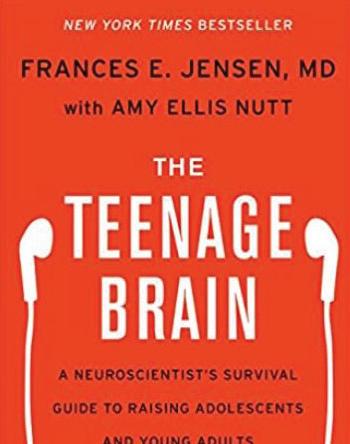
Best Digital for Parents
Life360 With real-time location sharing you can know the whereabouts of your kids throughout the day plus get notified as loved ones come and go from your most frequent spots. Free with a premium plan option.
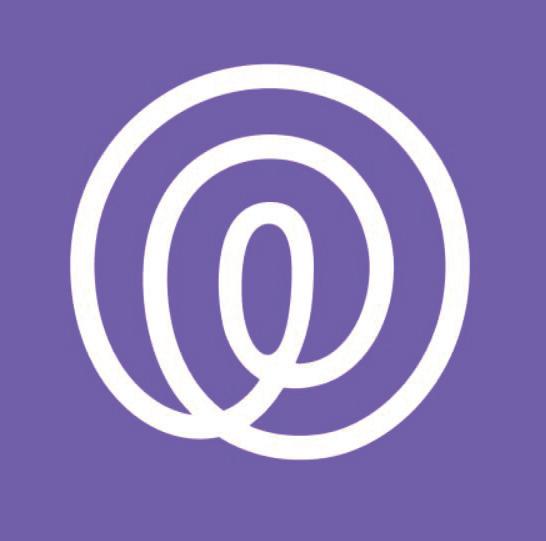
Best for Children
If you want to encourage your tween to read, have them soar into this breathtaking world of heroes and fierce unicorns. With unlikely heroes, elemental magic, sky battles, ancient secrets and nail-biting races this is an epic adventure!

Both absorbing animal adventure and subtle commentary on climate change and the plight of endangered species, this story revolves around April, the daughter of an Arctic researcher, and her chance encounter with a lone polar bear. Shortlisted for the British Book Awards.

In this warm, important and immensely moving book, writer and illustrator Abigail Balfe charts her experiences of growing up neurodivergent, offering candid and powerful insights into autism. A very important, very funny and very informative book that the world needs right now.

Best Digital for Children
BrainPOP Short animated and informational movies for kids about a wide variety of topics. Join Tim and his robot friend Moby as they explore everything from STEM to Art to current events. Free but a subscription gives you full access.
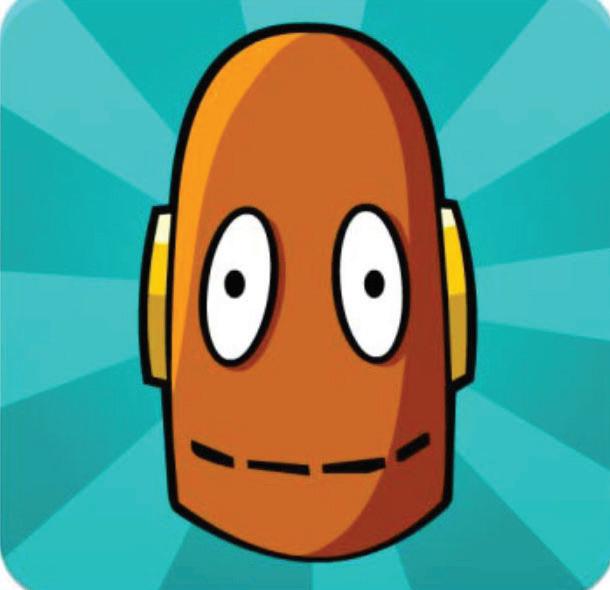
www.caymanparent.com 97
Q&A
Kerita Levermore-Stewart
When did you decide to become a high school teacher and why?
My passion for imparting knowledge was set in my home church on Knibb Street, in St. Ann, Jamaica. My students were stars when they were called to recite their Bible verse of the day and respond to the Sunday School Superintendent’s questions. It was truly gratifying! Even then I was not convinced I would be a teacher, however, the love for children and knowing I have a part to play in their success have given me the drive to stay the course.
If you hadn’t become a teacher what other career might you have chosen?
I was certain that I was going to be a doctor or a politician or a lawyer. I have a passion for helping and defending others and encouraging growth and development in many areas.
You want to take your students on a working holiday. Where would you take them and why?
This dream was recently materialised when I took a group of over 50 students, their parents, and teachers from John Gray High School in the Cayman Islands to Cuba. Given the opportunity, I would do this every year; share the rich Hispanic culture by full immersion into the phenomenal culture, and flavourful food.
Do you think there should be more focus on financial planning and relationship advice as part of the senior school curriculum?
I absolutely agree to incorporating both in the hidden curriculum or during a mandated time slot during tutorial. One has to agree that these are relevant discussions or areas that should be facilitated at all cost, especially for our senior students to begin to eradicate what can easily and quickly spiral into the main social ills in our society.
Andrew McLean
What has been the most memorable moment of your career so far?
Academically speaking, leading a group of 6th form students in a regional debating competition against prestigious schools and reaching the semi-finals. Alternatively, being forced by students on the way back from a Barcelona trip to perform karaoke (The Greatest Showman) on the coach.
How has teaching changed or evolved since you first became a teacher?
With COVID-19, planning and adapting to change have become increasingly important. However, this has brought benefits, such as the use of online parents’ evenings to help accommodate students, teachers, and parents. Now, both parents can attend, even if travelling, which is more convenient and efficient.
Would you encourage school leavers to take a year out/GAP year or go straight to university?
I would certainly encourage a GAP year, either before university or just after. Experiences can be life changing and once responsibilities mount up it can be difficult to go back and benefit from travelling.
What’s the best piece of advice you would give older students?
To have an open-minded approach to learning and the working environment.
Do you have any tips for parents who struggle to get their teenagers to study for exams?
I would say to ask questions about the topics studied, give gentle reminders and use incentives.
If you hadn’t become a teacher, what other career might you have chosen?
I had an interest in becoming a journalist, either in football or conflict areas of the world.
Kerita LevermoreStewart is the subject leader for Spanish at John Gray High School.

Andrew McLean recently moved to Cayman from the UK and teaches at Cayman Prep and High School.

98
Inspiring Educators
Melanie Coffey
Tell us what your role entails
I oversee our Inclusive Education, Employment and Recreation partnerships in addition to advocating for and supporting individuals and families in their vision of inclusive lives. I work in several schools where I provide coaching and support to educators and leadership teams, in order to develop evidence-based policies and practices to enhance inclusive education for all learners.
What are the greatest issues that families and people with disabilities face, particularly in Cayman?
Many families struggle to access inclusive education, employment, recreation/leisure and often feel misunderstood, devalued, or excluded. Families understand the natural gifts and talents of their loved ones, but face multiple barriers in accessing the rights and privileges that are easily afforded to persons without disabilities. As community members, we can all lend support to dissolving barriers by taking a stand, evaluating who is missing from our schools, workforce, and wider community and working together to intentionally include those who may not otherwise be.
What can the public do to support Inclusion Cayman and the families you help?
The greatest impact can be achieved when we all come together to identify solutions. Reflect upon the places you frequent and identify who is missing. Consider how you can help create inclusive, safe spaces in your workplace, children’s schools, and other community areas. Advocate for others and encourage your friends, families, and colleagues to join you. Forty years of research on inclusive education shows improved social emotional and academic outcomes for children with and without disabilities. As parents, whether you’re connected to persons with disabilities or not, I assure you that your child’s life will be improved by inclusion. Advocating for inclusion benefits us all.
Philip Manyeh
If you hadn’t become a teacher, what other career might you have chosen?
I would have pursued a career as a pilot if I hadn’t become a teacher. I have attended flight camps at Embry Riddle Aeronautical University and Florida Institute of Technology, flying Cessnas and Pipers. I have some flying hours under my wings, and flying is now a hobby.
Which of your colleagues inspire you and why?
Mr. Massally, the SENCo inspires me the most. He is committed to all students and in particular, students with special educational needs and disabilities. He contributes not only to their academic achievement but also to their personal and social development.
How do you handle or deal with disruptive behaviour in class?
I always focus on the disruptive behaviour rather than the student. In some cases, I have used resolved behavioural issues as a teachable moment for others. Staying calm and deciding when to deal with disruptions has worked well in fraught situations.
Which famous comedian would you invite to entertain your class?
I would invite Trevor Noah, a young South African comedian. Trevor’s insightful take on politics and current events will resonate with my students.
You want to take your students on a working holiday, where would you take them and why?
I would take my students to an El Sistema music camp in Venezuela. This music programme promotes group-making music through various ensembles and I believe my students would enjoy the experience.
Melanie Coffey is the Lead Inclusion Specialist at Inclusion Cayman.

Philip Manyeh is from the UK and teaches at Clifton Hunter High School.
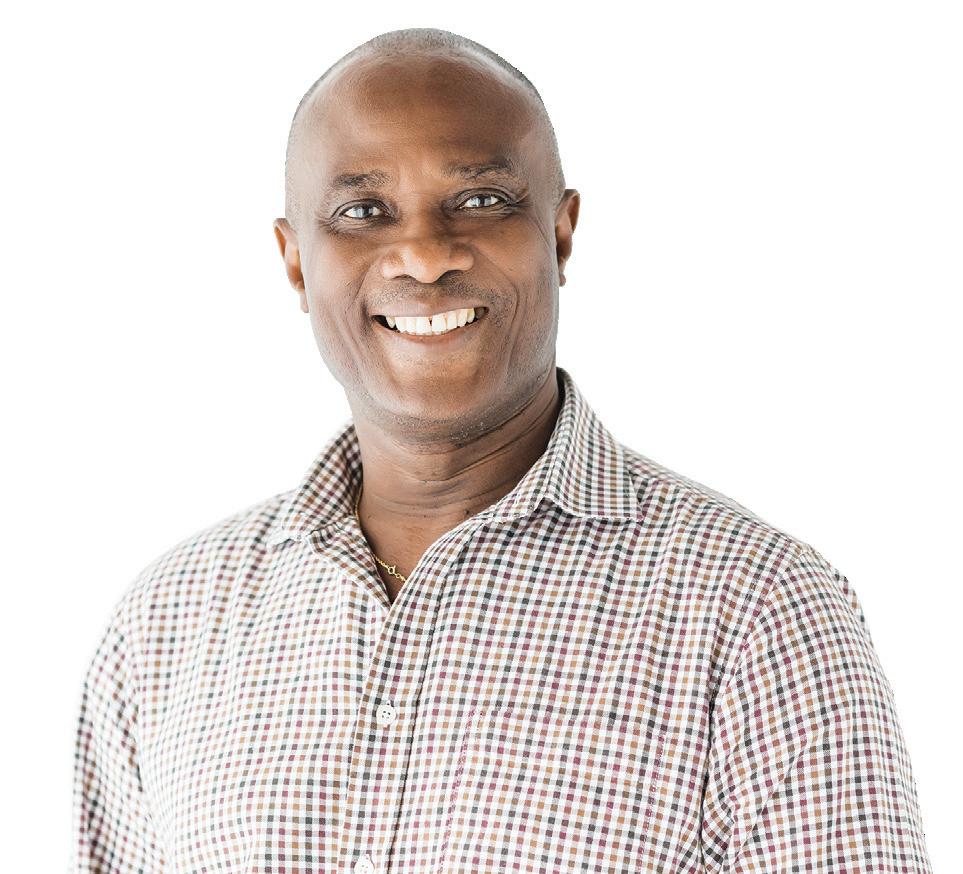
The Benefits of Boarding School
Although Cayman has excellent schools, many parents will look to broaden their children’s horizons by enrolling them in an overseas boarding school. Over the years, the image of boarding schools has changed immeasurably; the transformation from the hardship and coldness of Dickens’ Dotheboys Hall to the spellbinding excitement of Hogwarts has been both evolutionary and revolutionary. But the changes in perception and the reality are not works of fiction; boarding schools in Britain and North America are flourishing and should be a real consideration for Cayman families thinking about the future schooling of their children.
Why Choose Boarding School?
There are many reasons for choosing a boarding school, from the standards of teachers and teaching, to the friends and connections that are made. The following are all key factors to consider when deciding if boarding school is right for you and your child.
1. First Rate Education
The reputation of leading schools in the UK, USA and Canada is not just a label of prestige from the past; the academic, sporting and social success of these schools is evident. Academic excellence, their successes in international exams and their students winning places at Ivy League and Russell Group universities speak for themselves. The structured independence helps teenagers to thrive.
2. All-Round Education
Boarding schools are concerned with much more than academic prowess; pupils achieving their potential in the classroom is paramount, but the ability to be involved in whichever sporting, creative or intellectual pursuit that stimulates a child is of huge importance too. All these things are on the student’s doorstep; schools are extremely busy places where children are seldom bored or lonely.
3. Support
Success is achieved through sound teaching plus individual care and attention. Staff at boarding schools are with their students for most of the day and are there to ensure that children are happy and performing well, addressing problems swiftly. Boarding schools are well-equipped and qualified to support most learning requirements. Plus, a wide range of schools offer specialist ‘Additional Support’ for learning and emotional needs.
4. Facilities
Boarding schools have some outstanding facilities and offer beautiful spaces in which students can grow and develop.
Academic, arts and sporting facilities can be state-of-the-art, and boarding houses are designed to offer the comforts of a home away from home.
5. Friends
A boarding education exposes children to a wide array of people from a variety of backgrounds – some of whom will become life-long friends. The ability to live and work with such a diverse group of people is what gives boarding school students the confidence, maturity and independence to excel in their future worlds. Exposure to the wider world and internationalism also helps prepare students for the world of business.
Preparation
Boarding schools can be very competitive and many schools fill their places several years in advance of entry. Therefore, give yourself plenty of time to choose the right school. In addition to allowing time to visit schools, you should allow time for your child to be prepared for the entrance exams and for the transition to boarding school. Parents often underestimate how much time should be given to these steps, but at least one or two years in advance is the best time to begin the process. The most important thing to remember is to involve your child in the process from the very beginning, as this will allow them to become comfortable with the prospects of going away to a boarding school.
General Age of Entry to Boarding Schools
American schools are typically set up to accept boarders from Grade 8 (aged 13-14 or Year 9 in the British system) but there are some which will accept boarders from Grade 6. In Canada, most schools accept students for boarding in Grade 9 (one year later than the US system). In the UK, your child can board from the age of 8 (Year 4) but the majority of students from Cayman usually either start boarding at the end of primary school (i.e. they finish Year 6 in Cayman and then leave) or they wait and go straight to a senior school in the UK when they are 13 (for the start of Year 9).
Cayman Parent Magazine | Education100
Boarding School Timelines & Entry Tests

UK Boarding Schools - Prep Schools (Years 4-8)
Because it is the job of preparatory schools to prepare pupils for the Common Entrance Exam (CE) at the end of Year 8, they prefer to have pupils for two or three years beforehand, so that they have sufficient grounding in all the academic subjects (including Latin and French). There are no fixed deadlines for entry to prep schools, although the most popular ones will fill their places several years in advance. Testing is ‘light touch’ and is generally conducted during a child’s visit to the school. They often ask pupils to spend a day and night at the school as a ‘taster’.
UK Boarding Schools - Girls Senior Schools (Years 7-13) 11+ Entry (Year 7)
Although Senior School traditionally begins in Year 9, many girls’ schools have both Year 7 and Year 9 entry. This has always been the case and means that girls can go straight into their senior school rather than having to go to a prep school first. Girls who are going for 11+ entry to a girls’ senior school will be tested in Year 6. Most girls’ schools use the ISEB 11+ Common Entrance, which is taken in January, and consists of papers in English, Maths and Science. Some schools have their own entrance papers but they are largely similar in scope to CE.
UK Boarding Schools - Senior Schools (Years 9-13) 13+ Entry (Year 9)
Many very popular UK senior schools will expect you to bring your child to have a tour of the school while they are in Years 4, 5 or 6. Then you are expected to register your child before the end of Year 5 (schools such as Eton, Harrow and Radley) or Year 6 for most other schools. In October or January of Year 6 or Year 7, your child will take the ISEB Common Pre-Test which is a timed computer-based test which measures your child’s ability and attainment. The tests include Verbal Reasoning, Non-Verbal Reasoning, English and Mathematics. Prior to, or just following the ISEB test, enrolled children will be invited for an interview and an assessment day. This takes place in December or January of Year 7. Very shortly after this, an offer of a place is given, subject to your child achieving the requisite average mark at Common Entrance. Finally, in May of Year 8, the Common Entrance Examination is taken. If your child is not in a UK prep school, and will be going straight to a UK senior school from a Cayman school, they will take the entrance tests at each of the schools to which you have applied.
Not all Senior Schools use the ISEB Pre-Test route and will consider children for entry on a much more flexible basis, although early application is, of course, still advisable. Each school will have its own way of conducting the admissions process but, in general, it will consist of a visit to the school, followed by an interview and testing (in English, Maths, Verbal Reasoning and Non Verbal Reasoning). The interview can often be conducted via Zoom and it might be possible to arrange for testing to be taken in Cayman.
16+ Entry (Years 12-13)
Most schools have a sizeable entry into the Sixth Form.
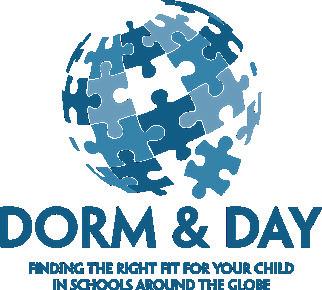
Deadlines vary but many schools test and interview prospective pupils in mid to late September of the year before entry (often through special Sixth Form Assessment Days) and offers are made at the beginning of December.
US Senior Schools
Start your search for potential boarding schools at least 2-3 years in advance, especially if the schools you are looking at are very popular, and arrange for any online material and the application process to be sent to you. Once you have narrowed your choices down to a shortlist of three schools, arrange a visit and begin the application process with your top choices. While searching for schools also ask about their summer camp programmes. A few weeks at a boarding summer camp will help you and your child gain a better understanding of the school, the culture and give them a taste of what it will be like boarding. Another good suggestion is to ask an educational consultant to suggest a couple of schools that will suit your child academically, socially and will complement their interests and favourite sports.
It is important to note that not all school application processes are the same. Depending on the grade level that you will be applying for, you may need to register to take a required standardised test which will be used for academic placement purposes. Examples of these tests include the Secondary School Admission Test (SSAT) or the Independent School Entrance Examination (ISEE). For students wanting to join a boarding school for 11th and 12th Grade, it is highly recommended that
YOUR BOARDING SCHOOL EXPERTS IN CAYMAN
www.caymanparent.com 101
(345) 936 3676 | (345) 925 4610 | (345) 949 8268 admin@dormandday.ky | www.dormandday.ky • Informed advice with on campus research. • Successful boarding school matches in USA, Canada and UK. • Arrangements for school visits and interviews. • Expertise in financial aid and scholarships. Personalised service for every family.
they have a SAT, PSAT or ACT test score to share with the school. The SSAT and SAT can be taken at Cayman International School. Remember to confirm the school’s testing codes so that the test results can be sent directly to the school you want to apply to.
Another test that some schools are now requiring or recommending that applicants take is the Character Skills Snapshot test. This test measures eight character traits including resilience, open-mindedness, responsibility, teamwork, social awareness, self-control, intellectual curiosity and initiative.
Some schools may require you to fill out a Candidate Profile along with a detailed application, and all schools will require you to be interviewed. All schools will require the following supporting documentation – make sure that everything is saved in a PDF format for ease of uploading – academic transcripts, two core curriculum teacher recommendations as well as a letter from the Head of School, a copy of a recent writing assignment which has been corrected and graded by a teacher, plus a personal recommendation and a parent statement.
Canadian Senior Schools
You will want to start your search for a boarding school which suits the interests and strengths of your child ideally at least two years before entry, but many schools will consider applications much later. If you are unfamiliar with Canadian boarding schools, then plan to visit one of the Schools Fairs held in Cayman every November. There is always a very good representation of schools. Once you have done some research, plan to visit two or three of the schools to get an idea of what you like and what you don’t like. Once you have a shortlist, it is recommended that you check their website to see what documents they need to see and what entry tests they will ask your child to take. Some schools, especially those in Toronto, ask students to sit the Secondary School Admissions Test (SSAT) but many other schools have their own tests. The SSAT is a standardised test which some Canadian private schools use to assess a student’s overall aptitude, rather than their knowledge of specific subjects, but also offers the Character Skills Snapshot, which looks at a student's overall attitude/character. However, some schools do not use such standardised testing and use their own test papers instead.
Canadian boarding schools generally accept applications for students coming into Grade 9, 10 and/or 11 (Years 8-12) with the preference to starting the programme at the beginning of high school – in Grade 9 (age 14-15). About two-thirds of students begin in Grade 9, with the remainder joining in Grade 11. A small handful of boarding schools accept students for Grades 5-8. Education is a provincial matter in Canada, so students work towards a High School Diploma granted by the province (e.g. Ontario Secondary School Diploma (OSSD)) in which they are studying, with some schools offering Advanced Placements or the International Baccalaureate Diploma Programme.
How to Choose a Boarding School
Narrowing down which boarding schools to visit is a monumental task. Here are some tips from parents:
• For families who live full-time in Cayman, choosing a full boarding school, as opposed to a weekly boarding school, is the very first thing to consider. Many schools are moving towards weekly boarding, so be sure to check this out. You do not want a bored teenager at school alone with no friends around and time on their hands.
• Schools are often strong on one specific team sport – for example soccer/football or rugby, but invariably not both. If your child is massively into one sport, but not keen on another, then find a school which plays that sport. Work out what your child is really keen on, then see if you can find a school which can play to that strength and interest.
• Is the school kind? Does it have good pastoral care? Will my child be happy? What support is there in place if my child gets homesick? Childhood should be a happy time, so choose a school which has a reputation for being nice.
• If your child needs educational support, check out schools that can help with that. Ask what additional help your child would be offered and whether the school could cater to your child’s needs.
• Bear in mind that schools located within an hour of a major metropolis and an international airport (London, Toronto or New York for example) will attract a lot of overseas students. Most schools now limit the percentage of children hailing from a single nationality.
Expect to see one school a day (a typical tour is 3-4 hours long). The visit, which you must book well in advance, usually starts at 10am, so book accommodation near the school for the night before if you can. Ask if your visit will include lunch with the students – if it does it will give you great insight into the type of students your child will be boarding with.
Other Things to Consider Location
Deciding where to send your child to school is extremely important, but first you need to decide what system of schooling you want your child to participate in. For example, to attend 6th form in the UK, it is often extremely helpful if the student has taken GCSEs or the equivalent. It is also important to consider whether you are looking for a school near family and friends. Although the support systems provided by schools are very good, it is also beneficial to have a support system outside of school and people there to keep an eye on your child when you cannot.
Understanding Your Child’s Needs
It is vital to find the school in which your child will be happy and will thrive. Friends and acquaintances may offer school suggestions based on their own children’s success (or otherwise!).
Cayman Parent Magazine | Education102
But a school being right for their children is no guarantee that it will be right for yours. Choose a school based on your child’s specific interests and needs, even if this is wildly different to that chosen by others. Make sure that the school offers the qualifications (International Baccalaureate; GCSE; A Levels; SATs; vocational courses) best-suited to your child and their intended higher education and career path.
Where to Get Help Educational Consultants
Educational consultants are very knowledgeable about different boarding schools and will explain things that you cannot read about on a school's website or school prospectus. For example, does it run a house system and if so what are the benefits; how many students are weekly boarders and is the school moving towards that; does it cater well to children who need learning support; will your child flourish academically there or drift to the bottom third of the academic group. Also make a point of visiting the school fairs when they are held as its a great way to chat to the schools which you have narrowed down. Two school consultants who specifically work with Cayman families include:
• Dorm & Day: Based in Grand Cayman, Dorm & Day offers a schools placement advisory service for education in Cayman and overseas. Owned and run by Amanda Roberts, every year they visit a diverse range of boarding schools in the USA, Canada and the UK, including schools for children with learning differences, using that first-hand
personal knowledge to find the right fit for your child and help you to make an informed choice of school. They guide you throughout the admissions process which includes reviewing transcripts, preparing shortlists, helping with applications and financial aid forms, finding scholarships for talented athletes and high academic achievers, scheduling and preparing for tests and interviews, arranging boarding school visits and communicating with schools from application to arrival. Tel: (345) 936 3676 or (345) 925 4610, email: admin@ dormandday.ky or visit www.dormandday.ky.
• BvS Education: Owned and run by Niall Browne, BvS is used by many Cayman families wanting impartial insider advice on where to send their children to boarding school. With a thorough knowledge of a wide range of UK and Canadian schools, and how their admissions processes work, BvS offers a bespoke service which is centred on finding the right school for your child. Niall Browne visits Cayman several times a year, to meet island families but he also conducts WhatsApp and Zoom calls with interested parents. BvS also conducts the UK Independent Schools’ Entry Test (UKiset) – either in person in Cayman or online – an invaluable tool in helping overseas parents to select the right schools based on their children’s academic ability. BvS also hosts an annual boarding school fair in Cayman which showcases some of the UK and Canada's leading boarding schools. Email: niall@ bvs-education.com, call: +44 (0)28 9532 0374 or visit www. bvs-education.com.
Cheltenham College

Supporting each pupil to discover and fulfil their potential (ages 3–18 years)
Cheltenham College has been educating young people since 1841. They provide boys and girls with a modern, first-class, all-round education that prepares them for their next steps in life. Pupils flourish under the guidance of dedicated teachers who are leaders in their subject fields. Every pupil is encouraged and supported to be curious and learn widely about the subjects they choose to study. They are able to discover where their passions lie and fulfil their academic potential.
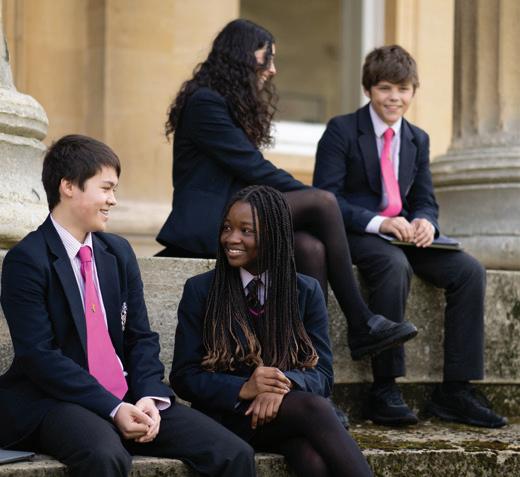
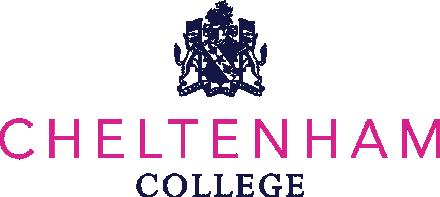
Co-curricular: Academic Extension activities are an integral part of learning and include extension classes, Lower and Upper College Society, evening subject society meetings, debating, trips and visits. Sport plays an important role in College life and Cheltenham have national champions both in major team games and individual sports. Drama at College gives pupils the opportunity to get involved onstage and backstage. As well as one-to-one music tuition, the Peterken Song School and Big Classical stage provide outstanding settings for all members of the community to perform in.
Highlights:

Set in the heart of one of England's most vibrant spa towns • Stunning buildings • Member of the elite Rugby Group formed in the 1960s • Boathouse on the River Severn • 11 boarding houses • Just over 90 minutes from London • Direct links to Bristol, Birmingham, Bath and Oxford
Details:
Prep School Head: Tom O'Sullivan Senior School Head: Nicola Huggett Average class size: Prep: 14-18 College: 17 Academic calendar: September-July Boarding Fees: £6,540-£13,520
www.caymanparent.com 103
+44 (0) 1242 265600 | admissions@cheltenhamcollege.org | www.cheltenhamcollege.org Bath Road, Cheltenham, GL53 7LD
per term
Bryanston School

One-to-one attention is at the heart of all we do. (ages 13-18 years)

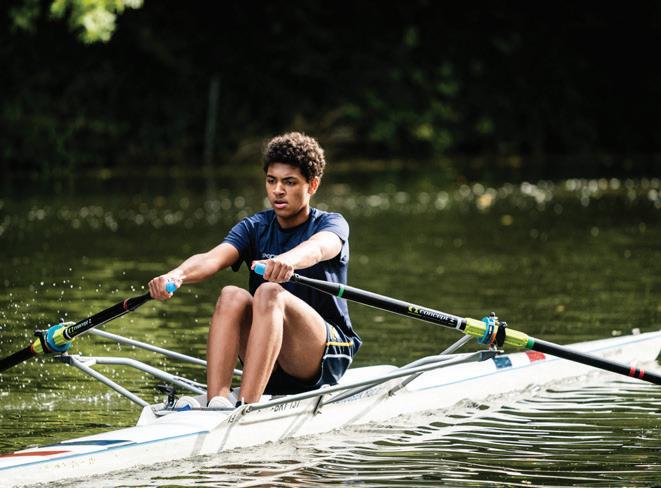
Founded in 1928 by J.G. Jeffreys, Bryanston is a leading co-educational boarding and day school based in Blandford Forum, Dorset. Inspired by 90 years of innovative practice, their approach to education and their distinctive culture nurtures purposeful, curious and wellrounded individuals. Bryanston attracts pupils from around the world, as well as London and other regions of the UK. Using a modified version of the Dalton Plan, an educational philosophy developed by the American educationalist Helen Parkhurst, the School equips its pupils with the skills to become independent learners and encourages them to discover areas in which they can flourish and excel. Their distinctive, unbounded value speaks to the open-minded, challenging and inspiring nature of the Bryanston experience, their humanity and their pupils, who are curious, self-reliant and purposeful. Beyond the School, Bryanston embraces educational, cultural and social initiatives. They don’t simply provide education to their pupils; Bryanston travels beside them and guides them on their journey.
Curriculum: Bryanston doesn't make assumptions about where someone’s strengths lie. Instead, they encourage every pupil to explore a breadth of subjects before they decide on their choices for GCSE, A level or IB. Together with their tutor, pupils are supported in their choice of subjects as they move through the school. Facilities: Bryanston is a unique mix of old and new, perfectly suiting its motto ‘et nova et vetera’. The campus features a number of listed buildings with contemporary buildings seamlessly nestled alongside. The magnificent Norman Shaw house is the School’s heart and Bryanston’s family home. The entrance hall and 100-yard central corridor are both a meeting place and main thoroughfare, providing areas of work and relaxation for the school community. The School’s facilities for the arts are simply outstanding. Facilities include: Coade Hall, a purpose-built theatre with a raked auditorium seating 600, a fly tower, a large stage, an orchestra pit, and a sophisticated system of stage lighting and sound; Tom Wheare Music School with a recital room, recording studio and editing suite; 300-seat Sir Mark Elder Concert Hall, with a 150 square-metre performance space; and award-winning Sanger Centre for Science and Mathematics. Extracurricular: Over 100 ECAs; sports facilities including playing fields covering 56 acres, athletics track and a 25-metre indoor pool; the River Stour allows rowing and kayaking; Equestrian Centre for showjumping and dressage, and cross country fields and hacking around the estate.
Highlights:
• Set in 400 acres of Dorset countryside
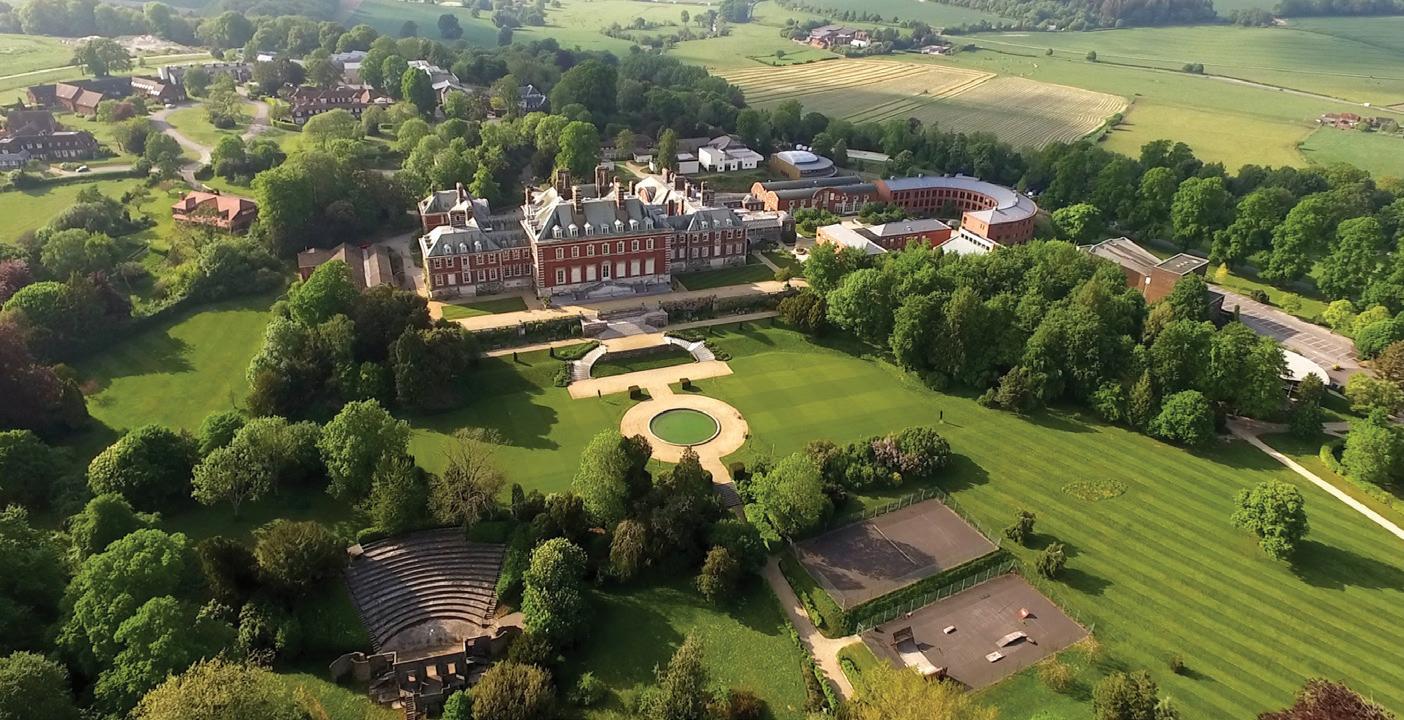
• Over 100 extracurricular activities
• Listed and contemporary buildings
• Convenient coach links to London Heathrow and Central London
Details:
Head: Richard Jones
Student Population: 377 boys/313 girls
Annual Boarding Fee (2022-23): £40,890
Discount: Bursaries available
Average class size: 8-15

Cayman Parent Magazine | Education104
+44 (0)1258 484632 | Bryanston School, Blandford, Dorset, DT11 0PX | post@bryanston.co.uk www.bryanston.co.uk
Clongowes Wood College
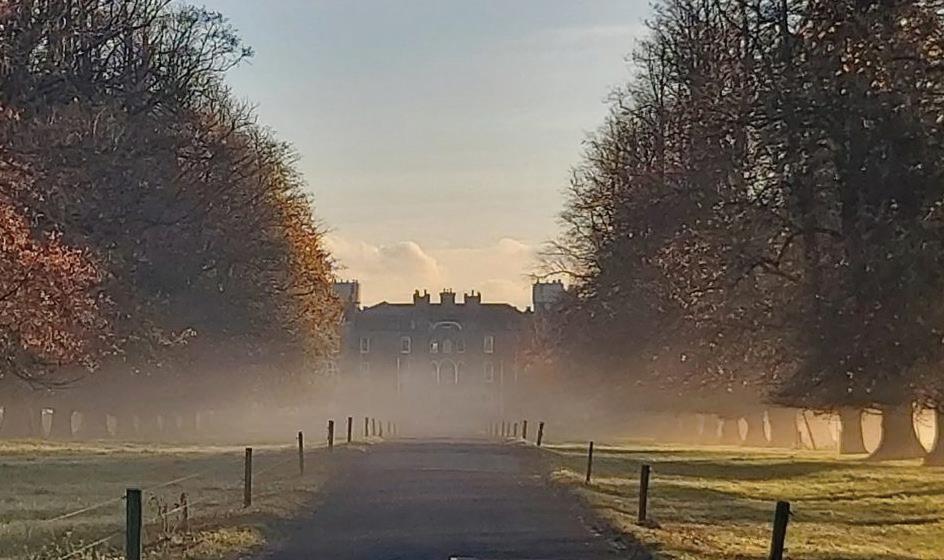
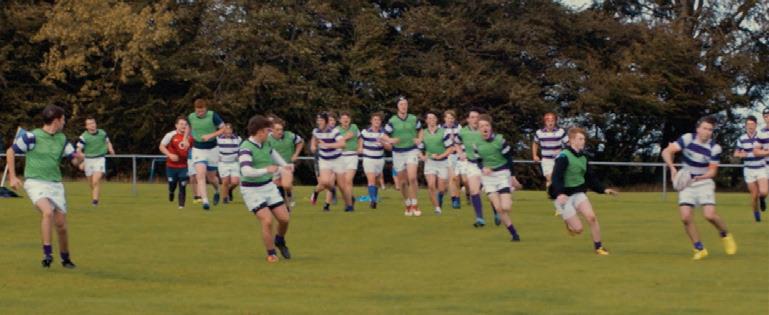
education in Ireland
1814
12–18 years)
Established in 1814, Clongowes is Ireland’s leading 7 day boarding school for boys aged from 12 years old. A Catholic school in the Jesuit tradition, they aim to develop young men of conscience, compassion and competence. They are home to 450 boys from Ireland and further afield. Clongowes offers a broad academic programme as well as a diverse co-curricular programme of sports, drama, debating and music. That which sets them apart is their approach to ‘the care of the individual’ – nourishing each boy’s talents and supporting them on a pastoral level. Clongowes is a very special place, set in 550 acres just 40 minutes from Dublin airport.
Curriculum: Irish education is broad and balanced. They are a non-selective school with a wide range of learning styles and abilities supported by their dedicated staff. The teaching and learning programme is across 6 years with state exams at Junior Certificate (3rd year) and Leaving Certificate at 6th year.

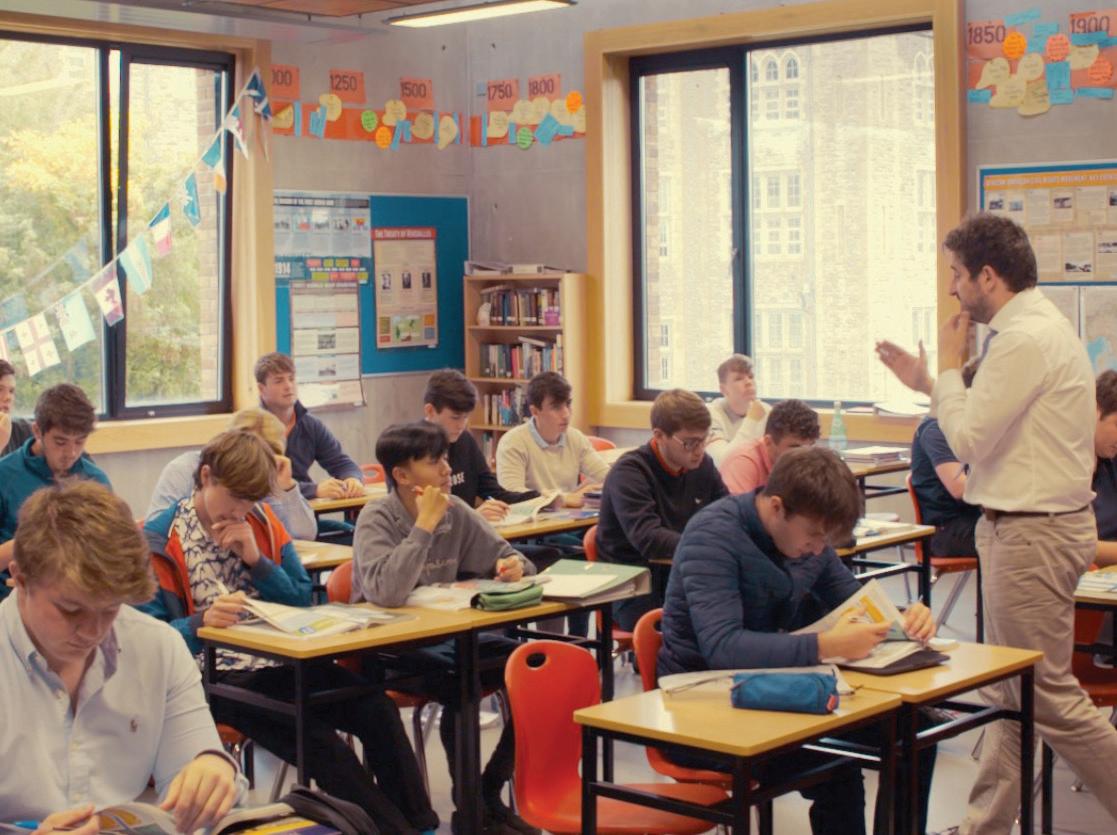
Facilities: Facilities for living and learning are top class, including: an abundance of rugby and soccer pitches, a golf course, athletics track, cricket pitch, tennis courts, basketball courts (indoor and outdoor), very large sports hall, weights gym, 25M indoor swimming pool, music practice rooms, modern science and computer labs, the James Joyce Library, co-operative learning spaces etc.
Other Services: Clongowes believes that learning extends beyond the classroom based curriculum and so their co-curricular programme is rich and varied, e.g., their orchestra, 3 choirs, traditional Irish music group, debating, drama, art, structured study in the evening, many sports on site including rugby, soccer, GAA, golf, athletics, swimming, cricket, basketball, tennis etc. They have a full competitive fixture list for all sports with visiting teams and trips to other schools throughout the year.
Mission
“The hallmark of any good boarding school is that it should mirror the very best of family life and the family home. This is what we aspire to do, and more, in Clongowes Wood College.” Mr Chris Lumb, Headmaster
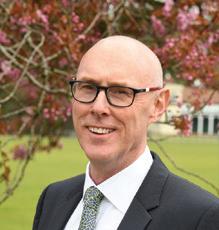
Highlights:
• Cohesive boarding community of all 7 day boarders

• Excellent facilities and co-curricular programmes


• Irish education system is broad and balanced
Convenient location for airport
Details:
Headmaster: Mr Chris Lumb
Student Population: 450 boys Annual Fees (2021-2022): €20,800 per annum
Sibling Discount: 7.5% for 2nd brother if 2 brothers attending. For 3 brothers, 10% for 2nd brother and 20% for 3rd brother.
Scan here for a virtual tour.
www.caymanparent.com 105
Jesuit
since
(ages
+353 (0)45 838 258 | Clongowes Wood College SJ, Clane, Co Kildare, Ireland | admissions@clongowes.net www.clongowes.net
•
Stowe, Swanbourne House & Winchester House
(ages 3-18 years)
We are Change Makers
Stowe was founded 100 years ago to be a school to disrupt conventional orthodoxies, encourage individuality and change independent schools forever. In 2021, Stowe formed The Stowe Group with Swanbourne House and Winchester House schools. Together we are creating a community of Change Makers ready to transform the world. Yes, we teach pupils how to excel in exams, but we also teach them how to collaborate, to solve problems, to think critically and to reflect. We equip them with the skills, resilience and ideas they need to adapt and thrive. With empathy, versatility, originality and creativity, The Stowe Group’s three schools have inclusive communities transforming how young people are prepared to enter adult life.
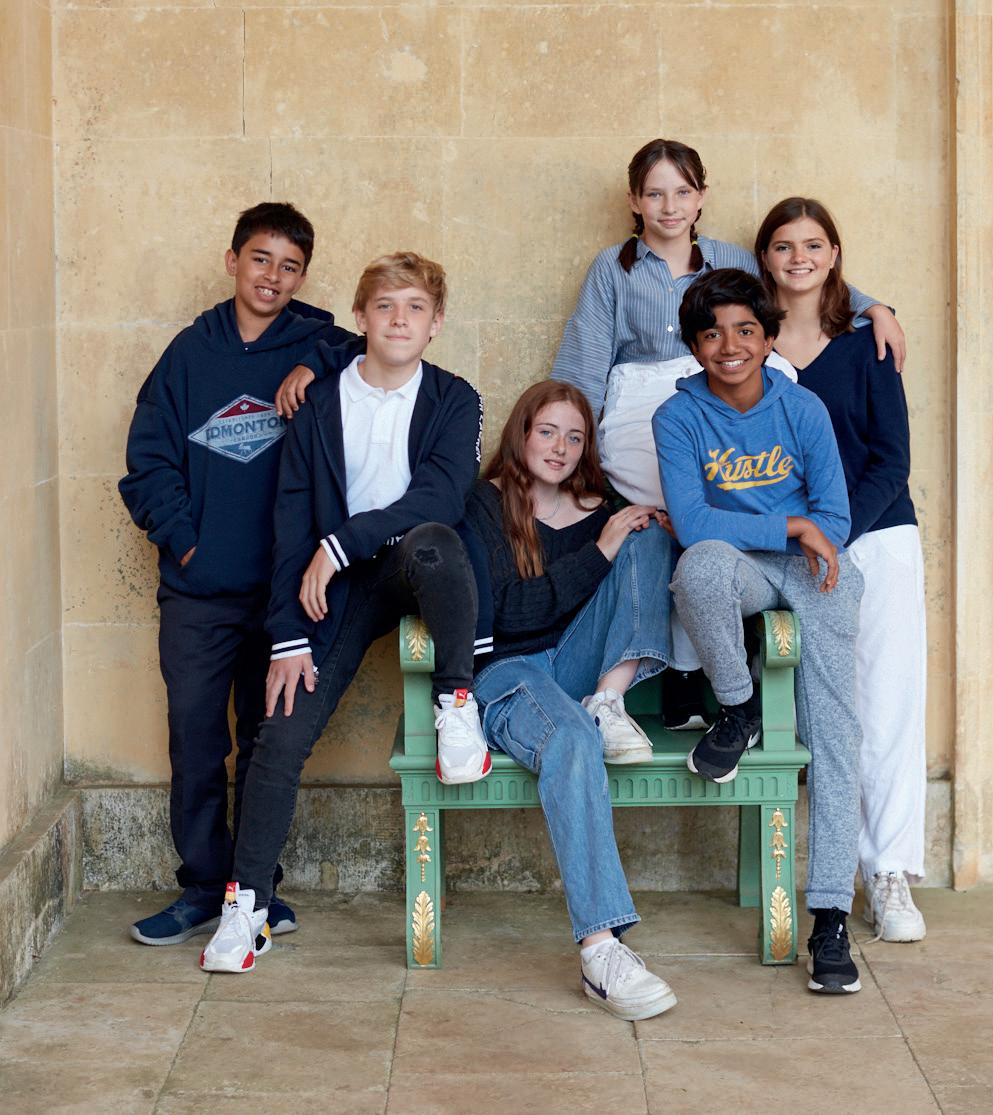

Curriculum: Change Maker Award, GCSEs, BTECs, EPQ, A Levels, Pre Med. Facilities: Athletics Track; Watson Art School; Astro-Turfs; state-of-the-art Worsley Science Centre with its Sixth Form Study Centre; The Chung Music with 24 practice rooms, 200-seat auditorium and recording studio; Swimming Pool; StoweBucks Sixth Form Centre and Café; New 9-hole Golf Course; 400-seat Roxburgh Theatre and Dobinson Studio Theatre; Equestrian Centre and CrossCountry Course; Well-being Centre; all set in 750 acres of beautiful parkland. Extracurricular: Service@Stowe Volunteering; Junior and Senior Congreve Drama Societies; Biomed Society; Quantum Society; Pitt Society; English Literary Society; Model United Nations; Debating; Geography Society; Gaussian Group (Maths Society); Golf Academy; Robotics Club; Chess Club; Modern Languages Society; Open Mic Night; Choir; Orchestra; Crossfire (Christian Society) and LGBTQ+ Society.
"We believe that we should prepare pupils for a new world that is changing faster than ever before with jobs and technology that do not yet exist. We are doing this so every pupil can go out into the world and make positive change, create new opportunities and build a better future for all. This is how we make change."
Highlights:
• Rated Excellent in Academic and Pupil Personal Development by the Independent Schools Inspectorate
• Every pupil is educated in Change Maker Core Skills
• Within The Stowe Group we have education provision for 3-18 year old boys and girls (boarding, day and day in boarding)
• Set in a Ducal Palace in the worldfamous landscape gardens, just 30 minutes from London and 45 minutes from Heathrow

Details:
Head: Dr Anthony Wallersteiner Student Population: 880 pupils at Stowe (1,300 across The Stowe Group)
Annual Boarding fee (2022-23): £13,598 per term
Discount: 10% annual discount on boarding fee for pupils coming from The Group’s Prep Schools to Stowe Average class size: 15-22
Cayman Parent Magazine | Education106
+44 (0)1280 818000 | Stowe, Buckingham MK18 5EH, United Kingdom enquiries@stowe.co.uk | www.stowe.co.uk
Ask a Boarding School Student
Meet two individuals from Grand Cayman who have attended overseas boarding schools and get the real scoop on life as a boarder.

Lara, Bryanston School, Dorset, England.
Lara is currently in year 12 after joining Bryanston in year 9. Previously, Lara studied at Cayman Prep.
What is the best thing about being at boarding school? The friendships that you make. I also love being able to try so many new things, learning to push myself out of my comfort zone in such an encouraging and supportive environment.
What advice would you give someone about boarding school? Moving to a new school can be very nerve-racking; coming from a small island and moving over to the UK feels like a massive change and can be quite scary, but you would be surprised by how quickly you settle in and in no time at all you feel like you have another home. Being authentically who you are is so important, showing your true passions and having pride in what you do. Being outgoing and willing to try new things is also so important in making the most of your time at boarding school.
Did you experience homesickness and how did you overcome it? Without a doubt the first few weeks in a new environment were very strange and it can be quite difficult to adjust, however being around so many people in the same position as you makes everything a lot easier. Keeping busy was the largest help. Doing something new easily keeps your mind off home. The support system at Bryanston (teachers, peer mentors and buddy groups) was also a great help in this. Throughout the years the school has felt more like home and returning to school and seeing your friends, doing all the things you love is wonderful.
What are your favourite extracurricular activities and why? I have tried a number of ECAs while being at Bryanston from jewellery making to cookery. My favourite would have to be dance, something I never thought I could enjoy so much. ECAs are a massive highlight and they are a great way to make new friends, try new things and become even better in the things you are passionate about. Whatever your interests are I can assure you there is something exciting for you to do, the list is endless.
Tarick, Cheltenham College, Gloucestershire, England.
Tarick is currently in Third Form after starting Cheltenham College in September 2021. Previously, Tarick studied at Cayman Prep.

What is the best thing about being at boarding school? The sense of community within the Houses and how the House structure encourages bonding between the year groups. I have also enjoyed meeting different people from all around the world. I appreciate the way that the school encourages me to step outside my comfort zone and gives me the opportunity to try lots of new things.
What is the hardest thing about boarding school? To begin with, it is being independent and staying organised – not forgetting prep or books for a certain lesson, or remembering when your next activity is. My matron at Cheltenham College is always there to help and support us to develop.
What advice would you give a pupil about to start boarding school? Don’t worry about new or uncommon situations as you are not the only one who is doing this for the first time. Don’t be scared to ask if you don’t understand something. Also, write a list of what you need to pack so you don’t forget anything!
What are your favourite extracurricular activities? I really enjoy water sports. I will be doing Rowing at College for the second time this term. I enjoy Rowing at the boathouse because it is a fun team sport and there have been no expectations, as the majority of those pupils in my year have never rowed before either. For my Monday evening activity last term, I took part in Water Polo which taught me new skills and helped with my fitness. I also took part in the Photography Club as my Monday activity in the first term, as it is something I find interesting, and it is not something I would usually do.
What’s your favourite thing to do on a weekend at Cheltenham College? On Sundays, pupils are allowed to enter town to see friends, grab some food, go bowling or go to the cinema as it's only a short walk and is a safe town. In the evening we have a roast and then evening Chapel which is a nice way to close out the weekend. Some weekends we will go on House or year group activities.
www.caymanparent.com 107
Smart Scholarship Strategy
Funding for Caymanian Secondary School Students
Caymanian students enrolled in Government schools do not pay tuition fees from primary school to the end of high school (Year 11), but Year 12 is a compulsory year. Therefore, the Government, through the Ministry of Education, have made certain financial scholarships/grants available to families of Caymanian high school students so that they can take A Levels, or their equivalent, and qualify to go to university. The students who leave one of the Government high schools to enter a private school (or ICCI or UCCI) are given what is called ‘DualEnrolment’. This simply means that these students are tracked to the end of Year 12.
A Level Students
If a Caymanian government high school student has the qualifying grades and is formally accepted into the A Level programme at either Cayman Prep & High School (CPHS) or St. Ignatius Catholic School, the student can get funding of up to CI$14,000 towards tuition fees for each of the two A Level years. Students do not need to apply to the Scholarship Secretariat for the funding, but they must get approval from the Education Council. Parents need to be prepared to pay for all incidentals, including Parent Teacher Association (PTA) fees, uniforms and external exam fees. To qualify for the aforementioned financial assistance, students need to have achieved a minimum of 5 IGCSE/GCSE/CXC (PE and Life Skills cannot count towards the five) passes at grade C or higher, and have passed English and Mathematics. To qualify for funding in the second year of the course, students must achieve a minimum of three C grades in their AS Level exams at the end of the first year of their A Level course. Any money received from the Scholarship Secretariat is paid directly to the school and cannot be used for uniforms or any other incidentals. An additional contribution is also made towards books. The Education Council implemented Means Testing for local scholarships as of September 2018. The Means Testing requirements are a part of the application, and require completion in order for the application to be submitted. (See further in this article for more information on means testing.)
Some children also leave Cayman at age 16 and go to England to take A Levels or a BTEC Level 3 Extended Diploma at a Sixth Form college. In the UK state school system (government schooling), if a child has a British passport then they are ‘feefree’ until they turn 19 years of age. The Scholarship Secretariat will then contribute up to CI$14,000 towards the student’s living expenses, but only if the A Level/BTEC is not available locally.
Caymanian students who have attended a private school in Cayman, and have been accepted into the A Level programme,
having achieved a minimum of 5 IGCSE/GCSE/CXC passes at grade C or higher including English and Maths, can also apply for assistance with the fees for their A Level course. On achieving a successful application these students can get financial assistance so that their fees are paid in full (up to CI$14,000 per year) for each of the two years of their A Level course. Students must have achieved three C grades in their AS Levels to get funding for their second year.
Associate’s Degree Students
If a Caymanian government high school student chooses to finish their secondary education doing an Associate’s Degree at UCCI or ICCI then they can apply for the fees to be paid. However, all students who have not achieved either an A or B grade in English and Maths are mandated to take remedial Maths and English at college level, as well as College Skill classes and Career Classes. History has shown educators that if a student fails English and Maths at IGCSE/GCSE/CXC then they are likely to fail their Associate Level course. That fail then remains in their academic record, affecting their university accumulative performance, the student’s ability to get into other universities, and their ability to get a scholarship to help with funding. The Associate's Degree takes about 2.5 years at UCCI (with 68 credits), 18 months at ICCI (which is a quarter-term institution) and students will graduate with an Associate’s Degree worth 90 credits.
If any other Caymanian student wants to do an Associate’s Degree at UCCI/ICCI, they can also get funding towards both years of their course if they have achieved enough passes in external exams to qualify to take the course.
AP, CAPE & IB Students
Scholarship funding of up to CI$7,000 is available to Caymanian students who are going into their final two years of studying Advance Placements (AP) or the International Baccalaureate (IB). Caymanian students taking the Caribbean Advanced Proficiency Examinations (CAPE) get both of their final two years of tuition paid in full (up to CI$14,000 per year). Students must have already completed the first year of their course and have taken the minimum number of courses required by the Scholarship Secretariat in their first year of AP, CAPE or IB, and have achieved minimum grade passes of C/3 or a GPA of 3.25 (with no D-F grades).
BTEC Diploma Students
If a student would rather do a course which includes lots of hands-on special project assignments and work experience, then they might want to choose a BTEC Level 1, 2 or 3 Diploma, depending on their prior skills, experience and qualifications. Government high schools in Cayman offer BTEC Level 1 and
Cayman Parent Magazine | Education108
2 courses, and CIFEC offers BTEC Level 1 and 2 courses, as well as the first year (only) of the BTEC Level 3 Extended Diploma. For students to complete their Level 3 Diploma (which is considered the equivalent of taking 3 A Levels) they will need to go to England to take the second year. To qualify for an overseas undergraduate scholarship, students taking the BTEC Level 3 Extended Diploma will need to finish the two-year course with a minimum grade of triple merit (known as MMM). CIFEC currently offers two BTEC Level 3 Extended Diplomas in Creative Media Film & TV and Business but only to Certificate and not Diploma level (since you can only attend CIFEC for one year and the full diploma is a two year course).
Means Testing
Means testing is in place in order to prioritise those students whose parents or legal guardians have a combined income of less than CI$400,000 per year. This allows for the allocated budget to be utilised for those students who really need the financial support and have less resources to pay for college/ university and its related costs. However, if an applicant is above the threshold but there are “special” circumstances then they may ask the Education Council to consider their application.
The qualifying criteria for a local or overseas scholarship can be quite complicated and vary according to which type of degree or course you choose to take. For details on the criteria and how to apply, see the Ministry of Education's scholarship website: https://moescholarships.gov.ky/.
Technical Vocational Study Programmes (TVET)
To be considered for an overseas scholarship for a Technical/ Vocational Study Programme (TVET) such as Auto Mechanics, Computer Engineering, Building Construction Technology or Radiography Technician, you must have 5 higher level GCSE/ CXC subject passes with A, B or C grades including Maths and English Language, or 3 higher GCSE/CXC passes with A, B or C grades with 99 Foundation Maths and English with A or B grades from UCCI or ICCI. Alternatively, you could also have a cumulative high school GPA of 2.75 or higher including Maths and English Language passes with A, B or C grades, or a cumulative GPA of 2.5 in your first year of study at UCCI or other institution with professional or academic work in the desired course of study. Mature candidates will be reviewed on a case-by-case basis.
Scholarships for Tertiary Education & University
In an effort to ensure that Caymanians have the opportunity to fulfil their educational and career goals, the Ministry of Education, District Administration and Lands, through the Education Council and administered by the Scholarship Secretariat, offers scholarships and grants to all Caymanian students who qualify to pursue either a local or an overseas tertiary education. Students can apply for an overseas scholarship between November 15th and January 31st annually, and a local scholarship between March 1st and April 30th. No late applications are accepted. Students need to apply to a university prior to their scholarship application, but they do not have to have received an acceptance letter prior to applying.
The qualifying criteria for a scholarship varies depending on whether you are aiming to take a Technical and Vocational course, a Bachelor’s degree, a Master’s or a PhD. The minimum age at which you can qualify for an overseas scholarship is 17, but the expectation is that you will turn 18 during that academic year. There is no upper age limit on applying for a scholarship.
Undergraduate Degree Scholarships
To be considered for an overseas scholarship to study a Bachelor’s degree programme you must have passed your AP, IB, A Levels, BTEC, SATs or Associate's Degree to a certain criteria set out in the Scholarship Secretariat’s application form.
• International Baccalaureate (IB): You must have taken and passed the full IB diploma, must have 3 higher level IB certificates with a minimum of 13 points, and no grade lower than 4, and 2 standard level IB subjects at the 12th grade level with a cumulative high school GPA of 3.25. Alternatively you can have 5 standard level certificates with no grade lower than 4.
• Advanced Placement (AP): The points system for APs has recently changed, so please refer to the scholarships website for current AP requirements.
• A Levels/CAPE: Three A Levels/CAPE Unit 2 with a minimum grade of Grade C/3 in each A Level/CAPE Unit.
• Associate's Degrees: Must have a cumulative GPA of 3.00 or higher, or Associate level studies with a minimum 3.0 cumulative GPA.
• BTEC Level 3: Must have an Extended Diploma with a minimum MMM grade average, SAT score of 1100 or ACT score of 22
However, The Education Council may award an overseas scholarship to students who do not have advanced standing (IB, A Levels, CAPE, AP) if they meet one of the following two criteria: 1) 7 GCSE/CXC passes at A or B grade, including Mathematics and English, or 2) A combined cumulative High School GPA of 3.25 or higher and a SAT score of 1100 or ACT score of 22.
Undergraduate Funding Levels & Subsequent Years
To maintain your scholarship, you must achieve a 2.75 GPA or a 2:2 in the first year of study, and a 3.00 GPA or a 2:1 in your subsequent years. The Education Council has a requirement that you do at least 12 credits per semester/term in your first year and then 15 credits per term in the subsequent years. Overall, a Bachelor's degree should take 120 credits to complete. Each year you should be doing a minimum of 30 credits for a four year course, and 40 credits for a three year course.
The Secretariat’s annual audit of your scholarship will measure this and your funding may be suspended if you are taking less than the credit requirements. Funding comes in twice a year and is based on your declared expenses. Qualifying students can get funding of up to CI$30,000 per year for a maximum of four years. If they are reading Medicine then that can be extended to six years and beyond if the student is specialising
www.caymanparent.com 109
in a chosen field and needs to take internships. Also, based on budgetary considerations, mandatory summer funding can be made available to students once per degree. This is capped at CI$4,000 and is dependent on specific guidelines being met.
Undergraduate Application Process
The application form for an overseas scholarship is not unduly onerous. Applicants must apply online and a number of documents must be uploaded with your online application. These include your completed scholarship application form, your medical certificate, academic/character references, official high school or college transcripts, a passport photo, a personal statement, a degree plan outlining the courses to be taken throughout your programme of study, a letter of acceptance on your chosen course (and any transfer of credits where this is applicable), an Excel spreadsheet with all the costs outlined (tuition, housing, meals, flights, books, etc.) plus your birth certificate along with your Right to be Caymanian/ Status Certificate and a cover letter. It is worth noting that the Scholarship Secretariat wants to know that you have looked into your course in great detail. They want to know exactly what modules you will be studying each year and whether there are any specific A Levels (like Maths) that you need to have taken to get into your chosen course.
Another part of the overseas scholarship application process is a mandatory interview for short-listed applicants. That interview includes at least two professionals in the field that the student wants to study. The interview is to determine whether or not the student is ready to undertake the study and whether they understand how they will apply their degree to a job. The panel of interviewers will then score the candidate and determine whether the student is ready, whether they understand the field that they are going to study and whether their university of choice is suitable for them. Some students choose a university because of a family attachment or because the university itself has been a popular choice with other students, rather than because of the course they can take or whether it is the best university for the subject they want to study.
A parent’s ability to assist financially will be taken into account for all scholarships, and a ‘Declaration of Income and Expenses’ for all sureties will be required to be submitted. You will then have to sign a student bond with your surety if you are awarded a scholarship committing you to a) successfully completing your proposed studies and b) then working in the Cayman Islands for a specific period of time after your studies finish. If you fail to meet either of these two requirements, you will have to repay all the scholarship funds that you have received. Having
GPA Explained: A GPA — or Grade Point Average — of 4.0 is the equivalent of an A, 3.5 GPA is the equivalent of a B+, 3.0 GPA is the equivalent of a B and a 2.0 GPA is the equivalent of a C. To qualify for an overseas scholarship to attend university, the student must finish with a GPA of at least 3.0 or 3 x A Levels at C grade or above.
said that, you have a 12-month window in which you should return to Cayman after your degree finishes, or you can apply to the Council for an extension to your return date if you have the opportunity to gain further experience in your field prior to returning home.
Tracking Undergraduate Scholarship Expenses

Each semester, students must go through a detailed submission process for their scholarship funds to be continued. This process includes submitting a detailed grade and transcript record, along with receipts of how the money they received was spent. All the paperwork will then be reviewed in great detail. The Scholarship Secretariat reviews the student’s expenditures to ensure that they were applied towards agreed fees/expenses, and then they review the student’s performance and grades. Only after this review has been done is it determined that the next disbursement of funding can be released. In addition to the Ministry of Education’s scholarships, students can also apply for a private sector scholarship as long as both scholarships do not exceed their total costs. Although the process of getting a scholarship may seem overwhelming, the Secretariat must have a way of measuring that a student’s performance is within the requirements set by the Education Council. They also require students to go through a costing procedure. Each student must fill in a spreadsheet online which automatically tables their expenses and identifies the different costs which they should be thinking about (tuition, room and board, food, dorm supplies, school supplies, groceries, books, utilities, transportation at university, flights home, etc.). Each student is given an online folder in which to upload their expenses and details.
Masters & PhD Scholarships
Scholarships for a Masters or PhD are available and students must have achieved a cumulative GPA of 3.0 or an Upper Second Class Degree (2:1) in their undergraduate degree. They must also have had work experience that is relevant to the course they have chosen to study. Those studying for a Masters Degree or a PhD can get up to CI$35,000 per year.
Private Scholarships
There are numerous private scholarships available in the Cayman Islands, and these can be combined with a government scholarship. The amount available annually varies, but the large law and accounting firms offer between US$20,000–US$30,000 per year. Remember that you will have to keep meticulous records on exactly how you spent your scholarship money and this includes receipts for everything. You will usually be required to work for the firm in your summer holidays and on completion of your degree. A list of private scholarships can be found on the www.caymanparent.com website, where we have outlined the scholarships by industry. Remember that it is absolutely crucial that you get amazing references from the companies you have been interning with, or from your teachers, and to have some interview practice (should you be invited for one). These companies are looking for the best, most motivated Caymanians who will work hard and give back to the Cayman Islands community in a meaningful way.
Cayman Parent Magazine | Education110
Scholarship Opportunities for Qualified Caymanians
LOCAL Scholarships
March
April 2023
local scholarship can facilitate a Fall 2023 or Spring 2024 start date at UCCI, ICCI, UWI
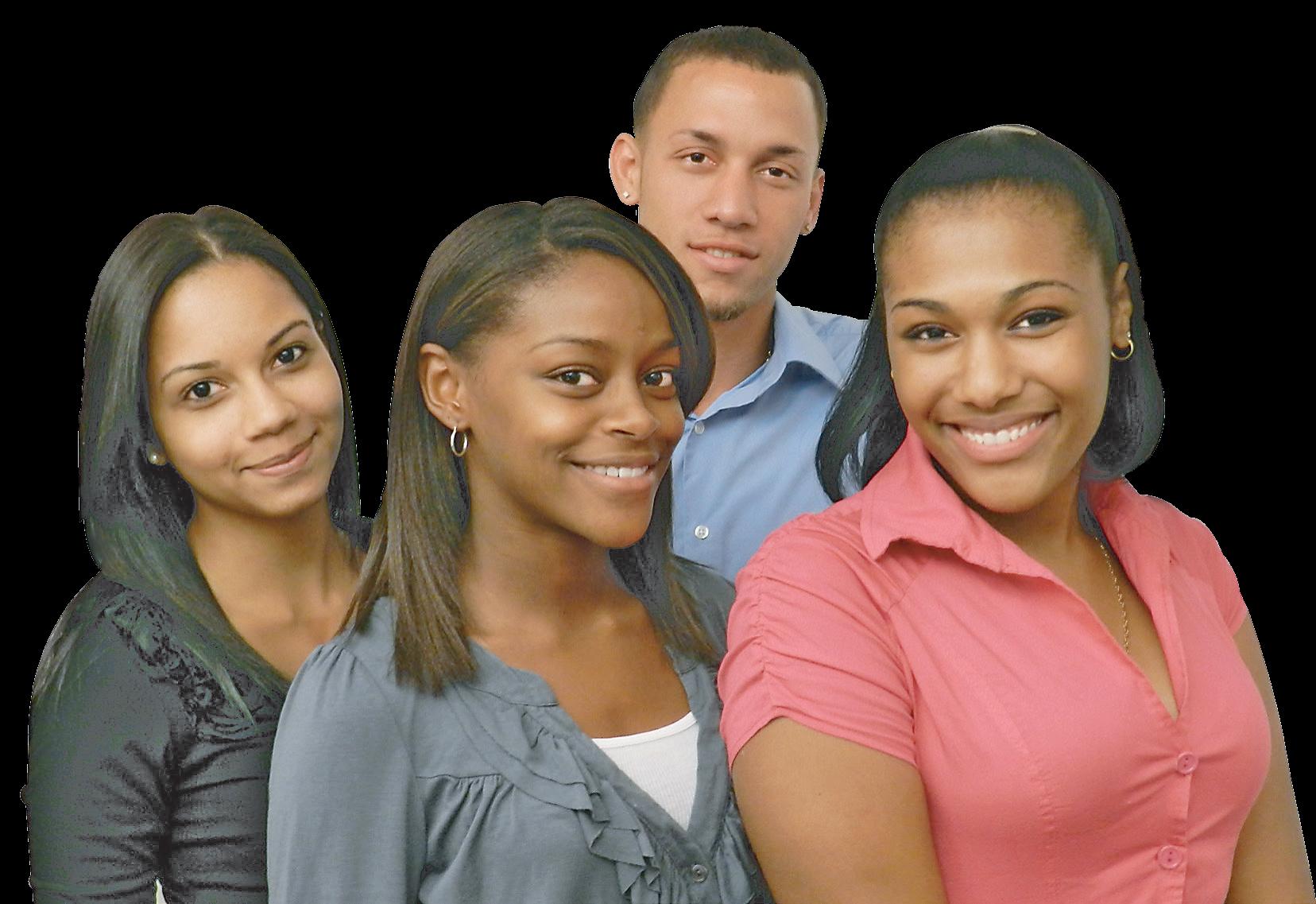
Campus, Truman Bodden Law School, St. Matthew’s University, A levels, BTEC Level
or the final year of
International Baccalaureate or Advanced Placement.
OVERSEAS Scholarships
January
overseas scholarship
facilitate Fall 2023 or Spring 2024 start date.
studies; TVET, Associate, Bachelor, Master, & PhD studies.
For both Local and Overseas Scholarships: *NO applications can be made in advance or after the application periods stated. Do not delay applications because grades or acceptance letters are not yet available. Applications must be made online or they will not be accepted! To apply and obtain application forms, criteria and required documentation visit: www.moescholarship.gov.ky Contact the Scholarship Secretariat at: Phone: 244-2482 • Email: scholarships@gov.ky
Application Period: 15th November 2022 – 31st
2023
Application Period: 1st
– 30th
The
Open
3
CAPE,
The
can
Scholarships are available to pursue overseas tertiary
Saving for College Fees
Saving for your children’s university and college fees is something that ideally needs to be started when your child is very young. Here we offer some suggestions on how, with good and early planning, college fees can be saved without tipping the family finances over the edge.

Plan, Plan, Plan
Saving for college is no different from any other financial goal in that it needs a plan. Your starting point is where you are today and what you have accumulated so far. Take an honest look at your current financial situation. From there, start to make some guesses as to how much you may need and when you will need it (the latter being the easier bit). Then, with the help of an online calculator, you can start to work out the monthly savings needed to get you to where you want to go.
There are lots of online tools that can help you calculate how much you need to save. There is a particularly good one on the FINRA website: https://tools.finra.org/college_savings.
Discuss College Education Early
Having conversations early on with your child is critical to assessing how much you may need. Is there a burning desire to attend a top US university, or will they look to you for direction on where they should go? How much might you be able to fund and how much are you expecting them to fund themselves? It is important to have open and candid discussions with your children so that they have an understanding of the expectations being placed upon them.
If you are struggling with where to begin, try starting with the 1/3, 1/3, 1/3 principle; with you covering 1/3, the child being responsible for 1/3 (either through part-time work or student loans) and 1/3 being raised from scholarships or grants. If the plan involves your child taking responsibility for part of the funding, you will need their participation well before college starts. Keeping grades up and researching the scholarships takes work and dedication. Saving earnings from their part-time summer employment takes discipline. Creating a plan early on and sitting down to revisit it regularly is critical to success.
US versus the UK?
For many in Cayman, the US is a logical choice, simply because it is closer. However, for both Caymanian and expat students, the UK is considerably cheaper. In the US, tuition fees tend to be between US$30,000 and US$80,000 per annum, with living costs adding another US$20,000 to US$30,000. In the UK, a Caymanian student will pay the local UK tuition fees of around £9,250 per year, with another £10,000-£15,000- per year for living costs (not including flights to and from the UK). An expat student will pay ‘overseas fees’ of between £15,500 and £35,000 per year depending on the degree (lab based degrees,
Cayman Parent Magazine | Education112
including Maths and Engineering, incur higher fees). The fees for the UK are still a little over half of the cost of the US. Of course, adding another dimension to this is the fact that many parents will have two children (or more) overlapping at college at the same time. (See ‘Applying to University or College’ article for more on the costs involved.)
How Much Should I Save and for How Long?

The reality is, the earlier you start, the less you have to save each month. Growing your money at more than the rate of inflation is really important, as over time inflation erodes your purchasing power and means that you have to save more to get to the same point. Consider investing in the stock market, however, it is important to review your time frame before jumping in. It is impossible to know whether the stock market will go up or down in the short-term, and therefore it is only a sensible option if you have some years ahead of you. Time enables you to ride out the ups and downs and benefit from long term growth.
Financial Commitments


One of the most important pieces of advice is to ensure that your college savings plan is considered alongside your other financial goals: retirement, caring for elderly parents, paying off mortgages, having emergency cash balances, etc. To put your college savings in context, it is worth seeking the advice of a professional financial planner. A good advisor will help you create a plan that is right for you, your priorities and your life. Look for someone who is dedicated to education. They will recommend the correct
assets to invest in (investing in the stock market is not for everyone), and more importantly, they will act as your accountability partner to keep you on track over the years to come.
Final Word
As a final note, remember that your financial security is important too. Money is emotional and it is easier to give freely, without resentment or blame when your cup is full (or being filled). Money is not love, and love is not money. Teaching your children good financial planning practices will set them up for life, and help them pay off any student loans more quickly and efficiently. Sadly, there are no loans available for retirement. For that, you simply have to save!
www.caymanparent.com 113
Applying to Overseas Universities
The path to university is not all about your grades, as your school’s college counsellor should advise you. Yes, universities will want to see your grades (passes as well as fails) from the start of Grade 9 (US) and Year 10 (UK) and these will all appear on your school transcript, but universities are interested in the whole student. They will want to see all the extracurricular activities you have taken part in for your last four years of school, including community service, volunteer work, clubs you have joined, internships, work shadowing and any leadership training opportunities.
Having said that, the vast majority of universities will have minimum academic entry requirements, and these vary according to the university and course. The good news is that regardless of which country you studied in, and whether you took A Levels, the IB, SATs, APs or some other High School Diploma, universities understand the various scoring systems and will consider you if you have the grades they want. Please read on for a list of the various entry exams to university.
North America - SAT & ACT Entrance Exams
Most American colleges and universities require students to take one of two standardised aptitude tests: the SAT (Scholastic Assessment Test) or the ACT (American College Test). SATs are geared more towards testing critical thinking and problem solving skills, while the ACT tests what you have learned in High School. These tests are an easy way for colleges to compare all applications, and admissions officers will review your SAT or ACT scores alongside your High School GPA, recommendation letters from your teachers, your own personal statement – which should list, amongst other things, your extracurricular activities, work experience and charity work – and any other details including the subjects you took in high school.
Most high school students are encouraged to take the SAT twice: the first time in May of Grade 11/Year 12 (their second to last year of High School) and the second time either in August or early October of Grade 12/Year 13. This gives enough time to study over the summer holidays and take the test again before early university applications are due on October 15th of Year 13 (UK system) and Grade 12 (US system).
Many students now also take the PSAT/NMSQT (Practice SAT/ National Merit Scholarship Program) in October of Grade 11/ Year 12 before they take the SAT. This test measures knowledge and skills in reading, writing and maths and the scores range from 320 to 1520. Tests are taken within school, not online. By taking the PSAT/NMSQT early, students may meet the requirements to enter the National Merit® Scholarship Program, an academic competition for recognition and scholarships.
Students in Cayman can take the SAT at Cayman International School, even if this is not the school they are enrolled at. The test is offered in August, October, November, December, March, May and June, although you need to be registered 5 weeks in advance. The test is three hours long and includes a Maths portion and an Evidence-Based Reading and Writing section. You can also take an optional essay section, which is reported separately and takes an additional 50 minutes. Each section of the SAT is scored on a 200 to 800 point scale. The highest possible score is 1,600, but 1,200 is considered to be a very solid score.
In 2021, 1.5 million students took the SAT exam (down from 2.2 million in 2020) and 1.3 million students took the ACT exam (down from 1.6 million). It is unclear how many students took both, but experts say it is now common practice for students to tackle both exams. The ACT exam includes four sections: English, reading, maths and science and it also includes an optional 40 minute writing test. Each section of the ACT is scored on a scale from 1-36. Your final score is the average of your foursection scores. The maximum score you can receive is 36 and the average score is 21. The average SAT score for the class of 2021 is up slightly at 1,060 compared to 1,051 for the class of 2020. Note: You can take free full-length practice tests online for both the SAT and ACT. Also note, lots of schools do not ask for the ACT from international candidates.
UK - A Levels
In the British school system, A Levels are the 2-year Advanced Level qualifications which students take after they have completed their GCSEs and they are what universities use to gauge the academic level of a potential student. It is worth noting that UK universities will not consider a candidate for entry unless they have passed GCSE Maths and English Language with a minimum grade 4 or C. Students usually take 3 to 4 subjects and are graded A* to U (A* to E are a pass). Please note that students in Cayman still take AS Levels in Year 12 but these have been phased out in the UK. Taking these exams halfway through the A Level course gives Cayman students an advantage, as their AS Level results give both the school and the university a benchmark to predict how the student will do at A Level in Year 13. AS Levels also contribute 40% of the marks of a full A Level. Students then have the chance of retaking their AS Levels in January of Year 13 if needed.
Some US and Canadian universities offer students credits for their first year if they have taken certain subjects at A Level, and these credits are applied when you get to the university. You often have a choice of whether you want to apply the credits at the beginning of the course, and skip a few courses, or apply the credits at the end and completely blow your final result out
Cayman Parent Magazine | Education114
of the water! The policy varies from university to university, so make sure to investigate what they offer.
The benefit of delaying taking the credits is that you will ace your first year's worth of courses (some of it might seem very easy after A Levels). This will potentially put you on the Dean’s List and line you up to get a scholarship or get access to better courses. Your university counsellor will advise you on your options.
If the university does not want to give you credit for your A Level course, it is often because they don’t understand the depth of the course you took. In such cases, your Cayman school is always very willing to send the US or Canadian university the syllabus of the course you took. Once they see this, they will be far more likely to understand the depth and breadth of your A Level and be willing to give you credit for it.
Advanced Placements (AP)
Advanced Placement is a programme that allows students to take college-level courses whilst still in High School. About 40 courses are offered and these are scored 1 to 5 (5 being the highest). Students who score 3, 4 or 5, can request college credits for the class. Many colleges accept AP classes as additional points towards your GPA. For highly selective schools, such as Ivy League schools, it’s common for accepted applicants to have taken between 7 and 12 AP classes throughout high school. The average student will take about 5 AP courses.
International Baccalaureate (IB)
The International Baccalaureate Diploma Programme is accepted by universities around the world and is highly regarded. It is a rigorous programme that focuses not only on academic performance, but also on students’ personal, ethical and emotional development. The programme is studied in Grades 11 and 12 and prepares students very well for the challenges of university.
The curriculum is made up of three core components a) Theory of Knowledge (TOK); b) Creativity, Activity and Service (CAS) and c) the Extended Essay – plus six subject groups. Students must participate in all three core subjects and also choose one course from each of the six subject groups. The six subject groups are: Language and Literature, Language Acquisition, Individuals and Societies, Sciences, Maths and the Arts. Three or four of these are taken at Higher Level, and the rest at Standard Level.
Students sit exams for the Diploma Programme in May. They are graded from 1 to 7 (7 being the highest) for each of their six subjects. Additionally, the Theory of Knowledge and Extended Essay are also graded, and together can add up to an additional three points. The maximum score one can therefore achieve is 45. The pass rate is 24, and anything over 34 is considered very solid. When you start researching the subject you want to study, you will see what IB scores universities want. For example, if someone wants to read medicine at university, they need to get an IB score in the 40s. Architecture would be in the high 30s.
Because admission to US universities is decided in December or January and the IB examinations do not take place until the following May, places for IB students are often based on their predicted scores. The advanced nature of the IB curriculum is such that some US universities will allow IB students to go directly into the second year, thus shortening their degree course significantly. The IB High School programme is offered at CIS.
Entry to a UK University
About 80% of students who go through the British system in Cayman (Cayman Prep and St. Ignatius) go on to UK universities. The remainder go to US or Canadian universities, and a small percentage go to a local Cayman university. The main reasons these students go to the UK is the courses are shorter, the reputation of UK universities is highly prized and the cost*: anyone resident in the Cayman Islands for three years prior to applying to a UK university is eligible for ‘home fees’, which means that the tuition fees are a fixed £9,250 per year. For more information on the rules around home fees see www.ukcisa.org.uk. If you want to go to a UK university but don't qualify for home fees, then overseas student fees range from £15,500-£35,000 per year depending on the subject you choose to study. With board and lodging, food, flights, books and extras on top, the all-inclusive cost of going to a UK university is in the region of £20,000/US$28,000 per year. The US equivalent is US$30,000-$80,000 per year for tuition alone. Cayman Government scholarship funding for Caymanian students wanting to attend UK universities has been raised to CI$30,000 per year as of the 2022/23 academic year.
In contrast to US universities, where courses run for four years and start with a liberal programme covering many subjects, UK degree courses specialise right from the beginning and usually run for only three years, unless you are doing Medicine, Veterinary Science, Dentistry or studying a foreign language. Some UK universities offer a four-year course, like universities in Scotland do, which lead directly to a Master’s Degree. They are often referred to as ‘Integrated Masters’.
There is also a lot of movement between countries now as many North American universities have partnerships with UK universities and offer a ‘Study Abroad’ term or year. This is a nice compromise for those students who really don’t know which country they want to study in!
* As part of the 2022/23 Cayman scholarship process students who apply for funding to take A Levels either in Cayman or overseas are now required to sign a declaration that they intend to study at a tertiary institution in a Commonwealth country (e.g. the UK, Canada, Jamaica, Trinidad and Tobago and Barbados). Pursuing further studies outside of the Commonwealth may limit their ability to obtain subsequent scholarship funding.
UCAS
There is only one way to apply to a UK university and that is through UCAS. This centralised provider gathers all the student’s information and university choices, and then disseminates it to
www.caymanparent.com 115
the universities your child has chosen. The cost of the UCAS application is £26.50. Students register with UCAS in June of Year 12. Over the summer holidays students and their families research what courses are available at which universities and begin to home in on the course that will fit best. The UCAS website also has a ‘Student Budget Planner’ which helps parents and students see how much it will cost to live at each university. It’s a very useful tool for the majority of students who will be living on a very tight budget.
For most courses you can apply to up to five universities. If you want to read Medicine, Dentistry or Veterinary Science, however, you can only apply to four. You cannot apply to five universities for two or three different subjects though. Incidentally, if you want to apply to Oxbridge, you have to choose to apply for either Oxford or Cambridge – you cannot choose both. The UCAS application should include the student’s residency paperwork, a reference from school, choice of five universities, transcripts of all their grades (passes, as well as fails) from GCSE, CXC and AS Levels, their work experience record and their personal statement. The personal statement is a crucial part of the application and can take between 10 and 12 hours to complete a first draft. Cayman schools will check the statement, offer advice on what it should contain and edit it so that it is grammatically correct. Crucially, universities will be expecting to read your motivation for wishing to study your chosen subject and will want to see what you have done to further your knowledge and passion for the subject beyond the narrow confines of your school’s curriculum. This is where extensive outside reading and subject-related work experience will be highly beneficial.
For those students who have done SATs, APs or the IB, UK ENIC (www.ecctis.com) is the UK’s national agency for the recognition and comparison of international qualifications. The deadline for UCAS applications is October 15th for Oxbridge and January 15th for all other universities. It is very important that Cayman students do not leave their application until the deadline of January 15 – the reason being that many universities come back with the ‘you have been assessed as an overseas student for fees purposes’, which will then trigger a fee appeal.
If this happens, Cayman schools will speak on the student’s behalf and explain to the university that under this guideline and this law the student does qualify for home fees. Students can also send a short email explaining. Although there have been a few close calls, schools in Cayman have never lost a fee appeal. However, if you leave the application until January and there is a problem, then places may have already been offered and accepted by other students. For more information about home or overseas fees visit www.ukcisa.org.uk and read the guidelines very carefully.
In an ideal world, students get their UCAS applications in early, and by Christmas they know what their offers are and what grades they need to get in their exams that summer. The sooner you apply, the sooner you will start receiving offers. If you apply later, many of the popular courses and universities will already
have made all their offers. It also helps when you are applying for a government scholarship – which is unbelievably hard in terms of paperwork and what you need to gather – to know what courses and universities you are aiming for.
Once applications have been assessed, universities either offer an unconditional place, a conditional place based on grades they want you to get, or they turn you down. Offers are always based on three A Level subjects; it will never be offered on four A Levels. A high-achieving student might take four A Levels though, as it will give them more UCAS Tariff Points, which, if applied by the university, will give the student greater flexibility over the grade combination needed to meet the university’s requirements.
Students planning to study Medicine, Veterinary Medicine, Dentistry or Biomedical Science at undergraduate level are also required to take either the Biomedical Admissions Test (BMAT) or the UK Clinical Aptitude Test (UKCAT).
Once the student has received their offers, they have to confirm which one they will firmly accept, but are allowed to choose a second offer as an ‘insurance’ policy in case they do not get the grades required for their first choice. They then contact both the universities and discuss everything, including accommodation. At this point the only thing they don’t do is book their flight. Results then come out around August 20th, and university begins in late September or early October.
Schools in Cayman are very clear on the fact that UK universities do not give students coming from overseas any advantage over UK resident students. The universities all know the qualification options (IB, APs, SATs) and there is a level that they want students to be at. Similarly, applying as an international student using a non-British passport can prove problematic when trying to attain a student visa, as this will likely be denied if in fact you hold a British Passport.
Students taking a gap year can apply a year later when they already have their results. Alternatively, and preferably, students can apply and request entry after their gap year. If a student is planning a gap year, they must ensure that they share their plans for the gap year in their personal statement. There is an advantage to applying after you have received your results, as universities can tell the students right away “yes” or “no” based on their results. Cayman schools keep all the students’ references on file, along with their grades, and welcome past students back so they can work on their application.
Entry to US Universities
As is the case in the UK, the US has a similar central portal called the 'Common App', which lists more than 800 colleges and universities. See www.commonapp.org for more information and how to apply. There is also the 'Coalition for Access, Affordability and Success', which is a group of US colleges and universities (about 140 in total) who have united in their mission to support lower-income, under-resourced, and/or first-generation university students. They make sure that these
Cayman Parent Magazine | Education116
students have access to financial aid and that the access to higher education is made clearer and easier. See www. coalitionforcollegeaccess.org for more information. Students interested in going to an American university create a profile in these portals, input a personal statement and then their current school fills in its part, which includes their GPA, curriculum, a transcript of their grades and subjects from Years 7 to 13, and teacher recommendations/references.
American universities accept students from all over the world, so they have to understand the different grading systems between A Levels, Advanced Placements, the International Baccalaureate (IB) and of course their own SAT and ACT tests. Cambridge University in England has done a lot of work lobbying Ivy League universities so that they understand the A
The 'Gap' Year
According to the Gap Year Association, taking a break before or after university has numerous benefits for the student. There are reams of anecdotal and qualitative data on the positive reasons for taking a gap year and these include such things as increased maturity, greater ownership of the student's education, increased selfawareness, greater global awareness, fluency in a foreign language and, of course, the self-confidence earned from successfully completing a gap year. Universities have reported that students who have taken a Gap Year engage more in campus life and are statistically more likely to graduate on time.
Students have reported that their year away helped them socially and gave them something interesting to say in conversations, in essays and in job applications. They felt that their year away helped confirm their choice of career and academic major, and added to their employability.
If you are planning on taking a gap year, make sure that you have a good gap year plan and that whatever you do is worthwhile, has value and will feed into your course. There are lots of fabulous gap year websites which can give you an idea of great things to do on your year off.
The British schools we spoke to in Grand Cayman were all very much in favour of students taking a gap year. The schools stressed that they would always be available to help past students with their applications, and they keep all their references on file.
Gap years are also becoming increasingly popular in the US and colleges such as Harvard particularly encourage this practice.
Level system and what the various grades are worth. To work out your own GPA, go to www.cambridgeinternational.org, click on the ‘Programmes and Qualifications’ link and then the ‘Recognition and Acceptance’ section.
Entry to Canadian Universities

Ontario has the vast majority of the universities in Canada, and, similar to UCAS and the Common App, Ontario has the ‘Ontario Universities Application Centre' (OUAC) where you will input your application, list your chosen course and universities, and upload your grades, personal statement and references amongst other things. For all other universities, including McGill in Quebec, you will have to apply to the schools directly. As an overseas student, you will need to allow CA$20,000$30,000 for tuition fees and an additional CA$15,000 per year for housing, food and other living expenses. This is a total of between CI$23,300 and $30,000 per year, so Canada is a good option for Cayman students.
Canadian universities understand the British GCSE and A Level system, as well as the IB. It is worth looking at the admissions requirements for each Canadian university which you are interested in. For example, the University of Toronto requires a minimum predicted IB score of 27, and higher for more competitive subjects. If you have gone through the British system, they require at least five IGCSE/GCSE subjects and four AS Levels or three A Levels. They do not generally accept people who have taken BTEC courses unless the BTEC includes sufficient academic content. For those that have gone through the US system in high school, a Canadian university will want to know your GPA and will look at your results in Grades 11 and 12. They do not require SAT or ACT test scores, although they may request them if your GPA is lower than they want. Knowing this information in advance is very helpful as it will help you know what you have to aim towards in your exams. Many universities in Canada also stipulate that Maths is studied at A Level, so make sure to check before you choose your A Levels.
Useful Websites
• www.numbeo.com – A useful website to compare living costs at different universities
• www.unifrog.com – A one-stop-shop for finding and applying to any university
• www.discoveruni.gov.uk – Compare official data on undergraduate courses at each university
• www.topuniversities.com – Lists the best ranked courses available in the USA, UK and Australia
• www.payscale.com/college-salary-reportTracks the degrees that lead to the highest salaries in the USA
• www.rome2rio.com A useful website to work out how to get from A to B and what the cost is
• www.cookingonabootstrap.com – How to cook on a university budget.
www.caymanparent.com 117
Local Colleges & Universities
With the local post-secondary landscape developing rapidly, it’s no surprise that a number of students are choosing to stay in Cayman to pursue their higher education degrees. With an incredible location and competitive fee schedules, Cayman has also become a hotspot for foreign students to come and study professional degrees, especially in the fields of Law and Medicine.
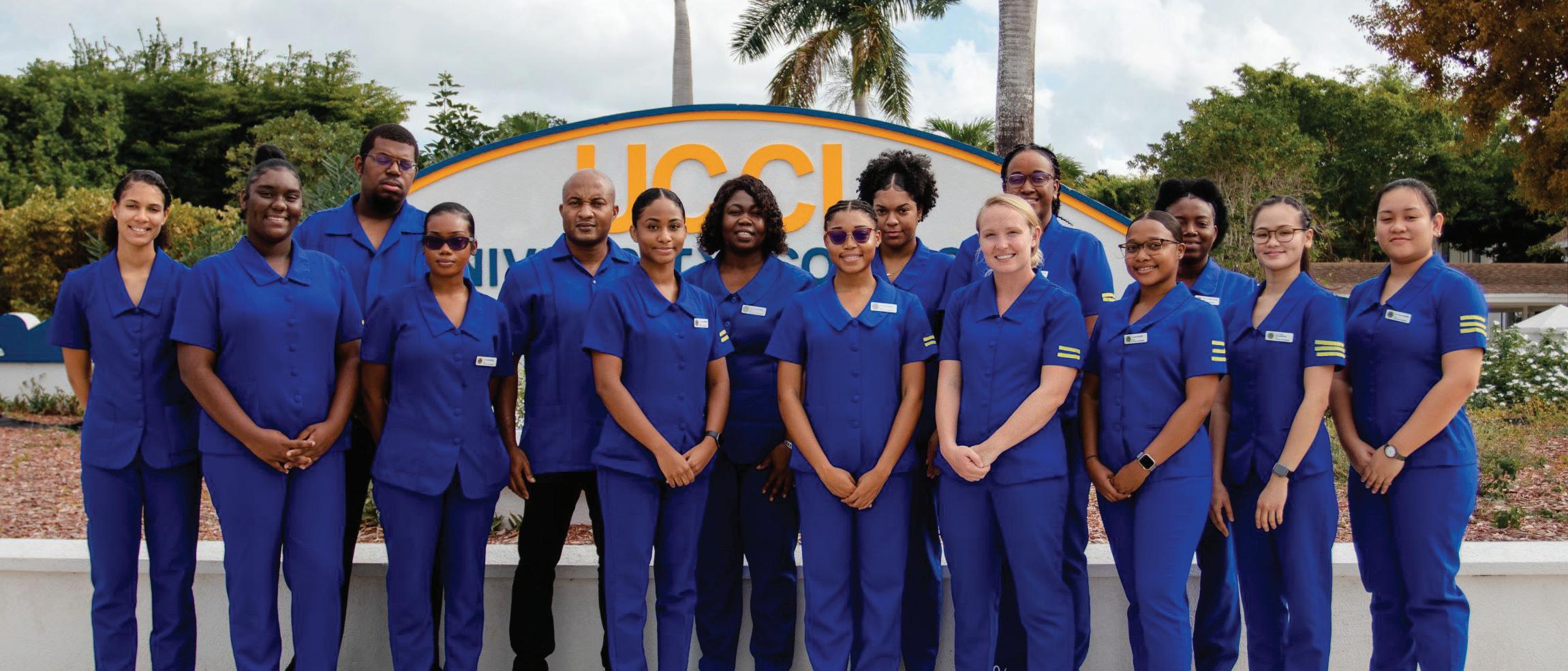
International College of the Cayman Islands
Established in 1970, the International College of the Cayman Islands (ICCI) is the longest standing institution of postsecondary education in Cayman. With humble beginnings as a not-for-profit organisation, the school has long been known as the birthplace of higher education in the Cayman Islands. The school offers online, face-to-face and hybrid classes and awards certificates, Associate's, Bachelor’s and Master's degrees. Since 2002, it has been accredited locally, and in 2016 by the International Assembly for Collegiate Business Education (IACBE) in the US, and the Accreditation Service for International Schools, Colleges and Universities (ASIC) in the UK. With a key focus on career placement and personal development, ICCI challenges students with rigorous academics coupled with excellent service and care for students.
University College of the Cayman Islands
UCCI offers international accreditation for its courses and has up to 2,000 students each year and around 75 full-time faculty and staff. It also has international partnerships with other universities, so students enjoy various options to study abroad while local students can select from many internship opportunities. It has a very strong STEM programme, thanks in part to the establishment of the Dr Wm Hrudey Observatory
in 2012. Their Associate's, Bachelor's and Master's programmes work well alongside UCCI's strong Performing Arts programme which includes a choir, a dance troupe and a multi-awarded steelpan band, the UCCI Pandemix.
A few years ago, those in the local hotel and restaurant industry recognised that Cayman would benefit from a hospitality school, and so UCCI's School of Hospitality Studies was born. The school offers an internationally accredited Hospitality & Tourism studies programme that aims to meet existing and future needs of the Islands' tourism industry. UCCI also houses the Island’s only official Microsoft IT Academy and Cisco Networking Academy for the preparation, training and testing of a variety of Microsoft certification exams and Cisco training programmes. UCCI also offers a Nursing programme and a post-graduate diploma in Education.
The Truman Bodden Law School
Established in 1982, the Truman Bodden Law School (TBLS) has been affiliated with the University of Liverpool in the UK since the late 1980s. This association validates and awards the undergraduate (LL.B) programmes. The University of Liverpool is a Russell Group University (equivalent to the US Ivy League) and the degree is internationally recognised. The LL.B Degree
Cayman Parent Magazine | Education118
Photo courtesy of University College of the Cayman Islands
is also recognised as a Qualifying Law Degree by the Joint Academic Quality and Standards Committee of England and Wales and the Cayman Islands’ Legal Advisory Council. This recognition makes LL.B graduates eligible to pursue postgraduate professional qualifications in both Cayman and the UK as well as other common law jurisdictions. At a postgraduate professional level, TBLS also enjoys an affiliation with Oxford Brookes University. Successful completion of the law school’s nine-month-long Professional Practice Course (the precursor to Articles of Clerkship) leads to the award of the OBU Diploma in Legal Practice.
Other Local Further Education Options Inspire Cayman Training
Through its partnership with Ed2Go, Inspire Cayman Training offers hundreds of online courses. Some of the courses are instructor-led and others are self-paced, so you can choose the one that will fit in with your schedule.
St. Matthew’s University School of Medicine Cayman has a thriving medical school called St. Matthew’s which attracts most of its student population from America and other overseas countries. Students complete five semesters (three per year) of Basic Science and Pre–Clinical studies in Grand Cayman, and are then transferred to do clinical rotations at teaching hospitals in the US, Canada or UK to complete their medical degree programme. St. Matthew's MD programme is accredited by the Accreditation Commission on Colleges of Medicine (ACCM) and is one of the few international medical schools with approvals in the key states of New York and Florida.
St. Matthew's University School of Veterinary Medicine Veterinary students complete seven semesters (three per year) of Basic Science instruction in Grand Cayman before doing a year of clinical instruction at an affiliated US or Canadian veterinary school. With the smallest class sizes of any veterinary school in North America, students have an unprecedented level of faculty support and attention. Class sizes are limited to a maximum of 20 students. It welcomes applications from all qualified candidates, including from diverse, transfer and second-career applicants.
St. Matthew's University School of Veterinary Medicine is a Member Institution of the AAVMC.
Northwestern Caribbean Baptist Theological Seminary Cayman's first seminary, founded in conjunction with Dr Randy Von Kanel and the Cayman Islands Baptist Church, offers coursework towards a Bachelor's Degree taught by credentialed professors. Students can also study for a Master’s Degree through online work with an accredited US seminary.
University of the West Indies, Cayman (UWI)
The University of the West Indies is now ranked in the top 1.5% of universities across the world by Times Higher Education 2022. The University has collaborative links with over 160 universities globally, offering undergraduate and postgraduate degree options in Engineering, Law, Medical Sciences, Food and Agriculture, Humanities and Education, Science and Technology and Social Sciences.
The UWI Open Campus (UWIOC) is one of five campuses and was established in 2008. It was designed to increase the range, expand the scope and improve access to the University’s programmes. It is an amalgamation of the former outreach entities within the University, which draws on the wider University’s expertise in the provision of research, distance and higher education services in the Caribbean. The UWI Open Campus currently has a student population of over 20,000, with 8,000 students enrolled in its online programmes and approximately 15,000 pursuing short and Continuing & Professional Education courses. There are currently 44 site locations of the UWIOC in the region, serving 17 countries in the English-speaking Caribbean, of which, the UWI Open Campus Cayman site is one. The UWI Open Campus Cayman site not only facilitates formal education and training, but is extensively involved in a number of community development outreach programmes in the Cayman Islands.
UWI has been consistently ranked among the top universities globally and it delivers accredited associate, undergraduate and graduate-degrees. Students can start in August or January each year. Alternatively, students can choose to join one of the five campuses around the Caribbean which offer over 800 different educational programmes.
For websites and contact information for these institutions, see The Listings on page 136 and 301. There are also many vocational training options in Grand Cayman.
Truman Bodden Law School

A first rate legal education

The Truman Bodden Law School offers a world class legal education that is validated and awarded by the University of Liverpool, a “Russell Group” UK university (equivalent to US “Ivy League”). Classes are small, intellectually challenging, stimulating and offer excellent career opportunities both within the legal profession and elsewhere.
Programmes Offered: Bachelor of Law (Honours) Degree (LL.B) (both part time and full time) • Postgradu ate Professional Practice Course (PPC) • Postgraduate Diploma (PGDip) in Legal Practice (full time)
Details:
Annual fees: CI$6,000-CI$14,000 per year depending on degree and whether you are Caymanian or non-Caymanian Annual University of Liverpool registration fees: Approximately £400-£1700 (depending on modules/ programmes). See website for further details. Academic Year 2022-23: Opens September 19th 2022 (new students) to June 2nd 2023 (over two 15-week semesters).
(345) 945 0077 | Monaco Towers, George Town (opposite the Court House) | mitchell.davies@gov.ky www.caymanlawschool.gov.ky
www.caymanparent.com 119
Trade & Vocational Training Courses
There is a large range of excellent vocational training options in Cayman, which could be a good choice for students wanting to learn the practical skills they’ll need to launch their chosen career. Below is a run-down of some of the options available.
Employability Skills
An essential component to getting a job is knowing how to be employable, so the Cayman Islands Government, along with Inspire Cayman Training, have developed an Employability Skills course which covers the following subjects: how to get and keep a job, communication, diversity in the workplace, teamwork, building strong relationships, managing stress and resolving conflict. Each student then takes a Career Fitter Personality Test to see what career would suit them best. Scholarships are offered for this course and Caymanians are actively encouraged to apply. Please call the Training Director on (345) 525 8990 to learn more or book a space on the course. Also see www.inspirecaymantraining.com.
Auto Repair & Maintenance
UCCI offers a one-year part-time auto repair Level 2 and Level 3 programme which uses the International Motor Institute as the qualifying body, providing everything you need to know to become a qualified motor vehicle mechanic.
Beauty & Massage Therapy Courses
Cayman Career Academy (CCA) is the first locally CIDESCO Accredited beauty school in the Caribbean to offer world-renowned CIDESCO diplomas in Beauty Therapy and Beauty & Spa Management and certificate courses in Aesthetics, Body Therapy and Manual Facial to anyone over 16. Through CIDESCO qualifications, students receive theoretical and practical training and obtain professional expertise. CCA also offers an accreditation through EduQual, and through them a diploma in Massage Therapy, as well as shorter award courses in waxing, manicures and pedicures, etc. Day, evening and online class options and government scholarships are available. For those who may not qualify for a scholarship, payment plans are also available. For more information see www.caymancareeracademy.ky or call (345) 936 2228 to book an interview.
Boat Training
Aside from helping beginners learn the ropes, boat training can help boost employability, give companies formal safety qualifications and even lower boat insurance. For private/ non-commercial boat owners, training courses can often significantly lower your insurance costs – make sure to ask your insurer about discounted rates.
Sand Cay Boat Masters is an International Yacht Training Worldwide (IYT) authorised school run by Alastair Monro. Recreational courses available in Cayman include VHF Marine Communications Master SRC, Small Power Boat & Rib Master, International Crew (Sail), International Bareboat Skipper Sail, MCA International Certificate of Competence 24m Sail/10m power. Students need to be over 16 years old to obtain certification. The Rib Master course is popular with families with a runaround powerboat who wish to learn to operate it safely, and the International Bareboat Skipper course is popular with those with a little more experience and is the minimum qualification required to obtain your International Certificate of Competence which is required if you wish to charter a vessel of up to 24m long and 20 miles offshore. For more information contact Al Monro on (345) 328 5163 or email: almonro65@ gmail.com.
Other companies that offer various boating courses include Cayman Powerboat School which is run by Mark Williams and offers the RYA Powerboat Level II course. To book or for more information call Mark on (345) 916 4731 or email: mark@caymandiving.com. Go Pro Diving offers the Level I Small Power Boat Operations and the Level II Commercial Boating Licence. For more information call Ash McKnight on (345) 925 9092 or see their website: www.goprocayman. com. Pro Yacht offers the Small Powerboat and RIB Master course to anyone over the age of 16. This two-day certified course covers the basics of boat handling, operations and safety which is perfect for families and children wanting to safely handle a boat. Call Tristan Skinner on (345) 945 4676 or email: tskinner@proyacht.ky.
Coding
Cayman Code Academy utilises the proven curriculum of Code Fellows, an internationally recognised coding school, to offer full-time remote classes with the help of Cayman Enterprise City. Access classes virtually, and interact in realtime with the instructional team. The programme is available to those with little or no experience of the world of programming, and it allows those with some level of programming experience to advance in their field. For more information visit the Cayman Code Academy website www.caymancodeacademy.com or email: info@caymancodeacademy.com.
Cayman Parent Magazine | Education120
Computer Technician Certificate
UCCI offers a one-year full time Computer Technician Certificate that introduces students to the fundamentals of computer hardware and software, mobile devices, security and networking concepts, and the responsibility of an IT professional. The latest curriculum includes mobile devices, Linux, as well as expanded information about Microsoft Windows operating systems, security, networking, and troubleshooting. Inspire Cayman Training also offers a Certificate in Computer Servicing & Repair.
Craft Skills
The NCCER Core Curriculum Introductory to Craft Skills encompasses 160 hours of material handling, rigging, power tools, hand tools, construction maths and construction site safety. The course costs CI$3,500 and can be done through Inspire Cayman Training. See www.inspirecaymantraining. com for more info. Once completed other courses can be taken.
Dive Instructor Training
If you are looking to make scuba diving your career, then you will have to become a PADI Dive Master before you can take the PADI Dive Instructor training course. Go Pro Diving offers all levels of dive training up to Master Scuba Diver Trainer (MSDT) and they regularly work with the Fire Department, UCCI and CIFEC. For more information call Ash McKnight on (345) 925 9092 or visit their website www.goprocayman.com.
Hospitality & Culinary
UCCI offers an Associate of Applied Science in Hospitality Management as well as various different short courses (14 weeks) in different cooking techniques and disciplines.
Occupational Safety & Health Risk Consultancy Cayman Ltd. (RCC) offers a 30-hour Occupational Safety & Health training programme in rigging and lifting procedures for crane operations, fall protection training, scaffold building, forklift operator training, hazardous material handling, fire warden training and PHTLS (PreHospital Trauma Life Support) training. It also offers a full risk management consultancy service for the construction industry. Call Julius Jacky on (345) 326 1007 or email: julius.jacky@rcs. ky for more information. Inspire Cayman Training through BIS Safety Software offers courses for the Environment, Health and Safety (EHS) professional.
Technology Courses
Inspire Cayman Training (ICT) offers NCCER and ASE certified courses in craft professions (Carpentry, Plumbing, HVAC, Electrical and Construction Craft Labourer). Partnering with Caribbean Utilities Company, courses are taught at Grade 8 standard. ICT provides portable credentials to all trainees and these credentials are tracked through NCCER’s Registry System which allows all organisations to track the qualifications of their craft professionals and/or check the qualifications of new hires. Trainees must achieve a passing score of 70% or greater on the module test and performance profile to earn certification. For more information see www. inspirecaymantraining.com.
UCCI
Technical Vocational Education and Training (TVET) programmes at UCCI offer career and vocational qualifications to students, post-high school and other industry workers while providing an alternative pathway for students whose needs are outside the current curriculum.
TVET at UCCI provides seven key streams to enhance learning and future employment, or further study options for students.
The key areas include:
1. Air Conditioning & Refrigeration
2. Auto Repairs and Maintenance
Electrical Installation
Electro-technology
Hospitality & Culinary
Computer Technician
Plumbing
Construction Technology
In addition to TVET Certification, it offers a wide variety of stand-alone short and hobby courses, delivered over 7 to 14 weeks to people of all ages and abilities.
Courses include:
Cake Decorating
Conversational Spanish
English as a Second Language
Real Estate
QuickBooks
Fashion Design
Ceramics
Plus much more
TVET programmes at UCCI are geared towards the completion of specified qualifications jointly with external bodies in the respective disciplines, while providing Core, Preparatory and Enrichment courses for each student.
Qualifications cover four primary levels:
• LEVEL 1– Directly Supervised Worker: An introduction to the subject area you choose to study, covering routine tasks, and the learning and practical application of basic knowledge.
• LEVEL 2 – Supervised Skilled Worker: Involves carrying out complex work-based duties and gaining useful knowledge and understanding of a subject. These are performed in a simulated or live environment, involving individual responsibility and teamwork.
• LEVEL 3 – Independent Worker: The range of duties is broader with greater complexity. Autonomy and responsibility are also more prevalent at this level, with some control or guidance needed.
• LEVEL 4 – Supervisory staff who are overseeing and mentoring junior staff members
These levels allow UCCI to cater to the needs of students seeking vocational qualifications, or to continue their education in other UCCI programme or transfer to other institutions
www.caymanparent.com 121
3.
4.
5.
6.
7.
8.
•
•
•
•
•
•
•
•
Community Vocational Training Centre
The CVTC offers a course on how to do electrical wiring. The course is free, open to students aged 17+ and there are no entry requirements. The course is held in the evening from 5pm7pm. Call Allan Moore on (345) 917 7320.
Online Courses

Since COVID-19 people taking online courses in Cayman has exploded. Inspire Cayman Training now offers hundreds of online courses which can be taken in your own time, wherever you have a computer, and the courses are accredited. See www.inspirecaymantraining.com/online-learning.
Personal Trainer Certification Courses
Fitness Connection located in South Sound, runs ongoing ISCA programmes in Kick Boxing, Personal Training and Mat Pilates, AEA (Aquatic Fitness Instructor Certification), as well as SAI Swimming Instructor Training courses. The instructor/owner, Laura Ribbins, has been an international training specialist for over 30 years. Call Laura Ribbins on (345) 949 8485 or email: fitness@fitness.ky for more information.
Police Service/Fire Service/Prison Service
All of the public safety offices receive a huge number of applicants. For example the Prison Service receives on average 400 applications per recruitment drive. Most of the safety training schemes are filled by Caymanians.
Police Service
The RCIPS gives preference to applicants who are Caymanian, married to a Caymanian, and persons with Caymanian Residence with the Right to Work when selecting applicants who are eligible to join as Police Constables. Over the years, based on the high demand and/or the volume of interested preferred applicants, the criteria may be adjusted to allow persons who have been living in the Cayman Islands for over four years to apply. On these occasions, the slots have been filled with as many applicants who are Caymanian as possible, after which, consideration is given to those married to a Caymanian, people with PR, and finally to those who have lived in the Cayman Islands for four continuous years or more.
All applicants must be between the ages of 18 – 40 years, have a minimum of a High School Diploma and three CXC or equivalent passes which must include both Mathematics and English. The applicant must have a clean police record and possess a driver’s licence of Group 2 or higher. Applicants are required to take a written test, a computer proficiency test, and a physical test – a 5.4 bleep test. Applicants must also go through an interview stage in the application process and must also pass a medical examination and a police background check. After completing this process, applicants will be invited to join a training programme of 17 weeks. At the completion of the training, a requirement for graduation is to pass a final written exam. Once completed, the officers are placed on a two-year probation where their progress is monitored during that period of time.
The RCIPS is comprised of various units such as the Traffic and Roads Policing Unit, the Community Policing Unit, the Firearm Response Unit, the K-9 Unit, various units within the Criminal Investigations Department, and much more. During the probation period, officers will have the opportunity to interact with the various units and explore areas that they have a natural inclination for. Upon the recommendation of their line managers, the officer may apply to a specialist unit, should they wish to do so. For more information, visit the RCIPS website at www.rcips.ky or email: RCIPSRecruitment@rcips.ky. To apply at open recruitment, visit www.careers.gov.ky – recruitment season varies from year to year.
Fire Service
Firefighting is an extremely physical career path. To join the Cayman Islands Fire Service you must be over 18 years of age, be able to regularly lift 20-30lbs, and occasionally lift up to 165lbs. You must also be physically fit, be able to swim, have a clean police record, have no fear of heights and show no signs of claustrophobia. Applications are welcomed from both men and women. All officers must complete a Trainee Firefighter course, which is a comprehensive course that covers all areas that the Service is responsible for. This includes the Domestic Division (which deals with structure and motor vehicle fires) and the Aerodrome Division (which deals with aeronautical/aircraft rescue and firefighting, etc.) Completion of this comprehensive course will give you an internationally recognised certification in Aeronautical Firefighting. The Fire Service also offers internships, which can be a great way to get involved with the Service early on. For more information visit www.cifs.gov.ky or call: (345) 949 2276.
Prison Service
To join Her Majesty’s Cayman Islands Prison Service (HMCIPS) the requirements are as follows: you must be 18 or over, have three high school pass grades (including Maths and English), and a clear criminal record. The recruitment process involves three stages: first, a written exam, then a fitness assessment and finally an in-person interview. If successful, you will begin a 9-11week training course comprised of classroom work and field based training that will lead to a six month probationary contract followed by an open contract (for Caymanians) and a two-year contract (for non-Caymanians). Tel: (345) 640 3000 or email: prisoncareers@gov.ky.
Inclusion Cayman is a non-profit organisation supporting individuals with disabilities in their vision of accessing inclusive education, recreation/community, and employment. Please contact Inclusion Cayman to learn more about how their Rotary Employment Partnership creates gainful employment based on an individual’s skills, gifts, and talents. Unit 6–8 Corporate Plaza, 81 Godfrey Nixon Way, George Town. Tel: (345) 623 2957, Email: info@inclusioncayman.ky or visit www. inclusioncayman.ky.
Cayman Parent Magazine | Education122
Listings
Preschools, Primary & High Schools, Home Schooling, Tutoring, Paediatric Therapy
Nurseries & Preschools
The Ministry of Education’s Early Childhood Care and Education Unit conduct regular support visits to all preschools in an effort to ensure that children are being stimulated with age appropriate activities. Each preschool should identify children who might have developmental delays, they are now required to have a Special Educational Needs Coordinator (SENCo) on staff. The Ministry of Education also offers funding to assist in the cost of access to early childhood care and education (ECCE) for qualifying young Caymanian children. Applications for ECAP are means-tested. Depending on your overall household income, and the number of dependents you are supporting, you can expect to receive the maximum of CI$500 per month per child or the basic funding amount of CI$305 per month per child. For more information, email: ecap@gov.ky or call (345) 244 3155.
ABC Kids
1866 Shamrock Road, Savannah. Tel: (345) 945 5626 Email: info@ABCKids. ky Website: www.abckids.ky Ages: 6 weeks-5 years Monthly Fees: CI$650-CI$850.
The Achievement Center
197 Shamrock Road, next to Red Bay Primary. Tel: (345) 947 5050 Email: achieve4u@hotmail.com Ages: 12 months-4 years Monthly Fees: CI$650.
Bloom Learning Centre
Seven Mile Shops, West Bay Road. Tel: (345) 746 4444 Email: info@bloom. ky Web: www.bloom.ky Ages: 6 weeks-5 years Monthly Fees: Infants CI$899-CI$1,050, Toddlers CI$849-CI$999, Preschool CI$799-CI$950.
Cayman Academy
Accepts preschool children from 3 years (if potty trained)-5 years Annual fee: CI$5,843 (full time) See page 135 for more information.
Cayman International School
Accepts preschool children from 2 years-5 years Annual fee: CI$15,120 (full time). See page 135 for more information.
Discovery Kids Preschool
Sigma Building, 93 Hospital Road, George Town. Tel: (345) 946 5437 Email: dkids.ky@gmail.com Web: www.discoverykidscayman.com Ages: 16 months-5 years Monthly Fees: 16 months and under CI$1,250, 16 months-2.5 years CI$975, 2.5-5 years CI$925.
First Baptist Christian School
Accepts preschool children from 2-4 years 11 months Monthly fee: CI$805 See page 135 for more information.
Grace Christian Academy
Accepts preschool children from 3 years-5 years Annual fee: CI$9,531CI$10,346 (full time) See page 135 for more information.
Island Montessori
491 Crewe Road, George Town. Tel: (345) 945 5814 Email: info@ islandmontessori.org Web: www.islandmontessori.org Ages: 12 months-6
years (Nest, Toddler & Casa) Monthly Fees: From CI$995. See page 136 for more information.
Little Trotters Farm & Nursery School
39 Columbus Close, off Walkers Road, George Town. Tel: (345) 949 4080 Email: littletrotters@candw.ky Website: www.littletrotters.ky Ages: 18 months-5 years Monthly Fees: CI$1,040-CI$1,260 for 11 months a year.
Miss Nadine's Preschool and Jack & Jill Nursery
90A Anthony Drive, George Town. Tel: (345) 945 1078 Email: ncvopreschool@ ncvo.org.ky Website: www.ncvo.org.ky Ages: 3 months-4 years Monthly Fees: CI$500.
Montessori By The Sea
Accepts preschool children from 21 months-12 years. Monthly programme fees: CI$1,183-CI$1,280 See page 136 for more information.
Montessori del Sol
11 Hinds Way, off Walkers Road, George Town. Tel: (345) 949 3222 Email: office@montessoridelsol.com Web: www.montessoridelsol.com Ages:
Sister Janice's Early Learning Centre

Prepare to teach and teach to prepare (ages 6 months-4 years)
Sister Janice’s promotes the whole growth of the child through handson learning and experiencing. Each child is cherished and encouraged to develop their social, physical, and emotional development. The school promotes the well-being of the child within a Christiancentered atmosphere.
Specialties:
Highlights:
Student Population: 50 Hours: 7am-5pm (although a grace period can be given, pick-up must be by 5.30pm)
Monthly Fees: CI$575 includes breakfast and lunch and parents are asked to provide snacks and fruits daily.
Creative early childhood education • Promoting hands-on experiences • Developing the whole child Christian-based education (345) 949 2524 | 41 Desmond Drive, George Town sisterjanicepreschool@yahoo.com
www.caymanparent.com 123
the
Montessori del Sol

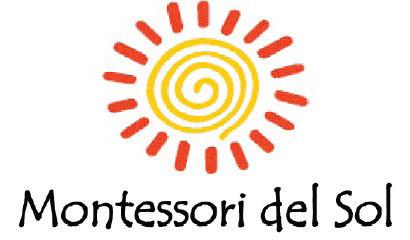
Nurturing curious and creative minds (ages 18 mths–6 yrs)
Montessori del Sol offers an authentic Montessori programme with a holistic and wholesome approach to learning. Their small and nurturing school environment is a place where children thrive and are actively engaged in a happy, purposeful community. Subjects include literacy, math, socialemotional learning, yoga/mindfulness, art, science, geography, music and movement, sensory learning, food preparation and other practical life activities. With Spanish enrichment for all age groups and a dedicated, highly trained and experienced team, the school is committed to the principles of Dr. Montessori, making sure that every child’s potential is nurtured while cultivating kindness, independence and creativity. A unique outdoor environment boasts an abundance of shade trees where the children freely explore and play, while bright, spacious, well-prepared classrooms are equipped with a full complement of materials according to the standards set out by Association Montessori Internationale (A.M.I).
Highlights:
Located in the heart of South Sound • Authentic Montessori programme • Dedicated, highly trained and experienced staff • Unique outdoor environment • Bright, spacious classrooms • Full complement of Montessori materials • Children’s lessons include Practical Life, Sensorial, Language, Math and Culture • Spanish Enrichment for all age levels
Details:
Open: 8am-3pm (7.30am early drop off and after care until 5pm available) Monthly fees: Toddlers CI$1,125-CI$1,280 Casa CI$1,100-CI$1,200
(345) 949 3222 | 11 Hinds Way, off Walkers Road |
|
Montessori School of CaymanFostering a lifetime love of learning
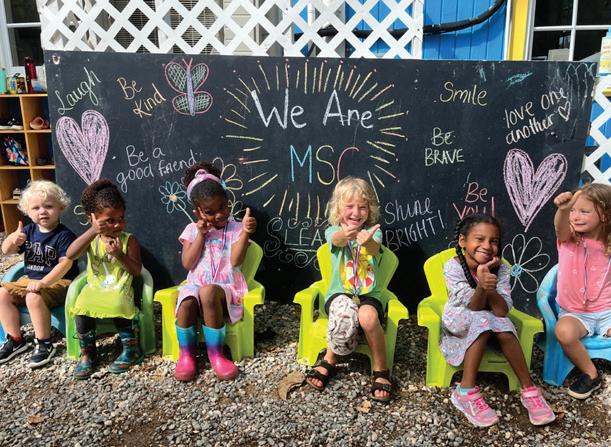


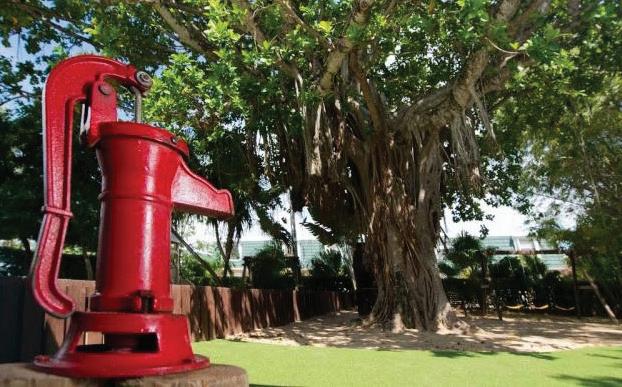

Opening in 1988 as the very first Montessori school on island, Montessori School of Cayman remains a beautifully inclusive school, with a goal to deliver a whole-hearted, holistic Montessori approach. They offer a happy, safe and stimulating prepared environment where children are able to explore and thrive, therefore developing a love of learning. At Montessori School of Cayman, they believe in the development of the individual child and thoroughly understand that every child is unique and requires a variety of methods to support and nurture their social, emotional and academic journeys.
Curriculum: The curriculum is based on authentic Montessori practices, incorporated with the Cayman Islands Early Years Curriculum Framework. MSC is committed to providing students with engaging, meaningful activities which provide experiences that stimulate the senses, enrich language development, and give opportunities to gain a sense of self-esteem, self-worth, and self-confidence.
Highlights:
Centrally located
Small & loving school community
Passionate, highly qualified and experienced teachers
Beautifully prepared learning environments
Large, spacious & shaded outdoor areas
Out of term camp opportunities throughout the year
Extracurricular lessons in music, yoga and mindfulness
Principal: Ms. Briana Bergstrom
School
Casa Programme - CI$10,000-CI$10,500,
Cayman Parent Magazine | Education124
office@montessoridelsol.com
www.montessoridelsol.com
(345) 949 0202 | info@caymanmontessori.com | www.caymanmontessori.com | 519 South Church St, GT
•
•
•
•
•
•
Details:
Annual
fees:
Toddler Programme - CI$7750-CI$10,950
(18 months–6 years)
Island Montessori
Creating lifelong learners (ages 12 months-6 years)
Island Montessori provides a nurturing, supportive environment in a beautiful, spacious garden created to establish a love of active learning. At the heart of the school is a team of highly qualified, passionate teachers who create an age and developmentally appropriate environment. The school’s bright and spacious classrooms are complimented by an expansive 1.5 acre garden featuring a nature trail, sports court, and areas for unstructured play and exploration.
Island Montessori learners draw as much inspiration from nature and being in the tropical outdoors as they do from the guided activities inside their classrooms. The staff combine their passion for early childhood education with an inclusive culture of curiosity, respect and flexibility that helps your child and your family thrive in the best learning environment possible.
Curriculum: Island Montessori is guided, but not limited, by the Montessori philosophy, and uses the very best Montessori practices and materials aligned with the Cayman Islands Early Years Framework. All classes are underpinned by a belief that children should be active, and outdoor learning is blended into each day. The school’s classes are open to children aged 12 months – 6 years and all students receive priority placement at Island Primary. Please visit www.islandprimary.org to learn more about their sister school.
Island Montessori
Highlights:
• Highly qualified and experienced class and specialist teachers
• 1.5 acres of shade trees, natural gardens, outdoor learning, play and sports areas
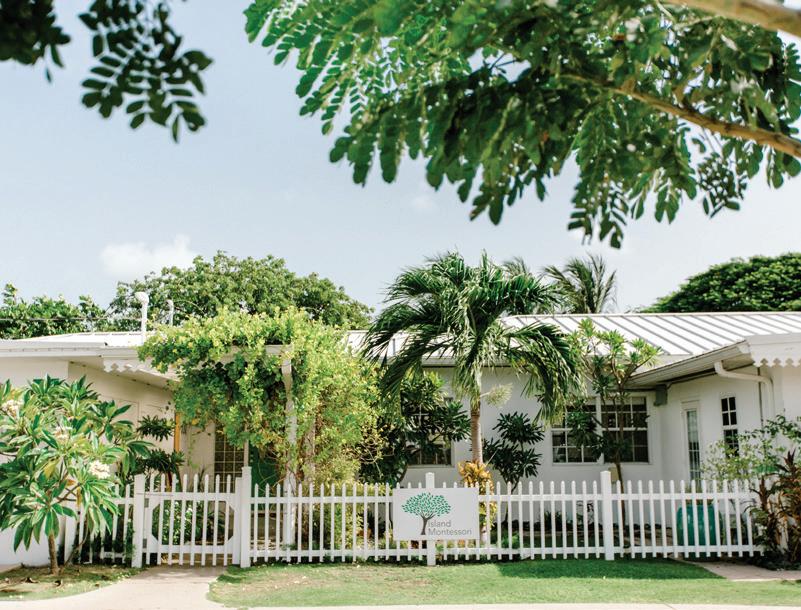
Island Montessori Island Montessori
• Bright and spacious classrooms utilising a wide range of Montessori and nature-inspired materials
• Montessori curriculum aligned with the Cayman Islands Early Years Framework



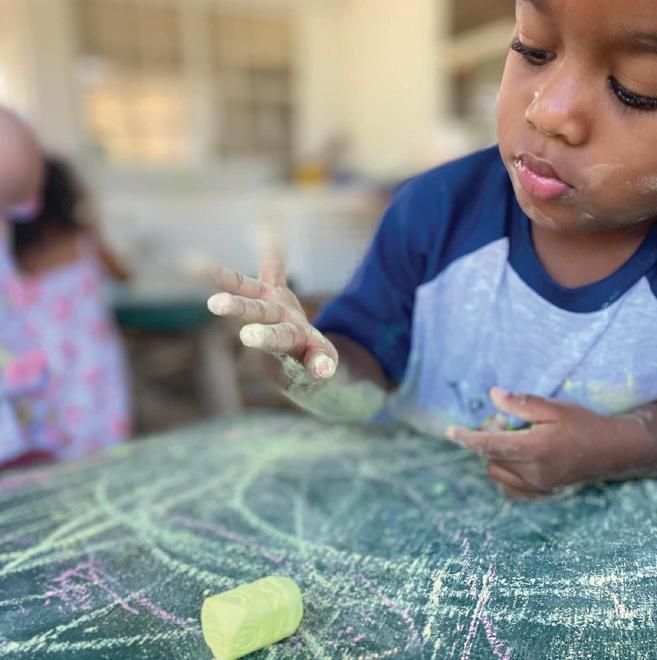
• Providing Nest, Toddler and Casa classes for children ages 12 months to 6 years
Details:
Principal: Clare Thorpe
Opening Hours: Monday-Friday, 7.30-3pm (daily aftercare available until 5pm)
Monthly Fees: From CI$995 Age Range: 12 months-6 years (Nursery to Year 1)
Sibling and Prepayment Dis counts: Yes
Crewe Road, George Town
www.caymanparent.com 125
(345) 945 5814 | info@islandmontessori.org | www.islandmontessori.org | 491
Little Trotters Farm & Nursery School

We cherish childhood (ages 18 months-5 years)
In a quiet corner of George Town awaits a magical schoolhouse where the joy of childhood abounds. Once you cross the bridge, Little Trotters is a haven filled with laughter, imagination, play and endless opportunities for social interactions. The primary focus is on traditional values, kindness and responsibility. The children feed the animals, water the plants, bake, paint, perform in plays, sing, dance and truly become their best selves. Little Trotters offers valuable experiences in all pre academic skills, and maths and literacy are an integral part of the curriculum across the school. Additionally, the staffing body brings a range of training, experience and specialist areas, including a full time SENCo.
Highlights:
Graded 'Excellent' in all categories including: Teaching, Exploration, Respect, Communication, Well-Being, Learning, Assessment, Curriculum, Health & Safety, Support & Guidance, Leadership, Links to Parents & the Community, Self Evaluation & Planning Ahead and also Staffing & the Learning Environment (May 2021 OES Report) • Teachers aim to foster a love for learning that ensures that the children view school and learning as exciting, joyful and validating.
Details:
School Manager: Lesley Maddock School Owner: Jo Boxall
Monthly Fees: CI$1,040-CI$1,260 for a full or half day (September to July)
School Hours: 7.30am-5.30pm (children can do half or full days)
Student Population: 82 Term dates: September to end of July (closed August)
(345) 949 4080 | littletrotters@candw.ky | www.littletrotters.ky | 39 Columbus Close, Off Walkers Road, GT
Tiny Tots Academy

Where the fun in learning begins (ages 6 weeks-5 years)


Tiny Tots Academy provides a fully integrated childcare program to foster a child's social and emotional growth as well as their physical and mental development. Their sequential learning curriculum was developed to prepare children for academics in kindergarten and elementary school. Tiny Tots believes that all children are diverse and unique individuals who are naturally curious. Children need to be provided with an organised, child-directed preschool learning environment that emphasises mutual respect, fun, discovery, literacy and addresses sensory needs. Their supportive childcare environment will provide the conditions for your child to construct knowledge, focusing on the learning process rather than the end product. Your child is the central focus of the daycare curriculum, as the experiences and knowledge they can bring to the childcare center are greatly valued.
Highlights:
Expert team of teaching staff • State of the art daycare facility • Specific classrooms for every age • Curriculum includes science, music and art, all taught through play • Morning and full day sessions available.

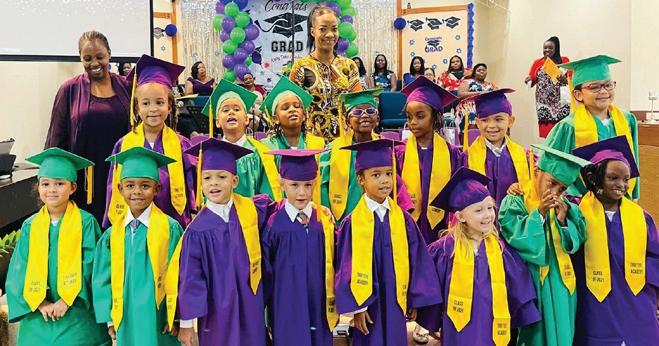

Details:
Director: Jenna Hydes
Open: 7.30am-5.30pm Monthly fees: CI$545-CI$795 (depending on age and number of days) Sibling Discount: 10% on lowest tuition.
Way, off Walkers Road
Cayman Parent Magazine | Education126
(345) 623 8687 | 109 Hinds
| info@tinytotscayman.com | www.tinytotsacademy.ky
Village Montessori
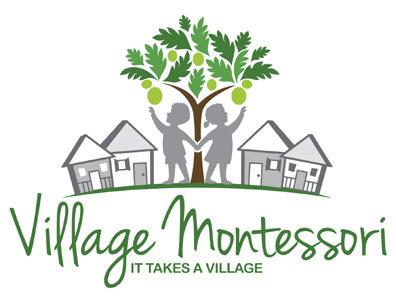
It takes a village (ages 18 months–12 years)
Located in Camana Bay, Village Montessori , is a fully licensed private school which prides itself on being a unique and innovative environment where children experience inclusion, culture, respect and a sense of community. Children are given the opportunity to develop independence in an educational environment that fosters a lifelong love of learning.
Curriculum: The school curriculum is based on the Montessori Framework, which allows children to learn at their own pace according to their own capabilities in a non-competitive environment while also adhering to the U.K. Curriculum Standards and Objectives as per the Cayman Islands Ministry of Education.
Highlights:
Children are given the skills and knowledge to become productive members of their community. The school’s environment encourages children to be respectful of themselves, others and their surroundings. They employ certified teachers who work collaboratively with parents and the children.
Details:
Principals: Jeifrene Small, Traci Bradley
Annual fees: Depending on age and half or full days CI$1,075-CI$1,175 per month
Afterschool Care: Monthly fee CI$250 (3pm-5pm) Age Range: 18 months to 12 years Student Population: 90
(345) 640 7827 | info@villagemontessori.ky | www.villagemontessori.ky | 94 Solaris Ave, Camana Bay
Discovery Kids

Learning through fun and positive experiences (ages 6 months-5 years)
Discovery Kids Preschool is a private preschool centre situated in central George Town. Their specialised programme is intended to promote learning and development through fun and positive experiences. The Cayman Island Early Years curriculum is an educational approach that emphasises active participatory learning and encourages children to have direct, hands-on experiences with people, objects, events and ideas.
At Discovery Kids, a child's natural instinct to play is encouraged by providing planned activities and learning materials that enhance their development through play and exploration.
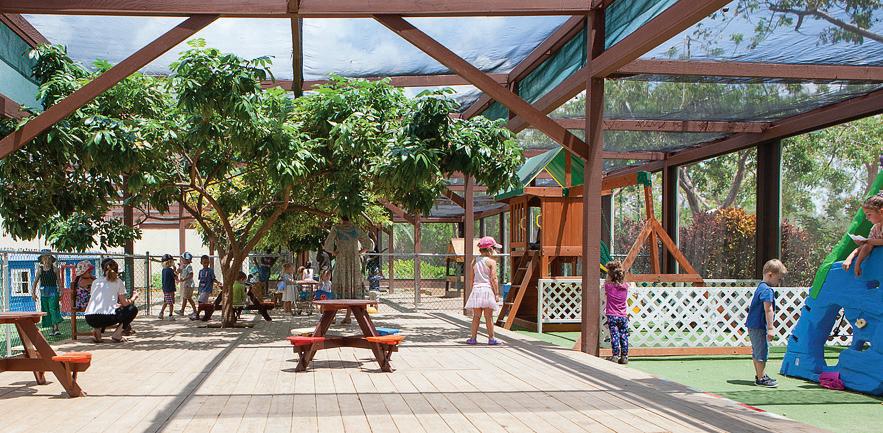
Highlights:
Located in central George Town • Cayman Islands Early Years Framework • Trusting and nurturing teachers and caregivers
Details:
Hours: Monday-Friday, 7.30am-5.30pm
Monthly fees: 16 months & under: CI$1,250, 16 months-2.5 years: CI$975, 2.5 years-5 years: CI$925
(345) 946 5437 | Sigma Building, Hospital Road, GT dkids.ky@gmail.com
Rite Start Daycare & Preschool

Giving your child the Rite Start to a Christian education (ages 3 months-4 years)
Rite Start Daycare & Preschool is located in Savannah, Grand Cayman. At Rite Start your child can interact with others in a safe, warm and stimulating environment conducive to their development. Not only do they provide for your child's emotional, physical, social, and cognitive growth, they also introduce your child to Christian Education. Their mission is to provide a comfortable learning environment with the highest standard of care and wellbeing for those entrusted to them. Rite Start uses the Cayman Islands national curriculum for Early Childhood Education. This curriculum integrates Language, Math, Science, Music, Movement and Art studies.
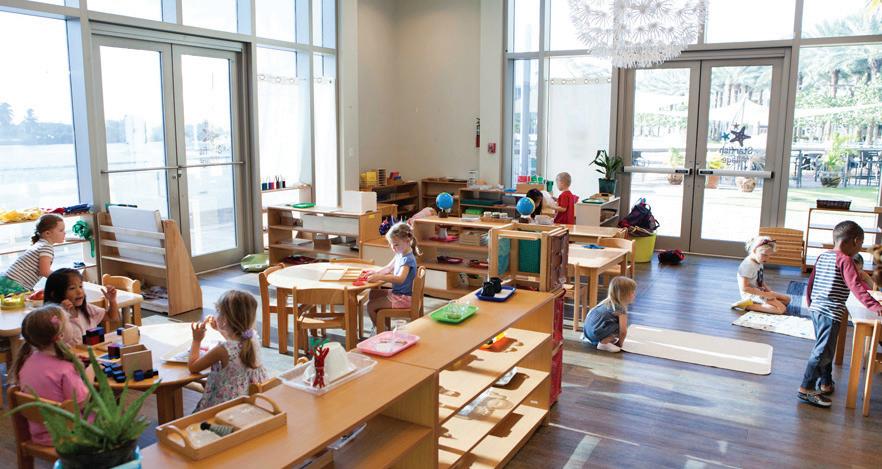

Details:
Monthly fees: 3-22 months: CI$800, 22 months-4 years: CI$750 Hours: Monday-Friday, 7am-6pm
Highlights: Located in the Savannah area close to Countryside • Highly-skilled and nurturing teachers and caregivers • Provide opportunities to enhance selfhelp skills and hands-on activities to facilitate growth • Provides healthy lunches daily (345) 945 3432 | 1548 Shamrock Road, Savannah ritestartcayman@hotmail.com
www.caymanparent.com 127
18 months-6 years Monthly Fees: CI$1,100CI$1,280 for 10 months a year.
Montessori School of Cayman
519 South Church Street, George Town. Tel: (345) 949 0202 Email: info@caymanmontessori. com Web: www.caymanmontessori.com Ages:

18 months-6 years Monthly Fees: Toddler CI$800-CI$1,120, Casa CI$1,025-CI$1,075.

Rite Start Daycare & Preschool
1548 Shamrock Road, Savannah. Tel: (345) 945 3432 Email: ritestartcayman@hotmail.com Ages: 3 months-5 years Monthly Fees: 3-22 months CI$800 and 22 months-4 years CI$700.
St. George’s Anglican Preschool
64 Courts Road, Off Eastern Avenue, GT. Tel: (345) 945 0441 Email: stgeorgespreschool123@ gmail.com Ages: 2-5 years Monthly Fee: CI$500.
St. Ignatius Catholic School/Early Years Centre
599 Walkers Road, George Town. Tel: (345) 949 9250 Email: general@st–ignatius.com Web: www.st–ignatius.com Ages: 3-5 years Monthly Fees: CI$1,151. See page 136 for more information.
Shining Stars Childhood Care & Education Centre
20 Pasadora Place, Pines Road, off Smith Road. Tel: (345) 943 7077 Email: shiningstarscayman@ gmail.com Web: www.shiningstarscayman.com
Ages: 1-5 years Monthly Fees: 1 year CI$895, 2 years CI$825, 3-4 years CI$775.
Sister Janice's Early Learning Centre
41 Desmond Drive, George Town. Tel: (345) 949 2524 Email: sisterjanicepreschool@yahoo.com Ages: 6 months - 4 years Monthly Fees: CI$575.
Sprogs Garden Playschool
832 Walkers Road, George Town. Tel: (345) 746 7529 Email: info@sprogs.ky Website: www.sprogs.ky Ages: 1-5 years Monthly Fees: CI$1,265-CI$1,420.
Tiffany's Preschool
82 Boltins Avenue, West Bay. Tel: (345) 945 7977 Email: tiffanyspreschool@candw.ky Ages: 2-5 years Monthly Fees: CI$600.
Tiny Tots Academy
109 Hinds Way, off Walkers Road, George Town. Tel: (345) 623 8687 Email: info@ tinytotscayman.com Ages: 6 weeks-5 years Monthly Fees: 6 weeks-18 months CI$795, 19 months-5 years CI$745. Part-time rates vary from CI$545-CI$645 per month, depending on age and number of days.
Treasure Garden Preschool
19 Elroy Arch Road, off Smith Road, George Town. Tel: (345) 943 6230 Email: treasuregardenpreschool@hotmail.com Web: www.treasuregardenpreschool.com Ages:
Montessori By The
Montessori By The Sea (MBTS) opened its first Toddler and Casa classrooms by the seaside over twenty years ago, and it has grown steadily to become a firmly-established, vibrant, closely-knit community of over 150 joyful students, plus their dedicated families and teachers. Now spanning Toddler to Upper Elementary, MBTS shines as a beacon of excellence in Montessori education in the Cayman Islands.
Curriculum: MBTS offers an enriched, comprehensive, internationally-recognised Montessori curriculum that follows the child and emphasises inquiry-based study, crosscurricular integration, and life skills education, complemented by specialised instruction in Spanish, ICT, Physical Education, the Arts and Music.

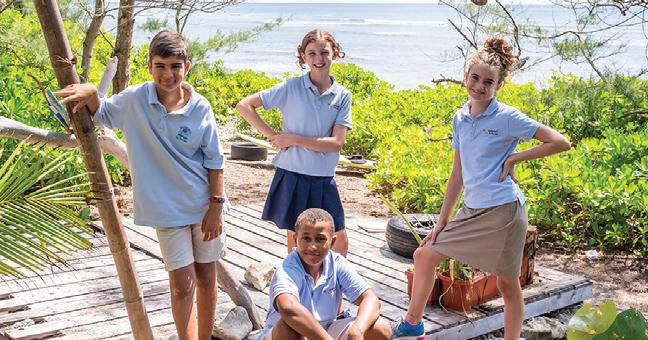
18 months-5 years Monthly Fees: Part time CI$700, full time CI$850.
Triple C School
Accepts children from 3-18 years. See page 136 for more information.
Truth For Youth School
Accepts children from 4 -11 years. See page 136 for more information.
Village Montessori
Accepts children from 18 months-12 years. See page 136 for more information.
Education – Government Primary
Creek Infant & Spot Bay Primary School (Brac) 28 Student Drive in Cayman Brac, covers Nursery to Year 2. Spot Bay Primary School, which is located on 170 Spot Bay Road, Cayman Brac covers Years 3, 4, 5 and 6. The school is located on two different sites but is managed and run by the same team. Tel: (345) 948 0226 Catchment Area: All areas East of Faith Hospital to the Eastern end of Cayman Brac.
East End Primary School
17 Sea View Road, East End. Tel: (345) 947 7428. Catchment Area: East of the Frank Sound junction, and including all of East End to Colliers.
Cayman Parent Magazine | Education128
(345) 947 0684 | mbts@mbts.ky | mbts.ky | 277 Prospect Point Road, Prospect Highlights: Individualised, inquiry-based learning approach • Warm, inviting and inspiring classroom environments • Cultivates life skills such as concentration, confidence, communication and creativity • Half-day and full-day programmes available • After-school clubs, after-care and summer camps Details: Principals: Debbie Thompson & Kourtni Jackson Student Population: 150 Student-teacher ratios: Toddler 5:1, Casa 10:1, Elementary 12:1 Monthly School fees: Toddler: CI$1,183-CI$1300, Casa: CI$1,162-CI$1,280, Elementary: CI$1,300
Sea A legacy of limitless possibilities (21 mths–12 yrs)
Cayman International School (CIS)


Cayman International School (CIS) is a private, college preparatory, non-sectarian, co-educational school that provides strong academic and extensive extracurricular programmes. The 15-acre campus located in Camana Bay includes early childhood, elementary, middle and high school divisions. Students represent more than 40 nationalities and the majority of students are dual passport holders. CIS has a strong sense of community where children learn, play and support each other in a modern, safe and student-centered environment. CIS is accredited by the Middle States Association and is an IB World School offering the International Baccalaureate Diploma Programme.
Facilities: CIS completed a major expansion project, adding a new state of the art Early Childhood Centre and a cutting-edge High School building (opened in January 2021) with a double gymnasium, library, common area and performing arts spaces. The current purpose-built campus features a 139,000+sq ft facility. It consists of a library, STEAM Lab, computer/video production lab, two science labs, two music rooms, two art rooms, two student support centers, 42 classrooms, an amphitheater and an administration building. In addition, the school has a full sized, artificial turf soccer pitch with a FIFA 2-Star rating, a swimming pool, two tennis courts and two basketball courts.
Curriculum: American, IB Diploma, IB Certificates, United States High School Diploma
Extracurricular: Students are offered a wide variety of extracurricular activities. Athletes participate in the Private Schools Association (PSA) and compete in football, volleyball and basketball. They partake in musical, choral and theatrical productions including an annual performance in Steel Pan Band, Jazz Band, and Rock Band. Students can also participate in Model United Nations, National Honors Society, High School Leadership, Robotics and 3-D modelling and printing in the STEAM Lab. Students provide leadership in community service initiatives and/or internships outside school boundaries and are involved in local movements, such as Plastic Free Cayman and Protect Our Future, that address environmental issues and concerns.
CIS Staff Statistics:
• 20 countries embodied in their staff
• 65% of teaching staff have 10 or more years of experience
• 62% of teaching staff have a Master's degree or higher
Highlights:
• Small class sizes
International Baccalaureate Diploma Programme
1:1 iPads, Chromebooks & Laptops
STEAM Labs
Project Based Learning
Athletic, Arts & Service Programmes
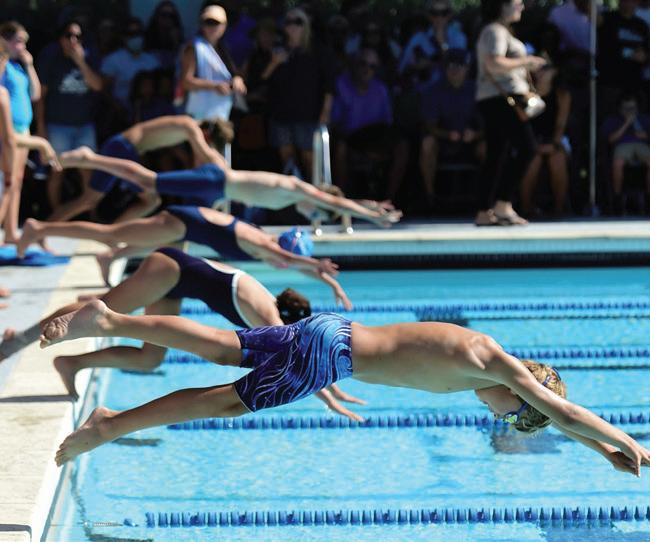
Extensive after-school activities
Whole-child approach
Purpose-built, modern facilities
100% International Baccalaureate Diploma pass rate
Details:
Director: Jim Urquhart
Grade Levels: Pre-K2 to Grade 12 Student Population: 975 Average Class Size: 17 Faculty Size: 174 Annual Fees (2022-23): CI$12,800–CI$24,960
Sibling discount: 10% reduction for the second child and 15% for the third and subsequent children
www.caymanparent.com 129 (345) 945 4664 | 95 Minerva Dr., Camana Bay | admissions@cis.ky | www.cis.ky
•
•
•
•
•
•
•
•
•
Connect | Inspire | Serve (ages 2-18 years)
Cayman Prep and High School
Dedicated to lifelong learning (ages 4-18 years)
At CPHS students are placed at the centre of learning and teaching. Differentiated instruction enhances learning for all students by engaging them in activities that respond to particular needs, strengths, and preferences and is effective in supporting and challenging the full range of ability levels in the classroom. Their Christian ethos is evident throughout the school and inspires their students to think about what sort of contribution they will make to the world, how they will make a difference. The school supports them in such a way as to ensure they grow into responsible, mature, and engaged members of the school community and citizens of the world.
Curriculum: Revised National Curriculum of England (2014), IGCSE & GCSE, AS and A-levels - Cambridge International Examinations and Welsh Joint Education Committee.
Facilities: IFA Grade multi-purpose astro-turf playing field and multipurpose hardcourt, Computing & Media Suites with tablets and laptops, Music Wing, Arts rooms with Kilns, State of the art science labs, Interactive technology in every class room.
Extracurricular: Primary Aftershool Care until 5.30pm daily. Afterschool clubs include art, drama, music, rugby, cricket, badminton, basketball, netball, GAA, football, volleyball, Robotics, Key Club, science, Duke of Edinburgh, homework club, diving, snorkelling, Junior MUN, Senior MUN and more.
Mission
Cayman Prep & High School provides a stimulating learning environment, firmly rooted in Christian principles, in which our students become critical creative thinkers, responsible citizens and lifelong learners in an ever changing world.
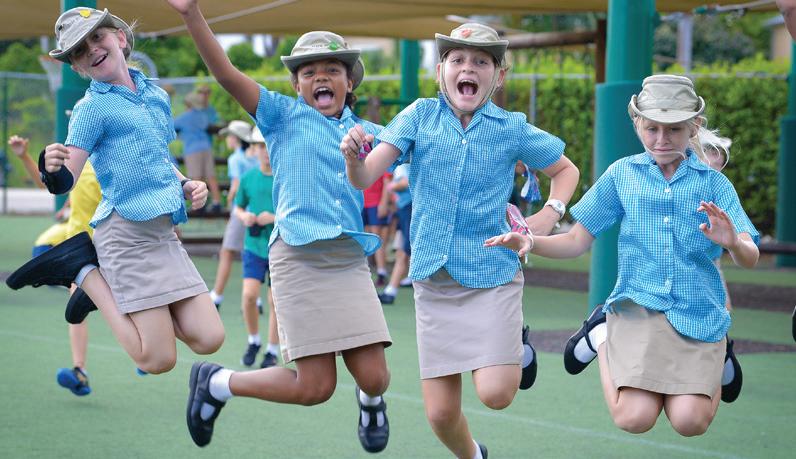
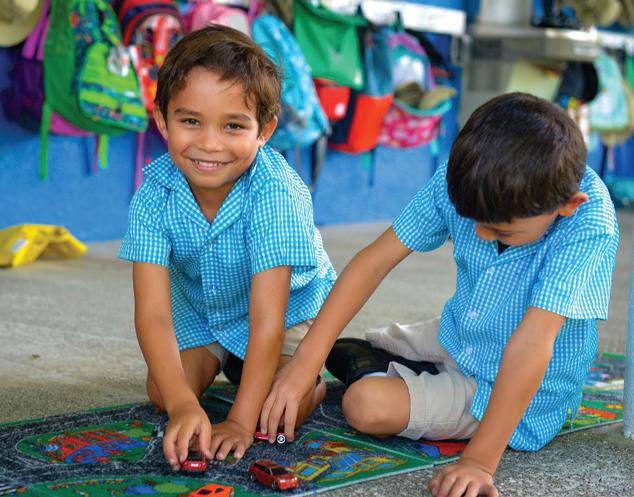

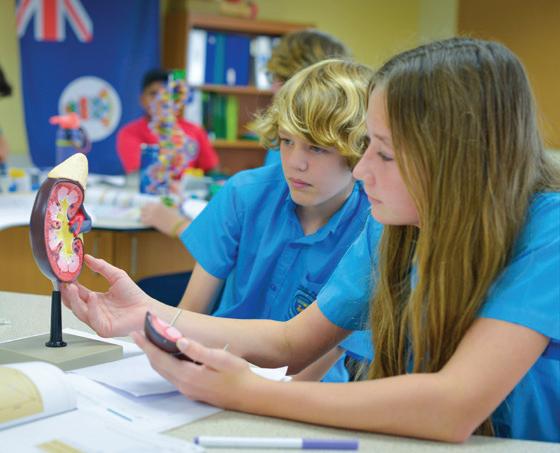
Highlights: Key Strengths of CPHS (as per the Office of Education Standards' inspection report, May 2021):
1) The attitude to learning and Christian ethos leads to students’ behaviour being EXEMPLARY across all stages of the school.
2) Students’ knowledge around environmental understanding and Caymanian culture and history in all phases of the school is EXCELLENT.
3) Students’ attainment and progress in English, mathematics, history and science in second and post-16 is EXCELLENT.
4) Teaching in secondary and post16 is EXCELLENT.
5) Leadership across the school and the school’s strong links with parents and the community are EXCELLENT.

Details: Student population:
Primary School 522 High School 482 Annual fees (2022-23):
KG-Yr 6 $11,630
Years 7-9 $12,620
Year 10-11 $13,365
Year 12-13 $14,760
Sibling Discount: 3rd and subsequent children - 10% off
Primary
www.cayprep.edu.ky
Cayman Parent Magazine | Education130
School: (345) 949 5932 | 242 Smith Road, GT | psoffice@cayprep.edu.ky |
High School: (345) 949 9115 | 559 Walkers Road, GT | hsoffice@cayprep.edu.ky | Facebook: @caymanprep
Island Primary
A community where every child can thrive (ages 4-11 years)
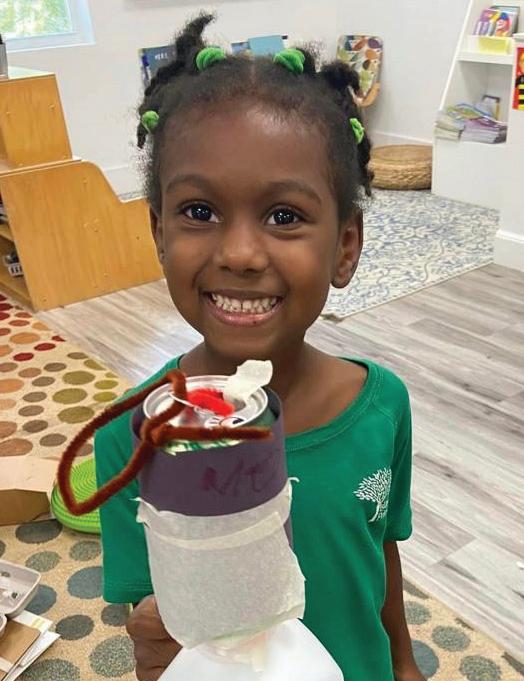
Island Primary is a community-minded school offering class spaces for children aged 4-11 from Reception to Year 6. The spacious new campus, conveniently located at Buttonwood Park off Linford Pierson Highway, is designed to create a friendly, welcoming environment and foster learning both indoors and out. With a highly experienced and strong leadership team, Island Primary is committed to nurturing talent in both teachers and students, offering a rounded education that gives children the skills they need to fulfil their potential in and out of school.
Curriculum: Based on the British national curriculum, Island Primary is focused on evidence-based teaching with flexibility to adapt topics relevant to Cayman. Set on more than four acres of landscaped and natural gardens, the school takes learning outside for all year groups to incorporate nature into daily lessons. Flexible classroom designs and a strong technology platform support academic goals across all subjects, with specialist subject teachers and a comprehensive learning support provision.

Island Primary strives to create a true island school, whose abundant play and sports areas are enhanced by Buttonwood Park’s facilities, including nature trails, community fields and swimming pool. Island Primary is the sister school to Island Montessori which offers programmes for children aged 12 months to 6 years at a nearby location.
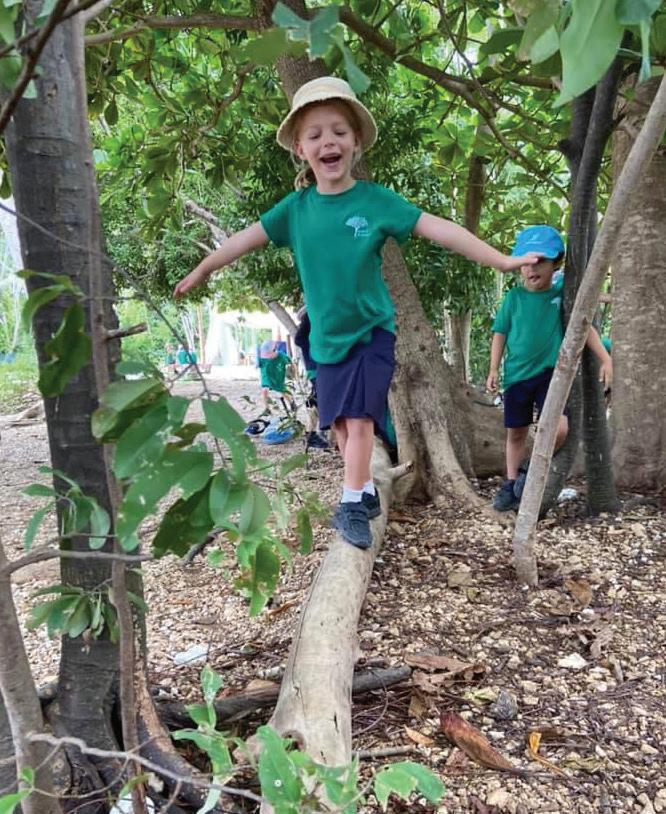
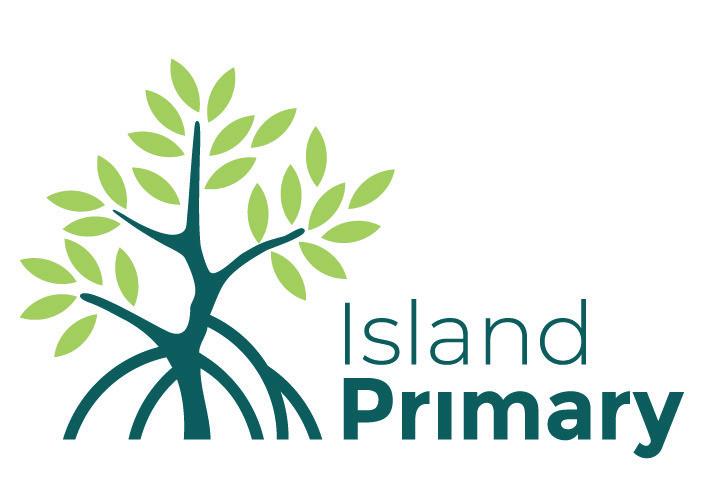
Highlights:
• Experienced and engaged teachers and staff
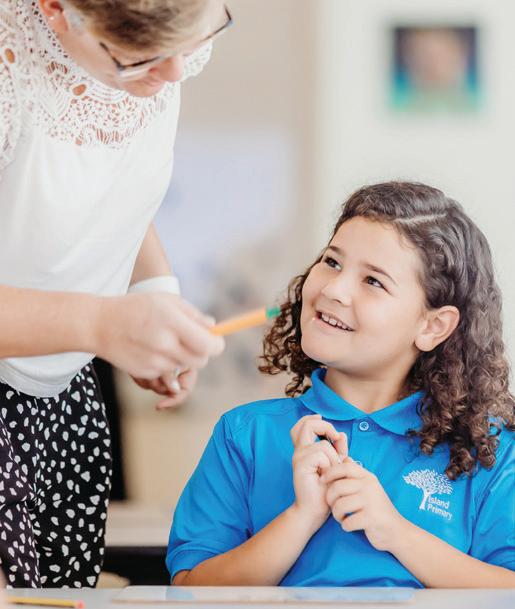
• High quality teaching based on British curriculum
Specialist subject and support teachers with a strong SEN provision
Brand new campus set on 4+ acres of gardens

Bright and spacious classrooms and outdoor learning decks
Strong community focus
Convenient location
Details:
Principal: Stephen Coles
Opening Hours: Monday-Friday, 7.30am-5.30pm
Programs: Reception to Year 6
Sibling discounts: Yes
www.caymanparent.com 131
•
•
•
•
•
info@islandprimary.org | www.islandprimary.org | Buttonwood Park, George Town
Cayman Learning Centre & School (CLC&S) (ages 5–14 years)
Highlights: British Curriculum • Cognitive Enhancement programme • Evidence-based reading, spelling, and math intervention • Initial comprehensive assessment to identify specific strengths and weaknesses • Small teacherstudent ratio • Specialised teachers
Details: Monthly Fees: Seat fee + CI$1,427-CI$1,680 Average Class Size: 6 students per teacher Curriculum: British National Curriculum, Evidence-Based Intervention Programmes, Cognitive Enhancement Programme for more efficient learning
Cayman Learning Centre & School offers classes with a small student-teacher ratio, a tailored learning support plan with a full British curriculum, hands-on project-based learning, and evidence-based reading, spelling and math intervention. Students benefit from the worldrenowned Arrowsmith Program, helping to strengthen underlying cognitive functions that are responsible for a range of learning difficulties to make the learning process easier. For struggling learners, our Learning Support Team has additional training in meeting the needs of students who have one or more of the following: SpLD (Specific Learning Disability or Specific Learning Disorder) in reading & spelling (Dyslexia); in written expression (Dysgraphia); in mathematics (Dyscalculia). (345) 943 7323 | info@caymanlearning.com | www.caymanlearning.com | 7 Pasadora Plc, Smith Road, GT
First Baptist Christian School
Serve,
First Baptist Christian School provides a student-centered American Educational Programme in a Christian environment. They offer programmes for Preschool, Elementary and Middle School Education up to Grade 8.

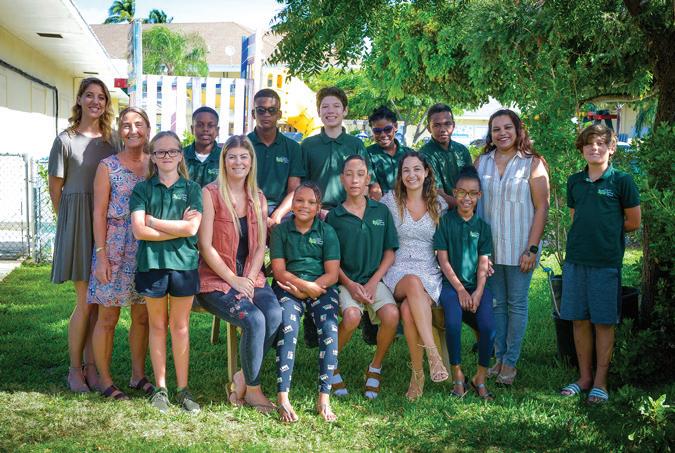


FBCS is a culturally diverse school with students from around 14 different countries across the world, with approximately 63% of their students being Caymanian. Their school seeks to help students become independent, resilient learners who set goals, monitor their progress, and persist in challenging tasks in order to succeed. FBCS uses an American curriculum and follows the Virginia State Standards. Their strengths include their strong relationships, and caring, nurturing environment. They are a supportive, encouraging, diverse school community, that demonstrates respect for self, others, and God so that they can serve their families, school, community, churches, and the global community.
“Preparing students in a Christ-centered environment to learn, serve, and lead in innovative and creative ways so that they can make meaningful contributions to the global community.”
Highlights:
ACSI Member school
Renaissance Learning partner school
American curriculum • 2:1 iPad ratio
1:1 student laptops (Grades 3-8)
Broad and Balanced Curriculum
Janet Durksen
Preschool:
Preschool:
Good range of clubs and activities
Coding & Robotics classes in Technology
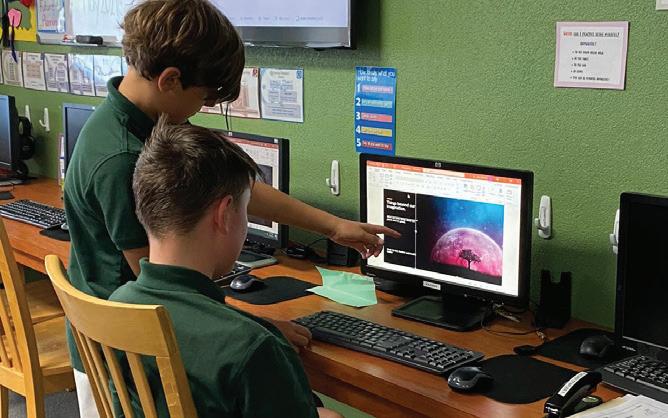
Data driven school
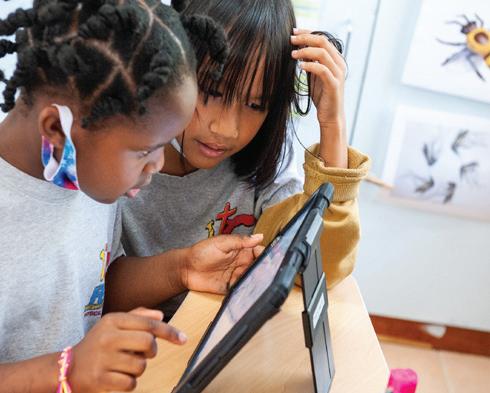
Cayman Parent Magazine | Education132
Learn,
Lead (ages 2-14 years) 1 (345) 945 7906 | fbcs@fbcs.edu.ky | www.fbcs.edu.ky | 920 Crewe Road, GT Details: Principal:
Vice Principal: Marsha Seerattan Student population:
50 Elementary/Middle School K-8th: 160 Annual Fees:
CI$805/month Elementary K-Grade 5: CI$982/month Middle School: CI$ 1070/month (Sibling discounts available)
•
•
•
•
•
•
•
St. Ignatius Catholic School
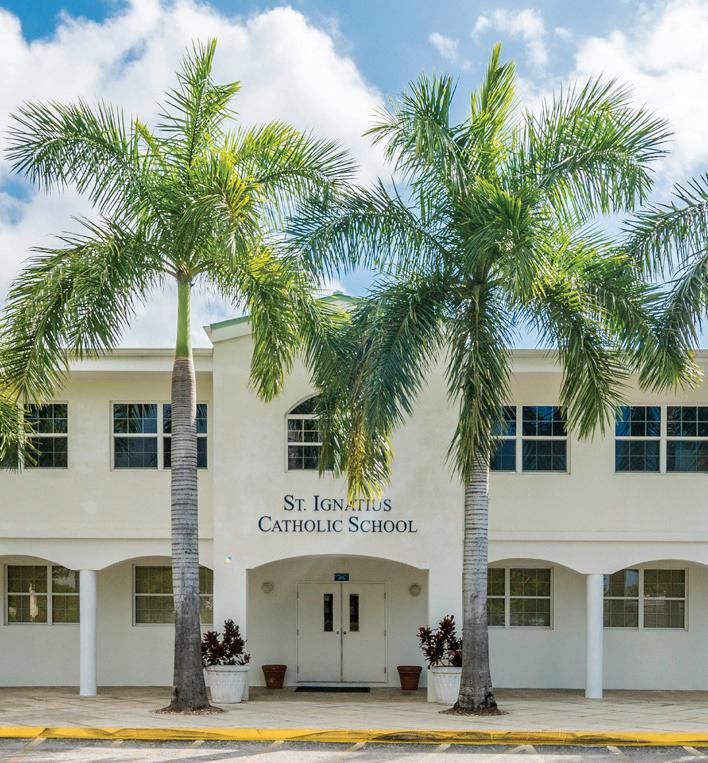
Catholic education as an integration of Body, Mind and Spirit
At St. Ignatius, the holistic development of each individual is their primary purpose. Their staff strive to know and nurture each pupil, working together to promote strengths and self-worth, in mind, body and spirit. They work diligently so that all pupils leave them as discerning believers, effective communicators, reflective, creative and holistic thinkers, self-directed lifelong learners, collaborative contributors, caring family members and responsible citizens. They invite you to join the St. Ignatius community of 30 nationalities, providing a rich diversity of cultures and perspectives.
Curriculum: British Curriculum (IGCSE and GCSE); AS and A Levels – Cambridge International Examinations (CIE) and WJEC.
Facilities: Four science labs, music wing (including sound–proof practice rooms), multi-purpose sports hall (coming soon), canteen with full kitchen, art room, school hall, modern classrooms, sports field, basketball and netball court and laptop programme for Years 7-13.
Extracurricular: After-school clubs, art, drama, music, sailing, tennis, diving, cricket, rugby, soccer, Cub Scouts, Brownies, cooking clubs, annual music production, house activities. After-school care available 2.30pm–5.30pm daily. Weekly learning support available, football (girls and boys), netball, table tennis, field hockey, volleyball, badminton, fitness, sailing and diving.
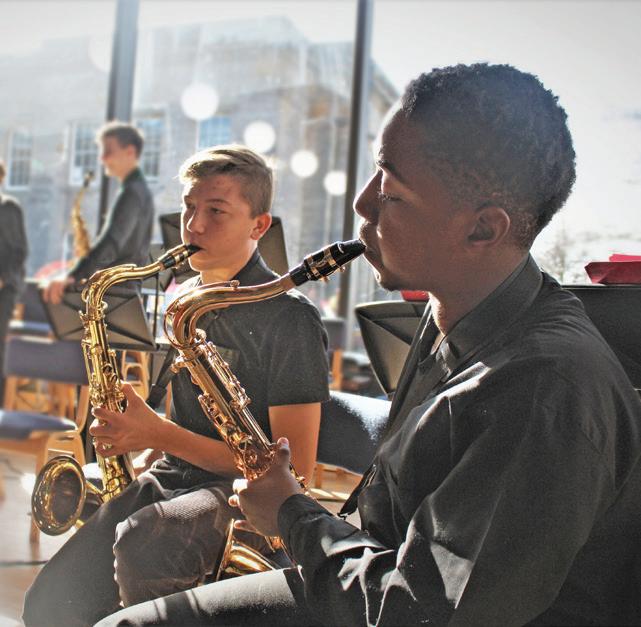
St. Ignatius Catholic School is committed to safeguarding and protecting the welfare of children.
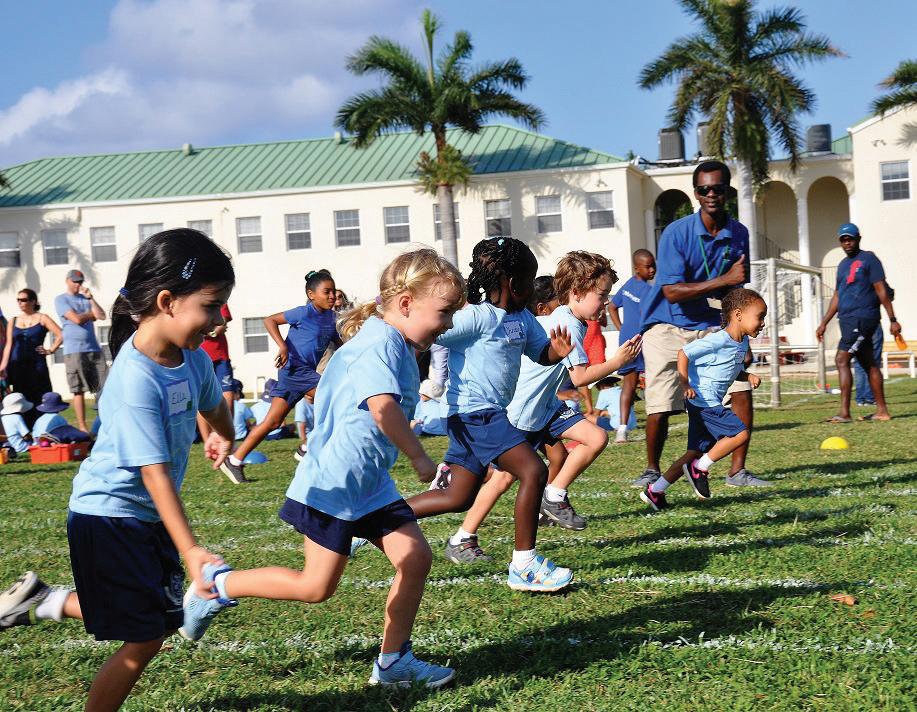

Highlights:
British curriculum • Four science labs • Music wing • 1:1 laptops for high school • Wide variety of after-school clubs

Details:
Head of School: Mr. Simon Testa
Vice Principal Primary: Mr. James Hickey
Vice Principal Secondary: Mr. Peter Embleton Student Population: 690 Annual Fees (2022-23):
Nursery –Year 6: CI$10,510 Years 7–11: CI$12,159 Years 12–13: CI$14,215
Sibling discount: Third child receives 25% discount on fees. Average class size: 24 Meals: Hot lunches CI$6-CI$8 daily

www.caymanparent.com 133
(345) 949 9250 | general@st–ignatius.com | www.st–ignatius.com | 599 Walkers Rd, George Town (ages 3-18 years)
Edna M. Moyle Primary School
907 North Side Road, North Side. Tel: (345) 947
9516 Catchment Area: All of Frank Sound up to Old Man Bay (west) to Cayman Kai and Robins Road.
George Town Primary School
168 School Road, George Town. Tel: (345) 949
2689 Catchment Area: South of Government House up to Memorial Avenue. North along Walkers Road to Maple Road, and east along Smith Road up to the Crewe Road airport junction. Plus the area that is north of Airport Road, through the Junction in Industrial Park, and all areas north and east past the airport up to North Sound.
Joanna Clarke Primary School (formerly Savannah Primary School)
1659 Shamrock Road, Savannah. Tel: (345) 947
1344 Catchment Area: East side of SpottsNewlands Road to Beach Bay Road, and including the greater Pedro area.
Little Cayman Education Service
210 Spot Bay Road, Little Cayman. Tel: (345) 948
1052 Email: Vjuman-khan@lces.edu.ky Teacher
in Charge: Mrs. Veronica Juman-Khan Catchment Area: All of Little Cayman.
Prospect Primary School
169 Poindexter Road, Prospect. Tel: (345) 947
8889 Catchment Area: From Prospect Drive eastward, to the west side of Spotts-Newlands Road and the west side of Chime Street on
Cayman Academy
I can do all things through Christ (ages 3-18 years)
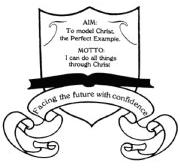
the Bypass/East/West Arterial (including all of Prospect Park, Patrick’s Island, Ocean Club, Cascades Drive etc.).
Red Bay Primary School
271 Shamrock Road, Red Bay. Tel: (345) 947 6333
Catchment Area: South side of Memorial Avenue, along Walkers Road to Maple Road and south side of Smith Road, both sides of Crewe Road bordered by Owen Roberts Drive to the North, and South Sound to the South Sound border on the east side of Victory Avenue.
Sir John A. Cumber Primary School
44 Fountain Road, West Bay. Tel: (345) 949 3314
Catchment Area: North of Government House up to Cobalt Coast and including all of West Bay.
Theoline L. McCoy Primary School (formerly Bodden Town Primary School)
6 Condor Road, Bodden Town Tel: (345) 947 2288
Catchment Area: Area to the east of Beach Bay Road, continuing up to Breakers and including Northward.
West End Primary School (Brac)
10 ABC West End Road, Cayman Brac. Tel: (345) 948 1425 Catchment Area: West end of Cayman Brac, up to Faith Hospital on the north side of the island, and correspondingly across the Island to the south coast.
Education – Government High Schools & CIFEC
Clifton Hunter High School
311 Frank Sound Road, Frank Sound. Tel: (345) 947
7353 Catchment Area: All areas on the east side of Spotts-Newlands Road and the east side of Chime Street, the Bypass or the East/West Arterial.
John Gray High School
73 Academy Way, George Town. Tel: (345) 949
9444 Catchment Area: The west side of SpottsNewlands Road, and the west side of Chime Street, the Bypass or the East/West Arterial.
Layman E. Scott High School (Brac)
941A Dennis Foster Road, Cayman Brac Tel: (345) 948 2226 Catchment Area: All areas of Cayman Brac and Little Cayman.
CI Further Education Centre (CIFEC)
515 Walkers Road, George Town. Tel: (345) 949 3285 Email: PLazzari@cifec.edu.ky Director: Mr. Pedro Lazzari Ages: 16-18 years Curriculum: CIFEC offers BTEC and City and Guild vocational courses at Levels 1-3, which are the equivalent of GCSE (level 2) and AS Levels (level 3). Each programme includes an internship with an employer. See https://schools.edu.ky/CIFEC for more information.
Footsteps School
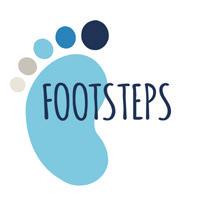
Helping your child achieve their goals, one step at a time (ages 4-12 years)
Cayman Academy, a member of the Atlantic Caribbean Union school system, empowers students in a dynamic Christ-centered learning environment to develop character, acquire knowledge, and utilise skills for service to God and man. The mission of Cayman Academy, in co-operation with parents and other stakeholders, is to attract and educate students in a dynamic learning environment committed to the holistic development of the faculties, fostering an experiential relationship with God through Bible-based values to create confident, responsible citizens equipped with the knowledge and skills to positively impact the world with selfless service.
Highlights: Afterschool activities including netball, cricket and performing arts • Vegetarian canteen providing healthy breakfast, lunch and snacks • Christcentred learning • George Town location
Details:
Annual fees: Pre K-Year 6: CI$5,843, Year 7: CI$7,410, Year 8: CI$7,743 Year 9: CI$8,788, Year 10-11: CI$9,073, Year 12: CI$9,168 Sibling discount: 5% for 2 children, 10% for 3+ children. Average class size: 20-25
(345) 640 2630 | 211 Walkers Road, (GT) | caymanacademy.ky office.secretary@cayman.academy.ky
Footsteps School is Cayman's first and only accredited beach school on Island. A non-denominational private school, Footsteps offers the UK National Curriculum for children aged 4-12 years old (now offering Year 7). Footsteps integrates outdoor learning into their curriculum, taking advantage of Cayman's natural beauty and landscape whilst encouraging exploration, investigation and independence. Their broad, balanced and relevant curriculum was graded ‘excellent’ by the OES. Footsteps also offers after-school tutoring in all areas of the curriculum along with holiday camps.
Highlights:
UK Curriculum • Highly skilled and experienced staff team • Beach and outdoor learning • Central George Town location • Small classes • Tutoring in all curriculum areas
Further Details:
Hours: Monday-Friday 8.30am-3.10pm • Average class size: 17 Annual Fees: CI$13,600 • Non-denominational Full and part-funded scholarships for outstanding Caymanian students
(345) 746-3635 | 210 Eastern Avenue, GT | www.footsteps.ky management@footsteps.ky
Cayman Parent Magazine | Education134
Education – Private, Primary & High Schools
Calvary Baptist Christian Academy
191 Walkers Road, GT. Tel: (345) 946 5834 Email: info@cbca.edu.ky Ages: 5-18 years Annual fees: K-Grade 2 CI$5,950, Grade 3-6 CI$6,250, Grade 7-12 CI$6,750 Average class size: 10 Curriculum: Abeka, American.
Cayman Academy
211 Walkers Road, GT. Tel: (345) 640 2630 Email: office.secretary@cayman.academy.ky Web: www. caymanacademy.ky Ages: 3-18 years Population: 332 Annual fees: Pre-K-Year 6 CI$5,843, Year 7 CI$7,410, Year 8 CI$7,743, Year 9 CI$8,788, Year 10 and 11 CI$9,073 and Year 12 CI$9,168 (sibling discount: 2 children 5%, 3+ children 10%) Average class size: 20-25 Curriculum: CI Curriculum, CSEC (Caribbean Secondary Examinations Council).
Cayman International School (CIS) 95 Minerva Drive, Camana Bay. Tel: (345) 945 4664 Email: cis@cis.ky Web: www. caymaninternationalschool.org Ages: 2–18 years Student population: 975 (approximate) Application fee: CI$350 Annual fees: Nursery (5 days/week) CI$15,120, Pre-K3 CI$15,120, Pre-K4 CI$15,120, Kindergarten-Grade 2 CI$18,130, Grades 3-5 CI$20,910, Grades 6-8 CI$23,460, Grades 9-12 CI$24,960 Average class size: 17 Curriculum: American, IB Diploma, IB Certificates, US High School Diploma.
Grace Christian Academy
Cayman Learning Centre & School
7 Pasadora Place, Smith Road, GT. Tel: (345) 943 7323 Email: info@caymanlearning.com Web: www. caymanlearning.com Ages: 5-14 years Monthly Fees: Seat fee + CI$1,427-CI$1,680 Curriculum: British National Curriculum incorporating the Arrowsmith Programme. See their Tutoring listing on page 137.
Cayman Prep & High School
Primary School site: 242 Smith Road, GT. Tel: (345) 949 5932 Email: psoffice@cayprep.edu.ky High School site: 559 Walkers Road, GT. Tel: (345) 949 9115 Email: hsoffice@cayprep.edu.ky Web: www. cayprep.edu.ky Ages: 4–18 years Registration fee: CI$750 Annual fees: Kindergarten-Year 6 CI$11,630, Years 7–13 CI$12,620-CI$14,760 Student Population Primary School: 522 Student Population High School: 482 Maximum class size: 25 (24 in KG) with all infant classes (KG to Year 2) staffed by a qualified teacher and a Learning Assistant. All Junior year classes (Year 3 to 6) are also staffed by a qualified teacher with Learning Assistant per year group (3 class entry in all year groups) Curriculum: British based. IGCSE, GCSE, AS and A Levels (Cambridge International and Welsh examination boards).
Clever Fish Windjammer Building, Walkers Road, GT. Tel: (345) 516 4623 Email: info@cleverfishcayman.com Web: www.cleverfishcayman.com Ages: 11-16 years (approx.) Curriculum: UK National Curriculum
leading to IGCSEs and A Levels Fees: CI$1,500 Sept-June (10 months), CI$50 an hour for private tutoring.
First Baptist Christian School
920 Crewe Road, Red Bay. Tel: (345) 945 7906 Email: fbcs@fbcs.edu.ky Web: www.fbcs.edu.
ky Ages: 2-14 years (KG-Grade 8) Application fee: CI$150 Annual fees: Preschool CI$8,345, Kindergarten-Grade 5 CI$9,818, Grades 6-8 CI$10,700 (sibling discount available) Student population: 200 Average class size: Preschool 1012, KG-Grade 8 15-22 Curriculum: US Curriculum.
Footsteps School
210 Eastern Ave, George Town. Tel: (345) 746 3635 Email: management@footsteps.ky Web: www.footsteps.ky Ages: 4–12 years Annual Fees: Reception–Year 7 CI$13,600 (paid over 10 months) Student Population: 75 Class size: 17 Curriculum: UK National Curriculum with a nature-learning focus. Footsteps is Cayman's first accredited beach school. Religion: Nondenominational.
Grace Christian Academy
21 Crescent Close, off Boltins Ave, West Bay. Tel: (345) 945 0899 Email: officeadmin@gca.ky Web: www.gracechristianacademycayman.org

Ages: 3–18 years Application fee: CI$200 Annual fees: Preschool CI$9,531, Grades K–5 CI$10,346, Grades 6–8 CI$11,550, Grades 9–12 CI$11,475. Curriculum: American, Christian-based education.
Hope Academy
A Christ-centered, biblically-directed education (ages 3-18 years)
Grace Christian Academy is located in a quiet residential area in West Bay, surrounded by coconut trees and lots of Iguanas! Students attend classes on a Caribbean-style campus complete with a swimming pool. In addition to regular academic coursework, all students take Music, Spanish, ICT, and Swimming lessons. Grace Christian academy is committed to providing students the academic preparation needed to meet the emotional, social and spiritual challenges encountered as adults, and strongly encourage being brothers in Christ.
Highlights:
Fully-equipped swimming pool • Science Lab • Steel pan room • Computer Lab • Smart boards for Grade 1-12 classes • Member of WIDA International School Consortium • Advanced Placement classes offered
Details:
Head of School: Mrs. Bernice Scott Annual Fees (full time): Pre K1-Pre K2: CI$9,531 (incl. swim lessons), K-Grade 5: CI$10,346 (incl. swim lessons), Grade 6-8: CI$11,550, Grade 9-12: CI$11,475
Sibling discount: 5% for second child, 10% for third (345) 945 0899 | 21 Crescent Close | officeadmin@gca.ky gracechristianacademycayman.org
Working Together To Be The Best (ages 5-18 years)
Hope Academy offers an American curriculum that fosters learning through creativity, discovery, and imagination within a small learning environment. Online courses are also available for middle and high school students. The inclusive classrooms and flexible methodology cater to each students’ individual needs.
Highlights:
American curriculum • Small class sizes • Additional learning programmes for students needing extra support Extracurricular activities and sports • After-school programmes include clubs • Homework assistance and tutoring available • Full online programme available
Details:
Head of School: Dr. Samantha Tibbetts
Student Population: 120-130 Maximum Class size: 12-15 Annual Fees (2022-23): CI$15,150 for regular programmes; fees for additional programmes vary.
(345) 769 4673 | Grand Harbour Shops, Units 1-8 www.hopecayman.com | office@hopecayman.com
www.caymanparent.com 135
HONOR OPTIMISM PERS E ECNELLECXEECNAREV
Hope Academy
Units 1-8 Grand Harbour Shoppes, Red Bay. Tel: (345) 769 4673 Email: office@hopecayman. com Web: www.hopecayman.com Ages: 5-18 years Application Fee: CI$150 Annual fees: Kindergarten-Grade 12 CI$15,150 (fees for additional programmes vary. Sibling discount provided) Student population: 120-130 Maximum class size: 12-15 Curriculum: American.
Island Montessori
491 Crewe Road, George Town. Tel: (345) 945 5814 Email: info@islandmontessori.org Web: www.islandmontessori.org Ages: 12 months-6 years (Nest, Toddler & Casa) Monthly Fee: CI$995.
Island Primary
Buttonwood Park, George Town. Email: info@ islandprimary.org Web: www.islandprimary.org Ages: 4-11 years Curriculum: British Curriculum.
Montessori By The Sea
277 Prospect Point Road, Prospect. Tel: (345) 947 0684 Email: info@mbts.ky Web: www.mbts. ky Ages: 21 months–12 years (Toddlers–Grade 6) Student population: 150 Application fee: CI$250 Monthly programme fees: Toddler (21 months-3 years) CI$1,183-CI$1,300, Casa (PreK-Kindergarten) CI$1,162-CI$1,280, Elementary (Grades 1-6) CI$1,300 Teacher-student ratio: Toddler 1:5, Casa 1:10, Elementary 1:15 Curriculum: Follows the Montessori philosophy, while aligning with UK standards.
St. Ignatius Catholic School
599 Walkers Road, George Town. Tel: (345) 949 9250 Email: general@st–ignatius.com Web: www.st–ignatius.com Ages: 3–18 years Student population: 690 Average class size: 24 Application fee: CI$100 Annual Fees: Nursery–Year 6 CI$10,510, Years 7–11 CI$12,159, Years 12–13 CI$14,215 (fees can also be paid per term and per month) Curriculum: British Curriculum (IGCSE and GCSE), AS and A Levels – Cambridge International Examinations (CIE) and Welsh Joint Education Committee (WJEC).
Triple C School
74 Fairbanks Road, George Town. Tel: (345) 949 6022 Email: triplec@triplecschool.org Web: www.triplecschool.org Ages: 3-18 years Student population: 490 Average class size: 20 Application fee: CI$100 Annual capital fee: CI$400 Annual fees: Preschool (full-time) CI$7,932, Pre-KG CI$7,932, KG-Grade 3 CI$8,439, Grades 4–5 CI$8,776, Grade 6-8 CI$9,284, Grades 9–10 CI$10,970, Grade 11 CI$11,139, Grade 12 CI$11,380.
Truth For Youth School
84 Walkers Road, George Town. Tel: (345) 949 2620 or (345) 949 7041 Email: truthfys@candw. ky Ages: 4-11 years Monthly Fees: KG-Grade 6 CI$500 Curriculum: American.
Village Montessori
94 Solaris Avenue, Camana Bay. Tel: (345) 640 7827 Email: info@villagemontessori.ky Web: www.villagemontessori.ky Ages: 18 months-12 years Monthly Fees: CI$1,075-CI$1,175.
Wesleyan Christian Academy
150 North West Point Road, West Bay. Tel: (345) 949 1121 Email: principal@wcacayman.com Ages: 4-18 years Annual fees: Pre K–Grade 8 CI$6,200, Grades 9-12 CI$6,700 (inclusive of book fee. Lunch and other fees not included) Curriculum: American, Cayman Islands National Curriculum Grades 1-6.
Universities & Colleges
International College of the Cayman Islands (ICCI) 595 Hirst Road, Newlands. Tel: (345) 947 1100 Email: info@icci.edu.ky Web: www.icci.edu.ky.
Northwestern Caribbean Baptist Theological Seminary
Cayman Islands Baptist Church, 163 Pedro Castle Road, Savannah. Tel: (345) 946 2422 Email: info@ ncbts.edu.ky.
St. Matthew’s University School of Medicine Regatta Office Park, Leeward 3, West Bay Road. Tel: (345) 945 3199 Email: admissions@ stmatthews.edu Web: www.stmatthews.edu.
School of Hospitality Studies (part of UCCI)
Tel: (345) 623 8224 Email: SHS@ucci.edu.ky Web: www.ucci.edu.ky.
School of Veterinary Medicine Regatta Office Park, Leeward 4, West Bay Road. Tel: (345) 814 3177 Email: admissions@ stmatthews.edu Web: www.stmatthews.edu.
The Truman Bodden Law School (TBLS) Monaco Towers, 54 Edward St, 2nd & 3rd floor, GT. Tel: (345) 945 0077 Web: www.lawschool.gov.ky.
University College of the Cayman Islands (UCCI) 168 Olympic Way, GT. Tel: (345) 623 8224 Brac Campus: Avistar Building, West End, CB. Tel: (345) 623 0540 Email: admissions@ucci.edu.ky Web: www.ucci.edu.ky.
University of the West Indies - Cayman Olympic Way, GT. Tel: (345) 946 8322 Cell: (345) 925 8042 Email: cayman@open.uwi.edu Web: www.open.uwi.edu.
Educational & Psychological Assessments
Aspire Therapeutic Services
Tel: (345) 743 6700 Email: info@aspire.ky
Offers psychological, neuro-psychological and developmental assessments.
Hope Academy Clinical Services
Tel: (345) 769 4673 Email: office@hopecayman. com Web: www.hopecayman.com Offers psychoeducational and neuro-psychological evaluations to children from 2-18 years old.
KidsAbility
Dr. Laurence van Hanswijck de Jonge, PhD
Tel: (345) 943 5437 Email: info@kidsability.ky
Paediatric therapy clinic offering developmental neuropsychology services, counselling services, occupational therapy, speech-language therapy,
a feeding clinic, literacy clinic, social skills groups, parent, teacher and allied health workshops and telehealth services.
Transformations Ltd.
Tel: (345) 324 1298 Email: admin@ transformationscayman.com Assessments including Dyslexia, Specialist Literacy Intervention and a range of training subjects including Child Development, Behaviour Management and Autism Awareness.
Paediatric Therapy Services
For medical practitioners who can help diagnose physical or behavioural problems, see the Health listings on page 169.
Cayman ABA
Pasadora Place, Unit 15, Smith Road GT. Tel: (345) 947 5477 Email: info@caymanaba.com Providing scientifically-based Applied Behaviour Analytic (ABA) interventions for children and adolescents.
Chatterbox
Casuarina Point, 218 South Church Street, GT. Tel: (345) 949 7065 Email: chatterbox@ candw.ky Web: www.chatterboxcayman.com. Currently provide speech and language therapy, occupational therapy, massage therapy, an Early Years Programme (ages 2-5 years), support for children and adults with autism and a women's cancer rehabilitation programme. They work with children and adults who have language or learning disorders, learning disabilities, motor disorders, anxiety disorders, autism, ADHD and gifted children.
Hope Academy Clinical Services
Tel: (345) 769 4673 Email: office@hopecayman. com Web: www.hopecayman.com Offers Speech and Language therapy, Behaviour therapy, schoolbased ABA therapy and Neuropsychological and Psychoeducational evaluations. These services are also available for those not attending Hope Academy.
KidsAbility
8 Midtown Plaza, 273 Elgin Avenue, George Town. Tel: (345) 943 5437 Email: info@kidsability.ky Web: www.kidsability.ky Paediatric therapy clinic offering developmental neuropsychology services, counselling services, occupational therapy, speech and language therapy, a feeding clinic, literacy clinic, social skills groups, parent, teacher and allied health workshops and telehealth services.
The Lighthouse School
Shamrock Road, Red Bay. Tel: (345) 947 5454 Web: https://schools.edu.ky/lhs A government school for children from ages 5–17 years who have moderate to severe special educational needs, or for children with complex or multiple challenges to their learning.
Sunrise Adult Training Centre
Eden House, Elizabethan Square, George Town.
Tel: (345) 949 3330 Email: kimberly.voaden@ gov.ky Web: www.sunrise.gov.ky A government run facility offering programmes to ensure
Cayman Parent Magazine | Education136
independence and community inclusion for adults with learning difficulties.
Educational Support Services
Early Intervention Programme
515 Walkers Road, George Town. Tel: (345) 926 1413 Email: eip@cayman.edu.ky Services provided: early intervention teachers, speech and language therapy, occupational therapy, programme for the visually impaired, teacher for the hearing impaired, counsellor, educational psychologist.
Inclusion Cayman
Tel: (345) 623 2957 Email: info@inclusioncayman. ky Web: www.inclusioncayman.ky A nonprofit organisation supporting individuals with disabilities in their vision of accessing inclusive lives. They work with families, schools, employers, recreation/leisure providers and others to ensure all community members can meaningfully access, participate and belong in the Cayman Islands.
Educational Subscription Boxes
Brightbox Cayman
Email: brightboxltd@gmail.com Web: www. brightbox.ky BrightBox offers over 20 different Maths, Sensory or Innovation-themed boxes to educate and inspire children from preschool to Year 6 (11 year olds). Created in Cayman
specifically for Cayman kids, these boxes cost CI$25 each and are customised depending on your child's age.
Tutoring Companies
Alpha Academy
6 Paddington Place, Godfrey Nixon Way, George Town. Tel: (345) 947 7475 Email: info@ alphaacademy.ky Web: www.alphaacademy.ky Full time tutors in STEM related courses such as Physics, Chemistry, Biology, Technology, Engineering and Maths, as well as English and Spanish from primary school age to college level.
Cayman Learning Centre & School
7 Pasadora Place, Smith Road, George Town. Tel: (345) 943 7323 Email: info@caymanlearning. com Web: www.caymanlearning.com Offers evidence-based tutoring programmes alongside the world-renowned Arrowsmith programme, aimed to get to the root of learning difficulties. Tutoring programmes are focused on literacy and numeracy skills including reading, writing, spelling and comprehension. Its trained teachers offer evidence-based reading intervention for students with Dyslexia. Their Neuroscience programme aids students with learning disabilities. It also offers a full-time school programme. See school listing on page 135.
Clever Fish
Windjammer Building, Walkers Road. Tel: (345) 516 4623 Email: info@cleverfishcayman.com
An after-school academic and enrichment programme for students from Years 4-11. It also runs a combined educational and watersports camp over the holidays.
Footsteps School
210 Eastern Ave, George Town. Tel: (345) 746 3635 Email: management@footsteps.ky Web: www.footsteps.ky Footsteps offers individual subject support, exam preparation and homework help for early years, primary and secondary children. They are situated on Eastern Avenue and have a team of fully qualified and experienced teachers. See also page 134.
High Achievement Academy
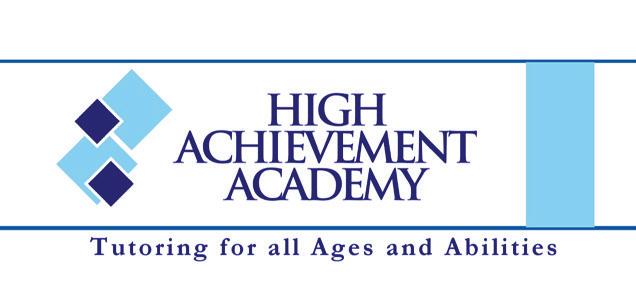
Windjammer Place, 461 Walkers Road, George Town. Tel: (345) 746 5555 Email: info@ haacayman.com Web: www.haacayman.com
Educational and professional tutoring for all ages (5+) and abilities in small groups or oneon-one. Classes available six days a week including holidays, during day or evening hours.

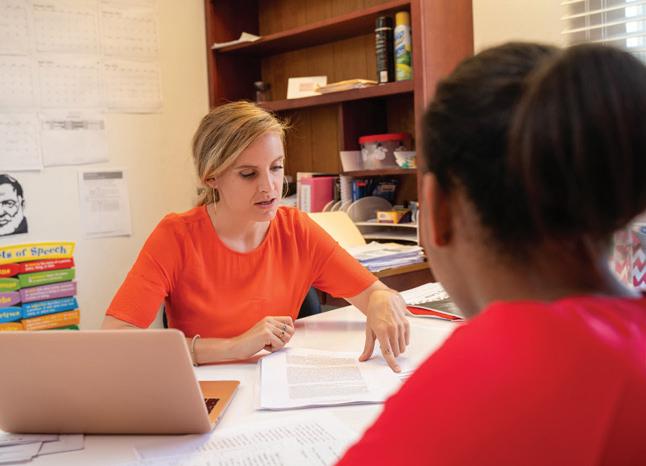
I Read For Life
Barnett Building, 24 Huldah Avenue (next to the Red Cross building) George Town. Tel: (345) 947 1497 Email: admin@ireadforlife.ky Web: www.ireadforlife.ky Offers a method of reading
High Achievement Academy offers small group and one-on-one tutoring for all ages and abilities. Sessions are offered seven days a week and are provided by highly qualified and experienced teachers from the UK, USA and Canada. They are knowledgeable in the UK, US, Caribbean and IB curriculums. Programmes range from exam preparation (CXC, GCSE, A Levels, IB and SATs), homework help, study skills, English as a second Language and workplace training. Daytime, evening and weekend sessions are available. HAA also welcomes the travelling student who requires
study while visiting Cayman.
www.caymanparent.com 137
provisional
(345) 746 5555 | info@haacayman.com | www.haacayman.com | 461 Walkers Rd #10, Windjammer Plaza Highlights: Subjects: Maths • English • Science • Geography • Business Studies • Languages • Accounting • ITC/Computing courses: Primary and Secondary • CXC • (I)GCSE • IB • A Levels • SAT • Study skills • Homework help College coursework support (ICCI, UCCI and others) Details: Personalised learning approach to meet your objectives • Day and evening sessions available • Spacious, modern learning environment • Two separate locations, one for primary school students and one for high schools students • Tutors who CARE and are DEDICATED! High Achievement Academy Confidence • Success • Skills (all ages)
remediation that helps struggling readers gain self-confidence, improve comprehension and read faster. Offers traditional tutoring as well as online tutoring.
Math Tutoring With Claude Bailey
The National Gallery of the Cayman Islands
to children as young as nine, others you need to be at least 15. Contact Peter Hughes, First Aid Program Manager for what course would be appropriate for your child.
Cayman Sea Elements
Tel: (345) 926 3812
A former Golden Apple recipient, Mr Bailey offers Maths tutoring for Grades 3-12 and help for university level Maths.
School Placement Advisory Service
Dorm & Day
2 Harbour Drive, George Town. Tel: (345) 925 4610 Email: admin@dormandday.ky Web: www. dormandday.ky Offers an exclusive schools placement advisory service assisting with all aspects of the schools search and admissions process at home and overseas. Services include: reviewing transcripts and applications, financial aid and scholarships and test and interview preparation.
Extra-Curricular Classes
ACTING & THEATRE CLASSES
Cayman Drama Society (CDS)
Prospect Playhouse, Red Bay. Tel: (345) 936 1907 Email: training@cds.ky Web: www.cds.ky Caystage offers ongoing after-school acting classes for children ages 5-18 years and adults of all experience levels, as well as summer acting and drama camps. CDS has a full-time Training Officer on staff. On occasion, it also offers writing, directing, and technical production courses.
Cayman Music School Market Street, Camana Bay. Tel: (345) 938 3838 Email: info@caymanmusicschool.com Web: www. caymanmusicschool.com Runs acting and musical theatre programmes for ages 7-15+ years. All classes are categorised by age.
Centre Pointe Dance Studio (CPDS) 108 Alissta Towers, North Sound Road. Tel: (345) 926 5889 or (345) 926 9603 Email: centrepointedance@gmail.com Web: www. centrepointedancestudio.com CPDS is the leading performing arts studio in the Cayman Islands. It teaches all genres from Ballet to Drama and accepts students from ages 9 months-adult.
ART & CERAMIC CLASSES
Cayman National Cultural Foundation
Tel: (345) 949 5477 Email: cncf@artscayman. org Web: www.artscayman.org CNCF offers year-round cultural education opportunities for Cayman’s kids and teenagers via the Creative Kids page on its website. The 'Mind's Eye' tour for students ages 4-16+ years allows kids to discover Ms. Lassie Bush's art, while learning more about 'long ago' Cayman. Summer camp groups are also welcome. Email info@artscayman.org for more information. It also regularly hosts lectures and workshops to further develop Cayman's lifeenriching cultural community.
Esterley Tibbetts Highway, south of Camana Bay. Tel: (345) 945 8111 Web: www.nationalgallery. org.ky Home to the National Art Collection, art library, education centre and sculpture gardens, the Gallery hosts temporary exhibitions, cultural events and workshops throughout the year for all age groups and skill levels.
3 Girls & A Kiln
47 South Church Street, George Town Tel: (345) 640 9990 Email: 3girlsandakiln@gmail.com Web: www.3girlsandakiln.com They offer a wide selection of fun monthly art classes for kids and adults. Give them a call or email if you have any interest in hosting a private/corporate event at their working studio or popping in for an afternoon of glazing.
Art'y Parties
6 Devon Road, Prospect Tel: (345) 928 0284 Email: artypartiescayman@yahoo.com Web: www.artypartiescayman.com Art'y Parties specialises in Art Parties, Painting Classes, Traditional Face Painting, Airbrush Tattoos/Body Art, Glitter/Flash Tattoos, Art Clubs, Holiday Art Camps & Halloween FX Makeup, personalised school labels and personalised party supplies.
CADET CORPS
Cayman Islands Cadet Corps
Tel: (345) 946 9810 (Grand Cayman) or (345) 938 8824 (Brac) Email: cadetcorps@gov.ky Web: www.cicadetcorps.ky Cadets learn life skills, develop morals and high standards of conduct through challenging, military-style activities. Offering a wide range of activities including drills, field craft, adventure, navigation, first aid, music and water-based activities. It accepts male and female high school students from ages 11-18 years and are always looking for enthusiastic adult volunteers from a cross-section of the Caymanian community. It has groups of cadets in both Grand Cayman and Cayman Brac.
COOKING CLASSES
The National Trust Mission House, 63 Gun Square, Bodden Town. Web: www.nationaltrust.org.ky The National Trust often hosts cooking classes for teens and adults, focussing on traditional Caymanian dishes. Visit their website for more information on upcoming events.
DIVING COURSES
See page 281 for listings.
FIRST AID, CPR, WATER RESCUE COURSES
Cayman Islands Red Cross (CIRC) Thomas Russell Way, George Town. First Aid Training Manager: (345) 925 0715 Email: firstaid@ redcross.org.ky Web: www.redcross.org.ky Offers the American Red Cross (ARC) syllabus and certification in the following courses: Infant/ Child/Adult First Aid, CPR and AED (Automated External Defibrillator); Lifeguarding and Basic Water Rescue. All certifications are valid for two years. Some of the courses can be taught
(Mike Nelson) Tel: (345) 936 8687 Email: caymansea@gmail.com Offers the full Emergency First Responder (EFR) certification course either at Clever Fish, schools, offices, churches or at home. The course covers practical and theoretical adult, child and infant CPR, AED and First Aid including administering EPI pens. A Water Safety course for caregivers and parents is also offered.
Fitness Connection
1 Bambi Close, Glen Eden Road, George Town. Tel: (345) 949 8485 Email: fitness@fitness.ky Web: www.fitness.ky Teaches the ASHI CPR/AED course as well as the SAI Safety Training Aquatic Rescue Course and Starguard Life Guard training.
HIV, AIDS, GENDER & SEXUALITY AWARENESS AND EDUCATION
Cayman Islands Red Cross (CIRC)
Thomas Russell Way, George Town. Tel: (345) 916 1742 or (345) 949 6785 Email: deputy@redcross. org.ky The CIRC offers a basic information course on HIV and AIDS, as well as courses on gender and sexuality, healthy sexuality and sexualisation, and stigma and discrimination. The course is aimed at adults and children aged 16 and up, but they can modify a course for children aged 12-15 with some advance notice. Courses are offered virtually and in person (depending on demand).
LANGUAGE COURSES
Spanish and French are offered from Kindergarten to A Levels in most of the private schools. However, fewer schools offer French at the early childhood level. Most of the government schools now offer Spanish classes as part of the regular curriculum from primary school.
French Tuition Cayman
Tel: (345) 928 7526 Email: frenchtuitionky@yahoo. com Web: www.frenchtuitioncayman.com Offers
French classes in your own home for children aged 5 and up and adults, from beginner to advanced levels. Also offers GCSE and A Level exam support.
Modern Language Institute
25 Butternut Close, Beach Bay, Bodden Town. Tel: (345) 943 8254 Email: modernlanguages11@ yahoo.com Offers regular tutoring in English as a second language and Spanish to all ages and levels. Also offers an array of translation and interpretation services in all modern languages. Recognised by the Office of the Deputy Governor as a Translator within the Cayman Islands.
SELF-DEFENSE
The Academy
Canon Place Unit 115, North Sound Road, George Town. Tel: (345) 323 9778 Email: info@ theacademy.ky Offers classes for children in
Cayman Parent Magazine | Education138
Brazilian jiu jitsu, mixed martial arts, boxing and fitness. Also offer self-defense training for men, women and children ages 4 and up. The specialised teenage self-defense course teaches teens how to recognise unsafe situations, plan exit routes and practise physical moves should they ever need to defend themselves.
SUNDAY SCHOOL & CHURCH SERVICES
See pages 279-280 for a list of church services and Sunday School times.

Music Equipment & Lessons
MUSIC EQUIPMENT
The Music Box
Camana Bay. Tel: (345) 929 2999 Email: info@ caymanmusicschool.com Sell musical instruments, accessories, music books and recording equipment. Also repairs and rents musical equipment.
Myles Music Store
Barnett Building, 24 Huldah Avenue, GT. Tel: (345) 949 1753 Email: mylesmusic@candw.ky Sells all sorts of different instruments and music books. Rents and repairs guitars and offers music lessons.
MUSIC LESSONS
Cayman Music School
Camana Bay. Tel: (345) 938 3838 Email: info@caymanmusicschool.com Web: www. caymanmusicschool.com Tuition is offered in most musical instruments, voice training, rock school, music theory, music appreciation, composition, drama, DJ and more. Also helps with exam preparation.
Jukebox
Tel: (345) 546 0230 or (345) 321 5126 Email: info@jukebox.ky Web: www.jukebox.ky Offers a mobile music service providing private and group instrumental lessons, including classes for babies/toddlers. Lessons are designed to teach key components including technical ability, practical awareness, musical skills and performance practice.
Musicians Ltd
4 Dot Com Centre, Dorcy Drive, Airport Industrial Park. Tel: (345) 525 6787 Email: janine@musicians. ky Web: www.musicians.ky Offers instrumental lessons at many of the schools, plus at their studio weekdays and weekends. Individual lessons offered in piano, voice, violin, cello, guitar, flute, clarinet, saxophone, trumpet, drums, composition and theory. Students prepare for external theory and practical examinations throughout the year following the Trinity Guildhall Syllabus. Broadway Tots (3–5 yrs), Broadway Stars (6–9 yrs), Musical Theatre (10–16 yrs). During the holidays camps are offered including band, performing arts and media camp. Scholarships are available each year, plus free camp places are given to Caymanian children.
Myles Music Store
Barnett Building, 24 Huldah Avenue, George Town.
Tel: (345) 949 1753 Email: mylesmusic@candw.
ky Offers piano, guitar, violin and drum lessons.
They also sell many different kinds of musical instruments and musical accessories, and they sell, rent and repair guitars.
Medical Health Providers for Children
See pages 169-182 for a list of medical health providers for children. These include paediatricians, occupational therapists, speech and language therapists, counsellors and psychologists.
School Health Screenings
See page 89 for information on getting your child a school health screening.
School Uniforms & Embroidery Services
Island Embroidery
119 Dorcy Drive, opposite the Airport Park. Tel: (345) 949 4733 Email: islandemb@candw.ky
Sells school uniforms for Hope Academy, Triple C, First Baptist Christian School and Truth for Youth. Many other schools, such as Cayman Prep, suggest that Tilley hats and book bags are brought in to be monogrammed with your child's name.
Sports Clothing & Equipment
Little Angels Market Street, Camana Bay. Tel: (345) 946 2645 Extensive selection of SPF 50+ sun protection tops, swimwear, ‘jelly’ shoes and more.
Sport ‘N’ Zone in No. 1 Shoe Shop
Hospital Road Plaza, Walkers Road, George Town
Tel: (345) 949 5595 Sells branded clothing and footwear including Nike, Reebok, Adidas and more.
Sportista Co
1 Nexus Way, Camana Bay, behind Butterfield Bank. Tel: (345) 926 1122 Email: hello@sportista. co Sells sports apparel from Adidas, Nike, Asics, Garmin, New Balance and Under Armour. Also sells sports technology including watches and headphones.
Sports Supply
Galleria Plaza, West Bay Road. Tel: (345) 949 7884 Web: www.sportssupply.ky Offers clothing for football, yoga, tennis and general fitness. Brands include Nike, Adidas, Asics, Champion and Under Armour. Sells equipment for watersports, skateboarding, ball sports, home fitness, training, yoga and more.
Waterman Cayman & Blue Wave Surf Shop
Two locations: Galleria Plaza, West Bay Road. Tel: (345) 769 7873 and West Shore Centre, West Bay Road. Tel: (345) 949 8166 Both sell paddleboarding, surfing and kitesurfing equipment as well as clothing for surfing and other watersports.
Winner's Circle Sports
12 Walkers Road, George Town. Tel: (345) 949 0068 They sell Adidas, Asics, Brooks, Converse, Jordan, Nike, Saucony, Skechers and Vans among other sporting equipment and shoes.
Teen Leadership Training
YMCA
Tel: (345) 926 9622 Email: ysummercamp@ ymcacayman.ky Web: www.ymcacayman.ky/ programmes/teens The YMCA Teen Leaders programme reaches young people aged 13-17 years. Teen Leaders gain important leadership skills and experience through projects that they select. Many also serve as Leaders-in-Training during Y day camps which reinforce core values and leadership skills. This programme fosters a positive sense of identity, values, and confidence amongst participants.
CIMPA
Email: info@cimpa.ky Every quarter the Cayman Islands Marketing Professionals Association (CIMPA) runs professional development courses on a variety of topics including public speaking, SEO optimisation, event planning, budget management, and analytics. Members and nonmembers are welcome.
CISHRP
Email: info@cishrp.ky or Web: www.cishrp. ky Every year the Cayman Islands Society of Human Resources Professionals (CISHRP) offers a Certificate in HR Management course which includes modules on Cayman's immigration, pension and labour laws, health insurance rules and the Essentials of HR Management. Exams are scheduled twice a year.
Chamber's Training Centre
Governors Square, West Bay Road. Tel: (345) 949 8090 ext. 123 or Web: www.caymanchamber.ky
The Chamber of Commerce Training Centre offers a comprehensive range of two-hour, four-hour, one-day and two-day courses on topics in the following categories: Legal Assist; Ken Blanchard Leadership Series; Workplace Essentials; Made For You; Small Biz Boot Camp. The Centre has also begun to offer select courses virtually.
CPD Courses for Accountants
Email: admin@ciipa.ky or Web: www.ciipa.ky/ Live-Training/Events All regular members of the Cayman Islands Institute of Professional Accountants (CIIPA) must comply with the Continuing Professional Development requirements of their overseas accounting institute, or the International Education Standards. The CIIPA Training Committee have developed an annual training calendar of diverse courses to support members’ professional development.
www.caymanparent.com 139
Tell them you saw it in CAYMAN PARENT
CaymanSpine
Advancing care
NovoClinic and CaymanSpine are committed to providing exceptional patient care and to preserving motion across all areas of orthopaedics and the spine. Get access to the world’s most advanced surgical and non-surgical techniques with internationally acclaimed specialists – right here in Cayman.
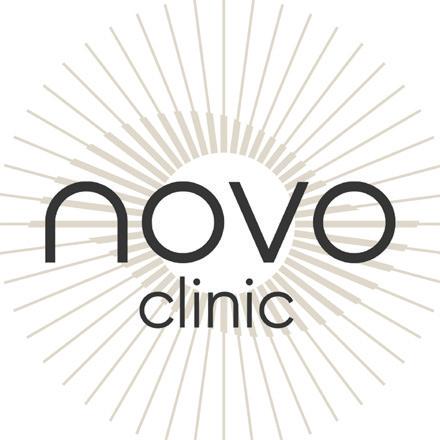
Orthopaedics & Sports Medicine:
The orthopaedic & sports medicine team focuses on the diagnosis, correction, prevention, and treatment of patients with skeletal deformities - disorders of the bones, joints, muscles, ligaments, tendons, nerves and skin.
Spine:
CaymanSpine, Center for Motion Surgery, is located in NovoClinic. This integrated spine practice is leading motion research, innovation, patient care and education. Spinal diseases often cause pain when bone changes put pressure on the spinal cord or nerves.
Gynecology & Urogynaecology:
Dr Richter leads a comprehensive women's health practice. A gynaecologist specialises in female reproductive health. A Urogynaecologist is a surgeon who has specialised in the care of women with pelvic floor disorders.
Dermatology:
Dermatology is the branch of medicine dealing with the skin, nails, hair and its diseases. It is a specialty with both medical and surgical aspects.
Aesthetic Services:
Designed to rejuvenate and cleanse your skin, their aesthetic services are nonsurgical, minimally-invasive alternatives to skin enhancement surgery and other extensive treatments.

CaymanSpine
Highlights:
• Evidence-based, conservative care treatment options for orthopaedics & sports medicine
Endoscopic and MIS motionpreserving treatment options
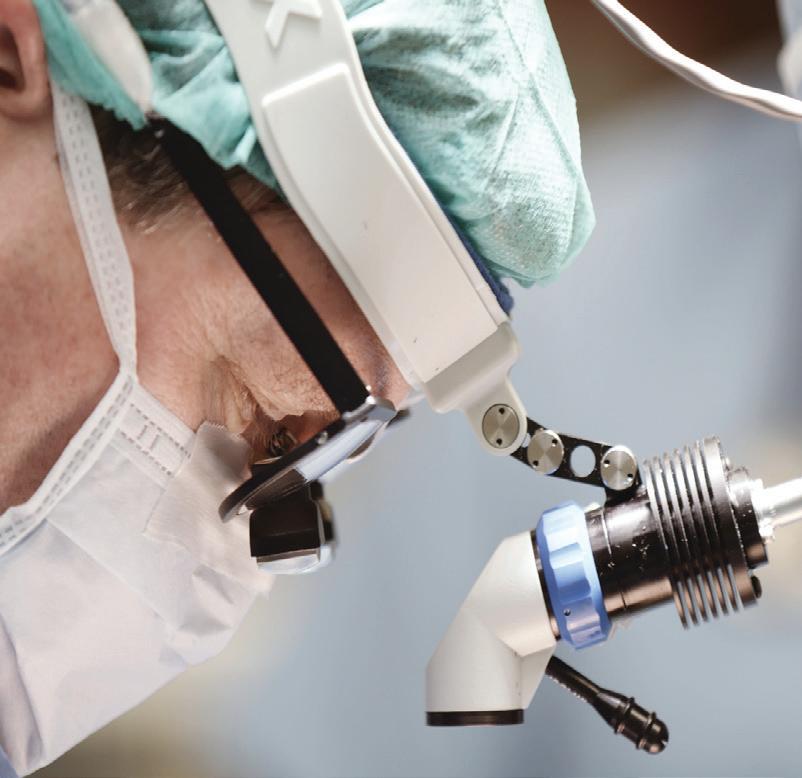
Surgical and non-surgical treatment options to relieve pain while increasing mobility
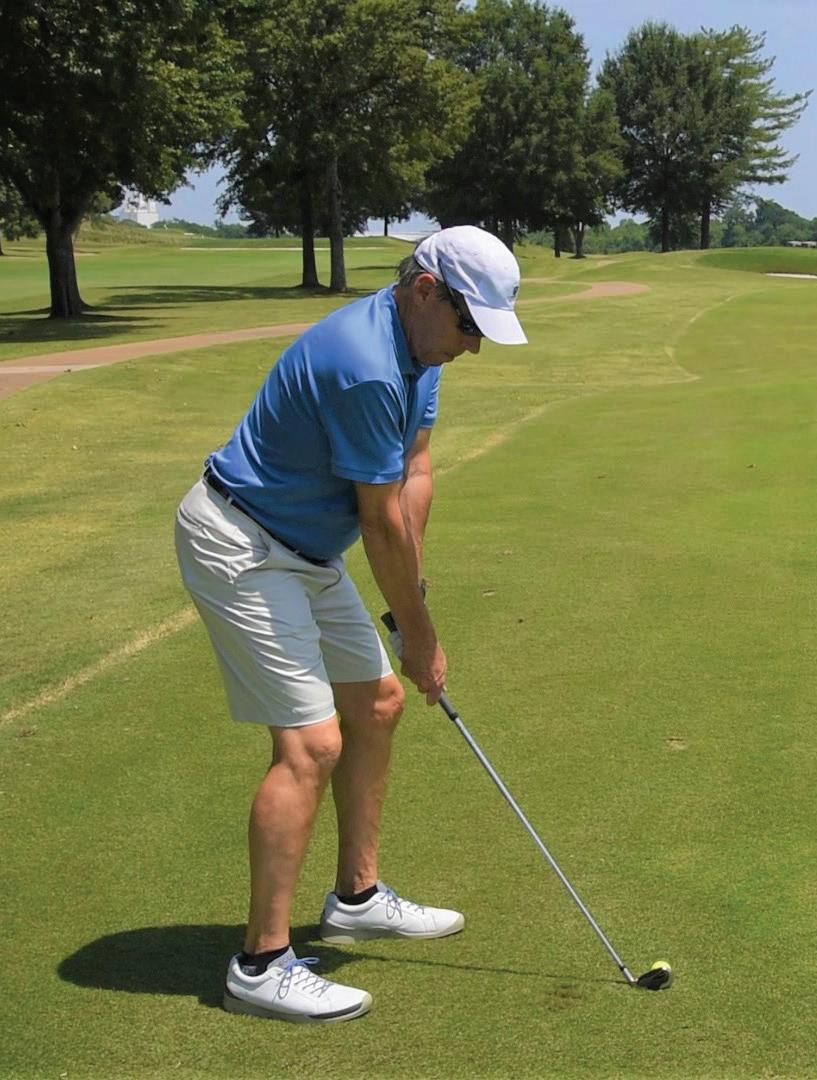
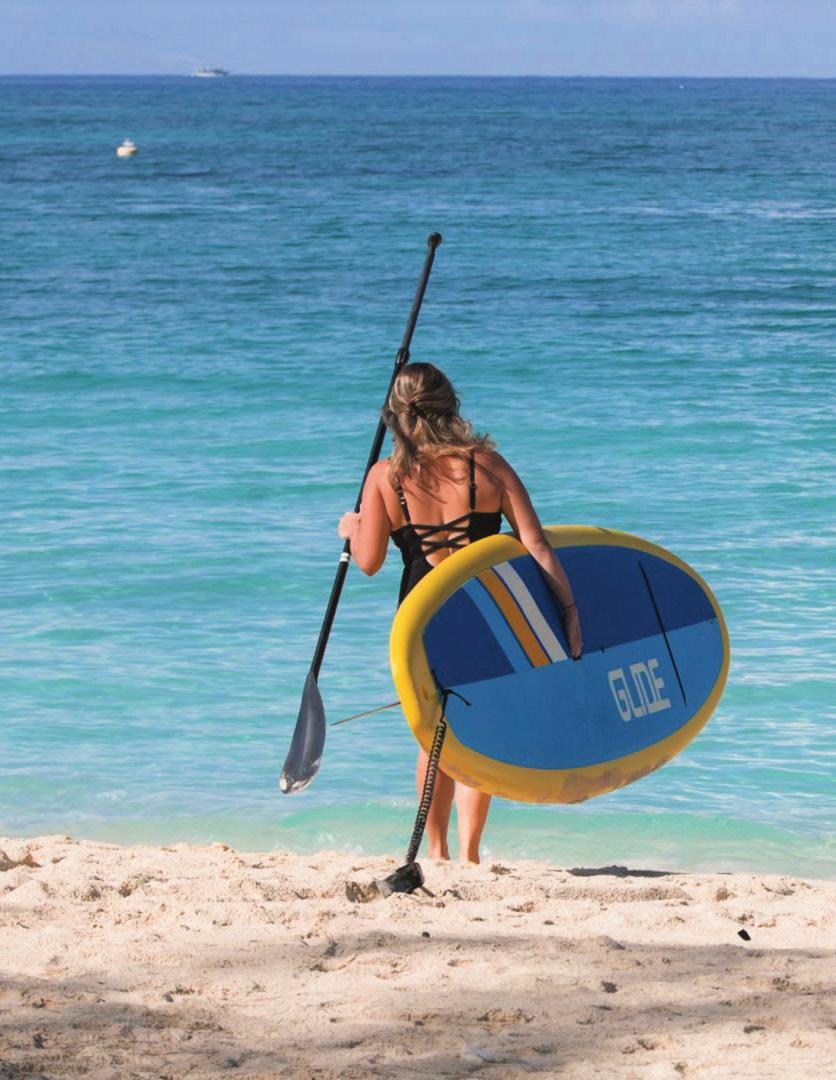
Compression fractures and geriatric care
Deformity correction
Specialised women’s health services
Dermatology and venereology services for all aspects of skin care
NovoClinic &
with evidence-based medicine. (345) 746 6080 | BritCay House, 236 Eastern Avenue, George Town clinic@novocayman.com / info@caymanspine.com | www.novoclinic.ky / www.caymanspine.com
•
•
•
•
•
•
Cayman Parent Magazine | Health140 HEALTH

141 HEALTH www.caymanparent.com Health Contents Occupational Therapy, childhood illnesses, orthodontics & more.. Understanding Occupational p142 Therapy Keeping Up with Your Health p145 Children's Orthodontics p150 Explained Common Childhood Illnesses p152 Pain Management p155 Identifying Learning, p156 Behavioural or Cognitive Issues Doctors Q&A p160 Tooth be Told: Dental Care p162 for Kids Getting Immunisations Right p164 Protecting Your Child's Vision p166 Health Book Club p168 The Listings p169 Photo courtesy of Daria Keenan Photography
Understanding Occupational Therapy
Occupational Therapy is a holistic profession that works alongside people when illness, disability, injury or development impacts their ability to participate in the things that are meaningful and important to them. Every baby, child, adolescent and adult is unique in their development, skills and interests; however, to ensure a child reaches their maximum potential, certain skills are needed. Trust your intuition as a parent. You are the expert on your child. If you feel like something isn’t right, seek help. – Lyndal Alexander, Occupational Therapist at Chatterbox.
Life stage
Early intervention
Early intervention focuses on the early years – babies and toddlers, their development and attachment within the family. This is the time when your baby’s brain is undergoing huge amounts of growth and is being wired for life.
Babies who were born prematurely or had difficulties in their first few months of life may struggle with their development thereafter, but with early support, a lot of these struggles can be overcome.
What to look out for
• Difficulty moving their body, i.e. lifting their head, muscles are tight or floppy
• Delays in motor or language skills by comparison to children of a similar age
• Skipping crawling stage
• Behaviours that you do not see in other babies and toddlers
• Oversensitivity to their environment
School-going children
Children aged 4 -12 years develop in leaps and bounds and must learn to participate in increasingly varied and complex environments. They are improving their movement skills –climbing trees, playing outdoors, and playing sport; playing with friends and learning how to interact in different social settings. They develop their ability to communicate, and their thinking becomes more complex as they progress through the education system. The opportunities they are afforded at home and school to test out and use all their skills will impact their performance and development.
Following the COVID-19 global lockdown, we are seeing a rise in childhood anxiety. The mental health of school-aged children, in particular, is of growing concern. When a child is anxious, there is less capacity for attention and participation.
• Different behaviour in relation to their peer group
• Teachers are great at detecting difficulties in class, so listen closely to the observations they share about your child
• Difficulty managing their ‘big emotions’ and staying calm
• Struggling to pay attention during homework, following instructions
• Having trouble doing everyday skills, i.e. dressing, bathing, eating
Adolescents
• Poor school performance and concerns raised by teachers
Teens aged 13-15 years have another spurt of significant brain development and this is often matched with the increased need for sleep. Teens are becoming more independent.
• Difficulty with decision-making, planning or reasoning skills
• Struggling with everyday skills, i.e. packing school bags, making a simple meal, dressing themselves
• Struggling with social interactions or bullying
• Mental health concerns or low self-esteem
Cayman Parent Magazine | Health142 HEALTH
TOP TIP
Wait and see’ is often a popular recommendation, but early intervention is key. Although our brains can learn and change throughout our lives, the most prolific growth is during the first three years of life and again in early adolescence. Early intervention means that your child has the best opportunity to create the necessary connections in their brain and body that will support the rest of their development as they get older.
What Occupational Therapy Looks Like
Therapy sessions are unique to each child, and while they look different for everyone, they all include elements essential to childhood: independence and play! There are many strategies and techniques in therapy, but there is no ‘one-size-fits-all’ approach and no one technique is better than the next. Rather, it is about finding a therapist that your child connects with and who can find the right therapeutic approach for your child and their needs. A sample of approaches include: Reflex Integration, Sensory Integration, DIR Floortime, Neurodevelopmental Therapy, trauma-informed care, handwriting programmes and many more.
It is important to note that therapy is not a ‘quick fix’ approach and takes time, working at the child’s pace of physical, emotional and cognitive readiness and capacity. Often therapists will also
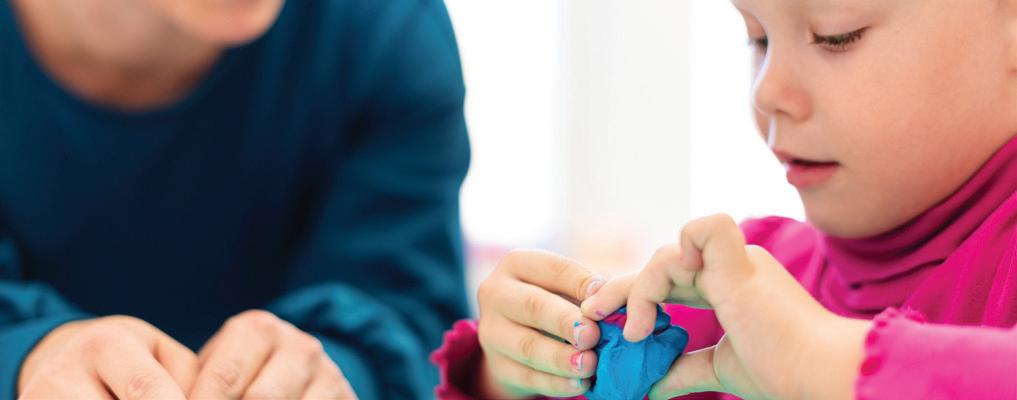
encourage caregivers or school teachers to implement strategies to ensure that there is as much repetition as possible across multiple environments. Therapy can take place at home, school or at a therapy centre depending on the best fit for the family and the needs of the child and may involve strategies directly with the child, or to adapt his/her environment or the activities they need to participate in.
Paediatric Occupational Therapy can work with children who are diagnosed with: Attention-Deficit Hyperactivity Disorder, Autism Spectrum Disorder, Cerebral Palsy, disorders of Executive Functioning, Intellectual Impairment, Learning Disabilities, Mental Health conditions (e.g. anxiety), Sensory Processing Disorders, and various syndromes, to name a few. Please contact an Occupational Therapist or your paediatrician if you’re concerned about any particular diagnosis or whether your child should receive therapeutic support.
For a list of Occupational Therapists in the Cayman Islands, please turn to page 182.

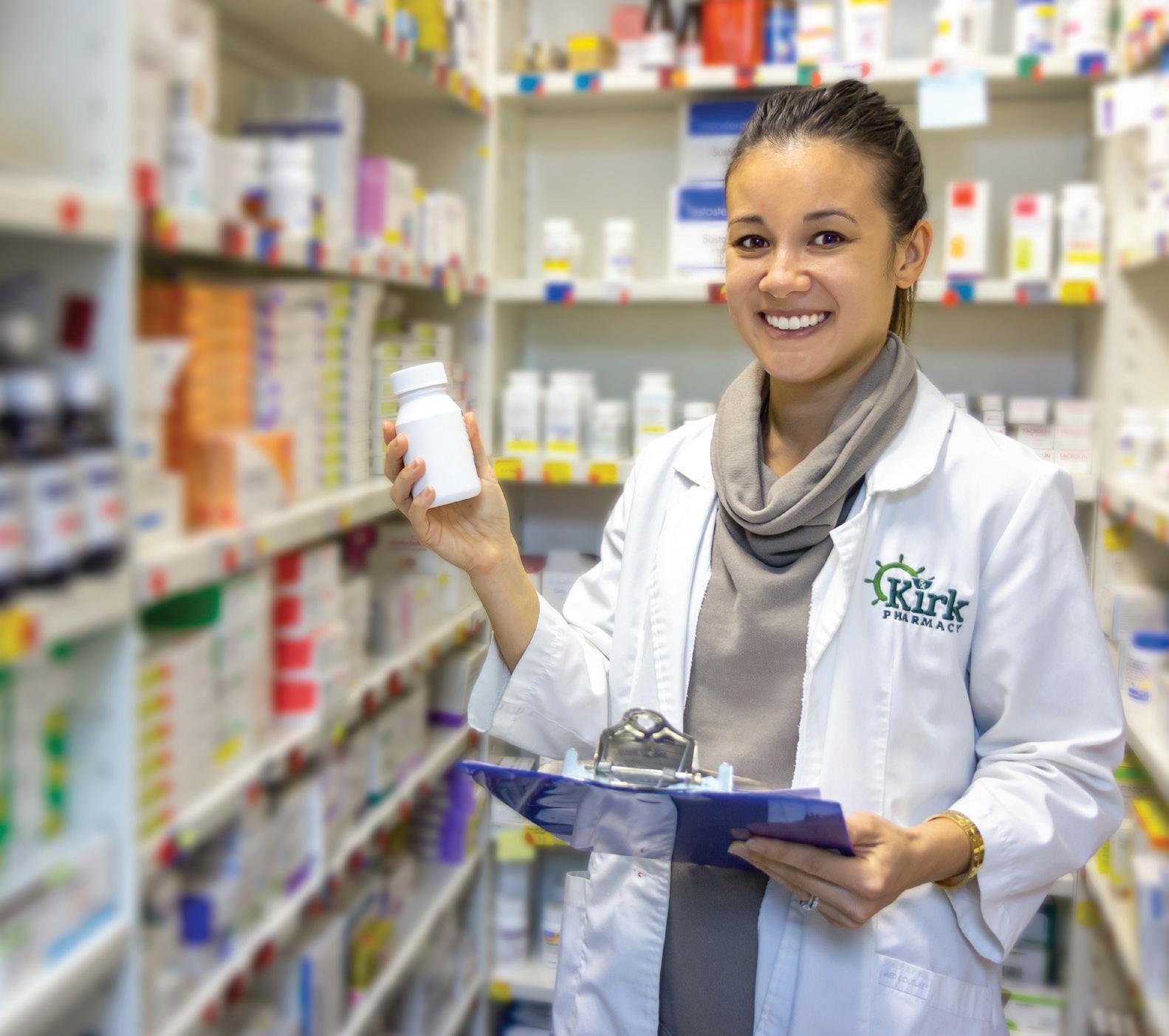
www.caymanparent.com 143 HEALTH
TELEPHONE : 949–7022 EXT. 164 MON SAT: 8am – 9pm • SUN : CLOSED • HOLIDAYS : 10am – 6pm ORDER PRESCRIPTION REFILLS: pharmacy@kirkmarket.ky Ĥ Prescription and Non-Prescription Drugs Ĥ Vitamins and Herbal Supplements Ĥ Blood Glucose and Blood Pressure Monitors At Kirk Pharmacy we do more than fill your prescription. Our Pharmacists take the time to explain your prescription to you and provide written information on how to use your medication safely and effectively. We can also review your medication to help ensure they are contributing to your optimal health. Ĥ Delivery Ĥ Available Special Orders Ĥ Personal Pill Packs
mental



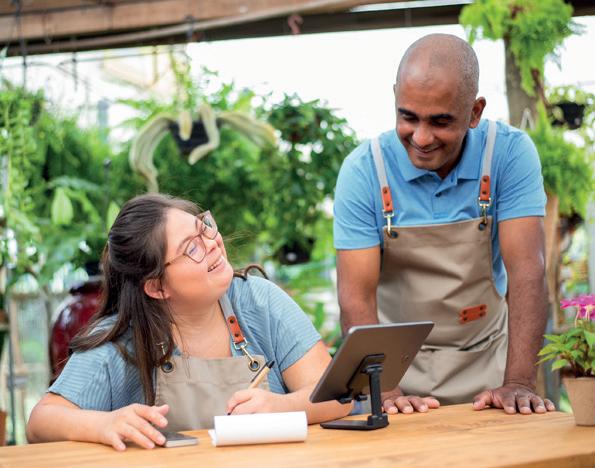


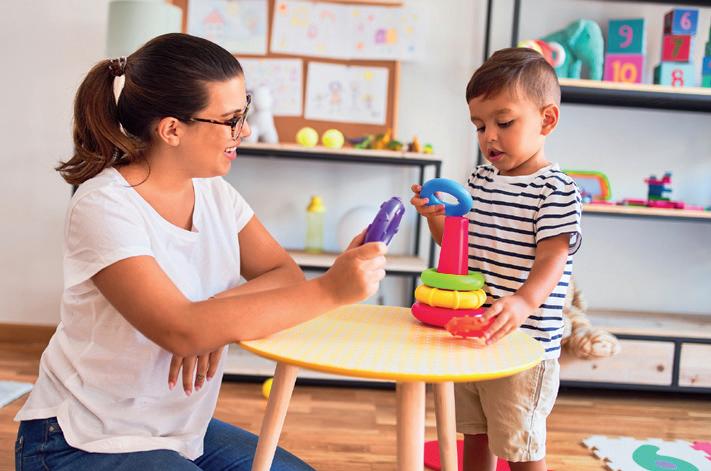
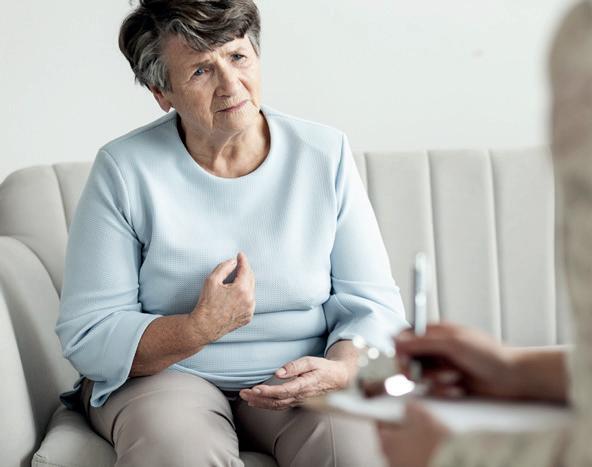
Dedicated to providing psychological,
health and developmental support for every age Smith Road Centre, 3rd Floor Smith Road, George Town (345) 949 9355 info@wellnesscentre.ky www.wellnesscentre.ky The Wellness Centre is a licensed health facility, with a team of clinical specialists who provide a wide range of comprehensive psychological, mental health, behavioural interventions and corporate wellness services to individuals, families and organizations. Psychological Services • Clinical & Educational Assessments • Specialized Diagnostic Services • Reflective Supervision | Clinical Supervision • Marriage & Family Therapy • Individual Therapy (child & adult) • Child & Parenting Services • Play Therapy | Filial Therapy • Maternal Wellness & Infant Mental Health Developmental Support Services • Autism & ADHD Community Experts • Developmental Screening & Assessment • Early Start Denver Model (ESDM) • ABA Therapy | MyWayTM • Play2Grow: an enrichment early childhood programme • The Growing BrainTM Training • Parent / Caregiver Training & Support • Social Skills: PEERSTM • Vocational & Independent Living Skills • Disability Employment Support • Disability Policy Consultation Mental Health Needs we support • Anxiety Disorders • Depression | Mood Disorders • Behavioural Disorders • Grief & Loss • Trauma • Suicide & Self-Harm • Infant Mental Health (PostNatal & Attachment) • Eating Disorders & Addiction
Keeping Up with Your Health
Throughout your life it is important to have regular health screenings to ensure you are maintaining good health. Advances in medical technology now mean we have access to a wide range of health tests. By staying on top of these screenings we ensure early detection which is key to the successful treatment of many diseases. — Dr. Virginia Hobday MBE MBBS MRCGP M PHIL at Cayman Clinic
Standard screenings start as young as 25, even younger if you have a family history of certain diseases, so it’s not something that should be delayed until we are older.
As parents, we lead busy lives, but nothing is more important than our health and being there for our children. So make sure you prioritise your health by getting the recommended screenings for your gender and age.
All the screenings covered in this article are offered in the Cayman Islands and are performed by world class doctors using the latest equipment and methods.
Benefits of Screenings (Source: NHS)
• Screening can detect a problem early, before you have any symptoms.
• Detecting a problem early can mean that treatment is more effective.
• Finding out you have a health problem or an increased risk of a health problem can help people make better informed decisions about their health.
• Screening can reduce the risk of developing a condition or its complications.
• Some deaths from bowel cancer, breast cancer and cervical cancer can be prevented.
Costs of Screening Tests
The cost of screening tests varies depending on your insurance policy, so check with your doctor or GP to find out the costs. Many charities in Cayman also offer free screening services. See page 149 for details.
MORE INFORMATION Contact your doctor to find out what screenings are available to you. Turn to page 172 for a list of doctors in the Cayman Islands.
Screening Tests
Blood Pressure Screening
• What does the test detect? It checks if your blood pressure is too high or too low.
• Why is the test important? High blood pressure, or hypertension, can increase the risk of heart attacks, strokes and kidney disease.
• What’s involved in the test? A blood pressure cuff is wrapped around the top part of your arm. Your doctor will inflate the cuff, from which a gauge will measure your blood pressure.
• What happens next? If your blood pressure is too high or too low, you may be required to make lifestyle changes such as adopting a healthy balanced diet and establishing a regular exercise routine. You may also be required to take medication to control your blood pressure.
• Screening age & frequency: The NHS recommends that all adults over 40 years of age have their blood pressure tested at least every five years so any potential problems can be detected early.
Breast Cancer Screening
• What does the test detect? It can detect breast cancers when they are too small to see or feel.
• Why is the test important? 1 in 8 women in the UK are diagnosed with breast cancer during their lifetime and the likelihood of getting it increases with age. Early detection through mammogram screening is key to having a good chance of recovery. Regular mammograms also allow your doctor to compare changes in the breasts over the years.
• What’s involved in the test? A mammogram is an X-ray picture of your breast in a special machine. A mammographer will place your breast on a plastic plate. Another plate will firmly press your breast from above. The plates will flatten the breast, holding it still while the X-ray is being taken. The steps are repeated to make a side view of the breast. The other breast will be X-rayed in the same way. It can be uncomfortable for a few moments at a time but the whole process is over in about 10 minutes.
• What happens next? If the results come back abnormal that does not always mean there is cancer but you will need to have additional exams and biopsies before the doctor can tell for sure.
• Screening age & frequency: Women ages 40-44 can start to have mammograms every one to two years. Women ages 45-75 should have a mammogram every one to two years, depending on their risk factors.
Cervical Cancer Screening
• What does the test detect? This is a combined test that checks for the human papilloma virus (HPV) infection and
www.caymanparent.com 145 HEALTH
changes in the cells covering the neck of the womb. These changes could later develop into cervical cancer if they aren’t treated.
• Why is the test important? It’s extremely effective at preventing cervical cancer and saves around 4,500 lives every year in England alone.
• What’s involved in the test? After undressing from the waist down, you lie on your back with your knees bent and apart. Your nurse or doctor will use an instrument called a speculum to gently open the vagina, so that they can see your cervix. They’ll then use a small brush to take a sample of cells from your cervix which they'll send to a lab to be tested. The test takes just a minute or two, while it can feel uncomfortable, usually it does not hurt.
• What happens next? If you get an abnormal result, it doesn’t mean you have cancer. You may be asked to repeat the test. If the abnormality is not resolved, you may be invited back for a colposcopy which is a 15-20 minute procedure where a small sample of tissue is removed for examination in a laboratory. If these cells are found to be abnormal you will then have a further procedure to remove all the abnormal cells. This procedure is carried out in a doctor's office while you're awake but your cervix is numbed and you can go home the same day. You will then need to have regular screenings every six months to check for abnormal cells and HPV.
• Screening age & frequency: In the Cayman Islands, screening for cervical cancer begins at the age of 21 and continues every two years until age 65. Women over 65 only need to be screened if one of the previous three tests were abnormal. Women of any age who receive abnormal test results may be advised to have more frequent screenings.
Cholesterol Tests
• What does the test detect? It measures if you have too much of a fatty substance called cholesterol in your blood.
• Why is the test important? Having too much cholesterol can block your blood vessels and increases your risk of having heart problems or a stroke. There are no symptoms of having high cholesterol, the only way to measure it is with a test.
• What’s involved in the test? It’s a simple blood test, your doctor may recommend a blood draw from your arm with a needle or a finger-prick test.
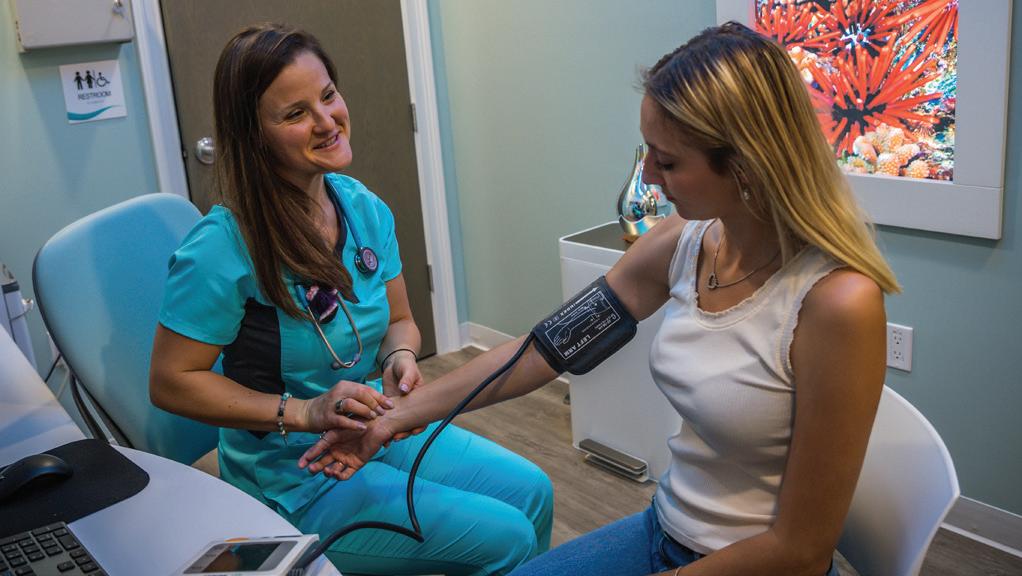
• What happens next? The test measures four levels: 1.
Good cholesterol (called HDL) – this makes you less likely to have heart problems or a stroke, 2. Bad cholesterol (called LDL and non-HDL) – this makes you more likely to have heart problems or a stroke, 3. Triglycerides – a fatty substance similar to bad cholesterol, and 4. Total cholesterol - an overall measurement. If your levels of bad cholesterol are high then the doctors will look at other risk factors including your family history, blood pressure, BMI and lifestyle and recommend a course of action. This might include a lifestyle overhaul that involves eating better, giving up alcohol and smoking and increasing physical activity. Doctors may also recommend further, more detailed cholesterol testing. You may be prescribed medication that will help lower your cholesterol and reduce your risk of having a stroke or heart attack.
• Screening age & frequency: Healthy adults between the age of 40-74 should have a cholesterol test every five years. If you have a family history of heart disease your doctor may recommend more frequent testing.
Bowel Cancer Screening
• What does the test detect? It checks for traces of bowel cancer, which includes cancer of the colon and rectum.
• Why is the test important? Bowel cancer is the fourth most common cancer in the UK and the second most fatal cancer; however, bowel cancer is treatable and curable especially if diagnosed early.
• What’s involved in the test? There are three types of tests involved. For screening purposes you will most likely be offered the Faecal Immunochemical Test (FIT) which looks for indicators of cancer in your stool. If any abnormalities are found then you will be invited for a colonoscopy or a virtual coloscopy. In order to prepare for the test, you will be given a special laxative to empty the bowel. A colonoscopy is a 30-45 minute procedure where a long, thin, flexible tube with a small camera inside it is passed into your rectum and colon and the doctor will look for pre-cancerous polyps, and any other abnormalities. A virtual coloscopy is a 3D scan of your abdomen and pelvis which will show polyps or other abnormalities in the colon or rectum.
• What happens next? Before you go home, your doctor will tell you if they removed any growths (polyps) or tissue samples (biopsies) from your bowel. These will be tested for cancer and you will receive the results in a few weeks.
• Screening age & frequency: Healthy adults aged 50-74 should have a screening test every two – five years. Those with a family history of bowel cancer may be advised to start screening earlier.
Skin Cancer Checks
• What does the test detect? A full body skin exam can identify suspicious growths or spots that may be a symptom of skin cancer. Automated Total Body Dermoscopy screening, also known as mole mapping, scans the whole body and photographs every mole and blemish. At future screenings moles can automatically be compared to the
146 HEALTH Cayman Parent Magazine | Health
Photo by Rebecca Davidson
Family is everything. Which is why we work hard to keep yours healthy.

At Doctors Hospital, we go beyond traditional medicine to bring you tailored, holistic programs for your entire family. Through our commitment to best-in-class medicine and patient-centric care, we’ll help you and yours live a vibrant, healthier, and longer life.
Wellness
Women’s Health
Health
Cardiology
Imaging
Laboratory Services
Discover the difference your family deserves.
•
•
• Men’s
• Child & Teen Health • Surgical Services •
• Oncology •
•
• And more...
Learn more at doctorshospitalcayman.com
previous scans and any moles that have changed can be reliably identified.
• Why is the test important? Living in the Cayman Islands, we are exposed to dangerous UV rays 365 days a year so it’s important to remain vigilant. With skin cancer early detection is key and the survival rate is over 98% at five years if the cancer hasn’t spread.
• What’s involved in the test? With Automated Total Body Dermoscopy screening you are required to stand in your underwear while the computer takes pictures of your whole body. It takes about 15 minutes. The computer captures and records all your moles.
• What happens next? If there are any moles causing concern then you will be invited back for a biopsy which will then be sent to the lab for testing for skin cancer.
• Screening age & frequency: All adults in Cayman should see a dermatologist or their GP at least every 12 months.
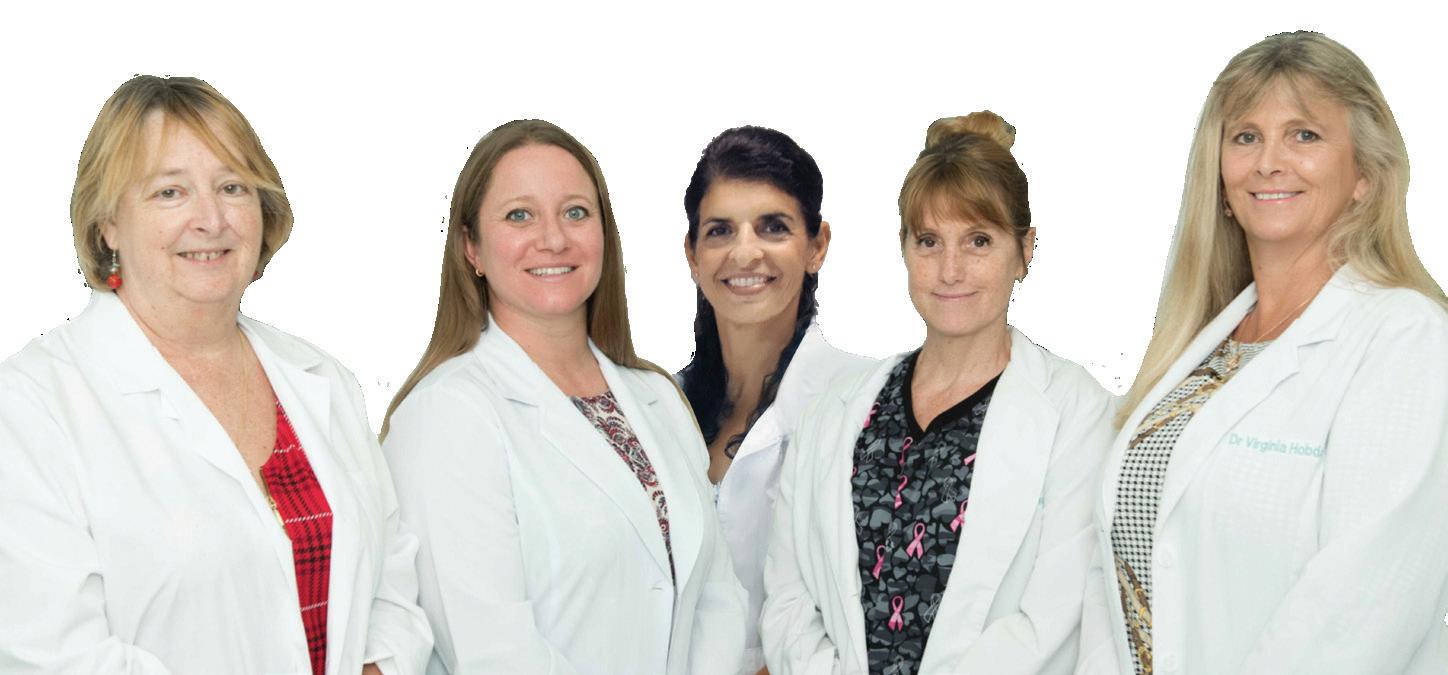
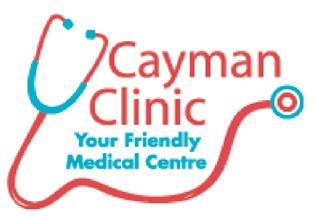
Prostate Cancer Tests
• What does the test detect? There is no specific screening test for prostate cancer, however, a blood test, called a prostate-specific antigen (PSA) test, measures the level of PSA which may help detect prostate cancer, even early cases.
• Why is the test important? Prostate cancer is more common in older men and in Afro-Caribbean men.
• What’s involved in the test? Patients will have a simple
blood test, and the sample will be sent to the lab for testing.
• What happens next? If you have a raised PSA level, you may be offered a digital rectal exam (DRE) or an ultrasound of the prostrate. Doctors may also order an MRI scan or a biopsy of the prostate to help decide if you need further tests and treatment.
• Screening age & frequency: Screening for AfroCaribbean men begins at age 45. All other men over 50 can request a PSA test, but they are not offered as standard. Doctors recommend testing every year.
Annual Wellness Checks (AWC)
An Annual Wellness Check is a preventative health check, a bit like a full body MOT, that gives you an overview of your current health. An AWC can help spot any issues early on, meaning you get timely treatment. You can also have all the tests done in one day, at one clinic, so it’s more time efficient for busy people. Adults of any age can start getting AWCs to keep on top of general health; most adults begin having them regularly when they become parents as health becomes even more important to them.
An AWC can include any number of tests and examinations, usually with add on tests available. Tests can include: Complete Blood Count (CBC), Fasting Blood Sugar, A1c, Lipid (Fats) Profile, Liver Function Panel, Kidney Function Panel, Uric Acid, Thyroid Panel (FT3, FT4 and TSH), Urine Examination, ECG, Chest X-Ray and a Physician Consultation. Additional tests
MEDICINE
Cayman Parent Magazine | Health148 HEALTH
• Healthcare for the family, incl child & adolescent health • Women’s health, pap smears and family planning • IUD’s & contraceptive implants • School & Scholarship, Immigration Medicals • Certified Aviation Medical Examiner • Dive medicals/diving related injuries • Hyperbaric oxygen therapy consults • Minor injuries/surgical procedures (sutures, steristrips & glue) • Illnesses requiring immediate care, incl. intravenous treatment • Sports injuries, prevention & treatment for overuse • Platelet Rich Plasma (PRP) • Triggerpoint Injections • Basic fracture care/ splinting • Walk-ins & Emergencies accepted • Lab Services FAMILY
Dr. Virginia Hobday MBE MBBS MRCGP Dr. Denise Osterloh MB ChB Dr. Fiona Robertson MBBS MRCGP Dr. Heidi Fahy MBBS DRCOG MRCGP SPORTS MEDICINE Dr. Melissa Mascaro MD CAQSM ULTRASOUND Nina Baxa RDMS IDEAL PROTEIN WEIGHT LOSS WE SPEAK FRENCH / TAGALOG / FARSI / AFRIKAANS Mon-Fri: 8am - 5.30pm Sat: 9am -2pm 439 Crewe Rd, GT www.caymanclinic.ky cayman.clinic@gmail.com (345) 949 7400
can range from cardiac testing, ultrasounds, cervical cancer screening, Bone Health Screen, Diabetic Screening and many more. Each AWC can be tailored to your needs.

Contact your GP, Cayman Clinic, Health City, Health Services Authority (HSA) or Total Health to book your AWC.
Free Screenings
If you have a basic health insurance policy or no insurance, then the following local charities can help you:

• The Breast Cancer Foundation (BCF) provides vouchers for mammograms and breast ultra sounds for all Cayman residents whose health insurance doesn’t cover them or if you have no insurance at all. It also offers many other free services for those worried or diagnosed with breast cancer. For more information call (345) 923 1135 or (345) 936 1135 or email: info@bcfcayman.com.
• The Lions Club of Tropical Gardens gives free mammogram vouchers during the month of October to highlight breast cancer awareness. Email: bcawareness@ gmail.com.
• The Cayman Islands Cancer Society (CICS) provides screenings for people in Cayman who are fighting cancer. Individuals are able to access their Charity Voucher Programme which offers pap smear tests, prostate exams and mouth and throat cancer screenings. The Cayman Islands Cancer Society also provides financial aid for cancer patients in need. For more information call (345) 949 7618 or visit www.cics.ky.
• The Lions Club of Grand Cayman provides free prostate cancer screenings (PSA tests) in mid-November at the Lions Center every year. For more information call (345) 547 9559.
• The Cayman Heart Fund provides free wellness screenings to the public regardless of their status or insurance coverage. Tests include blood pressure, height, weight, body mass index (BMI), waist circumference, cholesterol and glucose. Financial aid is also possible on a case-by-case basis for Cayman residents and to families in Cayman when their child suffers from a congenital heart defect. For more information call (345) 916 6324 or visit www.caymanheartfund.ky.
Dr. Hobday has been practising as a primary care physician in the Cayman Islands for 24 years. She worked with the Health Services Authority (HSA) and Cayman Islands Hospital before joining Cayman Clinic in 2001. She is Medical Director for Jasmine Hospice & Palliative Care, along with the Cayman Islands Breast Cancer Foundation.
www.caymanparent.com 149 HEALTH
Children's Orthodontics Explained
When you hear the word 'orthodontics', your first thought is probably a teenager with braces. But the truth is, taking your kids to see an orthodontist before they enter their teens is super beneficial! From initial appointments to final treatments, the answers below will help ensure that everyone is completely aligned! — Dr. Terry Giangreco D.D.S., M.S at Cayman Dental (Orthodontics)
• Protruding teeth, difficulty closing lips
• Crowded, crooked and blocked out teeth
• Irregular teeth spacing
• Mouth breathing and airway issues
• Upper and lower teeth do not meet when biting
• Grinding or clenching teeth
• Frequently biting cheek or roof of mouth
• Thumb and finger sucking or other oral habits
Speech difficulties
Facial asymmetry, chin off-centred
Self-esteem concerns with how their teeth look.
These symptoms do not necessarily mean your child will need treatment, but the orthodontist will use their education, expertise and experience to create a customised plan to address all concerns.
What is the Difference Between a Dentist and an Orthodontist?
When Should My Child First See the Orthodontist?

Orthodontic treatment is extremely important for children, but many parents may not know the best time to begin. The American Association of Orthodontists recommends children see an orthodontist by age seven. This may seem too young, but it’s actually best to visit an orthodontist when the child has both baby and permanent teeth. The orthodontist will be able to recognise spacing or bite issues even in their earliest stages and can intervene before any damage is done or more invasive treatment is needed.
If your child is younger than seven and you notice something that appears 'off', it’s not necessary to wait or get a recommendation from your dentist to get a first check-up. Similarly, if your child is eight or older, it is not too late for their first check-up with an orthodontist.
Possible Signs of Orthodontic Trouble
If you’re still not sure your child needs braces or other early orthodontic treatment, you can check for the following signs:
• Early or late loss of baby teeth
• Difficulty biting and chewing
Dentistry is a broad medical speciality that deals with oral health – specifically your teeth, gums, nerves in the mouth, and jaw. A dentist generally provides the following treatment: tooth extraction, filling cavities, repairing teeth, removing tooth decay, root canals, gum care, and the list goes on. Orthodontists are general dentists who undergo additional training in the prevention, diagnosis and treatment of dental and facial irregularities. They provide a wide range of treatment options to straighten crooked teeth, fix bad bites and align the jaws correctly.
Since an orthodontist receives specialised training to diagnose and treat problems affecting the alignment of the teeth, they’re your best bet for correcting these issues. An orthodontist doesn’t just have more training than a dentist in this particular area of oral health, they also take part in ongoing training to stay up to date on the latest breakthroughs in oral healthcare. Not to mention, aligning teeth is what they do all day, every day!
It is important to remember that even if you are referred to an orthodontist, you should not stop seeing your general dentist. They are not one and the same, as your general dentist will still need to evaluate your overall oral health, during and after your treatment by an orthodontist. Your orthodontist is there to help correct alignment issues affecting your teeth, while your dentist is there to keep your teeth and gums healthy throughout your entire life.
150 HEALTH Cayman Parent Magazine | Health
•
•
•
What to Expect During Your First Visit with the Orthodontist

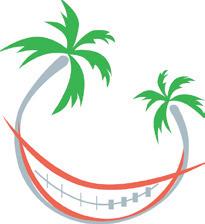
When you or your child first goes to the orthodontist, they will meet with a team member and have records collected, which include a panoramic x-ray and intraoral photos. After an oral exam and a review of the dental records, your orthodontist will let you know of any concerns or potential issues they see and let you know what the best course of action would be to correct them.


Your child’s first appointment is an excellent time for you to give the orthodontic team any medical or personal history about your child that could help determine the best course of treatment. Having your child visit the orthodontist early helps them get comfortable with the doctor and the team.
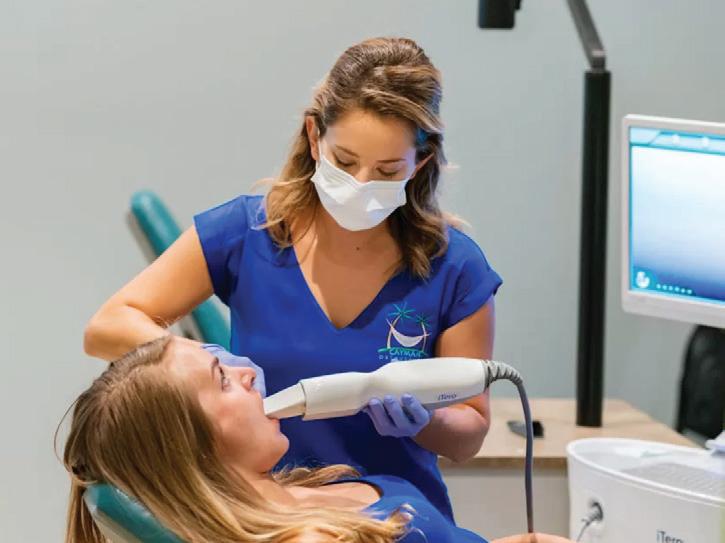


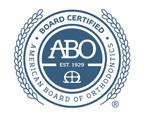

How Long Will Treatment Take?

When it comes to moving the teeth and jaws safely, it usually takes at least a year for early phase treatment and over a year for full phase treatment to get the teeth fully corrected, biting correctly, and in harmony with the jaws and lips. The technology and materials orthodontists use, and the time it takes to properly move teeth, make treatment an important investment in longterm dental health.
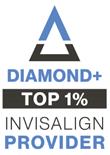
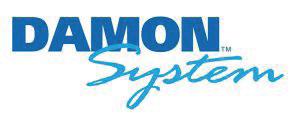
www.caymanparent.com 151 HEALTH
Orthodontics at Cayman Dental Specialists in braces and Invisalign for children and adults Specialists in orthodontics Highly trained team of practitioners Use of the latest innovations in dental treatments Clear treatment options EXCEEDING EXPECTATIONS ONE PATIENT AT A TIME CONTACT (345) 949 5090 www.caymanorthodontics.com 18 Forum Lane Camana Bay George Town FUN FACT: Four years of dental school + 3,700 hours of specialised orthodontic training = 100% focus on aligning teeth and jaws. - American Association of Orthodontists
Common Childhood Illnesses
Growing up is a busy time for small bodies; it can sometimes feel like every week brings a new illness! But do not fear – here you will find clear advice on how to identify and treat some of the most common conditions at home, as well as the red flags that mean it’s time to see your paediatrician. Dr. Jasmina Marinova, MRCPCH MD, paediatrician and neonatal expert at Integra Healthcare
Worms
Brief Description
Pinworms and threadworms are intestinal parasites that are common in children. They have the tendency to spread very easily. Sometimes you can see the worms in the stool, but not always, so your child may only need treatment based on their symptoms.
See Your Paediatrician
Sore Throat
Brief Description
Common Symptoms
•Irritability and restlessness
•Abdominal pain
•Itchiness, especially at night
•Disturbed sleep
•Recurrent bladder infections/irritation
How to Treat at Home
•Use over-the-counter medications recommended by a pharmacist
•Treat the whole family and implement strict hygiene measures
If… • Your child is younger than two years old or has recurrent episodes.
Common Symptoms
Often caused by a viral infection, which gets better with supportive treatment. Sometimes they can be caused by bacteria called Group A Streptococcus (Strep Throat), which needs treatment with antibiotics to prevent complications. Strep Throat is unusual in children under two years of age. Children over four years may also present with a rash. In rare cases, sore throat can be a symptom of a more serious illness such as Infectious Mononucleosis.
•Painful throat
•Fever
•Bad breath
•Reduced oral intake
•Vomiting
•Swollen neck glands
•Trouble swallowing
How to Treat at Home
•Use over-the-counter pain relief, like paracetamol or ibuprofen
•Make sure your child takes enough fluids
•Offer soft and cold food, like yoghurt or frozen ice lollies
•In older children, try using an oral antiseptic spray or gargle with an antiseptic solution
See Your Paediatrician If… • Their fever does not respond to paracetamol (Tylenol) and ibuprofen (Advil), or lasts more than 48 hours• Child is not taking fluids and is at risk of dehydration • Child is drooling because they are unable to swallow their saliva • Child is lethargic or irritable • Your child has been in contact with someone who has Strep Throat.
Vomiting & Diarrhoea
Brief Description
Usually caused by a stomach bug, although it can be caused by food poisoning. In rare cases, it can be a symptom of a different illness, such as a urinary tract infection.
Common Symptoms
•Loose and frequent stools
•Mucus and/or blood in the stool
•Vomiting food and fluids
•Loss of appetite
•Abdominal pain
•Fever
How to Treat at Home
•Keep infants hydrated by frequent nursing, and older children by offering them fluids in small amounts, but often (like Pedialyte, water, or diluted apple juice)
•Avoid solids until vomiting settles
152 HEALTH Cayman Parent Magazine | Health
See Your Paediatrician If… • Your child is not keeping any fluids down and thus at risk of dehydration
• Their vomit contains blood or bile • There is reduced urine output • Your child becomes lethargic or restless.
Skin Infections
Brief Description Common Symptoms
Skin infections can be caused by viruses, bacteria, or fungi. Skin gets infected easily if it is already affected by a different problem such as eczema, insect bites, cuts and scrapes.
If the infection penetrates the deeper layers of the skin, it is called cellulitis, a very serious condition.
The rash depends on what the infection is caused by. The most common rashes are:
•Impetigo, caused by bacteria
Blisters, crusts or little ulcers anywhere on the body, but mainly around the mouth or hands
•Ringworm, caused by fungi
Red, itchy, or scaly patches, with defined edges that may resemble a ring, anywhere on the body
How to Treat at Home
•Remember to keep the skin clean and moist
•Try to avoid irritants to the skin such as soap or fragrances
•Try to avoid scratching the skin
See Your Paediatrician If… • Your child's condition gets worse or becomes cellulitis• If the rash/area is getting bigger or will not stop bleeding • Please note: all cases of Impetigo or Ringworm must be treated with topical or oral medications.
Ear Infection
Brief Description
Ear infections are caused by fluid behind the ear drum (middle ear infection) or an infection of the ear canal (swimmer’s ear). Under 5s are at higher risk of ear infection, especially after or along with upper respiratory tract infection. Occasionally, earache may be due to tooth pain radiating to the ear.
Common Symptoms
•Ear pain
•Pulling or rubbing the ears
•Fussiness and irritability
•Fever
•Reduced oral intake
•Leakage from ear
•Redness around or behind ear
•Reduced hearing
How to Treat at Home
•Administer over-the-counter pain relief, like paracetamol or ibuprofen
•Press a warm cloth to the ear
•Nurse or feed infants frequently (sucking helps reduce pressure in tube between nose and ear)
•Try to keep the ear dry
See Your Paediatrician If… •There is no improvement with paracetamol or ibuprofen within 48 hours • The earache is also associated with fever • There is ear pain in both ears• There is leakage from ear • There is redness and swelling around and behind ear • Your child appears unwell and lethargic • Your child is off-balance.
NOTE: Avoid other childhood illnesses and diseases by staying on top of Cayman’s vaccination
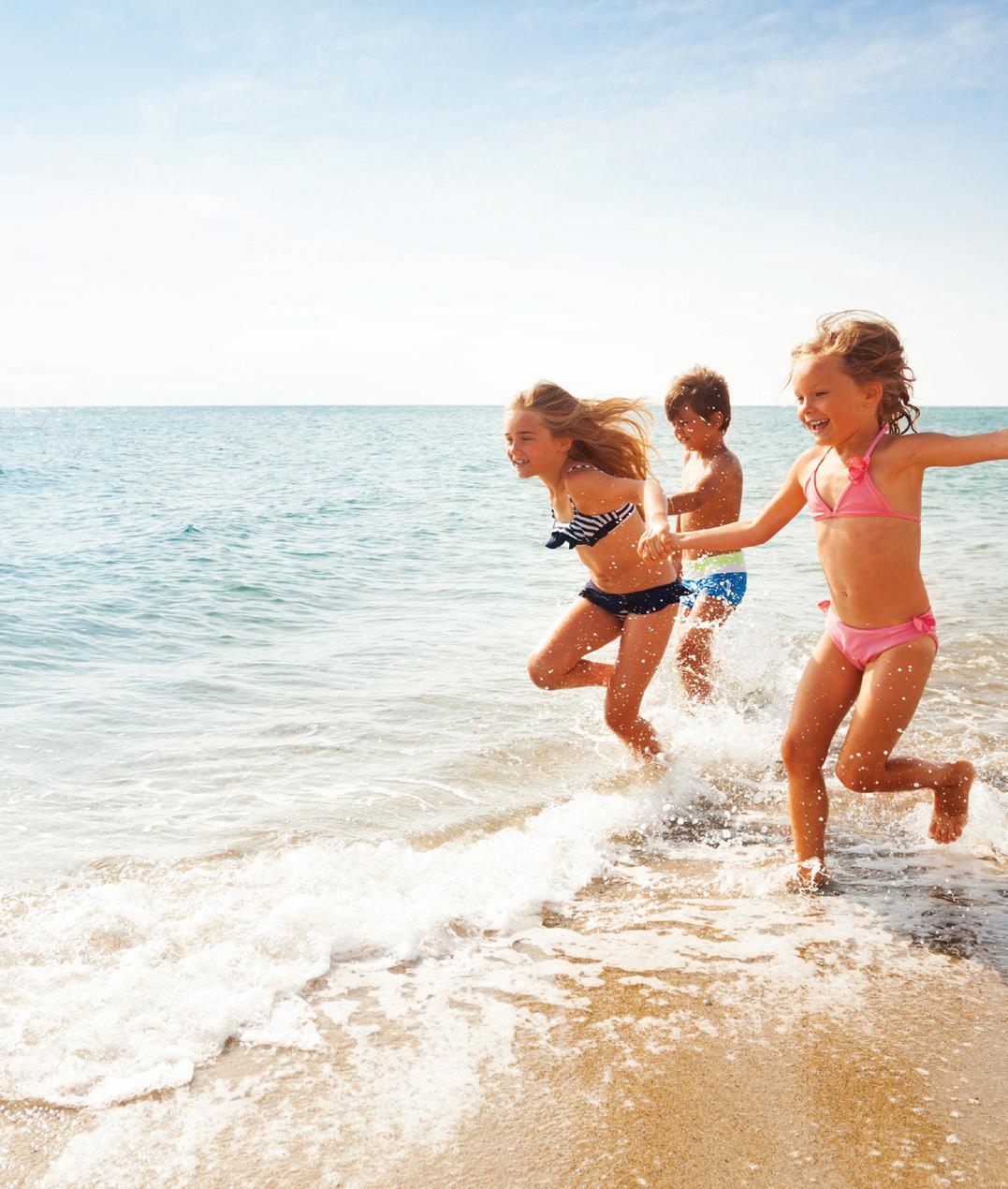
153 HEALTH www.caymanparent.com
schedule. Vaccines can be provided for free by the Public Health Department. Please turn to page 164 to find out more. Paediatrics & Paediatric Dermatology T: +1 (345) 745 7450 E: team@integra.ky W: www.integra.ky • Full paediatric care from 0-18 years • Developmental follow up • Well child checks & school medicals • Complex paediatric care & referrals • Lumps, bumps, rashes, fevers & bashes • Full dermatology care incl. eczema & allergies “as it should be” Located in Grand Pavilion PAEDIATRIC CARE TEAM Dr Sara Watkin MB ChB, MRCP (paeds) FRCPCH MD Dr Jasmina Marinova MRCPCH MD Dr Sarah Newton MB ChB, FRACP (paeds) DCH Dr Siobhan Jaques MBBS BSc DRCOG FRCPCH Dr Alison Duncan MBBS FRCP MSc
Head Injury
Brief Description
Head injuries often occur from falling off a significant height, like a bed or changing table. This may also happen when the child is running and playing, or is hit by an object (e.g. a ball). Head injuries can be external, to the scalp, or internal, involving the skull, with bruising/bleeding to the brain. Fortunately, most childhood falls or blows to the head cause injury to the scalp only.
Common Symptoms
•Visible external injuries
•Headache
•Vomiting
•Lethargy
•Irritability
How to Treat at Home
•Remain calm yourself to avoid distressing the child
•Comfort your child
•Look for external injuries
•Apply ice if appropriate
Family Medicine
Dr. Sook Yin,
Cuff,
Beatriz Esteban,
Thomas
Cardiac & Vascular Medicine
Dr. Ofer Sagiv, MD F.A.C.C. R.P.V.I
Nyali E. Taylor,
See Your Paediatrician If…
•Your child has fallen from a significant height • Loses consciousness, even for a very short time • Is irritable or will not stop crying • Is lethargic and not interested in distraction

•Is unable to wake up • Vomits • Is unsteady on their feet
•Your child is less than two years old.
NOTE: If you are at all concerned that your child may have a minor or severe head injury, see or call your paediatrician immediately, or go straight to the Emergency Room at the George Town Hospital.
Hand, Foot & Mouth
Brief Description

This is a mild, contagious viral infection common in younger children, resulting in sores and a rash on the hands and feet.
Hand, Foot & Mouth can spread through person-toperson contact and bodily fluids, but with proper hygiene, the risk of spread can be reduced significantly.
Common Symptoms
•Fever
•Sore throat
•Blister-like lesions on tongue and mouth
•Red rash, sometimes with blistering, on palms, soles of feet and/or buttocks
•Lack of appetite/not wanting to eat •Irritability (particularly for infants and toddlers)
How to Treat at Home
•Buy over-the-counter pain relief, such as paracetamol or ibuprofen
•Offer cool drinks and soft food
•Offer a cool/cold bath •Keep your child hydrated
•Avoid contact with other children
See Your Paediatrician If… • Fever reaches 38.5°C (101.3°F) • You feel that symptomatic relief is needed.
NOTE: As a parent, it is important that you know how to resuscitate your child in the case of any medical emergency. The Cayman Islands Red Cross offers CPR certification courses for infants, children, and adults. Call (345) 925 0715 or visit www.redcross.org.ky for more information. Also, see page 138 in the Education chapter for a full list of First Aid, CPR and Water Rescue course providers.

154 HEALTH Cayman Parent Magazine | Health
345-949-5600 admin@sevenmileclinic.ky www.sevenmileclinic.ky Queen’s Court, 175 West Bay Road, Seven Mile Beach
MBE Cert. Hon. MB ChB BAO Dr. Sarah
MRCGP MB ChB DFSRH Dr.
MD Dr.
Quin, MRCGP MB ChB DFSRH
Dr.
MD MPH RPVI Registered Dietician & Diabetes Educator Kristen Lomas, RD CCDE Mon – Fri 8:30am – 5:30pm | Sat 9am – 12:30pm Professional - Personalised - Compassionate - Holistic Home Visits Lab Services Walk-ins Welcome Insurance Accepted Notary Public Services Ideal Protein Diet
Pain Management

Pain management covers several methods to prevent, reduce, or stop pain sensations which are often remedied by physiotherapists, chiropractors and acupuncturists. These therapies help restore movement and function when someone is affected by injury, illness or disability. — Dr. Eddie Fernandes, D.C. at Synergy Chiropractic & Physiotherapy

Birth to 2 Years Soft tissue therapy, similar to massage therapy, is a wonderful stress reliever for infants because it promotes a sense of comfort, makes them less prone to colic and can regulate their sleep cycle. Infants can also benefit from physiotherapy and chiropractic health care. Physiotherapists and chiropractors can assist with gross motor skills such as sitting, standing and walking, as well as improvement in flexibility, strength and endurance. Infants learning to walk or experiencing issues with their feet turning out while walking can be taken through exercises to encourage standing and develop the skills required for walking. For infants with torticollis (neck tightness) or plagiocephaly (head shape challenges), physiotherapists and chiropractors will perform stretching and positioning exercises. Chiropractors may also recommend gentle spinal manual therapy or mobilisations which use gentle touch to manipulate joints or bones.
2-15 Years Growing pains typically start in early childhood – around age 3 or 4 – and tend to reoccur around ages 8-15. Growing pains are a common cause of leg pain. These pains are muscle aches that occur in the thighs, behind and in front of the knees and the calves. There is also evidence to suggest that growing pains are related to a lack of magnesium in your child's diet. Magnesium is involved in over 300 cellular processes – when your magnesium levels are low, your muscles contract and cause symptoms such as muscle spasms. Around the age of 11, when kids transition from primary to high school, they begin to spend roughly six hours a day sitting at their desks which may result in them beginning to experience lower back pain. To alleviate lower back pain, manual therapy may be recommended. This is a hands-on technique used to eliminate soft tissue inflammation and improve joint mobilisation.
12-19 Years During this time, your child may experience higher levels of stress from their exams or back pain from long periods of time sitting at a desk or job hunting. To relieve the effects of stress and anxiety, seek out a specialist who can assess your child's needs and suggest a recommended approach. Acupuncture is one option which has been shown to be effective in managing stress, anxiety, pain, discomfort, tension, irritability and insomnia. Core muscle conditioning is important as the core is the basis of your body’s stability. The core muscles are a group of stabilisers that include your lower back, abdominal wall, pelvic floor and diaphragm muscles. The main concepts of core training involve using many muscles in a coordinated movement.
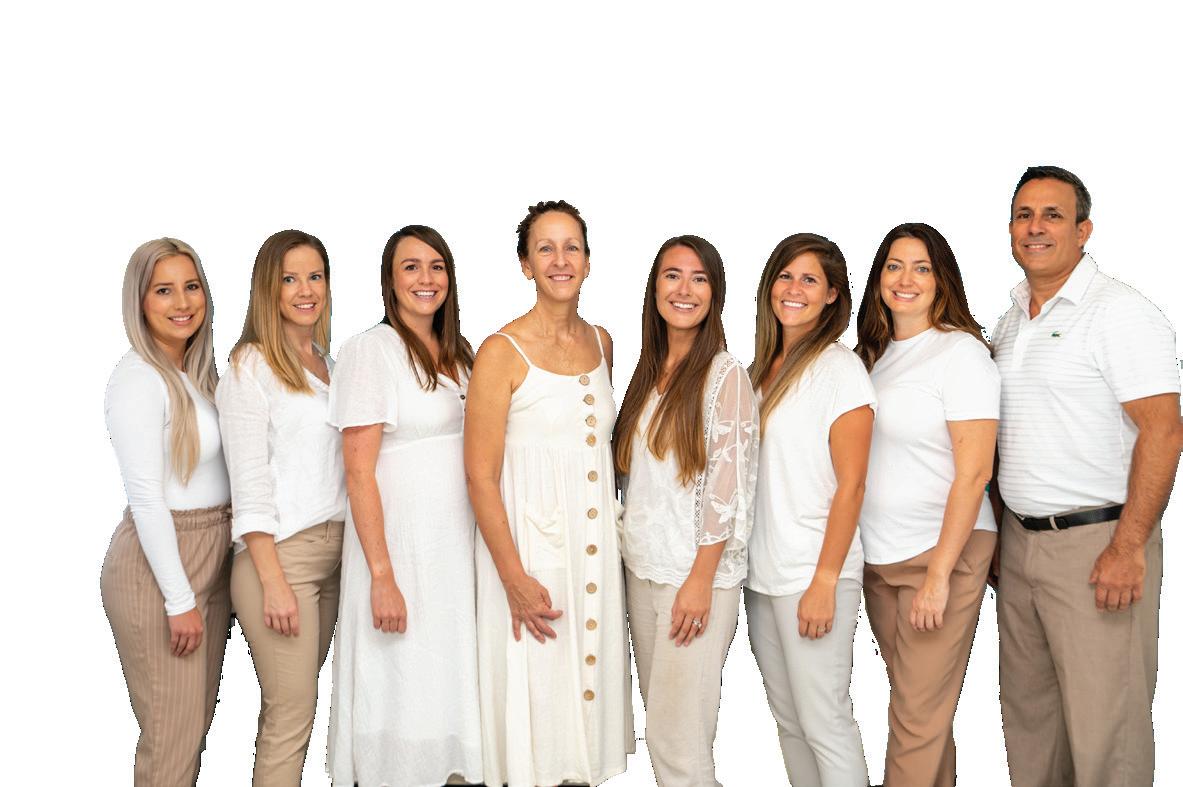

Adults 18 Years and Older Adults also experience back pain, with one in three experiencing it every year. 90% of people recover from back pain in around six weeks, however for around 80%, back pain can return. While it can be difficult to pinpoint the exact cause, there are several factors known to influence back pain including trauma, repetitive strain, emotional stress, excess weight and age. Manual therapy, such as spinal manipulation, mobilisation, acupuncture or soft tissue techniques can be used as part of a treatment plan including exercise, in conjunction with or without cognitive behavioural therapy. A cognitive behavioural approach for managing lower back pain can also be used in conjunction with the above treatments.
For help optimising your family's health and wellness, contact Synergy Chiropractic & Physiotherapy on Tel: (345) 943 8200 or visit www.synergychirophysio.com.
155 HEALTH www.caymanparent.com
info@synergychirophysio.com • www.synergychirophysio.com (3 4 5) 9 43 820 0 Your Premier Wellness facility for Chiropractic, Physiotherapy, Acupuncture, Traditional Chinese Medicine and Massage erapy. LIVE LIFE, BETTER. e Marquee Plaza 36 Lawrence Blvd Seven Mile Beach (between Camana Bay & West Bay Road)
Identifying Learning, Behavioural or Cognitive Issues
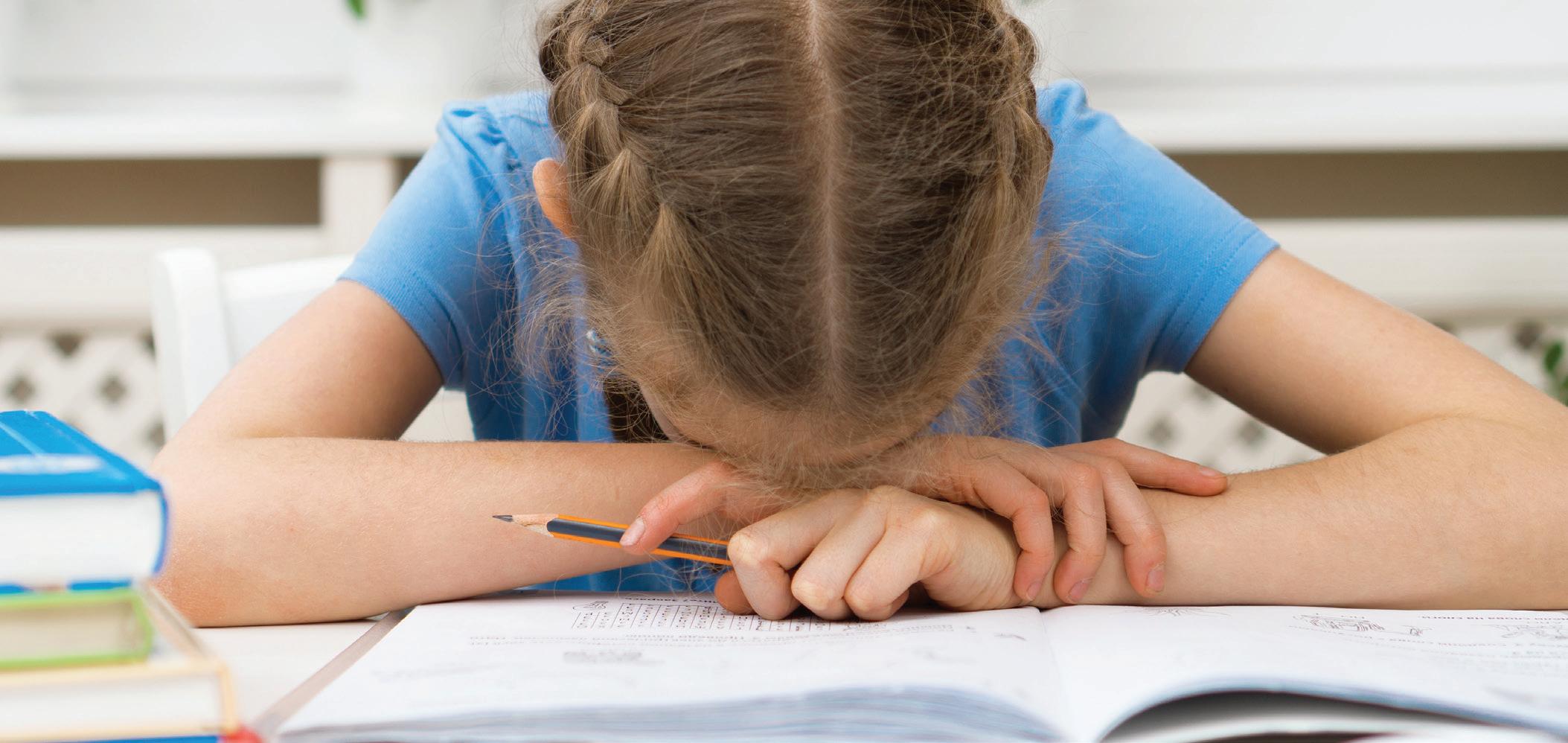
For many parents, the idea that your child may be developmentally delayed can be particularly unsettling. You may notice that your child is not meeting milestones as quickly as other children, or that they engage in unusual behaviour beyond the anticipated childhood 'growing pains'. But what should you do next?
Seeking Diagnosis
When your instinct tells you that things are not going the way they should, be guided by it. While a million questions may run through your mind, following these steps should result in a smoother journey through the assessment and/or diagnosis process:
1. Talk to anyone who helps you care for your child: A teacher, nanny, carer or grandparent. Check whether they have any concerns about your child’s development.
2. Document your concerns: Make a list of specific observations that you believe are a cause for concern. It will be easier for you to discuss these concerns once they are written down, and you won’t have to worry about forgetting any key areas you want to discuss with your paediatrician.
3. See your child’s paediatrician: Paediatricians are not only there for when your child is feeling sick. Healthcare providers are also there to assist you with tracking your child’s development. Discuss your concerns with them so that an action plan can be developed. These are individuals
who see children on a daily basis and are familiar with what the range of typical development looks like. Allow them to assist you in this process with securing the appropriate referrals and to ease any concerns you may have.
4. Follow through with referrals: Your paediatrician may recommend that your child see one or more service providers on-Island. Please do not wait! Proceed with making the necessary appointments for your child based on your paediatrician’s recommendations. Keep in mind that for some services, there may be a short waiting period between when the appointment is made and when your child is seen.
5. Report back to your paediatrician: After following through with your child’s referrals, forward any results to your child’s paediatrician. Not only will they be able to decipher technical aspects of the report, but they can also make subsequent referrals for any therapy that is required. Many insurance companies will not cover services without a physician’s referral, so your paediatrician is an integral part of your team.
Cayman Parent Magazine | Health156 HEALTH
Next Steps
Under 5s
If your child is under the age of five, consider enrolling them in the Cayman Islands Early Intervention Programme (EIP). This programme involves a group of early childhood teachers and therapists who specialise in assessing your child’s overall development and providing additional support and services if your child demonstrates a need for them. Their goal is to prepare your child for school. Call (345) 926 1413 or email: eip@cayman.edu.ky for more information. Additionally, parents may seek support through the Health Services Authority (HSA) or through one of the privately owned medical service providers on-Island. For a full list of providers, see page 182.
School Age Children
Work with Your Child’s School
If your child is over the age of five or enrolled in school, seek school-based guidance. For children already enrolled in primary or secondary school, the process for getting help varies based on the school. Most public and private schools have a Special Educational Needs Coordinator (SENCo), or an equivalent position. Discuss your concerns regarding your child with their classroom teacher and the SENCo for your child’s school. The SENCo will coordinate a meeting with all of the parties so that they can discuss all concerns and assist you with getting the necessary referrals.
For children who attend government schools, many services
such as Speech and Language Therapy, Occupational Therapy, Music Therapy and Educational Psychology are offered within the school system. For children who attend private schools, parents may need to seek support through the HSA or through one of the privately owned medical service providers on-Island.
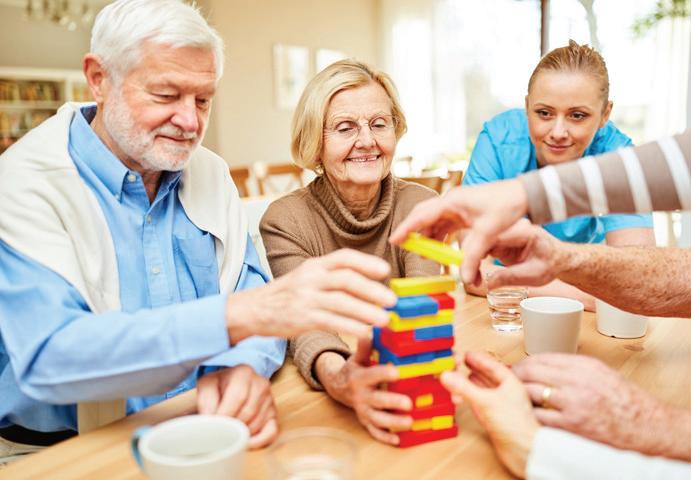

Ask for an Individualised Education Plan

This is a plan that outlines in writing what services will be provided to your child and what accommodations can be offered to him or her in an academic setting. It also includes short-term and long-term goals that your child’s therapy team and teachers will focus on. Establishing an Individualised Education Plan (IEP) will assist your child’s therapy team with planning and implementing goals that will enhance your child’s academic success. IEPs are often written by a school’s SENCo (or equivalent) in consultation with all stakeholders included. As a result, it encourages an open dialogue between you, your child’s teacher and your child’s service providers. IEPs are updated annually, however, these can be updated more or less frequently, depending on your child’s unique academic needs.
Seek Support
If your child has been diagnosed with a delay or disorder, it can be overwhelming. As a parent, it is very natural for you to go through periods of grief, denial, sadness, anger or anxiety as you try to wrap your head around their diagnosis and navigate the way forward. Seeking support from other parents who have gone through similar experiences can help you come to
and
www.caymanparent.com 157 HEALTH
Chatterbox has a clear aim to provide services for children and adults in a fun and safe environment. They are a multidisciplinary team providing commitment and a caring attitude, professional excellence and open communication to facilitate a partnership of trust with families, which helps them to reach their goals. Chatterbox Connecting Therapy
Education (345) 949 7065 | chatterbox@candw.ky | www.chatterboxcayman.com | 218 South Church St, GT Highlights: Assessment, diagnosis and therapy • Training workshops for parents and professionals • Home and school visits • Inclusive Early Years Programme (2-5 years) • Autism support and diagnosis Programmes: Speech and language therapy • Occupational therapy • Early Years Programme (2-5 years) • Handwriting support • Social skills and friendship groups • Tummy Time! • Massage therapy • Women's cancer rehabilitation • Telepractice also available • All of our therapists work with both children and adults Details: Hours: Monday-Friday 8.30am-5.30pm. Pricing: Pricing varies by programme and is available upon request.
terms with your child’s diagnosis. Additionally, there are nonprofit agencies on-Island, such as Inclusion Cayman, that are available as a resource to families to provide access to training, guidance and general support as you and your family go through this difficult period. Remember that any diagnosis does not and should not change who your child is to you. As you go through the therapy process, take time to appreciate the small gains your child will make. The small changes eventually add up to greater transformations over time – and these are worthy of celebration – no matter how small!
Different Types of Diagnoses
Autism Spectrum Disorder
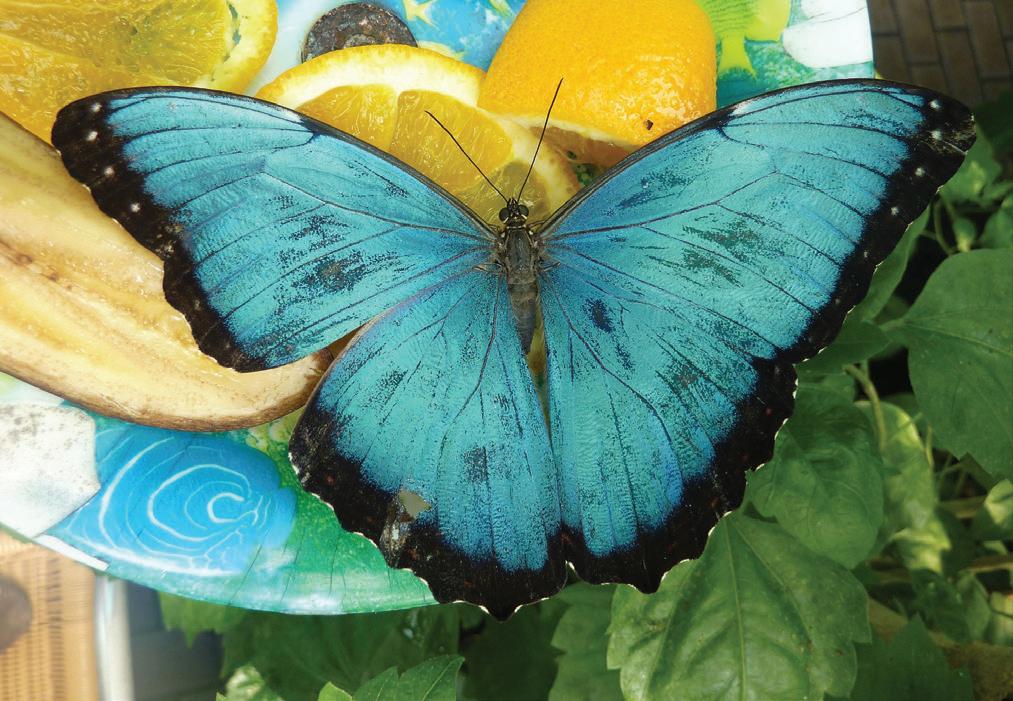
Autism Spectrum Disorder (ASD) is a multifaceted neurological disorder that affects communication, cognition and social
skills. It is usually noticeable prior to three years of age. It is an umbrella term that is used to describe a wide range of behaviours and abilities, hence the reason it is referred to as a 'spectrum' disorder. There are several 'red flag' characteristics across three domains that provide strong indicators that ASD may be present.
Communication:
•Does not respond to his or her name
•Seems to hear sometimes, but not other times
•Used to say a few words or babble, but now does not
•May engage in 'echolalia' or repetition of words or phrases heard in conversation or from other sources (toys/television etc.) but no functional communication is initiated.
Social Interaction:
•Displays poor eye contact
•Lack of warm, joyful expressions
•Seems to be in his or her 'own world'
•Is not interested in interacting with other children or people
•Does not like to play social interaction games like 'peek-aboo'.
Behaviour:
•Repetitive movements with objects or repetitive verbalisations
•Odd movements or posturing of body, arms, hands or fingers (such as hand flapping, rocking etc.)
•Plays with toys unusually (i.e. only playing with a small part of the toy, like the wheel of a car, or lining toys up instead of playing with them)
A diagnosis of autism is usually made by a developmental paediatrician or a clinical psychologist. Obtaining a diagnosis often involves a multidisciplinary team of therapists, such as speech language pathologists and occupational therapists who evaluate and treat children with ASD.
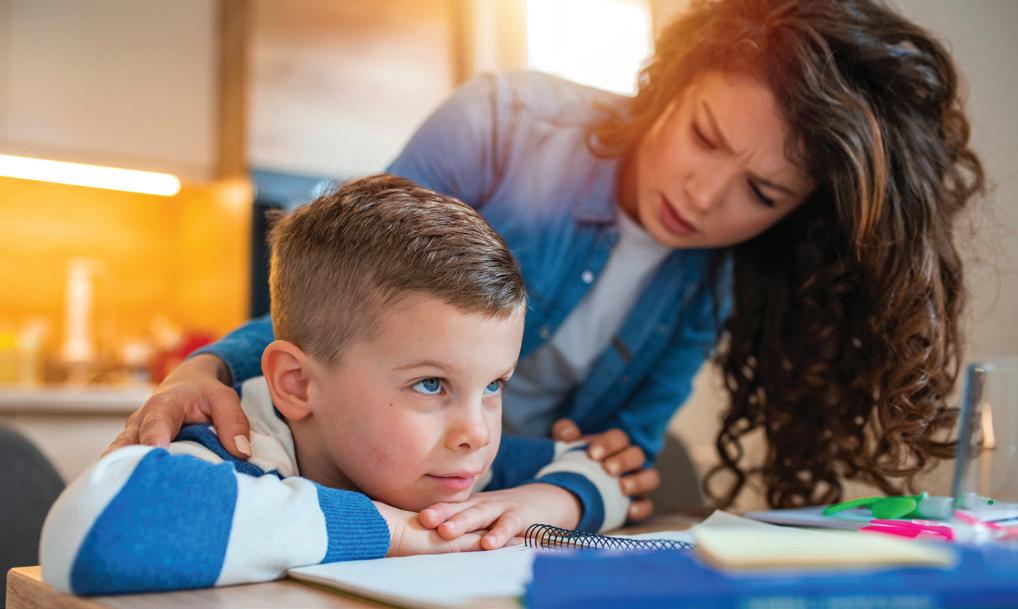
Attention Deficit Hyperactive Disorder
Attention Deficit Hyperactive Disorder (ADHD) is a common childhood disorder of the brain that affects a person's ability to pay attention and concentrate on tasks. This neurological disorder is characterised by delayed frontal lobe development, which impacts a child's ability to attend to tasks, stay organised, manage impulsive behaviours and follow through with instructions. According to the CDC, ADHD is three times more likely to occur in boys than girls. There are three types of ADHD – Inattentive, Hyperactive-Impulsive and Combined. Here are the red flags:
Inattentive:
•Easily distracted by noises and activities around them, i.e. looking around frequently and sporadically •Often found to be 'daydreaming'
•Difficulties with staying focused on one task or activity
•Difficulties with remembering instructions
•Difficulties paying attention to detail
•Difficulties with organising belongings and tasks.
158 HEALTH Cayman Parent Magazine | Health
We are able to work with most insurance companies. Individual / Family / Couples Counseling Parenting As sistanc e & Suppor t In home Inter ventions School O bser vations & Inter ventions Psyc hiatric Ser vic es Speec h & L anguage Therapy Psyc hoeducational As ses sments Neuropsyc hologic al As ses sments 1(345) 769 4673 Grand Harbour Shops, Units 1-8 ww w.hop e cayman.com | office@hopecayman.com For a FREE, confidential consultation contact Pauline VanderGrinten at pauline@mentalhealthci.com HONOR OPTIMISM PER S E ECNELLECXEECNAREV Clinical Ser vices Hop e Acade my
Hyperactive-Impulsivity:

•Always engaging in movement
•Fidgeting when asked to sit still
•Difficulties with remaining seated
•Often stands instead of sitting at a table
•Often touching objects
•Excessive talking, often during inappropriate times
•Difficulties with taking turns
•Difficulties with standing in line
•Impulsive behaviour or decisions.
Combined:
•Characteristics from both the Inattentive type and HyperactiveImpulsivity type are observed.
ADHD is usually diagnosed by a psychologist, but treatment of the disorder may include the guidance and care of a psychiatrist. Diet, environmental changes, therapy and medication are all methods used to treat ADHD. Families usually work closely with their child’s paediatrician to monitor a child’s response to treatment methods.

acquisition)
•Language-Based Learning Disabilities (these typically involve learning disabilities that affect a child’s ability to develop reading, writing and spelling skills)
•Selective Mutism
•Cognitive Deficits (where cognitive challenges affect language acquisition and development)
•Executive Functioning Deficits (where metalinguistic skills such as organisation, attention and self-regulation are delayed).
Many parents are cautious and scared about having their child ‘labelled’ or classified as having a delay or disorder. The fear that a child with different learning needs will be ostracised by their schools, educators, peers and by society, in general, is a very real one that many parents struggle with on a daily basis. However, in most cases, having a diagnosis is beneficial to the child and entitles them to a myriad of services, classroom support and educational accommodations which, ultimately, will help them succeed.
Inclusion Cayman is a non-profit organisation supporting individuals with disabilities in their vision of accessing inclusive lives. They work with families, schools, employers, recreation/leisure providers and others to ensure all community members can meaningfully access, participate and belong in the Cayman Islands. Visit www. inclusioncayman.ky.

Learning Disabilities
Learning disabilities are neurologically-based processing difficulties which interfere with the development of executive functioning skills and impact the ability to learn basic skills such as reading, maths and writing. Children with a learning disability typically have difficulties with learning new tasks, remembering and recalling key pieces of information, answering questions appropriately, telling time, and often mixing up the order of information (e.g. mixing up letters during spelling or mixing up a story's plot). These disorders can include: auditory processing disorders, dyspraxia, dyslexia, dysgraphia, dyscalculia, nonverbal learning disorders, and visual motor/visual processing disorders.

Communication (Language) Disorders
The American Speech Hearing Association describes a language disorder as when a person has difficulties understanding others (i.e. receptive language) or sharing thoughts, ideas and feelings completely (i.e. expressive language) or a combination of the two. Typically, children with language disorders have difficulty expressing themselves clearly and fluently.
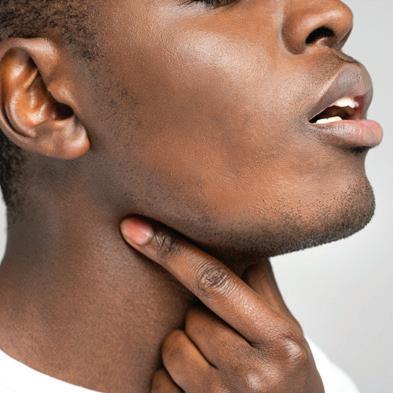

Many types of communication disorders fall under the diagnosis of a 'Language Disorder' including:
•Preschool Language Deficits (typically this is seen as a language delay, which is the result of atypical language
159 HEALTH www.caymanparent.com
• Laryngitis and Voice Therapy • Vocal Cord Surgery • Swallowing Training Alison Mulder BA (HONS) Speech & Hearing Therapy Alison is a qualified Speech Language Therapist and Audiologist with over 13 years of experience working in a variety of both public and private clinical settings. +1 (345) 745-3253 | 94 Smith Road, Unit 4 & 5, George Town
Q&A
Dr. Heidi Fahy
Why did you choose your field of speciality?
Women’s health is incredibly important and complex. It has been undervalued and not enough attention has been paid to optimising a woman’s journey through the many stages of her life. I was lucky to be able to access specialist training in women’s health and family planning very early in my training. It has been my passion from my early years of training. Medicine and research have a long way to go to really understand the complexities of a woman’s body, and to ultimately offer solutions and options to optimise a woman’s journey through her reproductive life.
Who inspired you to become a doctor?
My parents are both in the medical field as a doctor and nurse. I spent a lot of my childhood in clinics and hospitals. This is all I ever knew and watching them serve their community was incredibly inspiring. They were pioneers in primary health care in some very rural and poor areas where we lived. My mother was instrumental in offering health services and education to women in very remote areas.
Which hormone or menopause related books/ apps/websites would you recommend?
I tend to recommend the many websites in the UK, such as the British Menopause Society, as their advice tends to be non-biased. Menopause and managing it has really hit the headlines in the UK, so it is much easier to find up-todate, useful information. There are several doctors in the UK who have worked very hard in raising awareness of the importance of tackling such an important but neglected area affecting half the population.
If you had to create an attention-grabbing strapline for a menopause awareness campaign in Cayman, what would it be?
Hot and dry? Not just another day on the beach. THINK MENOPAUSE.
Dr. David Stone
What do you enjoy most about working in Cayman?
The cultural diversity found in the Cayman Islands has enriched my life and encouraged my desire to see other countries. Every office day I typically encounter people from at least 5-6 other places in the world. Work becomes a classroom where we all can learn to live together.
Would you like your own children to work in the same field as you?
It would be fantastic to have my children become doctors, but only if they had the passion for this profession. The demand is too great for them to commit to such a career without the fire burning inside.
Which hormone or menopause related books/ apps/websites would you recommend?
Patients will find credible, clear, and concise medical information on gynecologic and obstetric topics by going to ACOG.org or the MayoClinic.org websites.
What are the biggest challenges faced by women going through menopause in Cayman?
I feel the biggest challenge is taking the time to seek medical advice and then having the commitment to follow the recommendations. Menopause is a complex phase in life that requires a team approach to manage successfully. Follow up is critical to that success. Finding the right doctor to help assemble this team is essential.
If you had to create an attention-grabbing strapline for a menopause awareness campaign in Cayman, what would it be?
STOP MENOPAUSE FROM HALTING YOU. START GETTING HELP TO PROPEL YOU. (Make an appointment with your doctor today.)
Dr. Heidi Fahy is a GP at Cayman Clinic, with a special interest in women’s health.
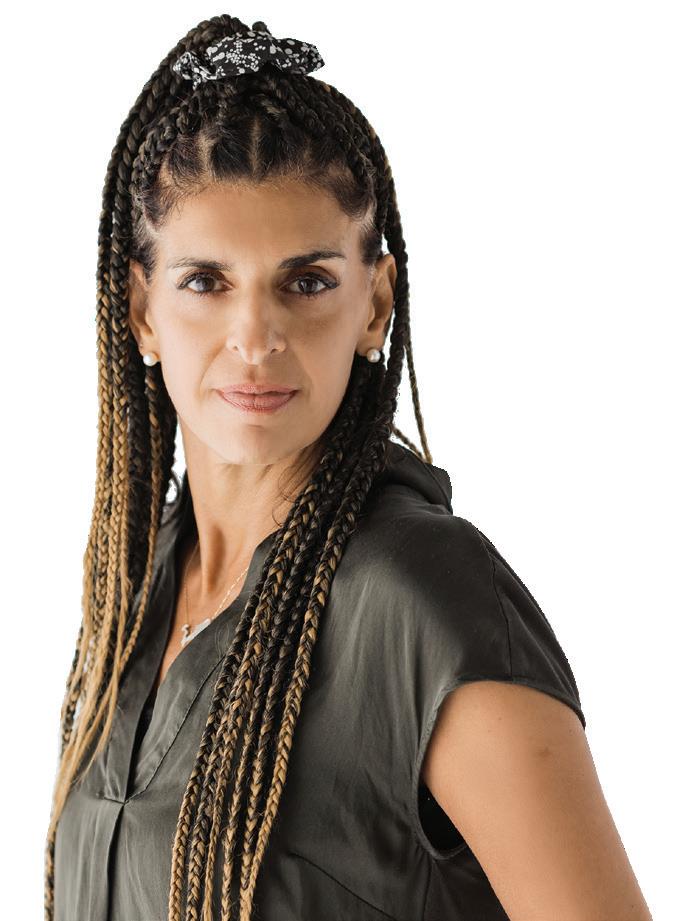
Dr. David Stone MD is an Obstetrician/ Gynaecologist and Director of Urogynaecology for OceanMed Women’s Health USA.
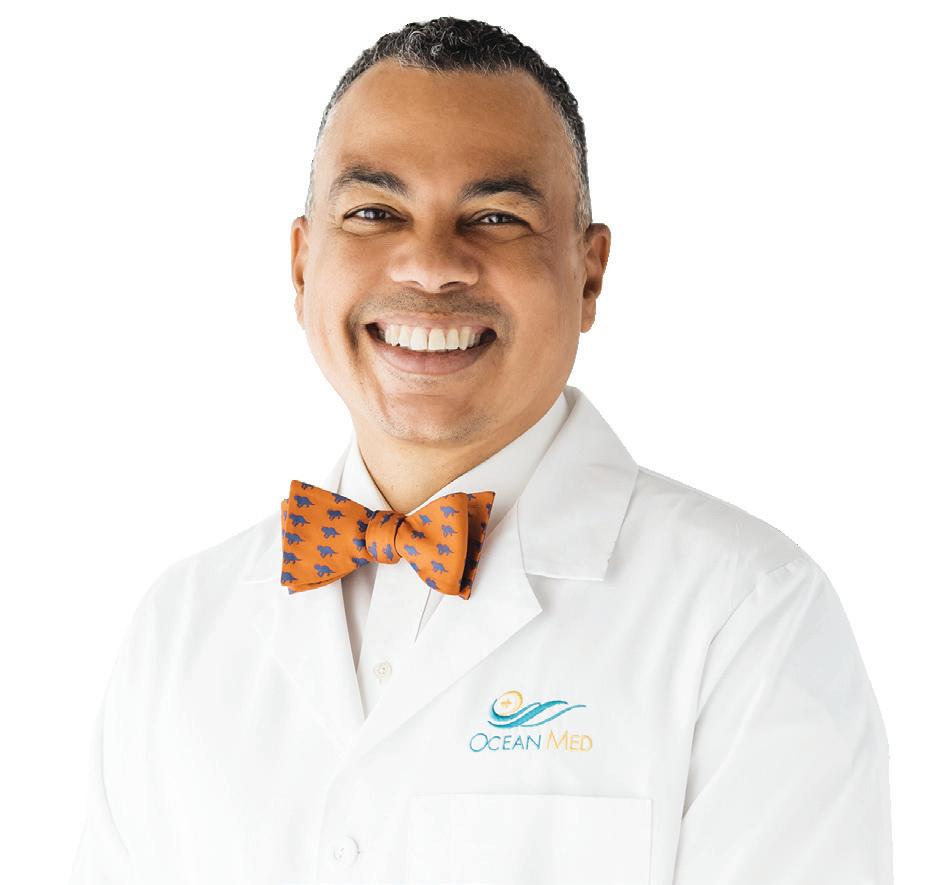
HEALTH 160
Dr. Barry Richter
Who inspired you to become a doctor?
As a child, Christiaan Barnard was a South African national hero for performing the first successful heart transplant. He was an influence. But the story of Ignaz Semmelweis, the Hungarian obstetrician, now called the “saviour of mothers”, was probably a bigger influence. It is a fascinating story, well worth reading.
Which three famous (real or fictional) medical specialists would you like on your team and why?
Dr. Jaco Strydom from South Africa, who has been a colleague for years. He is knowledgeable, skilful and trustworthy. We have been helping each other with surgeries for years. Dr. Mario Malzoni from Italy because he is the best surgeon in my field, and it would amaze me every day to work with him and to learn new skills. Dr. Harry Reich, now retired, who is a true pioneer, and has taught all of us how to perform laparoscopic surgery. He has seen it all and has uncommon wisdom and insight.
What do you enjoy the most about working in Cayman?
The relationships I have with patients; many of whom I have known for 20 years or longer.
The menopause has recently become a hot topic of discussion in the US and UK and on social media. Has there been an increase in women in Cayman coming to see you seeking help or advice on peri menopause or menopause symptoms?
Yes, there has. Women are realising that their quality of life can be improved tremendously in many cases.
What are the most common misconceptions about menopause?
That treatment is “unnatural” and dangerous.
Dr. Barry Richter is a Gynaecologist & Urogynaecologist at Novo Clinic. He was raised and trained in South Africa.

Dr. Diane Hislop-Chestnut
Who inspired you to become a doctor?
There are two doctors who inspired me to go into the medical field. One is Dr Cridland, who was my paediatrician growing up. I was still trying to have her take care of me well into my 20s! Also, Dr Ostroski, who has been incredibly supportive to so many here in the Cayman Islands.
Which other doctor or medical professional onIsland would you recommend for a ‘Golden Stethoscope Award’ and why?
I would suggest all doctors during these COVID times. I feel that the medical community really stepped up and supported the island through the pandemic.
What are the biggest challenges faced by women going through the menopause in Cayman?
The biggest challenge facing women with menopause in Cayman is addressing concerns over the safety of HRT –whether that be from a cancer perspective or a cardiovascular disease perspective. There is a lot of confusing data surrounding HRT and teasing out the important facts can be daunting.
The menopause has recently become a hot topic of discussion in the US and UK and on social media. Has there been an increase in women in Cayman coming to see you seeking help or advice on peri menopause or menopause symptoms?
Menopause is an area that has been generally overlooked in medicine in the past. Different cultures approach the menopause in various ways – for instance, in some cultures you become revered as an honorable person and others suffer more with hot flushes. I feel that we need to change the negative connotation associated with menopause for women. While globally, it has become more of a hot topic of late, it is an area that I have always been interested in and for which I am happy to provide care.
Dr. Diane Hislop-Chestnut is a Consultant Endocrinologist at Palm Road Medical.

HEALTH Doctors
Tooth be Told: Dental Care for Kids
Developing proper oral hygiene habits early in childhood is crucial in ensuring continued practise into adulthood. This means starting very early, even before your baby’s teeth have emerged.
It is important to be aware that primary tooth enamel is much thinner and less resistant to decay than adult teeth. The key to successful teeth brushing for young children is ensuring that they are accustomed to the experience of having their teeth and gums touched and cleaned as early on as possible.

At birth, start by cleaning your child’s gums with a soft cloth and water. This early oral stimulation may help prevent fungal infections such as oral thrush, and also makes acceptance of the toothbrush less of a challenge once the teeth start to erupt.
First Visit to the Dentist
The American Academy of Paediatrics (AAP), the American Dental Association (ADA), and the American Academy of Paediatric Dentistry (AAPD) recommend establishing a 'Dental Home' for your child by one year of age, with follow-up visits every six months. Although the first visit will not likely be much more than a quick examination, it will assist your child in becoming familiar with the process of having their teeth examined and will also allow the dentist to provide some helpful suggestions regarding oral healthcare. These examinations are also essential for early detection and the interception of any problems.
Should My Child Brush His/Her Own Teeth?
Fostering an early independence in oral hygiene is important for your child’s development. Allowing your child to brush their own teeth is crucial. However, until a child is around eight years old, they often will not comprehend that their teeth are threedimensional objects (although they should still be brushing before this age). They may not understand that in order to properly
clean a tooth, it must be brushed not only on the top side (chewing surface) but also the cheek side, tongue side, and in some cases, the back side. It is great to let your child brush their own teeth at an early age, but it is paramount that this activity is closely supervised and that the parent goes over their brushing afterwards.
Proper Tooth Brushing, Frequency & Technique
Prevention is key; the AAPD recommends using fluoridated toothpaste (ADA approved) as soon as the first teeth erupt. At the first glimpse of primary teeth, switch to a soft-bristled, age-appropriate toothbrush.
For two to three year olds, only use a smear of fluoridated toothpaste at first. Gradually, as more baby teeth appear, you can increase the amount of toothpaste until you get to a ‘pea-sized’ drop once all 20 primary teeth are present. Early childhood tooth decay can start suddenly and spread very quickly; dentist visits every six months are therefore essential.
Brush your child’s teeth gently but thoroughly, twice a day. The last brush of the day should be after your child’s last food or drink (other than water) and right before they are put to bed. This will ensure you significantly decrease or eliminate any food particles that cavity-causing bacteria feed on. These bacteria are especially active at night when a child is sleeping and their saliva production is minimal.
TOP TIP: Don't let your child share their toothbrush. Toothbrushes can harbour Streptococcus mutans, which is the bacteria responsible for tooth decay.
Cayman Parent Magazine | Health162 HEALTH
Flossing

Once your child starts to grow new teeth, their teeth should be flossed at least once a day, preferably before bed. It is important to thoroughly floss the teeth at any point where the teeth are touching each other — the toothbrush cannot adequately clean these areas which leaves them particularly susceptible to decay. There are devices such as ‘floss wands’ for kids that make this task easier and more of a fun activity for children.

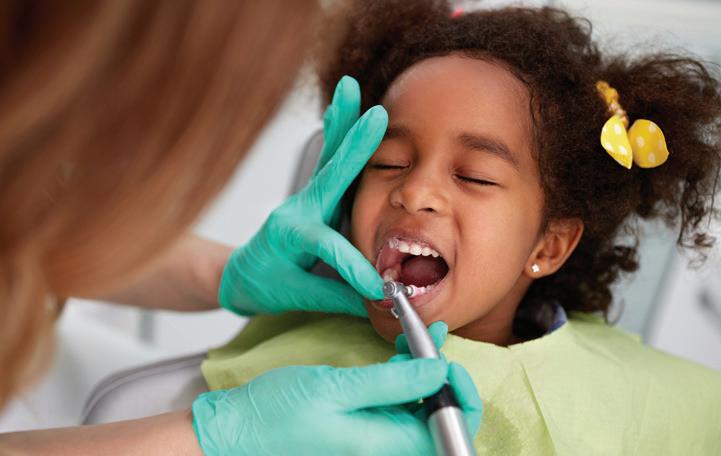


Breast Feeding & Bottle Use
The most common and serious cause of Early Childhood Caries (ECC) is frequent and long exposures of an infant’s teeth to liquids that contain sugars, both natural and artificial. Among these liquids are milk (including breast milk), formula, fruit juice and other sweetened drinks. Putting a baby to bed for a nap or at night with a bottle other than water can cause serious and rapid tooth decay. These liquids pool around the teeth and feed the bacteria in the mouth, which in turn produce acids that attack tooth enamel. This type of destructive tooth decay is also known as Nursing Bottle Caries or Baby Bottle Tooth Decay.
TOP TIP: Not all toothpastes in Cayman contain fluoride, so this is something you should check either yourself or with your dentist. Toothpastes containing 1,000 or 1,500ppm of fluoride are most effective for children over three years old. Children under three should brush twice daily with a smear of toothpaste containing at least 1,000ppm fluoride.
The Toddler Teeth Brushing Battle
Here are a few tips to get your toddler to brush their teeth:
1. Add a fun song to it! Make up your own teeth-brushing song, or have your kids listen to a ‘Brush Your Teeth’ song! YouTube has great options: one of the best is Sesame Street’s ‘Brushy Brush’ song, which is fun and features other kids brushing their teeth to inspire your own.
2. Model the behaviour you want to see. Lead by example and let your toddlers see you brushing your teeth. More than likely, your child will want to imitate their parents’ behaviour.
3. Give praise for teeth brushing. Create your own reward chart and add a star, tally or sticker every time your child brushes their teeth on schedule. Let them work towards a goal, e.g. one whole week of brushing morning and night gives your child more time to play outside on the weekend.
4. Tell them a story or a myth! Just like the Tooth Fairy or Santa Claus, certain stories can motivate your kids to achieve their goals. You could tell them a story about their furry friends living in their teeth, and you need to brush to help them escape!
www.caymanparent.com 163 HEALTH
• General restorative cosmetic dentistry • Dental implant and bridgework • Crowns and veneers • Evaluation and treatment of gum diseases and root canals • Pediatric dental care (O.R Privileges) • Wisdom tooth removal/nitrous sedation • Safe sedation option with state-of-the-art monitoring for children and adults • Invisalign treatment • Botox treatment • Most insurance plans accepted (345) 945 4388 | 135 Andrew Drive, Snug Harbour wolfedental.ky | info@wolfedental.ky Dr. Wilbert Veit DMD FACD, FAES, FICOI Dr. Adam Stang D.D.S
Getting Immunisations Right
Vaccines are an integral part of any child's routine health care. As Cayman's population hails from all over the world, besides following the Cayman Islands Immunisation schedule, schedules from other home countries are also adhered to and followed. Although COVID-19 has brought many changes and prevented most residents from travelling, health professionals advise against putting off or delaying vaccinating children.
The Cayman Islands has one of the lowest incidences of vaccine-preventable diseases in the world, and diseases such as polio have been fully eradicated.
While immunisations are not mandated by law in the Cayman Islands, they are highly recommended by the Public Health Department, who has oversight for monitoring and administering immunisations in the country. According to UNICEF, vaccine-preventable diseases are one of the major causes of illness and long-term disabilities among children in both industrialised and developing countries. The prevention of paralytic polio in hundreds of thousands of children worldwide since the beginning of the Global Polio Eradication Initiative is just one example of the effectiveness of vaccines.
Immunisations are one of the most effective ways of protecting your child's health from the very beginning of their lives. Protecting your baby from over 16 serious diseases with the help of vaccines is a powerful defence that is tested, safe and effective. Presently children ages five and up can also receive the Pfizer-BioNTech vaccine for protection from COVID-19.
There are cases when Public Health officials have recommended deferring a vaccination due to medical reasons or if a child is experiencing ill health. You may contact the Public Health Department (Tel: (345) 244 2648), who provide routine vaccinations to children free of cost, or speak to a paediatrician if you have any questions about vaccinating your children — prices often vary between clinics for the same immunisation. See page 169 for a list of paediatricians.
Cayman Parent Magazine | Health164 HEALTH
AGE VACCINE At Birth 6 weeks 2 months 4 months 6 months 9 months 12 months 15 months 3-6 years 11-12 years (girls) 14-16 years Hepatitis B Hep B Hep B Hep B Bacillus Calmette-Guerin (BCG) for tuberculosis (TB) BCG Diphtheria, Tetanus, acellular Pertussis DTaP DTaP DTaP DTaP Booster 1 DTaP Booster 2 (4 yrs) Td/ Tdap Inactivated Poliovirus IPV IPV IPV IPV (4 yrs) Haemophilus Influenzae Type b Hib Hib Hib Hib Rotavirus RV RV RV Pneumococcal Conjugate Vaccine PCV PCV PCV PCV Influenza - Yearly (2 doses for some) 6 months & older Measles, Mumps & Rubella (MMR)a MMR 18mths. MMR Varicellab (Chickenpox) Varicella Varicella (4yrs) Human Papillomavirus c (HPV4) 2-dose series ≥15 years 3-dose series • Rotavirus Vaccine is given orally (by mouth). All other vaccines are given by injection. • DTaP IPV and HIB Vaccines are given in one injection. Booster 2 minimum age 4 years. • a - MMR Vaccine - Minimum age for 1st dose: 12 months, the 2nd dose may be administered before age 2 provided at least 4 weeks have elapsed since the first dose. • b - Varicella Vaccine - Minimum age for 1st dose: 12 months, the 2nd dose may be administered before age 3 provided at least 3 months have elapsed since the first dose. • c - HPV Vaccine - Females under 15 years: 2 dose schedule with 6 months interval between doses. Females 15 years and older: 3 dose Schedule: 0; 2 months and 6 months after first dose. June 2022For more information, please call (345) 244-2648 Childhood Immunisation Schedule - 2022
Vaccine 101
Hepatitis B (HEP B):
Hep B is an infectious disease spread by exposure to infectious blood or body fluids. It affects the liver and can cause acute and chronic infections. Many people have no symptoms at first, but later symptoms include vomiting, yellowish skin, tiredness, dark urine and abdominal pain.
Tuberculosis (BCG):
Tuberculosis is a bacterial infection which generally affects the lungs. It is contagious and spreads from one person to another through the air. Symptoms include chronic cough, difficulty breathing, fever and weight loss, amongst others.
Diphtheria (DTaP):
Diphtheria is a bacterial disease that spreads easily and occurs very quickly. It mainly affects the upper respiratory system, including the nose and throat. Symptoms include sore throat, fever, swollen lymph nodes and general weakness.
Tetanus (DTaP):
Often called Lockjaw, Tetanus is a bacterial infection that causes painful muscle spasms and can lead to death. Symptoms include painful muscle contractions, difficulty in breathing and intermittent muscle spasms.
Pertussis (Whooping Cough) (DTAP):
Whooping cough is a highly contagious bacterial infection of the lungs and airways which can cause severe breathing problems and even death in small children.
Polio (IPV):
Polio is a highly contagious disease caused by a virus that attacks the nervous system. Symptoms may range from nonparalytic fever and throat infection, to limb deformity and complete paralysis.
Haemophilus Influenzae Type B (HiB):

HiB is a bacteria responsible for causing severe infections like meningitis, pneumonia and epiglottitis — a life-threatening problem which causes swelling in the throat. Depending on the type of infection, symptoms may include headache, stiff neck, cough, breathing problems, fever and muscle pain.
Rotavirus (RV):
Rotavirus is a very contagious disease that most commonly affects infants, young children and those who work or live with children. Symptoms include severe diarrhoea, vomiting, fever and abdominal pain.
Human Papilloma-Virus (HPV):
HPV is the most common sexually transmitted infection. Highrisk strains can lead to cervical cancer and mouth and throat cancers. A symptom of HPV is genital warts; however, most people with HPV don’t show signs of infection.
Immunisation Top Facts
•The Cayman Islands follows immunisation standards set by the World Health Organisation (WHO).
•The last case of Polio in Cayman was in 1957. The last case in the Caribbean was recorded in 1982. The last case of Measles in Cayman was in 1990. The last case of Rubella was in 1996.
•DTaP and HPV vaccines are often administered to children by school nurses at schools in Cayman, but only when written consent from a parent has been received. The Cayman Islands Public Health Department administers immunisations for free (or a parent may take their child to a private physician).
•If a parent chooses not to immunise their child, they must sign a legal document accepting full responsibility if their child contracts a vaccinepreventable disease. Schools in Cayman will request to see your child's immunisation record and a health screening report prior to enrolment.
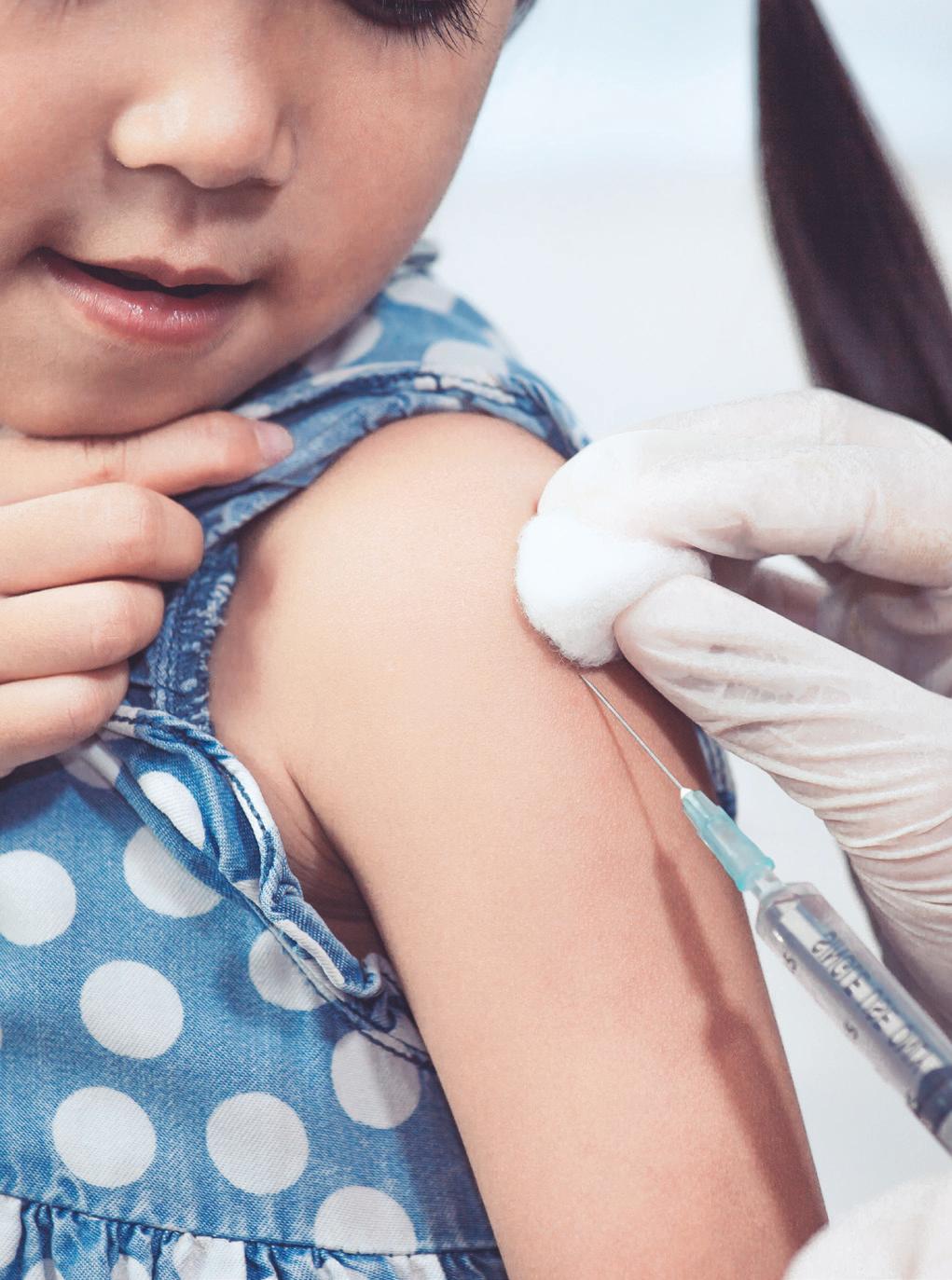
165 HEALTH www.caymanparent.com
Protecting Your Child's Vision

80% of what we
sense of sight.
Common Eye Problems
Some of the more common eye problems that present in children include:
1) Amblyopia: Also known as ‘lazy eye’, this is a vision disorder that can be caused by poor alignment of the eyes. Over time the brain fails to process inputs from the affected
eye, favouring the other. If left untreated, images from the affected eye will be blocked out permanently. Regular eye checks can catch amblyopia at an early stage.
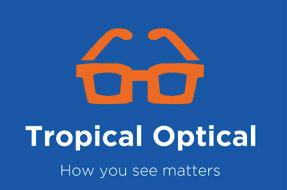
2) Conjunctivitis: More commonly referred to as ‘pink eye’, conjunctivitis is a highly contagious (although rarely serious) inflammation of the thin clear tissue that lies over the white part of the eye. This inflammation causes a redness, or ‘pinkness’ of the white of the eye and is usually accompanied by a thick, yellow discharge, indicating an infection. Visit your GP if you suspect your child has pink eye.
3) Styes: Styes occur when an oil gland on the edge of the eyelid becomes blocked. While generally treatable with over-the-counter methods, styes can become very painful and swollen. Call your GP if your child’s stye is not responding to treatment.
4) Blocked Tear Duct: Most common in children under the age of one, a blocked tear duct occurs when the membrane inside the lower end of the duct is slow to open. Usually, a blocked tear duct will eventually correct itself, however your child’s doctor will be able to suggest treatment in the meantime, including gently massaging the inner corner of the eye.
How
see mat
Four Tips for Eye Health
Here are some proactive ways parents can help maintain their child’s eye health:
1) Regular Eye Examinations: Think of eye examinations as ‘preventative maintenance’ and the first line of defence for good eye health. Your child will have an eye exam as part of their paediatric check at birth, six weeks old, three years old, six years old, and then every two years after that. Their eye health and development will be tested each

Cayman Parent Magazine | Health166 HEALTH
perceive from our surroundings comes from our
With proper preventative care, parents can help their children preserve their sight for years to come, and experience the world around them to the fullest! Tropical Optical has been proudly of fering qualit y eye care services to the Cayman Islands communit y since 1975 We provide comprehensive and professional eye exams for all ages. Full dispensary with an extensive selection of modern and st ylish frames and sunglasses including designer and independent brands to suit all budget. We also stock a large inventory of contact lenses. Fully equipped on-site lab that can provide same day services on most single vision lenses.
you
ters 345 945-7588 • Unit 14, The Galleria Plaza
time and their doctor will be able to flag any potential issues.
2) Balanced Diet: A healthy diet lays the foundations for good eye health. Zinc, lutein, omega-3 fatty acids and vitamins A, C and E can help prevent infections, reduce any future risk of eye diseases, and even fight night blindness. Include lots of fruits, leafy greens, and good fats in your child’s diet.
3) Protect Eyes from the Sun: This is particularly important in Cayman’s sunny climate! Excessive UV exposure has been linked to cataracts, retinal damage and even eye cancer. Children are more at risk of vision damage as their eyes are still developing. Always ensure that your child is wearing sunglasses that block 99%-100% of UV light to ensure maximum protection.

4) Limit Screen Time: As children spend increasing amounts of time online, protecting young eyes from overexertion has never been more important. Implement the 20-20-20 rule: every 20 minutes children should look away from the screen at something 20 feet away for at least 20 seconds – this will help with eyestrain.
Watch for Warning Signs
Keep an eye out for the following symptoms, which could suggest your child is struggling with a vision problem. As always, if you suspect there is an issue, speak to your child’s GP.
Rubbing their eyes frequently
Squinting when reading or focusing on something Light sensitivity

Poor hand-eye coordination
Excessive tiredness.
For a list of eye specialists in Cayman, see page 180.
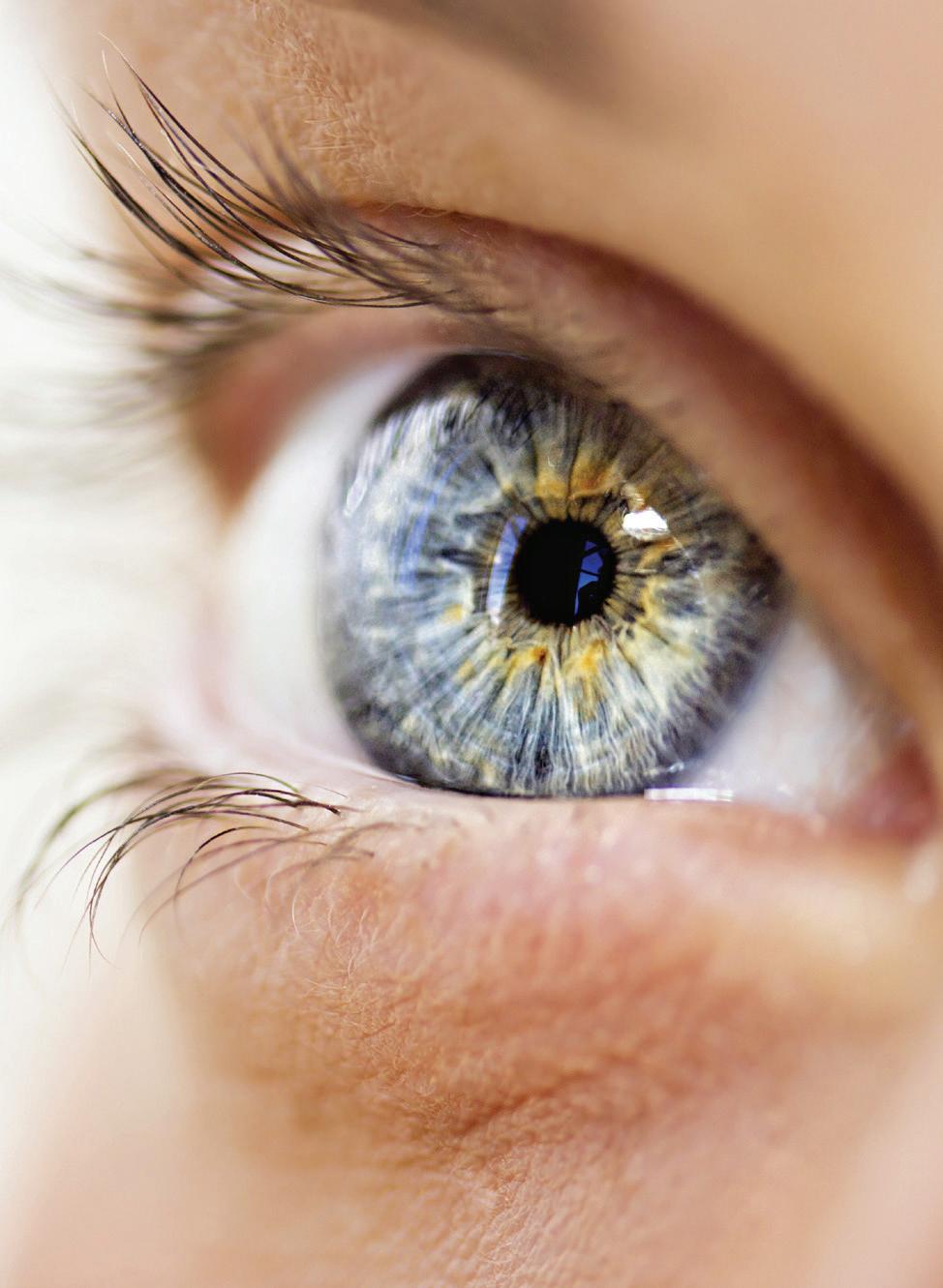
Family History: As with any physical trait, eye health (and eye weaknesses!) can be passed down from parents to children. If you and your partner are near-sighted, farsighted or have an astigmatism, there’s a chance your child will present with the same eye issues too. Speak to your GP about any specific concerns you have about your family history with eye health.
Dr. Eugene Foley

www.caymanparent.com 167 HEALTH
F.R C.S D.O Most Insurance Accepted on Assignment General Ophthalmology Eye Surgery | Lasers Full Diabetic Eye Care | Glaucoma Children Assessments All Eye Emergencies 107 Claudhill Road, off Smith Rd. (formerly Melrose Lane) George Town Tel: 946 4944 Fax: 945 1597 Emergency: 916 6264 Specialist Ophthalmologist 8 Queens Court Plaza, West Bay Road, George Town info@optique.ky www.optique.ky (345) 949-EYES (3937) (345) 325-7945 Design Innovation Technology Eyewear for all the family Oliver Peoples SALT Optics Leisure Society Face A Face Mykita Orgreen ProDesign William Morris London Maui Jim Our House Brands
Photo
by
Rebecca Davidson
Health Book Club
for Children
Filled with intriguing facts and exceptional stories, this book is a funny and informative guide to the human body. Ever wondered what’s going on in your brain? Curious about how the body remarkably heals itself? This book explains it all.
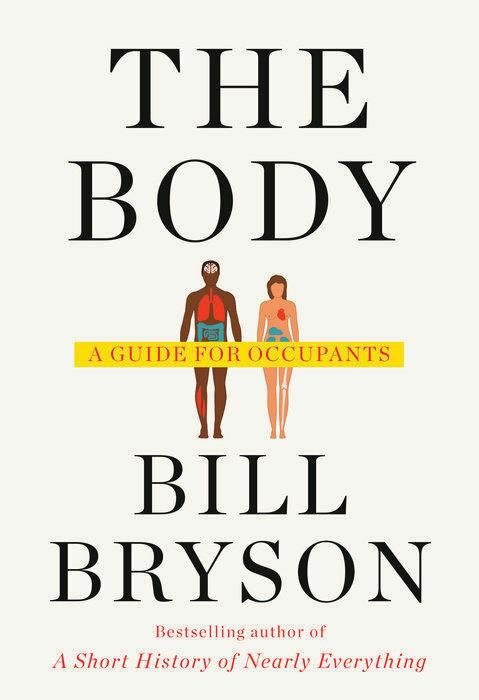
Everything goes back to the breath. In this book, you’ll learn that breathing properly can help you with everything from boosting your workouts to rejuvenating your internal organs. Nestor promises you will never breathe the same again!
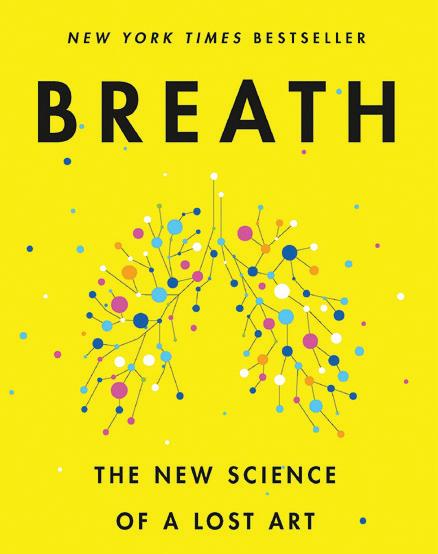
Pollan promises to change the way we think about the politics and pleasure of eating. He takes us through modern eating habits and comments on how our choices can affect not only our health, but also the health of our planet.

Peak – Brain Training has over 45 fun games to challenge your mind. Whether you have five minutes in the morning or half an hour over lunch, this app is great for squeezing mental workouts into your day! Free on Android and iOS.
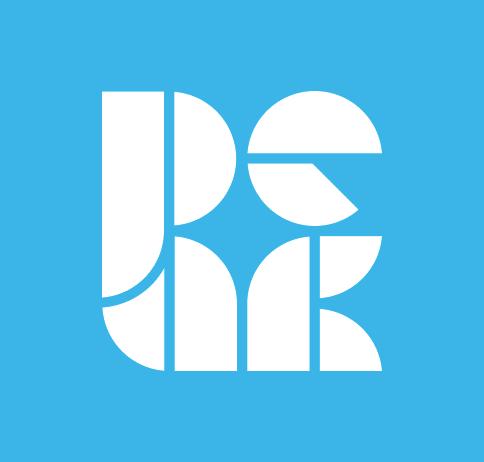
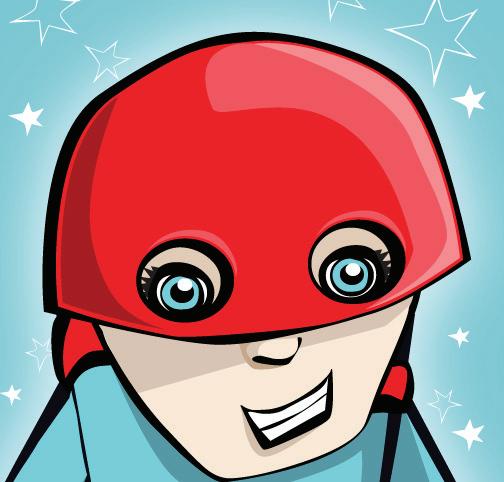
This delicious and beautifully illustrated story will help make fruit fun again! Fruit is an essential part of a child's diet and contains many important vitamins and nutrients. If you have a picky eater, this book might help them reach their five-a-day goal!

An engaging and fun-filled introduction to the brain, this book will empower your little ones to think more about the fantastic things happening inside their bodies!
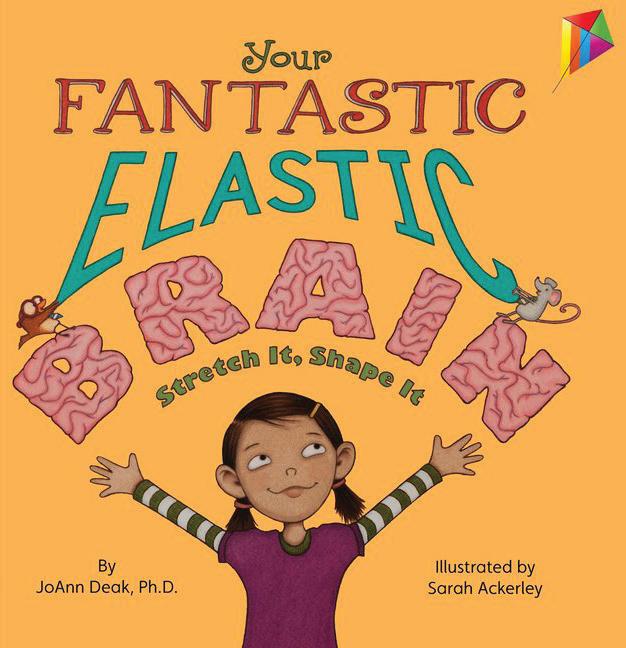
Perfect for boys aged 8 to 14, this book helps youngsters enter puberty with confidence! From coping mechanisms to practical advice, Todnem has created an inclusive and bodypositive guide for navigating this period of change.
Super Stretch Yoga teaches kids how to move, play and breathe! Practise poses, collect stars and learn how to find a bit of namaste in every day. Free on Android and iOS.

Cayman Parent Magazine | Health168 HEALTH
Best for Parents Best
Best Digital for Parents Best Digital for Children
Listings
Paediatricians, Family Doctors, Dentists, Insurance, Support Services
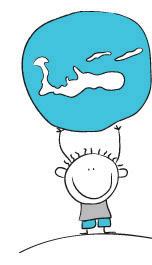
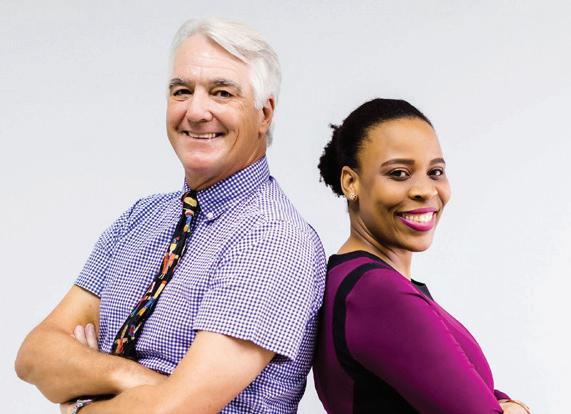
Paediatricians
Dr. Cecily Abraham MBBS DCH DM
Unit 7, Alexander Place, Dorcy Drive, George Town. Tel: (345) 945 7050.
Dr. Shyla Chacko Jehangir MBBS DCH MRCPCH MSc Allergy
Unit 7, Alexander Place, Dorcy Drive, George Town. Tel: (345) 945 7050.
Dr Zanele Balang MBBS DM Paediatrics
OceanMed, Bayshore Mall, Level 2 , South Church Street, George Town. Tel: (345) 946 2326 Web: www.oceanmed.ky.
Dr. Binoy Chattuparambil, Chief Cardiac Surgeon,
Chief Cardiac Doctor/Senior Cardiothoracic & Vascular Surgeon
Health City Cayman Islands, 1283 Sea View Road, East End. Tel: (345) 640 4040 Emergencies: (345) 526 2108 Email: info@healthcitycaymanislands. com Web: www.healthcitycaymanislands.com.
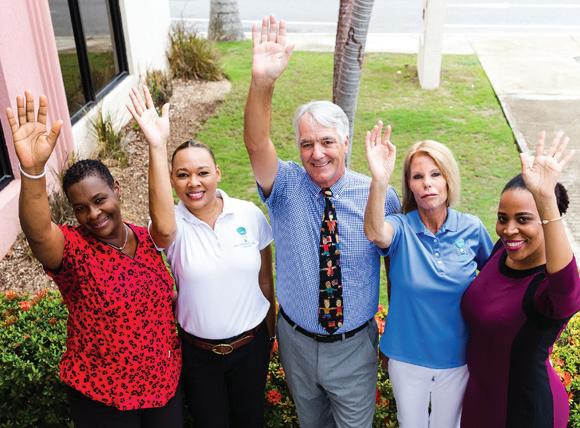
Dr. Ulrich Ecke MD ENT
ENT in Cayman, Units 4 and 5, Pasadora Place, Smith Road, George Town. Tel: (345) 745 3253 Email: info@entincayman.com Web: www. entincayman.com.
Dr. Nadine Yammine MD. Sc FRCSC
Otolaryngology-Head & Neck Surgery Laryngology
Voice & Swallow Disorder Centre, ENT in Cayman, Units 4 and 5 Pasadora Place, Smith Road, George Town. Tel: (345) 745 3253
Email: info@entincayman.com Web: www. entincayman.com.
Dr. Fionnuala Keane MBChB DCH DRCOG PGDipENT
ENT in Cayman, Units 4 and 5, Pasadora Place, Smith Road, George Town. Tel: (345) 745 3253 Email: info@entincayman.com Web: www. entincayman.com.
Niamh Kilcoyne Audiologist MSc
Hearing & Balance Disorders Centre, ENT in Cayman, Unit 37 Pasadora Place, Smith Road, George Town. Tel: (345) 745 3253 Email: info@ entincayman.com Web: www.entincayman. com.
The Children’s Clinic & Family
Gordon Smith, MB ChB MRCP (UK) MRCGP DRCOG
Segomotso Madisa,
MD
providing high-quality preventive and acute care for infants, children and adults. They provide neonatal newborn services, well-baby check-ups, immunisations, sick child visits and much more. Consultations are by appointment, but walk-in emergencies are also catered for. Dr. Smith and Dr. Madisa are very experienced, well-trained, and available 24/7 to look after your newborn. Their physicians attend routine deliveries and high-risk deliveries
Children’s Clinic & Family Practice
provide NICU services when necessary.
the George Town Hospital
www.caymanparent.com 169 HEALTH
the
The Children's Clinic Highlights: Wellness exams • Baby checkups • Attending deliveries • Urgent care • Orientation classes • Neonatal & newborn care • Postnatal care & lactation consultants • Immunisations • Sick visits • Hospital care • Paediatrics Details: Open: Monday-Friday 8.30am-5pm. Saturday 9am-12pm Languages: English, French and Setswana
Dr.
Dr.
MBBS
(UWI) (345) 949 2970 | 93 Smith Road, George Town | drgoffice@candw.ky | www.thechildrensclinic.ky Practice The
is dedicated to
at
and
Doctors Express Healthcare for the whole family

Doctors Express is healthcare for the whole family. We’re an urgent care facility, which is a new concept for Cayman. An urgent care facility functions just like a walkin GP clinic, except we have upgraded equipment like in-house X-rays and labs that most GPs don’t provide.
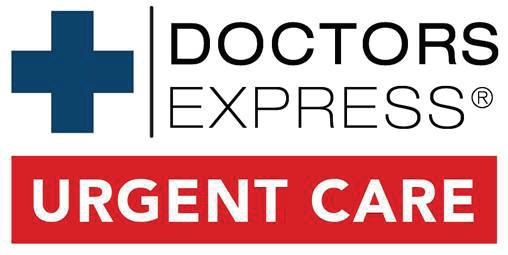
No Appointments Necessary: Just walk in and get the care you need. Doctors Express cares for your whole family’s healthcare needs. Everything from minor ailments like cough, colds, fever and flu all the way up to very severe illnesses and injuries like bad burns, fractures and cuts that need stitches. With in-house X-ray and lab, Doctors Express can care for these urgent issues that might otherwise send you to the emergency room.
Hours of Operation: We’re open seven days a week from 9am-9pm, including most public holidays. So, if you don’t have a GP on-Island or if you can’t get in to see your usual GP, we have you covered.

Other Services: We’re also a one-stop shop for work permit medicals. You can come to Doctors Express and have your X-ray, bloodwork and medical exam done under one roof – usually in less than 45 minutes! We know your time is just as valuable as our doctors’, so our goal is to get you in and out in under an hour.

Highlights:
Open seven days a week, 9am-9pm (including most public holidays)
On site lab
On site X-ray & pharmacy
GP and ER consultant physicians
Services Include:
Walk-in (no appointments needed)
Urgent care
GP services
Prescription refills
Allergies
Cold/flu/fever symptoms
Urinary tract infections
Fractures & sprains
Lacerations
Burns
Back pain
Women’s health
School physicals
Work permit & immigration medicals
Wellness exams
Pre-employment physicals
Drug testing
Imaging & radiology
Laboratory services
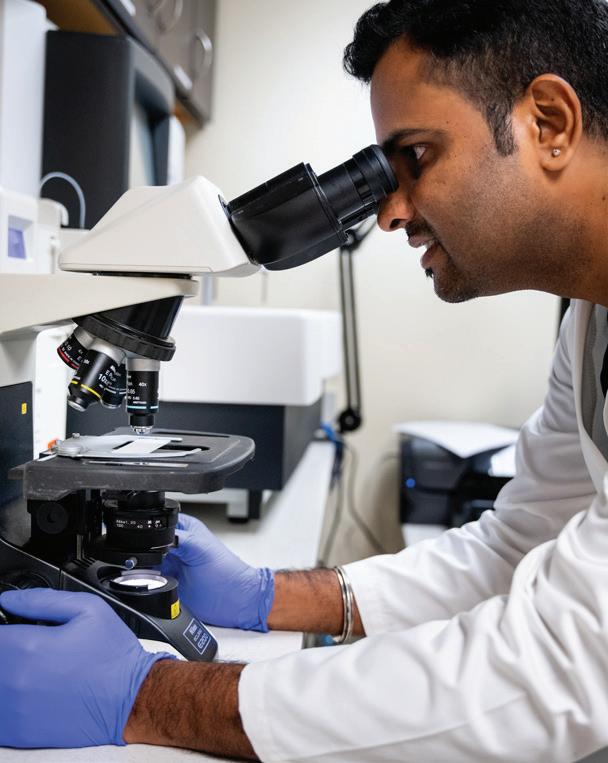
Pharmacy
Medical cannabis consultations
premium healthcare. We're your doctors seven days a week. Open 9am-9pm."
Cayman Parent Magazine | Health170 HEALTH
•
•
•
•
•
•
•
•
•
•
•
•
•
•
•
•
•
•
•
•
•
•
•
•
•
(345) 745 6000 | 81 Godfrey Nixon Way | info@doctorsexpress.ky | www.doctorsexpress.ky "One-stop
Mission
Cayman Islands Health Services
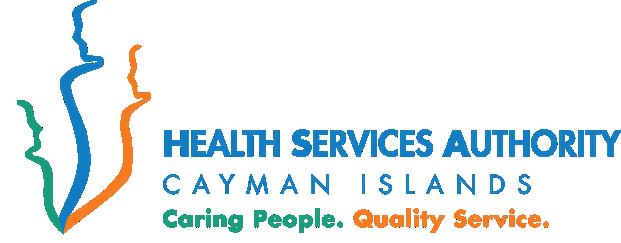
People, Quality Service
in the Cayman Islands can receive world-class healthcare services right here at home with the Cayman Islands Health Services Authority (HSA)
The country’s premier healthcare provider offers the most comprehensive range of inpatient, outpatient and public health services at nine locations on all three islands, including the 127-bed hospital in Grand Cayman and an 18-bed hospital in Cayman Brac.
HSA provides patients with the highest quality of care with services including prenatal care, paediatrics, maternity, women’s health, physiotherapy, family medicine, dental, online pharmacy refills and much more.

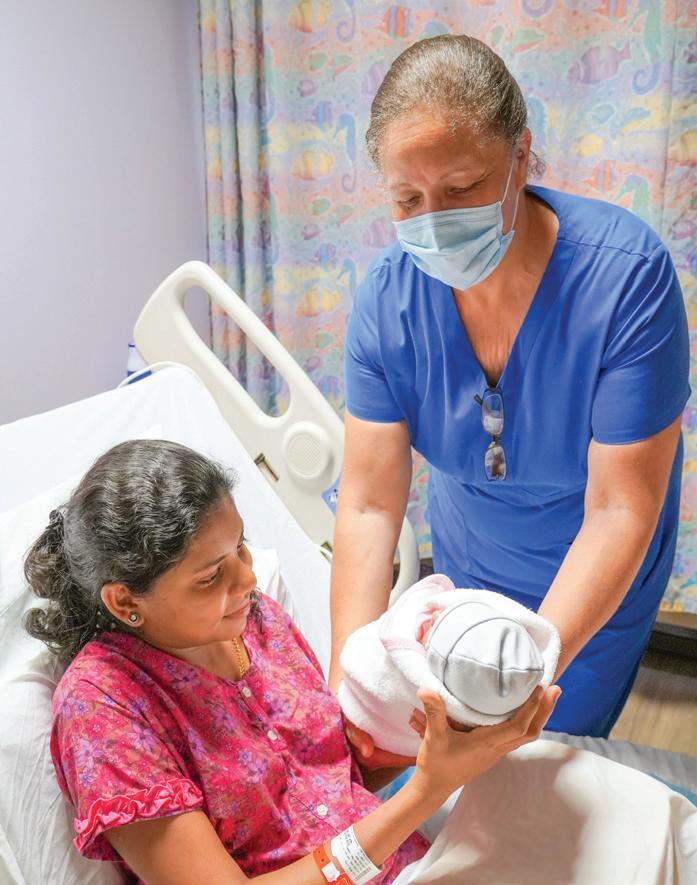
you need a routine wellness check by one of our general practitioners or Family Medicine doctors, or need further testing such as radiology imaging, laboratory services, surgery or emergency services, the HSA offers the highest degree of care, comfort and safety, delivered by a highly skilled, knowledgeable and professional team of physicians, nurses and support staff.
Highlights:
24hr Accident & Emergency
Maternity & NICU
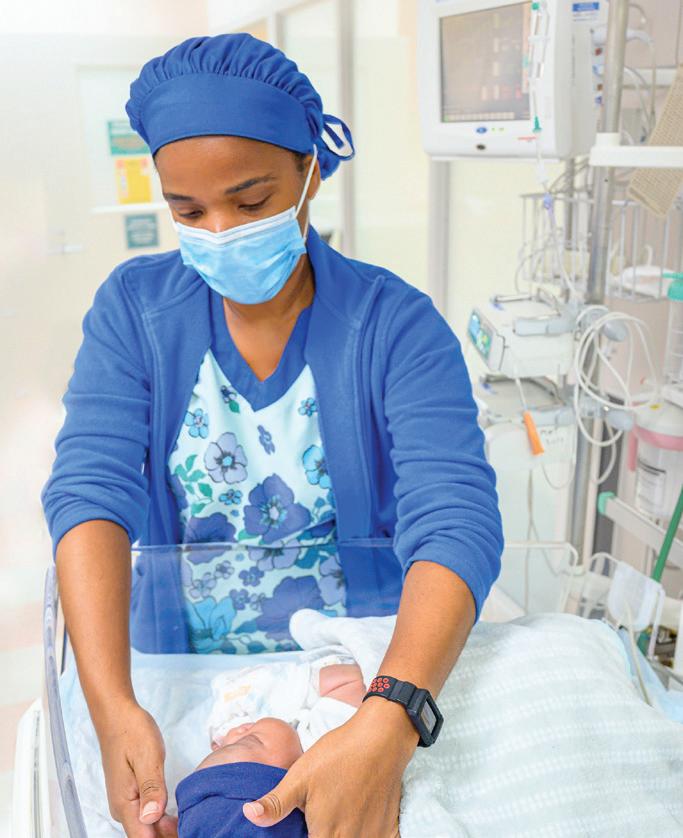
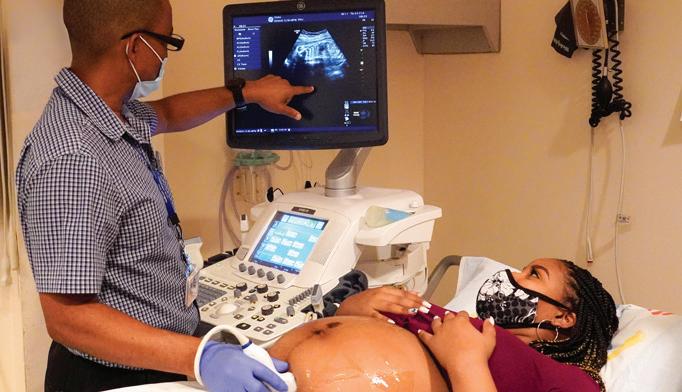
Online Pharmacy Refills
Immunisations

Nine Locations
caring
skilled,
171 HEALTH www.caymanparent.com Services Include: • Paediatrics • Obstetrics/Gynecology • Women’s Health • General Practice & Urgent Care • Public Health • Anesthesiology & Pain Management • Cardiology • Chiropractic • Complementary & Alternative Medicine (CAM) • Dentistry • Dermatology • Dietary & Nutrition Services • Emergency Medical Services • ENT & Oral Surgery • General Surgery & Internal Medicine • Interventional Radiology • Laboratory Services & Blood Bank • Mental Health & Psychology • Nephrology, Dialysis & Urology • Neurology • Oncology & Hematology • Ophthalmology • Orthopedics & Sports Medicine • Pharmacy • Physiotherapy • Primary & Critical Health Care • Radiology • Respiratory Therapy • Rheumatology • Speech & Occupational Therapy
Authority (HSA) Caring
(345) 949 8600 | 95 Hospital Road, Grand Cayman | info@hsa.ky | www.hsa.ky "Our mission is to provide the highest quality healthcare and improve the well-being of people in the Cayman Islands through accessible, sustainable patientfocused services by highly
empowered and
staff in collaboration with our partners." Mission People
.
The
Whether
•
•
•
•
•
Dr. Ramon Lacanilao MD FAAP
Doctors Hospital, 19 Middle Road. Tel: (345) 949 6066 ext. 6504 Email: ramon.lacanilao@doctorshospitalcayman.com.
Dr. Chela Lamsee-Ebanks MBBS DM
Cayman Islands Hospital, 95 Hospital Road, George Town. Tel: (345) 949 8600 Email: chela.ebanks@hsa.ky Web: www.hsa.ky.
Dr. Segomotso Madisa MBBS DM, Pediatrics (UWI) FAAP
The Children’s Clinic and Family Practice, Windward Centre, 93 Smith Road, GT. Tel: (345) 949 2970 Email: drgoffice@candw.ky Web: www. thechildrensclinic.ky Other languages: French and Setswana.
Dr. Jasmina Marinova MRCPCH MD
Dr. Sarah Newton MBChB, FRACP (paeds) DCH
Dr. Sara Watkin MBChB MRCP (paeds) FRCPCH MD
Dr Siobhan Jaques MBBS BSc DRCOG FRCPCH
Integra Healthcare Ltd, Grand Pavilion, SMB. Tel: (345) 745 7450 Email: jasmina.marinova@integra.ky; sarah.newton@integra.ky; sara.watkin@ integra.ky; siobhan.jaques@integra.ky Web: www.integra.ky.
Dr. Marilyn McIntyre MBChB DRCOG FRCM
Cayman Islands Hospital, 95 Hospital Road, George Town. Tel: (345) 949 8600 Email: marilyn.mcintrye@hsa.ky Web: www.hsa.ky.
Dr. Aritra Mukherji MD FNB Consultant Paediatric Cardiologist
Health City Cayman Islands, 1283 Sea View Road, East End. Tel: (345) 640 4040 Emergencies: (345) 526 2108 Email: info@healthcity.ky Web: www. healthcitycaymanislands.com.
Dr. Earl Robinson MD FAAP
Cayman Islands Hospital, 95 Hospital Road, George Town. Tel: (345) 949 8600 Email: earl.robinson@hsa.ky.
Dr. Gordon Smith MB ChB MRCP (UK) MRCGP DRCOG
The Children’s Clinic & Family Practice, Windward Centre, 93 Smith Road, GT. Tel: (345) 949 2970 Email: drgoffice@candw.ky Web: www. thechildrensclinic.ky.
Dr. Linden Swan MBBS DM
Cayman Islands Hospital, 95 Hospital Road, George Town. Tel: (345) 949 8600 Email: linden.swan@hsa.ky Web: www.hsa.ky.
General & Family Doctors

Dr. Alvaro Armiñán MD
Celimar Central Clinic, Unit 11, The Strand Shopping Centre, West Bay Road South. Tel: (345) 745 1300 Fax: (345) 945 1300.
Dr. Dirk Belfonte MBBS MRCP (UK) DCH 43 Walkers Rd, George Town. Tel: (345) 326 5741 Fax: (345) 946 2624.
Dr. Philip Buys MB BCh M Prax Med BSc (Hons)
(Aerospace Med) DOH
Doctors Hospital, 16 Middle Road, George Town. Tel: (345) 949 6066 Email: Philip.buys@doctorshospitalcayman.com or Philip.w.buys@gmail.com Web: www.doctorshospitalcayman.com.
Cayman Clinic Medical Centre
D r. Virginia Hobday MBE MBBS MRCGP MPHIL
Dr. Denise Osterloh MB ChB
Dr. Fiona Robertson MBBS DRCOG MRCGP
Dr. Melissa Mascaro MD CAQSM
Dr. Heidi Fahy MBBS DRCOG MRCGP Nina Baxa RDMS
439 Crewe Road, GT. Tel: (345) 949 7400 Email: cayman.clinic@gmail. com Web: www.caymanclinic.ky Other languages: French, Farsi, Tagalog and Afrikaans. Ultrasound, Sports Medicine, Lab Services & Ideal Protein Weight Loss.
Cayman Islands Health Services Authority - Smith Road Medical Centre General Practice Clinic
Dr. Glaister Bell MBBS DM Fam Med. Dr. Dominic Caudeiron MBBS Dr. Gerard Christian MBBS Dr. Ricardo Clarke MD Dr. Obinna Eleweanya MD, ACC Dr. Moses Gallow MBBS Dr. Lorna Jackson DM Fam Med. Dr. Anna Matthews BSc MBBS, MPH Dr. Courtney Maylor MD ACC Dr. Ngozi (Grace) Onah-Ezema MD MPH Dr. Fiona Robertson MBBS MRCGP Dr. Karlo Sedano-Barredo MRCGP Dr. Imilla Sedano-Barredo MRCGP
Dr. Samantha Digby, BMBS DCH DRCOG MRCGP
Dr. Wilmoth Shillingford MBBS MRC ACC
Dr. Eryka Simmons BSc Med Sc MBBS MSc CD
Dr. Orrett Thane MBBS
Dr. Joy Wallace-Grant MBBS
Dr. Paul Williams MD DM Fam Med. ACC
Conveniently located in Smith Road Plaza, just
five minute walk from the Cayman Islands Hospital, Dr. Samantha Digby is a British trained General Practitioner with over 20 years experience. She practises Primary Care with a whole body approach to wellness for all ages.
Highlights:
General Practice
Details:
Open: Monday-Friday
Appointments
Most local health
The Family Practice (345) 945
Smith Road Plaza,
samdigby@familypractice.ky
Smith Road,
Dr. Adiaris Williams-Rodriguez MBBS
Smith Road Medical Centre, 150 Smith Road, George Town. Tel: (345) 244 7520/7683 Web: www.hsa.ky.
Dr. Else Christoffersen MB BCh LRCP & SI MSc Dermatology
Cayman Doctors, West Shore Center, 508 West Bay Road. Tel: (345) 943 6363.
Dr Rebecca Deasey MBChB MRCGP
Dr Francisco Martinez
Integra Healthcare Ltd, Grand Pavilion, SMB. Tel: (345) 745 7450 Email: francisco.martinez@integra.ky; bec.deasey@integra.ky Web: www. integra.ky.
Dr. Samantha Digby BMBS DCH DRCOG MRCGP
The Family Practice, Smith Road Plaza, 60 Smith Road, GT. Tel: (345) 945 6077 Fax: (345) 949 0531.
Dr. Louis A. Cona MD
The Strand Medical Centre, The Strand Shopping Centre, off West Bay Road. Tel: (345) 945 7077 Email: thestrandmedicalcentre@candw.ky Web: www.caymandoctor.ky.
Doctors Express
81 Godfrey Nixon Way, George Town. Tel: (345) 745 6000 Email: info@
Cayman Parent Magazine | Health172 HEALTH
• Family Medicine • Women's health including Pap smears and breast examinations • Health screenings • Wellness checks • Insurance physicals • Work permit physicals • Dive medicals • Chronic disease management • Co-ordination of specialist care
a
8am-5pm
encouraged, walk-ins welcome
insurance policies accepted
6077 |
60
GT
| www.familypractice.ky
doctorsexpress.ky Web: www.doctorsexpress. ky.
Doctors Hospital
Dr. Rina Bernard MD
Dr. Sidney Ebanks MBBS
Dr. Winston Isles MBBS
Dr. Andrew Robinson MBBS
16 Middle Road, George Town. Tel: (345) 949 6066 or (345) 325 9000. Email: rina.bernard@ doctorshospitalcayman.com, winston.isles@ doctorshospitalcayman.com, sidney.ebanks@ doctorshospitalcayman.com, or andrew.robinson@ doctorshospitalcayman.com.
Health City Cayman Islands
Dr. Binoy Chattuparambil
Dr. Sandeep Mahendra
Dr. Aritra Mukherji
Dr. Jyoti Jadiyappagoudar
Dr. Romnesh de Souza
Dr. Deepak Varma
Dr. Sunil K Mathai
Dr. Mahantesh Patil
Dr. Raghu Prasad
Dr. Tarun Sheshagiri
Dr. Neeraj Shetty
Dr. Agniva Basu
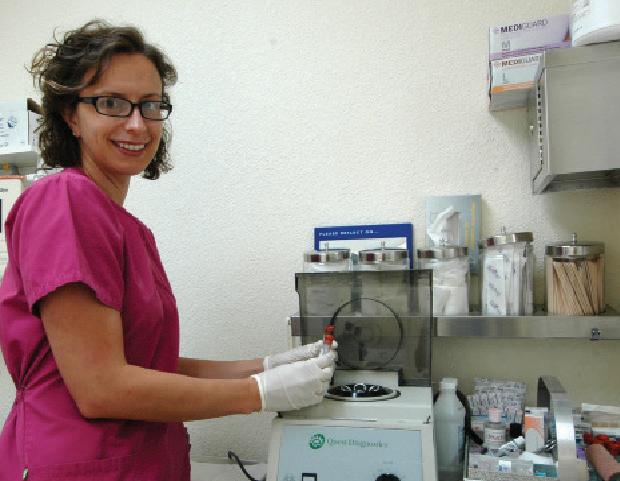
Dr. Manunatha Kandala
Dr. Sumana Pallegar
1283 Sea View Road, East End. Tel: (345) 640 4040
Emergencies: (345) 526 2108 Email: info@healthcity. ky Web: www.healthcitycaymanislands.com.
Dr. Hortense Smith
Faith Hospital, 215 Dennis Foster Road, Cayman Brac. Tel: (345) 948 2243 Web: www.hsa.ky.
Global Medical Center & Laboratory
Unit D3, Countryside Shopping Village, 33 Hirst Road, Savannah. Tel : (345) 943 4500.
International Medical Group

Dr. John Addleson MB ChB Dip Mid COG
International Medical Group, Unit 30, Pasadora Place, Smith Road. Tel: (345) 945 2881. Email: draddleson@intmedicalgroup.com.
Dr. Victor Look Loy MBBS
Unit 4, 2nd Floor, Windward Centre, 93 Smith Road, George Town. Tel: (345) 949 7535.
Dr. Joseph Marzouca BSc MBBS
Marzouca Medical Clinic, Suite 29, Pasadora Place, Smith Road. Tel: (345) 949 6631.
Dr. Michelle Mon Désir BSc MBBS
Oasis Medical Group, 101 Centennial Towers, West Bay. Tel: (345) 943 6066 Email: info@ omgcayman.com Web: omgcayman.com.
Dr. Ruthlyn Pomares MBBS
Premier Medical Care, Unit 14A, Rankin’s Plaza, 21 Eclipse Drive. Tel: (345) 945 2273.
Dr. Charles H. Reid MA (Oxford) BM BCh
The Brac Clinic, Tibbetts Square, West End, CB. Tel: (345) 948 1777 Email: clinic@bracmed.com.
Savannah Medical Clinic
Countryside Shopping Village, Savannah. Tel: (345) 749 6066.
Seven Mile Medical Clinic
Dr. Beatriz Esteban Benavides MD
Dr. Sook Lee Yin MB ChB BAO
The Strand Medical Centre
General Practice & Surgery
located along
been serving the
Dr. Sarah Cuff, MB ChB MRCGP DFSRH
Dr. Thomas Quin, MB ChB DFSRH MRCGP
Queens Court, West Bay Road. Tel: (345) 949 5600 Email: admin@sevenmileclinic.ky.
Dr. Gordon Smith MB ChB MRCP (UK) MRCGP DRCOG
The Children’s Clinic & Family Practice, 93 Smith Road, GT. Tel: (345) 949 2970 Web: www. thechildrensclinic.ky.

Total Health
The Grand Pavilion, 802 West Bay Road. Tel: (345) 333 2222 Pharmacy: (345) 333 4444
Email: appointments@totalhealth.ky Web : www.totalhealth.ky.
TrinCay Medical Centre
Suite 32 Pasadora Place, Smith Road.
Tel: (345) 943 4633 Email: info@trincay.ky.
Dr. Kenia Warden MD
Suite 27, Pasadora Place, Smith Road. Tel: (345) 945 9260.
Hospitals
Cayman Islands Hospital (HSA)
95 Hospital Road, George Town. Tel: (345) 949 8600 Fax: (345) 949 2998 Email: info@hsa.ky Web: www.hsa.ky.
The Cayman Islands Hospital is a 127-bed hospital, encompassing 139,066sq ft on two storeys, in the heart of George Town. As the principal health care facility in the country, it offers a wide range of services including accident and emergency services, ambulance services,
over
experienced in caring for all family
a welcoming environment for every child and
medicine
caring
known
approach
www.caymanparent.com 173 HEALTH
(345) 945 7077 | thestrandmedicalcentre@candw.ky | caymandoctor.ky | The Strand Shopping Centre Details: Open: Monday-Friday 8.30am-5pm, Saturday 8.30am-11.30am Languages: Italiano, Français, Deutsch and Español Most local insurance policies accepted Highlights: General and family practice • Women’s, men’s and children’s health • Allergy testing and asthma treatment • Medically supervised weight reduction programme • Cayman school and U.S. University physicals • Urgent care • Sports-related injuries • Musculo-skeletal injuries • Diving-related injuries • Minor surgery Conveniently
Seven Mile Beach, The Strand Medical Centre has
Cayman community for
20 years. The Clinic, headed by Dr. Louis A. Cona MD, is
members. The staff's professionalism and
nature creates
parent. The doctors are
for their holistic
to
while simultaneously delivering premium care every day. The Centre also has a network of specialists.
an urgent care clinic, full maternity services and NICU, haemodialysis, a pharmacy and a number of diagnostic and specialist services. Diagnostic services include: mammography, computerised tomography, laboratory services, a DNA forensic unit, a molecular biology laboratory and other facilities that can be expected in a modern healthcare setting. Specialist services include: gynaecology and obstetrics, paediatrics, surgery, internal medicine, dentistry, dermatology, haematology, oncology, nutrition, gastroenterology, interventional radiology, ophthalmology and orthopaedics. Other services include a general practice clinic, public health and immunisations, a fullservice outpatient pharmacy, complementary and alternative medicine (CAM), chiropractic, cardiology, urology, behavioural health services, otorhinolaryngology, and chronic pain management are available at the Smith Road Medical Centre (George Town). Therapy services are located at Bay Town House (West Bay Road). Both are satellite locations of the HSA.
Doctors Hospital
16 Middle Road, George Town. Tel: (345) 949 6066 Web: www.doctorshospitalcayman.com
Doctors Hospital offers exceptional private healthcare with state-of-the-art medical, surgical, and diagnostic services to Cayman residents and visitors seeking internationalstandard healthcare in the heart of George Town. Services include family practice and primary care, urgent care, paediatric services, maternity services, women's health, cardiology, oncology and more.
Faith Hospital, Cayman Brac
215 Dennis Foster Road, Cayman Brac. Tel: (345) 948 2243 Fax: (345) 948 2460 Email: info@hsa.ky Web: www.hsa.ky.
Faith Hospital is an 18-bed facility that provides primary, secondary and emergency care to the residents and visitors of Cayman Brac and Little Cayman. The facility provides services in the fields of general medicine, surgery, dialysis, anaesthesia, obstetrics and gynaecology. Emergency Medical Services provides pre-hospital care and transport. Specialist physicians from the Cayman Islands Hospital visit regularly to deliver additional services such as paediatric care, orthopaedics, mental health, urology, internal medicine, ophthalmology, dermatology and nutrition.
Health City Cayman Islands
1283 Sea View Road, East End, 9 Forum Lane, Camana Bay. Tel: (345) 640 4040
Email: info@healthcity.ky Web: www. healthcitycaymanislands.com.
Health City Cayman Islands provides affordable, compassionate medical services to children in its state-of-the-art medical facility accredited by Joint Commission International (JCI) and its satellite Health City at Camana Bay clinic. Health City offers the highest calibre of care with a team of internationally trained physicians and surgeons. Medical specialities include adult and paediatric cardiology, electrophysiology, neurology, paediatric endocrinology, imaging and radiology, rehabilitation, nutrition counselling and more. An internationally accredited centre, they attract patients from the Cayman Islands and beyond.
Dietitians
Cayman Islands Hospital
95 Hospital Road, George Town.
Simone Sheehan RD, Tel: (345) 244 2655
Email: simone.sheehan@hsa.ky, Tamara Riley, Tel: (345) 244 2663
Email: tamara.riley@hsa.ky.
Chad Collins RD
Jessica Watterworth RD (Paediatrics Specialty)
Cayman Nutrition, 227 Smith Rd, George Town.
Tel: (345) 525 2019 or (345) 547 1528. Web: www.caymannutrition.com.
Kristen Lomas RD MBA
Seven Mile Medical Clinic, Queens Court Plaza, West Bay Road. Tel: (345) 949 5600
Email: admin@sevenmileclinic.ky. Web: www. sevenmileclinic.ky.
Brandi Propas MHSC, RD, CCDE
International Medical Group, Unit 30, Pasadora Place, Smith Road. Tel: (345) 945 2881. Web: www.intmedicalgroup.net.
Total Health
Kousalya Rozario BSc Nutrition MSc Food Management
The Grand Pavilion, 802 West Bay Road. Tel: (345) 333 2222 Email: appointments@ totalhealth.ky Web: www.totalhealth.ky. Rozario is a registered dietitian empowering individuals to take control of their own health by providing nutritional tools and knowledge to encourage better lifestyle choices.
Making waves in healthcare
OceanMed brings modern healthcare to the entire family, offering services in obstetrics & gynaecology, paediatrics & neonatal care, general practice, and medical imaging. They provide quality, well-rounded care for women and men at all stages of life.
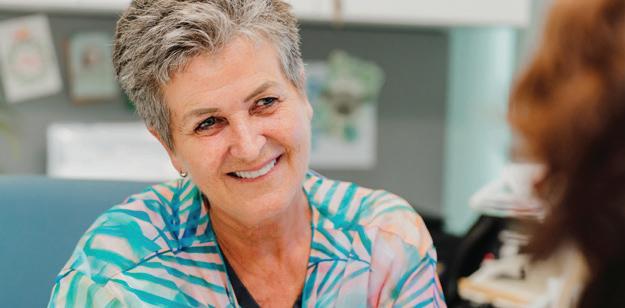

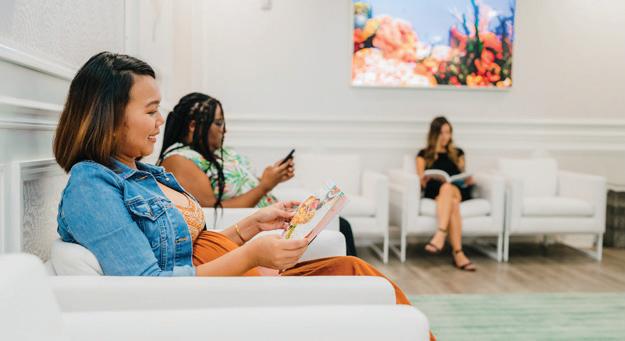
OceanMed is located in George Town with stunning oceanfront views and is designed to promote comfort and relaxation. They provide exceptional care by prioritising a compassionate, collaborative, and safe environment. Their aim is to have a positive impact on the people and health of our community.

Cayman Parent Magazine | Health174 HEALTH
OceanMed
(345) 946 2326 | info@oceanmed.ky | www.oceanmed.ky | Bayshore Mall, Level 2, South Church Street, GT Services: Pregnancy & infertility • Menopause • Menstrual irregularities • Pelvic prolapse • Urinary incontinence • Genetic screening • Newborn care • Behavioural health screening • Teen health checks • Wellness checks • Mental health for teens & adults • Acute & chronic illness • Minor injuries & surgery • Anti-aging • Work permit medicals • Ultrasound • Mammography • 3D & gender scans • Biopsies Details: Open: Monday-Friday 8am-5pm. Saturday 8am-1pm. All local private insurance policies accepted.
Doctors
Doctors Hospital was founded in 2000 as the Chrissy Tomlinson Memorial Hospital with a mission of providing quality, affordable healthcare to the Cayman Islands. In the years since its founding, more and more foreign-owned healthcare facilities have moved into the Cayman Islands, drastically changing the medical landscape. In response to this, a group of local doctors joined together in 2016 to purchase CTMH to ensure it stayed locally owned. They renamed it Doctors Hospital to reflect its employee ownership and quality of care.

Over the years, DH has expanded to provide preventative healthcare as well as expert care for ongoing conditions to diverse communities across the Cayman Islands. DH continues to recruit internationally recognised specialists across disciplines like cardiology, oncology, men’s and women’s health, imaging, and more.
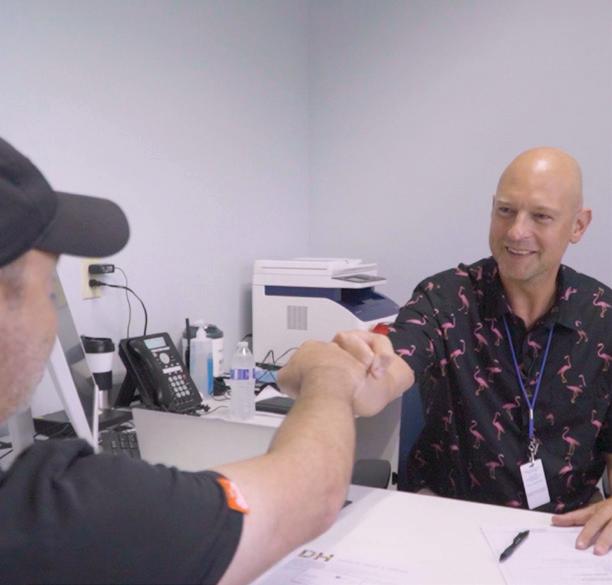
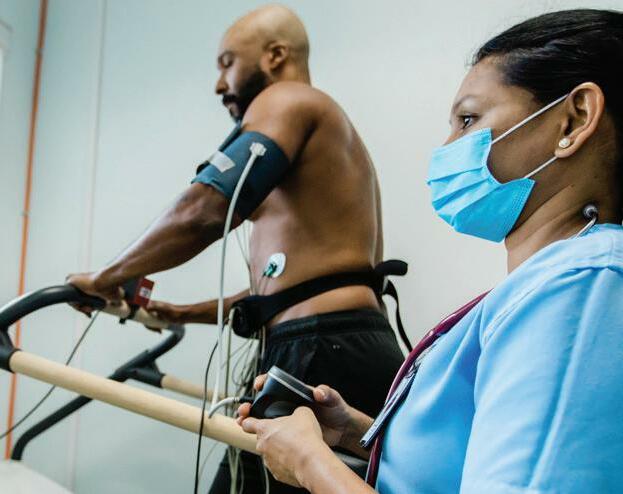
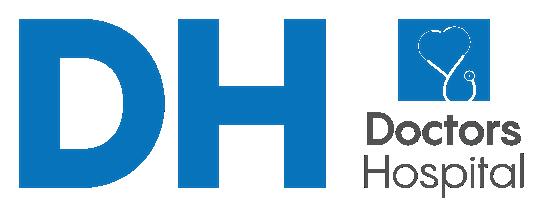
Today, Doctors Hospital works towards the highest international standards of care, attracting top medical practitioners from Cayman and around the world. Their partnership with Baptist Health has expanded their services even further, giving patients access to a greater range of specialists and wellness options. DH continues to invest in bringing cutting-edge medical technology to the island as well as expanding its footprint with new facilities. Doctors Hospital remains locally owned, proud of its Cayman roots, and dedicated to being the best.
Mission
" To promote the health and well-being of all we serve through the provision of first world, international standard healthcare services in collaboration with all physicians and other providers who share the same vision and values."
Highlights:
A full range of health and wellness services tailored to patients' unique care needs
Specialised medical care supported by industry-forming research and advanced medical technology
Market-leading surgical services, ranging from minimally invasive to traditional surgeries
Dedicated Care Coordinators ensuring patients receive exceptional support and guidance before, during and after their services
Services Include:
24/7 Urgent Care
Cardiology
COVID-19 Testing
Child & Teen Health
Imaging Services

Laboratory Services
Maternity Services
Men's Health
Neurology
Oncology
Pharmacy
Surgical Services
Urology
Wellness
Women's Health
175 HEALTH www.caymanparent.com
Hospital Doctors Hospital has been providing patient-centred private healthcare to Cayman for over two decades. Direct Line: (345) 949 6066, Care Centre: (345) 325 9000 | 16 Middle Road, George Town info@doctorshospitalcayman.com | www.doctorshospitalcayman.com
•
•
•
•
•
•
•
•
•
•
•
•
•
•
•
•
•
•
•
We’re about MOTION
Get access to the world’s most advanced surgical and non-surgical techniques with our internationally acclaimed specialists – right here in Cayman.
Dr Scott Hodges, DO
Fellowship-trained Spine Surgeon, Board Certified Orthopaedic Surgeon, Osteopath CaymanSpine
Dr Kristian Kley, MD

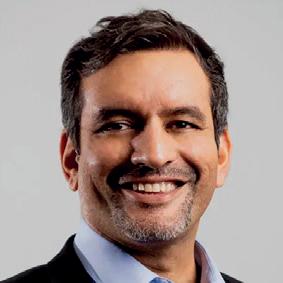
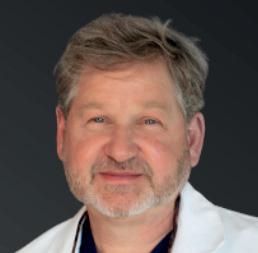
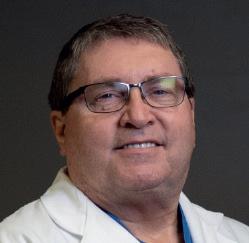
Consultant Knee and Hip Surgeon Board Certified Orthopaedic and Trauma Surgeon NovoClinic
At CaymanSpine and NovoClinic, we’re committed to providing exceptional patient care and to preserving motion across all areas of orthopaedics and the spine.
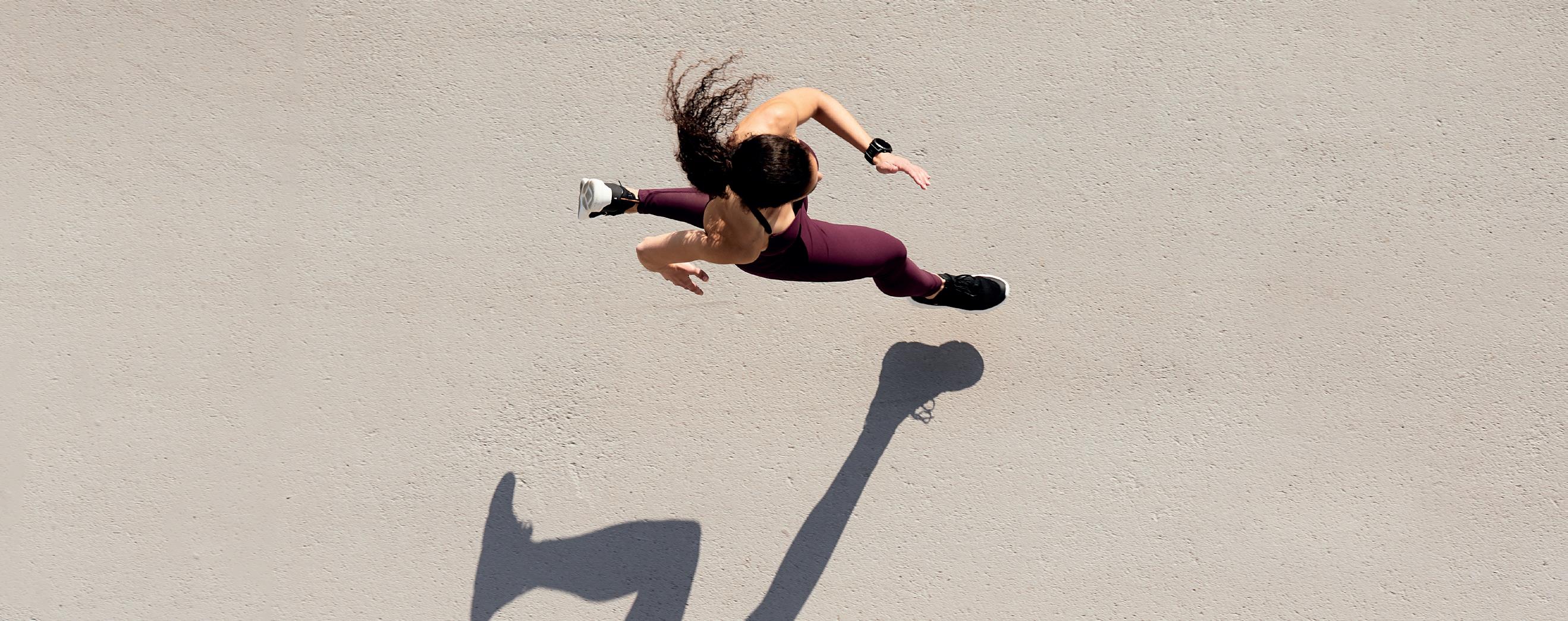
Dr Craig Humphreys, MD
Fellowship-trained Spine Surgeon, Board Certified Orthopaedic Surgeon CaymanSpine
Don Duff, APN, DC, FNP-C Advanced Practice Nurse, Spine Surgery, Doctor of Chiropractic CaymanSpine
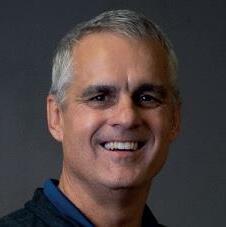
Dr Raghbir Khakha, MD, FRCS (Tr & Orth), MBBS, MSc
Consultant Orthopaedic & Specialist Knee Surgeon NovoClinic
Professor Adrian Wilson, MD, MBBS, BSc (Hons), FRCS, FRCS (Tr & Orth)

Consultant Orthopaedic & Specialist Knee Surgeon NovoClinic

Dr Ali Noorani, MD, MBBS BSc (Hons) MRCS, FRCS (Tr & Orth)
Consultant Orthopaedic & Trauma Surgeon, Shoulder, Elbow & Upper Limb NovoClinic
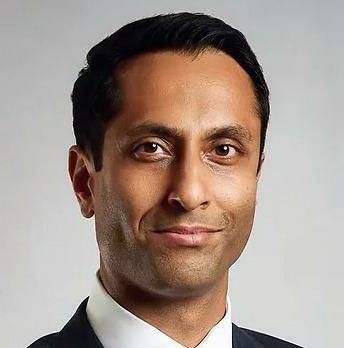
Cayman Dental

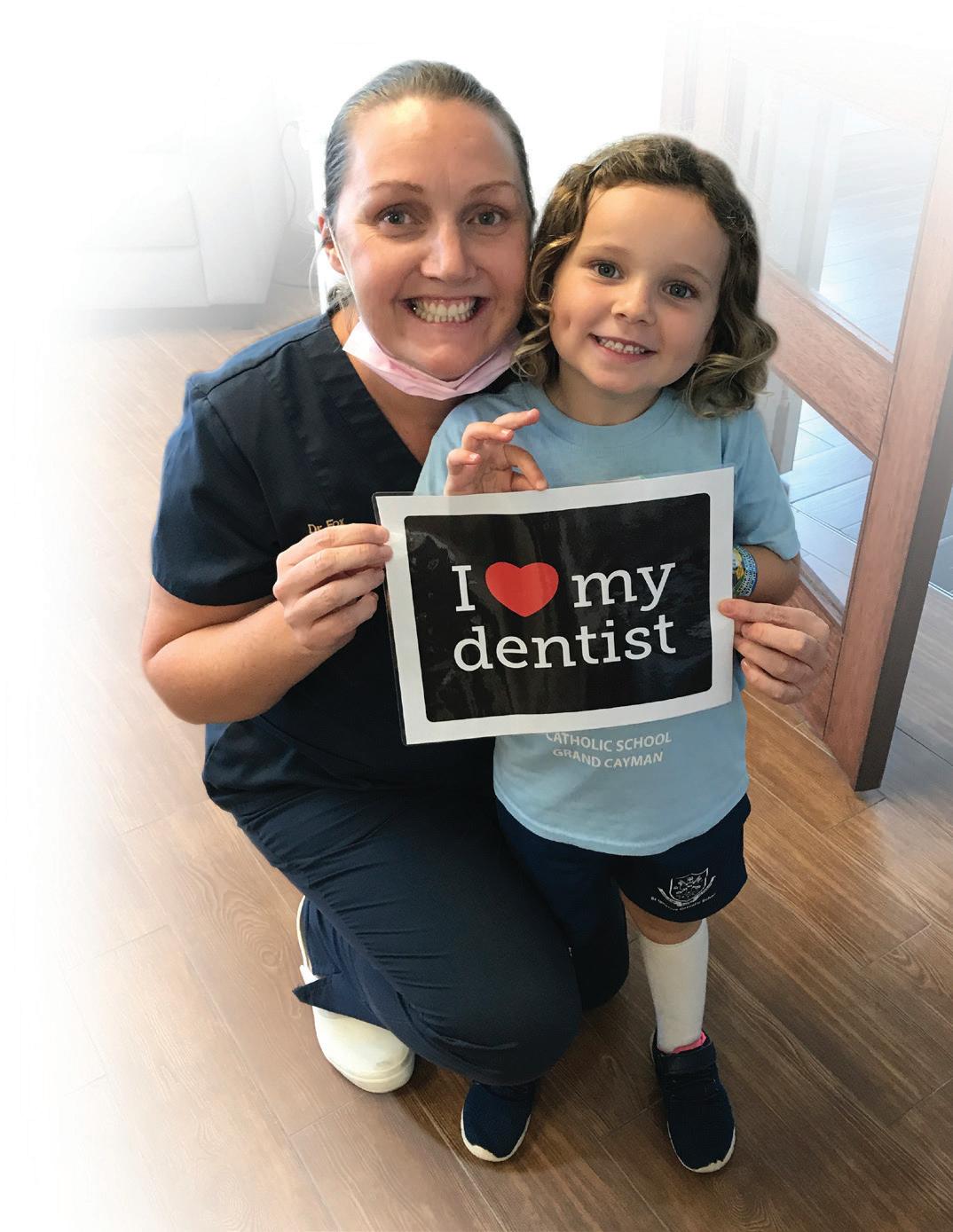
Dr. Howard Ironstone BSc Phm DDS FAGD FICD
Dr. Thomas Lerikos BSc DDS
Dr. Imogen Bexfield BChD
Dr. Charlecia Moore BSc, DDS
Dr. Juan Lopez DMD DDS
Dr. Suki Murbay MSc BDS
Dr. Michael Morgan BSc DDS
18 Forum Lane, Camana Bay. Tel: (345) 945 4447 Email: caymandentalservices@gmail.com Web: www.caymandental.com
Cayman Islands Health Services AuthorityDental Clinic
Dr. Lyle Bridgeman DDS
Dr. Andrea Campbell-Maitland DDS AEGD
Dr. Naude Dreyer DMD
Dr. Megan Griffith
Dr. Jonathan Lavington
Dr. Michael Leon DMD (Cert Endodontics)
Dr. Pratish Munasur B.Ch.D - UWC (South Africa)
Dr. Lavanya Pernapati BDS, AEGD, GPR
Dr. Hal Phillips DDS F.A.G.D.
Cayman Islands Hospital, 95 Hospital Road, George Town. Tel: (345) 244 2741 or (345) 244 2742 Web: www.hsa.ky.
Dr. George David D.M.D
Faith Hospital, Cayman Brac. Tel: (345) 948 2243 ext. 2447641.
The Dental Centre
Dr. Keelin Fox BA B.Den.Sc MFDS(RCSI)
(MClinDent) Orthodontics and Dentofacial
Orthopaedics
Dr. Jennifer Mountjoy BDS NUI MSc Imp Dent
2nd Floor, Fidelity Financial Centre, West Bay Road. Tel: (345) 943 7000 Email: thedentalcentre1@gmail.com Web: www. thedentalcentrecayman.com. A state-of-theart dental clinic providing everything from routine dental checkups and cleanings to advanced surgical and restorative dental procedures.
My Island Dentist
Dr. Talia Davidson DDS & Associates
Hygienists:
Carrie Rimando RDH
Sooze Rothwell RDHT
Peeta Sandhu RDH
Under the Clock Tower, Governors Square, West Bay Road. Tel: (345) 749 9500 Web: www. myislanddentist.com. A full-service dental clinic providing preventative, restorative and cosmetic dentistry services to families throughout Cayman.
Dr. Naude Dreyer DMD
The Merren Dental Clinic, Hospital Road. Tel: (345) 949 2554.
Pasadora Family Dental Centre
Dr. Georgios Batgidis DDS FIADFE (USA) FAAID
Dr. Aikaterini Fysikoudi DDS HSPD (HonM) Dr. Kris Togias DMD PC Board Certified Orthodontist (USA)
Dr. Mauritz Crouse BChD (WCU)
94 Smith Road, Pasadora Place, George Town. Tel: (345) 943 2222 WhatsApp: (345)
936 3222 Email: info@pfdc.ky Web: www.
pasadorafamilydental.ky Other Languages: English, Spanish, German, French, Greek, Afrikaans and Tagalog
Seven Mile Beach Dental Clinic
Marquee Place, West Bay Road. Tel: (345) 943 7400 Email: appointments@smbdentalclinic.ky.
Smile Dental Clinic
Dr. Boban Kostich DDS MFGDPRCS (UK)
Dr. Al Latif BDS (Lond) Msc Con Dent (Lond)
Dr. Niels Altmayer Dr. med. dent. (DE) (Endodontics)
Units 10-12 Alexander Place Dorcy Drive, Industrial Park, George Town. Tel: (345) 949 7303 Email: info@smiledentalclinic.ky Web: www.smiledentalclinic.ky.
The Strand Dental Clinic
Dr. Florence Enescot DMD DDS
Dr. Jan Frank Pultr LT BDS (UK)
The Strand Shopping Centre, off West Bay Road. Tel: (345) 949 3367 Email: florence.enescot@ gmail.com or jpultr@yahoo.com.
Dr. Sharn Mentz BChD (Pretoria)
Ocean Dental, Grand Harbour. Tel: (345) 949 7623.
Dr. Wolfe’s Dental Centre
Dr. Wilbert Veit DMD FACD FAES FICOI
Dr. Adam Stang DDS
135 Andrew Drive, Snug Harbour. Tel: (345) 945 4388 Email: info@wolfedental.ky Web: www. wolfedental.ky.
Dental Centre
Dr Keelin Fox
Dr Jennifer Mountjoy
177 HEALTH www.caymanparent.com
The
is dedicated to providing state of the art dental treatment utilising the very latest techniques. We provide a dental service for all the family from routine six monthly check ups and cleaning to the most advanced surgical and restorative dental procedure Services: Comprehensive Exams & Ultrasonic Cleanings. Restorative Procedures: White Fillings | Crowns, Bridges & Veneers | Root Canal Treatments | Dentures & Dental Implants | Extractions | Orthodontics: Damon Braces & Invisalign | Night Guards & Sports Guards | Anti-Wrinkle Injections | Dermal Fillers | Regenerative Skin Treatments | Profhilo | Teeth Whitening 2nd Floor, Fidelity Financial Centre, Seven Mile Beach, Grand Cayman 345-943-7000 | thedentalcentre1@gmail.com www.thedentalcentrecayman.com
General Dentistry
My Island Dentist
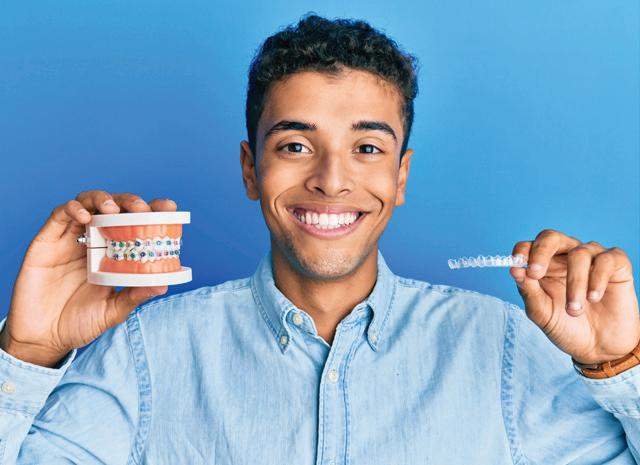

Dr. Talia
Sooze
Peeta
About
&
Details:
Smile Dental Clinic

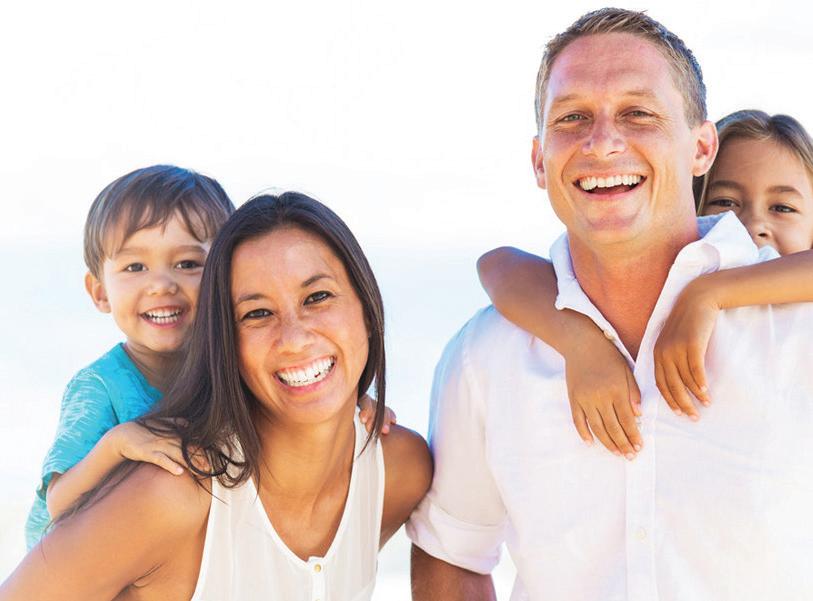


Dr. Boban Kostich, DDS MFGDPRCS (UK)
One Line About Business / Tag Line
Dr. Al M Latif, BDS (Lond) MSc Con Dent (Lond)
Dr. Niels Altmayer, Dr Med Dent (DE) (Endodontics)
Dr. Geoffrey Newton, BSc DDs MSc
Dr. Pourang Rahimi, DDS MSD FRCDc
Details:
Office hours
Monday-Thursday
178 HEALTH Cayman Parent Magazine | Health The Business Name xxx Business Name One Line
Business / Tag Line phone number | email@email.com | website | address, unit Highlights: xxx Details: xxx (345) 749 9500 | WhatsApp: (345) 324 9500 | Governors Square (under the clock tower) | www.myislanddentist.com Services: • EMS Airflow technology for dental cleanings • Fluoride treatment • Oral cancer screening • Tooth coloured fillings • Root canal therapy • Extractions • Nitrous oxide • Sedation dentistry • Teeth whitening • Crowns, bridges & dentures • Veneers & bonding • Cosmetic & therapeutic Botox • Invisalign with digital scanning
Office hours are Monday-Thursday 8am-6pm, Fridays 8am-4pm and Saturdays 8am-1pm. My Island Dentist is a full-service dental clinic providing preventative, restorative and cosmetic dentistry services to families throughout Cayman. They take an individualised approach to every patient's overall wellness.
Davidson, DDS
Associates
Rothwell, RDHT Carrie Rimando, RDH
Sandhu, RDH The Business Name xxx Business Name
phone number | email@email.com | website | address, unit Highlights: xxx Details: xxx (345) 946 7303 | info@smiledentalclinic.ky | Units 10-12, Alexander Place, Dorcy Drive | www.smiledentalclinic.ky Highlights: Dental care for adults and children • Orthodontics • Oral surgery & implants • Periodontal surgery • Tooth colour restorations & sealants • Cosmetic dentistry & tooth whitening • Crowns, bridges & veneers • Hygiene services • Dentures • Root canal treatments • Digital X-rays • Damon braces • Invisalign • Clear retainers • Lingual wires • Removable & fixed appliances
are
9am-5pm, Fridays 9am-3pm Evening appointments available. After hours emergency care and walk-ins welcome. Smile Dental Clinic is dedicated to providing Cayman's community with professional and personal dental and orthodontic care. They offer a wide range of treatment options and strive to provide a setting where all patients are treated with dignity, respect and appreciation.
Children's Dentistry & Orthodontics
Cayman Dental (Orthodontics)
18 Forum Lane, Camana Bay. Tel: (345) 949 5090 Email: caymanorthodontics@gmail.com.
My Island Dentist
Governors Square, West Bay Road. Tel: (345) 749 9500 Web: www. myislanddentist.com.
Pasadora Family Dental Centre
Dr. Aikaterini Fysikoudi DDS HSPD (HonM)
Dr. Kris Togias DMD PC Board Certified Orthodontist (USA)
94 Smith Road, Pasadora Place, George Town. Tel: (345) 943 2222 WhatsApp: (345) 936 3222 Email: info@pfdc.ky Web: www. pasadorafamilydental.ky Other languages: English, German and Greek.
Smile Dental Clinic
Dr. Geoffrey Newton BSc DDS MSc
Dr. Pourang Rahimi DDS MSD FRCD(C)
Units 10-12 Alexander Place Dorcy Drive, Industrial Park, George Town.
Tel: (345) 949 7303 Email: ortho@smiledentalclinic.ky Web: www. smiledentalclinic.ky.
Seven Mile Beach Dental Clinic
Marquee Place, West Bay Road. Tel: (345) 943 7400 Email: appointments@ smbdentalclinic.ky.
Pharmacies
Be Well Pharmacy
West Shore Center, 508 West Bay Rd, SMB. Tel : (345) 949 2323 On Call: (345) 927 0489 Email : rx@bewellpharmacycayman.com Open: Mon-Fri 8.30am-6.30pm, Sat 9am-3pm, Sun 10am-2pm. Free delivery.
Care Pharmacy
Queens Court Plaza, West Bay Road. Tel: (345) 943 2273 Email: carepharmacy1@gmail.com Open: Mon-Fri 9am-7pm, Sat 9am-3pm, closed Sundays and public holidays.
Caribbean Pharmacy & Wellness Centre
72 North Church Street, GT. Tel: (345) 946 0338.
HealthCare Pharmacy (Two Locations)
The Shoppes at Grand Harbour, 1053 Crewe Rd, GT. Tel: (345) 947 8900
Open: Mon-Sat 8am-10pm, Sunday and public holidays 10am-6pm Email: health05@candw.ky. Governors Square , SMB. Tel: (345) 949 8900 Email: rx@healthcarepharmacy.ky Open: Mon-Sat 9am-6pm, closed on Sundays and public holidays.
The Health Services Authority Pharmacies
> Smith Road Pharmacy (Primary Pharmacy)
150 Smith Road, George Town. Tel: (345) 244 2715/16
Open: Mon-Fri 8am-9pm, Sat-Sun and public holidays 9am–5.30pm.
> Cayman Islands Hospital Pharmacy
95 Hospital Road, George Town. Tel: (345) 244 2715/16
Open: Mon-Fri 8am-9pm, Sat-Sun and public holidays 9am–5.30pm.
> Faith Hospital in Cayman Brac
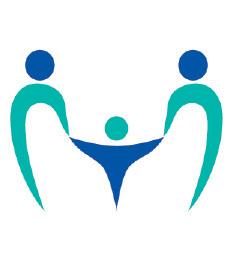
215 Dennis Foster Road, Cayman Brac. Tel: (345) 948 2243
Open: Mon-Fri 8.30am-5pm.
> West Bay Clinic Pharmacy
Reverend Blackman Road, West Bay. Tel: (345) 949 3439
Open: Mon, Tues, Thurs and Fri 8.30am–5pm. Weds 1.30pm–8pm. Closed Saturday & Sunday.
> Bodden Town Clinic Pharmacy
445A Bodden Town Road, Bodden Town. Tel: (345) 947 2299
Open: Mon, Thurs 1.30pm–8pm, Weds, Fri 8.30am-4pm. No Pharmacist on Tuesdays. Closed Saturday and Sunday.
> East End Clinic Pharmacy
2367 Sea View Road, East End. Tel: (345) 947 7440 Open: Mon, Thurs 8.30am–4pm. Closed the rest of the week.
> North Side Pharmacy
1148 North Side Road, North Side. Tel: (345) 947 9525
Open: Tues, Fri 8.30am-4pm. Closed the rest of the week.
Doctors Hospital Pharmacy
16 Middle Road, George Town. Tel: (345) 946 2407 Email: refillsprorx@ caymanpharmacy.com Open : Mon-Fri 8am-9pm. Sat, Sun and public holidays 9am-6pm.
Savannah Pharmacy & Gifts
Countryside Shopping Village, Savannah. Tel: (345) 946 3336 Email: savannah@caymanpharmacy.com Open: Mon-Sat 9am-8pm, Sun 10am6pm.
Total Health Pharmacy
The Grand Pavilion, 802 West Bay Road. Tel: (345) 333 4444 WhatsApp: (345) 324 0274 Email: pharmacy@totalhealth.ky.
West Bay Pharmacy & Gifts
106 Centennial Towers, West Bay. Tel: (345) 945 0777 Email: westbay@ caymanpharmacy.com Open: Mon-Sat 9am-8pm, Sunday and public holidays 11am-6pm.
Doctors Express
81 Godfrey Nixon Way, George Town. Tel : (345) 745 6000 Open: 7 days a week, 9am-9pm.
Foster’s (Airport)
63 Dorcy Dr, George Town. Tel: (345) 815 4051 WhatsApp: (345) 926 7485 Open: Mon-Sat 7am-9pm, public holidays 9am-6pm and closed Sundays, Good Friday, Christmas and New Year’s Day.
Foster’s (Camana Bay)
Solaris Avenue, Camana Bay. Tel: (345) 815 4061 WhatsApp: (345) 926 7486 Open: Mon-Sat 7am-9pm, public holidays 9am-4pm. Closed Sundays, Good Friday, Christmas and New Year’s Day.
Pasadora Family Dental Centre
Your Healthy Smile Starts Here
Pasadora Family Dental Centre offers Cosmetic, Paediatric, Orthodontic, Oral Surgery and General Dentistry services customised
member
Highlights:
family. Using the most modern technologies,
highest standard of care
Details:
179 HEALTH www.caymanparent.com
Private consulting and treatment rooms • Oral surgery and perio treatments • Dental Implants • Calming relaxed atmosphere • Advanced digital imaging • Orthodontic treatments (Braces) for all ages • Invisalign • Laser treatments • Special care & Hygiene services • Sedation • Implantology • TMD therapy (345) 943 2222 | Pasadora Plc, Smith Rd info@pfdc.ky | www.pasadorafamilydental.ky
for every
of the
PFDC aims to provide patients with the
in a comfortable environment to give your family the best dental experience.
Hours: Mon-Fri 8.30am-5.30pm, Sat by Appointment Only Executive Hours Available
Kirk Pharmacy
Kirk Market, Eastern Avenue. Tel: (345) 949 7180 Email: kirkpharmacy@kirkmarket.ky Web: www.pharmacy.ky Open: Mon-Sat 8am9pm, public holidays 10am-6pm and closed on Sundays.
Quality Pharmacy
Serendipity Building, 78 Hospital Road. Tel: (345) 946 6266 Open: Mon-Fri 8.30am-7pm, Sat 8.30am-5.30pm, Sunday and public holidays 10am-3pm.
Valu-Med Pharmacy (Two Locations)
Photo Pharm Centre, Walkers Road. Tel: (345) 949 0442 Email: sales-wr@valRx. com Prescriptions: rx-wr@valRx.com Open: Mon-Sat 8am-10pm, Sunday and Holidays 10am-5pm. Evron Plaza, Bodden Town. Tel: (345) 946 5511 Email: sales-bt@valRx.com Prescriptions: rx-bt@valRx.com Open: MonSat 8.30am-9pm, Sunday and public holidays 10am-5pm.
Windward Pharmacy
Shop 1, Windward Centre, 93 Smith Road. Tel: (345) 949 4081 Email: windward@candw.ky
Open: Mon-Fri 8.30am-5.30pm and Sat 8.30am1pm. Closed on Sundays and public holidays.
Insurance Companies - see page 210
Ophthalmologists & Optometrists
Caribbean Optical
Chris Vuorenmaa BSc OD
Thaddeus Daniel OD
Susan Kennedy BSc Optom
Seven Mile Shops, West Bay Road. Tel: (345) 943 1515 Email: info@cariboptical.com Web: www.cariboptical.com.
Cayman Islands Hospital - Lions Eye Clinic
95 Hospital Road, George Town. Tel: (345) 949 8600 or (345) 244 2818.
Dr. Foley's Eye Clinic
Dr. Eugene Foley FRCS MB BCh BAO NUI
107 Claude Hill Road, off Smith Road. Tel: (345) 946 4944 Emergency: (345) 916 6264 Email: info@drfoleyeyeclinic.com.
Optical Outlook
Dr. Mellisa Hudell BA OD
Louise Cagney BSc (Hons) MCOptom Dip Tp (IP)
Antony Martin BSc (Hones) MCOptom Dip Tip (IP)
Anderson Square, GT, Jacques Scott Plaza, WB, Tibbets Square, Cayman Brac. Tel: (345) 746 2020 Email: team@opticaloutlook.ky.
Serving the community since 1989, they offer comprehensive eye exams and quality eyewear.
Optique
8 Queens Court Plaza, West Bay Road. Tel: (345) 949 3937 Email: info@optique.ky Web: www. optique.ky.
Total Health
Dr Priyanka MBBS MS (Ophthalmology) FRCS (Part 2) Glasgow
The Grand Pavilion, 802 West Bay Road.
Tel: (345) 333 2222 Email: appointments@
totalhealth.ky Web: www.totalhealth.ky.
Tropical Optical
14 Galleria Plaza, West Bay Road, George Town.
Tel: (345) 945 7588 Email: info@tropicaloptical. ky Web: www.tropicaloptical.ky.
VisionWear Cayman
72 Market Street, Camana Bay and Country Corner, 32 Hirst Road, Bodden Town. Tel: (345) 943 5151 or (345) 943 5153 Email: info@visionwearcayman.com Web: www. visionwearcayman.com.
Laboratories
Cayman Islands Health Services AuthorityLaboratory Services (Pathology, Forensics & Molecular Biology Laboratory) 95 Hospital Road, GT. Tel: (345) 949 8600.
Cayman Health Laboratory
Grand Harbour Medical Suites. Tel: (345) 946 4715 Email: caymanhealth@hotmail.com.
MedLab Inc.
10 Smith Road Plaza, George Town. Tel: (345) 949 7331 Email: lab@medlabcayman.com Web: www.medlabcayman.com.
Phoenix Health Services
21 Eclipse Drive, Rankin Plaza, Eastern Avenue. Tel: (345) 943 8150 Email: phoenixhealthservicesltd@gmail.com Web: www.phoenixhealthservices.weebly.com.
Royale Medical & Wellness Centre
Bay Town Plaza, 36 West Bay Road, GT. Tel : (345) 769 6230 Web: www.royalemedical.ky.
Total Health
The Grand Pavilion, 802 West Bay Road. Tel: (345) 333 2222 Pharmacy: (345) 333 4444 Email: appointments@totalhealth.ky Web: www.totalhealth.ky.
Dermatologists
Dr. Christian Aldridge MB BSc (Hons) FRCP (London)
Cayman Doctors, West Shore Center, 508 West Bay Road. Tel : (345) 943 6363.
Dr. Alison Duncan MBBS FRCP MSc
Dr. Davide Altamura MD Masters
Integra Healthcare Ltd, Grand Pavilion, SMB. Tel: (345) 745 7450 Email: alison.duncan@ integra.ky; davide.altamura@integra.ky Web: www.integra.ky.
Dr. Julia Kirschke
CaymanSpine & NovoClinic, BritCay House, 236 Eastern Avenue. Tel : (345) 746 6080.
Dr. Rebeca de Miguel MD PhD
Derma Ltd, The Grove, 1358 West Bay Road.
Tel: (345) 233 1152 Email: info@derma.ky Web: www.derma.ky. Derma Ltd combines a stateof-the-art facility with patient-centred values, and offers a wide range of dermatological services.
Dr. Wayne Porter MD FAAD 282 Crewe Road, George Town. Tel: (345) 946 9020 Email: dr.portercayman@gmail.com.
Acupuncture & Alternative Medicine - see page 231
Psychiatry
Behavioral Health Associates Cayman
Dr. Marc Lockhart MD
Dr. Susanne Neita MB BS DM (Psychiatry)
Dr. Sangeeta Srivastava Awasthi, MD
Unit B, Hospital Road Plaza, George Town. Tel: (345) 746 0066 Email: info@bhac.ky Web: www. bhac.ky Other languages: Spanish.
Cayman Islands Health Services Authority
Sophia Chandler-Alleyne BSc MScPsychologist
Dr. Stenette Davis - Psychiatrist
Cavelle Delfosse - Psychologist
Dr. Antonia Hawkins BSc MSc PhDPsychologist
Dr. Toni-Ann Heron MBBS DM - Psychiatrist
Samantha Sharpe - Applied Behavioural Analyst
Smith Road Medical Centre, 150 Smith Rd, George Town. Tel: (345) 244 2650 Web: www.hsa.ky.
Psychology, Psychotherapy & Counselling
Aspire Therapeutic Services
Unit A13, Crown Square, Eastern Avenue. Tel: (345) 743 6700 Web : www.aspire.ky.
Caribbean Haven Residential Centre (CHRC)
2409 Bodden Town, Breakers. Tel: (345) 947 9992 Web: www.dcs.gov.ky/chrc/ CHRC offers an intensive residential substance abuse treatment programme for those struggling with substance abuse/addiction, and co-occurring disorders.
Cayman ABA
Pasadora Place, Unit 15, Smith Road, GT. Tel: (345) 947 5477 Email: info@caymanaba.com.
Cayman Islands Crisis Centre (CICC)
Tel: (345) 949 0366 24-hour Crisis Line: (345) 943 CICC (2422) Kids Helpline : (345) 649 KIDS (5437) Toll Free Number: 1 (800) 534 2422 Email: info@cicc.ky Web: www.cicc.ky.
The Counselling Centre
87 Mary Street, 2nd Floor Apollo House West, George Town. Tel: (345) 949 8789. Provides outpatient counselling services and addresses concerns like substance use, stress, general coping, depression, anxiety, trauma, and relationship/family issues.
Employee Assistance Programme (EAP)
Tel: (345) 949 9559 Email : eap@eapcayman. com. Web: www.eapcayman.com.
Infinite Mindcare
Cannon Place, George Town and Chestnut Centre, George Town. Tel: (345) 926 0882
Email: info@infinitemindcare.com Web: www. infinitemindcare.com.
The Family Resource Centre
87 Mary Street, 2nd Floor Apollo House West, George Town. Tel: (345) 949 0006 Email: frc@ gov.ky Web: www.frc.gov.ky.
Hope Academy (Clinical Services)
Pauline VanderGrinten MHC LPC NCC BC-TMH Dr. Julie Goodman MSc PGCE AFBPsS CPsychol
180 HEALTH Cayman Parent Magazine | Health
- Psychologist
Carla Mueller- Counsellor
Dr. Jill Kelderman Walsh – Paediatric Neuropsych
Dr. Kai Morgan-Campbell- Clinical Psychologist
Dr. Charles Motsinger- Psychiatrist
Grand Harbour, 1053 Crewe Road. Tel: (345) 769 4673 Web: www.hopecayman.com
Dr. Laurence van Hanswijck de Jonge, PhD
KidsAbility, 8 Midtown Plaza, 273 Elgin Avenue, George Town. Tel: (345) 943 5437 Email: info@kidsability.ky Web: www.kidsability.ky.
Paediatric therapy clinic offering developmental neuropsychology services, counselling services, occupational therapy, speech-language therapy, a feeding clinic, literacy clinic, social skills groups, parent, teacher and allied health workshops and telehealth services.
OnCourse Cayman
Tel: (345) 745 6463 Email: info@oncourse.ky.
The Wellness Centre
Dr. Shannon Seymour
Dr. Joan Latty
Dr. Cindy George
Dr. Chelsea Walton
Shivonne Nixon
Khadija Chisholm
Smith Road Centre, 3rd Floor, George Town. Tel: (345) 949 9355 Web: www.wellnesscentre.ky.
A licensed health facility providing a wide range of comprehensive psychological, mental health, behavioural interventions and corporate wellness services.
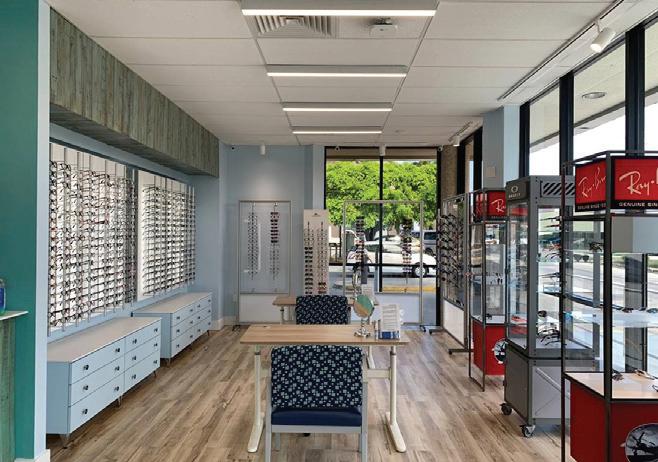
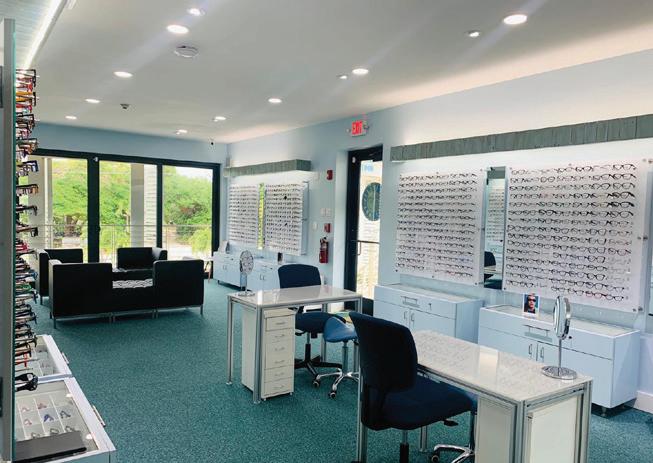
Physiotherapy & Orthopaedics
Align
45 Market Street, Unit 3A, Camana Bay. Tel: (345) 640 5050 Email: info@align.ky.
A Step Ahead Physiotherapy
Governors Square, West Bay Road. Tel: (345) 745 2727 Email: info@astepaheadphysio.com.
Back To Health
Dr. Jennifer Royer Thompson DC
Roxan Swaby-Smikle RPT
World Gym, Seven Mile Beach Tel: (345) 946 2225 Web: www.backtohealthky.com.
Cayman Islands Hospital
Mariah McIntyre BSc (Hons) Physiotherapy Taylor Reid RPT MSc
Samantha Sparg BSc Physiotherapy
Bay Town House, 36 West Bay Road, George Town. Tel: (345) 244 2730/7675 Web: www. hsa.ky.
Cayman Islands Hospital
Pekko Kuusela - Orthopaedic Surgeon Allan Larson - Orthopaedic Surgeon Kadiyala Sekhar - Orthopaedic Surgeon 95 Hospital Road, George Town. Tel: (345) 949 8600 Web: www.hsa.ky.
Cayman Orthopaedic Group
Unit 1, Smith Road Plaza, George Town. Tel: (345) 945 8380 Email: info@cog.ky Web: www.cog.ky. Specialist orthopaedic practice providing high quality medical services,
Optical Outlook

Dr. Mellisa Hudell, BA OD
Louise Cagney, BSc (Hons) MCOptom Dip Tp (IP)
Antony Martin, BSc (Hons) MCOptom Dip Tp (IP)
innovative procedures and state-of-the-art technology to treat sports injuries, trauma, children's orthopaedic issues and osteoarthritic concerns.
Cayman Physiotherapy
Two locations: Suite 26 Pasadora Place, Smith Road and West Shore Center, West Bay Road.
Tel: (345) 949 8828 Email: physio@candw.ky. Offers an innovative women's health programme, pre and postnatal Pilates, 1:1 physio, specialist postnatal check ups (Mummy MOT) and more.
Cayman Rehab Services
Unit 10, Eucalyptus Building, Shedden Road.
Tel: (345) 943 7974 Cell: (345) 926 3099 Email: caymanrehab@gmail.com. Serving Cayman’s community for over 15 years with quality care from an expert team.
CaymanSpine & NovoClinic
NovoClinic Cayman Ltd., BritCay House, 236 Eastern Avenue. Email: info@caymanspine.com Web: www.caymanspine.com. Dedicated to preserving motion across all areas of orthopaedics and the spine.
Da Vinci Physiotherapy
Park Place, off West Bay Road Tel: (345) 943 2002 Email: info@davinciwellnesscentre.com Web: www.davinciwellnesscentre.com.
Elevation Health & Physiotherapy Ltd.
2nd Floor, Fidelity Financial Centre, 1 Gecko Link Email: info@ehphysio.ky Tel: (345) 623 6663 Web: www.ehphysio.ky.
Highlights:
Serving the community for 30+ years
lenses
Accepts
locations
insurance
Grand
selection of eyewear
Details: Office hours are six days a week, Monday-Saturday,
call to make an appointment.
3 optical stores in George Town, West Bay & Cayman Brac.
Serving the Cayman Islands community since 1989, Optical Outlook remains a trusted provider for all your eyecare needs. With experienced Optometrists to give you a comprehensive eye exam and friendly staff to guide you through frame and lens selection at great prices, come SEE the difference at Optical Outlook. (345) 746 2020 | Anderson Square, GT | Jacques Scott Plaza, WB | Tibbets Square, Cayman Brac | team@opticaloutlook.ky
• Eye examinations • Contact
•
all
providers • Online booking system • 3 convenient
in
Cayman & Cayman Brac • Affordable prices • Large
brands • Sunglasses & eyewear accessories
9am-5pm. Please
www.opticaloutlook.ky
181 HEALTH www.caymanparent.com
Infinity Health Physiotherapy
247 Smith Road, George Town. Tel: (345) 233 0280 Web: www.infinityhealth.ky.
RVC Rehab Services
Uma Lenin BPT CKTP (Doc ALT MED)
Samuel Foster, BSc PT
Jacqui Tomlinson-Smith PT, LCCE, CD (DONA), LC
3rd Floor Tomlinson Building, 9 Walkers Road, George Town. Tel: (345) 949 6024 Web: www. rvcrehab.ky.
Synergy Chiropractic & Physiotherapy Ltd.
Ms. Clare Miller PT MSc. (Physiotherapist)
Ms. Jennifer Hilldrup PT (Physiotherapist)
The Marquee Plaza, 36 Lawrence Boulevard, SMB. Tel: (345) 943 8200 Email: info@ synergychirophysio.com Web: www. synergychirophysio.com. Chiropractic, physiotherapy, acupuncture, traditional Chinese medicine and massage therapy facility.
Total Health
The Grand Pavilion, 802 West Bay Road. Tel: (345) 333 2222 Pharmacy: (345) 333 4444 Email: appointments@totalhealth.ky Web: www.totalhealth.ky.
Will of Wellness
Suite 2, The Belmont, Crewe Road. Tel: (345) 926 2428 Email: wowcayman3@gmail.com Web : www.wowcayman.ky
Allergy Doctors, ENTs & Audiologists
Dr. Frank Glatz MD FABO FAAOHNS FAAOA
Cayman E.N.T. Associates , 2 Alexander Place, Dorcy Drive, GT. Tel: (345) 945 3822 Email: jharris@candw.ky Web: www.entcayman. com.
Dr. Annette Stephenson AuD
Dr. Alicia Tay BSc MAud
Cayman Hearing Center
85 North Sound Road, 3rd Floor, Alissta Towers. Tel: (345) 946 9174 or (345) 925 5836 Email: info@caymanhearingcenter.com Web: www.caymanhearingcenter.com. Offers comprehensive hearing evaluations for children and adults, hearing aid repair, hearing protection, amplified telephones, custom-made swim moulds and more.
Dr. Ulrich Ecke MD ENT
Dr. Fionnuala Keane MBChB DCH DRCOG
PGDipENT
ENT in Cayman
Units 4 & 5, Pasadora Place, 94 Smith Road, George Town. Tel: (345) 745 3253 Email: info@ entincayman.com. Web: www.entincayman. com.
Dr. Gyanendra Jha
Dr. Cengiz Uneri
Cayman Islands Hospital, 95 Hospital Road, George Town. Tel: (345) 949 8600 or (345) 244 8004/5 Web: www.hsa.ky.
The Strand Medical Centre
Dr. Louis A. Cona MD
The Strand Shopping Centre, off West Bay Road. Tel: (345) 945 7077 Email: thestrandmedicalcentre@candw.ky Web: www.caymandoctor.ky.
Paediatric Therapy Services
ABA Therapy
Cayman ABA
Pasadora Place, Unit 15, Smith Rd, George Town.
Tel: (345) 947 5477 Email: info@caymanaba.com Web: www.caymanaba.com.
Educational Assessments
Infinite Mindcare Cayman Cannon Place, 294 North Sound Road. Tel: (345) 926 0882 Email: info@infinitemindcare.com Web: www.infinitemindcare.com A multispeciality counselling centre offering therapy for teens, adults, and couples with an array of concerns.
Transformations Ltd.
Tel: (345) 324 1298 Email: admin@ transformationscayman.com Web: www. transformationscayman.com.
Mental Healthcare Services
Behavioral Health Associates Cayman 62 Hospital Road, Hospital Road Plaza. Tel: (345) 746 0066 Email: info@bhac.ky Web: www.bhac.ky. Board Certified consultant psychiatrist specialising in the treatment of children and adolescents. Additional associates specialise in psychiatry, counselling, assessments and life coaching.
Hope Academy (Clinical Services)
Grand Harbour Shoppes Units 1-8, 1053 Crewe Road. Tel: (345) 768 4673 Email: office@ hopecayman.com. Services include: mental health therapy for individuals, couples, families of all ages, speech and language therapy, inhome family and parenting assistance, group therapy, school observations and interventions, school-based ABA, psycho-educational testing, neuropsychological assessments, psychiatric services/medication management.
KidsAbility
Dr. Laurence van Hanswijck de Jonge PhD
Wendy Mupaku MSW
8 Midtown Plaza, 273 Elgin Avenue, George Town. Tel: (345) 943 5437 Email: info@ kidsability.ky Web: www.kidsability.ky.
The Wellness Centre
Smith Road Centre, 3rd Floor, George Town. Tel: (345) 949 9355 Email: info@wellnesscentre.ky Web: www.wellnesscentre.ky.
Occupational, Speech & Language Therapy
Cayman Islands Health Services Authority Faith Gealey MS CCC-SLP
Emily Runnoe MS CCC-SLP
Julise de Wet B. Occ Therapy
Raven Williams MSc MRCSLT
Bay Town House, 36 West Bay Road. Tel: (345) 244 2730/7675 Web: www.hsa.ky.
Cayman Theraplay Ltd./Dr. Mona Kazemi

9 Plaza Venezia, North Sound Road. Tel: (345) 749 7529 Email: info@caymantheraplay.com. Web: www.caymantheraplay.com.
Chatterbox
Roz Griffiths BSc CertMRCSLT
Harmony Scott M.Sc. CertMRCSLT/Dip.
Alexa Berger B.A. Speech and Hearing Therapy
Ansunette Pelser B. Communication Pathology, PGDip in Disability and Rehabilitation
Eliné Cloete B.A. Occupational Therapy
Lyndal Alexander BSc. in Occupational Therapy, Masters in Early Childhood Intervention, Registered Children's Yoga Teacher
Casuarina Point, 218 South Church Street,
GT. Tel: (345) 949 7065 or (345) 926 1693
Email: chatterbox@candw.ky Web: www. chatterboxcayman.com. Speech and language therapy, Early Years Programme (2-5 years), Hanen programmes, occupational therapy, autism consultancy. Services are available for both children and adults.
Hope Academy (Clinical Services)
Claire Leadbeater MSc Cert MRCSLT
Hope Academy, Grand Harbour Shoppes
Tel: (345) 769 4673 or Cell: (345) 929 5122
KidsAbility
8 Midtown Plaza, 273 Elgin Avenue, George Town. Tel: (345) 943 5437 Email: info@ kidsability.ky Web: www.kidsability.ky. Offers developmental neuropsychology services, counselling services, occupational therapy, speech-language therapy, a feeding clinic, literacy clinic, social skills groups, parent, teacher and allied health workshops and telehealth services.
Early Intervention Programme
515 Walkers Road. Tel: (345) 926 1413 Email: eip@cayman.edu.ky. Offers educational support programmes and services such as counselling and occupational therapy to support children with learning difficulties.
Cayman Theraplay Ltd.
9 Plaza Venezia, North Sound Road. Tel: (345) 749 7529 Email: info@caymantheraplay.com. Web: www.caymantheraplay.com.
Inclusion Cayman
81 Godfrey Nixon Way (above Doctors Express). Email: info@inclusioncayman.ky Tel: (345) 623 2957 Web: www.inclusioncayman. ky. A non-profit organisation supporting individuals with disabilities in their vision of accessing inclusive lives.
I Read For Life
2nd Floor Barnett Building, 24 Huldah Avenue.
Tel: (345) 947 1497 Email: admin@ireadforlife. ky Web: www.ireadforlife.ky.
Lighthouse School
233A Shamrock Road. Tel: (345) 947 5454. School for children, aged 5–17 who have special educational needs.
Special Olympics Cayman Islands (SOCI)
Tel: (345) 946 7624 Email: soci@candw.ky.
A registered non-profit sports organisation that offers year-round sports training and competition for those who are intellectually disabled.
Sunrise Adult Training Centre
Eden House, Elizabethan Square, George Town.
Tel: (345) 949 3330 Email: kimberly.voaden@ gov.ky Web: www.sunrise.gov.ky. Offering programmes to ensure independence and community inclusion for adults with learning difficulties
182 HEALTH Cayman Parent Magazine | Health

World Class Orthopaedic Care Cayman Orthopaedic Group Unit 1, Smith Road Plaza, 60 Smith Road, George Town (345) 945 8380 Monday–Friday, 8am–5pm www.cog.ky Our goal is to provide the highest quality of orthopaedic care for the individual needs of our patients. Our experienced physicians are recognised internationally as leading experts in the treatment of the musculoskeletal system. Services Include: • All inside ACL Reconstruction • Cartilage Reconstruction • Joint Preservation & Osteotomy • Pioneering Ligament Surgery • Platelet Rich Plasma Therapy • Realignment of Cartilage and Ligament • Rotator Cuff Reconstruction • Minimally Invasive Knee and Hip Replacement Surgery

Essentials
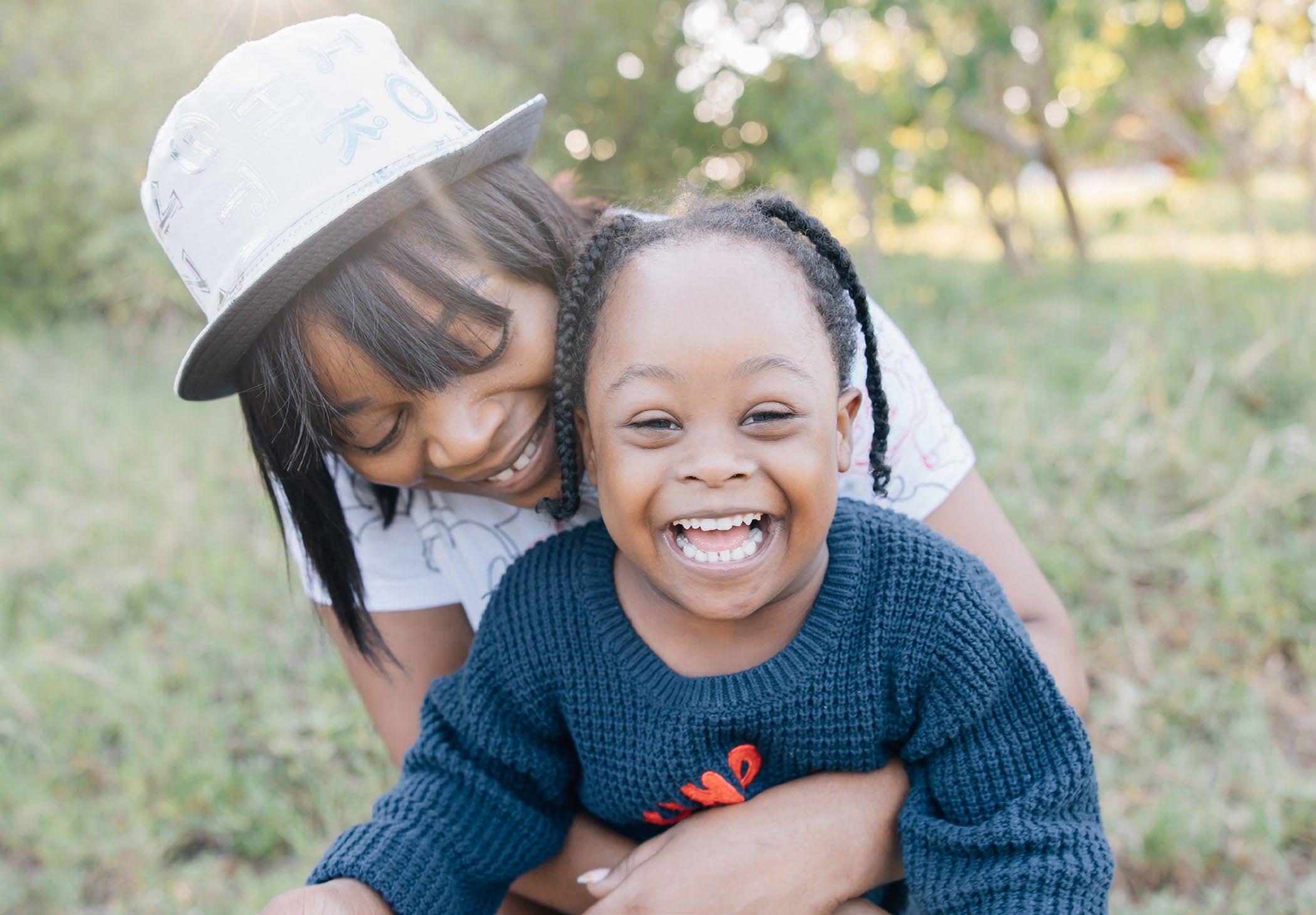
www.caymanparent.com 185
Contents Disaster preparation, immigration, passports, divorce & more... Helping Children Prepare for p186 Natural Disasters Hurricane Checklist p188 Home Sweet Home in Cayman p190 The Logistics of Hiring a p193 Helper or Nanny Applying for a Passport p195 Immigration Rules for Kids p196 Family Breakdown: Everything p200 You Need to Know The Divorce Dilemma: How it p202 Affects Immigration in Cayman Securing Your Family's Financial p204 Future Guide to Writing a Will p206 Essentials Book Club p208 The Listings p209 Photo courtesy of Daria Keenan Photography
Helping Children Prepare For Natural Disasters
Natural disasters are unpredictable and uncontrollable events, which makes them scary for everyone, but particularly children. – Dympna Carten RMN, ENB Community Psychiatric Nurse
Everyone deals with momentous events such as major natural disasters differently. However, generally some degree of unease or anxiety is experienced in the aftermath. While adults may be better equipped to recognise what they are feeling and why, it can be a lot harder for children to make sense of their emotions. Although it is not always possible to predict certain natural disasters, there are ways to mitigate the anxieties experienced after the fact. Having conversations with them about what to expect before, during and after a natural disaster, as well as teaching them the importance of accepting uncertainty is key for building resilience.
These five tips can help your child easily prepare for and then process natural disasters.
1. Focus on Information & Reassurance
Give age-appropriate information about natural disasters to help children better understand. Take time to create an emergency plan and include your children in the planning to ensure they understand their role. Talk about what may happen and has happened in the past – you know your child and what works best for them. For some children, conversation may be easier sitting side by side while drawing a picture or while helping to prepare a meal. For others, face to face conversation may work best. Keep your tone reassuring, repeating messages such as, “that was scary, but we’re safe now.”
Stick to the facts and encourage questions. Be honest, and if you can watch or listen to information about the event with your child, use this as a tool to educate and offer reassurance. Minimise social media exposure for children/teens, particularly before going to bed.
Most importantly – do not underestimate the power of a good cuddle to calm down an anxious little one!
2. Talk About Preparation
Show them where you store your emergency supplies, draw up lists of names and phone numbers of who they should contact in an emergency situation and practise your drills. Ask them to consider preparing a small bag of what might be important for them to have ready.
For children who are worried about the likelihood of unprecedented events and natural disasters, knowing that their family members are prepared will give them a sense of security. If you don’t know the answer, don’t be afraid to admit it. Don’t jeopardise your child’s trust by making something up or offering false promises.
3. Stick to Your Routine
Children find security in routine, and the sense that ‘life goes on’ will help them feel safe. While it is tempting to keep your child home, if your school or preschool is open and Government has officially verified returning as safe – send them! Being around their friends and getting back into routine is tremendously helpful for children. Encourage them to get outside and play, arrange play dates for younger children, resume the usual daily activities such as walking the dog, etc.
Stick to mealtimes, maintain a healthy diet, and avoid processed and convenience foods. Keep bedtimes as normal as possible. Maintain compliance with any previously prescribed medication and keep appointments with professionals as scheduled.
4. Know When to Seek Help
Anxiety is normal after an event such as a natural disaster, and it can take the form of many different behaviours. These include:
• Regressions in sleep/toileting (bedwetting)/behaviour
• Crying
• Clinginess
• Irritability/quick to anger/disrespectful
• Fear of the dark
• Fear of being alone
• Headaches/aches/pains/stomach upset
• Reluctance to go to school or preschool or struggle with homework
• Nightmares
• Loss of appetite
• Lack of interest in everyday activities.
These behaviours are normal after a traumatic event and will start to fade within a relatively short period of time. However, if your child is exhibiting ongoing anxious behaviours and the reactions to the said event are disrupting their daily lives,
186 Cayman Parent Magazine | Essentials
arrange an appointment with their doctor or seek a professional counsellor to help your child manage their anxiety. Turn to page 182 for a list of trusted mental health professionals on Island who can assist.
NOTE: Take any suicidal talk or behaviour seriously. Contact your doctor or bring your child to the A&E Department at Cayman Islands Hospital (345) 949 8600 for an assessment or, if on the Sister Islands, attend Faith Hospital (345) 948 2243 or contact the nurse at the Little Cayman Clinic (345) 948 0072/(345) 916 5395. Also read the Mental Health article on page 20.
5. Manage Your Own Anxiety and Come Together as a Family
As a parent, ensuring that you have healthy methods of dealing with your stress and anxiety is the most important way that you can help your child after a traumatic event such as a natural disaster.
Children are visual learners, so if you are showing them that you can manage your stress, they learn that their stress is manageable too. The more calm, relaxed and focused you are, the better you will be able to help your child.
Encouraging time and discussion as a family is a good way to identify needs, seek solutions and give everyone a voice and a role in handling frightening events such as natural disasters in a positive and pragmatic way. Monitor adult conversations and be aware of what adults are saying about the event or the damage. Children may misinterpret what they hear and be unnecessarily frightened. Focus on the positive and stay hopeful.
More Information:
• Contact the Behavioural Health Department, Cayman Islands Hospital, George Town on (345) 244 2650, Faith Hospital, Cayman Brac on (345) 948 2243 or Little Cayman Clinic on (345) 948 0072.
• The Mental Health Helpline is 1 800 534 6463, (Monday-Friday, 9am-5pm) and the KIDS helpline is (345) 649 5437. For more information, visit www.cicc.ky.
• Led by Dympna Carten, the Community Psychiatric Nurse for the HSA, 'Radio Head' recognises the crucial role radio plays in our community for educating and informing people in times of national emergency. Through community donations, they supply Cayman’s most vulnerable with this valuable piece of technology. To donate a radio to Radio Head, please email: dympnacarten@hotmail.com or call (345) 916 3734.
Emergency Alert System
In March 2022, the Cayman Islands Government launched the National Emergency Notification System (NENS). In the event of a national disaster or emergency, this system enables direct communication with all subscribed users in the Cayman Islands. Developed by Hazard Management Cayman Islands (HMCI) in collaboration with local and regional stakeholders, NENS is a FREE mobile app that delivers emergency alerts by email, SMS and app notification. Residents and visitors can download the app on their mobile devices by going to www.nens.gov.ky.
The emergency alert will include details of the incident including what kind of incident it is, where it is primarily located (if possible) and when it occurred. The message will also include any essential public safety messaging such as instructions to stay away from the incident area or to seek higher ground.
How to Download the NENS App
Visit nens.gov.ky.
Click ‘Opt-in’ and fill out the necessary information. Downloading the app is recommended, but you can also choose to be notified of emergencies via email and SMS (Please note that delays in delivering mass notifications via SMS may occur due to network congestion during an emergency).
Download the BlackBerry AtHoc app from your app store.
Open the app and enter the email address you used to opt-in to the service to verify and activate your account.
Check your email for a link from BlackBerry AtHoc and click ‘Verify Now’.
For Android devices: once you return to the BlackBerry AtHoc app, please wait 1-2 minutes for the mobile app to request the organisation code.

For Apple (iOS) devices: automatically connect to the mobile app to request the organisation code.
The AtHoc app will then ask for an organisation code. Your organisation code is: HMCI. Tap ‘send’.
The screen will then indicate you are now set up to receive notifications.
There is a video tutorial and written guide to follow at www. nens.gov.ky. If you are having issues, email nens@gov.ky
www.caymanparent.com 187
Hurricane Checklist
The most common natural disasters threatening the Cayman Islands are hurricanes. Although Cayman has been lucky in recent years to avoid the path of any major tropical storms or hurricanes, changing climate trends mean the elements required for hurricanes to flourish have multiplied. In the event the Island does get hit by a hurricane, you will want to have taken practical steps beforehand to ensure you and your family stay safe and dry. For more information, visit www.caymanprepared.gov.ky and www. caymanresident.com.
Hurricane Supply Kit
Preparation is key. Prior to the start of hurricane season (June 1st to November 30th) put together a hurricane supply kit stocked with the items on the checklist below:
❑ Several gallons of drinking water
❑ Long-life food that does not require refrigeration or to be cooked (tinned food is particularly helpful)
❑ Plywood and screw nails for windows/doors (if necessary)
❑ ‘C’ type fire extinguisher for electrical fires
❑ Oil and petrol for generator (optional)
❑ Portable gas cooker and refills
❑ Charcoal and lighter fluid
❑ Flashlight, lantern and oil
❑ Candles and matches/lighter in watertight bag
❑ Battery operated radio, fan and extra batteries
❑ First aid kit, sunscreen and feminine hygiene supplies
❑ Medication
❑ Mosquito coils, citronella candles and/or spray
❑ Life vests, goloshes and whistle
❑ Rope/strong twine, duct/packing tape
❑ Plastic sheeting to cover furniture
❑ Tarpaulin for roof
❑ Paper towel, toilet paper and napkins
❑ Disposable plates, glasses and cutlery
❑ Aluminium foil, plastic freezer bags
❑ Can opener/knife (e.g. Swiss army)
❑ Chlorine bleach (sterilising water) and Dettol (disinfecting hands and feet)
❑ Hand sanitiser and baby wipes (for personal hygiene)
❑ Ice chest (to stock up with ice in the run-up to a major storm)
❑ Baby supplies: nappies, wipes, food
❑ Pet food and litter box
Things to Do
In the immediate days leading up to the storm, make sure you have ticked off the following:
❑ Design a family plan for which shelter and route is best suited to your needs
❑ Store important documents, records, irreplaceable and precious items in watertight containers and back up to an external drive
❑ Fill cars with gasoline/charge if electric and move them to higher ground
❑
Withdraw cash from bank - ATMs won’t work without power
❑ Bring in everything from outside, i.e. bird feeder, hose, barbecue, chairs, potted plants
❑ Secure boat and remove all equipment - battery, life jackets, etc.
❑ Make arrangements for the safety of your pets
❑ Move furniture and belongings away from windows and doors and elevate off floor level
❑ Put silicone or foam around outside doors and also fill enough sandbags to protect the outside of the doors at ground level
❑ Pick up rugs from the floor and remove drapes from windows
❑ Buy buckets and sheets of plastic to protect furniture and wood floors from ceiling leaks
❑ Clean tubs/baths and fill them with water
❑ Turn freezer and fridge to the coldest setting. If power goes out, food and ice will last longer
❑ Charge cell phones and have cell phone charger that plugs into car lighter or a cranking mechanism
❑ Wedge sliding doors to prevent them lifting from tracks and reinforce garage door
❑ Keep swimming pool full, to around 12 inches from the top
❑ Turn off propane tanks
❑ Secure TV antennae
❑ Ensure there is an adequate supply of emergency food
❑ Close cistern openings and disconnect downspouts
❑ Fill empty gallon bottles with water for bathing and flushing
❑ Have raincoats/ponchos handy
❑ Make sure you have the phone numbers of family and friends and that they have yours
188 Cayman Parent Magazine | Essentials
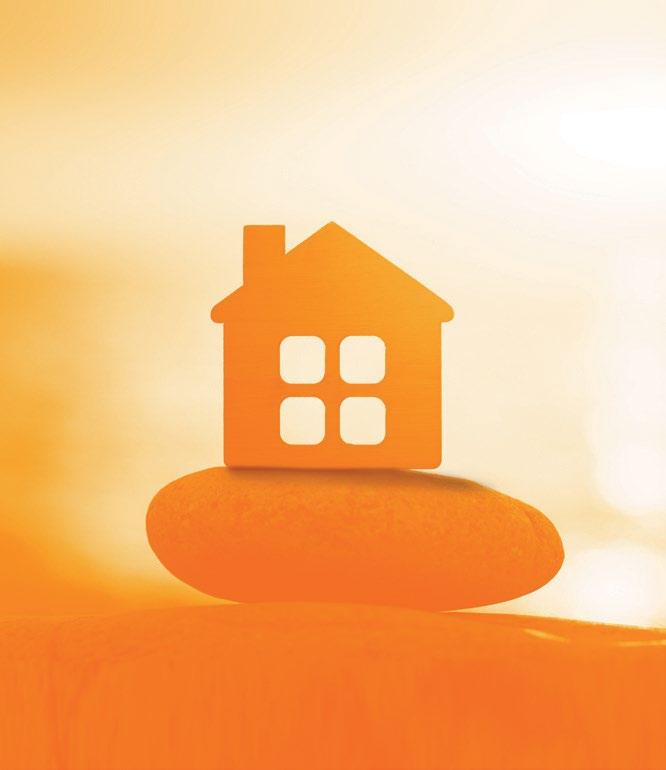
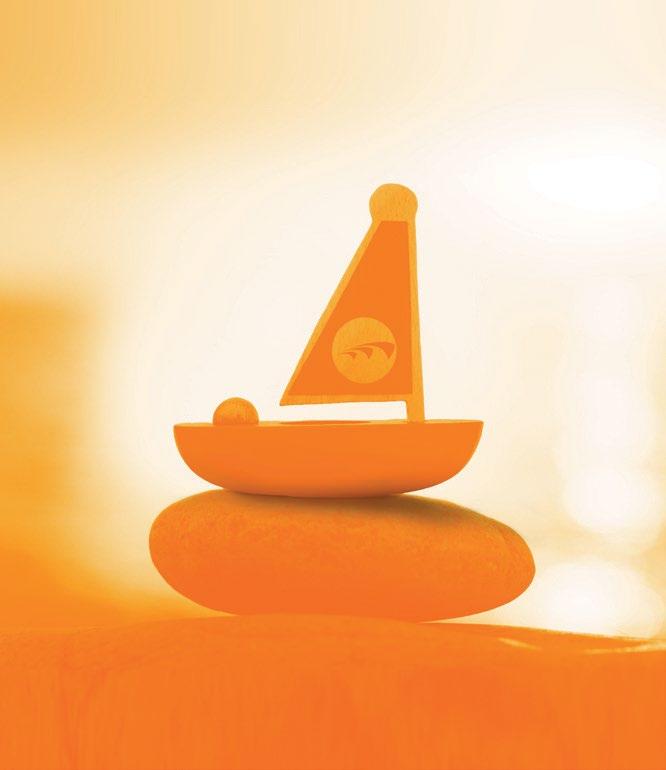


www.caymanparent.com 189 FAST. SIMPLE. HASSLE-FREE. Relax, we make it easy for you to... Stay Covered # HOME • CONTENTS • MOTOR • LIABILITY • BUSINESS • TRAVEL • MARINE Caribbean Alliance Insurance Co. Ltd. Address: #203 Alissta Towers, 85 North Sound Rd P.O. Box 1762, Grand Cayman, KY1-1109 Tel: +1 (345) 949-9744 Email: Aleisha.Lalor@caribbeanalliance.com www.caribbeanalliance.com CP Cayman Islands May 2022 Finalv1.pdf 1 20/05/2022 08:51 C M Y CM MY CY CMY K HURRICANE COVER PRINT R01.pdf 1 29/04/22 17:15
Home Sweet Home in Cayman
It is said that moving home is one of the biggest stressors of adult life. Whether you intend to rent or buy, choosing the right home is no easy decision. Price, location, size, layout, and the amenities offered all play a role in narrowing down your options and it is easy to feel overwhelmed by all the details.
There are many aspects to securing a property in Grand Cayman and the Sister Islands that differ from other parts of the world, so it is important to be clued-up on the ins and outs. By having the help of a real estate professional who has their finger on the pulse of the Island’s property market, you can navigate all the major stresses and sign off on your dream home – sanity intact!
In Cayman, because of the Multi Listing System (MLS), all CIREBA agents can access and show their inventory, meaning you can relax and let them do the legwork while keeping you informed on available properties. Once they have a better idea of what you want by way of budget, location and size, they can start researching properties and sending you links to review with feedback. Rentals in Cayman move very fast. Places become available and are leased or sold very quickly.

Having a real estate agent to help you stay on top of this is invaluable to the process.
Living in the Cayman Islands is very safe for expats and locals alike. As a small country that is big on international business, education and attracting overseas investment – the local authorities do a good job of keeping things running smoothly. In fact, with one of the lowest violent crime rates of any country in the world, it is probably the most secure country in the Caribbean. For these reasons, Cayman has been growing and continues to attract new residents from all over the world. Young working professionals will certainly find the amenities that appeal to an active lifestyle, while there are just as many options for families after a more laidback ‘island-style’ life.
Renting
Real estate agents encourage their clients to rent for no longer than one year (if possible). Owning a home allows you to invest in yourself and pay into your own equity instead of the landlord's. If you’d prefer to go it alone when searching for a rental, ecaytrade.com is brimming with up-to-date property rentals. Here, you will often be in direct conversation with landlords, streamlining the whole process. You will usually need to put down a security deposit and the first month’s rent in advance. Property insurance is the responsibility of the tenant, and for utilities, estimate approximately CI$100 for water, CI$200-CI$500 for electricity and CI$50-CI$100 for internet.
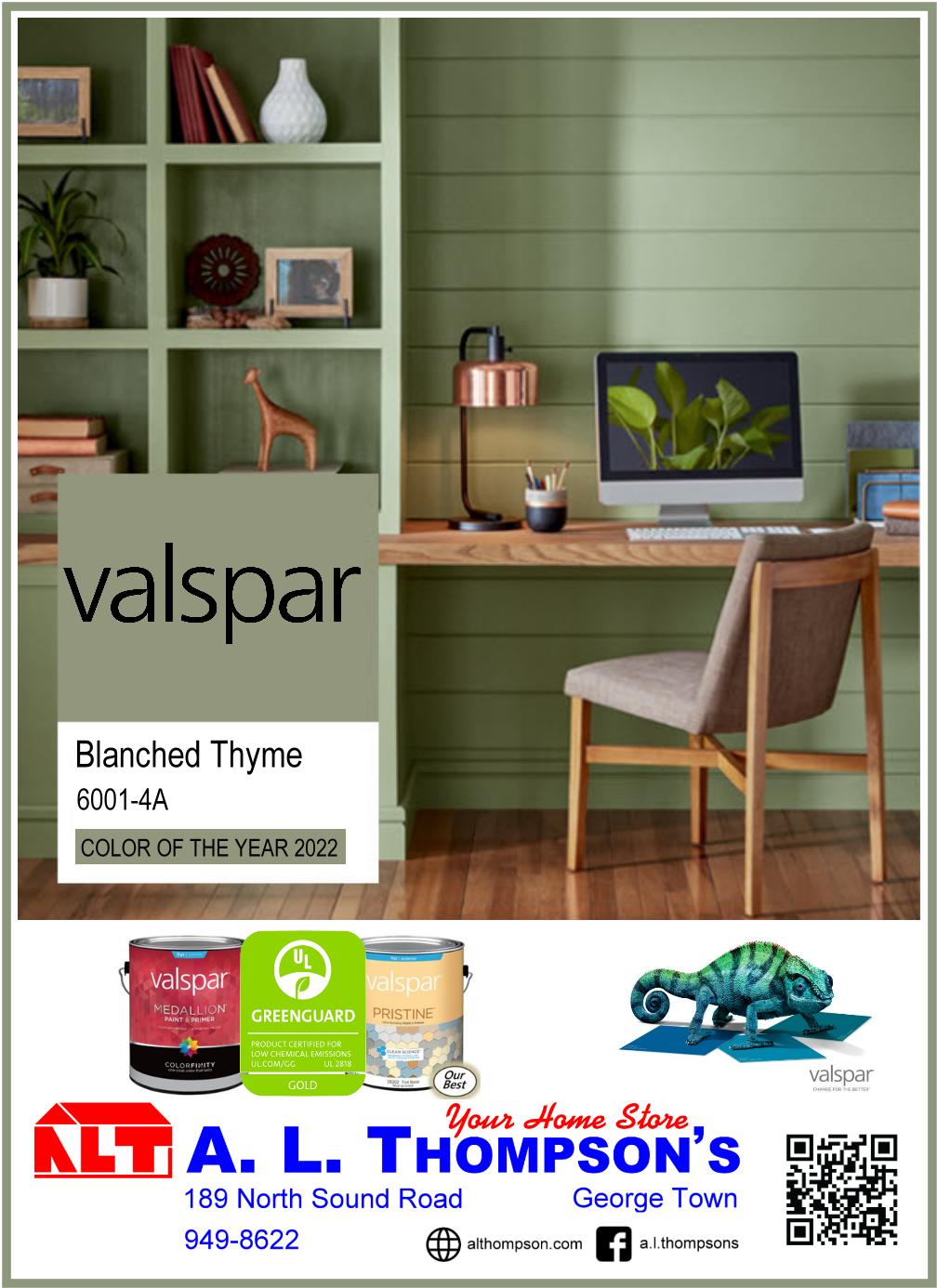
190 Cayman Parent Magazine | Essentials
Photos courtesy of Design Cayman
Caymanian First-time Buyers

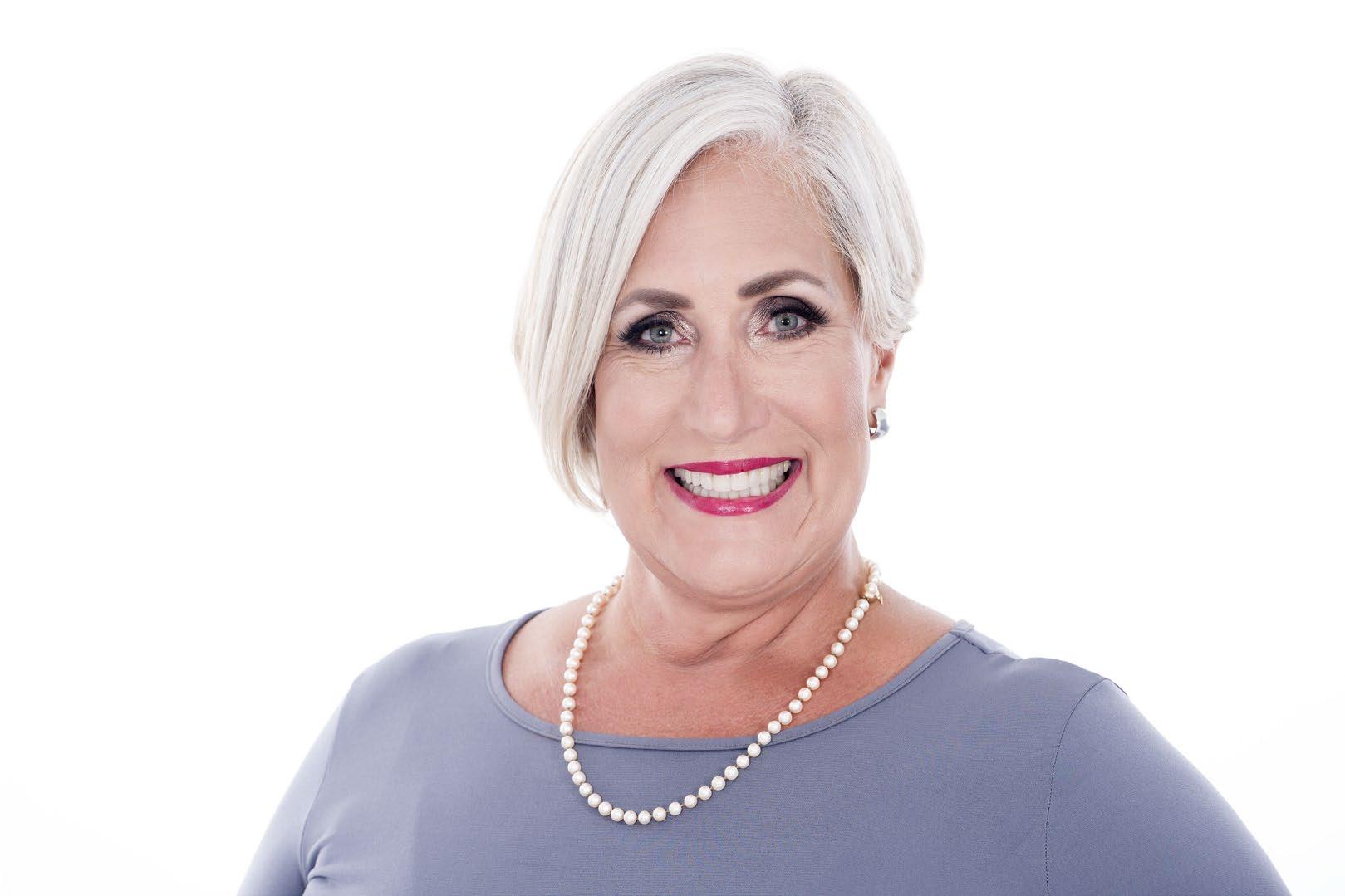
Homeownership is one of the primary methods of building wealth, meaning it is hugely beneficial to get on the property ladder as soon as you can. However, buying a house is becoming increasingly difficult for young Caymanians. Whole generations are finding themselves locked out of the housing market due to Cayman’s dwindling inventory being dominated by higher-income, overseas buyers who have massively inflated prices. One benefit for first-time Caymanian buyers is the waiving of stamp duty for homes below the qualifying price point. Unfortunately, there are increasingly few properties on the market that meet these criteria. This, combined with a down payment of at least 10%, lawyer charges, strata fees and home insurance costs, is what leads many families to believe homeownership in Cayman will remain a distant dream for the country’s future generations. Turn to page 192 for more information on stamp duty thresholds for Cayman's first-time buyers.
What to Buy

If you are lucky enough to be able to buy a home, always bear in mind that you are much better off buying a property that offers flexibility and is affordable. ‘Right-sizing’, which means moving into a home that suits your current needs, is key. Do not overstretch yourself as high-end homes do not sell every day in Cayman, and they can sit on the market for a long time. Opting to buy a property within your means can make selling in the future much easier. If you are going to use real estate for points in your Cayman PR application one day, be sure to speak to an immigration specialist to get all the facts. There are several levels of real estate that are required for different types of residency.

Financing
Always shop around when looking for a mortgage. Research your options with various banks as there are a myriad of finance options available which constantly change. Cayman's retail banks usually do not offer mortgages to buyers over 65 years of age, so start early! To increase your chances of obtaining financing from a bank, you should have a good sense of your future income, have been working in Cayman for a minimum of six months and be in a solid financial position. A general rule of thumb is that you will need a minimum of 10% of the negotiated sum to secure a mortgage, plus money for bank fees, stamp duty, legal fees, an appraisal fee and government fees.
www.caymanparent.com 191
9 4 9 -2 3 9 6 1 (877) 286-4243 kass.coleman@remax.ky “Let Experience Work For You!” Kas s C ol e m a n Nearly 30 years with t h e B EST Member of 7 Mile Shops | West Bay Rd. | Each office is independently owned
The
Approach to
Founder of MOD Realty Ltd, Athena Nicole, a seasoned Realtor

broader insight and peace of mind when it comes to the process of realty procedure in the Cayman Islands.
your property for sale with confidence
commission rates, flexible contract terms and fast
both our buyer and seller
of
time. - MOD Realty, the MODern approach to

Thresholds for Caymanian first-time buyers applying for stamp duty waivers:
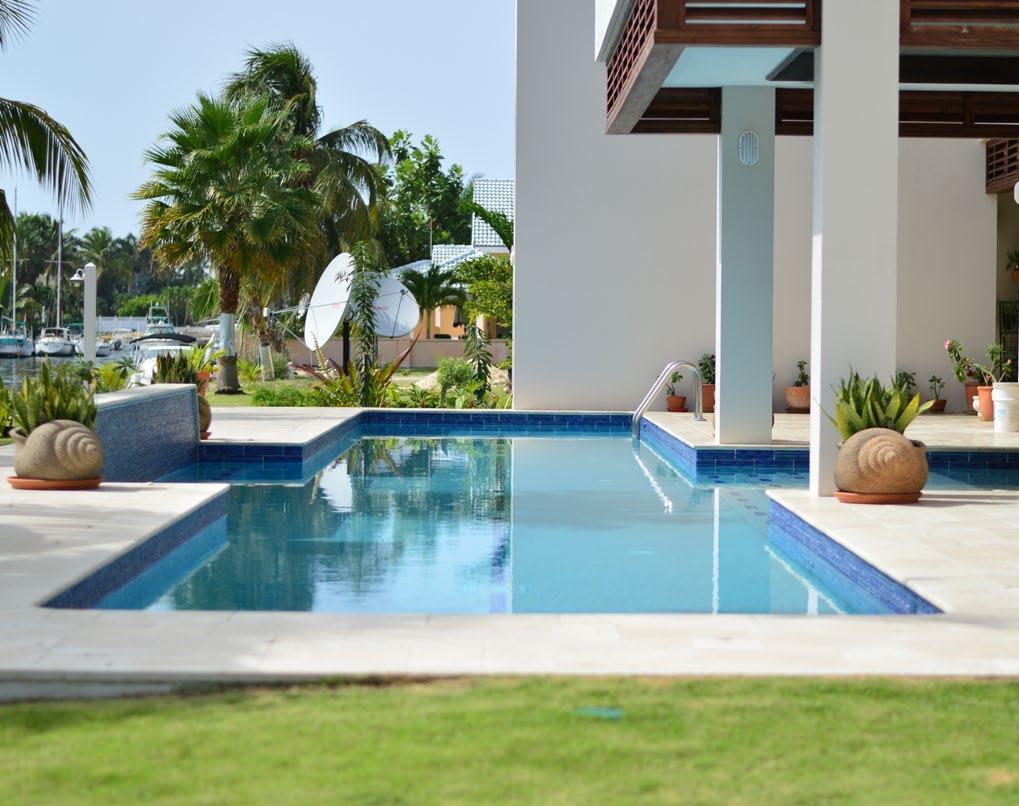

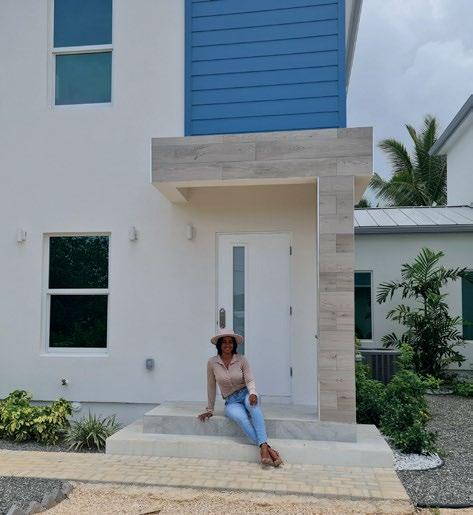
Property Stamp Duty Reduction
Houses, apartments, and other dwellings with a market value below CI$400,000 (provided it will be owner-occupied)
Undeveloped land with a market value of up to CI$150,000 (provided an owner-occupied dwelling will be built)
Bare land with a market value above CI$150,000 but not exceeding CI$200,000
No stamp duty payment
No stamp duty payment
Estate.
Houses, apartments, and other dwellings with a market value of up to CI$400,000 (not exceeding CI$500,000)
Reduced rate: 2%
Reduced rate: 2%
In cases where property is transferred to 2 (or not more than 10) persons who are Caymanian:
Property Stamp Duty Reduction
Land with building having a value that exceeds CI$500,000 but does not exceed $600,000
Land without building having a value that exceeds CI$300,000 but does not exceed CI$350,000
Reduced rate: 2%
Reduced rate: 2%
192 Cayman Parent Magazine | Essentials
MOD
Realty Ltd is a locally owned and operated full service real estate brokerage specializing in real estate sales transactions of Pre-construction, Newly built properties, Land, Single family homes, Condominiums and Multi Unit complex dwellings.
offers
List
offering competitive
turnovers, saving
thousands
dollars and
Real
MOD ern
Real Estate Waterfront Center, N Church St, George Town (345) 323 4550 info@modrealtycayman.com modrealtycayman.com
Photo courtesy of Design Cayman
The Logistics of Hiring a Helper or Nanny
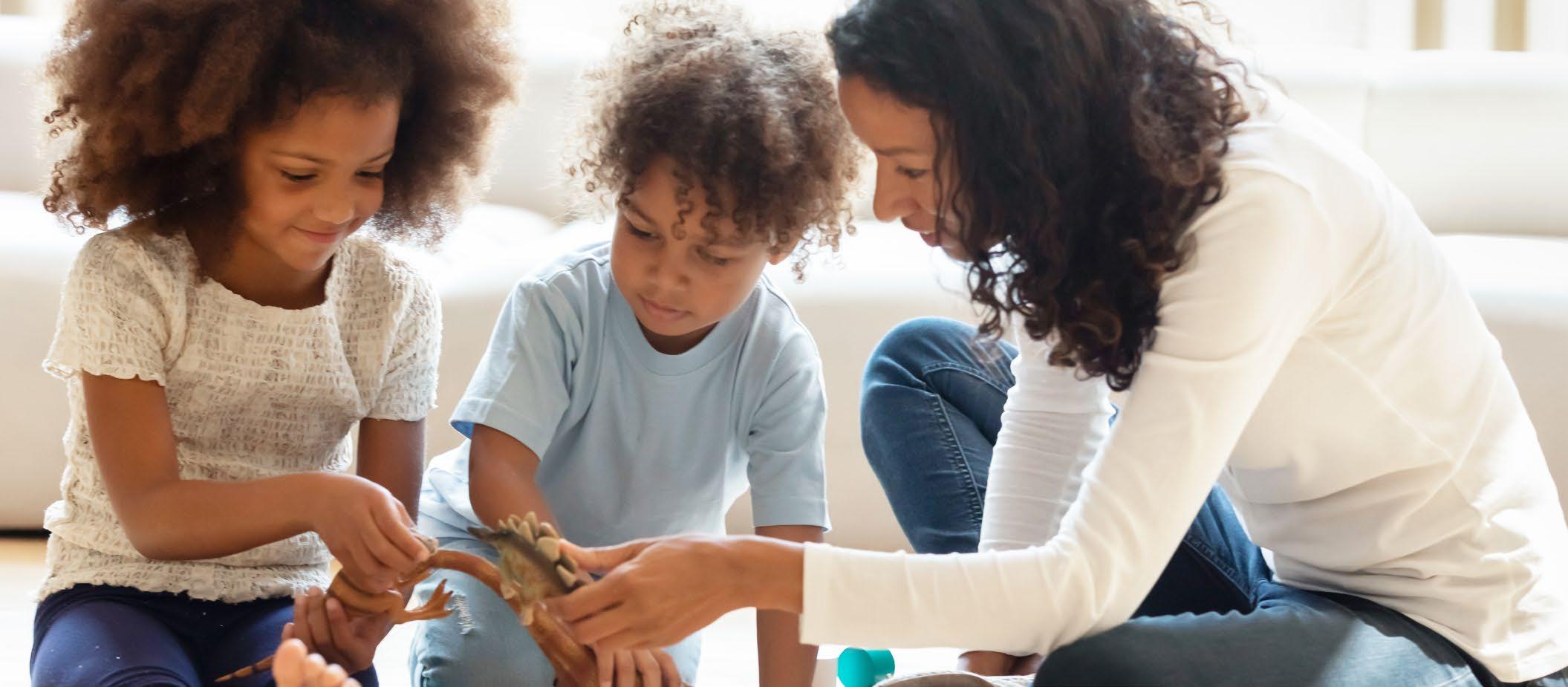
Hiring a Domestic Helper Through an Agency
Expect to pay CI$15 per hour for a minimum of four hours if hired on a full-day or half-day regular weekly basis. On a temporary basis, allow CI$17 or more per hour and some charge a transportation fee of CI$6 per day. The convenience of using an agency is that they train the staff, pay their health insurance, pension, and will replace them if they cannot work for any reason. Many agencies also run an employee bus service and will drop them off and pick them up. See page 252 for agency details.
Hiring a Domestic Helper Directly

A domestic helper is primarily employed to clean the house, prepare food and babysit the children. They would transport the children to activities, but they would not be expected to plan activities or get involved with doing homework.
The standard working week in the Cayman Islands is between 40 and 45 hours per week. The Labour Act (2021 Revision) states that the minimum wage is CI$6 per hour for a 45-hour week, or nine hours per day. Anyone being asked to work over 45 hours should get paid 1.5 times the hourly rate for additional hours. If the employee is a live-in helper, then their 'in kind' credit (accommodations and utilities, etc.) can only account for 25% of their salary, meaning the employee must be paid a minimum of CI$4.50 per hour in gross monetary compensation. If this is not met, then the employee should call the confidential line at the Department of Labour and Pensions at (345) 945 8960. The reality is, however, that anyone being paid CI$6 an hour for a
www.caymanparent.com 193
45 hour week will take home CI$270 per week or CI$1,170 per month, less their 50% for basic health insurance (CI$80), then they are barely able to pay rent, feed themselves, catch a bus to and from work and send home some money if they are living on CI$1,090 a month.
However, the pay is significantly better for a very good full-time domestic helper who can also double as a nanny. You would expect this person to be able to drive, cook for your children and help with cleaning the house but they would not help with homework nor manage the logistics of a child's weekly afternoon activities. Expect to pay between CI$450 and CI$550 per week, before overtime, for a 45 hour week, plus a discretionary housing allowance of CI$300-CI$500 per month. For part-time work, or babysitting, and working over the 45 hours per week, you will find that everyone will expect to be paid CI$12-CI$15 an hour. For non-agency helpers who you hire full time, you must take care of their health insurance and a good employer would not expect the employee to contribute towards it. According to the Labour Act (2021) all employees are entitled to a minimum of two weeks' vacation (10 working days) for the first four years of employment, three weeks (or 15 working days) for years four to 10, and four weeks (20 days) if employed for over 10 years with the same family. You must also pay them double time for working any public holidays. Unfortunately, by law, you do not have to contribute to a domestic worker's pension although a good employer will. A good employer will also pay for one airline ticket home per year if the employee lives nearby (e.g. Jamaica) or a ticket home every two years if they live further away (e.g. the Philippines). They
should also provide a Christmas bonus of between two-weeks' and a month’s salary.
Hiring a Professional Nanny

A professional nanny is expected to have a university degree and/or some form of formal early childhood care and education training. Their role is to focus on the children and not on general household chores. A professional nanny is usually paid CI$18CI$20 per hour for a 45 hour week (CI$3,500-CI$3,900 per month) and the overtime rate is negotiable but starts at CI$12 an hour. Typically, a nanny's job includes washing the children’s laundry, doing dishes, doing the household grocery shopping, preparing healthy dinners or homemade baby food, arranging activities, helping to organise and drive children to afterschool activities, assisting with homework, supporting any homeschooling and organising playdates. They would be expected to help develop a well-rounded, responsible child with a strong moral compass. Find professional nannies by word of mouth, or through local agencies such as AAA Caregivers or The Perfect Maid & Nanny Agency. If you are looking for a live-in au pair, visit www. greataupair.com. If you are looking for a Norland Nanny see www.norland.ac.uk.

A

Most nannies would expect to be provided with a car to use seven days a week, a monthly fuel allowance of CI$80-CI$160 (depending on distances involved between main household, school and certain activities), flights home (once a year no matter the destination), four weeks' paid vacation, non-contributory health insurance, and to be paid their monthly salary whether the family are away on holiday or not. It is not unusual for a nanny to travel with the family on vacation and stay overnight as needed (but please check visa requirements of the holiday destination if the nanny is working on the trip). For overnight stays, the going rate is a sleep fee of CI$10 per hour or CI$75 a night. It is then CI$12 per hour for the hours the children are awake outside of the nanny’s regular working hours.
Work Permit Rules for a Domestic Helper/Nanny
If you are an expat, then you cannot submit your domestic helper's or nanny's work permit paperwork until your own work permit has been approved. It is also illegal to have them pay for their own work permit. Helpers are not allowed to have dependents on their work permit, and the absolute maximum time they can stay on the Island is ten years. You can take out a work permit for any nationality as long as you can demonstrate a genuine need.
The Department of Workforce Opportunities & Residency Cayman (WORC) does not usually grant expats a work permit for a domestic helper or a nanny unless they can show sufficient need, i.e. they have children who need looking after. In this case, you'll need to provide certified copies of the birth certificate of each child to be cared for and think carefully about the information you provide in your cover letter to support your application. Please note, a work permit for a Nanny needs to be advertised on the https://jobscayman.worc.gov.ky website but a work permit for a Domestic Helper does not need to be advertised. The work permit for a Domestic Helper costs CI$150 per year, while the cost for a Certified Nanny is CI$550.
194 Cayman Parent Magazine | Essentials
Our Nannies have over 15 years of experience in child care of all ages and have been fully vetted prior to being hired. NANNY? EMAIL US TO BOOK A SERVICE! Email: theperfectmaidandnannyky@gmail.com NEED
NANNY SER VICES AVAILABLE FOR: Private homes Hotel stays Private and Corporate Event OUR NANNY SERVICES ARE PERFECT FOR: Mommy and Daddy date nights After school child care School breaks Daytime child care Playing and learning activities The Perfect Maid AgencyThe Perfect Maid and Nanny Agency HOUSEKEEPING SERVICES Cleaning Ironing Laundry services
Applying for a Passport
Dreaming of international travel with your family in tow? First things first – you need to get your child a passport. While it may seem like an arduous task, crossing it off sooner rather than later means it's one less thing to think about when it comes time to actually planning your trip away. Luckily, parents can begin the process as soon as their child has a birth certificate. We outline the next steps below.
American Passports
If you are a US citizen who recently had a child in the Cayman Islands, you need to apply for a 'Consular Report of Birth Abroad' as well as a passport for your child. You will need to make an appointment (via consularagency.simplybook.me/v2/) with the US Consular Agency and then complete the application forms, which can be found on www.travel.state.gov. Both the parents and child must attend the appointment and bring any necessary documentation. They do not accept walk-ins.
US Consular Agency: Suite 202B, Smith Road Centre, 150 Smith Road, George Town. Email: usconsularagency@gmail.com or caymanACS@state.gov. Opening hours: Monday-Thursday 9am-2pm (closed on all Cayman and US holidays).
Australian Passports
Obtaining an Australian passport for a child born in the Cayman Islands to at least one Australian national is complicated. For a passport application form, visit www.passports.gov.au.
British Passports
Visit www.gov.uk/overseas-passports to fill out an online passport application form and pay the prescribed fee. The passport office will then email you a personalised declaration pack. You need to sign this and send it by courier along with the supporting documents and photos to Her Majesty’s Passport Office, OVS-D, Millburngate House, Millburngate, Durham DH97 1PA, England. The cost of a child’s passport is £75.86, inclusive of the courier fee. Processing time takes up to 11 weeks.
Canadian Passports
The Canadian Consulate offers assistance with obtaining Canadian citizenship for children born in the Cayman Islands to Canadian parents, passports and any emergency assistance. Application forms for Canadian passports can be collected from the Consulate or downloaded online from www.cic.gc.ca. The Consulate can review your application before you send it to the High Commission of Canada in Kingston, Jamaica. The estimated processing time is 15-20 business days.
Canadian Consulate: 1st Floor, Landmark Square, 64 Earth Close, West Bay Road. Email: cdncon.cayman@candw.ky. Opening hours: Monday-Thursday 10am-1pm.
Caymanian Passports
Caymanian passports (also called a British Overseas Territories Citizen passport) are processed at the Passport & Corporate Services office in George Town and then sent to the UK passport office to be printed. The processing time is six to eight weeks. Application forms and a list of required documentation for a BOTC passport can be downloaded from www.immigration. gov.ky (see the yellow passport tab). Passports cost CI$75 for children, CI$100 for adults and the fee is waived for those over 65. Emergency passports, issued in the event of a medical air evacuation, are produced in Grand Cayman and can be turned around within a day.
Passport & Corporate Services Office: 2nd floor of Sussex House, 128 Elgin Avenue. Email: passport&corporate@gov.ky. Opening hours: Monday-Friday 9am-3pm.
For any other nationalities, visit www.gov.ky and select Consular Agents for contact details of the consular representatives.
Registering the Birth of Your Child Born in Cayman

Children born in the Cayman Islands will be issued a Live Birth Notification Form. The original document will be sent to the Registrar of Births and you will be given a copy. Parents must go to the General Registry on the ground floor of the Government Administration Building, Elgin Avenue with the Live Birth Notification Form, a marriage certificate (if married) and your passport(s).
Residents of Cayman Brac and Little Cayman can register their children at the District Commissioner’s Office on Cayman Brac or in Grand Cayman.
By law, you must register your child within three months of birth. There is no charge for this, however, a copy of your child’s birth certificate from the Registrar of Births will cost CI$10 per copy.
For more information on passports and visas, go to www. caymanresident.com. Contact details for the various consular representatives can also be found on the Cayman Resident website.
www.caymanparent.com 195
Immigration Rules for Kids
Children Born to Caymanians
The Immigration (Transition) Law confirms that children born on or after January 1st 2004, are 'Caymanian as of Right' (no matter where they are physically born) if at the date of their birth at least one of their parents was Caymanian and settled in the Cayman Islands. If the parents obtained Caymanian status (also known as 'The Right to be Caymanian') any other way than by descent, and their child is born overseas when neither parent is settled in the Cayman Islands, then their child will also be 'Caymanian as of Right'. The responsibility for determining whether or not someone is in fact a Caymanian now falls to Workforce Opportunities and Residence Cayman ('WORC').
If the children’s parents became Caymanian by descent (i.e. through a parent or grandparent), and the child is born overseas, then the child is not necessarily Caymanian.
It is strongly recommended that any child (or indeed adult) who is believed to be Caymanian apply to the Director of WORC under s. 26(2) of the Immigration (Transition) Act, 2022 Revision for formal acknowledgement that they are, in fact, Caymanian. The form that you need to fill in and submit is the R21 ‘Acknowledgement/Continuation of the Right to be Caymanian’ form. The Act provides that the Director of WORC must, within 14 days, provide such acknowledgement (and, if requested, provide a stamp to be placed in the person’s passport confirming them to be Caymanian) or provide written reasons for the refusal to do so. There is no fee for this application, although a CI$50 fee is payable where the application is being made on the basis that a child is Caymanian by Entitlement (see 'When Parents Become Caymanians After the Child's Birth').
When Caymanian Parents are Not Married
If the parents are not married at the time of the child’s birth, and the parent claiming to be the father is a Caymanian, a DNA test may be required. The issue does not arise if the mother is Caymanian. Such a child will be Caymanian as long as the mother is settled in Cayman at the time of the child’s birth.
When Parents Become Caymanians After the Child’s Birth
Quite often, parents of a child will become Caymanian after the child is born. In such a case, the child may be eligible to be 'Caymanian by Entitlement', and the parent is expected to apply to the Director of WORC for formal acknowledgement that the child is 'Caymanian by Entitlement'. The application must include a fee of CI$50, and must demonstrate that the child concerned is under the age of 18, has at least one Caymanian parent, and has been legally and ordinarily resident in the Cayman Islands for at least one year. Please note that the child must later be
the subject of an application for continuation of their Right to be Caymanian. As the law presently stands, such children cease to be Caymanian upon turning 18 and need to apply for a 'continuation'. This should be done after the child turns 17 and before they turn 18. If they apply after the age of 18, they will have ceased to be Caymanian but can technically regain that status provided an application for continuation is granted. However, the child may be unable to apply for a scholarship or a job until their status has been confirmed and 'continued'. They also risk being determined to be unlawfully in the Islands and thus (if the period is long enough) ineligible to apply for 'continuation'.
Children Born to Non-Caymanians
Children born in the Cayman Islands to expats are not automatically entitled to reside in Cayman. Their treatment varies depending on the immigration status of their parents. The main options for the children of non-Caymanians are set out below:
How to Make Your Expat Child a Legal Resident
When a child is born in or brought into the Cayman Islands, unless they are 'Caymanian as of Right', they must be reported to the immigration authorities and have the appropriate permissions sought to allow them to stay. The procedure to be followed will vary depending on the nature of the parent’s immigration standing. For example, your child must be added as a dependant if you are: here on a temporary or full work permit, are a Government-contracted worker, or have an application for Permanent Residence submitted and are working on a valid PCW ('Permission to Continue Working'). The next paragraph explains how you add your child to your work permit or Permanent Residency.
Children Born to Work Permit Holders
If you are on a work permit, your baby must be added as a dependant on your work permit. You can find the AMD2 ‘Dependant Information Form Checklist’ (aka the RV37a) on www. iworc.gov.ky which outlines the things you need to gather and submit. These include the application filing fee of CI$100 and a separate grant fee of CI$500, which is payable on approval. The required supporting documents include employment letters in relation to each parent and a ‘Monthly Income and Expense Report’ with which the Dept. of WORC will decide whether you can afford to have a dependant stay in Cayman with you. It is generally accepted that your minimum monthly base salary for a family of three must be in the region of CI$3,500. You will generally be expected to earn an extra CI$500 to CI$1,000 per month for each additional dependant. When all the requirements are met, your child’s passport (once issued) will get
196 Cayman Parent Magazine | Essentials
a stamp with a date on it. Remember to get each new passport re-stamped as airlines need to see an up-to-date dependant stamp in the passport when you travel. If you have any questions, call WORC on (345) 949 8344 or see their website.
Children Born to Applicants for Permanent Residence with Permission to Continue Working
In the event that you become a parent while your application for Permanent Residency is still being processed, you need to act as soon as possible to vary your Permission to Continue Working (PCW) to add a new dependant. Following this, you need to update your application for Permanent Residence to reflect the change of circumstance. This requires a submission to the Director of WORC, accompanied by a CI$100 application fee, a completed copy of the RV37a 'Dependant Information Form' and its list of supporting documents.

Children Born to Government Employees
Foreign nationals in government service are exempt from the Work Permit Regime by virtue of their government contracts. They should, however, check with their relevant Department/ Ministry to ensure that their child is able to lawfully reside in the Cayman Islands. Please note that there is no distinction between expatriate children of persons in government service and those in the private sector. Considerations as to Permanent Residence and the 'Right to be Caymanian' (including 'continuation' thereof) should be taken fully into account.
A foreign national who has lived in the Cayman Islands for at least eight years and works for the Cayman Islands Government can apply for Permanent Residency. Once it is granted, they have the choice of adding their child/children as a dependant and paying the annual dependant fee of CI$500 per child. Alternatively, they can continue to include the child as a dependant on their government contract and, in such a case, they will not have to pay an annual fee for their children. Please note that it is very important that evidence of your child's residency status is maintained. At some point you may want to apply for Permanent Residency or Status for your child, and you will need to show proof that they have been a legal resident in the Cayman Islands for some years prior to the application.
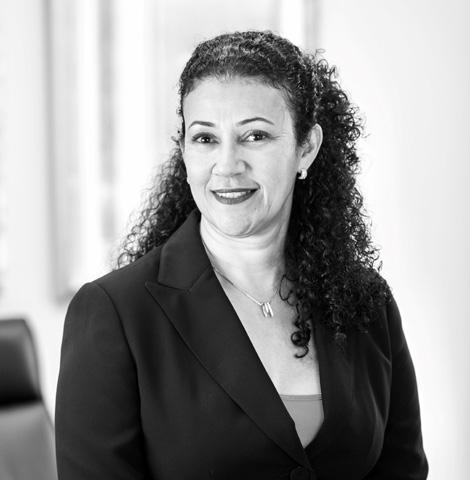


Children Born to Permanent Residents
A child born to a Permanent Resident (whether through the points system or by independent means) must be added as a dependant to the parent’s PR. You will need to fill in and submit a ‘Variation of Permanent Residence’ form (the RV37a form) as well as the 'Dependant Information Form Checklist.'

There is an administrative non-refundable CI$500 fee attached to the application. You will need to include a cover letter explaining why the change is being made, as well as a certified copy of your child’s birth certificate, a signed affidavit, a completed application form, as well as (where relevant) an employment letter from both parents which includes the hours worked per week, the monthly income and any other benefits received.
Hampson and Company
www.caymanparent.com 197
Attorneys at Law 4th Floor, Apollo House East, 87 Mary Street, George Town, P.O. Box 698, Grand Cayman KY1-1107 (Tel): 345 623 7788 • (Email): info@hampsonandco.com • www.hampsonandco.com We provide advice on all aspects of family law including, divorce, separation, mediation, pre-nuptial and post-nuptial agreements, child-related issues (residency, relocation and maintenance), capital adjustment, spousal maintenance, and domestic violence. We also provide advice on all aspects of general practice including, work permits, residency applications, naturalisation applications, status applications, wills, trusts and estates, and all real estate related matters. FAMILY LAW AND GENERAL PRACTICE
GRAHAM
HAMPSON Family YVONNE MULLEN Family SULEKHA TUMMALA Family / General Practice KIM McLAUGHLIN General Practice / Corporate
The issue fee is CI$400 for the holder of a 'Residency and Employment Rights Certificate' on the basis of eight years' residence or CI$1,000 for the dependants of the holder of a 'Certificate for Persons of Independent Means'.
At the time of the child’s birth, if one parent already holds Permanent Residency and/or has been Naturalised as a British Overseas Territories Citizen (BOTC) because of a connection with the Cayman Islands, but is not (yet) Caymanian, then the child born in the Cayman Islands (to expatriate parents resident in the Cayman Islands) will be born a British Overseas Territories Citizen by virtue of a connection with the Cayman Islands. Although they will not be Caymanian, such children can hold a British Overseas Territories (Cayman Islands) passport and have an automatic right to live (but not to work) in the Cayman Islands. They should be registered under the British Nationality Act with the Deputy Governor’s Office and an application made through the local passport office. As mentioned above, the child also needs to be added as a dependant on your Permanent Residency.
Please note that as a Permanent Resident, if you then become a Caymanian (and have children and a spouse as dependants) you have only 45 days to 'regularise' your dependants. If for some reason you forget, then your spouse’s 'Residency & Employment Rights Certificate (RERC) as the Spouse of a Permanent Resident' will be revoked and there will, in effect, be nothing to extend. In this situation, the only option to 'regularise' your spouse’s position is to apply for the 'Right to be Caymanian', but you cannot do this unless you sign an affidavit saying that you tick the 'stable marriage' box. Alternatively, if you have been married for less than seven years, then you can simply apply for a RERC on the grounds of being married to a Caymanian.
Expatriate Children Born in the Cayman Islands and Continuously Resident for the First 10 Years
The British Nationality Act makes provision for the registration of children born in the Islands (and legally resident for the first ten years of their life) as British Overseas Territories Citizens by virtue of a connection with the Islands. While such registration will not make them Caymanian, they will be entitled to a Cayman Islands passport and allowed to reside permanently in the Cayman Islands provided they do not move away, are of good character, and do not breach the Immigration (Transition) Act.
This option is available without regard to the immigration status of the parents and an application should be made to the Deputy Governor’s Office as soon as possible following the child’s 10th birthday. Such children can hold a Cayman Islands passport, and (independent of their parents) almost certainly be able to apply to become Caymanian immediately following their 15th birthday if still legally and ordinarily a resident in the Cayman Islands at that date.
Rules Once a Child Turns 18
A 'Caymanian by Entitlement' Turning 18
Please note that a child who is a 'Caymanian by Entitlement' will lose this Status when they turn 18. In order to continue to
be Caymanian after their 18th birthday, an application must be made to the Caymanian Status and Permanent Residency Board for 'continuation' of their Status. Such an application ought to be made when the child is 17, and before they turn 18, or they will automatically lose their Status upon turning 18. If a child forgets to apply to continue their Caymanian Status, they can reapply at any time, however, they may be unable to work or apply for a scholarship until they have had their Status reinstated. A student visa or alternative immigration permission may be needed to fill any gaps. An application can only be granted if the child has been legally and ordinarily resident for five out of the seven years immediately preceding the date of application. Provided that an application is made before the child turns 18, they will (once the application is granted) be deemed to have been Caymanian without break. If the child is the subject of an application after their 18th birthday, they will (if the application is granted) be deemed to only be Caymanian from the date of the grant. Under the Immigration (Transition) Act, absences necessitated by health and education may nevertheless count as legal and ordinary residence in the Islands provided that Cayman is 'home' for the relevant period of absence (which cannot, in any event, be for more than 12 months).
Permanent Resident's Child Turning 18
An expatriate child of a Permanent Resident (even if the child has a Cayman passport) must, in most cases, apply for Permanent Residence in their own right under section 39 of the Immigration (Transition) Law. They can do this without being subject to the points system, provided they have been legally and ordinarily resident in the Cayman Islands for seven years prior to the application being made. This application must be made before the child turns 19 (ideally even before they turn 18) but if the parent’s Residency & Employment Rights Certificate has been varied to allow the child to be a dependant past 18, it can be made up until the child is 24, provided the child is still in tertiary education or within six months of the end of such education. They will then be able to apply to become Caymanian once they have been in Cayman for 15 years, or five years after having been Naturalised and becoming a British Overseas Territories Citizen (BOTC). An expatriate child, who is the child of the spouse of a Caymanian and whose parent holds a RERC (Residency & Employment Rights Certificate) as the spouse of a Caymanian, can be added as a dependant on their parent, but only until they are 18, unless they continue into tertiary education and their permission is varied.
Work Permit Holder's Child Turning 18
Dependant children can only remain on a parent’s work permit after the age of 18 if they are in full-time tertiary education or special circumstances apply (such as the child is unable, for medical or other exceptional reasons, to maintain themselves). Should your child turn 18 before they finish secondary school, the immigration authorities will usually allow your child to remain in Cayman, although not formally as a dependant on your work permit. However, if your child chooses not to go on to university or college and they want to continue living in the Cayman Islands, then their only option is usually to try and get their own work permit. At this point, they are competing with
198 Cayman Parent Magazine | Essentials
every Caymanian and Permanent Resident school leaver who will have precedence over them, placing them at a distinct disadvantage when seeking job opportunities.
Gap Year Dilemma
The Immigration authorities have, to date, declined to confirm their treatment of students seeking to take a gap year, and the Law does not appear to make any provisions for them.
Work Experience for Expat Kids
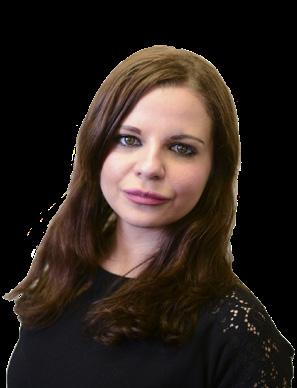
Children of work permit holders cannot accept paid work experience without having their own work permit, and an unqualified 16-20-year-old is very unlikely to ever be granted a work permit. However, there is nothing in the Act to say that the children of expats cannot accept unpaid internships if they have been resourceful enough to go out and find work in their school holidays! In fact, all children, expat or Caymanian, should be encouraged to seek work experience as soon as they are over the age of 16. It not only keeps them busy, but it also teaches them the value of money and to have a good work ethic – invaluable tools for life! See our Part-Time Jobs article on page 288 for more details.
Naturalisation as a BOTC (Section 18 (1) Grounds of Residence at 18)

If you are a Permanent Resident (PR) and not married to a Caymanian then getting Naturalised as a British Overseas Territories Citizen (BOTC) is an essential step in the process of

acquiring Caymanian Status. Once you have had Permanent Residence for 12 months, and have lived in Cayman for at least five years, you can apply under the British Nationality Act for Naturalisation as a BOTC by virtue of a connection with the Cayman Islands. Please note that you will still need to pay your Permanent Resident work-related fees every year once you are Naturalised. However, the spouse of a Caymanian does not pay these fees. The spouse of a Caymanian will (provided their Caymanian spouse is a BOTC), be able to apply for Naturalisation 12 months from the date that their RERC was approved, provided they have been resident in the Islands for at least three years and seek to apply on the basis of marriage to a BOTC. The application is made to the Deputy Governor and must include an up-to-date travel history covering the last five years (you can obtain this from WORC), as well as certified copies of your relevant documents and a fee of CI$825. Please note that a child under the age of 18 can (on successful application) be registered as a BOTC and the cost is CI$450.
This article was written by Nick Joseph. As a partner at HSM, he deals primarily with the provision of advice in relation to a range of regulatory matters including immigration and employment issues with an emphasis on relocation advice. Nick is a leading immigration lawyer in the Cayman Islands and was a partner for almost ten years at a major offshore law firm in the Cayman Islands before joining HSM in early 2013.


www.caymanparent.com 199
5th Floor, Genesis Building, Genesis Close | P O Box 446, Grand Cayman, KY1-1106, Cayman Islands Tel: (345) 949 2740 or (345) 623 2740 | Fax: (345) 949 0073 | info@mcgrathtonner.com www.mcgrathtonner.com Our experienced family law team provide advice and representation on all aspects of matrimonial finance and children related issues, including: Divorce • Separation • Child custody • Child maintenance Pre-nuptial and post-nuptial agreements • Child abduction and relocation • Domestic violence MEET THE FAMILY LAW TEAM Sara Ismail sismail@mcgrathtonner.com David McGrath dmcgrath@mcgrathtonner.com Jonathan Casey jcasey@mcgrathtonner.com
Family Breakdown
Everything you need to know
“The end of a relationship brings with it emotional and financial challenges, particularly for those families who may have close connections to more than one country. No matter the reason for the breakdown of the relationship, a constructive and dispute resolution based approach is often the best way to resolve arrangements without a huge emotional and financial cost to all those involved. When agreements are not possible, the court process will help to achieve finality, though it is necessary to think creatively and adopt a clear strategy at all times in order to achieve the best outcome possible.” –Amanda Minto, Counsel at Travers Thorp Alberga
The Process of Divorce / Family Separation
If parties to a marriage, civil partnership or relationship are separating, the first step is to attempt to negotiate the division of property and/or proposals for the children of the family. If parties can agree on these terms before engaging a lawyer, the entire process will be simplified. If agreement cannot be reached, each party may approach a lawyer to assist with navigating the process and, if necessary, enlist the help of a mediator. Legal aid may be available for parties who cannot afford a lawyer where domestic violence or child neglect arises. If the parties do not qualify for legal aid, then they may seek free legal advice from Legal Befrienders, run by the Family Resource Centre. See page 210 for their contact details.
In the Cayman Islands, a ‘no fault’ divorce is not available.
To begin divorce proceedings in relation to marriages or civil partnerships, one of the following five grounds must be established: adultery; unreasonable behaviour; desertion for two years; separation for two years with consent; or separation for five years without consent. A party can file for divorce if he/she has been domiciled in the Cayman Islands within the preceding year or, if the person who is applying for a divorce is female, she has been ordinarily resident in Cayman for the past two years. Domicile is an unusual legal concept and legal advice should ordinarily be sought, particularly for international families who may be said to have more than one home. Disputes can sometimes arise as to which country is the more convenient to handle divorce and associated matters.
Property and Children Considerations
Divorce and separation raise issues regarding the division of property (jointly or in the sole name of one party) and the practical and financial upbringing of any children of the family. Child arrangements consider issues around ‘residence’ and ‘contact’. Residence orders regulate with whom a child will live and contact orders determine with whom a child may visit, at
what frequency and for what duration. Shared residence orders can often be viewed as providing stability for a child, since the child has both parents actively involved in his/her life. Whether a court order is actually necessary must be considered at all times; if arrangements are not contested then the practicalities can be set out in a written parenting agreement.
Mediation
Mediation is a form of alternative dispute resolution which avoids the expense and potential stress of litigation. Mediation is also court mandated as a necessary first step before financial proceedings can be progressed. Mediation is led by a qualified mediator who guides the parties through the process to enable each party’s opinion to be heard. These sessions are booked in three-hour intervals, but multiple sessions may be scheduled. Court-mandated mediation is free, but typically parties will engage lawyers to assist with the process. Mediation outside of the court-mandated process must be paid for privately.
Costs & Timelines
An amicable (non-contentious) divorce may cost between CI$2,000-CI$5,000 in legal fees or only the prescribed court fees if parties are able to draw up their own legal agreements. The cost of a contentious (or non-amicable) divorce or separation varies as it depends on what issues and for how long the parties remain in dispute. It is also possible to engage in outof-court dispute resolution with a third party lawyer engaged to act as ‘judge’ to assist parties in reaching agreements – known as the ‘financial dispute resolution’ process - this outcomefocused approach typically has a high success rate even where issues are in dispute between the parties. Any form of dispute resolution will typically result in far lower legal fees and court costs than a matter which remains fully contested.
Domestic & Child Abuse
If there are concerns of domestic violence and or child abuse
200 Cayman Parent Magazine | Essentials
during a divorce/separation, these issues may be dealt with using other legal channels, which may be applied for on an urgent basis. The first avenue would be to make a police report, thereupon claims will be thoroughly investigated. If domestic violence is an issue, then this may be dealt with in the civil and/ or the criminal courts. In the civil courts, the applicant may seek any of these orders, which were created to protect the applicant physically and financially:
• A Protection Order: This primarily stipulates that the perpetrator stay away from the applicant.



• An Occupation Order: This prevents the perpetrator from residing with the applicant.
• A Tenancy Order: This requires the perpetrator to pay the lease or the rent of the applicant if the applicant financially relied on the perpetrator.
Divorce Proceedings for Caymanians vs. Expats

The Cayman Islands is a multicultural jurisdiction. Therefore, we have marriages and civil partnerships between two Caymanian parties, marriages and civil partnerships where one party is Caymanian and the other party is not and marriages and civil partnerships where both parties are expatriates. Each scenario raises different implications for divorce/separation from an immigration perspective and often requires specialist advice. Presently, parties to marriages and civil partnerships that have held Caymanian status for less than three years will lose their Caymanian status upon a divorce. Two expatriates who wish to separate need to consider the rules of the jurisdiction in which
they were married and understand that if they wish to divorce in Cayman, they must follow local rules in regard to length and or quality of residency on Island and or length of legal separation, before filing for divorce. For more information, please see the article on the next page.
Relocation
If following a divorce or separation one parent desires to move to another jurisdiction with the children (whether to a place of choice or to return to their country of origin) if the other parent disagrees then permission from the court must be obtained before that child can be removed from the Islands. This is known as a relocation application. The overarching principle is that the child’s welfare is paramount, though in making a decision the court will consider a particular set of key factors as set out in current case law. Relocation cases are often emotionally fraught and legally complex. Specialist legal advice should be sought at the earliest opportunity.
If one parent removes a child from the Cayman Islands without the permission of the other parent or the court, then this typically raises questions of child abduction and will engage what is known as the ‘Hague Convention’. Emergency orders can be sought for the return of the child pending the final decision of the court, which prevents a parent from seeking to remove a child to adjudicate matters in a perceived ‘sympathetic’ jurisdiction, or to achieve a fait accompli by moving the child with the intention to establish a new status quo.

SHAUN McCANN
DESROSIERS
AMANDA

www.caymanparent.com 201
LITIGATION - MEDIATION - DISPUTE RESOLUTION - LEGAL DRAFTING AND ADVICE The Travers Thorp Alberga family team are highly experienced in all aspects of matrimonial law including divorce, residence and contact disputes, child and spousal maintenance, removal applications, interim and final financial provision, cross border asset tracing, pre and post nuptial agreements, private client and succession planning, wills, trusts and foundations. HARBOUR PLACE 2ND FLOOR, PO BOX 472, 103 SOUTH CHURCH STREET GRAND CAYMAN, KY1 - 1106 CAYMAN ISLANDS WWW.TRAVERSTHORPALBERGA.COM MAIN : + 1 (345) 949 0699
MINTO Email: aminto@tta.lawyer Direct: +1 (345) 623 2472 Mobile: +1 (345) 516 7611
Email: ld@tta.lawyer Direct: +1 (345) 623 2535 Mobile: +1 (345) 516 2540
Email: smccann@tta.lawyer Direct: +1 (345) 949 0699 Mobile: +1 (345) 516 4911
The Divorce Dilemma
How it Affects Immigration in Cayman
There are some specific issues relating to divorce and immigration statuses which are important to be aware of. Whether or not you can continue to live in Cayman could be in the balance.
Divorce For Expats/Work Permit Holders
Should an expat couple living in Cayman decide to divorce, the non-working (previously) dependent spouse may have no right to stay in Cayman. Residence, based purely on the presence of children, is not allowed by the Immigration (Transition) Act. Children in such circumstances can remain as approved dependents of the parent who is on a work permit or government contract and continue to attend full-time education until adulthood (as late as 24 if attending full-time university). However, the formerly dependent parent will likely only be able to remain if they obtain their own work permit (including through the Special Economic Zone regime) or government contract; or alternatively secure some form of residency as a person of independent means. They may be permitted to remain as a visitor, but remaining in such a capacity for more than 90 days can present difficulties, and no permission ought to be expected after a total of 182 days of physical presence in any 12-month period.
Former Spouse of a Caymanian
In the instance where the former spouse of a Caymanian is the mother/father of a Caymanian child, they will usually be allowed to remain (subject to various approvals) and be permitted to work until the children complete their education or their 24th birthday, whichever happens sooner. If their last child reaches the age of 24 and the non-Caymanian parent has not obtained an alternative immigration permission before this point, then the parent will (according to the provisions of the law as presently drafted) have to leave the Cayman Islands. However, such a parent will have an opportunity to apply for Permanent Residence pursuant to the points system, provided Cayman has been their home for more than eight years.
Spouses of Permanent Residents
The dependant spouse of a Permanent Resident can apply for their own Permanent Residency and Employment Rights Certificate (RERC) as the spouse of a PR holder as soon as their spouse is granted Permanent Residence. They do not have to wait the usual eight years of residency and do not have to take any test or be subject to the points system. They are, however, free to apply for Permanent Residence in their own right, (and go through the normal process) if they have been living in Cayman for eight years. If they hold Permanent Residence and have been naturalised, they should also apply for the Right to be Caymanian as soon as they have been living in the Cayman Islands for 15 years (or five years following
the date of Naturalisation). Ideally, spouses who qualify should, in any event, consider applying for Permanent Residence in their own right once they have been legally and ordinarily resident for eight years. However, many people just carry on having their Residency and Employment Rights Certificate (RERC) 'tied to’ their spouses’ Permanent Residency since there is no time limit on the award. The problem arises when one of the spouses applies for and is granted the Right to be Caymanian. At this point, the RERC holder/spouse whose Residence is based on marriage to a PR holder must have their immigration status in the Islands ‘regularised’ within 45 days, i.e. they must have their RERC changed to that of the 'Spouse of a Caymanian'. They may even (if they have been married for more than seven years) apply directly for the Right to be Caymanian based on marriage to a Caymanian. If they forget or divorce,
Things to Consider
The length of time you and your spouse have lived in the Islands and what implication that has on your term limit and applications for Permanent Residency, or the Right to be Caymanian.
If you qualify, you can seek Permanent Residence in your own right when you have been in Cayman for at least eight years. Further, if your spouse is (or has become) a Caymanian, you can apply to be Caymanian when you have been married to the person for seven years (whether or not the seven years have been spent in Cayman), although there are some requirements regarding cohabitation.
Remember that under current legislation, it is an offence for an applicant for PR, whose application is pending, not to inform the authorities forthwith of any change in an applicant’s marital (or other material) status. There is also a requirement on persons holding Permanent Residence (other than on the basis of Marriage to a Caymanian) to file an annual declaration. It is also an offence punishable by a substantial fine and potential loss of immigration permissions for an RERC holder (other than on the basis of Marriage to a Caymanian) and their Dependant Spouse, not to inform the Director of Workforce, Opportunities and Residency Cayman (WORC) of a change in marital status within six months of any dissolution or breakdown.
202 Cayman Parent Magazine | Essentials
then as they are no longer married to a Permanent Resident, their certificate becomes void. There will, in effect, be nothing to extend. This has caused a lot of problems for couples/parents who then decide to separate. One of the requirements in the Immigration Act is that you can hand-on-heart tick the box saying you have a stable marriage. If you cannot, then there may be no rights remaining for you in the law: your immigration standing may be in limbo and you may not be allowed to stay in the Cayman Islands unless you can find an alternative permission to stay on the island.
Spouses of Caymanians
The spouse of a Caymanian has no entitlement to a work permit or even to reside in the Cayman Islands on the basis of their marriage. Unless they have a prior permission, which is yet to expire, they must first apply for (and hold) an RERC (Residency & Employment Rights Certificate) on the basis of marriage to a Caymanian. The law has now changed to make such RERC’s permanent in nature. After seven years of marriage, the non-Caymanian spouse can apply for the Right to be Caymanian on the basis of marriage.


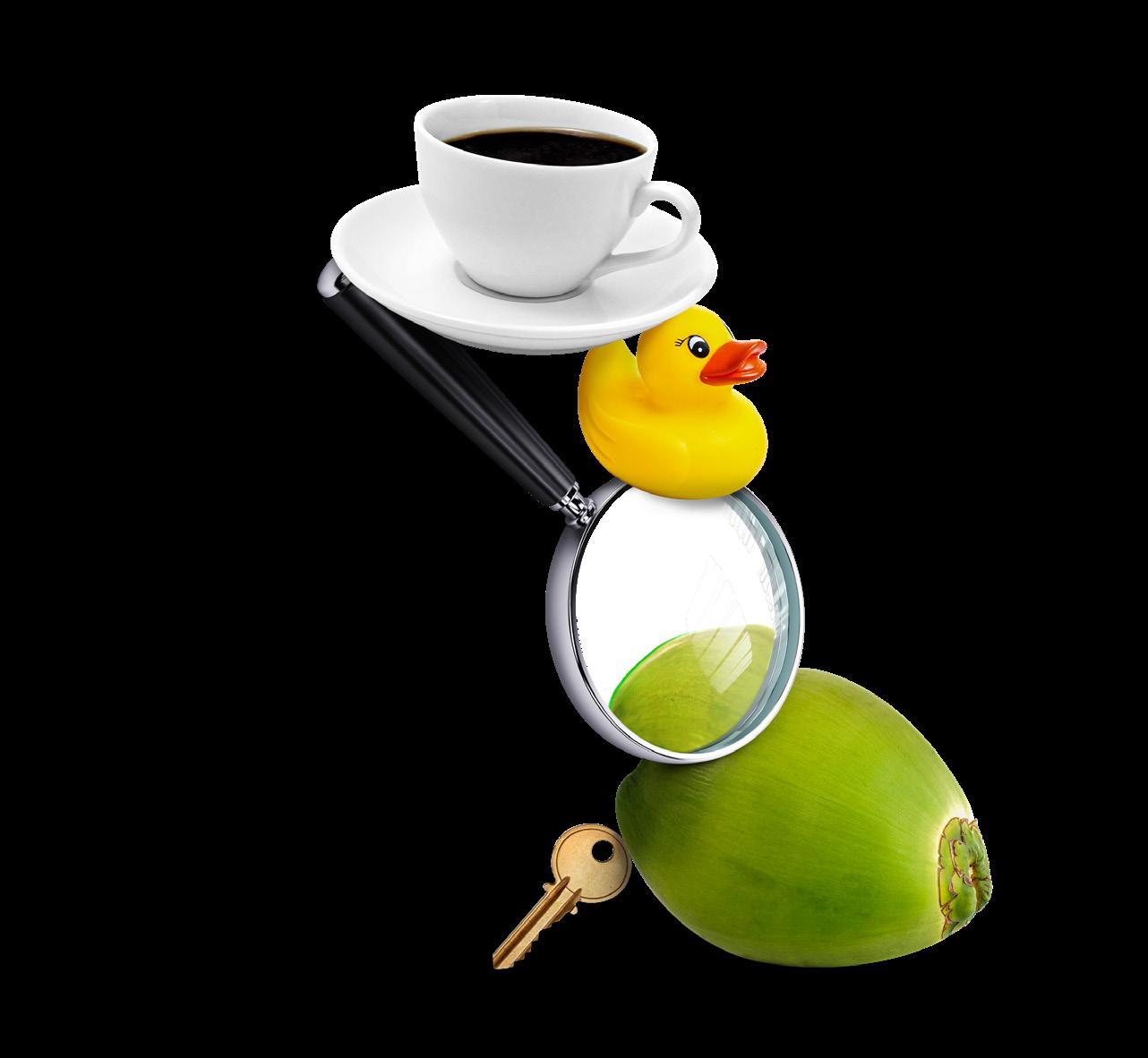
If a Caymanian also happens to be a BOTC (British Overseas Territory Citizen), the holder of an RERC (Residency & Employment Rights Certificate) as the spouse of a Caymanian they can apply for Naturalisation as a BOTC by virtue of a connection with the Cayman Islands as little as three years after becoming a resident here. Anyone resident five years after Naturalisation is eligible to apply for the Right to be Caymanian. The law also provides that the right of any RERC holder (as the spouse of a Caymanian) ceases to have the right to live and work in the Islands upon the breakdown of their marriage. In any event, WORC can revoke an RERC. If the RERC is revoked, then one of the only ways for your spouse to stay on the Island is by being granted a work permit under section 38 (7) of the Immigration (Transition) Act, and only for a period of three years (unless the marriage is first formally dissolved). At the end of the three years, if you have passed your term limit, then the non-Caymanian spouse must apply for Permanent Residence or may have to leave the Islands and be without a work permit for one year in order to reset their term-limit clock. Without an application to the Cabinet, there is little leeway in the law. The only avenue to fighting this could be on the grounds of human rights, and that process could be lengthy, costly and uncertain.

TOP TIP: If you are experiencing marital difficulties, please do seek legal advice regarding your immigration status, as current legislation may not be supportive of those who cannot swear in an affidavit that they are in a stable marriage.

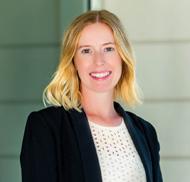
www.caymanparent.com 203
Finding the right balance for you and your family. We provide expert advice and representation on all areas of family law including: • Divorce/Separation • Pre and Post Nuptial Agreements • Child Residence and Contact • Child Abduction and Relocation • Child and Spousal Maintenance • Domestic Violence • Mediation • Wills/Guardianship Laura Clemens / Partner E: lclemens@caymanfamilylaw.com P: 345-746-5292 David Holland / Partner E: dholland@caymanfamilylaw.com P: 345-746-5293 Hayley Allister / Partner E: hallister@caymanfamilylaw.com P: 345-746-5291 info@caymanfamilylaw.com 345-746-5290 caymanfamilylaw.com Zephyr House, 122 Mary Street George Town, Grand Cayman
Securing Your Family’s Financial Future
Parenthood is one of life’s greatest gifts, and with it comes great responsibility! Beyond the immediate duties of keeping your child fed, clean and physically safe, parents need to take the necessary steps to ensure they can financially support their children from birth through to adulthood.
Financial Planning

Financial security begins with sound financial planning. A 2020 report from the U.S. Department of Agriculture estimates it costs an average of US$284,570 to raise a child from birth until independence – and that does not account for money spent on education. While this figure can vary depending on specific needs, living arrangements and lifestyle – the truth remains that raising a child is a huge financial commitment. Planning for the future affords parents some peace of mind.
Determine Overall Financial Health


Parents-to-be ought to get into the habit of taking a bigger picture look at their financials once a year. Performing a financial ‘wellness check’ can help you stay on top of spending and increase your savings rate. Assess what steps can be taken to make the next year more productive and successful. Evaluate
your housing situation, calculate your net worth, analyse your investment strategy, track your average monthly spending, and consider how these figures align with your financial goals.
Enlisting the help of a financial advisor from a specialist firm can give you a better understanding of your present financial position and help synthesise this information into a comprehensive and realistic plan of action. See ‘Make a Plan’ below for more details.
Identify Goals
Your priorities shift massively once you become a parent. Everyday expenses add up a lot quicker, while future investments, such as university and retirement, loom overhead. Taking the time to identify your goals offers parents some much-needed financial direction.
Consider what you want to achieve for your family in the short term and long term and ask yourself some grounding questions: Are these goals feasible without having to spread yourself too thin? If not, are there spending changes that can be made in other areas to accommodate said goals? How do these goals presently line up against any fixed expenses? Have you allowed for your needs to take precedence over wants? All things considered, you can then prioritise your goals. While goals naturally evolve over time, keeping them well-defined is key for forging the future you desire.
Make a Plan
Armed with personal data and a list of aspirations, you can now formulate a workable financial plan for your family. This can be as simple or as complex as you wish, however parents with a hundred and one other things to think about will likely respond better to a simplified approach. The 50/30/20 budget rule is popularly employed and for good reason: instead of dozens of line items, you can divide your money into three manageable buckets.
50% – Costs that Don’t Change





50% of your budget should go towards your fixed monthly costs. These include bills and any instances of debt, such as car loans, mortgage, insurance and pension payments. In short, these are payments which you can anticipate every month.
30% – Discretionary Money
Your discretionary money can be spent on your ‘wants’ (within reason). Think: life experiences, supporting charities, cinema
204 Cayman Parent Magazine | Essentials
tickets, family meals out, etc. Depending on your fixed costs and savings goals, the percentage of money allocated to discretionary expenses can be lowered; however it is important to give yourself some freedom, if only to refresh good habits.
20% – Savings
This bucket focusses on the future and reflects your personal savings goals. However, building an emergency fund to keep your family afloat during periods of financial hardship should be a priority. Think: out-of-pocket health emergencies, major home and car maintenance, sudden unemployment or an unprecedented crisis such as the COVID-19 pandemic! The size of your emergency fund depends on several factors, but ideally you will have the equivalent of 3-6 months’ worth of income set aside. Once an emergency fund is squared away, you can then save towards other goals, such as sending your child or children to university.
Wealth Planning
As your savings start to build, you will be able to use these perhaps to make a deposit on a house for you or your children, or even start to contribute more to your pension to enable you to be financially secure in the future. Many banks and financial planners will be able to give you advice and guidance on how your savings can be put to work to generate additional income or capital to help you further with your short-term and long-term goals.
Estate Planning
A good financial plan is also concerned with what happens to
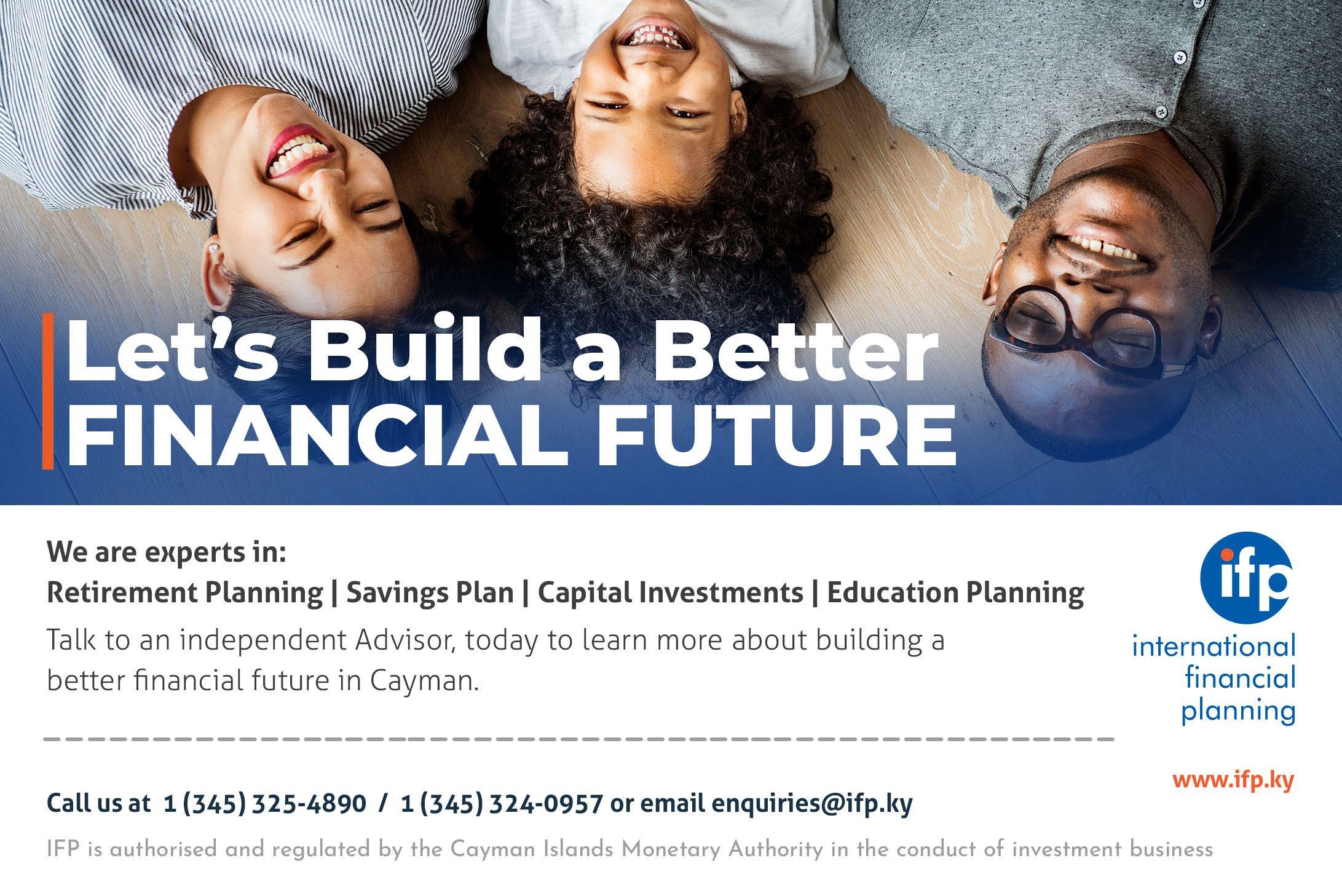
your money after you pass away. New parents should update their will, trust and beneficiary designations as soon as their child is born to reflect changing wishes. For more information on wills and estate planning, turn to page 206.
Financial Toolkit

A financial toolkit can help actualise your financial plan and give you more control over your income. Included in your toolkit are your ‘spending tools’, which are your methods for making payments and include cash, debit and credit. There are certain situations where one may work better than the other – however people usually use debit as their default paying method.
Most banks on Island offer the tools for you to manage your income in a way that reflects your financial plan. You can set up standing orders under different headings and set the amount and frequency so each month your income is automatically divided into fixed costs, discretionary costs, and savings. You can set up external standing orders for fixed monthly payments, including credit card bills, car payments, water, electricity, etc.
Financial Advisors and wealth management firms, such as International Financial Planning ltd. (IFP) and Liberty Wealth, offer the tools for you to manage your savings and investments in a way that reflects your financial plan. While the onus is on the individual to determine their own financial needs, financial advisors can offer the planning and tools to provide customers with a total know-how for securing their family’s financial future. Turn to page 209 for a list of Cayman's financial firms.
www.caymanparent.com 205
Guide to Writing a Will
Why Draft a Will?
If you pass away without leaving a will (known as dying 'intestate'), your estate will be distributed between your beneficiaries in accordance with the legal statutes that are applicable. Your family members will have to follow the clearing-off principles to determine who is entitled to become the representative of your estate, and then actively administer the same and distribute it amongst your beneficiaries according to criteria set out in the Act.
The Cayman Islands have broad testamentary freedom, which means you are effectively allowed to leave your assets to anyone as you please. However, one must note that certain countries and/or states that operate under civil law, have strict rules as to who benefits from all or part of your estate, irrespective of whether you have a will.
If you wish, you can decide on who to appoint as the representative of your estate. The benefit of having a local representative who is familiar with the Cayman Islands legal system cannot be overstated. Their familiarity with the rules could save your estate from significant expense, not to mention alleviate the stress placed on bereaved loved ones who may otherwise find themselves having to negotiate the requirements of a country and legal system with which they may not be familiar.
Worldwide Assets
Proper estate planning can limit your estate’s exposure to certain taxes upon your death. Long-term residents often incorrectly assume that being domiciled in the Cayman Islands (which does not have estate taxes) automatically means that their estates and assets located in other localities are exempt from jurisdictional taxation rules. It can be an incredible and unnecessary shock to beneficiaries to suddenly have part (or all) of an estate subject to heavy taxes. As such, in certain
circumstances it will become both smart and necessary to draft multiple wills for each jurisdiction within which your assets are located or consider the creation of certain trust structures.
Drafting a Will
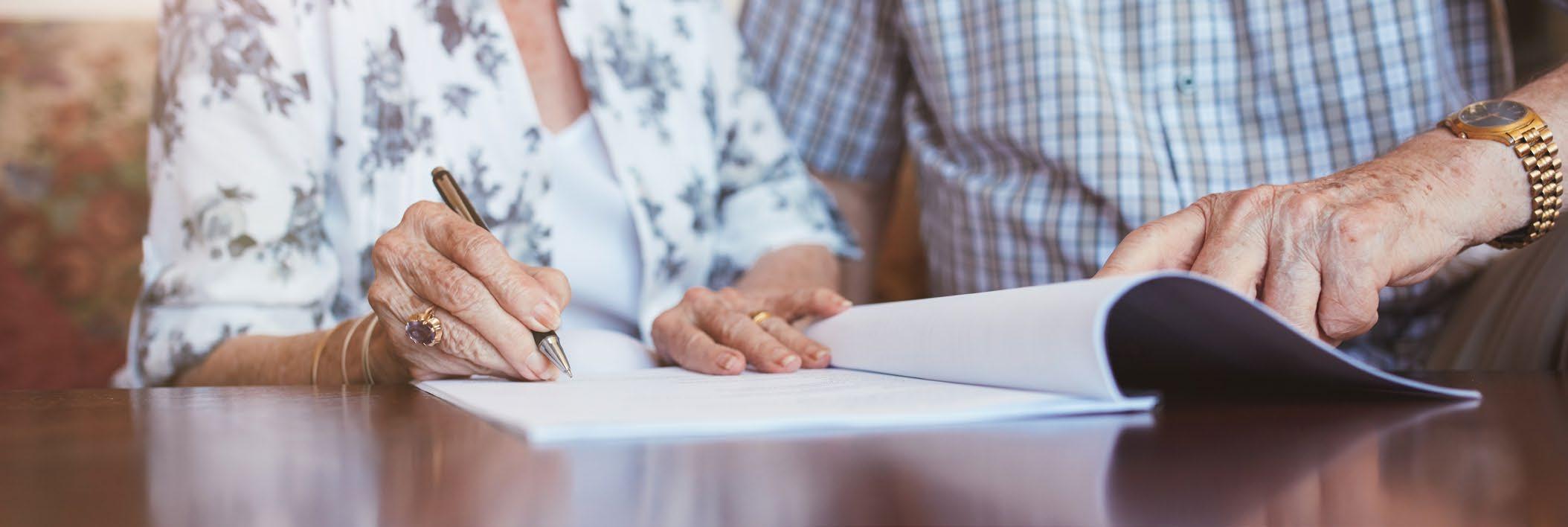
Take advice from an attorney to make sure your will is unambiguous, clearly sets out your wishes and meets legal requirements. Attorneys can also provide additional services such as the retention of your will. Remember that the beauty of a will is that it can be rewritten or amended at any time, assuming you meet the legal requirements to do so. Review your will periodically to make sure it still reflects your wishes.
Children
Consider what will happen to your children if you and your spouse or civil partner were to pass away suddenly? Who will care for them and how will your estate continue to fund them? Use your will to appoint your child’s or children’s guardians and create structures which empower the trustees of your estate to invest, apply and manage your assets in the best interests of your child or children. Drafting a will can ensure that your beneficiaries’ needs are tended to with the same level of care and careful management of your estate.
Living Wills
The Health Care Decisions Act provides a framework for advance healthcare directives (better known as living wills) about medical treatment before a person becomes terminally ill or mentally impaired and is no longer able to make such decisions. This Act provides for matters such as do-notresuscitate orders and restrictions on the type of treatment to be administered. Speak with your local attorney about this legislation and take steps to ensure your wishes are properly recorded. It will ease the emotional burden placed on relatives and help guide health care providers when end-of-life decisions need to be made.
206 Cayman Parent Magazine | Essentials
Letters of Wishes
A letter of wishes sets out additional, non-binding requests and generally holds all of those items that we take for granted, but which are only known to us. Simple instructions include where your life insurance policies, annuities and pension plans are held.
Setting this out in a letter of wishes will save your representative hours of digging through papers and making telephone calls trying to determine where your assets are held. Giving precise details can save your estate from potential losses due to unidentified assets. Your attorney will ask you to fill out an instruction sheet with the following information:
Family Information
What is your full name, date of birth and home address? What is the full name of your spouse and children, their dates of birth and addresses? Were there any previous marriages, or children from that previous marriage?
Key Roles in Your Will

• Names and addresses of your proposed executors and your relationship with them.

• Name and address of guardians to your children, if your children are young.
Gifts
• Pecuniary bequests – These are legacies of cash that you may want to leave to someone. Include their names,
Why Buy Life Insurance?
To Pay for Funeral Expenses: A funeral and burial or cremation can be very costly. You don’t want to leave your family to worry about money on top of the emotional turmoil of your death.
To Cover for Your Children’s Expenses: If you have young children, you will want them well taken care of and able to afford a good education all the way up to university.
To Replace Your Spouse’s Income: If you have always relied on two incomes to afford your lifestyle, then replacing your spouse's income will be vital.
TOP TIP: Dying without a will can cause significant stress and heartache for those left to administrate your estate. Tying up your affairs neatly and with the advice of a local attorney is important. Don’t put it off!
www.caymanparent.com 207
E m a i l : M IC H A E L E . W E B S T E R C e l l : ( 3 4 5 ) 92 5 L I F E ( 5 4 3 3 ) l i f e w i t h m i k e 3 4 5 @ g m a i l . c o m m i c h a e l w e b s t e r @ c i c c o m k y w w w l i f e i n s u r a n c e 3 4 5 c o m Your home may be your most valuable asset P rot ect it today with H om e Mor tgage S er i e s Home Mortgage Series Plus MORTGAGE
Essentials Book Club
for Parents
Sadly, we do not have a step-by-step guide on how to juggle marriage and motherhood, but this book comes pretty close. Clinical psychologist, Molly Millwood, explores the complex reality of new motherhood and how it can affect marriage.



No matter how big or small your goals, and no matter how rocky the market might be, use this 10-step plan to find peace, safety and harmony with your money. Be inspired by the money-savvy “Budgetnista.”
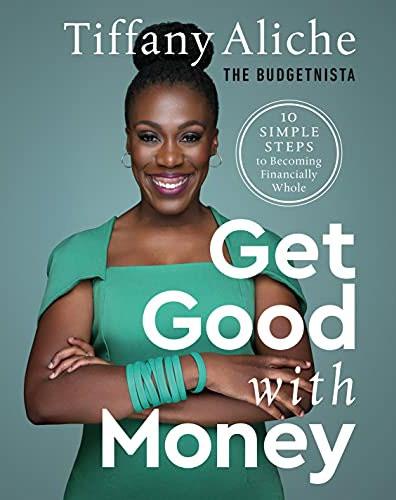
for Children
This book helps young adults question the world we live in, whilst giving them the tools to do something to change it. It addresses readers of all ages, 11+, and helps them explore and better understand racism.
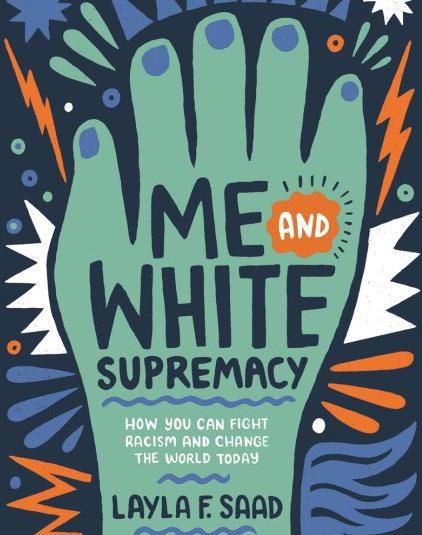
Digital for Parents
Optimistic, empathetic and spirited, Instagram sensation Vex King outlines the lessons in positivity and self-love that have helped him through adversity and how they can work for everybody.
A bright and colourful liftthe-flap book that visits the changes in routine that are familiar to many children whose parents live apart, but whose love and involvement remain as constant as ever.
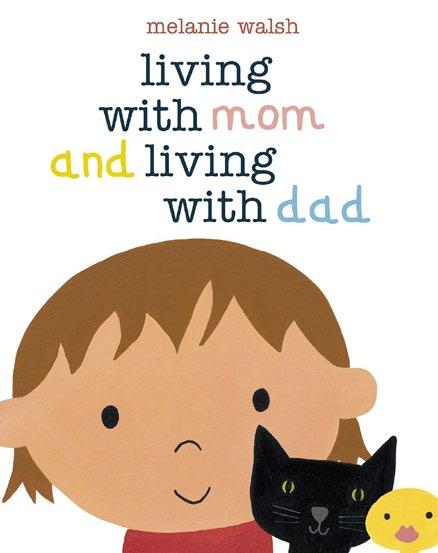
This illustrated book follows the developing friendship between the four title protagonists. It is a piece of art that provides a journey for all ages and explores universal life lessons that connect with all readers, young and old.
TED Talks Daily brings you the latest talks in audio. Join the world's leading thinkers and find some time in your day to change your perspectives, ignite curiosity and learn something new. Free on Android and iOS.

Digital for Children
Night Sky makes finding stars and planets easy. Whether you're looking for the International Space Station or your star sign, simply hold your device up to the sky and be amazed at what you see. Free on Android and iOS.
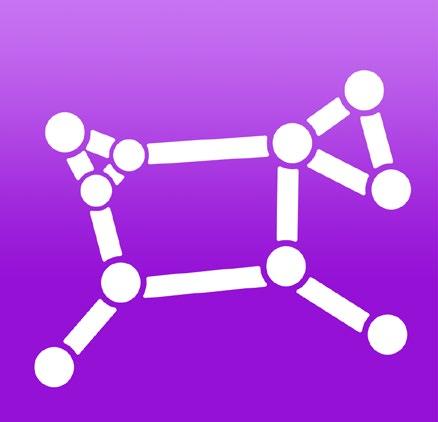
208 Cayman Parent Magazine | Essentials
Best
Best
Best
Best
Listings
Banks
Butterfield Bank (Cayman) Ltd.
PO Box 705, 12 Albert Panton Street, (GT), Grand Cayman KY1-1107. Tel: (345) 949 7055 Email: info.cayman@butterfieldgroup.com Web: www. butterfieldgroup.com Branches & Banking Hours: Butterfield Place Banking Centre (GT), Monday-Thursday 9am-4pm, Friday 9am4.30pm; Camana Bay (SMB), Monday-Friday 9am-4pm; Midtown Plaza Banking Centre (GT), Monday-Friday 9am-4pm.
Cayman National Bank
PO Box 1097, 200 Elgin Avenue (GT), Grand Cayman KY1-1102. Tel: (345) 949 4655 Email: cnb@caymannational.com Web: www. caymannational.com Branches & Banking Hours: Elgin Ave (GT), Camana Bay (SMB), Cayman Brac, Centennial Towers (WB) and Countryside Shopping Village (Savannah), Monday-Thursday 9am-4pm and Friday 9am4.30pm; Little Cayman, Mondays and Thursdays 9am-11.30am and 12pm-2pm.
CIBC FirstCaribbean
PO Box 68, 25 Main Street, (GT), Grand Cayman KY1-1102. Tel: (345) 815 2126 Web: www. cibcfcib.com Branches & Banking Hours: Main Street (GT) and Regatta Office Park, West Bay Road (SMB) Monday-Thursday 9am-4pm and Friday 9am-4.30pm.
Fidelity Bank (Cayman) Ltd.
PO Box 914, Dr Roys Drive (GT), Grand Cayman KY1-1103. Tel: (345) 949 7822 Email: info@fidelitycayman.com Web: www. fidelitygroup.com Branches & Banking Hours: Cayman Financial Centre, Dr. Roy’s Drive (GT) and Fidelity Financial Centre (SMB) MondayThursday 9am-4pm and Friday 9am-4.30pm.
RBC Royal Bank
PO Box 245, 24 Shedden Road (GT), Grand Cayman KY1-1104. Tel: (345) 949 4600 Web: www.rbc.com/caribbean.html Branches & Banking Hours: 24 Shedden Road (GT), Monday-Friday 9am-3pm; Red Bay Branch, 53 Shamrock Road (next to Grand Harbour), Monday-Friday 10am-6pm and Saturday 9am-3pm.
Scotiabank
PO Box 689, 18 Forum Lane, Camana Bay, Grand Cayman KY1-1107. Tel: (345) 949 7666 Web: www.scotiabank.com/ky Branches & Banking Hours: Scotia Centre, Camana Bay and South Sound (across from Grand Harbour) MondayThursday 9am-4pm and Friday 9am-4.30pm.
Financial Advisors/Planning
Bay.
Tel: (345) 324 0957 Email: enquiries@ifp.ky Web: www.ifp.ky Offers advice and support in a range of areas related to investments and savings, including wealth management, retirement planning and education fee planning.

Liberty Wealth
Fort 51 (above Bluestone Lane Cafe, 2nd floor) Fort Street, GT. Tel: (345) 516 2695
Email: georgie@libertywealth.ky Web: www. libertywealth.ky A fee-only, comprehensive wealth management firm, offering financial planning and investment management. Services include: retirement and estate planning, education funding and risk management.
RF Bank & Trust
Fidelity Financial Centre, 1 Gecko Link, SMB. Tel: (345) 746 6010 Web: www.rfgroup.com Offers financial advice on funding children's education, retirement planning, wealth preservation and targeting shorter-term goals.
Lifestyle Management Services
Minerva Private
13 Genesis Close, Genesis Building, George Town. Tel: (345) 746 9999 Email: info@minerva. ky Web: www.minerva.ky A full-service lifestyle management company that provides a single point of contact for all their clients.
www.caymanparent.com 209
International Financial Planning (IFP) 94 Solaris Avenue, (3rd floor), Camana
Immigration Consultants, Lawyers, Banks and Life Insurance Providers
the
They meet the unique needs of successful individuals and their families. Their key services include:Personal Assistants, House Management, Staff Training and Etiquette Consultancy.
Family Law, Wills & Estate Planning
Appleby
Appleby Tower, 71 Fort Street, GT (in 2023 they are moving to Camana Bay) Tel: (345) 949 4900 Email: cayman@applebyglobal.com Web: www.applebyglobal.com Estate planning.
Bedell Cristin
Suite 5305 (3rd floor), 18 Forum Lane, Camana Bay. Tel: (345) 949 0488 Web: www. bedellcristin.com Wills and estate planning.
Boddens
Governors Square, 23 Lime Street Bay Ave, Building 6 (2nd floor) Tel: (345) 943 0303 Email: hello@boddens.ky Web: www. boddens. ky Wills and estate planning.
Broadhurst LLC
54 Edward Street, Monaco Towers, GT. Tel: (345) 949 7237 Email: info@broadhurstllc.com Web: www.broadhurstllc.com Family law, wills and estate planning.
Campbells
Willow House (4th floor), Cricket Square, GT. Tel: (345) 949 2648 Email: campbells@campbellslegal.com Web: www. campbellslegal.com Family law and estate planning.
Carey Olsen
Willow House, Cricket Square, GT. Tel: (345) 749 2000 Email: cayman@careyolsen.com Web: www.careyolsen.com Family law and estate planning.
Cayman Family Law
Zephyr House (ground floor), 122 Mary Street, GT. Tel: (345) 746 5290 Email: info@caymanfamilylaw.com Web: www. caymanfamilylaw.com Specialises exclusively in Family Law, including matrimonial finance, pre and post nuptial agreements, child custody arrangements, child and spousal maintenance, mediation, wills, guardianship and more.
Collas Crill
Willow House (2nd floor), Cricket Square, GT.
Tel: (345) 949 4544 Email: cayman@collascrill. com Web: www.collascrill.com Family law, wills, probate and estate planning.
Hampson and Company
Apollo House East (4th floor), Mary Street. Tel: (345) 623 7788 Email: info@hampsonandco. com Web: www.hampsonandco.com Litigation in family law proceedings.
HSM Group
68 Fort Street, GT. Tel: (345) 949 4766 Email: info@hsmoffice.com Web: www.hsmoffice. com Family law, wills and estate planning.
Maples Group
Ugland House, South Church Street, GT. Tel: (345) 949 8066 Email: info@ maples.com Web: www.maples.com
Estate planning.
McGrath Tonner
Genesis Building (5th floor), Genesis
Close, GT. Tel: (345) 949 2740 Email: info@mcgrathtonner.com Web: www. mcgrathtonner.com Family law, wills and estate planning.
Mourant
94 Solaris Avenue, Camana Bay. Tel: (345) 949 4123 Email: caymanislands@mourant.com Web: www.mourant.com Estate planning.
Nelson & Company
31 The Strand, Seven Mile Beach. Tel: (345) 949 9710 Email: info@nelsonslegal.com Web: www.nellaw.com Family law, wills and estate planning.
Ogier
89 Nexus Way, Camana Bay. Tel: (345) 949 9876 Email: cayman@ogier.com Web: www. ogier.com Estate planning including wills.
Priestleys Attorneys-at-Law
Caribbean Plaza (2nd floor), West Bay Road.
Tel: (345) 946 1577 Email: info@priestleys.ky Web: www.priestleys.ky Family law, wills and estate planning.
Ritch & Conolly Attorneys-At-Law
Queensgate House (5th floor), South Church Street. Tel: (345) 949 7366 Email: info@rc.com. ky Web: www.rc.com.ky Family law, wills and estate planning.
Sinclairs
Genesis Building (3rd floor), Genesis Close. Tel: (345) 743 2626 Email: info@sinclairsoffshore. com Web: www.sinclairs.com.ky Family law, wills and estate planning.
Stuarts Walker Hersant Humphries
69 Dr. Roy’s Drive, GT. Tel: (345) 949 3344 Email: info@stuartslaw.com Web: www. stuartslaw.com Wills and estate planning.
Travers Thorp Alberga
Harbour Place (2nd floor), 103 South Church Street, GT. Tel: (345) 949 0699 Email: info@ traversthorpalberga.com Web: www. traversthorpalberga.com Family law and estate planning.
Venture One Legal Ltd.

Cayman Reporter Building, 19 Walkers Road, GT. Tel: (345) 936 5222 Email: info@venture1legal. com Web: www.ventureonelegal.com Family law, wills and estate planning.
Walkers
190 Elgin Ave, GT. Tel: (345) 949 0100 Email: info@walkersglobal.com Web : www. walkersglobal.com Estate planning.
Immigration Professionals
Affinity Recruitment Ltd.
Tel: (345) 943 2020 Email: info@affinity. ky Web: www.affinitycayman.com.
Baraud
Tel: (345) 945 1781 Email: info@baraud.com Web: www.baraud.com.
CML Immigration Services
Tel: (345) 949 1345 Email: cml@cml.ky Web: www.cml.ky.
HSM Chambers Attorneys-at-Law
Tel: (345) 949 4766 Email: njoseph@hsmoffice. com Web: www.hsmoffice.com.
Invenio
Tel: (345) 769 7000 Email: cayman@invenioglobal.com Web: www.invenio-global.com
Immigration support specialists offering services on work permit and permanent residency applications, work permit reimbursements and passport regularisation.
McGrath Tonner
Tel: (345) 623 2740 Email: info@mcgrathtonner. com Web: www.mcgrathtonner.com.
Legal Befrienders
Tel: (345) 945 8869 Offers free legal advice (on all types of legal matters) over the phone or on a walk-in basis. Walk-in clinic at 87 Mary Street, Apollo House West, (2nd floor), GT, Tuesdays 5pm-6.30pm. Phone line Tuesdays 5pm-7pm.
Insurance Providers
Aon Risk Solutions (Cayman) Ltd.
Tel: (345) 945 1266 Email: aoncayman@aon. com Web: www.aon.com/caymanislands.
Bogle Insurance
Tel: (345) 949 0579 Email: service@bogleins. com Web: www.bogleins.com
Caribbean Alliance Insurance
Tel: (345) 949 9744 Web: www. caribbeanalliance.com.
Cayman Insurance Centre (Insurance Brokers)
Tel: (345) 949 4657 Email: info@cic.com.ky Web: www.cic.com.ky.
CG BritCay (Agent for Coralisle Life Assurance Company Ltd.)
Tel: (345) 949 8699 Web: www.cgcoralisle. com.
CINICO
Tel: (345) 949 8101 or (345) 948 8101 (Brac) Web: www.cinico.ky
Insurance Company of the West Indies
Tel: (345) 949 6970 Email: cayman@icwi.com Web: www.icwi.com/cayman
Island Heritage Insurance
Tel: (345) 949 7280 Email: customercare@ islandheritage.com.ky Web: www. islandheritageinsurance.com
Michael Webster - Life Agent
Tel: (345) 925 5433 Email: michael. webster@cic.com.ky Web: www. michaelwebsterlifeinsurance.com.
Sagicor
Tel: (345) 949 8211 Email: cy_infocayman@ sagicor.com Web : www.sagicorcayman.com.
Vanguard Risk Solutions
Tel: (345) 949 5836 Email: info@vrscayman. com Web: www.vrscayman.com.
210 Cayman Parent Magazine | Essentials
Pregnancy
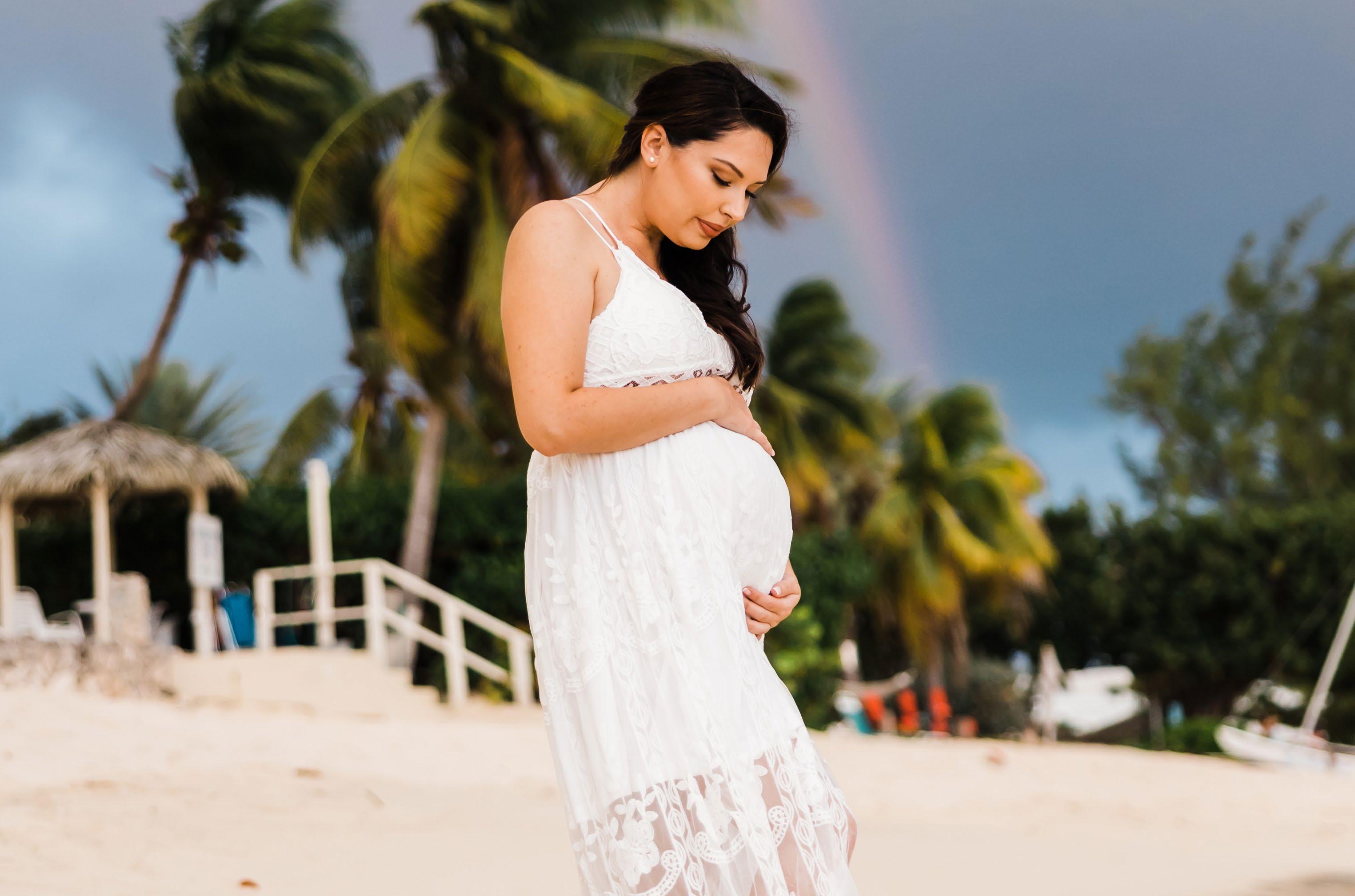
www.caymanparent.com 211
OB/GYNs, baby essentials, maternity leave, prenatal care... Fertility Options in Cayman p212 New Baby Must-Haves p214 Designing a Stylish Kid's p216 Bedroom Pregnancy & Childbirth Q&As p218 The Cost of Having a Baby p220 in the Cayman Islands OB/GYNs, Midwives & p222 Hospitals in Grand Cayman Bump, Baby & Beyond p224 Hospital Bag Checklist p226 Maternity Leave p227 The Importance of p228 Well-Child Checks Pregnancy Book Club p230 The Listings p231 Photo courtesy of Daria Keenan Photography Contents
Fertility Options in Cayman

You might be surprised to learn just how common infertility issues are. According to the Centers for Disease Control and Prevention, 12% of Americans (7.3 million people) are infertile. In England, one in seven couples have difficulty conceiving. So, if you are having problems, then know you are not alone.
Where to Start
The timings for when to see a fertility specialist depend largely on your age and how long you’ve been trying to conceive. It is generally recommended that you see someone right away if:
•You’re under 35 and have been trying to conceive for 12 months or more
•You’re between 35 and 40 and have been trying to conceive for six months or more
•You’re 40 or over
•You already know you have fertility issues or you don't have a partner but wish to become a parent.
One thing that is important to talk about is the emotional rollercoaster that couples go through when dealing with infertility. The hormones, poking, prodding, waiting and crushing disappointment (if it fails) can test even the most resilient and
glass-half-full kind of person. There is also the cost to discuss: fertility treatment is often not covered by insurance and it can be very expensive. An initial round of IVF in the US can cost at least US$15,000, possibly more depending on the clinic, where it’s located, and the medical issues. Then you have flights and hotel costs on top of that, not to mention time off work. The Cayman Fertility Centre offers all levels of fertility testing and treatments. This is a good alternative to going abroad, as local IVF starts at US$6,750 and you do not need to travel or take as much time off work. Success cannot be guaranteed however, and many couples need to be prepared to have more than one round of IVF before they consider other options.
Fertility Evaluation
Your OB/GYN or fertility doctor will want to try and establish why you are not conceiving. In your initial consultation they will discuss testing options (physical exam, blood tests, sperm analysis and then imaging tests) and your doctor will work out a plan with your agreement on which tests to do. They will need to test both you and your partner and often couples go to the initial visit together.
Female fertility testing often begins with a medical examination, an ultrasound and a series of blood tests. A basic gynaecological exam and an ultrasound are done to rule out polycystic ovaries, ovarian cysts, fibroids or uterine polyps, among other things. Blood tests such as anti-müllerian hormone (AMH) can tell you how many eggs you have, and other tests are done to make sure you are in good health to carry a pregnancy. Another step is to check if the fallopian tubes are open or blocked. There are two tests that can show this: the Hysterosalpingography or Sonohysterosalpingography test and, if the results are abnormal, this may be treated with IVF or laparoscopy. In the latter case, a small incision is made through the belly button and in two other places to examine the abdomen. This test is useful for ruling out endometriosis, if the tubes are blocked, and if there are adhesions or fibroids.
Male fertility tests start with a simple semen analysis. Further tests might include a general physical exam by a Urologist and blood work to check hormone levels.
Other fertility tests involve both partners and might include genetic tests to look for inherited disorders, especially if recurrent miscarriages are the problem.

Cayman Parent Magazine | Pregnancy212
caymanivf.com contact@caymanivf.com +1-345-233-0770 Heron Place, Unit 11, 1283 Seaview Road Part of the Barbados Fertility Centre Group
Fertility Tests & Insurance
Insurance companies are fairly clear on the fact that they consider fertility testing and fertility treatments as 'off plan' and they do not cover them. What they are less clear about is the possibility that health insurance companies may limit substantially the cover to the resulting pregnancy and birth if that pregnancy has come about via fertility treatment. Some may cover a very small portion of infertility investigation but then significantly limit the cover to any resulting pregnancy.
Fertility Treatments
Ovarian Stimulation and Insemination OB/GYNs talk of the 'first tier' of fertility treatments being ovarian stimulation and insemination. This usually involves you taking either oral or injectable medicines to stimulate the follicles of your ovaries to release eggs. This process needs to be monitored carefully with both vaginal ultrasounds and blood tests. The timing of ovulation or release of the egg can be controlled using an injection hormone. At this point, the doctor will ask the male partner for his sperm, which will then be ‘washed and concentrated’ and inserted via a very thin tube directly inside the uterus; a technique called ‘Intrauterine Insemination’ (IUI). This procedure, which is similar to a pap smear, should not be too uncomfortable. It takes about five minutes and you can return to regular activity afterwards. The 'two week wait' for the results of your pregnancy test is the hardest part.
In-Vitro Fertilisation (IVF) This is the next option if IUI does not work (or a first option for some people). Reasons to go straight to IVF include severe cases of male infertility, poor ovarian reserve, blocked fallopian tubes, an egg donor is being used, or a surrogate is needed. Once you have decided to consider IVF, finding the right clinic for you may require some research. Cayman Fertility Centre is a full spectrum clinic providing the latest IVF technology and is the only local practice that offers IVF.
The cost of IVF varies significantly depending on the country and the clinic. You can pay as little as US$6,750 at clinics in Cayman, Barbados and Jamaica, whereas treatment in America starts at around US$15,000 and can go up to US$50,000+ for top clinics in larger cities.
There are five major steps in the IVF process. These include:
1) Ovarian stimulation

2) Egg retrieval and sperm collection
3) Fertilisation and embryo culture
4) Embryo transfer
5) Hormonal support of the pregnancy and pregnancy test.
You may also want to consider the additional step of Preimplantation Genetic Testing. This is where the DNA of an embryo is screened for abnormal chromosomes. Embryos with abnormal chromosomes often end up in a failed treatment cycle, or a miscarriage, or the child may have a condition such as Down Syndrome.
Further Fertility Treatments
If neither of these options are possible, there are some alternative
routes available:
• Egg Donation with IVF: If a woman is unable to use her own eggs for IVF, finding an egg donor can be an effective solution.
• Egg Freezing: Women who might want to have children sometime in the future, or women who need treatment for cancer, for example, can freeze their eggs for later use.
• Gestational Surrogacy: This is when a surrogate carries a baby she is not biologically related to – so the sperm and eggs come from the intended parents or an egg donor. The cost of surrogacy can accumulate and often exceed US$100k.
Acupuncture for Fertility

There is a large amount of evidence proving that acupuncture and Traditional Chinese Medicine can help improve the success rate for fertility treatments.
Acupuncture can help improve the quality of eggs and sperm, regulate hormones, improve blood flow, regulate the immune system and reduce stress. All of these factors together improve the chances of success of IUI, IVF and frozen embryo transfers.
Please see page 231 for a list of providers.
LIVE LIFE, BETTER.
Your Premier Wellness facility for pre & post natal care, fertility in male and female reproduction and overall systems functioning, utilising Acupuncture, Traditional Chinese Medicine, Massage, Chiropractic and Physiotherapy.

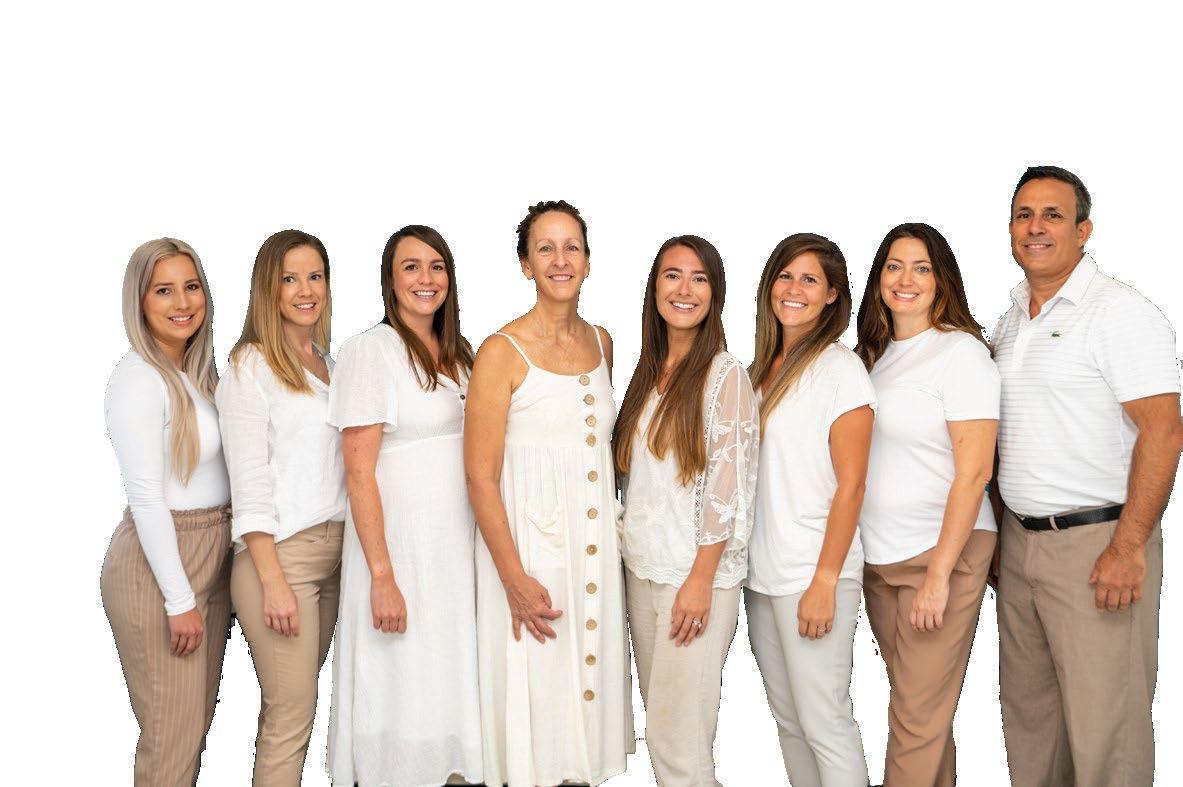
www.caymanparent.com 213
info@synergychirophysio.com • www.synergychirophysio.com (3 4 5) 9 43 820 0
e Marquee Plaza 36 Lawrence Blvd Seven Mile Beach (between Camana Bay & West Bay Road)
New Baby Must-Haves
Preparing for the arrival of your new baby is an incredibly exciting yet equally overwhelming task. Thankfully you can pick up everything you need in Cayman’s baby stores; from big items such as strollers, cribs and baby baths to daily essentials like bottles, pacifiers, clothing, toys and more. There's also a booming second-hand market – via friends passing things on, thrift stores or forums like Ecaytrade.com and Hope of Cayman Buy & Sell on Facebook. Things on these sites can go quickly though, so you’ll need to move fast to snap up a bargain!
Cot & Mattress
Get a head start on your baby’s nursery by opting for a cot that will suit all décor and room themes. All cots sold in the US meet established US and EU safety standards. There should be no more than two fingers-width of gap between the mattress and the edge of the crib. You will also need a bassinet or portable Moses basket for the first 3-6 months. For safety reasons, mattresses should always be bought new. Bedroom sets can be purchased from Bedside Manor, The Bump To Baby and Tomlinson Furniture.

Stroller
With so many choices on the market, parents often feel overwhelmed when it comes to picking a stroller. From travel systems, umbrella strollers, jogging strollers and 4WD strollers, the choices are endless. The most important factor is safety –make sure it has a five-point harness. Secondly, consider how you will be using your stroller in Cayman. Will you be walking a lot and on what kind of terrain? Is it easy to collapse and get in and out of the car and will it adapt to your child's needs as they grow? You’ll also want to ensure it provides shade for your baby. Strollers can be purchased from The Bump to Baby.
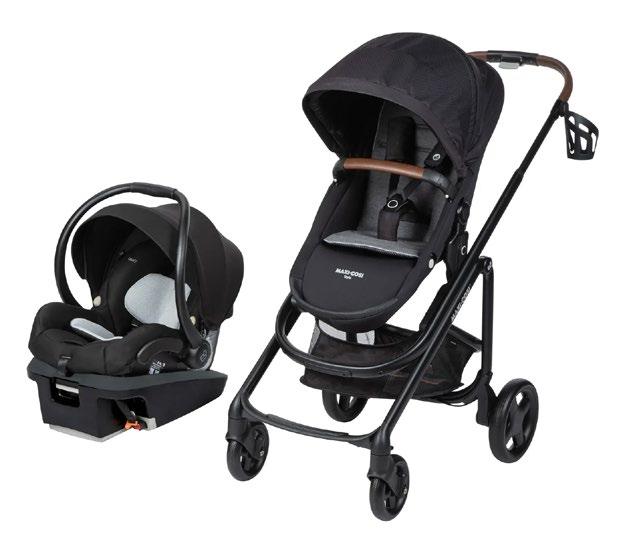
Car Seat
One of the most important purchases you’ll make. It’s really important that the car seat is installed as per the manufacturer’s instructions. Children should be rear-facing until 24 months, and it is best to buy new car seats rather than second-hand. Make sure the car seat is fitted – and you know how to get it in and out of the car – several weeks before your due date, just in case!
Car seats can be purchased from The Bump to Baby.
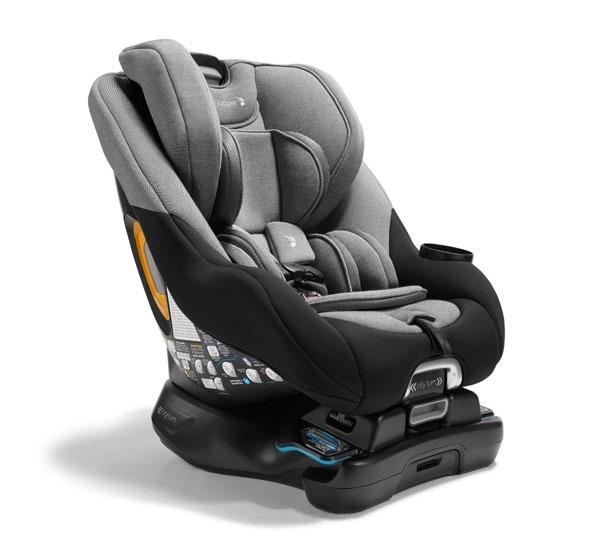
Nanobébé's Starter Set
The Nanobébé's Starter Set includes all the essentials you need for encouraging your breastfed baby to also feed from a bottle. The bottles are designed to resemble a breast, the non-electric warming bowl enables quick and even warming, and best of all, the adaptors mean you can pump straight into the bottle, so there is no mess. Nanobébé's Starter Sets can be purchased from The Bump to Baby.

Cayman Parent Magazine | Pregnancy214
Bouncy Chair
A baby bouncer can be a life saver for busy parents! Pop your little one into the bouncer to free up your hands to make a bottle, cook, take a shower or enjoy a cup of tea! There are numerous options available including models that gently rock the baby, play music and have toy bars. Always ensure your child is strapped in. The American Academy of Pediatrics recommends that baby bouncers should always be left on the floor—never on an elevated surface such as a bed or table.
Bouncy chairs can be purchased from The Bump To Baby and Bedside Manor.
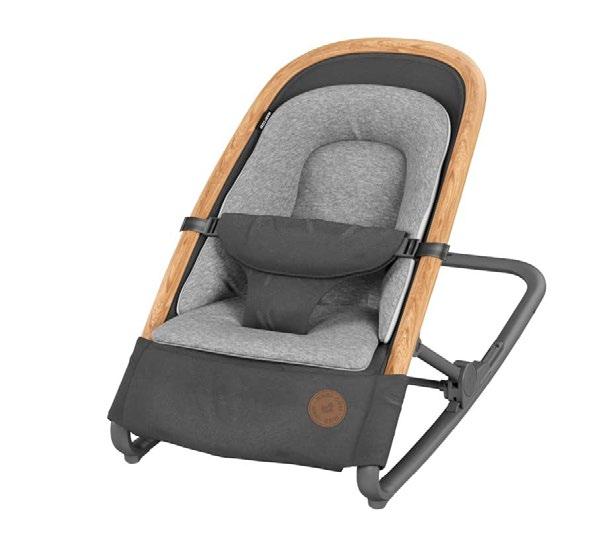
Nappy Bag
Having a baby means the end of just grabbing your keys and phone as you leave the house! Every trip out means packing nappies, muslins, wipes, pacifiers, a changing matt, bottles and more! Having a sturdy nappy bag that can hold all of this is essential, but a backpack nappy bag means you’ll also be able to have your arms and hands free for pushing the stroller or carrying the baby.
Nappy bags can be purchased from Bedside Manor and The Bump To Baby.
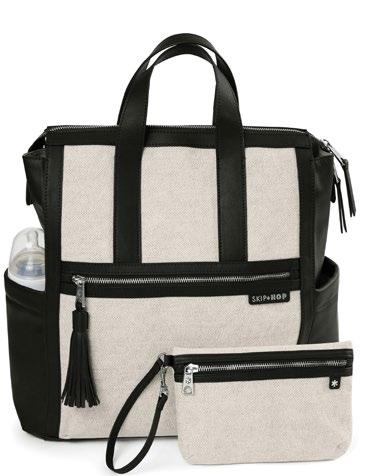
Note


For more tips and expert advice on preparing for the arrival of your little one, please visit the Cayman Parent website at www.caymanparent.com.






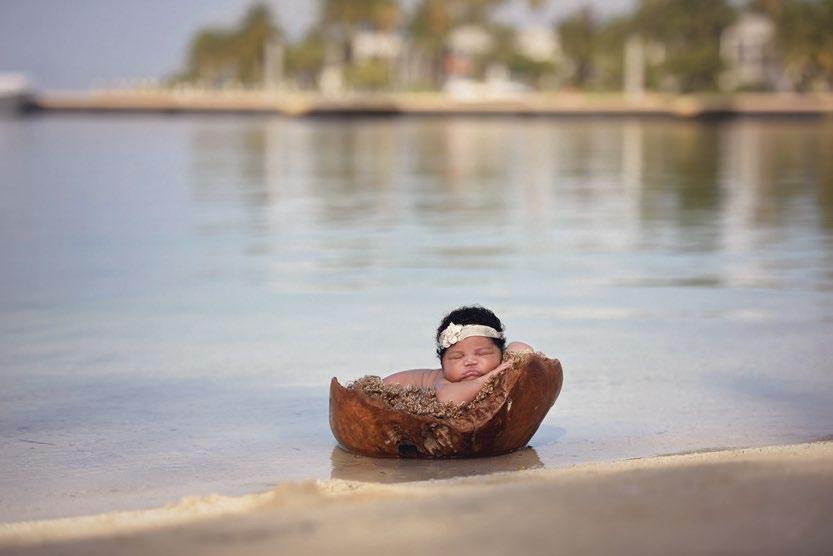
Baby Clothes

Most new parents are tempted to buy as many newborn clothes as possible, and who can blame them? Newborn clothes are so sweet! Luckily for new parents in Cayman, there are plenty of options for stocking up on gorgeous clothes including onesies, shorts, t-shirts, dresses, pyjamas and more! Baby clothes can be purchased from Atlantic Kids, Bedside Manor and The Bump to Baby.
Shipping to Cayman: Occasionally you might need to get some items shipped to Cayman. Although shipping costs can seem reasonable, it is the duty rate that usually pushes the cost up; the vast majority of baby items are charged 22% duty on arrival in Cayman. Small cargo shipping services are often the best option. The shipper will give you an address in Miami to have your items delivered to. From there, your belongings will be shipped to Cayman. For details on reputable shipping companies and small cargo shipping services visit www.caymanresident.com.
www.caymanparent.com 215
MATERNITY, FRESH 48 AND NEWBORN PHOTOGRAPHY
INFO@BABYLOVE KY l WWW BABYLOVE KY
Designing a Stylish Kids Bedroom
As your baby grows older, you will want to update their room to suit their changing needs. When designing a child’s room, it’s important to make the space fun and engaging, while also keeping it safe and considering how the room will adapt as your child grows.

Beds
A good bed and mattress are essential for a restful night’s sleep. This is especially important for children as it directly impacts their mental and physical development. There are numerous styles of beds available including toddler beds, bunk beds and cabin beds with play areas and desks with storage underneath. Make their bed even more inviting by choosing colourful or themed bedding. Shop at Ashley Furniture, The Bump To Baby & Tomlinson Furniture.
Wall Art & Décor
Adding some fun and colourful prints is an easy way to switch up your little one’s bedroom theme. Whether your child is into space, superheroes, animals or rainbows — there are options to suit all interests, no matter how fleeting they may be! Stylish shelving is also a great way to add interest to a plain wall. Decorate with books, pictures, small toys and other stylish accessories. Shop at Ashley Furniture, Bedside Manor, Living.ky & The Bump To Baby.

Desks
Give kids a designated space to concentrate on their homework with a functional and stylish desk and chair. Storage is a bonus as it will help kids to keep their pencils, crayons and other craft materials nice and tidy so they can enjoy a clutter free room! Shop at Ashley Furniture, Living.ky & Tomlinson Furniture.

Rugs
If you have hard flooring a rug will provide a nice soft area to sit and play. Kids’ room rug designs range from themed designs or traditional motifs like stripes, spots and stars, to plain blocks of colour. Don’t forget to buy a rug pad to prevent slipping. Shop at Ashley Furniture, Bedside Manor & Living.ky.

Cayman Parent Magazine | Pregnancy216
Storage & Organisation

Having toys scattered around the room will drive most parents crazy! It is also hard for a child to relax in a messy space. Whether you go for drawers, a bookcase, a console or toy boxes, storage is key for keeping on top of the clutter. There are plenty of colours and styles of storage to choose from and the room will look much more organised. Shop at Ashley Furniture, Bedside Manor & Living.ky.


Cushions
Add the finishing touch to your kid's bedroom or playroom with a selection of decorative cushions to suit their latest interest. Let them choose their favourites from a wide variety of styles, shapes and sizes and instantly transform their room into a super stylish and cosy space. Let the pillow fights commence!





Shop at Ashley Furniture, Bedside Manor & Living.ky.





www.caymanparent.com 217
WE’LL PROVIDE THE STYLE + SAVINGS but you make it home
Q&A
Ariel Grace
Why did you choose your field of speciality?
I’ve been a Pilates & Yoga Instructor for over a decade, but when I became a Mom 10 years ago, I felt there was a lack of options for prenatal Mamas to practise fun, safe and challenging workouts during pregnancy. I created The Mom Method prenatal and postnatal Pilates programmes as a way to create a community on-island, while providing valuable resources for info and advocacy so Mamas feel confident in their options and decisions around pregnancy, birth and motherhood.
Why is a doula beneficial to parents?
Knowing what your birth preferences are, how to optimise your pregnancy and how to advocate for those preferences are all something a birth doula can help with. As a birth doula I also help to encourage a smoother postpartum healing process, which is often overlooked ‒ postpartum doesn’t end after 6 weeks!
What three things can parents do to prepare themselves for the birth of their child?
1) Physical preparation
Prenatal Pilates and specialised breathwork to optimise the body for birth and recovery is so valuable. Complimentary care like prenatal massage, acupuncture, proper nutrition and pelvic health physiotherapy are great as well!
2) Mindset work
Educational and mindset tools can help reduce anxiety and fear and help prepare for the demands of birth and motherhood. Childbirth education workshops, prenatal meditations and affirmations and even therapy can be great.
3) Align your values with your care provider
Make sure that your Doctor is clear on your birth goals and supports your preferences ‒ and of course, hire a Doula!
Dorinda Gardner
Why did you choose your field of specialty?
Midwifery provides me with an opportunity to not only interact with the pregnant woman and her family, but also to provide the highest quality healthcare necessary to facilitate the best chance of achieving the desired outcome ‒ healthy mother and baby.
What is your greatest achievement to date?
Finding the resolve to work throughout the pandemic, consistently and effectively whilst being away from my family. My teammates and I bonded to provide support and care for our patients and their families who, as a result of restrictions imposed by COVID-19 protocols, did not have the support that is present in a state of normalcy. The gratitude shown by our patients and their families was extremely rewarding, given the fact that some healthcare workers were physically, and to a further extent, psychologically affected by the pandemic.
It’s been a long and stressful day. Where would you go on the island to relax and unwind? Peppers! The food, music and general ambiance combine to create the perfect antidote for stress.
Which doctor or medical professional on island would you recommend for a ‘Golden Stethoscope Award’ and why?
Khimanie Blackwood, Head Clinical Pharmacist at HSA. He embodies the concept of interprofessional working which focuses on learning from, and about, each other’s practice to improve collaboration and quality of care given to our clients. He frequently promulgates best practice standards.
If you had to write a biography, who would it be dedicated to?
My mother, Dorothy Gardner. She is an exceptional woman and my confidant, who shows me deep unwavering love.
Ariel Grace founded The Mom Method pre and postnatal Pilates and is a birth doula.

Dorinda Gardner is a Registered Nurse/ Midwife with the Cayman Islands Health Services Authority.
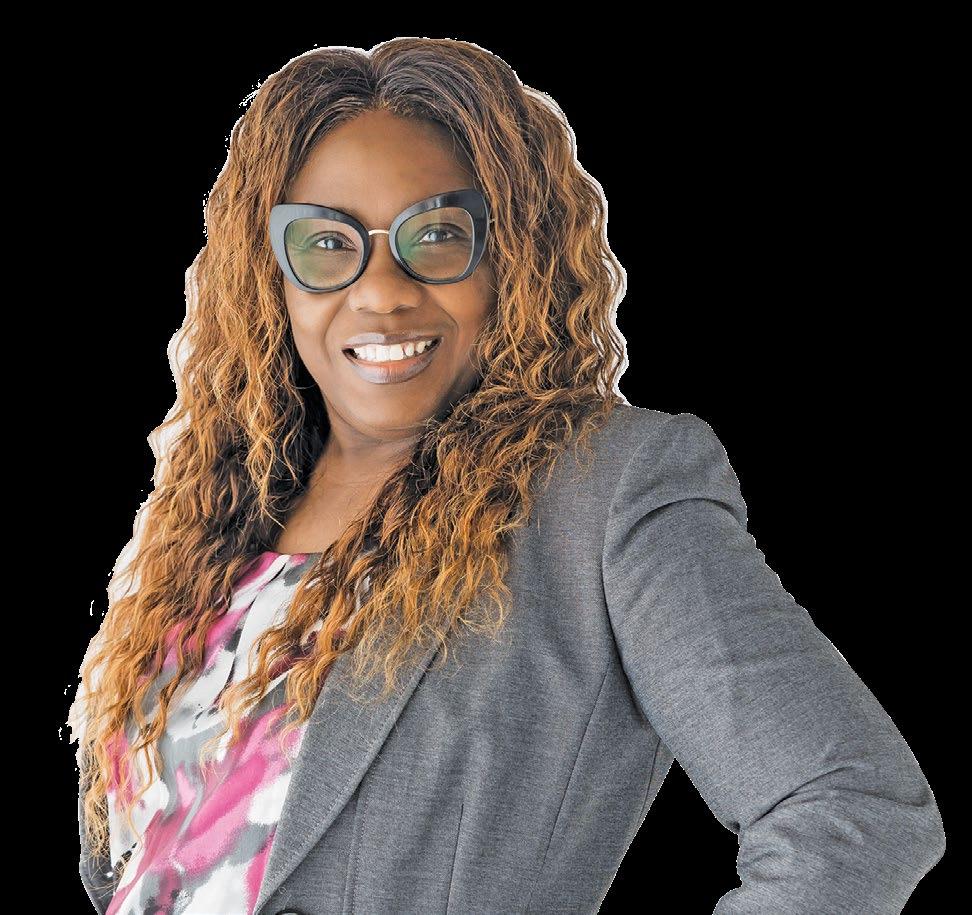
Dr. Rhonda Reeves
Why did you choose your field of speciality?
My first gynae visit was uncomfortable and traumatic and left me in tears. I remember saying to my mother, “This cannot be what women have to go through”. I was already in medical school at the time and vowed to make it a much better experience.
What is your greatest achievement to date?
My greatest achievement to date is becoming a Consultant Obstetrician and Gynaecologist before the age of 30 (the youngest ever to do so from my institution at the time)
If you had to write a biography who would it be dedicated to?
That’s easy! My mother (Jean) and Grandmother (Joyce). I could give a million reasons why, but I will settle on: they have both played pivotal roles in me being the woman and physician I am today, with their kind words and encouragement to never give up.
What is the most common pregnancy complication you see?
Gestational Diabetes; and many times, though first discovered and diagnosed during the pregnancy, patients often have had diabetes before getting pregnant and it was poorly controlled.
How can mums-to-be increase their chances of a smooth pregnancy and birth?
The best way to have a smooth pregnancy is to ensure prior to getting pregnant, that you are healthy enough to have an uncomplicated pregnancy, and if not, to optimise your health so that you can. The next best option is early and regular antenatal care, so any health conditions can be identified and managed early.
Erin Kaufman
Any weird and wonderful food cravings?
What I have noticed is that rather than cravings, I’ve been eating things that I wouldn’t normally eat. For example, I started eating red meat again when this was something I had actually cut from my diet over the last few years.
What was your biggest health worry whilst being pregnant?
Being pregnant during a pandemic certainly came with worry. I actually did end up contracting COVID at the beginning of my third trimester. Although it was worrying, I also felt confident that I had taken all the necessary steps to protect myself and my baby. Thankfully, I recovered safely and my pregnancy continues to be healthy!
Are you reading a pregnancy guide whilst pregnant and would you recommend it? I’m using two apps regularly: Flo and What to Expect.
Did you attend antenatal classes and did you find them useful?
Yes, I did a series of Pregnancy Exercise & Education classes with Candace, a Pelvic Health Physiotherapist at Align. These were extremely helpful! I enjoyed having a space to exercise safely, while learning more about the physical changes my body was experiencing.
What is the best pregnancy advice you have received from older relatives which you would pass on to other expectant mothers? Your intuition will develop during pregnancy and learning to listen to this will take you right into parenthood.
Do you feel that social media has created pressure to look glamorous during pregnancy? Absolutely. You can definitely be influenced by the pressures of social media, if you let it! I try to do my best to follow more educational pages, or even humorous ones to ease some of the anxiety.
Dr. Rhonda Reeves is an ObGyn and Acting Head of Women’s Health Department at the Cayman Health Services Authority.

Erin Kaufman gave birth to Cole, a beautiful baby boy, in June 2022.

219 Pregnancy & Childbirth
The Cost of Having a Baby in the Cayman Islands
Like many things in Cayman, having a baby is expensive. Births are typically covered by insurance, not public healthcare, so you’ll want to be on the best insurance plan you can afford. Understanding costs, insurance, and their relationship to each other is crucial for an affordable birthing experience.
Some Insurance Issues to Consider Birthing costs include:
1) Prenatal (antenatal) Care
2) Labour and Delivery (L&D) Care
3) Newborn Care
Prenatal Health Insurance Coverage
Health insurance is mandatory for all Cayman residents. For prenatal care and other birthing care, there are three main types of private plans:
Standard Health Insurance Contract (SHIC) (basic requirement by law): Allows max of CI$500 per pregnancy for prenatal care and up to CI$100,000 annual limit towards L&D and for the newborn. This CI$500 prenatal allowance could be used up on the very first visit if labs and/or ultrasound are done, thus making the balance of all prenatal care the mother’s responsibility. Typically on SHIC, overseas births are covered only when medically necessary.
Mid-Tier Plans: These will have fixed dollar amounts towards prenatal care (typically, CI$1,000-CI$2,500) and/ or do not accrue the coinsurance (10%’s or 20%’s) of each prenatal visit, lab, etc. towards out-of-pocket coinsurance maximum per year. They allow at least CI$100,000 per year toward the L&D and possibly up to CI$500,000/year towards the birthing expenses. Elective overseas deliveries may be allowed but there could be dollar caps on the overseas delivery fees (including complications).
Comprehensive Worldwide Plans: These plans will not have a preset cap on the prenatal care and typically will count the coinsurance 20% toward the annual out-of-pocket coinsurance cap (so the mother may already be at her 100% of eligible coverage by the time she reaches the L&D day). These plans may allow SHIC allowance of CI$100,000, up to CI$500,000 per year and/or up to a CI$1m or CI$2m, lifetime to be used towards the L&D birthing event. With these plans, the mother may choose any country to have her baby.
If you need a procedure, such as an amniocentesis, or are hospitalised for pre-term medications and put on bedrest during your pregnancy, this will usually fall under your
surgical and hospital benefits vs. the prenatal limits.
All insurance companies in Cayman are mandated by law to only pay up to the Standard Health Insurance Fee schedule (SHIF) within your policy cover and all plans have the requirements that care must be 'medically necessary' thus usually have limits on the number of routine ultrasounds covered and likely will not cover genetic or gender tests.
It is important to read the policy thoroughly and understand what benefits are and aren’t included. It is also vital to have your doctor’s office explain what will happen, how much it will cost and what proportion of it they expect will be covered by insurance.
NOTE: Caymanian women may be able to access financial assistance via Public Health and/or the Department of Children and Family Services.
When Pregnancy is a 'Pre-Existing Condition' If you are pregnant upon arriving in Cayman, change plans or enrol on new coverage and are not 'portable' from a similar Cayman plan whilst already pregnant (even if you didn’t know at the time of filling in the form), your pregnancy may be considered a ‘pre-existing condition’. As such, you may be limited to the basic SHIC benefit limits mandated by law, even on some 'high plans'. The limits may or may not extend to the newborn too.
Birth Options & Their Cost Implications
Hospital Costs In Cayman, all babies are scheduled to be born in a hospital. Home and water births are not currently offered on-Island. Charges for the facilities and hospital stay are charged separately to those of the medical professionals supporting your birth. Births are permitted in the Cayman Islands Hospital and Doctors Hospital. When you discuss birth options with your obstetrician and paediatrician, they will advise which facility they prefer and may be able to help explain what each facility will charge, but we recommend registering and talking to the hospital finance department too. The HSA offers birthing packages for low insurance or selfpay situations.
Cayman Parent Magazine | Pregnancy220
Doula Services
Private doula services are available to assist with the birthing process but are not covered by insurance. See page 224 for more information.
Midwife Birth If you have your prenatal care and delivery at the HSA, you will likely have your baby followed and delivered by an experienced midwife. Hospital obstetricians oversee the midwives and are called in as necessary during prenatal visits or delivery. HSA prenatal and delivery costs are lower than most private services, and considered by most to offer excellent care, thus mums-to-be with fewer prenatal benefits may choose to start with, or transfer care over to, the HSA.
Obstetrician Birth Many parents-to-be, especially those with higher-coverage insurance plans, opt to have a private obstetrician (OB) throughout the pregnancy. If you do so, they can provide both the prenatal care at their clinic and the delivery at a hospital. In most cases, the physician’s (including midwives) L&D charges typically cover the in-hospital care for the birth, the mother’s hospital visits following birth and the first office visit post-delivery. It’s important to ask your doctor whether they will be on-Island for your due date and ask who handles their caseload if they are unavailable.
Private OBs do not have to charge within those SHIF levels and most private OBs do charge extra fees which are not payable by insurance. Since each doctor can set their own fees, you should ask your doctor early on exactly what they charge and how much of this is expected to be covered by insurance. Additional charges can also be incurred for an anaesthetist, e.g. for an epidural (although that is usually eligible for insurance coverage), and for additional services such as a circumcision done at the time of birth (which is not covered by insurance).
See page 231 for a list of obstetricians in the Cayman Islands.
Overseas Births High-risk pregnancies may be referred overseas for care, which would be covered up to the allowed limits of your health plan benefits, as long as your insurance has approved the transfer of care. For elective births overseas, i.e. you make the choice, you should definitely check with your insurer’s health claims office to verify if, and which, of your health plan benefits are eligible for births either in the USA or another country, such as your home country if you are an expat.
Coinsurance Most insurance policies require you to pay a proportion of the costs each calendar year (generally called coinsurance). Estimated cost-shares are usually collected by the provider’s office as the care is provided and claims are submitted. Labour and delivery charges will have a capped co-insurance (otherwise known as Out-of-Pocket or OOP maximum), usually CI$1,000 per person per year, but as mentioned earlier, if the doctor(s) charges above the Standard SHIF Fees, there will be an additional amount to budget for.

Adding a Newborn to Your Health Insurance It is your responsibility to ensure that your baby is enrolled on one or both parents' insurance schemes. Talk to your employer/insurance company in advance of your due date and familiarise yourself with the process you will need to go through after your baby is born. Although babies are automatically covered under their mother’s plan for the first 30 days of life, this does not count as enrolment onto an insurance scheme and this amount of coverage can be limited to the mother’s annual allowances minus her birthing charges. It is advisable to compare the benefits and costs of both the father’s and mother’s plans to decide which plan to enrol your newborn onto. Parents do not have to be married for the father to add their child to his health plan.
A Mother on Her Parents' Insurance If a mother is on her own parents' insurance policy, e.g. if she is still a student, the baby will likely not be covered after birth since grandchildren are not eligible as dependants unless there is a court order of guardianship. In this situation, you must arrange insurance onto the father’s plan or the mother should organise her own coverage to provide the newborn’s protection.
Neonatal Care Premature or sick newborns can be some of the largest claims insurance companies face. Infants can be faced with time in the neonatal unit or may even need care in the USA. Examine both parents' policies carefully to ensure that you enrol and obtain the best, most affordable coverage for your newborn baby, and be sure to check the fine print of the policy document to be aware of any potential limits of coverage.
Paediatric Services In Cayman, it is mandatory to have a paediatrician present at all caesarean sections, however, it is optional for vaginal births. Some parents like the reassurance and safety of having a paediatrician present, and others are content to have the paediatrician attend shortly after birth for the assessment. Only deliveries done by HSA midwifes or MDs are eligible for the HSA paediatrician’s care. It is recommended that you meet with potential paediatricians well ahead of your due date to discuss options and preferences. Most paediatricians do not charge for these prenatal meetings. Charges do vary depending on whether you: opt for a paediatrician at birth, if they are called to the delivery (because of concerns), how many nights you stay in hospital and whether a doctor has to disrupt their existing clinic or needs to wait a prolonged period before your baby is born. In general, the extra likely expenses (over and above insurance coverage and usual coinsurance) may range from CI$500CI$1,000 for the private paediatric component of care. See page 169 for a list of paediatricians in the Cayman Islands.
The best things you can do to help keep the costs of having a baby minimal are to do your research, ask lots of questions, enrol on the best insurance you can afford, and take extra good care of yourself before conception and during pregnancy.
www.caymanparent.com 221
OB/GYNs, Midwives & Hospitals in Grand Cayman
Pregnancy can be a daunting experience for parents-to-be, but the Cayman Islands is lucky to have some excellent doctors, nurses and midwives who will help ensure your experience is a wonderful one.
You have two main options when considering your prenatal care and delivery. You can either choose to have your care and delivery through a private OB/GYN and deliver at the Cayman Islands Hospital or at Doctors Hospital, or you can go through the Health Services Authority (HSA), where your delivery at the Cayman Islands Hospital will be handled by the hospital's midwives, supported by the hospital OB/GYNs.
Private OB/GYNs
The private obstetricians (OBs) are all qualified to deliver routine obstetric care and some have additional skills in obstetrics and/or gynaecology. The care they provide is consistent with any developed country and the clinics are generally wellequipped, e.g. with modern ultrasound equipment.
To choose an OB, it is best to research them online and/or ask your GP, and then visit your shortlisted candidates to find the one best suited to you. Some OBs do not charge for ‘getting to know them’ visits, but it is worth checking when making appointments. See page 231 for a list of OB/GYNs.
You should look into appointing your OB as soon as you think you may be pregnant or even when you are thinking of trying, if your medical history may affect your pregnancy. You can expect to have your first scan at around six weeks.
Your chosen OB will guide you through your entire pregnancy and deliver your baby, supported by the resident midwives at your birth centre.
Midwife Births
An alternative to a private OB is to opt for a midwife delivery through the Women's Health Clinic at the Health Services Authority. You will then receive your care through a large team of midwives, who manage the prenatal care and deliver the baby, supported by a team of resident hospital OBs who are on call 24-hours-a-day, should there be any problems. The midwives are highly qualified and trained to deliver babies.
Choosing midwife care is a lower cost option for having a baby in the Cayman Islands, while still receiving world-class care. It’s suited to parents who are happy with or prefer a team approach, as opposed to having care led by the same physician throughout.
Prenatal Care
After your first appointment, OBs and midwives will typically see you every four weeks up until 28 weeks, every two weeks until 36 weeks, and then weekly until delivery, consistent with standard care in most developed countries. If issues emerge during your pregnancy, you will likely be seen more frequently. In some special circumstances you may have to go overseas before or after delivery for treatment, although thankfully, such cases are very rare.
Early on in your pregnancy, you will be required to undertake some initial blood tests to rule out any infections or concerns. These usually include: full blood count, Hepatitis B screening, Rubella IgG screening, VDRL (tests for syphilis), HIV, ABO/ Rh status. From nine weeks, you can also opt to have the NIPT (Non-Invasive Prenatal Test – a simple blood test) to screen for certain chromosomal and genetic conditions such as Down Syndrome. Your doctor or midwife will discuss this with you to help you make an informed choice, as well as seeking approval from your insurance company before conducting the test. Most insurance companies cover a portion of the testing fee if you are 35 years or older or if you have a medical condition warranting the test. Otherwise, you will be responsible for its cost if you choose to have it.
Between 18-23 weeks of pregnancy you will have a detailed anatomy scan of the baby to screen for congenital structural abnormalities.
Between 24-28 weeks you will be given the Glucose Tolerance Test to screen for Gestational Diabetes. It involves fasting before the blood test in the morning, then having a glucose drink, followed by another blood test an hour later. If your results show any cause for concern, you will be required to start controlling your sugar intake and may need further medical treatment, which can be administered in Cayman. In general, pregnant women should limit sugar intake during pregnancy.
See page 49 for a list of dietitians who can help you throughout your pregnancy.
Cayman Parent Magazine | Pregnancy222
Birth Plans & Paediatricians
As your pregnancy develops, you’ll want to discuss your birth plan with your OB or midwife, including your thoughts on pain relief during labour, to ensure your wishes are known. You will also want to choose the paediatrician who you’d like to care for your newborn. Cayman has both general paediatricians and some that are also qualified specialists in preterm or newborn emergencies and complications. Again, it is worth researching them, asking other parents or GPs, and visiting your shortlist. Given that infants can survive from 23-24 weeks' gestation, some parents-to-be prefer to do this quite early in pregnancy. You may choose a private paediatrician or opt for the HSA paediatric team. Turn to page 169-172 for a full list of Cayman's paediatricians.
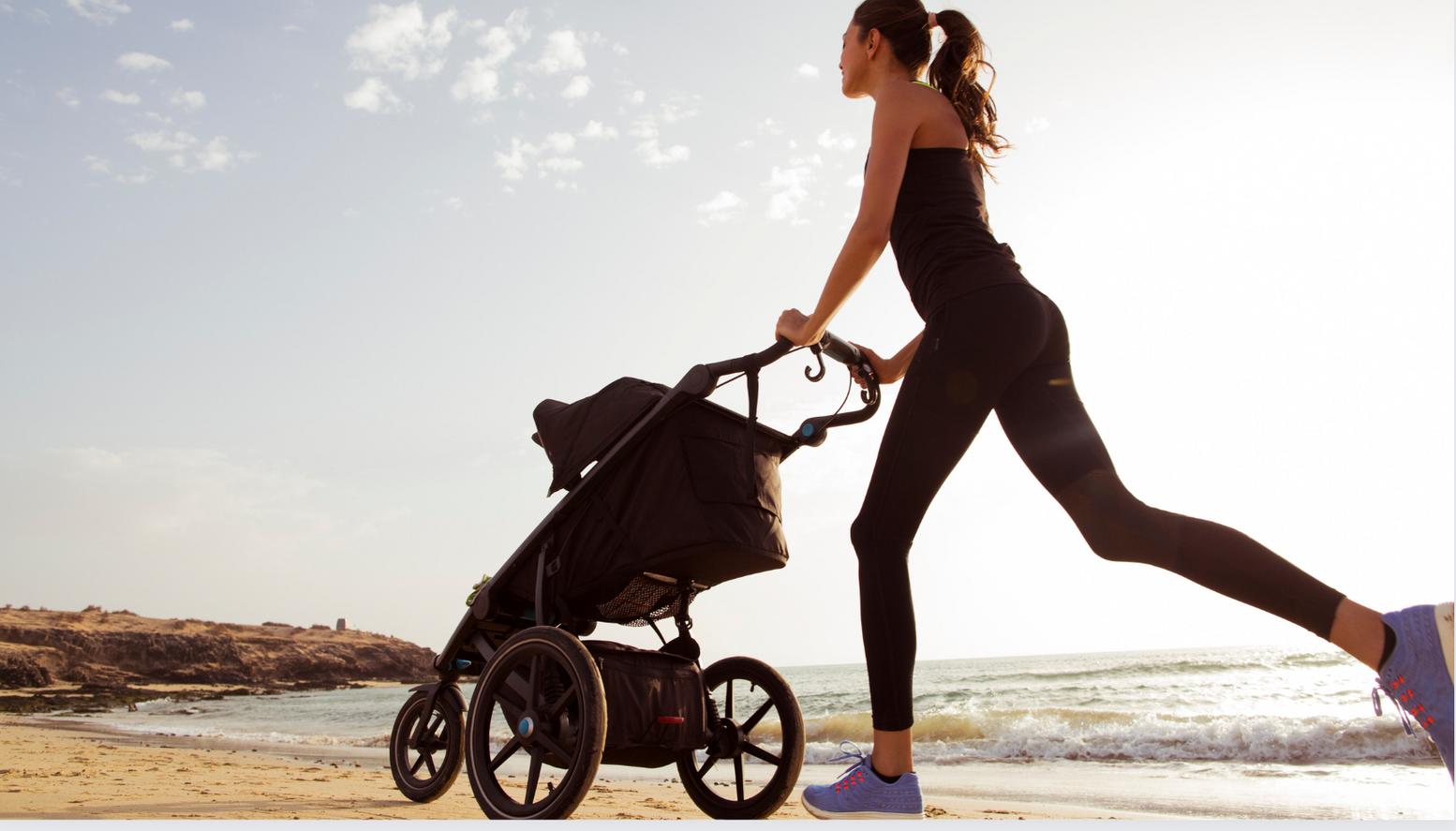
Birth Classes & Doulas

It’s recommended that you prepare for childbirth by enrolling in some prenatal classes. You may also wish to employ a doula. Turn to page 224 to learn more about the available options.
Hospitals
In the Cayman Islands, all babies are born in hospitals. Home and water births are not currently offered. There are two maternity wards in Grand Cayman and one in Cayman Brac.
The Cayman Islands Hospital offers three single delivery suites, eight maternity rooms (three single and five double rooms) and is home to the only Neonatal Intensive Care Unit (NICU) on the Island. The standard of care is excellent.
Doctors Hospital offers the only private delivery suites onIsland. The suites have been designed for your comfort and your birth partner is welcome to stay the night.
Most high-risk pregnancies can be managed and delivered on-Island. The NICU provides excellent care for premature babies from around 28 weeks, or even earlier if needed. Sometimes it may be necessary to transfer the mum-to-be or the newborn overseas, usually the USA, for complex care. If the baby has been born, it will require an emergency passport to travel, and your own documents will need to be in order too. See page 195 to find out more about how to obtain a passport for your child.
Discuss with your OB which hospitals they can practise in. It’s worth touring your chosen hospital beforehand to familiarise yourself with the space, staff and amenities.
Delivery
As most baby books will tell you, you don’t need to head straight to the hospital once you feel your first contraction. It is, however, advisable to discuss in advance with your OB or midwife when to contact them and how. Once you have made contact, be sure to follow their advice carefully.
When arriving at the hospital, head straight to the Maternity Ward. Don’t forget to bring your ID, insurance card if you
have one and mask. Leave your hospital bag in the car, so that your partner or caregiver has both hands free to help you, if necessary. They can retrieve it once you are settled.
Post Delivery Care
Once you have given birth, you will receive continuing care from the obstetricians, midwives and nurses at the hospital. At the HSA, you will receive help with breastfeeding and caring for your baby while you are a patient in the maternity department. The nurses will teach you how to gently bathe your tiny newborn and how to put your baby in the car seat ready for discharge. The midwives from Women’s Health are also happy to make a home visit, to help with any concerns or issues that you might be having post-delivery. If you give birth at Doctors Hospital, you will receive a follow-up consultation to check on you and your baby's progress.
Length of Hospital Stay
How long you stay in the hospital is a decision both you and your doctor will make. Some women feel more comfortable with a longer stay, while others prefer to go home earlier. Most insurance companies cover two nights after a natural delivery, and three nights after a caesarean section (the period in labour is not calculated in this). Hospital stays are quite expensive, so check your insurance and plan accordingly. Mum will be discharged by her OB/GYN, while the baby is discharged by their paediatrician.
www.caymanparent.com 223
E L E V A T I O N H e a l t h & P h y s i o t h e r a p y E l e v a t i o n p r o v i d e s a c o m p r e h e n s i v e r a n g e o f H e a l t h & P h y s i o t h e r a p y s o l u t i o n s d e s i g n e d f o r w o m e n t o g e t y o u b a c k t o l i v i n g E l e v a t i o n H e a l t h & P h y s i o t h e r a p y L i v e b e t t e r . P r e n a t a l & P o s t n a t a l C a r e U r i n a r y I n c o n t i n e n c e P e l v i c P a i n M e n o p a u s e C a l l 6 2 3 . 6 6 6 3 o r e m a i l i n f o @ e h p p h y s i o . k y a n d g e t b a c k t o l i v i n g , t o d a y !
Bump, Baby & Beyond
As bellies grow, thoughts inevitably turn towards, "What can I do to prepare for childbirth?". Fortunately for mums-to-be, there are plenty of options to help you feel prepared and take the mystery out of childbirth in Cayman.
Childbirth Preparation Classes & Doula Services

The Health Services Authority (HSA) offers a free eightweek educational series called ‘ParentCraft’. Classes are held on Monday evenings 5.30pm-7.30pm at the Hibiscus Conference Room located at the Cayman Islands Hospital. There is no charge or need to register in advance. Led by experts in the relevant fields, topics include, among others: nutrition for pregnancy, labour and delivery, knowing your baby, breastfeeding, infant CPR, alternative methods of delivery and immediate postnatal care both in the hospital and at home, safety, immunisations, family planning, relaxation in pregnancy and motor development in the first 12 months. If you miss any classes, you may make them up during a subsequent eight-week course cycle. Please call (345) 244 2649 or 244 7627 for more information. You can also visit www.hsa.ky/parentcraft.
Lamaze Childbirth Education Classes give you a grounding in one of the most popular birth techniques. Lamaze classes approach childbirth as a natural and healthy process; they neither
support nor discourage the use of medical interventions during labour and delivery. Instead, they educate mums-to-be about their options so that they can make informed decisions. Nurturing Birth Experiences offers both group and private Lamaze classes. The course consists of four two-and-a-half-hour sessions with a maximum of 12 couples. These classes are a great way to meet other parents-to-be at a similar stage of pregnancy. Refresher childbirth classes, lactation consultation, and doula services are also available. Tel: (345) 949 6024.
Ariel Grace is a registered Doula and pre and postnatal Pilates instructor and founder of The Mom Method. Ariel teaches childbirth education and focused pre-natal and post-natal Pilates classes to inform and prepare new parents for childbirth and a smooth recovery. As a birth doula, Ariel offers compassionate and non-judgmental, one-on-one individual physical, emotional, and educational support sessions for mamas throughout pregnancy and childbirth. You can find Ariel on Instagram at @ arielgracewellness or www.arielgracewellness.com.
Cayman Parent Magazine | Pregnancy224
Photo courtesy of BabyLove Newborn Photography
Postpartum Care & Lactation Consultants


With many new mums in Cayman living far away from family and in different time zones, the postpartum care offered in Cayman can really come in handy.
Nurturing Birth Experiences offer lactation services to help mothers get off to the right start with breastfeeding. They offer inhome visits and work with mothers to address practical issues and help set realistic expectations for the baby and mother. They also give mothers strategies to help them achieve their breastfeeding goals. Tel: (345) 949 6024 or visit www.rvcrehab.ky.
The Cayman Islands Breastfeeding Support Group is a volunteer group which offers free support and education in breastfeeding to expecting and existing mothers. The group consists of experienced mothers who have breastfed, lactation consultants, nurses and midwives. They visit new mothers to offer free breastfeeding advice and support, and also offer telephone support. They will rent hospital-grade Medela pumps in emergency situations and provide reasonably-priced breast pumps for mothers returning to work. Visit www.facebook.com/ CIBreastfeeding or email: cibreastfeeding@gmail.com for details.
The midwives at the HSA's Women's Health Centre offer free postnatal care and home visits for HSA patients. Tel: (345) 244 2649 / 2710 / 2732. They can provide general and
breastfeeding support after the birth of your child. These services are also offered at the following health centres on-Island:
•Bodden Town Health Centre Available Monday and Thursday 8.30am-8pm; Tuesday, Wednesday and Friday 8.30am-4pm and Saturday 8.30am-12pm. Tel: (345) 947 2299.
•East End Health Centre Available Monday-Friday 8.30am4pm and Saturday 8.30am-12pm. Tel: (345) 947 7440.
•West Bay Health Centre Available on Monday, Tuesday, Thursday and Friday 8.30am-4pm; Wednesday 8.30am-8pm and Saturday 8.30am-12pm. Tel: (345) 949 3439.
•North Side Clinic Available Monday-Friday 8.30am-4pm; Saturday 8.30am-12pm. Tel: (345) 947 9525.
Other Family Resources
The Family Resource Centre (FRC) at the Department of Counselling Services offers a range of free individual and group parenting services. For more information call (345) 949 0006, email: frc@gov.ky or visit www.dcs.gov.ky/frc.
TOP TIP: For more information on parenting classes from birth to the teenage years, please keep an eye on our Cayman Parent event calendar which can be found at www.caymanparent.com/events.
Design for Mom, Love for Baby
A maternity and baby store offering high quality contemporary products



The Strand -

Bay Road l (345) 938-6498
and Sunday-Monday Closed

www.caymanparent.com 225
Unit 28 (upstairs), 46 Canal Point Drive, West
thebumpboutique@outlook com l Tuesday-Friday 10am-6pm, Saturday 10am-4pm
The Ultimate Hospital Bag Checklist
Your home is all ready for your new arrival. The nursery is ready, you’ve cleaned the house from top to bottom (nesting is so much fun!) and toured the hospital. But before you can relax, don't forget to pack your hospital bag!
We have compiled a list of items that can take the stress out of the lead up to the big event itself and the hours and days after it.
If you are having a planned caesarean section, you may need more clothing as you could be in hospital for up to five days.
You're not provided with nappies, formula, towels or toiletries at Cayman's hospitals, so to avoid an emergency trip to the shops, make sure you are well prepared.
The Newborn
• Four baby onesies
• Four sleepsuits
• Six receiving blankets or muslin wraps
• Two baby hats
• Two sets of baby socks and mittens
• Warm blanket
ELEGANT BABY
Sweet gifts for the stylish baby. We o er baby registries too!



Market Street, Camana Bay 345 947 2711
DreamTeam@bedsidemanor.ky @lovebedsidebaby www.bedsidemanor.ky
• Going home outfit
• Two towels
• Two washcloths
• Two dozen newborn nappies
• Baby wipes
• Formula, if you don’t plan on breastfeeding
• Infant car seat for day of discharge
The Mother
• Insurance details
• Your birth plan
• Masks for mother and birthing partner
• Four sets of sleepwear (front opening for breastfeeding)
• Dressing gown
• One pair of flip-flops
• Headband or hair ties
• Four to six pairs of underwear
The
Design for Mom, Love for Baby
Canal Point Drive, West Bay Road l (345) 938-6498
com
Cayman Parent Magazine | Pregnancy226
A maternity and baby store offering high quality contemporary products
Strand - Unit 28 (upstairs), 46
thebumpboutique@outlook
Tues-Fri 10am-6pm, Sat 10am-4pm and Sun-Mon Closed
• Three nursing bras and breast pads
• Loose and comfortable going home clothes
• Toiletries (toothbrush, toothpaste, flannel/washer, moisturiser, shower gel, deodorant, lip balm, hairbrush, shampoo, conditioner, any makeup)
• Glasses/contact lenses
• Two towels
• Two dozen maternity sanitary pads
• Pillow (recommended)
• Camera, memory card, charger
• Mobile phone and charger
• Snack bag (for mum and dad!)
Top Tips
We asked some Cayman mums for their top tips on preparing to give birth and here's what they had to say....
Pack Early
You never know when your little one might decide it's time to meet the world! Pack your hospital bag at least four weeks before you're due so that you are prepared and are not racing around at the last minute! Remember, don't pack your best towels, underwear or sleepwear as they may get ruined. Choose dark-coloured items where possible.
Pack Separate Bags
Consider packing a separate bag for you and your baby. It will be much easier to find what you are looking for, especially after labour when you may be sore and tired.
Don't Forget the Snacks
Labour is hard work, so pack some healthy snacks to keep your energy levels up. Good options include dried fruit, nuts, seeds and fresh fruit. Dark chocolate is great for a quick burst of energy.
Entertainment
Load up your iPad/tablet with plenty of entertainment in case you are in labour for a long time, and possibly confined to the hospital bed.
Car Seat
Car seats are notoriously difficult to fit, so ensure it's installed before you go into labour and ideally when you are around 36 weeks. You may even want to practise taking the seat in and out of the base a few times so you know how to put the baby in safely when you leave the hospital.
Maternity Leave
The Cayman Islands has one of the worst maternity leave policies in the world. At present, the Cayman Islands’ Labour Law (2011 Revision) provides for a minimum maternity leave allowance of 12 calendar weeks in any 12-month period. However, this is only available as an entitlement where the mother concerned has completed a full year of employment with her employer. Where an employee has not completed 12 months at work, the law prescribes that any maternity leave may be pro-rated. Currently, an employer is legally required to offer 20 working day's leave on full pay, 20 working day's leave on half-pay and 20 working days on no pay. For practical purposes, this is treated by many businesses as the equivalent of six weeks at full pay and six weeks at no pay. At present, there is no provision in the law for paternity leave or for parents who have a child through a surrogate. There is also no allowance for mothers who have had miscarriages. It is, however, worth enquiring with your employer as to their policy regarding maternity leave, as some employers are more flexible than others.
Why is Maternity Leave Important? Research has proven time and time again how valuable sufficient maternity leave is, with the job security tied to it, in promoting a bond between parent and child, and is best for the mother’s mental and physical health. Other benefits include:
- Lower infant and child mortality rates
- Increased duration of breastfeeding success

- Smoother postpartum recovery for mums
- Better employee retention long-term.
Campaigning for Change Two local mums Bethany EbanksPacheco and Lorren Stainton have been tirelessly campaigning for an increase to maternity leave. They have been meeting with Government officials to further this issue in hopes of promoting gender equality in Cayman and extending the current policy to a six month period initially, with a view to increase it to nine months eventually.
So far in 2022, two Cayman organisations have put their heads above the parapet and introduced their own, more progressive maternity and paternity leave. Ogier now offers 18 weeks paid and 34 weeks unpaid maternity leave, with the mother being entitled to this from day one of their employment. Their adoption and surrogacy leave has increased to 18 weeks paid and 34 weeks unpaid, and parental/paternity leave benefits have increased to 9 weeks paid and up to 43 weeks unpaid leave. Scotiabank offers 16 weeks full paid maternity leave. Fathers, adoptive parents and appointed legal guardians with a new child will receive four fully paid weeks of parental leave.
It is hoped that with combined parental and corporate pressure, the maternity leave provisions across the Islands will be increased to fall in line with international standards.
www.caymanparent.com 227
The Importance of Well-Child Checks
By Dr. Sara Watkin, Neonatal and Paediatric Specialist at Integra Healthcare.
Developmental follow-up and well-child checks are a vital component of ensuring a healthy, happy childhood leading to a healthy, happy life in which children reach their full potential.
They serve three main purposes: 1. To ensure children are growing and developing as expected 2. To identify problems that need intervention or support 3. To provide guidance and health information on what to be mindful of at each stage of life.
Well-child visits, along with vaccinations and other preventive care, form an important part of an effective programme of healthcare to ensure that children develop and thrive. What’s more, when well-child checks are missed, children end up with a significantly higher rate of being hospitalised unnecessarily and that rate goes up the more checks are missed. They are extremely important.
More Than Vaccines & Growth Charts
Vaccines and plotting growth are a vital part of ensuring your child thrives, but these visits go much further, allowing parents to discuss any concerns, including nutrition, sleeping issues and social problems. They also allow paediatricians to provide advice on what to look for in the next phase of development. If a paediatrician only sees a child when unwell, there usually

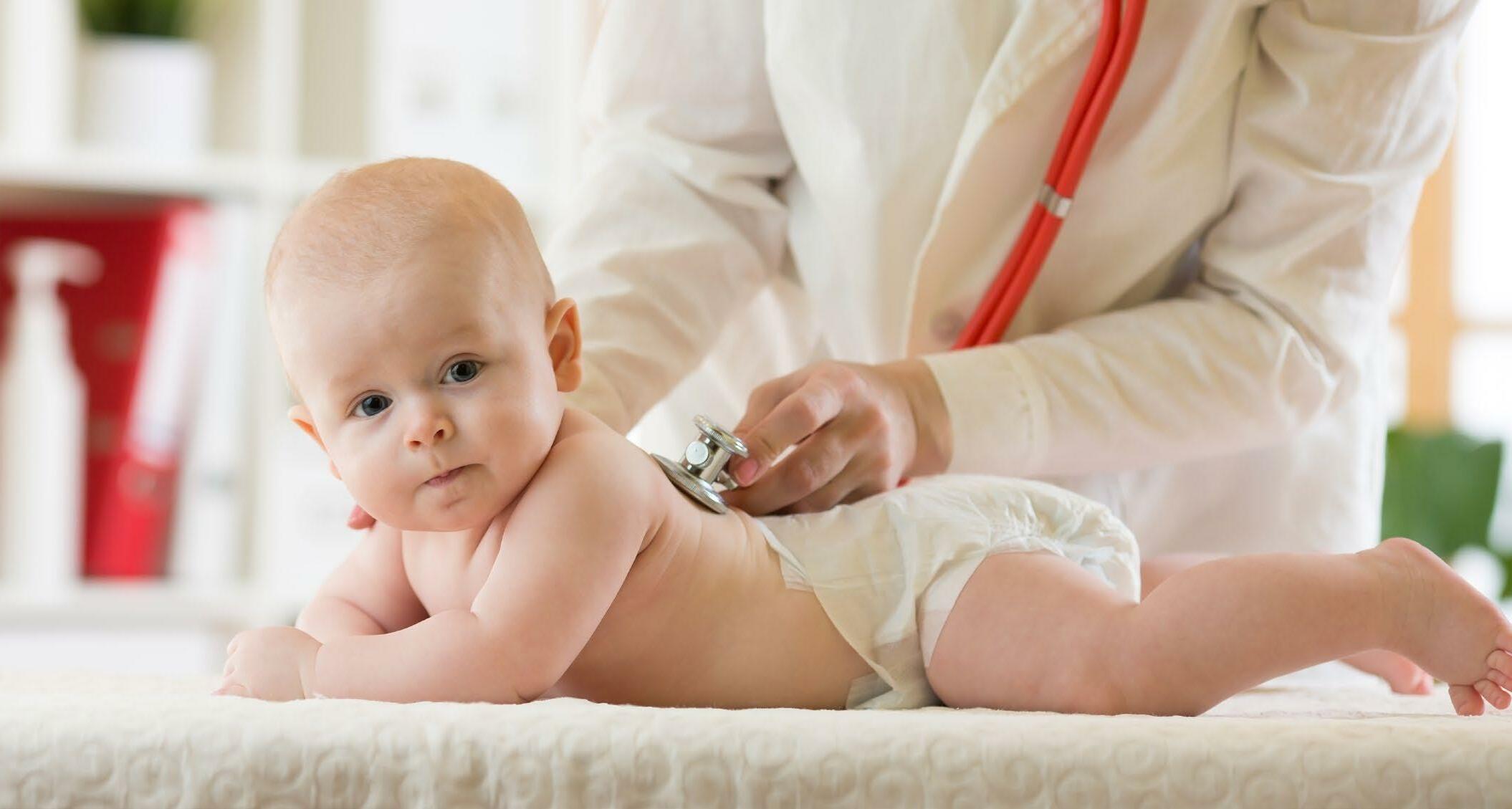
isn’t time to discuss development properly. Furthermore, the presence of sickness (e.g. flu) means this isn’t the best time to assess the longer-term aspects of wellness and development. Separate checks work best.
Development
An important benefit of a well-child visit is developmental monitoring. Paediatricians use their interactions with children to spot problems with playing, speaking or interacting. These signs may allude to autism, hyperactivity disorders or a learning disability, where early support is vital. It can also make the difference between mainstream school versus needing special educational support, which is scarce in Cayman.
Cayman Parent Magazine | Pregnancy228
Schedule
Cayman has no set schedule of well-child checks but most paediatricians across the Island will see your child at: 2 to 5 days old, 1 week, 2 months, 4 months, 6 months, 9 months, 12 months, 18 months, 24 months, 36 months and annually thereafter to age 21.

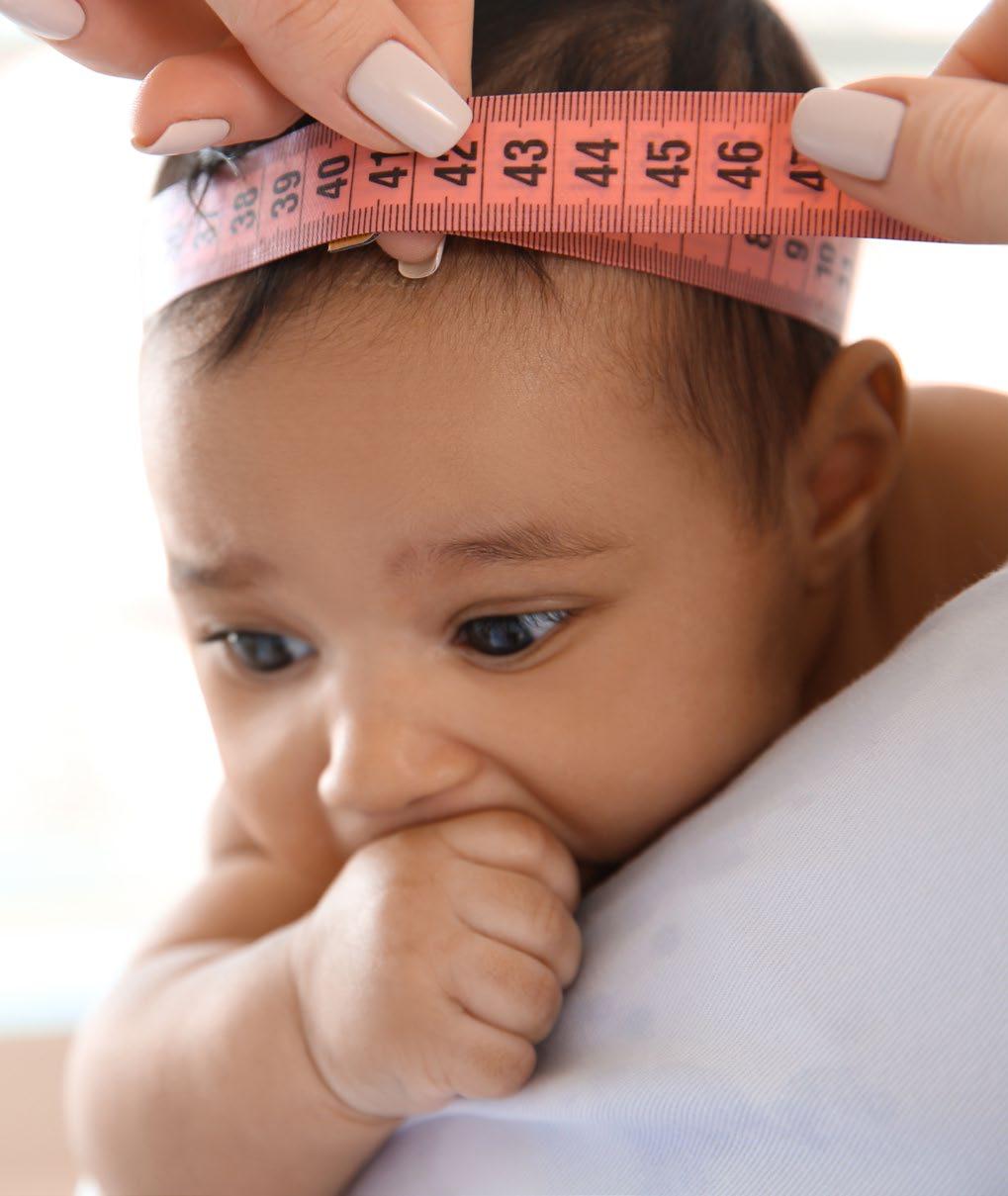
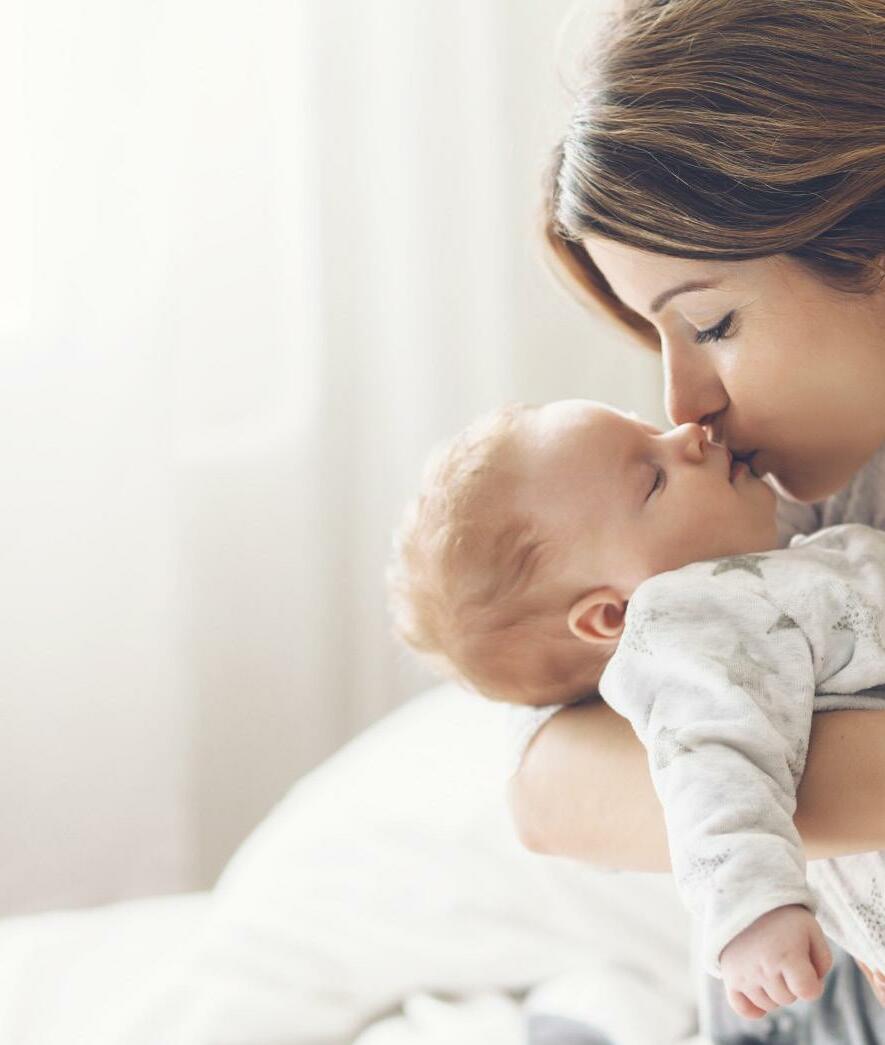
Each developmental check is different. For instance, the 18-month check contains the first screening for autism, using a distinct behavioural checklist coupled with family information and experiences. Prior to this, it is quite difficult to pick up. However, when identified at this early stage, really valuable behavioural and relationship interventions lead to improved IQ, language ability and social interaction, all things with life-long benefits.
By four years of age, language and motor skills are developing rapidly and certain types of play become much more important for social development. Children are becoming more independent. Picking up developmental issues here means children can receive support, such as speech and language therapy, the availability of which in Cayman surpasses that of the UK. No two timepoints are the same and so it isn’t surprising that children tend to have more problems downstream, the more development and well-child checks are missed.
Arranging an Appointment

All good paediatricians conduct well-child checks. Some have skills in more advanced developmental follow-up, for example, caring for pre-term infants. Using the same paediatrician over time helps too. Contact your paediatrician and tell them you’d like an appointment for a well-child check.
Between Physical Appointments
Well-child checks are not designed to replace the everyday vigilance of parents in helping to spot emerging issues. Most health issues are best addressed through early identification, so if you are at all concerned about the health, behaviour or social interaction of your child, it’s a good idea to contact your paediatrician. See pages 169-172 for a list of paediatricians in the Cayman Islands.
Pregnancy &
www.caymanparent.com 229
TOP TIP: For information on Cayman’s vaccination schedule please see page 164.
Newborn Care T: +1 (345) 745 7450 E: team@integra.ky W: www.integra.ky Comprehensive woman-centred obstetric care, with patient safety and shared decision making foremost. • Pre-conception advice & fertility services • Antenatal care, including scans • Care in labour • Normal vaginal, instrumental and caesarean births • Postnatal care Visit page 153 for our Newborn and Paediatrics team. “as it should be” Dr Lisa Joels MB ChB, MD, FRCOG, FHEA Dr Madhavi Manoharan MBBS, MD, MRCOG, DFFP Located in Grand Pavilion
Pregnancy Book Club
Best for Parents
Best for Babies
A lucid insight into the true experience of motherhood, written by a psychotherapist, with over 30 years of experience.

As daddy cradles his baby girl, she is suddenly whisked away on a fantastical adventure. The sweet text will carry little ones off to peaceful slumber.

Next Chapter offers a wide range of pregnancy guides as well as books on parenting children, from toddlers to teenagers. They also sell a great selection of beautiful newborn gifts, as well as early learning toys and books. Take advantage of their free gift wrapping service and their Lowest Price Guarantee.

Highlights:
• Extensive selection of pregnancy and parenting books
• Book ordering service
• Early learning toys
A series of reflections on fatherhood, from holding your child for the first time all the way through to the inevitability of illness and establishing boundaries.
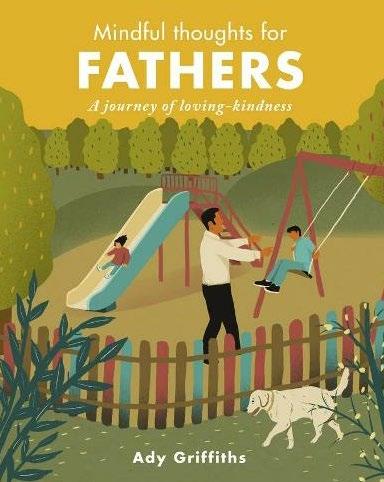
Blue is a muddy blue truck that gets into some fun misadventures while travelling down a bumpy country road with all his animal friends!
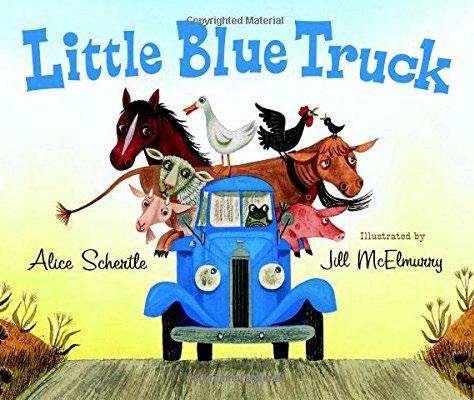
• Baby shower gifts and free gift wrapping services
• Educational games and books for kids of all ages
• Lowest Price Guarantee
• Physician-led classes for Mothers and Fathers-to-be
• Next Chapter also have a great range of gifts for Mums and Dads, for whatever the occasion!
Details:
Opening Hours:
Mon–Fri 10am–6pm
Saturday 9am-6pm
A candid and personal deep dive into the science and culture of motherhood. Infused with humour, this book offers guidance to women navigating one of the biggest and most profound changes in their lives.

Tired Rabbit is trying to find a place for a quiet nap, but her friends are all being very noisy. With sturdy flaps on every spread and rhyming stories that are a joy to read aloud, this book has been a firm favourite for over 15 years.

Sun 10am-5pm
(345) 640 2665 | Market St. Camana Bay www.nextchapter.ky
Cayman Parent Magazine | Pregnancy230
the Listings
OB/GYNs, Hospitals, Pre- and Postnatal Care and Baby Shops
Dr. Diana Van Der Borden MBBS, MD, BSCCP
Obstetricians/Gynaecologists (OB/GYNs) & Fertility Doctors
Dr. Gilbertha Alexander MBBS DM MRCOG
Dr. Elaine Ebanks MBBS DM
Dr. Gillian Evans-Belfonte MBBS MRCOG
Dr. Rhonda Reeves MBBS DM FRCOG
Dr. Davina McCoy BSc MBBS (Registrar)
Dr. Karina Palmer-Forde BSc MD (Well Women’s Clinic)
Dr. Peter Sipos MD PhD (Med) MsC MRCOG CCT (UK)
Cayman Islands Hospital, 95 Hospital Road, GT. Tel: (345) 949 8600.
Dr. Venkamma Bonigi MBBS DGO Faith Hospital, Cayman Brac. Tel: (345) 948 2243.
Dr. Joseph Davis
Cayman Fertility Centre, Heron Place, 1283 Seaview Rd, East End. Tel: (345) 233 0770 Email: contact@caymanivf.com Web: www. caymanivf.com.
Dr. Howard Deosaran BSc MD DM FACOG LLB Centre for Women, Family and Child Health, Caribbean Plaza, Seven Mile Beach. Tel: (345) 943 4666 Web: www.forhealth.ky.
Dr. Rommel El-Madany MB BCH FRCS (GYN) (Edin), HDGO (Dublin) DM, MD RCSI/IPA (Dublin), Diploma of Advanced Obstetrics Ultrasound RCOG/RCR (London) 9 Smith Road Plaza, Smith Road. Tel: (345) 946 2496 Email: islandobgyn@icloud.com.
Dr Lisa Joels MB ChB MD FRCOG FHEA
Integra Healthcare Ltd, Grand Pavilion. Tel: (345) 745 7450 Email: lisa.joels@integra.ky Web: www.integra.ky.
Dr Madhavi Manoharan MBBS MD MRCOG DFFP Integra Healthcare, Grand Pavilion. Tel: (345) 745 7450 Email: madhavi.manoharan@integra. ky Web: www.integra.ky.
Dr. Rachelle Shirley BMedSci MBBS, DM (OG) FACOG
Royale Medical & Wellness Center, Bay Town Plaza, 36 West Bay Road, SMB. Tel: (345) 769 6230 Web: www.royalemedical.ky.
Dr. David Stone BSc MD FACOG
Dr. Laura Hole MBBS, BSc, MRCOG
OceanMed, Bayshore Mall, Level 2, South
Church Street, George Town. Tel: (345) 946 2326 Email: womenshealth@oceanmed.ky Web: www.oceanmed.ky.
Dr. Zbigniew Zwierzchowski
Doctors Hospital, 16 Middle Road, off Walkers Road, GT. Tel: (345) 949 6066 Email: zbigniew. zwierzchowski@doctorshospitalcayman.com Web: www.doctorshospitalcayman.com.
Paediatricians - see page 169
Maternity Hospitals
Cayman Islands Hospital (CIH)
95 Hospital Road, George Town. Maternity Unit Tel: (345) 244 2842/2841 Web: www.hsa. ky. The Maternity Unit offers facilities for both low-risk and high-risk mothers and babies. These services are comprised of antepartum care (before birth), labour and delivery, postpartum (after-birth) and neonatal care; including normal births, multiple births, breech, vacuum, forceps and caesarean section deliveries. The maternity unit, located on the ground floor of the Cayman Islands Hospital offers five double and three single rooms plus three labour/delivery rooms. All rooms have ensuite bathroom facilities. The Neonatal Intensive Care Unit (NICU) is well equipped to care for up to six newborns who may be premature or may need special observation or intensive care.
Doctors Hospital
16 Middle Road, George Town. Tel: (345) 949 6066 Web: www.doctorshospitalcayman.
com Doctors Hospital offers private maternity suites with OB/GYN physicians, nursing staff and midwives providing a comprehensive approach to maternity care in a safe environment. After birth, the room is converted into a quiet, cosy, and nurturing space for families to recover. Support partners are always welcome to stay the night with mum and baby at Doctors Hospital.
Doulas, Childbirth Classes, Post-partum Care & Lactation Consultants
Ariel Grace
Web: www.arielgracewellness.com Ariel Grace is a registered Doula, childbirth educator and pre and postnatal Pilates instructor.
Cayman Islands Hospital – Women’s Health Centre
95 Hospital Road, George Town. Tel: (345) 244 2649/2710/2732 Offers a free eight week Parent-Craft education series on childbirth and baby care. Postnatal care and breastfeeding support are also offered.
Doctors Hospital
Doctors Hospital, 16 Middle Road, off Walkers Road, GT. Tel: (345) 949 6066.
The Children’s Clinic & Family Practice
Windward Centre, 93 Smith Road, George Town. Tel: (345) 949 2970 Web: www. thechildrensclinic.ky Advice on lactation and newborn care.
Nurturing Birth Experiences
3rd Floor, Tomlinson Building, George Town. Tel: (345) 949 6024 Email: info@rvcrehab. ky Web: www.rvcrehab.ky Lamaze classes, doula services and lactation consulting.
Acupuncture & Alternative Medicine
Align Wellness Studio Market Street, Camana Bay. Tel: (345) 640 5050 Web: www.align.ky Acupuncture and Chinese techniques that help pre, during and post pregnancy.
Cayman Physiotherapy
Two locations: Suite 26 Pasadora Place, Smith Road & West Shore Center, West Bay Road. Tel: (345) 949 8828 Web: www. caymanphysiotherapy.com Their qualified p ractitioner offers acupuncture to help with fertility-related issues, alleviate pregnancy symptoms and assist with postnatal recovery.
Da Vinci Wellness Centre
Park Place, off West Bay Road. Tel: (345) 943 2002 Web: www.davinciwellnesscentre.com. Acupuncture and Traditional Chinese Medicine
www.caymanparent.com 231
specialist care to help support IVF treatment as well as during and post pregnancy.
Violetta Kanarek NCCAOM L.Ac
Tel: (345) 946 4420 or (345) 916 4420 Email: drvyin@gmail.com.
Uma Lenin BPT CKTP (Doc ALT MED)
RVC Rehab Services, 3rd Floor Tomlinson Building, Walkers Road, GT. Tel: (345) 949 6024.
Dr Doull R.Ac, TCMD, FABORM
Ms. Andrea Janovics, R.Ac.
Dr Kathryn Schirn, BSc. DC
Synergy Chiropractic & Physiotherapy, Marquee Plaza, SMB. Tel: (345) 943 8200 Email: info@synergychirophysio.com Web: www.synergychirophysio.com. Acupuncture and Traditional Chinese Medicine for fertility, hormonal balancing, pre and postnatal care.
Baby & Children's Shops - Clothes & Equipment
Ashley Furniture HomeStore
342 Dorcy Drive, GT. Tel: (345) 943 2323. Web: https://store.ashley.ky. A variety of kids' furniture including beds, storage, rugs, and stylish accessories that are perfect for children’s bedrooms.
Atlantic Kids
Paddington Place, Godfrey Nixon Way, George Town. Tel: (345) 949 2296 Web : www. atlanticak.com. Baby and children's clothes, shoes and toys .
Baby Express
68 Mary Street, George Town. Tel: (345) 640 2397 Web: www.babyexpress.ky A range of clothes, equipment and toys from birth to four years old.
Bedside Manor
Market Street, Camana Bay. Tel: (345) 947 2711 Web: www.bedsidemanor.ky. High-end baby products including cots, playmats, diaper bags and toy storage. They offer baby registries and stock a good range of lovely baby and toddler clothes.
Cayman Medical Supplies The Windward Centre, 93 Smith Road, George Town. Tel: (345) 949 6211 Sells reasonably priced manual Medela breast pumps and spare parts.
Funky Monkey
Governors Square, West Bay Road. Tel: (345) 943 8659 Web: www.funkymonkeycayman. com Fashionable clothing, accessories and gifts for children.
J Michael
The Strand, SMB. Tel: (345) 946 5310 Web: www.jmichael.ky Offers a range of brands and styles of clothing and accessories for infants and children.

Kids Karma Closet
Buckingham Square, 720 West Bay Road. Tel: (345) 947 7330 Good quality second-hand clothing, equipment, toys and carriers.
Da Vinci Centre For Wellness and Alternative Therapies

The Da Vinci Wellness Centre is Cayman’s most exclusive wellness and alternative therapies centre where genuine comfort and care of clients is the focus. The staff are licensed and experienced professionals dedicated to maximising individual talent to benefit each individual client. Da Vinci Centre sets a standard of service excellence throughout the industry, and their staff will work to optimise you and your family’s health needs. Schedule your booking online today.
Children's Chiropractic: Children encounter physical stresses during growth and development. Da Vinci Centre chiropractors use gentle techniques to maintain spinal mobility and proper nervous system function.

Women’s Health: This physiotherapy minimises discomfort and dysfunction during pregnancy and post partum by normalising the pelvic floor and surrounding lumbopelvic muscle activity.
Acupuncture and Chinese Therapies for Infertility and Pregnancy: Acupuncture is one of the main branches of Chinese Medicine that unblocks and re-balances the flow of energy throughout the body. A proven compliment to infertility treatments.
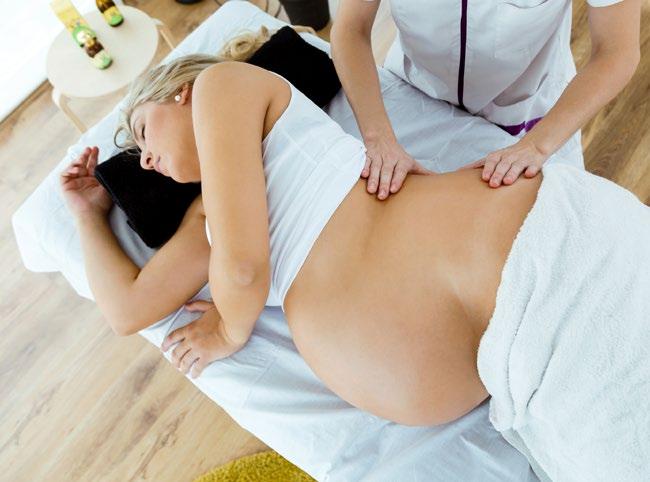
Post Partum Body Contouring with Vela Shape: New moms face a unique set of physical and emotional challenges following pregnancy and childbirth. Vela Shape helps moms get back in shape, improving cellulite and reducing circumference in a few treatments.
Little Angels
Market Street, Camana Bay. Tel: (345) 946 2645 High-end swim and beach wear for toddlers and children up to 14 years.
Living.ky
Pasadora Place, Smith Road, George Town. Tel: (345) 233 8700 Email: sales@living.ky Web: www.living.ky A great selection of beds, dressers, rugs, cushions, wall décor accessories and more.
Tomlinson Furniture Gallery
9 Walkers Rd, Tomlinson Building, GT Tel: (345) 949 5383 Web: www.tomlinsonfurniture.ky. A good range of baby and children’s furniture.
The Baby Shoppe
Alissta Towers, North Sound Road. Tel: (345) 949 2229 Baby and toddler products, car seats, strollers, clothing and toys.
The Bump To Baby
The Strand, SMB. Tel: (345) 938 6498. Web: www.thebumptobaby.com. A wide selection of high-end clothing and supplies for mothers during and after pregnancy. They offer a range of newborn essentials from nursery equipment and nappy bags to clothes, playmats and bottles.
Valu-Med Pharmacy
Walkers Road, George Town and Evron Plaza, Bodden Town. Tel: (345) 949 0442 Baby and toddler clothing, toys and formula.
Cayman Parent Magazine | Pregnancy232
(345) 943 2002 | info@davinciwellnesscentre.com | davinciwellnesscentre.com | Park Place Plaza, West Bay Road Highlights:
Early Years
Eco-friendly parenting, gardening, Jolly Phonics & more...
Raising

Conscious
Dig
Gardening
Childcare Choices:
Decoding
Early Years Book Club
Cayman's Super
30 Fun Things to Do
The
www.caymanparent.com 233 EARLY YEARS
Contents
Photo courtesy of Daria Keenan Photography
Environmentally p234
Children in Cayman
This! Benefits of p238
with Kids
Nanny p240 or No Nanny?
Jolly Phonics p242
p245
Nannies Q&A p246
with p248 Kids Every Day of the Month Parks & Playgrounds p250
Listings p252
Raising Environmentally Conscious Children in Cayman
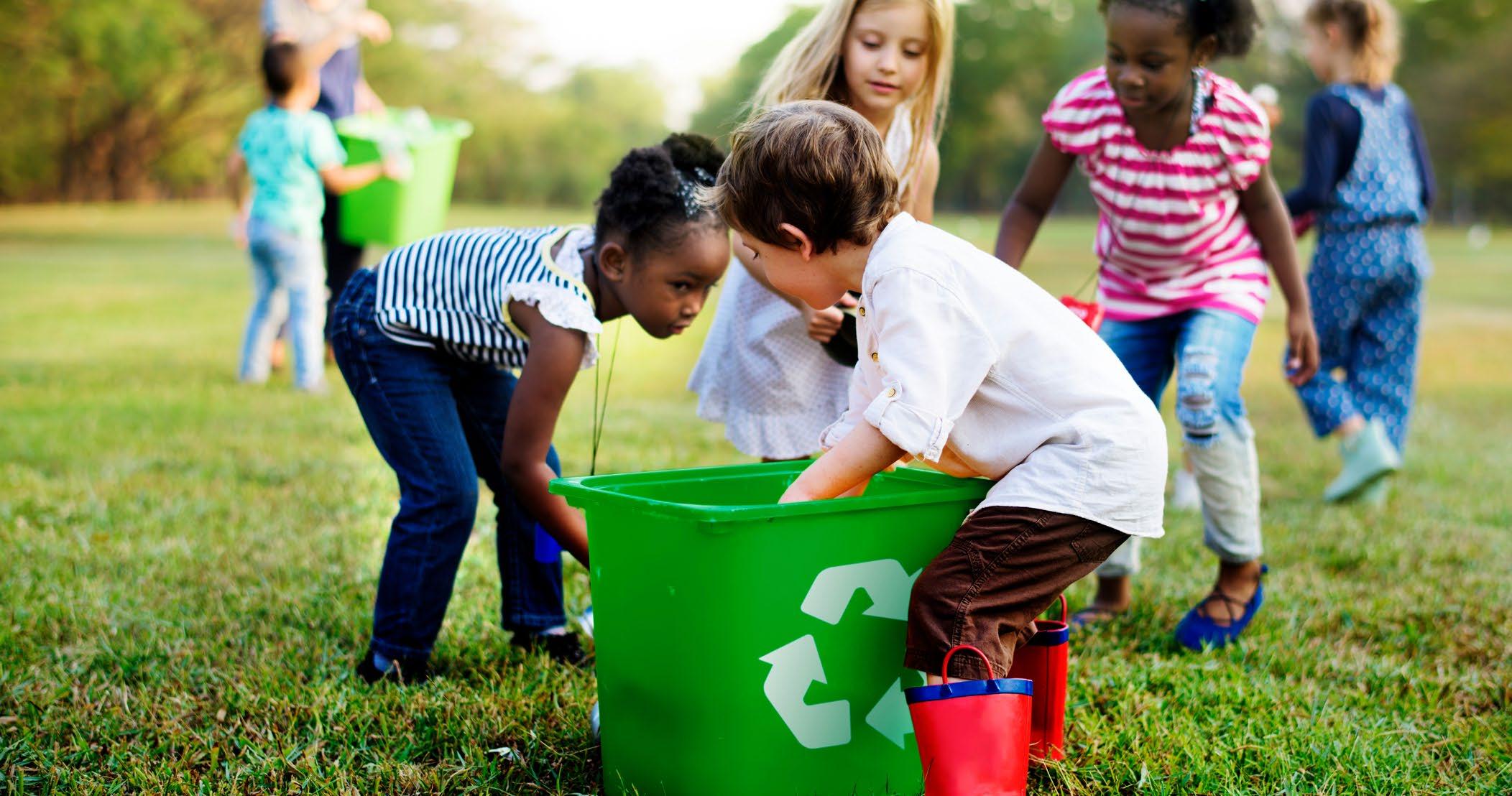
"In 2018 I gave birth to my son. That’s when things really changed. I want my child to be healthy, to grow up in a world with clean air and water, to experience how amazing nature is. I went on a mission to drastically reduce our waste and how much plastic we use as a family. Once you start to open your eyes you can’t unsee what you were once blind to... plastic is everywhere." - Ashley Fox, Certified Positive Psychology Habits Practitioner and NLP coach.
It’s very easy to feel overwhelmed by the severity of climate change. When we think about the topic, we often feel a sense of impossibility and hopelessness. It’s a daunting reality that is often neglected due to the sheer size of the task at hand. But in Cayman, we smell Mount Trashmore every day, we feel the ever-intensifying storms each summer, and we see mangroves and coral reefs diminishing year-by-year. As parents, all we want is for our children to grow up healthy and happy on this beautiful island. But they can only do this if their environment permits it, and that’s where we come in.
Much like climate change, parenting a household can often feel impossible and hopeless so it’s understandable that climate consciousness falls to the wayside in a bustling household. We sat down with Ashley Fox: Sustainability Life Coach-in-training, avid beach clean-up volunteer, plastic-free living advocate and mother of one, to find out the easy changes you can make at home that positively impact the environment and teach your children to be climate-conscious.
Lead by Example
Take actions in your family home to demonstrate how you can make a positive impact on the environment. Reduce your household consumption and unnecessary waste by cutting down on the amount of plastic in your home. Of course, this does not mean you should throw away every bit of plastic in your cupboard. Re-use what you already have until it's no longer any good. Then you can replace it with more ecofriendly alternatives. Promote recycling in your home and go regularly to the recycling bins together. Whilst there, explain how recycling helps the planet. For resources and information on recycling in Cayman visit www.caymaneco.org.
Volunteer Together
Plastic Free Cayman announces beach clean ups on their Facebook page each month. It’s a great family activity that keeps households active and eco-aware. You could even organise your own two-minute beach clean as you enjoy a weekend walk on the shore. Just remember that it’s important to stay safe.
Cayman Parent Magazine | Early Years234 EARLY YEARS
Wear gloves and protective footwear, and make sure to keep a keen eye on what little ones are picking up so they don’t touch anything sharp or dangerous. Visit plasticfreecayman.com for more information.
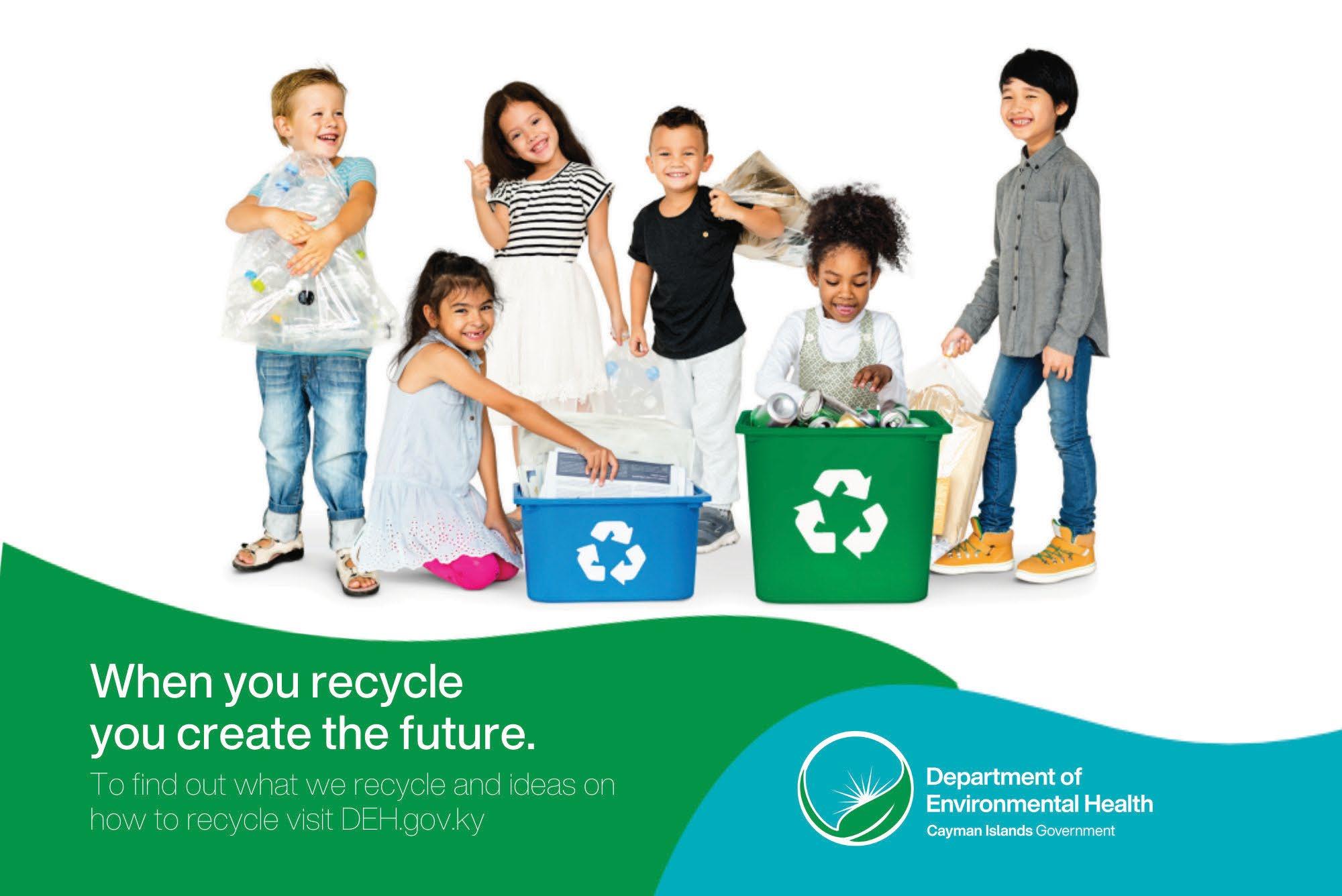
Let Children Ask Questions… and be Prepared with Answers
The science of climate change can be confusing and difficult to understand, but you don’t have to know the specific ins and outs to have a conversation about how your actions affect the planet. When little ones ask questions, be prepared with answers so they know they can open up to you about any worries or anxieties they have when they see images of, or hear about, climate disasters.
Litterless Lunches
Stop filling lunchbags with unnecessary plastic. Make use of paper bags (available in Foster's), tupperware and reusable water bottles. Buy loose fruit and vegetables at the supermarket or, even better, the Farmer’s Market, to cut down on plastic waste.
TOP TIP: Prepare a 'zero waste kit' containing a tupperware, coffee cup, water bottle, reusable straw, cutlery, and a glass jar. Keep it in your car or your personal bag so you never get caught off-guard!
'
Go Outside
This is such an easy one. Spend some time in nature and nurture a love of wildlife, animals and the ocean. Employ active conversations whilst out on your excursions to encourage an understanding of the environment. Try gardening, snorkelling and diving. Grand Cayman is rich in outdoor spaces just waiting to be explored and appreciated. These are the areas that we need to protect.
Grow Your Own Food
If you’re lucky enough to have the space to grow your own food at home, this is a fantastic way not only to lower your household’s carbon footprint (and grocery bill!), but also encourage a child’s relationship with the environment. Children can learn new skills, have fun and eat tasty and nutritious food whilst they do it. If you don’t have garden space to do this, try propagating store bought herbs in your kitchen or plant some basil seeds in a pot on your balcony. They are so easy to grow and you can teach your child how delicious they are in pasta sauce or on top of pizza. Check out our Gardening with Children article on page 238.
D.I.Ys
D.I.Ys are really helpful, plus they are super fun! One great idea is to find a recipe online to make your own playdough. Not only does it remove plastic waste and the nasty chemicals, but your little ones will love spending the afternoon making it. Try baking crackers or your own healthier granola. Have fun with
www.caymanparent.com 235 EARLY YEARS
EARLY YEARS
homemade pasta and bread, and even make your own paper chains for birthday parties! The possibilities are endless and the fun, even more so.
Meat-free Mondays
You can significantly reduce your carbon footprint by adopting a plant-based diet, however, this is a huge change that can be very difficult for families. Join the horde of households that have adopted ‘Meat-free Mondays’. Explore new ingredients, textures and flavours and see it as a way into a vegetarian or vegan diet. As you cook your veggie or vegan meals, talk about why you are doing it and how this little change helps the planet in such a big way. For more information, read our Plantbased Eating in Cayman article on page 40.
Be a Conscious Consumer
We can often feel like our actions make very little difference, but you always have a vote with your dollar. Choose to be a conscious consumer. Cut down on the amount of plastic you directly or indirectly purchase. Look for plastic-free gifts throughout the year to make Christmas time and birthdays much easier. Being on an island, it is often difficult to get your hands on these kinds of products. Buy these items when they appear in shops across the year. Also, try buying experiences rather than material gifts. They’re often more cherished!
TOP TIP: Choose 'home compostable' over just 'compostable' or 'biodegradable'. Sadly, Cayman does not have the equipment or conditions available to break down many so-called 'compostable' products. So, despite it saying compostable, it isn’t here on-Island. Also, biodegradable still means it can take up to 100 years to breakdown!
Share with Family & Friends
We are all in this together, so why not share things with family and friends. Pass clothes, toys, books and games around households. Not only does it promote conscious consumerism, but it is very sociable as well. Similarly, utilise charity shops. Donate your unwanted items and buy the things you need there as well. Visit Ecocay.com for secondhand clothes as well as lots of other eco-conscious products.

Introduce Children to Books, TV Programmes and Movies on the Subject
If you can’t quite find the right words to help your child understand what our carbon footprint is, or how the world is getting hotter, or why fishes are disappearing from our oceans, books, films and TV shows are invaluable. There are so many options that not only help children understand climate change in an age-appropriate way, but provide entertainment for all the family! Each one helps young ones to conceptualise what's going on.
Children's Books, Films & TV
The Lorax, Dr. Seuss - This beautiful 1971 book was also made into an animated film in 2012.
WALL-E – A 2008 Pixar film about a solitary robot on a future, uninhabitable Earth in 2805 left to clean up all the rubbish.
The Tomorrow Book, Jackie French – A hopeful book about the possibilities from the greener world of tomorrow.
Disneynature Movies – Documentaries that tell the tale of many different animals. Every story is narrated by a famous voice including Natalie Portman, Samuel L. Jackson and Meghan, The Duchess of Sussex.
Our Planet: The One Place We All Call Home – The Children's companion to David Attenborough's documentary.
Blue Planet, Planet Earth, Frozen Planet – All of David Attenborough's TV documentaries are beautifully shot, informative and entertaining.
Greta and the Giants, Zoë Tucker – A wonderful book inspired by Greta Thunberg's stand to save the world.
Clean Up!, Nathan Bryon – This book follows a little boy whilst on holiday as he discovers the pollution that’s spoiling their island home.
Down to Earth with Zac Efron – Teaches viewers about the importance of sustainability, nutrition and more as the hosts travel from the Amazon to Paris to Los Angeles, learning about environmental efforts around the world.
The Bee Movie – Bees are crucial to the health of our planet. Not only are bees vital to the ecosystem, but without them we would be in serious trouble, as this movie explores.
The Curious Garden, Peter Brown – One boy's quest for a greener world, one garden at a time.
Cayman Parent Magazine | Early Years236
Buy Local
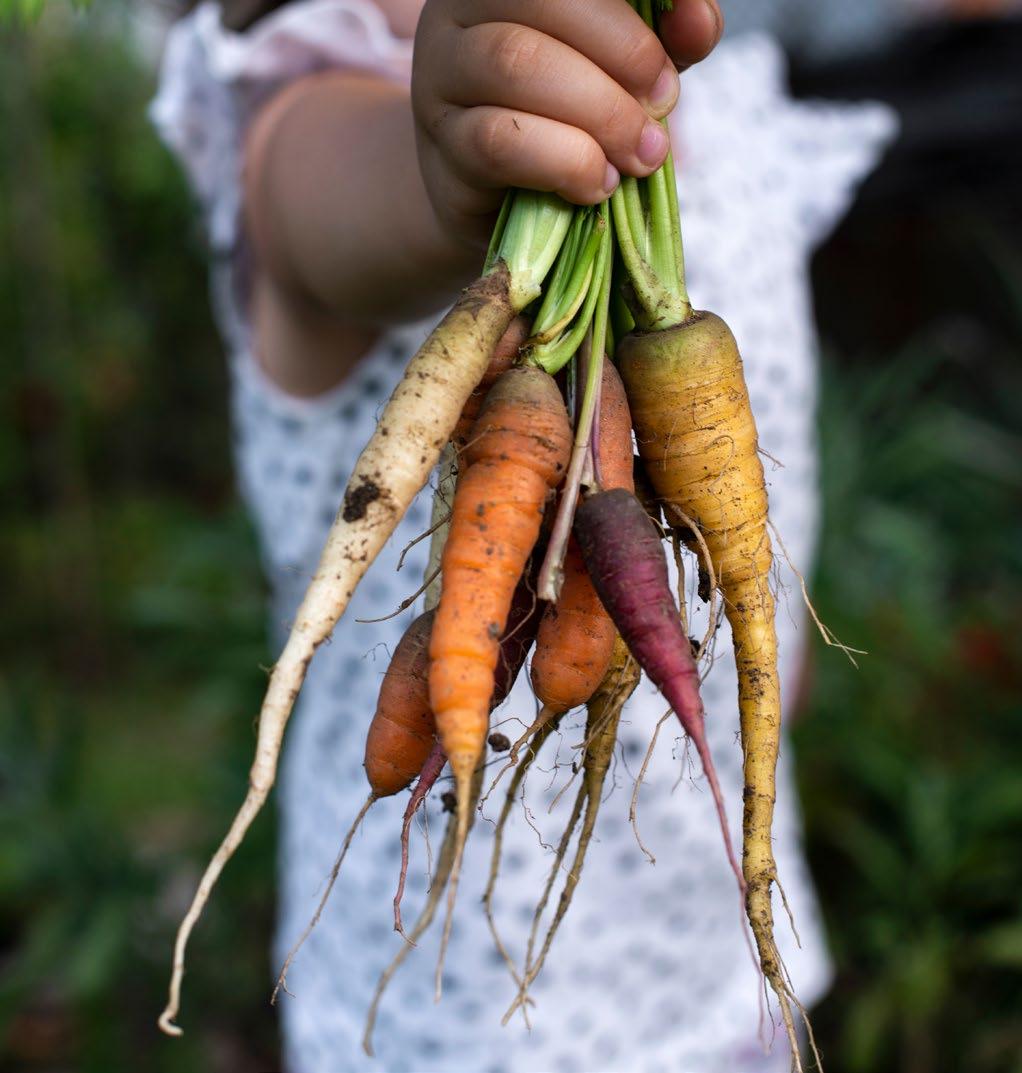
Living on an island, we all rely on overseas imports every day. This importation of goods massively adds to Cayman's carbon footprint, and sadly, it's improbable that Cayman will ever be self-sustainable, given the Island's population density. One very accessible change we can make is to visit the multiple Farmer's Markets on-Island. This way, we remove the emissions needed to transport food thousands of miles, and instead eat from Cayman's own soil. It's also a great way to support our local farmers and artisans. There are weekly Farmer's Markets at Camana Bay and the Cricket Grounds. See page 42 for information on Cayman's seasonal fruits and vegetables.
Talk
Be direct with children, explain how their actions affect the world around them. Of course, you should keep the conversation light and use language that will resonate with them. For example, tell them how, “The plastic in the ocean makes the fishes sick.” As adults, we feel a sense of doom surrounding the subject, so imagine how the adults of tomorrow feel. Continue to end conversations with hope. As a planet, there's still time for us to make a positive change, and save little ones from a potential disaster.
What’s really important to remember is that as a parent, you can’t expect to go from 0-100. By employing just one of these ideas, you are starting the ripple effect of change and teaching little ones how they can do better. The planet doesn't need a handful of people to be perfect, rather, it needs us all to be imperfect. As Ashley continued to remind us, “You don’t always win every time. Give yourself grace and do what’s sustainable for you and your family.”
Helpful Websites & Resources

PlasticFreeCayman.com This not-for-profit has excellent resources on running a zero waste home, plus information on youth action and volunteering.
Ecocay.com An online store with a wide selection of eco-friendly, plastic-free products.
Caymaneco.org Provides helpful information specific to Grand Cayman such as a recycling Q&A and well as broader information such as Climate Science 101.
Handy Hints
In conversation with Ashley, we picked up some really helpful ideas that you, as a consumer, can implement in your home very easily:
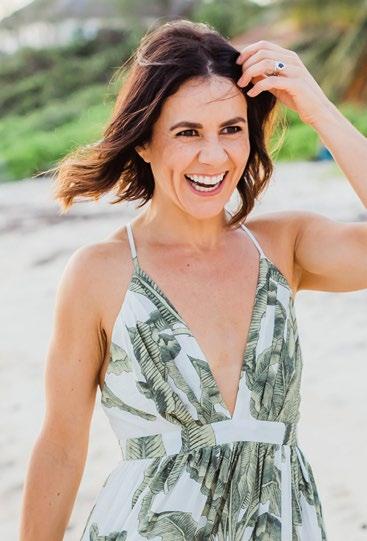
Bulk Buy: sometimes, you simply cannot avoid plastic, so if you're going to buy it, buy as big as you can to reduce waste. The bulk section at Foster's supermarket is a great place to start.
Glass Over Plastic: glass can be endlessly recycled and and you will never risk chemical nasties leeching into your food.
Avoid 'Greenwashed' Products: sadly, many of our everyday items have become victim of 'greenwashing'. Do your research on what can be recycled in Cayman. Only plastic items marked with a 1 or 2 on the bottom can be recycled on-Island, so don't be fooled by that 'eco-friendly' coffee cup!
Switch up Your Searches: Try using Ecosia.org for internet searches. Ecosia is a not-for-profit organisation which dedicates 100% of profits to climate action, with at least 80% financing tree-planting projects. Have a search and see!
I am Ashley Fox, a certified Positive Psychology Habits Practitioner and NLP coach. Over the course of the last three-and-a-half years I've been on a mission to reduce our household waste drastically and our household is now 85% plastic-free. Climate change, plastic pollution – these are all phrases that can trigger some people. It can feel so overwhelming, hopeless and confusing. That's where I come in! I’ve created Reinventive, Sustainable Mind as a programme to help people step into their power as a consumer. I want to make sustainable living easy, accessible and fun for each individual's lifestyle. I am currently building a waitlist for people that are ready to take their next step in reinventing their mindset. Thank you for being here; thank you for caring. Let’s be the change and walk into solutions, together.
www.caymanparent.com 237 EARLY YEARS
@Reinventive.Sustainable.Mind Reinventive.Sustainable.Mind@gmail.com
Dig This! Benefits of Gardening with Kids
The COVID-19 lockdown highlighted an issue that was already there: the ever-increasing amount of time all of us – adults and children – now spend online. Getting kids off their screens and out into nature has never been more important. And gardening is one of the most effective ways to do that.
kids’ health and nutrition: they are more likely to want to eat vegetables and herbs if they’ve been involved with the growing process, so it’s a great way to introduce fresh produce into their diet and nurture a love of fruit and vegetables.
Responsibility: gardening is also an effective way to teach children responsibility (and far less of a commitment than getting a pet!). As long as they remember to water and weed their plants, their little charges will thrive – but if they forget, they will soon see them wilt or become choked with weeds. It’s an easily digested lesson in cause and effect.
Supporting STEM Learning
Many preschools now have their own kitchen gardens, where children can get involved in planting, tending to and harvesting fresh fruit, herbs and vegetables. It’s a testament to the advantages gardening has for growing minds and bodies.

But gardening need not be limited to school curricula. With a little creativity and planning, everyone can grow at least a few edible plants at home. Not only does it get kids interested in nature, food and where it comes from, but it can also be an effective tool in enhancing their learning in other areas.
Benefits of Gardening
Sensory exploration: children are tactile, sensory learners and gardens engage all the senses – there are flowers and herbs to smell; colours, bugs and fruits to see; textures of leaves, bark and soil to feel; sounds of bees and birds to listen for and, of course, delicious fresh produce to smell and taste.
Physical: in an age when so much free time is sedentary and screen-based, a gardening project can tempt youngsters away from their devices and get them engaged in a physical activity. Most toddlers and preschoolers instinctively love messing around in the dirt and time in nature is a well know stress reliever. The act of digging, mulching, filling and carrying water cans and using simple garden tools is also a great way to get them moving and develops gross and fine motor skills.
Health: in addition to the well-documented therapeutic effects of spending time in nature, gardening is a great way to boost
The benefits gardening presents go far beyond these though. Studies have shown that in schools with gardens, students' test pass rates increased by an average of 12 to 15%. Growing plants presents invaluable learning opportunities and helps children to apply STEM (Science, Technology, Engineering, and Maths) concepts to the real world.
Science: the simple act of germinating seeds, watching them grow, bear fruit and go to seed, illustrates the botanical life in real time. Flowers can be examined to identify their different parts and seed pods opened to reveal their contents and simple experiments conducted to compare what happens when a plant does or doesn’t receive sunlight or water.
As children grow older, gardens present opportunities to identify and catalogue bugs, observe their behaviour and study the effects of the weather on crops.
Technology: if we understand technology as anything manmade, gardening can be used to make children think about how simple tools like rakes, trowels, shovels and wheelbarrows make our lives easier. Ask them which tool might make digging a big hole faster? What would be the best way to get water to the plants? What could they use to move heavy things around the garden?
Engineering: designing and building a garden bed introduces youngsters to engineering concepts – how will they reach the plants in the middle of the garden? Will paths or stepping stones be needed? What happens when plants get too tall to bear their own weight? How can we support them? Do tomatoes need the same shape support as sunflowers? How could we build this?
Cayman Parent Magazine | Early Years238 EARLY YEARS
Photo by Bouke Maddock for Little
Trotters
Mathematics: from the simplest task of counting or sorting seeds into different shapes and sizes, to more advanced mathematical calculations, gardening can be used to practise simple sums and multiplications. If each tomato plant bears 20 tomatoes, how many do we need to plant to get 100 tomatoes?
If we have five rows of cucumbers, with six plants in each row, how may cucumber plants do we have in total? As children’s Maths learning progresses, this can expand to calculating costs, profits and percentages.
Setting up a Garden at Home
Whether you have space to create a vegetable patch for kids, a terrace where you can create a container garden or nothing more than a windowsill, there are plenty of ways to get children to experiment with growing some edible plants at home.
The growing season in Cayman runs from approximately October to April – after that the weather is too hot for most edibles.
Planning a Vegetable Patch

If you have the space to build a kitchen garden, discuss the best location, in terms of wind, sun, water and aesthetics, with your children.
If you live near the coast, remind them that the salt spray can be fatal for plants, so together you will need to identify the most sheltered spot available. In dry periods, the garden will need to be watered – can a garden hose reach?
For best results, most plants need at least half a day, if not a full day, of sunshine: have them observe how the shade moves across the space in the course of the day. Good drainage is also essential, so that after heavy rain, vegetables aren’t sitting in standing water. If there is no suitable elevated spot, consider having elevated grow boxes made (inexpensive grow box kits can also be purchased online).
Ideally, you want your children to take ownership of their garden and be responsible for it. But bear in mind, this could result in a messy, unruly scene, so think about whether you want to see it from your deck or pool, or if it would be better tucked away out of sight.
Container Gardening
If you don’t have a garden, you can still grow things in pots on a terrace or balcony. Ceramic pots sold at most garden centres are an attractive option, and can always be reused later for ornamental plants, but almost any container that you can make drainage holes in the bottom of will work – think used wine creates, gallon water bottles with the top cut off, empty food cans or even tyres filled with soil.
Pots work best for single plants that bear multiple fruit like tomatoes and eggplants, but potatoes, pumpkins, carrots will need to go straight in the ground.
Windowsill Growing
When all you have is a windowsill or two, there are still things kids can plant and observe the growth process. Try submerging a regular or sweet potato halfway in a jar of water: in a matter of days roots and shoots will start growing. The same can be done with avocado stones, but they take longer to sprout. Beans and lentils can also be sprouted in clear jars covered with cheese cloth and are great added to salads and sandwiches.
When the kids eat an apple or orange, have them pick out the pips and place them on damp cotton wool and wait for them to germinate. Alternatively, plant different herbs (or arugula) in small pots and simply snip off what you need and watch it grow back.
Best Crops to Grow in Cayman
In the ground
Mangoes, bananas, carrots, radishes, pumpkins, bok choy, leafy greens, mustard greens
In pots
Tomatoes, cucumbers, eggplant, seasoning peppers, scotch bonnets, basil, cilantro, rosemary, chives, thyme.
On window sills
Herbs, arugula, bean sprout, lentil sprouts, basil and you can sprout an avocado seed.
Pollinators & Pests
With children involved you’ll want to avoid any toxic pesticides, herbicides and fertilisers. Unfortunately, this does leave plants susceptible to a host of problems, so ask at a garden centre for safe, organic alternatives.
Another way to boost your garden naturally is to include plants to attract beneficial bugs and deter harmful ones. Marigolds, trumpet vine, honeysuckle, lantana and sea lavender are just some of the plants that will bring in essential pollinators like bees and butterflies, while cilantro, chives, yarrow and marigolds all help to entice the ladybirds, who will eat aphids for you.
Iguanas are also a perennial problem and eat most crops, unfortunately. Chickens and Whistling Ducks can also be a huge problem as they dig around in the soil and the latter love to eat lettuce, herbs and other greens. The easiest way to protect your plants is to build a screen around your vegetable patch.
Not all plants will thrive in all locations or soil types. Some crops may be decimated by pests or inclement weather. Others will produce bumper crops. It will take time to work out what grows in your particular garden and what does not. But that’s what gardening is all about: trial and error, making mistakes and learning from them. What better way to cultivate inquisitive, analytical minds?
www.caymanparent.com 239 EARLY YEARS
EARLY YEARS
Childcare Choices: Nanny or No Nanny?
Whether you’re working or not, some form of childcare during the early years is invaluable, especially if you’re here as an expat without family nearby to lend a hand. Thankfully, support in the form of preschools, nannies or helpers is available in Cayman but you must start planning early.
Before considering the help you need, it’s important to understand the difference between a nanny and a helper. A nanny focuses on the children – they shop for children’s food, prepare meal plans and cook their food, organise children’s activities and clean their clothes. They do not do general house cleaning. A domestic helper, on the other hand, will do laundry, housework, cooking and drive children around to their activities (they may not organise the activities themselves).
No Nanny
Child minding services, which are commonly available in the UK, are not offered in the Cayman Islands. However, preschools, which take children from as young as six weeks, are a popular choice although there are not enough spaces and all are full. So plan early and book your child's place as soon as you know you are pregnant. The following local preschools take children aged from either six weeks or three to four months: ABC Kids, Bloom, NCVO Jack and Jill Nursery, Rite Start, Shining Stars, Sister Janice's and Tiny Tots. They cost between CI$550 and CI$1,050 per month for a full-time place and will keep your children from 7.30am to 5.30pm. There are part-time or fulltime options and they do not close for school holidays.
We asked local mothers about this option and were told that the school’s caregivers are, “loving and kind" and they could not recommend them highly enough! When choosing between preschools please ensure that you read up on ‘Cayman’s School Inspection Reports’ on the Cayman Resident website as all preschools have different strengths and weaknesses. Once your child reaches 18 months, all preschools are available to them. See ‘How to Choose a Preschool’ on page 80 for more information and the ‘Nurseries & Preschools’ listings on page 123 for a full list of schools.
If you are just looking for a short window of help each week, you could hire ad-hoc help or organise a weekly domestic helper via one of the agencies (AAA Caregivers, Best Home Care or the Perfect Maid & Nanny Agency). They usually require a minimum slot of four hours.
Choosing a Nanny or a Domestic Helper
Choosing a nanny or a domestic helper is a lot more complicated
and there are numerous things to consider. For example:
What type of care do you need? Although you might think you only need part-time help, what will you do with your children during the school holidays or when they are sick? Do you need a nanny to help with homework? Or someone who will be the primary source of education, development and stimulation? A very good domestic helper will not only help keep your house clean, but also engage your child in conversation, read to them and take them to activities so that they can socialise.
How much can you afford to pay? As with any job, the most qualified and experienced candidates will require a higher salary. There is a big difference in salary between an early childhood-trained nanny and a cleaner who has babysitting experience. Both a full-time nanny and a domestic helper require health insurance, vacation pay and overtime pay; however, the law does not require you to pay the pension of a domestic helper. Cayman's minimum wage is CI$6 an hour, and extras (living-in, the use of a car) can only account for 25% of their total salary. According to the Labour Act, overtime kicks in after nine hours worked in a single day and must be paid at time and a half. The usual working week is 45 hours (9 hours a day with one hour for lunch). See page 193 for more information on the logistics of hiring a nanny or domestic helper.
Salaries for a domestic helper or trained nanny? There is still a huge disparity between what people are being paid in the domestic helper field in Cayman. Prior to the pandemic domestic helpers, who clean the house and do occasional babysitting, were being paid CI$1,200 per month or CI$277 per week. This is basically minimum wage multiplied by 45 hours a week. It is next to impossible to survive on this in today's climate with inflation running at 10% and rents being hiked up. As of July 2022 a helper should be paid between CI$400-CI$550 a week for 45 hours, or if paid less, be offered a monthly rent allowance to bring their salary up. Overtime is now CI$12 an hour. Those that are paid at the upper end can drive. A properly trained nanny with an early childhood certification who can drive, help the children with their reading and homework, cook and take care of all the children's needs is now being paid CI$18-$20 per hour and CI$12-$27 in overtime. They average
Cayman Parent Magazine | Early Years240
CI$3,120-$3,460 per month before overtime.
Do you need a driver? If you require help with driving your child to and from school or after school activities, then a nanny or domestic helper who can drive is essential. Consider whether or not the nanny's car is suitable and safe for your children to be driven around in, or whether you will provide a car for the nanny's use. Remember to pay for their gas or give them a fair allowance towards the weekly cost of their fuel bill.
Live-in or out? Some positions that require long or late hours are more suitable for a live-in person. If opting for a live-in caregiver, you will be required to provide accommodation with sufficient space. If you are considering bringing a nanny onIsland, it is important to be mindful of the cost of living in Cayman for a single person, and factor that into your salary offer. Many families now offer a housing allowance. If your nanny or helper is from Jamaica, or somewhere relatively close, most families will include a yearly ticket back home as part of their contract or every other year if they are from further afield.
Experience and outlook? Early childhood care greatly impacts childhood development. Does the nanny have experience and qualifications? Does she speak clearly? Is she warm and engaging? Do you feel comfortable and relaxed in her company? Does she have a similar set of values to you? Does her outlook on child rearing and education coincide with yours? Is she willing to learn through on-Island workshops and training?
Where to look? Finding a very good nanny in Cayman is not easy, but Cayman is a transient place and when families know they are leaving word travels fast that a nanny is becoming available. You can also look on the KY Mommies - Nanny Finder or Women in Cayman Facebook pages and see what is available there, or you can post that you need a nanny or domestic helper. Alternatively, you can reach out to one of the agencies or, if money allows, then reach out to Norland College and enquire about hiring a Norland Nanny.
TOP TIP: living so close to the water it's important to know whether your nanny can swim. Sky Blue Aquatics and Fitness Connection offer water safety courses to teach nannies about pool safety and how to swim.
Family support: for many families with young children who have moved here from overseas, the lack of family support can make life seem difficult. Your children's nanny or family helper, if chosen carefully, will become an important person in your children's lives: your children will blossom if they are cared for by someone who truly loves and cares for them.
Be realistic: could you care for a baby, entertain a toddler, clean a house, do the laundry, iron, cook, run errands, take the kids to school and do homework with your children? Doing all those things to a high standard is challenging for anyone.
What to look for in a Nanny
Are they patient and kind with a loving and caring nature?
Are they physically fit with high energy levels?
Are they good at communicating and do they have good interpersonal skills?
Are they trustworthy and reliable?
Are they creative and do they show initiative?
Are they flexible and adaptable?
Can they drive? Can they swim?
Can they help the children with their reading?
Do they have an up-to-date CPR certification?
Can they prepare healthy meals and snacks for your children?
Can they help with evening and weekend babysitting?
Choose which of these factors are the most important to you before you start the interviewing process.
AAA Caregivers
Serving your household needs to give you peace of mind since 2001.
AAA Caregivers is a housekeeping/childcare/elderly and patient care agency offering an experienced team of staff including nurses, nannies and housekeepers. All staff are trained in first aid/ CPR, basic childcare, fire safety and food handling.

Highlights:
Thoroughly-vetted, first aid and CPR trained nannies, baby sitters and domestic helpers • Finder and assessment services available • Vacation support for travelling families: locals going abroad and/or those from overseas
Term break holiday babysitting and nanny services
Also fully qualified nurses offering home healthcare services for the elderly or unwell.
Services Include: Baby sitters
Holiday childcare • Sick child care
Nannies
Bespoke services
Live-in domestic housekeeper

Home Healthcare Services/Nurses
(345) 916 5925 | Grand Cayman
| www.aaacaregivers.ky
www.caymanparent.com 241 EARLY YEARS
•
•
aaacaregivers@candw.ky
•
•
•
•
•
Decoding Jolly Phonics
I truly believe, through teaching literacy with laughter and fun, children can blow our minds with what they learn. – Amy Miller, Jolly Phonics & SEN Teacher at Little Trotters Farm & Nursery School.
Working alongside different families daily, it is clear to see that a parent’s purpose is to provide their child with the support to become the very best versions of themselves. Part of this is by providing opportunities to lay those important foundations in key areas such as literacy.
A proven method to aid literacy, and the one that we use at Little Trotters Farm & Nursery School, is the Jolly Phonics programme. This is a multi-sensory, fun, exciting way of introducing children to the English alphabet in a simple yet structured way.

What is Jolly Phonics?
When we think of literacy, we may automatically go straight to ABCs but what if we took it back a little further, allowing those little minds to explore and grow, and introduce them to the sounds that the letters make?
Jolly Phonics is a world-leading English literacy method that teaches children how to read and write using phonics. The programme teaches children the sounds that letters make, rather than the names of letters in the alphabet. Having letter-to-sound knowledge will help develop the child’s ability to begin reading words and sentences.
Rather than memorising thousands of words, children are instead taught a phonics ‘code’. This code helps children work out how to read 95% of the English language.
There are five basic skills for reading and writing within the Jolly Phonics Method. At Little Trotters, we teach the first two phases, depending on the individual ability of the children, and hope to instil a love of learning in them. The children go on to the next stages once they are in primary school.
1. Learning the Letter Sounds
2. Letter Formation (Writing)
3. Oral Blending
4. Segmenting
5. Tricky Words
How Jolly Phonics is Taught
1. Learning the Letter Sounds
There are 26 letters in our alphabet and each has its own ‘sound' but the sounds are very different to how a letter is ‘said' in the alphabet. For example, ‘a’ in ‘arrow’ and ‘b’ in ‘bat’. However, there are more than 26 sounds in the English language, in fact there are 42 in total, which is where the Jolly Phonics method stems from:
Cayman Parent Magazine | Early Years242 EARLY YEARS
Photos by Bouke Maddock for Little Trotters
• There are a mix of single sounds such as ’a’ and ‘b’.
• There are some sounds made up of two letters, known as diagraphs, meaning that two letters come together to form one sound such as ‘ee’ and ‘or’.
• There are also three letter sounds and these are called trigraphs, an example would be ‘t-r-ee’.
basic phonetical letters/sounds, they will be able to progress to the next stage of Jolly Phonics.

2. Letter Formation (Writing)
It is so important that a child holds his/her pencil in the correct way. The pencil should be held in the 'tripod' grip between the thumb and the first two fingers. The grip is the same for both left and right-handed children.
At Little Trotters, I use multi-sensory methods to teach children to form and write letters. For example, colouring exercises to familiarise them with the letter shapes, special craft activities and teaching rhymes to help the children remember letter formation.
When it comes to teaching Jolly Phonics, we follow a letter order rather than alphabetical order. There are seven groups of six letters, the first group makes up a greater number of simple three-letter words than any other six letters.
1. s, a, t, i, p, n
2. ck, e, h, r, m, d
3. g, o, u, l, f, b
4. ai, j, oa, ie, ee, or
5. z, w, ng, v, oo, oo
6. y, x, ch, sh, th, th
7. qu, ou, oi, ue, er, ar
At our school, my focus is to create excitement and curiosity towards literacy with our 3-4 year olds. I use interactive and fun visual and audio aids such as poems, nursery rhymes and games to teach phonetical sounds. Each sound has an action which helps children remember the letter(s) that represent it.
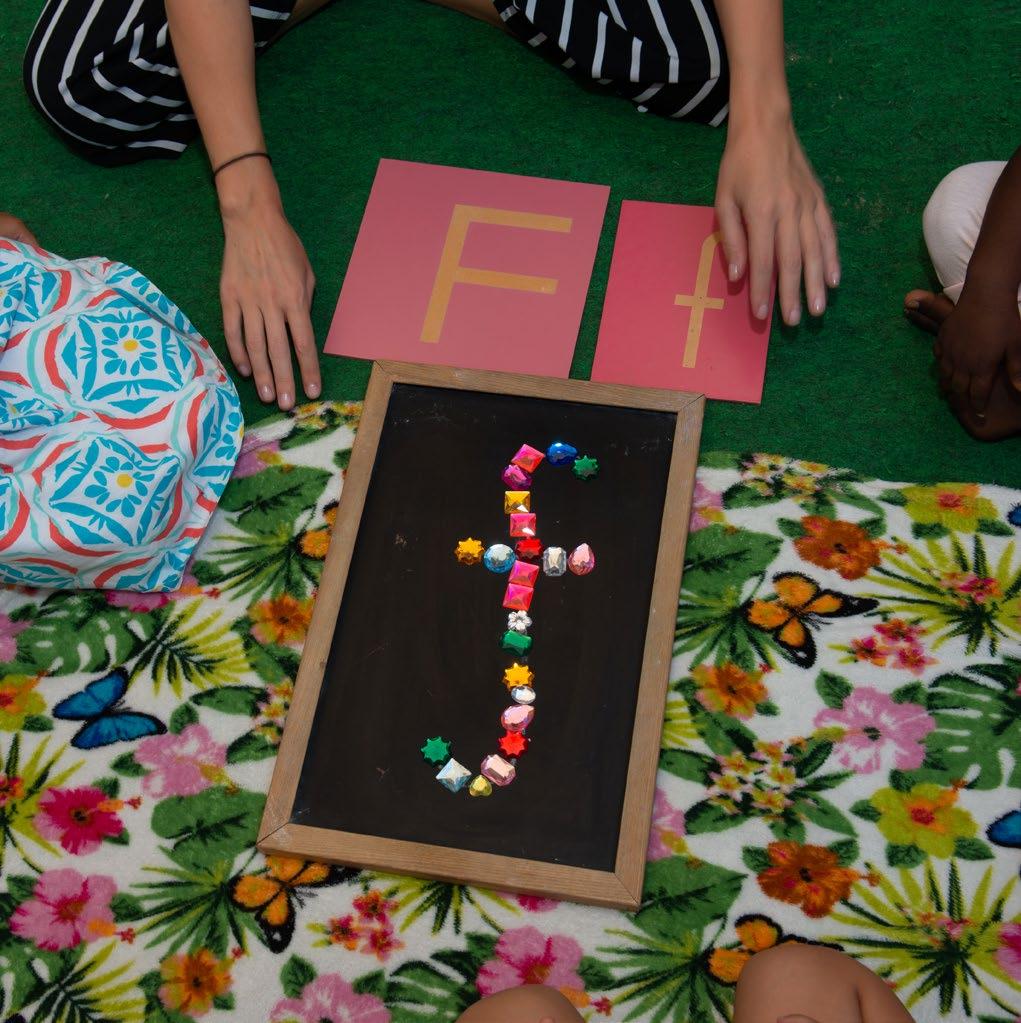
With my trusty sidekick Inky the mouse, a Jolly Phonics puppet who comes along to see how well the children are doing, the literacy lessons are a highlight of everyone’s day.
Once your child can understand, identify, speak and action the
3. Oral Blending
This is the process of saying the individual sounds in a word then running them together to make the word. Children can start to practise this skill as soon as they have learnt the first three letter sounds for example s-a-t = sat and c-a-t = cat.
4. Segmenting: Identifying Sounds in Words
The easiest way to know how to spell a word is to listen for the sounds in that word. Children start by listening for the first sound in a word. For example, the ‘e’ sound in egg or elephant. Games like I Spy are ideal for this. Next, they then move on to listening for the end sounds, before finally the middle sound of the word, as these are the hardest to hear.
5. Tricky Words
There are 72 words in the English language that are not decodable, so these words must be learnt by memory. Examples include: the, was, all, my, do, she. We split the 72 words into five different groups, each level building on the words learned in the previous level. Schools use mnemonics and other fun techniques to help children learn these words.
www.caymanparent.com 243 EARLY YEARS
Photo by Bouke Maddock for Little Trotters
Fun Ways to Support Your Child’s Learning at Home
I recommend trying to capitalise on opportunities by adapting learning to focus on your child’s interests. When children are intrigued, they will learn more. If you would like to support your child’s learning at home then here are some ideas:
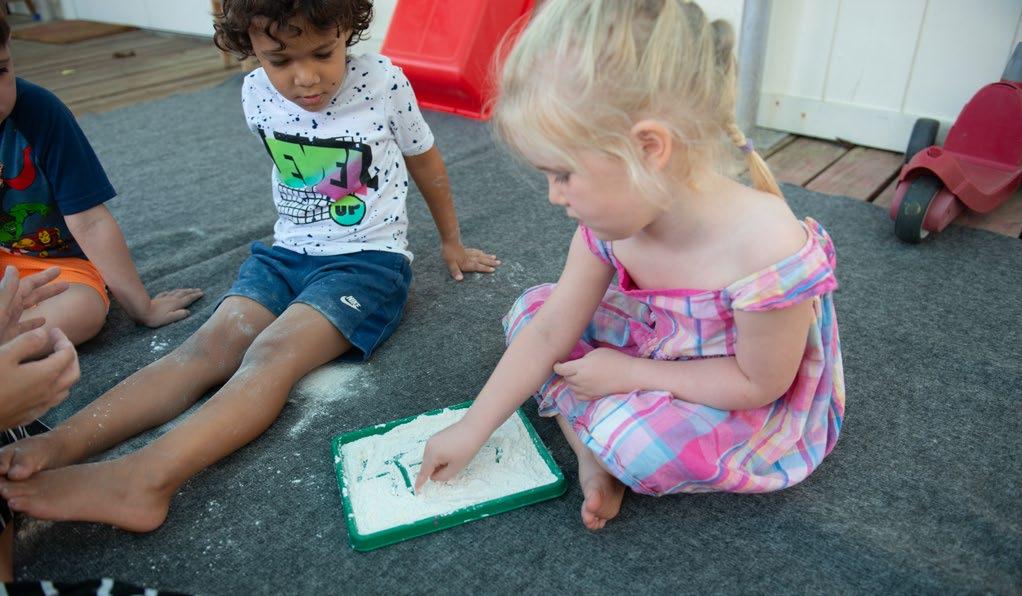
Letter Sounds
• Introduce a single letter sound, for example the sound ‘sss’. Find objects – sticker, strawberry, stone – and listen for the sound as you say the word together.
• Learn the Jolly Phonics letter song (these are readily available on YouTube) ‘The Snake is in the Grass, The Snake is in the Grass, ssss, ssss, The Snake is in the Grass.’
• Make up a letter story, for example – Sam and Sally sang sweet songs. Get creative and see if you can come up with longer or sillier stories each time.
• Learn the action – each letter in Jolly Phonics has a corresponding action that serves as a useful prompt. Again, these are available on YouTube or the Jolly Phonics app.
EARLY YEARS
Language Activities In and Around Your Home
• Rhyme or slime (if it doesn’t rhyme, add it to the slime!).
• Letter sound hunt (hide objects with the same beginning sound – dog, digger, dinosaur).

• Beat out the syllables in your name (count the beats you hear – Sweet Beets on YouTube is a great resource).
• Listen for sounds in rhyming books.
• YouTube music videos (Jack Hartmann and Alphablocks are firm favourites).
Fine Motor Activities in and Around Your Home to Help With Pencil Grip and Pencil Control
• Crocodile fingers colouring – sliding the pencil into the
snappy crocodile's mouth – this is the tripod pencil grip.
• Spray bottle alphabet game – chalk a letter and spray it away.

• Threading beads, making necklaces and bracelets.
• Cutting outlines on paper (spirals, straight lines, circles, zig zags).
• Dot to Dot your name – Q-Tip painting over the top.
Listening Activities In and Around Your Home
• Musical instruments – close your eyes and guess the instrument.
• Bean dance – follow dance instructions i.e. jellybean, jumping bean, runner bean.
• Story sharing – parents allowing the child to add in what they think happens next to draw out a story.
• Noisy or quiet – gather a basket of objects, place one object in a small metal tin and shake it – which object makes the loudest noise?
• "What can you hear in the garden?" Close your eyes and listen to sounds all around.
Teaching the Jolly Phonics at Home
There is a wonderful website called www.jollyphonicsathome. com which has a wealth of resources on it which are free and can help you teach the Jolly Phonics at home. It has very useful downloadable worksheets for each letter and suggests Apps that will help you with the sounds, songs and flash cards, amongst other things. Here are the options for the Jolly Phonics apps:
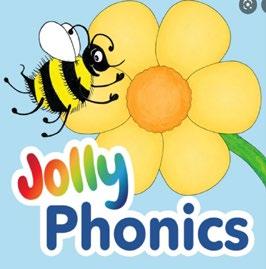
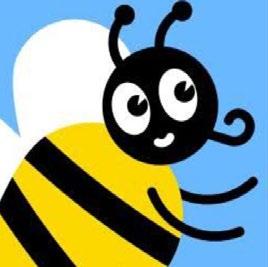
Jolly Phonics Lessons Jolly Phonics Fun
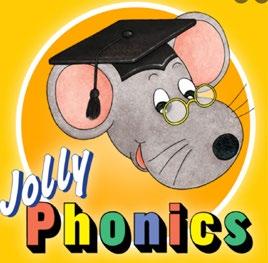
Jolly Phonics Test Jolly Phonics Letter Sounds
My name is Amy Miller. Originally from a small town in the UK, I moved to Grand Cayman around six years ago. I knew from a young age that my passion was children and that has not changed. I have travelled to different countries, gaining knowledge and skills by working with children, before landing on this beautiful island. I was given the opportunity nearly three years ago to join the Little Trotters team as the Jolly Phonics teacher and I jumped in headfirst! I honestly believe that the Jolly Phonics programme and method of learning can be taught effectively by teachers and parents alike.
I hope to have inspired you with ideas to help your children learn their letters. Wishing you all the fun on your Jolly Phonics journey! Miss Amy Miller.
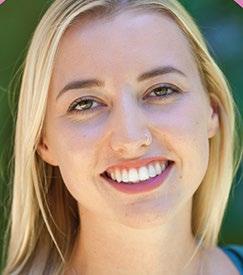
Cayman Parent Magazine | Early Years244
Photo by Bouke Maddock for Little Trotters
Early Years Book Club
Best for Parents Best for Toddlers
In this pioneering and practical book, the authors, a neuropsychologist and a parenting expert, offer a revolutionary approach to child rearing with twelve key strategies that foster healthy brain development, leading to calmer, happier children. An erudite, tender and funny book!
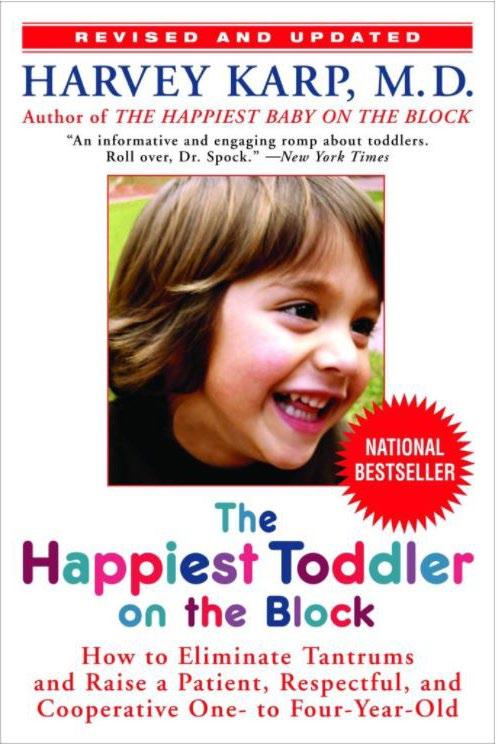
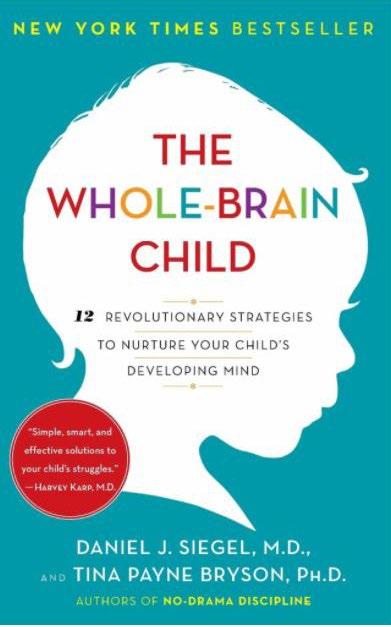
Harvey Karp's book is a quick read with great practical advice for parents with children aged one to four. It will help you eliminate tantrums and raise a patient, respectful, and cooperative child. It helps make happy kids even happier by boosting their patience and self-confidence.
This beautifully written book is about teaching kids how to appreciate real food. Jeannie Marshall explains what needs to be done to preserve food culture and she explains how she is teaching her son to enjoy the pleasures of eating food prepared, cooked, and lovingly shared by friends and family.
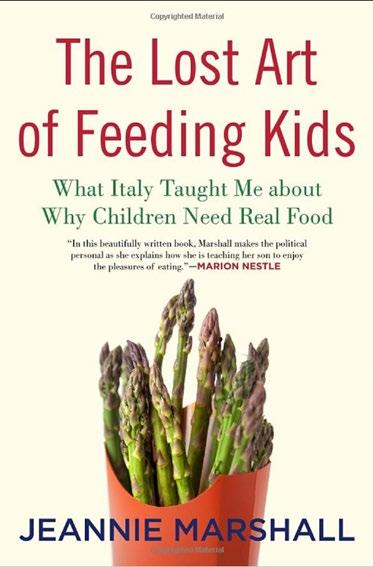
Best Podcast for Kids
Stories Podcast performs a new story each week. There are retellings of classics like Snow White, some folktales, and myths from around the world. Episodes range from 10-20 mins. and everything is G-rated. Free on Apple.

A moving, powerful story that shines a light on those that feel invisible in our world. It's the story of a young girl and her family who don't have much and then one day there isn't enough money to pay the rent or the bills. It's a wonderful and encouraging tale of a girl who goes on to make a difference.
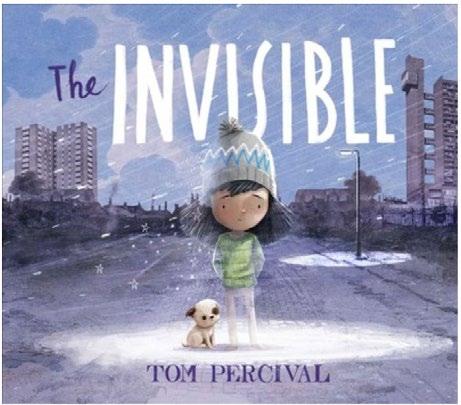
A sparkling rhyming tale about Humphrey the whale who is on a quest to find the one perfect object that will make him feel complete. Yet, no matter how many goodies he accumulates, Humphrey still doesn't feel content. Could it be friendship, and not possessions, that will make Humphrey's heart sing?

Travel the globe in this beautiful, inspiring journey through the animal kingdom, which encourages children to value the natural world and their place within it. This book reminds us all of our connection with nature, and the urgent need for us to join together in caring for the planet and every creature in it.
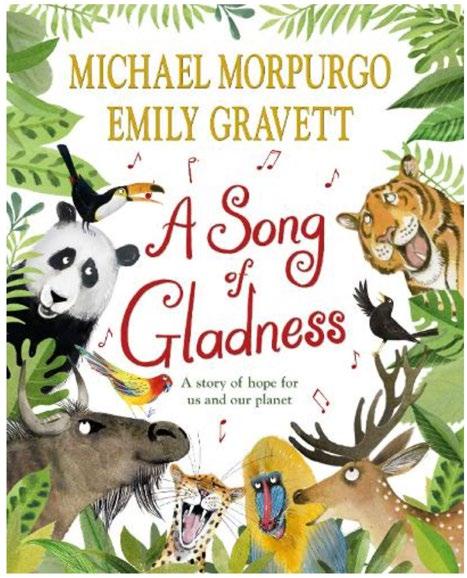
Best Digital App for Kids
MarcoPolo Ocean will take your children onto a deep dive where they will make their own submarine, work on habitat puzzles and pick up cool facts about life underwater. Best for ages 3-7. Free. Apple or Google.

www.caymanparent.com 245 EARLY YEARS
Q&A
Rebecca “Hermin” Ewers
What is the most challenging situation you have faced so far whilst looking after children?
Getting them up for school in the morning! Also getting them to eat their veggies.
If a child becomes upset or angry, how do you calm them down?
Before you do anything the child has to have trust in you and know that you love them. Then I would get down on their level, look them in the eye, speak very calmly to them and then make a really funny face! It would invariably make them laugh! Then we would talk calmly about what it is that is upsetting them, try and work through and find a solution. They would then always get a very big hug from me.
What do you think are the best things about raising kids in Cayman?
It’s the freedom for the children to explore and not be afraid of being outside and finding their independence.
What do you find the most rewarding part of looking after children?
Seeing them growing up and achieving their goals. They have become the most lovely people and I am so proud of them!
Have you ever had to deal with an emergency situation involving the child or children you look after? How did you handle it?
Yes, more than one! Firstly, I have to calm myself, that’s number one, and then I have to think fast what to do. You cannot panic when something happens to a child. You have to be calm, rational and take action immediately.
If you could choose to be a nanny for a famous family, who would it be and why?
The Obamas! Their family seems stable, happy and they obviously really love each other.
What is your favourite place to take the children to play?
They love playing outdoors where they can get fresh air. They love Camana Bay where they can run around and splash in the fountains.
What do you think are the best things about raising kids in Cayman?
Children in Cayman have a lot of activities. They spend time outdoors doing physical activities like swimming, boating and snorkeling. The lifestyle here helps the kids get plenty of exercise.
What do you find the most rewarding part of looking after children?
The hugs and kisses and when they say "I Love You" everyday!
What is a challenging situation that you have faced whilst looking after the child?
When I am looking after both children together, I need to pay attention to both at the same time and watch them while they are playing, running and climbing around the playground. You cannot take your eyes off them!
Do you have kids in your home country and how do you manage maintaining a long distance relationship?
Yes I have three kids – Emjay 22, Kris 19 and Donna 17. My sister looks after them. We speak every day. We chat and I help them with their school work. I always remind them whatever happens I’m always here and tell them how much I love and miss them.

If you could choose to be a Nanny for a famous family, who would it be and why?
I wouldn’t choose anyone other than my current employers because no words can describe them and how much I appreciate everything they do for me. I am very thankful and grateful to have them.
Rebecca “Hermin”
Ewers is from Jamaica and has spent the past 22 years with the same family. The children are now 25 and 27 years old!
Arlene Florentino is from the Philippines and looks after two boys aged 4 and 2 years old.
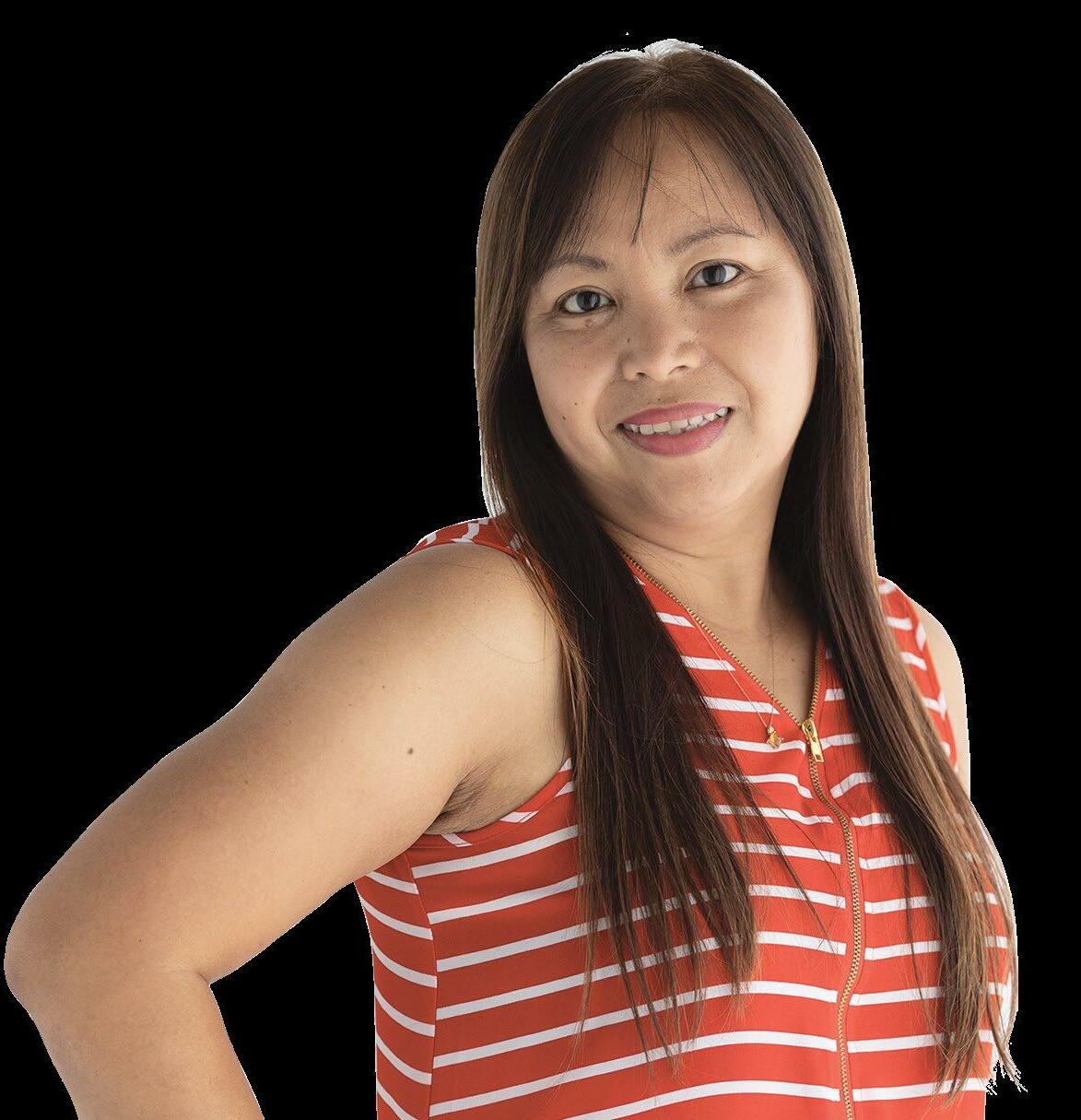
EARLY YEARS
Arlene Florentino
What aspects of nannying do you find most rewarding?
The long lasting impact I can have in a child’s life. When you see a child grow and flourish because of the guidance, help, and care you have given it is a wonderful feeling and makes you feel very proud. It’s an exciting journey facilitating a child and family’s needs to raise happy, healthy, well-adjusted, and kind human beings.
Why is discretion important as a nanny?
Discretion is of the utmost importance because without trust it is impossible to have a good relationship between a nanny and family. Families are letting you into their home and must feel completely at ease with you at all times. It is the cardinal rule that you must never discuss any private matters outside the confines of the home.
What aspects do you find most challenging?
Being a nanny, your role changes considerably with each family you work with. Your role varies depending on each family’s specific needs. You need to immerse yourself as quickly as possible to figure out how you can best help that family and the children in your care. You aim to do this whilst causing as little disruption as possible and building bonds with the children and parents. It is a challenge, but also a great honour to be trusted with that privilege.
What do you think are the best things about raising children in the Cayman Islands?
I’ve been lucky to work in lots of lovely places, but Cayman is a literal tropical paradise! Children are raised in beautiful surroundings and spend so much of their time outside in the freshest of air. There is a great feeling of community and children develop such close friendships with each other. Children can take advantage of a wide variety of afterschool clubs and activities on offer. And there’s always the option to head to the beach for a swim, and a pretty fantastic setting for imaginative play.
Cassandra Williams is from the UK and has 12 years experience working as a nanny or governess and in nurseries and schools.
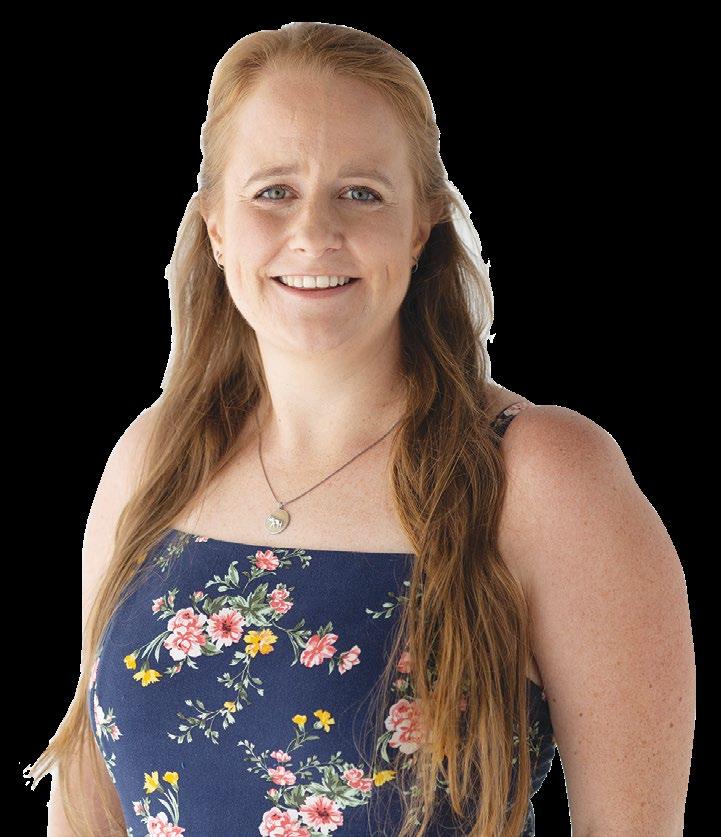

Cayman's Super Nannies
Do your qualifications prepare you well for professional nannying?
I trained at Norland College in Bath, UK. It’s a worldrenowned training college for professional nannies. My qualifications include a BA (honours) in Early Childhood Studies, the Norland Diploma, Paediatric First Aid as well as Self-defense, Baby Massage and Maternity Nursing. My training covered all areas on childcare including theoretical and practical aspects of child development. There was plenty of in-person experience through placements, as well as lectures delivered by Norland trained nannies, who progressed their career on to teaching after many years of nannying. Throughout my years of nannying I have completed several more childcare courses to keep my knowledge current. I think one of the biggest benefits of my training was the practical skills taught, such as meal planning and cooking lessons. I cook healthy homemade meals for the families I work for, I take direction from the family on what sort of foods they’d like the children to eat and develop menu plans from that.
What aspects do you find most challenging?
The most challenging part of nannying for me, is having to move on and leave a family. I develop such connections with the children I care for, that leaving is so difficult. Whether it’s a decision from the family that they simply don’t need a nanny anymore or my decision that it’s time for a change.
What has looking after children taught you?
What hasn’t it taught me? Over the years and with each job I’ve learnt so much about myself and about other people. Looking after children has taught me to view the world from so many different angles. Not just from a child’s point of view, but also the parents and the grandparents. I often find myself thinking: where did that thought come from? What were they thinking about before they asked that question? A child’s thoughts can be hilarious and random at times. Nannying has taught me to try finding the positives in each moment and I’m sure there is still more to learn.
Evelyn Lunn is a Norland trained nanny from the UK and has 10 years experience of working with children of all ages.
EARLY YEARS
Cassandra Williams
Evelyn Lunn
30 Fun Things To Do With Kids Every Day of the Month!
creatures. Ride the Turtle Twister waterslide too! Entrance for resident children under two is free, CI$10 for children aged 3-12 and they offer annual resident passes: CI$75.60 for adults and CI$50.40 for children. A valid Cayman ID is required.
8. Practise your plane spotting at the Airport Park (the playground opposite Foster's). Aviation enthusiasts big and small will love watching the planes take off and land. Bring a blanket, lay down in the grass and make yourselves comfortable for the full effect of feeling the rumble of the engines and the wheels upon impact!
9. Lounge in the hammocks on the island at Camana Bay. Sometimes doing nothing is really, really fantastic. Encourage your kids to bring a book and spend some time just swinging away in the shade of the palms.
1. Visit Cayman’s public parks and make it a family goal to try each park on-Island. See pages 250-251 for a complete list and a map.
2. Community chess classes and open challenges are free and open to anyone, including complete beginners. Every Saturday at the George Town Library from 11am-12pm.
3. Grab a mask and snorkel and check out Cayman’s top snorkelling sites including Turtle Reef (West Bay), Cemetery Beach (SMB), Governor's Beach (GT), Morritt's (East End) and Rum Point (Cayman Kai). Also try the sandbar to swim with the stingrays. Take a boogie board so that children can float above the rays and look down on them. Very exciting stuff!
4. Hike the Mastic Trail and look out for parrots, hermit crabs and beautiful birds along the 2.3 miles. Don’t forget to pack water and bug spray! Self-guided leaflets are available from the National Trust’s Visitor Centre. (Not suitable for children under 10.)
5. Experience the thrill of hermit crab racing. Find hermit crabs (rainy season is best for this!), mark your competitor with a dab of paint, draw a big circle in the sand and place the crabs in the middle. First crab to the edge wins!
6. Visit the duck pond on Bel Air Drive where kids will be able to feed ducks, chickens and loads of hickatees (turtles). Try not to feed them bread or crackers as it’s not good for their tummies. Instead bring corn, peas or seeds.
7. Plan a family adventure to the Cayman Turtle Centre where kids can learn about these amazing and majestic
10. Discover historic and natural sites with the National Trust’s Explorer Passport available to purchase for CI$10. With nearly 40 sites to see and explore – many hidden – adventure is calling for all to enjoy. The Passport includes a map of Grand Cayman and a fun sticker sheet to mark off the stops you’ve made along the way. They have also launched an option which covers the Sister Island's historic properties and areas of environmental significance. It's very popular with staycationing families!
11. Plan a beach clean-up with friends or family members. Bring lots of rubbish bags and see who can collect the largest bag of trash for bragging rights to Seven Mile Beach Saviour of the Year! Check out Plastic Free Cayman's Facebook page for the next beach clean-up. They are sociable and fun!
12. Visit Pedro St. James and check out the 3D movie theatre, playground and the 18th Century Great House! Kids under 6 enjoy free entry.
13. Play some beach volleyball. You’ll find nets at Public Beach (SMB) where you can teach your kids to bump, set and spike their way to victory. Follow practice drills with some healthy family competition. Don’t forget to bring a ball!
14. Practise rock climbing at Camana Bay. Be sure kids are wearing some sturdy trainers with good grips and, with your supervision, they can practise their climbing skills on the rocks lining the Crescent by the fountains.
15. Take a trip to Starfish Point and count how many of these fascinating marine invertebrates you can spot amongst
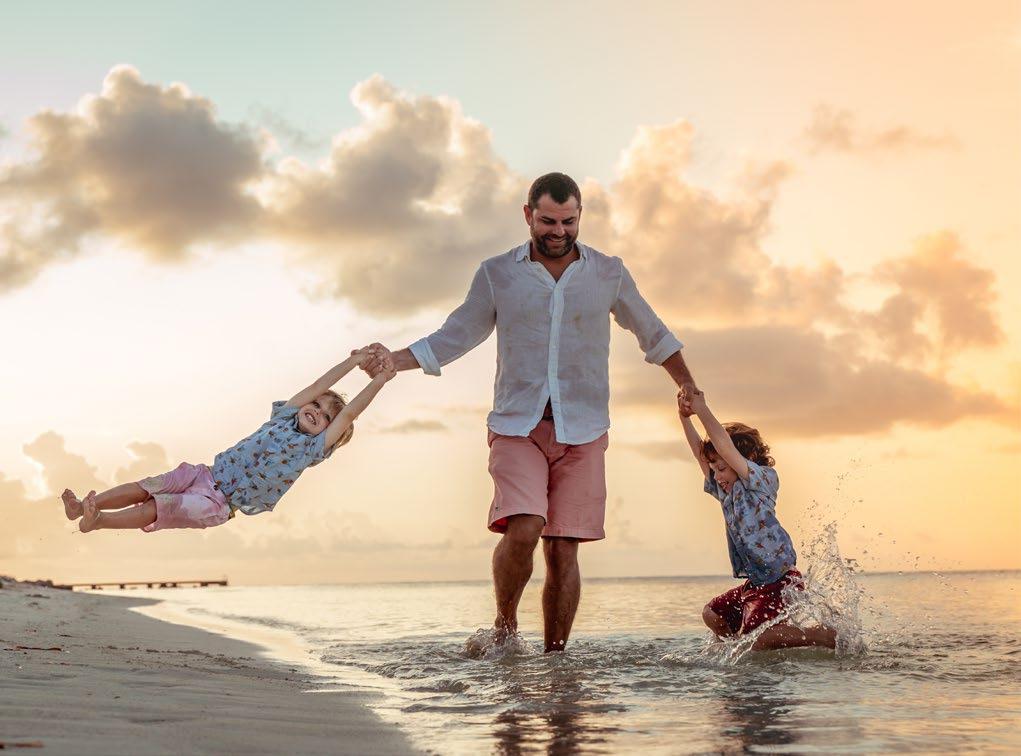
Cayman Parent Magazine | Early Years248 EARLY YEARS
Photo courtesy of Rebecca Davidson
the shallow shores. Be sure not to remove these little guys from the water!

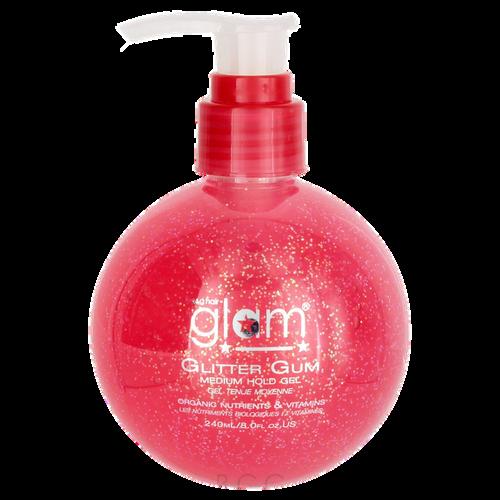



16. Visit the Humane Society and give Cayman’s homeless cats and dogs some much needed attention. The pups are always eager for a good stroll and the kitties in the cat room are always happy to receive a cuddle or two!
17. Visit the Cayman Islands Museum. Learn about Cayman’s history and stroll through the children’s gallery. Take a virtual submarine dive and view a turtle nesting site. Residents enjoy free entry on the first Saturday of each month. Children under 6 also enjoy free entry.
18. Plan a day trip out to East End. Stop along your way at the blow holes and watch your kids’ wonderment as the powerful sea water is blown into the air. Or head to Lovers Wall for a walk along the rocks, and maybe a photo or two, stopping for a picnic lunch on your way back home!
19. Have a sandcastle building contest. Make the most of Cayman’s beaches and host your own sandcastle building competition. May the best imagination win!

20. Enjoy free entry to the National Gallery and pick up a Family Guide filled with interactive activities such as scavenger hunts and games. Don’t forget to see the permanent collection upstairs.
21. Feed the tarpons at Rackam's or The Wharf. matter the age, kids and adults are sure to be impressed by the sheer size of these fish. With nightly feedings, show up, grab yourselves some grub as well, sit back and enjoy a truly entertaining show!
22. Climb the 75ft Observation Tower and enjoy panoramic views of Grand Cayman. Check out the mosaic tiles, which mimic the experience of scuba diving Little Cayman’s famous Bloody Bay Wall. Spot the horse-eye jacks, the spotted eagle ray and other marine life!
23. Head to Spotts beach turtles who come in to feed on the seagrass. The rock pools to the far right of the dock are also fun to explore when the tide is low; here you can search for whelks, crabs and tiny fish.
24. Visit Davinoff’s Concrete Sculpture Garden. Located between Old Man Bay and Old Robin Road in East End is a child-friendly, larger than life animal sculpture park which provides excellent photo opportunities for both adults and children.
25. Play baseball. Learn how to play baseball for free in a fun and safe environment. Coaching and the uniform are included but children must bring their own glove. Contact the Cayman Islands Little League Association at info@littleleague. ky to register.
26. Cool down in the fountains at Camana Bay. Both operate daily on the Crescent and outside Jasmine Court.
27. Head to the local Farmer's Markets. Learn to identify vegetables and learn about how they grow by talking to local farmers at the Camana Bay market on a Wednesday (from 10am-4pm) and The Hamlin Stephenson Farmers' Market next to the Cricket Pitch in George Town on Saturdays (from 7am-3pm).
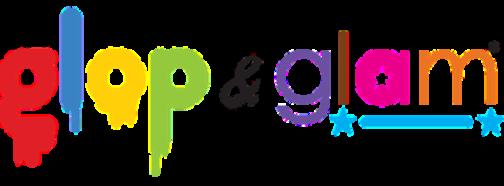
28. Watch the weigh-ins at fishing tournaments for a chance to see some truly impressively sized fish! Visit the Cayman Islands Angling Club’s website to learn of upcoming tournament dates and locations for weigh-ins at www. fishcayman.com.
29. Visit local artist Gordon Solomon’s art studio, Solomon Studio, in Cayman Brac, for a truly incredible artistic experience. His studio is open by appointment. Visit www. gordonsolomon.com for more information.

30. Visit the Cayman Parrot Sanctuary in East End, to meet their resident parrots and birds, feed the tame and friendly agouti, have a local grass snake wrap itself around your wrist and play on the zipline and slides. Open

www.caymanparent.com 249 EARLY YEARS
BOOK NOW KIDS CUTS
A N D H A
I
R P R
O
D
U C T S ( 3 4 5 ) 9 4 3 3 7 2 2W E C A R R Y T H E O R G A N I C L I N E @ S T U D I O 5 4 W E S T K Y S T U D I O 5 4 W E S T C A Y M A N W W W . S T U D I O 5 4 W E S T . K Y
Parks & Playgrounds

Cayman has a wealth of public parks and playgrounds with climbing frames, swings, restrooms and shaded areas. They can be found everywhere from West Bay to North Side and are a fun place to spend time with your children.
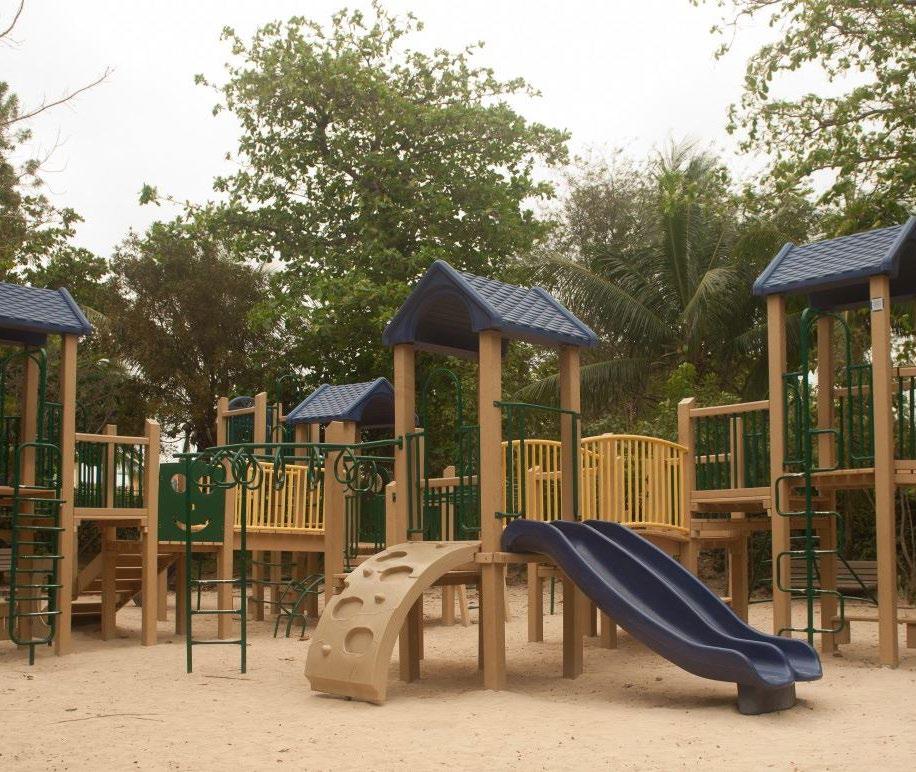
Cayman's parks are a great place to host a children's party for free! Call the Parks Department on (345) 946 8250 for more information.
1 Scholars Park
Corner of Birch Tree Hill Road and Stadium Drive, West Bay
Sanded play area, playground, baby swings, restrooms, drinking fountain, gardens and shaded grassy areas.
2 Garvin Park
Garvin Road, West Bay
A small park with a sand box, a jungle gym, restrooms, plus a dock by the sea.
7 Foster's Airport Park
Dorcy Drive, George Town
3 Seven Mile Beach Park
Next to Public Beach
Playground, grassy area, restroom facilities, trees for shade and a new calisthenics park.
4 Camana Bay Fountains
A. Jasmine Court, Camana Bay Mini fountains, perfect for toddlers to splash around in! B. The Crescent, Camana Bay Bigger kids will enjoy the fountains which spout water 30ft in the air.

3
Climbing frame, swing set, basketball court, shaded picnic area and restrooms.
8 Newland Heights Park
Hemlock Way, off Moonbeam Drive, Savannah
Children’s play set, sand pit area, basketball court, BBQ pit, landscaped areas and a gazebo
9 Moonbeam Park
Moonbeam Drive, Savannah Jungle gym play area set in sand, cabana and a half basketball court.
10 North Sound Gardens Park
5 Windsor Park
Corner of Mango Turn and Hawkins Drive, off Windsor Park Drive, GT Two climbing frames, swings, covered picnic area and a full-size basketball court.
6 Dart Park
South Church Street, south of GT Slides, climbing frames, an amphitheatre, gazebos, lots of shade and restroom facilities.
Children’s play set, sand pit, BBQ, cabana, basketball court and landscaped areas
Pedro St. James
Pedro Castle Road, Savannah
A playground, acres of green space, nature and history trails, restrooms and refreshments to purchase.
EARLY YEARS Early Years
4 11 4
5 8 1 10 79 6 2 1 6
14 Mastic Trail
Off Frank Sound Road
of semi-deciduous forest
wetlands
explore.
offers a three hour
Jerald Smith Park
National
Hutland Avenue, across from the North Side Police Station
and swing set, shaded picnic area and restrooms.
18 Davinoff's Concrete Sculpture Garden
Old Robin Rd, Old Man Bay
a range of concrete animals
iguana,
20 Cayman Parrot Sanctuary
Austin Conolly Dr, East End
land crab
parrots, agoutis, reptiles and other local wildlife. Two playgrounds, plenty of shade, restrooms and refreshments for sale. Check opening hours. CI$16 adults, CI$ ages 3-15,
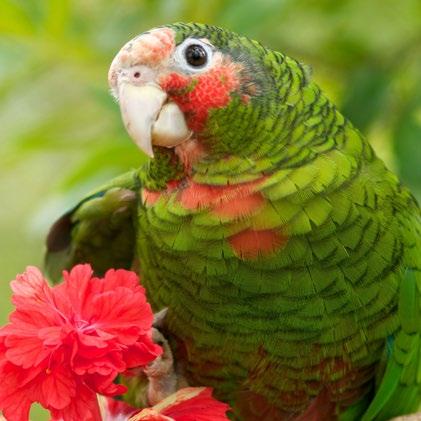

for under
15 Frank Sound Park
Off Frank Sound Road, North Side Small play area, sandbox, swing set, grassy area and restrooms.
12 Harold McCoy Sr. Park
Gun Square Road, Bodden Town Jungle gym, play facilities, shaded picnic areas, restrooms and a BBQ area.



open
days
17 Captain George Dixon Park
Sea View Road, East End
facilities, slide, shaded picnic areas, water fountain, BBQ area and restrooms.
16 Queen Elizabeth II Botanic Park
Off Frank Sound Road, North Side
Over 65-acres with different gardens and trails to discover plus a wonderful new children's garden.


19 Wreck of the Ten Sails
Sea View Road, East End Look out area and restrooms.
14 12 16 13 17 20 18 15 1419 12 16 13 17 20 18 15 19
843-acres
and
to
The
Trust
guided tour on Tuesdays and Thursdays.
View
such as a 16ft
6ft
and a 17ft crocodile. Free.
Meet
free
2s.
Play
Slide
11 Open & Close Times Parks are
seven
a week from sunrise to sunset! Don’t forget sunscreen! See our article on Sun Safety on page 263. 13 12 16` 17 11 20 18 251
Listings
Playgroups, Childcare, Book Shops, Sun Safe Clothing, Child Proofing
Book & Toy Shops
Atlantic Kids
Paddington Place, Godfrey Nixon Way, George Town. Tel: (345) 943 2296 Web: www.atlanticak. com Atlantic Kids carries a great selection of fun, award-winning toys for boys and girls at affordable prices. They also sell a unique selection of books and educational items to help children learn to read, count and improve their analytical skills. They sell Jansport backpacks and other back to school items.
Baby Express
68 Mary Street, George Town. Tel: (345) 640 2397 Email: customerservice@babyexpress.ky They sell a small but good selection of toys for children from newborns to age five years. They also stock Fisher-Price toys.
The Baby Shoppe/The Toy Shoppe
Alissta Towers, 85 North Sound Road, George Town. Tel: (345) 949 2229 On one side is a large and very useful selection of items needed when you have a new baby, and on the other side is a large toy store very similar to a Toys R Us in the USA. They have one small shelf of books.
Bedside Manor Market Street, Camana Bay. Tel: (345) 947 2711 Web: www.bedsidemanor.ky A good selection of high quality toys for infants and toddlers including stuffed animals, crib mobiles and playmats. They also sell high end sheets, pillows and duvets.
The Book Loft
Above the Humane Society, 153 North Sound Road, GT. Tel: (345) 946 8053 A large selection of second-hand books, games and puzzles in good condition. Volunteers are very helpful if you need advice on books to get for your children.
Book Nook
Unit #1, Galleria Plaza, West Bay Road, Seven Mile Beach. Tel: (345) 945 4686 A much-loved bookstore that also sells lots of toys and games for children. They have a dedicated section for toddlers with board books and lots of toys, and in the main part of the store they have two aisles dedicated to child's books.
The Bump to Baby
The Strand, SMB. Tel: (345) 938 6498. Email:
thebumpboutique@outlook.com
Web: www. thebumptobaby.com A beautiful selection of high quality maternity clothing, nursery décor, baby and kids clothes, baby equipment and other newborn essentials.
Cost-U-Less
Governors Square, 51 Lime Tree Bay Avenue. Tel: (345) 745 5377 Web: www.costuless.com A reasonably priced selection of toys.
Next Chapter
45 Market Street, Camana Bay. Tel: (345) 640 2665 Web: www.nextchapter.ky A large range of high quality children’s books, toys and craft activities with options for all budgets.
Priced Right
Two locations: Airport Centre, 63 Dorcy Drive, GT. Tel: (345) 815 1070; Republix Plaza, 2373 Willie Farrington Drive, West Bay. Tel: (345) 949 3214 Web: www.fosters.ky They always have a small selection of well-priced toys that increases in quantity and options closer to Christmas.
Children's Hairdressers
Studio 54 West
Galleria Plaza, West Bay Road. Tel: (345) 943 3722 Email: info@studio54west.ky Web: www.studio54west.ky A chic modern salon offering organic products, trained stylists and a barbershop that features an all-star lineup of the best talent in the men's grooming industry. Not just for children but they will love it!
Child Safety Equipment
A. L. Thompson's 189 North Sound Road, George Town. Tel: (345) 949 8622 Web: www.althompson.com ALT sells Dreambaby® safety items to childproof your home.
Kirk Home Centre 257 Eastern Avenue, George Town. Tel: (345) 949 2521 Sells Safety 1st® along with Dreambaby® and Toddleroo® safety items to childproof your home.
Pool Patrol
North Sound Plaza, George Town. Tel: (345) 949 8543 Web: www.poolpatrol.ky They sell various levels of safety equipment.
Childcare Agencies
AAA Caregivers Agency
Tel: (345) 916 5925 Email: aaacaregivers@candw. ky Web: www.aaacaregivers.ky A childcare agency with experienced and trained nannies. They also offer evening babysitting services.
Best Home Care Agency
Tel: (345) 947 2297 Email: bhc@candw.ky They offer housekeeping and occasional babysitting services.
The Perfect Maid & Nanny Agency
Tel: (345) 325 0090 Email: theperfectmaidandnannyky@gmail.com Their aim is to be the company that people call when they want reliable, high quality, professional housekeeping and babysitting services.
Domestic Staff Training
The Minerva Academy
Tel: (345) 746 9999 Email: info@minerva.ky Minerva Academy is the local training solution for your private staff in Cayman. Their training courses are specifically designed for domestic staff to UHNW and high profile individuals and families, busy professionals and individuals who travel extensively and who are in need of reliable, well-informed support at their home base or their Cayman vacation property.
Educational Subscription Boxes
BrightBox Cayman
Email: brightboxltd@gmail.com Web: www. brightbox.ky Research-based, kid-approved and very affordable, BrightBox offers over 20 different Maths, Sensory or Innovation-themed boxes to educate and inspire children from preschool to Year 6 (11 year olds). Created in Cayman specifically for Cayman kids, these boxes cost CI$25 each and are customised depending on your child's age. They are then hand delivered to your home or office.
Playgroups
CayCubs
The Grove, West Bay Road and Harbour Walk, Grand Harbour, Red Bay. Web: www.caycubs.
Cayman Parent Magazine | Early Years252 EARLY YEARS
the
com Due to open in late 2022 this multifunctional fun soft play facility with two locations is for children up to 10 years of age. It is an immersive sensory playground designed to inspire, excite and educate.
Lil' Monkeys
Bodden Place, Shedden Road, George Town. Tel: (345) 929 5737 Web: www.lilmonkeyscayman. com Indoor playground and café open Wednesday to Sunday 10am-6pm.
Motions Unlimited
Sparky's Drive, George Town. Tel: (345) 749 8365 Web: www.motionsunlimited.com They have a full weekly schedule of classes for children from 18 months of age and up. Their Toddler Play Day sessions on Wednesday, Thursday, Friday and Saturdays are extremely popular and are a great way to meet other parents while your children run about and let off steam.
The National Gallery of the Cayman Islands
Esterley Tibbetts Highway. Tel: (345) 945 8111 Web: www.nationalgallery.org.ky Offers art classes and family fun days. Family tours available. They also often put on special classes for children which are interesting and creative. See their website for upcoming events.
South Sound Playgroup
Cayman Baptist Church Youth Centre, 163 Pedro Castle Rd., Savannah. Tel: (345) 943 6556 Email: southsoundplaygroup@gmail.com Web: southsoundplaygroup.ky Held Mondays 9.30am-11.30am. It's a great place for children to meet each other, socialise and play. There are lots of toys, a craft activity and snacks. The parents and nannies love it as well as they can socialise while their children play safely.
Swimwear & Sun Tops
Atlantic Kids
Paddington Place, Godfrey Nixon Way, George Town. Tel: (345) 943 2296 Web: www.atlanticak. com They have a large selection of swimwear and suntops for children from infants to teens.
Divers Supply
West Shore Centre, West Bay Road. Tel: (345) 949 7621 Web: www.diverssupply.ky A good selection of swimwear and sun tops for children.
Divers World
Seven Mile Shops, West Bay Rd. Tel: (345) 949 8128 Kids swimwear and sun tops, also wetsuits, sun hats and beach toys.
Funky Monkey
Governors Square, West Bay Road. Tel: (345) 943 8659 A fantastic selection of swimwear, sun tops, rash guards and hats for children.
J Michael
The Strand Shopping Centre, Canal Point Drive, off West Bay Road. Tel: (345) 946 5310 Web: www.jmichael.ky They sell a a good selection
of affordable swimwear, suntops and hats for children.
Little Angels
Market Street, Camana Bay. Tel: (345) 946 2645 Extensive selection of high-end SPF 50+ sun protection tops, swimwear, jelly shoes and more. They are the exclusive Cayman Islands distributors for Lilly Pulitzer, Snapper Rock, Seafolly and OMG accessories.
Red Sail Sports

Located at the Kimpton Seafire, Westin, Camana Bay, Locale and the Morritt's shops. Tel: (345) 623 5965 Web: www.redsailcayman.com Swimwear and sun tops for adults and children.
Waterman Cayman/Blue Wave
10 Shedden Road, GT and 6 Galleria Plaza, West Bay Road, SMB. Tel: (345) 769 7873 They sell really cool board shorts for boys and men plus rash guards and sun tops for adults and children. The brands they carry include Billabong, Dakine, Ocean Tec, Reef, Quicksilver, Rip Curl, Roxy, Rvca and Vissla. They are also the Cayman distributors for YETI water bottles.
Themed Parties
Cinderella Enchanted Parties
Tel: (345) 923 6797 Email: cinderellasparties@ gmail.com Web: www.cinderellasparties. com They offer magical princess and exciting superhero party packages either in-person or online for 60, 90 or 120 minutes for 1 - 20 children. The various packages include an introduction and story time from the character you have chosen followed by a princess makeover or superhero tattoo session and/or face painting. Then princess and superhero lessons, a Princess Coronation or Superhero Ceremony, followed by one or two games, photo time and then cake.
Swimming Lessons
CBAC (Camana Bay Aquatic Club)
95 Minerva Dr, Camana Bay. Email: info@cbac. ky Web: www.cbac.ky CBAC is a swim club based at the Camana Bay Sports Complex where professional coaches teach adults and children how to swim, how to improve their stroke and they offer synchronised swimming lessons.
Darren Mew Sports & Fitness
Lions Aquatic Centre, Olympic Way, George Town & Ocean Classes Tel: (345) 323 9512 Email: darrenmewswimming@hotmail.co.uk Swimming lessons for children ages three and upwards.
Fitness Connection
1 Bambi Close, Glen Eden Road, South Sound. Tel: (345) 949 8485 Email: fitness@fitness. ky Web: www.fitness.ky A Starfish Aquatic Institute Training Centre offering a variety of programmes for all ages and abilities. Swimming lessons for babies begin at six weeks old. Private and group classes available.
Sky Blue Aquatics
Tel: (345) 916 0054 Email: info@ skyblueaquatics.com Web: www. skyblueaquatics.com Mobile swimming instructor with lessons for ages four months to adults. Private, semi-private and small group lessons provided.
Stingray Swim Club
Lions Aquatic Centre, Olympic Way, George Town. Email: stingrayheadcoach@gmail. com Web: www.caymanswimming.com Competitive swimming club for ages six and up.
Seven Mile Swim Team
Lions Aquatic Centre, Olympic Way George Town. Tel: (345) 916 5377 Email: manager@ sevenmileswimmers.com The Seven Mile Swim Team is a not-for-profit competitive swim team managed by Terri Barrowman; they offer swim meets on and off the Island starting with children aged seven.
Water Play Parks
Camana Bay's Water Fountains Web: www.camanabay.com Camana Bay has two sets of fountains which children can play in any time of the day or evening.
Cayman Turtle Centre West Bay. Tel: (345) 949 3894 Web: www. turtle.ky Breakers lagoon at the Cayman Turtle Centre has two waterfalls, an underwater viewing panel to peer into the predator tank and a waterslide called the Turtle Twister. The waterslide is 15ft high, 100ft long, is great fun and is loved by children!
Kimpton Seafire Splash Park 60 Tanger Way, Seven Mile Beach Web: www. seafireresortandspa.com The Splash at Seafire is a new 14,000sq ft splash park featuring elements of Cayman's native flora and fauna. The park is open from 10am-4pm daily for guests of the hotel and also for residents if there is availability and the spot is booked in advance. Visit https://seafire.idaypass.com and check for an opening day and time. You can book for a 10am-1pm slot or a 1pm-4pm slot at a cost of CI$25 per person. It is designed primarily for use by toddlers and primary school aged children.
Starfish Cay Splash Park at the Ritz Carlton Seven Mile Beach, Grand Cayman Tel: (345) 943 9000 Open for residents seven days a week, this fun and interactive waterpark is great fun for young children and a relaxing place to watch them squeal with laughter as the huge bucket of water drenches them! The cost is CI$25 per person (toddlers under 2 go free) and this includes towels, suncream, iced water, shaded lounge chairs and a server bringing you whatever you need! Their Italian restaurant called Andiamo is now open and it serves family-friendly food which can be served in the splashpark as you watch your children play.
EARLY YEARS 253www.caymanparent.com
Cayman Island's Sailing Club

The National Sailing Authority of the Cayman Islands
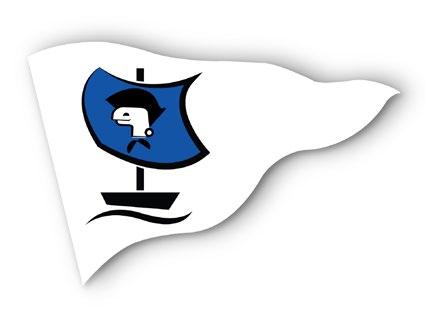
The Cayman Islands Sailing Club (CISC) is the National Sailing Authority of the Cayman Islands and accordingly governs and promotes the sport of sailing. A not-for-profit organisation, the Sailing Club was established in 1965 and was the first officially registered sporting organisation in the Cayman Islands when it started operating from the old Beach Club site (now Watercolours) on Seven Mile Beach. It relocated to its present location in Red Bay in the late 1980’s and over the years its sailing programmes have grown from strength to strength.
CISC provides lessons for adults and youth, and an extensive fleet of boats is available for hire to members and non-members. CISC also hosts kids camps during the school holidays.


CISC Summer Camps: Under the instruction of CISC’s talented and caring coaching team, another generation of youngsters get an introduction to the sport of sailing whilst having fun in and on the water. CISC offers camps for age ranges 6-16 during the school holidays.
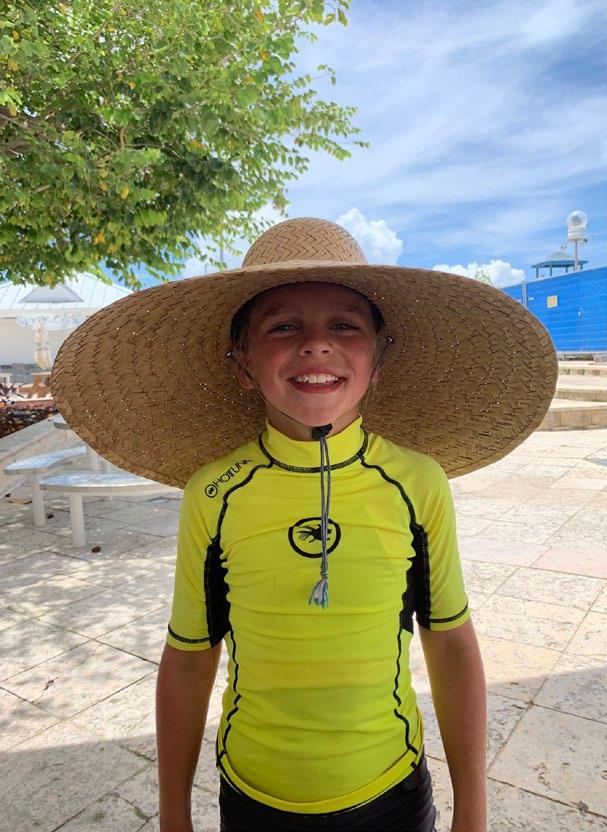
Youth Sailing Programme: The Club has an active and successful youth sailing programme, that caters for all levels of youth sailors; from their first introduction to the sport, to sailors in the Youth Racing Team(s), who represent Cayman internationally and aspire to compete at the highest level.

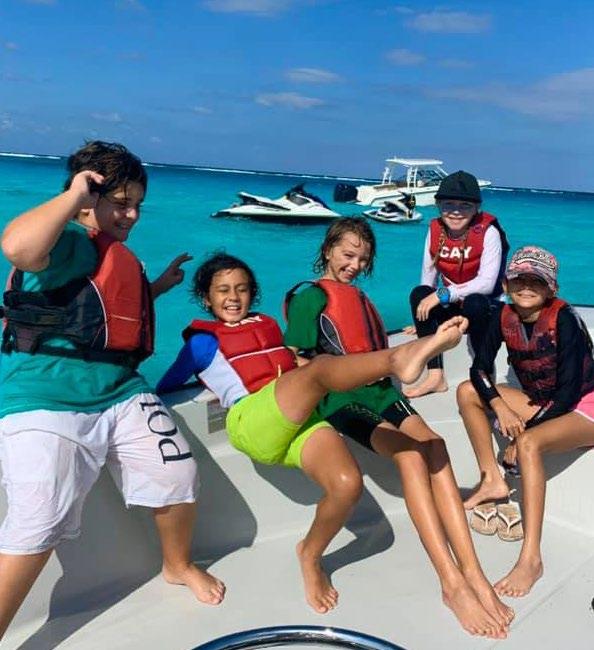
"We are dedicated to providing the best possible sailing experiences to everyone in the Cayman Islands."
Details:
• Hours: Wednesday to Sunday 9am-5.30pm
• Ages: 6 and Above
• Fees: Dependent on service, see website for details or contact CISC directly.
• Booking: Visit website.
Highlights:
• Kids Camps
• Youth Sailing Programme
• Adult Sailing Lessons
• Fleet Racing
• Boat Rental and Storage
• Social Events for Adults and Families
(345) 947 7913 | 244 Spinnaker Road, Red Bay | admin@sailing.ky | www.sailing.ky
Cayman Parent Magazine | School Age254
School
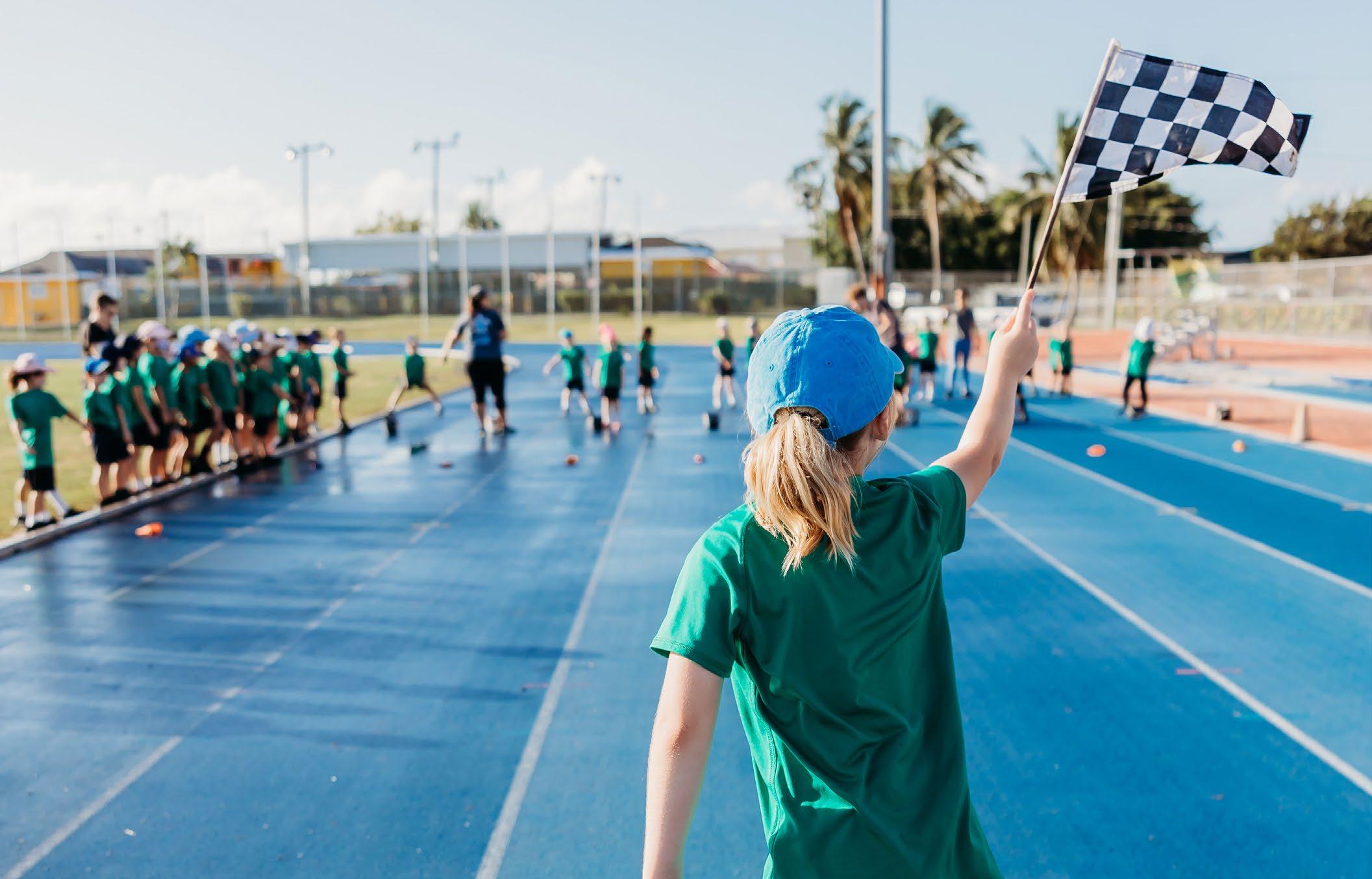
255www.caymanparent.com
Age Contents After-school activities, bullying advice, family volunteering & more... Keeping Cayman Kind: How to Spot p256 & Stop Bullying After-School Classes & Activities p260 Sun Safety for Kids p263 Raising Children with Faith p264 Giving Back: Family Volunteering p266 in Cayman Primary School Teachers Q&As p268 The Perfect Party Checklist p270 Get to Know Your Public Library p273 School Age Book Club p275 The Listings p276 Photo courtesy of Daria Keenan Photography
Keeping Cayman Kind: How to Spot & Stop Bullying
With over 130 nationalities residing in the Cayman Islands, respect for a wide variety of traditions and values has long been engrained in Cayman’s cosmopolitan culture. So much so that the term ‘Caymankind’ has been adopted to describe our welcoming spirit and the importance of extending courtesy, compassion and kindness to others. However, bullying in schools threatens to derail these noble values. In the most recent Cayman Islands Student Drug Use Survey, the National Drug Council reported that 55% of children had been bullied. Distressingly, those children who reported experiencing bullying were over four times more likely to attempt suicide. Cayman Parent offers further insight into Cayman's bullying issue and what steps can be taken to protect your children.
What is Bullying?
Bullying can take on several forms, including physical, verbal, emotional, psychological and cyberbullying. Bullying happens when someone deliberately and repeatedly does or says something to another person which they find upsetting, embarrassing, hurtful, worrying, frustrating, humiliating or even frightening. People can be affected by bullying in three ways –as the one being bullied, as an observer who sees it take place or as the person behaving in an intimidating way. Obvious examples of bullying include loud and threatening behaviour, yelling in someone’s face, and pushing and kicking. However, more insidious examples include telling secrets, spreading rumours, excluding others and whispering behind someone’s back. These more subtle forms of bullying can often continue for longer and be more difficult to address.

Cyberbullying
Today's children can be subjected to bullying through a variety of digital platforms. Since hiding behind a screen allows bullies to remain anonymous or even impersonate others online,
cyberbullying can take on extreme forms. Negative comments and pictures circulated online through instant messages, social media and websites can spread very quickly and have destructive and long-lasting consequences for the victim. He or she who experiences this barrage of ‘hate’ daily can very quickly succumb to feelings of depression and/or anxiety as a result.
In response to the growing issue, Logic launched an ongoing initiative and in-depth documentary in 2019, titled The Change Project, that aims to shine a light on cyberbullying in the Cayman Islands and its impact on the mental health of those affected. The Change Project strives to make a difference in the community, by encouraging people to take an online pledge to be mindful, kind and considerate when it comes to engaging online. Visit www.thechangeprojectcayman.com for more information.
The Family Resource Centre’s Anti-Bullying Programmes
Charmaine Miller from the Family Resource Centre (FRC) has spearheaded three initiatives to stamp out bullying in Cayman: Owning Up & Connecting, Stop Now and Plan (SNAP)®, and Take a Stand Against Bullying. These programmes seek to spread awareness of the harmful effects of bullying and teach children how to stop bullying in its tracks; but most importantly, encourages a culture of upstanders and social responsibility.
Owning Up & Connecting
This early intervention initiative is based on developing a culture of personal dignity amongst students and it operates throughout public and private schools across the Islands. Ms. Miller explains that, “The course is centred on empathy and raising kids’ self-awareness and responsibility to stand up when you see bullying behaviour. We focus on an ‘I’ message rather than placing blame.”
Cayman Parent Magazine | School Age256
C M Y CM MY CY CMY K
We took the pledge to end cyberbullying.
The Change Project
Take a stand against cyberbullying and help make the online world a safer place. Take the pledge by scanning the link and let’s make a change.

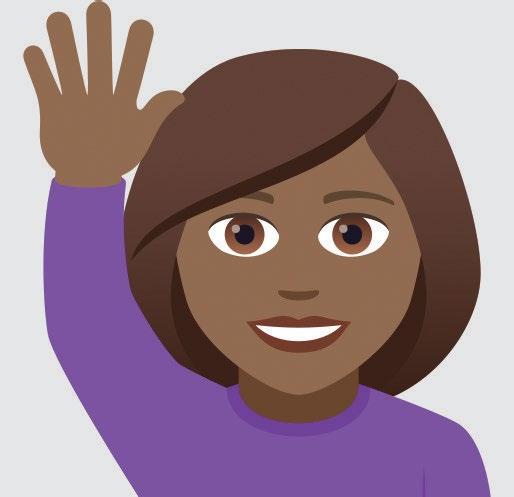
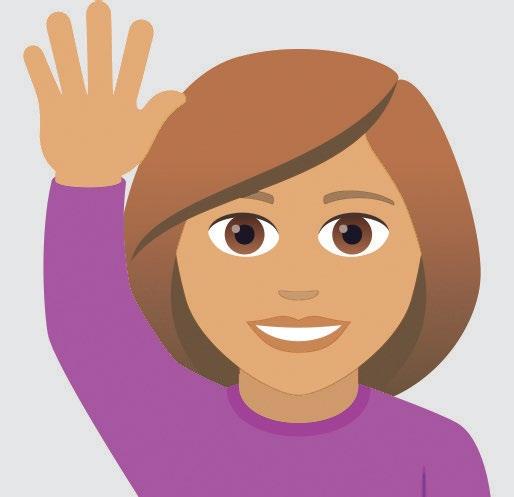
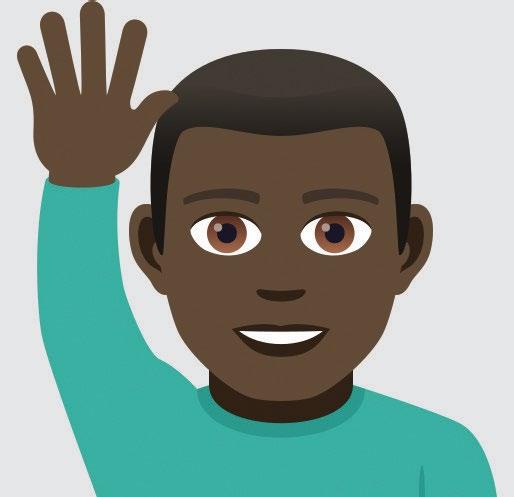
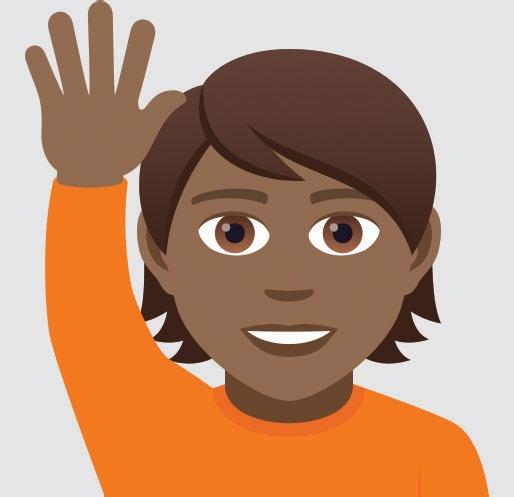
www.logic.ky | thechangeprojectcayman.com
The Family Resource Centre responds to requests from schools and provides workshops which address that school’s particular concerns. These are an hour per week and are run for eight weeks on the school's grounds. Children are addressed as a year group so that no individual feels singled out or that they are attracting unwanted attention. “Schools reach out to FRC depending on their need. The Owning Up programme is a great opportunity to ensure a continuous and effective dialogue with the children and teachers,” says Ms. Miller.
Bullying can manifest differently among schools. An important element of the programme is its flexibility and the way it can be moulded to 'fit' the school environment and focus on different issues as they arise. “Typically, the school is very strategic about what assistance they are looking for it depends on a particular class or scenario such as the exclusion of a child by peers and their social group because the child has a disability”.
The programme aims to implement child-friendly anti-bullying strategies in schools so that children will feel confident to put them into practice in everyday situations. It is also hoped that an increase in awareness amongst schools will lead to more reporting of incidents and less tolerance of bullying behaviour. Students are encouraged to think about the ‘SEAL’ acronym (see box) when dealing with bullying.
Teacher participation is encouraged throughout the duration of the course so that they can use the tools to reinforce what the children have learned once the workshops are complete. Although there is no direct parent involvement in the programme, home exercises are set which cover topics such as friendship, how to apologise and how to deal with teasing, which parents can discuss in more detail with their children.
Taking a Stand Against Bullying
Taking a Stand Against Bullying is a campaign promoting awareness of bullying which has been running since 2013 and is growing in support every year. Ms. Miller says: “We thought that, in addition to the schools programme, why not include a community initiative which builds awareness of bullying?” The campaign was inspired by a pink t-shirt campaign in Canada that started when two senior boys in Nova Scotia saw a ninth grader being bullied for wearing a pink t-shirt to school. That same day they went to the dollar store and bought 20 pink shirts to wear to school in solidarity with the boy. The Family Resource Centre retells this story to connect with children
S – Stop. Think rather than react.
E – Explain. Identify the bullying behaviour.
A – Affirm & Acknowledge. Identify your rights and how you deserve to be treated.
L – Lock In or Lock Out. The friendship.
and demonstrate the world wide support that anti-bullying messages have across student populations.
October is anti-bullying month in Cayman, which ties in with the Family Resource Centre’s 16 days of activism against gender-based violence. On the last Friday in October, people can dress down or wear pink shirts to support the anti-bullying message and help to raise funds for the initiative. Sales of t-shirts in support of the campaign have sky-rocketed in recent years. “It’s just taken off here in Cayman. We are extremely pleased with the community’s engagement, which is reflected in the hundreds of shirts sold yearly,” says Ms. Miller. In 2018, the first Stood Up Fair was held at the Arts and Recreation Center (ARC) in Camana Bay where competitions were held for children to submit songs, posters and projects as part of a ‘science fair concept’ to promote the anti-bullying theme.
Stop Now and Plan (SNAP) ®
SNAP is an evidence-based, cognitive-behavioural model powered by the minds at Child Development Institute (CDI). SNAP® helps children and their parents learn how to effectively manage their emotions and “keep problems small.”
The gender-sensitive SNAP® Boys and SNAP® Girls programmes are designed for children ages 6-11 who are engaging in aggressive, anti social behaviour and/or have come into contact with authority figures at school or in the community. Experienced and highly trained staff work with each family to assess the problems and develop an action plan. Children and families may participate in the following components, with the goal of preventing future anti social behaviour and reducing the chances of conflict with family, peers and authority figures.
Boys and girls attend gender-specific weekly group sessions for 13 weeks. A variety of topics, including dealing with angry thoughts and feelings, self-control, problem solving and bullying are addressed. The parent group meets concurrently with the SNAP® Boys/SNAP® Girls groups. Parents learn effective child management and SNAP® strategies. The group also provides parents with an opportunity to make connections with other parents facing similar challenges.
What You Can Do
Advice for Parents
The FRC reminds parents that they have the greatest margin of influence in their child's life. Therefore, what is role-modelled and topics that are discussed openly around children will shape the way they see the world.
Parents must be mindful of the impact they are having and ensure their children are receiving messages of kindness, positivity and safety. Avoid harmful messaging that might encourage bullying, aggression or violence in any way. Children can also project feelings of hurt onto their peers when experiencing certain hardships, so open communication built on empathy and trust is very important for parent-child relationships.
258 Cayman Parent Magazine | School Age
If your child is being bullied and you want to get involved, it's important to include them in the process. It will help empower them to navigate a world that is not always sugar-coated or fair.
• The Family Resource Centre encourages parents to teach children to stand up safely and confidently to bullying rather than retaliating. However, if there is a persistent or immediate danger to the child, the best thing to do is to contact the school and make your concerns known to a teacher who can bring the bullying to an end.
• The Family Resource Centre operates within the Department of Counselling Services so referrals to other health professionals such as therapists can be made swiftly to address issues on a case-by-case basis.
• In extreme cases, it may be appropriate to consider contacting the authorities to move forward. In its 2016 paper, ‘Bullying: Legislation, Policy or Both?’ the Law Reform Commission acknowledges that there are a number of offences which might be potentially relevant to the Cayman Islands Penal Code (2013 Revision), Information Communications Technology Authority Law (2011 Revision) and the Computer Misuse Law (2015 Revision).
Advice for Kids
Go through the following points with your child to help them better understand their options if they, or someone they know, is being bullied.
• If you are too scared to tell someone to stop bullying, find an adult you trust who can make it stop. The best thing you can do is tell someone or write a letter explaining how you feel and give it to an adult or a friend.
• Telling an adult is NOT tattling. Tattling is what you do to get someone IN trouble. Telling an adult is what you do to get someone OUT of trouble. If you see someone being bullied, you need to get them out of trouble and you need to go to an adult for help.
• Walk away from bullying or fight back with words, not fists. Practise looking brave, even if you don’t feel brave.
• Don’t blame yourself – everyone deserves to be shown respect and it is not your fault you have been bullied.
Advice for Friends
• Children who are being bullied often find it difficult to stand up for themselves and need you to stand up for them. By standing up to bullying, you can be part of the solution, not the problem!
• If a kid is being bullied, invite them to play with you somewhere else – be their friend and let them know that no one deserves to be treated that way.
• Tell the bully or bullies that what they are doing is not okay. If you feel frightened, tell an adult.
• Don’t forward text messages, photographs, videos or emails to others if they could hurt someone else.


• Don’t repeat rumours that could hurt your friend’s reputation.
Advice for Kids who Bully
• It may feel powerful to bully someone else but consider how that person feels – scared, hurt, embarrassed, sad, perhaps angry? Ask yourself if you have ever felt that way? Would you like to feel that way every day?
• If you have been hurt by someone else, bullying won’t make you feel better. Speak to an adult that you trust and learn how you should treat others, and be treated, with respect.
• Be powerful in other ways – be brave and apologise to the person you have hurt.
• Play sports or take part in activities that make you feel good.
• Just because other kids might laugh or watch when you bully doesn’t mean they like it. They are probably scared too.
• Hang out with friends who are respectful to you and don’t encourage you to hurt others.
• Think about your future – bullying behaviour can lead to losing privileges, being kicked off sports teams, suspension or expulsion from school. It can also lead to criminal charges.
www.caymanparent.com 259
After-School Classes & Activities
With such a wide range of children’s activities available for your kids to choose from, it can be a challenge juggling not only their schedules, but also the costs associated with each. To make life a little easier, we have researched some of the different activities (and their costs) for you.
Athletics
There are quite a few athletics clubs that your child can join and they meet almost every afternoon at the Truman Bodden Sports Complex (TBSC) for after school training. You can try the following clubs: 345 Athletics Club tel: (345) 925 2865, Coach Porter at Speed Athletics on (345) 525 2793 or email: speedathleticstrackclub@gmail.com, Falcon Athletics email: falconathleticsinfo@yahoo.com, the Hy-Tech Tigers email: coach@candw.ky and the Mustang Track Club email: tajyen@ hotmail.com. The Special Olympics Cayman Islands offers a variety of sports training for children and adults ages 8+ with intellectual disabilities. To learn more email: soci@candw.ky.
Cricket
Coach Connor runs an ongoing cricket programme at King's Sports Centre on Thursday nights for under-10 (5.30pm-6.30pm) and under-14 (6.30pm-7.30pm). The cost is CI$15 per session. Matches are held on Sundays. Call Coach Connor on (345) 922 3080 or email: connor.patterson001@gmail.com for enrolment details. Cayman Cricket hosts Saturday morning sessions at the Cricket Pitch from 8.30am-10.30am for all under-15, plus they organise competitions for primary and secondary schools (May to June) and a summer camp in July. Call Courtney Myles on (345) 326 1642 or email: president@caymancricket.ky.
CrossFit
CrossFit Cayman, located in Camana Bay, offers teen classes for 12-16 year olds on Mondays and Fridays from 3.45pm4.30pm and ages 8-11 on Tuesdays from 3.45pm-4.30pm. Email Tarasa on info@crossfitcayman.com for pricing and enrolment details. 7 Mile Strength & Fitness offers classes for 8-11 year olds on Thursdays from 3.30pm-4.15pm and for 12-17 year olds on Thursdays from 4.15pm-5pm. The cost is CI$200 for one session a week for a 10 week programme. They are located in Cannon Place, Industrial Park and can be contacted on (345) 925 1456 or by email at info@7mile.life. School of Fitness, in the Cayman Technology Centre, also runs a kids CrossFit camp on Saturdays at 12pm. Tel: (345) 916 0171 for more information.
Dance Centre Pointe Dance Studio offers dance lessons in a variety of genres including ballet, tap, showbiz, contemporary and jazz. They also have drama, theatre, singing and ballet fitness. Classes start at the age of two and go up to adult, plus there are classes just for boys. Visit www.centrepointedancestudio.com for
a full list of classes or call Miss Anita on (345) 926 9603. KRI Performing Arts School, run by Kirk Rowe, has dance classes in salsa, jazz, modern, hip-hop, contemporary, belly-dancing, Afro-Caribbean and reggae. Contact Kirk on (345) 924 4089. The Radiance Dance Studio, located in Countryside Shopping Village, offers a variety of dance classes for children from ages 3-16 years. Dancers can learn modern contemporary, ballet foundations, creative movement, hip-hop, jazz fusion, and Caribbean rhythms. Email: info@radiance.ky or call (345) 916 0146 or visit www.radiance.ky. Spark! also offers AfroCaribbean and modern fusion dance classes as well as music lessons. Visit www.sparkcayman.com for more information or call (345) 929 2190.
Drama Training
The Cayman Drama Society, Musicians Ltd, Centre Pointe Dance Studio and Spark! all offer acting and drama classes for children of all ages and levels of experience. Contact the Cayman Drama Society at training@cds.ky, Musicians Ltd. on (345) 525 6787 or office@musicians.ky, Centre Pointe Dance Studio on (345) 926 9603 and Spark! on (345) 929 2190.
Football/Soccer
Football is an incredibly popular sport in the Cayman Islands and there are numerous groups who run excellent youth football development programmes with lessons once or twice a week and matches on the weekend. The Cayman Islands Football Association (CIFA) youth season runs from September to May. Teams are friendly and welcoming to new players. Leagues include under-8, under-10, under-12, under-14, under-16 and under-18. For further information, contact the CIFA office on (345) 749 5775 or email: secretariat@cifa.ky. Contact Academy Sports Club on (345) 929 2257 or email: admin@ academysportsclub.ky who run a junior football programme for boys and girls from 4-19 years old. The club has football activities all year round and their goal is the development of excellence in football, while fostering personal integrity, leadership skills, community awareness and commitment to academic success. Sunset Football Club provides football for all ages. Coaching sessions for 5-10 year old boys are held on Sunday mornings 8am-10.30am and Saturday mornings for girls aged 4-10 from 8.30am-9.30am both at the Camana Bay Sports Complex. There is also midweek training for boys and girls under-8 to under-18 as well as men’s and women’s teams. Contact either Paul Macey on pmacey@usarisk.ky or Gareth Thacker at garethjthacker@
260 Cayman Parent Magazine | School Age
gmail.com. For any of the girls' programmes, please contact Gisela Gamba at gisela.gamba@gmail.com. Excel Sports Management is a leading youth football development programme on Island. Their EUFA qualified coaches hold afterschool coaching sessions designed to increase individual players’ confidence and skill. In addition, they also offer camps, overseas tours and trial opportunities for players identified as ‘talented’. For more information, visit www.esmcayman.ky or call (345) 925 4347. Established in 2017, Total Soccer's programmes are inspired by the Dutch Football Vision and their goal is to help children become skilled and creative decision makers on the field. For more information visit www.totalsoccercayman.com.
Girlguides
Girlguiding helps girls acquire skills for life while participating in fun activities and making friends. Girls can begin their Girlguiding journey from age 5 within the Rainbow section and move up through Brownies, Guides, Rangers and on to become young leaders. Prices vary depending on uniform and membership, but Girlguides work hard to keep costs affordable and inclusive for all of the community. Visit www.girlguiding.ky for further information.
Golf
Cayman Golf Lab offers after-school and weekend junior golf classes for up to four students per class. They play fun and entertaining games to build up interest and a love for the sport. Each junior golfer will have access to world class knowledge and technology to help them create a golf swing that is best for them. The cost is CI$120 per month for a total of four hours of golf lessons. Suitable for ages 5-14. Tel: (345) 917 2444 or email: brad@caymangolflab.com for more information or to register. The North Sound Golf Club offers year-round junior camps and after-school programmes for junior golfers aged 6-16 years. For the more advanced junior golfer, there are private lessons with PGA professionals. Visit www.northsoundclub.com or call (345) 947 4653.
Gymnastics
Group gymnastics classes at Motions Unlimited range from CI$312-CI$476 for one session a week per term, dependent upon age and skillset. Toddler Play Days are CI$150 for 10 visits and you get your 11th visit free. All participants must be registered members in Motions Jackrabbit parent portal and all payments must be made in advance online through Butterfield. Email: reception@motionsunlimited.com or call (345) 749 8365.
Horseback Riding
Cayman Riding School located in Savannah offers English riding lessons from total beginner to advanced riders. They specialise in Dressage, Jumping, Vaulting and Cross Country for children and adults. Contact Cayman Riding School on (345) 926 7669 or email: caymanridingschool@gmail.com. The Equestrian Center also offers lessons and after-school riding programmes for children from ages 5+. Tel: (345) 516 1751/526 1010 or email: equestriancentercayman@gmail.com. They both charge in the region of CI$55 per hour for group lessons.
Inline/Roller Hockey

Learn-to-skate sessions are held at 8am on Saturdays at King's Sport Centre and cost CI$10 per class. Participation on a team varies from CI$200-CI$350 per season. Visit www. kingssportscentre.com, email: kings.brebanks@gmail.com or call (345) 946 5464 for more information.
Karate
Many different types of karate classes are offered in Cayman for children as young as four up to adults. Classes are run by the month and range from CI$75-CI$200. Krav Maga training and other karate programmes are run by The Academy Grand Cayman, call (345) 323 9778 for details. For traditional karate lessons contact Cayman Associated School of Karate at (345) 925 3367 or Purple Dragon Cayman Islands at (345) 946 1241.
Music Lessons
Lessons cost CI$40 for a 30-minute private lesson, CI$70 for an hour or about CI$180-CI$260 per term for a group session. Musical theatre lessons are usually an hour long and cost CI$350 per term. There are numerous places on Island that offer lessons either in your home or in a music studio. The options include: Cayman Music School, visit www.caymanmusicschool.com, JukeBox, visit www.jukebox.ky; Musicians Ltd, call (345) 525 6787 or email: office@musicians.ky; Nicole Bodden, call (345) 917 3753 and Spark! call (345) 929 2190.
After School Training Groups
Our afterschool training programme runs September thru June and is led by professional UEFA qualified coaches. Sessions are designed to develop the player from the foundation up; starting with eye-ball coordination, ball mastery, coordination, balance, speed, technical and tactical awareness.

www.caymanparent.com 261
To learn more about ESM or to register your player call 345. 925. 4347 Email info@esmcayman.ky or visit www.esmcayman.ky Skill Speed Strength Spirit Sense
Rugby
The Maples Group Community Junior Rugby season runs from October to May. Programmes are available for under-6, under-8, under-10, under-12, under-14, under-16 and under-19. Annual Membership is CI$100. Visit www. caymanrugby.com or email: caroline.deegan@caymanrugby. com for more information.
Sailing
The Sailing Club runs an after-school sailing programme for kids aged 6+ from Wednesday to Friday and at the weekends during the school term. The club also hosts popular day camps during school holidays and teenagers who are competent sailors and good with youngsters, can find jobs interning as assistants at these camps. For more information visit www.sailing.ky or email: rharvey@sailing.ky.
Scouts
The Scouts Association is a non-formal educational programme which encourages the holistic development of boys through outdoor activities. From the Beaver-Scout programme (6-8 years) to the Cub Scouts (8-11 years) to the Scouts (11-19 years) boys will develop vital skills and earn badges. Groups meet weekly. Call (345) 949 1515, visit www.scouts.org.ky.

Singing
Centre Pointe Dance Studio Tel: (345) 926 9603, Cayman Music School Tel: (345) 938 3838, The Music Studio Tel:
(345) 547 3101 and Spark! Tel: (345) 929 2190 offer private vocal training and singing lessons. There is also the Cayman Youth Choir which has three age-group choirs who meet at John Gray High School on Monday afternoon. Tiddly-Winks (age 4-6) from 3.30pm-4pm, Tiddly-Pops (age 7-10) from 4pm-4.30pm, and the Senior Choir (age 11+) from 4.30pm5.45pm. Check out their Facebook page: KYyouthchoir.
Skateboarding
Membership at the Black Pearl Skate Park ranges from CI$45 per month to CI$300 for a yearly membership. The dropin rate is CI$7. Skateboards, scooters, basketball and a wide assortment of other sports equipment are available for rent at the park, ranging from CI$4-CI$14 an hour. Visit www.blackpearl. ky for further details.
Swimming
Semi-private and private lessons start at CI$50 for a halfhour session. Fitness Connection offers mobile swimming lessons for children and adults of all ages and tailor each session to the individual’s needs. Call (345) 949 8485 or email: fitness@fitness.ky. For a full listing of qualified swim teachers/schools and clubs, please visit the Cayman Islands Aquatic Sports Association’s website: www.ciasa.ky.
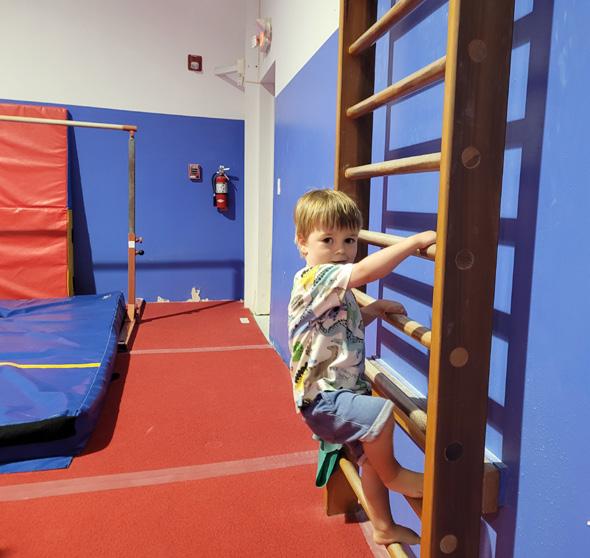
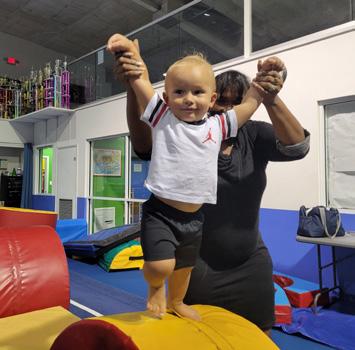
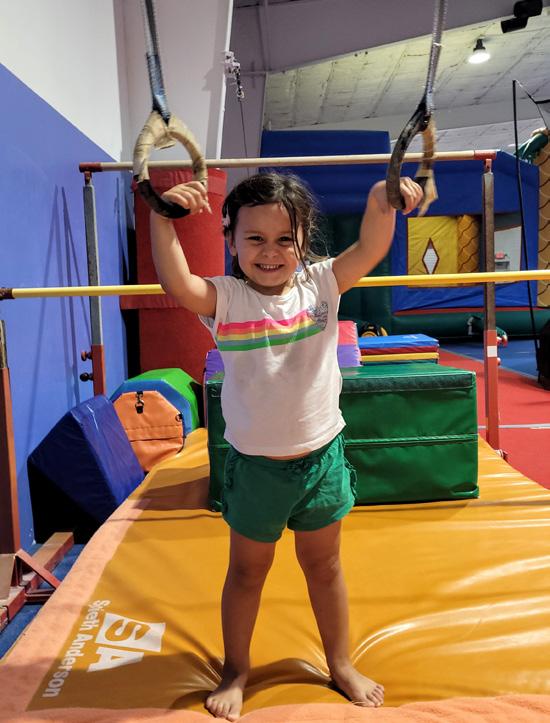
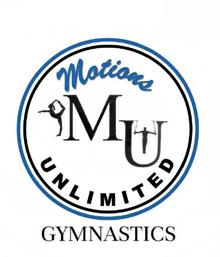
Tennis
The Tennis Federation of the Cayman Islands runs the PwC junior tennis circuit and organises a series of tennis tournaments every year for children 18 and under. Email: info@ tfci.ky. For group or private tennis lessons contact the Cayman Islands Tennis Club on (345) 949 9464 or email: juniors@ tennis.ky; The Courts at the Ritz-Carlton, Tel: (345) 323 0049 or email: grandcaymantennis@ritzcarlton.com and Cayman Tennis Academy on Tel: (345) 547 6257. Group lessons can range from CI$20-CI$35 per individual per lesson, private lessons range from CI$70-CI$90 per hour.
Yoga
There are several excellent yoga teachers on-Island specialising in kids' yoga. Popular choices are Yoga Sprouts and Kula Kids. Group and semi-private lessons range from CI$120CI$180 per term (CI$16-25 per class depending on location, age and duration). Many private schools also offer yoga as an after-school club. Visit www.yogasproutscayman.com or www. kulakidsyogacayman.com for a full listing of their classes.
262 Cayman Parent Magazine | School Age
Inclusion Cayman is a non-profit organisation supporting individuals with disabilities in their vision of accessing inclusive education, recreation/community, and employment. Please contact them if you need assistance with inclusive recreation, or if support is required for you/your family to participate meaningfully. Unit 6-8 Corporate Plaza, 81 Godfrey Nixon Way, George Town. Tel: (345) 623 2957, Email: info@inclusioncayman.ky or visit www. inclusioncayman.ky. GYMNASTICS TODDLER PLAY DAYS AT MOTIONS UNLIMITED 150 Sparky Dr, Industrial Park, George Town. t: 749-8365 reception@motionsunlimited.com www.motionsunlimited.com Wednesday 10:30am - 12 noon (Ages 5 and under) Thursday 10:30am - 12 noon (Ages 5 and under) Friday 2:30pm - 4:00pm (Ages 6 and under) Saturday 8:30am - 10:00am (Ages 5 and under)
Sun Safety for Kids
In a tropical climate like Cayman, where the sun is strong and a good deal of time is spent outdoors, sun safety is a priority.
Protecting Skin from the Sun
Whilst skin melanoma is rare in children, protecting their skin from a young age is essential for lifelong health. It is especially vital because, at this age, children often spend a lot of time playing outdoors. Receiving multiple sunburns while you're young can significantly impact the skin as it ages, and it's often hard to see the damage until it's too late. When it comes to teaching your kids about solar protection, the earlier, the better! Here are some dos and don'ts of skin sun safety.

DO:
• Apply SPF30 or higher sunscreen every morning before school and keep a bottle of sunscreen in their school bag.
• Use a reef-friendly sunscreen when spending time on the beach.
• Reapply sunscreen every two hours, before an outdoor activity and after swimming or towelling off, even if the sunscreen is ‘water resistant’.
• Throw away any sunscreen that you’ve had open for longer than 12 months or that has ‘split’ or changed in texture.
• Keep infants under six months out of the sun as much as possible and keep children out of the sun during the hottest parts of the day when possible (10am to 4pm).
• Cover up using a sun top, sunglasses and a hat. Choose clothes where you can’t see your hand through the fabric.
• Be generous in the amount of sunscreen you use.
• Apply in advance – it takes approximately 15 minutes for sunscreen to absorb into your skin.
DON’T:
• Buy spray-on sun screens as they may harm children’s lungs.
• Leave sunscreen in the sun.
• Use a sunscreen that includes bug repellents – the sunscreen’s ability to screen out UV can be decreased by the repellent, whilst the toxicity of the repellent is increased.
• Miss less obvious areas like ears, feet, mouth, neck and back of the knees.

Protecting Eyes from the Sun
Infants and children lack the pigment in their eyes that help filter UV light, so making your kids wear sunglasses is crucial. The reflective surfaces of sand and water can almost double your UV exposure. Here are four things to bear in mind when buying sunglasses for kids:
• Glasses should offer 99-100% UV protection.
• Select more durable polycarbonate lenses.
• Wrap-around glasses offer the best protection.
• Grey-coloured lenses are best as they absorb all colours equally so kids can see the world in natural colours.
Knowing what to look for is only half the battle. It can sometimes feel impossible to encourage stubborn little ones to wear sunglasses. Here are a few tips which might help:
• Let kids choose between colours or styles if possible.
• Set a good example by putting them on whenever you leave the house.
• Draw their attention to older kids, athletes and celebrities who are wearing shades.
• If you can’t get them to keep sunglasses on, make sure they wear wide-brimmed hats for all activities in the sun.
For more tips on eyecare for children, turn to page 166.
TOP TIP: Kids spend a lot of time in school playgrounds so don’t forget to apply sun screen to them before school and encourage them to wear their hats during lunchtime.
www.caymanparent.com 263
Raising Children with Faith

We asked six families in our community to explain why they have chosen to raise their children with faith. We hope you enjoy their answers as much as we have.
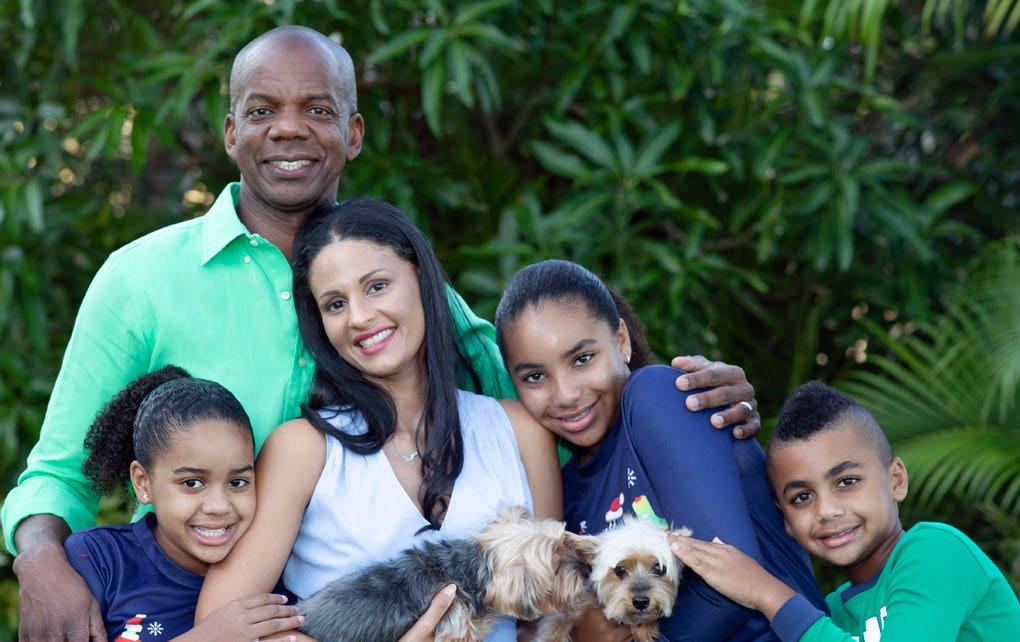
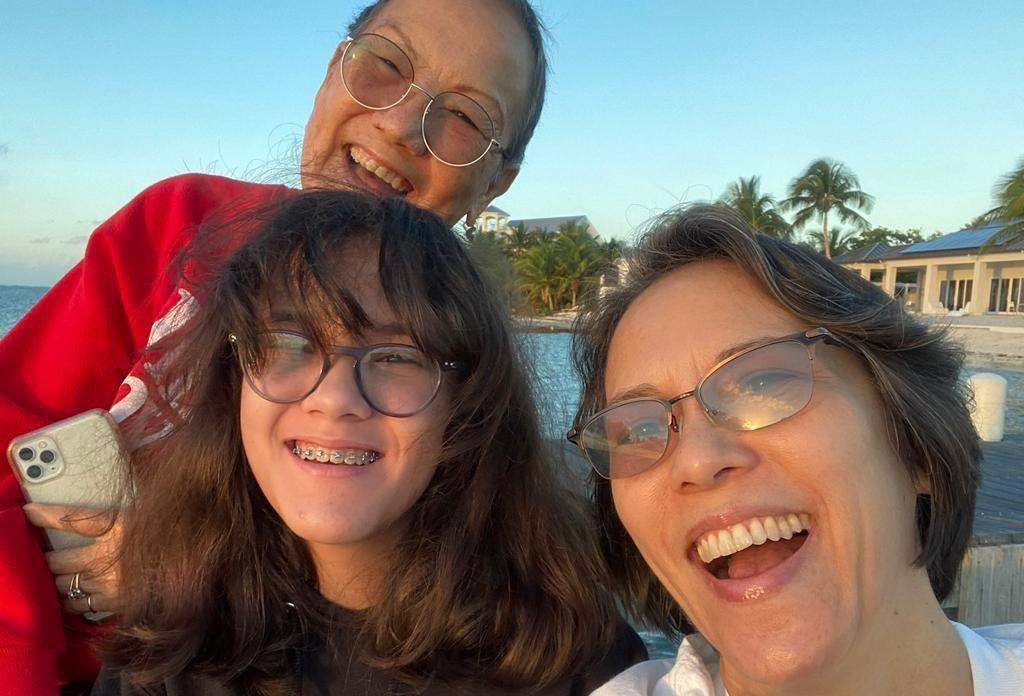
Faith is the glue which keeps our families together during both good and difficult times. It’s what supports us in our time of need and where we turn to when we give thanks. I have passed the faith to my daughter who has in turn passed it to her daughter. Very simply said, with faith all things are possible. Philippians 4:13 “I can do all things through Christ who strengthens me.” Jackie Balls, Carol Ann Balls and Rachael Balls. Three generations of faith.
Colleen & Steve Coles
The decision to raise our three daughters in faith was easy for us. We both grew up in loving, Christian families and benefit from the strong foundation that they provided. The world can be a scary place, especially for children, and we want our daughters to know the peace, hope and stability that believing in God provides. Knowing that God made them and loves them helps build their confidence and self-worth. It also gives their lives meaning and purpose. Learning the importance of compassion and serving others helps shape them into kind, empathetic individuals, which is important to us. Faith-based values instilled in them at home and at church provide them with guidance on how best to understand and navigate the world around them. By actively involving them in the church community, they gain an extended church-family, which loves and supports them through life’s trials and tribulations.
Jackie Balls
Joannah Bodden Small
In a tumultuous and ever changing world, faith has been a source of refuge and strength all of my life. In the happiest of times, and the darkest of times, God has been there. I am thankful to have been raised with faith in a gentle way that allowed me to develop a personal relationship with Jesus that was entirely my choice. I am also thankful to have found a husband who shared my perspective, having been raised with faith himself, and together to have set out from the start with God as the foundation for our relationship, our family and our lives.
I have tried as a mother to guide and direct, to help my children to make good decisions and navigate through the storms of life. However, there is only so much any parent can do. Making faith a daily part of our lives, and raising children with faith, has assured them of an unconditional love and source of refuge that they will never lose. They are encouraged daily to follow Biblical teachings – giving thanks, treating others as they would like to be treated, being empathetic, speaking and acting as God would want them to do (as best they can!). They are also encouraged to turn to God in prayer for the things that trouble them –understanding that while prayers aren’t always answered in the way we might want, that God is always listening. We have had some very difficult conversations about why bad things happen
264 Cayman Parent Magazine | School Age
and I’ve been honest in telling them that I really don’t have the answers at times. And I have questions of my own too. But we always try to find the good, however small, in the most difficult of situations and we try to find joy and blessings in our day to day lives. My prayer is for this foundation of love, support and faith to equip them to handle the struggles they face, no matter what may come. To constantly give thanks and search out those silver linings. That is the beauty of faith and I consider it a blessing to raise my children with the faith that has helped to sustain me throughout my life.
I am the right person to ask! I am not sure that the way that we have raised our children necessarily looks like what ‘raising your children with faith’ is supposed to look like. I grew up in a Christian home and then married a minister! Church was always a given, not as a chore, but as an integral and important part of our lives, and this is how it has been for our children as well. The lessons I had learnt growing up in church, the values instilled in us, the skills and talents we honed and the friendships we made in church and in youth groups were something we wanted for our children as well. But this ‘raising’ looked more like just us being a family and sharing our faith and beliefs with our children as life happened than any seriously planned out system or routines.
Michelle Grant-McFarlane
My grandmother was always praying no matter the situation. At the age of twelve, I accepted Jesus as Lord and Saviour and it was the best decision of my life. It hasn’t been an easy walk, but through it all, I have felt His presence. During a period where I felt depressed and discouraged, I cried out to God in prayer and He answered. I felt His peace come over me as if someone had hugged me and I knew things would turn in my favour and they did. Now that I’m a mother, I have also taught our seven year old son that prayer is life. He knows to turn to God no matter the situation and God hears him and will answer his prayers.
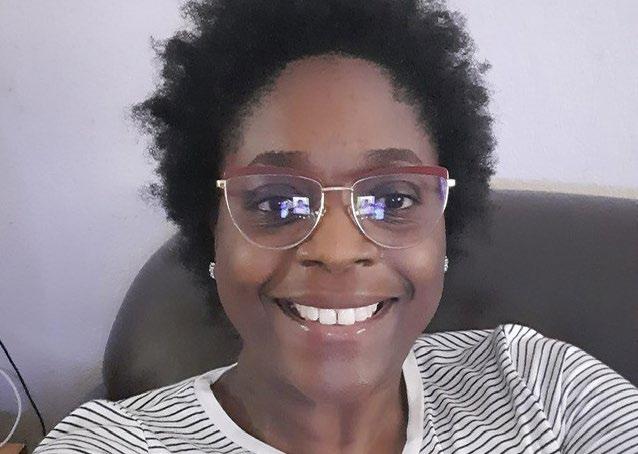
Our Christian world view homeschool curriculum, ‘Sonlight’, provided wonderful opportunities for the children to read about the experiences of everyday people around the world, and God’s leading and impact in their lives. They have always been surrounded by family and friends who are like family, that have prayerfully supported them through every good and every difficult experience they have faced. Through church, they have learnt the value of contributing their gifts and talents so that the whole body benefits and have been held up and supported by this family as well. Above all, we have hoped for them to experience both the responsibilities and benefits of a meaningful and personal relationship with God! Ultimately this is their decision. And so, as we raise our children, we do so IN faith, praying that God will keep them, protect them, and guide them according to His Will.
Bertranne Abrams-Menko “Miss Birch”
I have been pondering this concept of raising my children with faith, and the first thing that comes to mind is: I am not sure that

Sabrina Turner, Minister for Health & Wellness
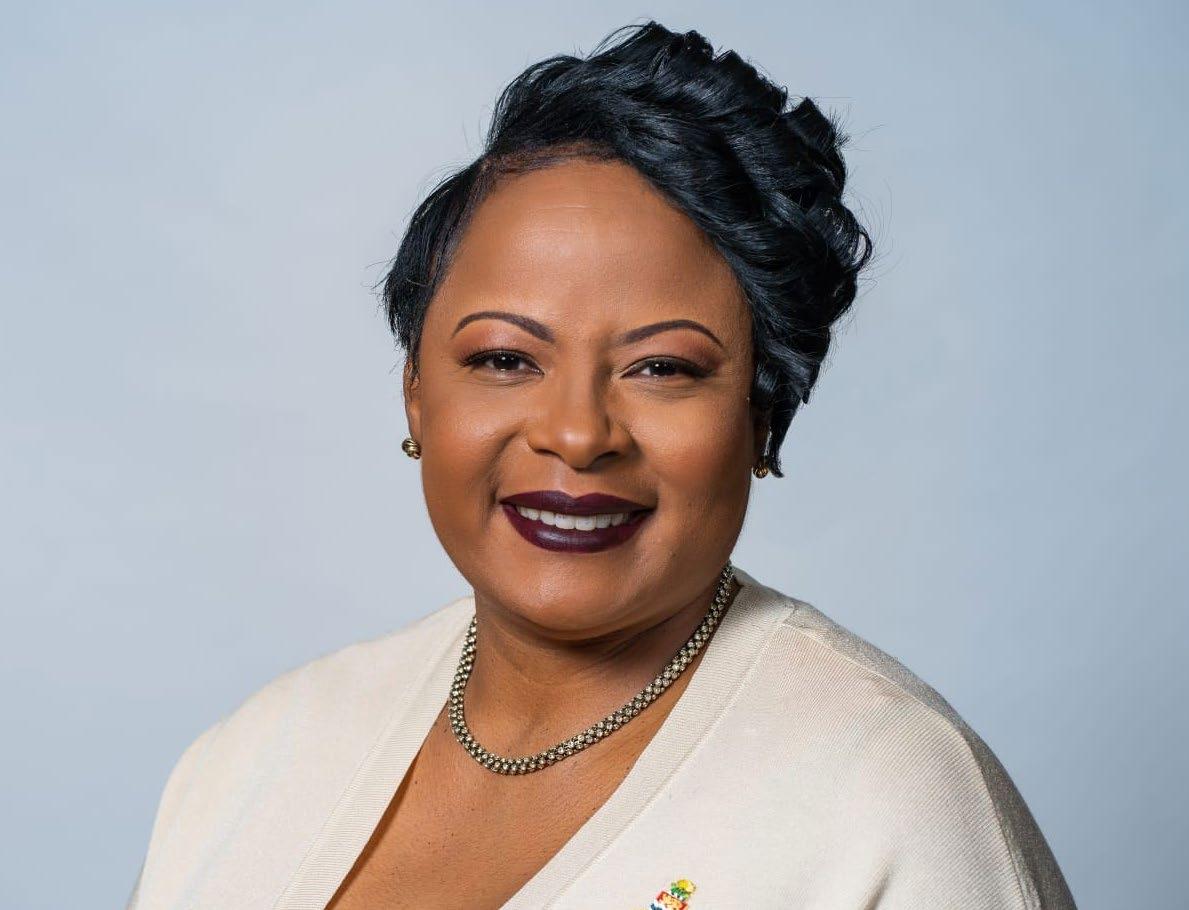
I was raised in a loving Adventist home where faith was the quiet bedrock of our family. My parents took their moral responsibility of raising their children seriously so that our needs were met, and I have done the same with my boys. There was always honest and open dialog, and I have taught my boys to never begrudge someone for what they had achieved – you don’t know how hard they have worked to get there. My boys know how much I love and rely on the Lord, and our conversations about faith have always been honest, open and real. They know that with the Lord by their side they can embrace what life has to offer and roll with the punches.

www.caymanparent.com 265
Giving Back: Family Volunteering in Cayman
Encouraging your children to lend their time and service to the community is an essential teaching moment for parents – and a great opportunity to lead by example! Students in the Cayman Islands are also required to complete a minimum of ten hours of volunteering or community service. Get started with some of the examples below!

Where to Start
Start as a family! Luckily there are a number of volunteer opportunities in the Cayman Islands that are perfect for families with kids of all ages. Decide together what type of activity you wish to participate in and how much time you can commit. Perhaps you’d prefer a variety of activities on a rolling basis, or you’d rather dedicate your time to a single charity. Try to match the activity to your family’s interests so it doesn’t feel like a chore. When you have settled on a service, talk to your children about what to expect and be enthusiastic about your newfound responsibility!
Become an Animal Ambassador with CARE
What they do: Cayman Animal Rescue Enthusiasts (CARE) is a self-funded volunteer organisation that is always looking for volunteers.
How to help: CARE needs help transporting animals to the surgery to be spayed or neutered. There is a CARE van (which allows animals to be crated) that adults can drive accompanied by their kids. Families can also help build animal feeding stations or assist with CARE's education programme within the local schools. Visit www.caymancare.ky/getinvolved/volunteer.
Dog Walking with the Humane Society
What they do: The Humane Society dogs love to be taken out for walks, whether it’s a short 10-minute jaunt or a trip to Seven Mile Beach to splash in the sea.
How to help: Simply turn up any day of the week (mornings are best) and you will be paired with a pooch suitable for your family’s ages and experience.
Who can help: Anyone and everyone! Children ages 18 and under must be accompanied by an adult.
Deliver Meals on Wheels (MOW)
What they do: MOW provides daily, hot, nutritious meals to seniors, homebound and disabled persons throughout Grand Cayman. Meals are provided free of cost to the clients and delivered to their homes every week. This service supplies them with the assistance needed to retain their independence in their own homes for as long as possible. Feelings of isolation are also common in senior communities. Volunteers help provide important social interaction.
How to help: Sign up as a MOW volunteer and take your children with you when delivering meals. Teenage children who can drive can deliver meals during their holidays. Who can help: As long as there is an adult present, age is not a disqualifying factor.
Community Involvement
Church groups and organisations like the Girlguides, Scouts
266 Cayman Parent Magazine | School Age
Who can help: Children of all ages can help if accompanied by an adult.
and the YMCA provide great community engagement opportunities for children. Families can also partake in an hour of social, charitable and environmental activities on a basis that suits their schedule. Read on for some family-friendly ideas.
Pick Up Litter
How to help: Help keep Cayman beautiful by dedicating an hour a week to picking up litter. Plastic Free Cayman hosts monthly beach clean ups. Visit www.plasticfreecayman.com/ volunteer for details. Choose a different park or beach each time and spend an hour picking up litter. Make a game out of it and see who can pick up the most trash.
Who can help: Children aged five and up. Be sure to wear gloves and close-toed shoes and supervise children closely.
Create ‘Thinking of You’ Cards for the Sick
How to help: Making cards for the elderly and sick is an easy yet meaningful way to lift someone’s spirits and make a difference to their day. Residents of The Pines retirement community and patients of The Cayman Islands Cancer Society love to receive artwork and cards made by kids.
Who can help: Children of all artistic abilities and ages can make cards for residents and patients. Why not make it a craft activity the next time your child has a play date!
Host a Bake Sale for Charity

How to help: Let children sell homemade cakes and donate the proceeds to a charity of their choice. Not only do the kids feel the satisfaction of helping a cause, but they also get to flex their baking and maths skills. Set up a stand outside your home at the weekend and ask your friends and neighbours to pop by for a delicious treat!
Who can help: Children aged six and up can work on the stand, although adult supervision is advised.
Make a Food Donation Basket
How to help: Each time you shop at the supermarket, ask your child to pick a non-perishable item which can be donated to those in need. Once you have a number of items, donate them all to a local charity, such as Feed our Future or the Cayman Islands Crisis Centre.
Who can help: Kids aged four and up will begin to understand how their actions can make a difference to others.
Help Cayman's Endangered Blue Iguanas
What they do: The rare blue iguana is endemic to the Cayman Islands but, over time, has suffered from habitat loss, vehicular traffic and other wild animals. The Blue Iguana Conservation Programme is helping to restore populations of this endangered animal. The programme, which is run by the National Trust for the Cayman Islands, offers volunteer opportunities for those who wish to help care for these creatures, including feeding and pen cleaning.
How to help: Interested volunteers should contact bic@ nationaltrust.org.ky.
Who can help: Teenagers age 16 years and older can volunteer for this programme.
Seasonal Giving
How to help: Christmas is a great time to introduce a family tradition of giving back and helping those who are less fortunate. Feed Cayman and the Cayman Food Bank always appreciate gift certificates and/or non-perishable food items from Cost-U-Less and the local grocery stores. You can also bag up gently used clothing and toys to drop off at the Red Cross or the Humane Society Thrift Shop. Who can help: Encourage the whole family to participate and spread goodwill to those in need.
Local Spotlight: At just 13-years-old, Jake Fagan and Ben Coak braved the Bogue to fundraise for the Central Caribbean Marine Institute (CCMI). The Bogue is the passage of water between Cayman Brac and Little Cayman, and is the deepest interisland channel in the Caribbean at 4,000 feet deep!
Jake and Ben completed the 9.6km open-water swim and raised $34,754, surpassing their $10,000 goal. The boys chose to donate to CCMI after visiting the research facility on a Year 6 school trip. "I was amazed by the work they did there," says Jake. "I liked that $20,000 of the proceeds we raised went towards funding scholarships. I think it's a good idea to get young Caymanians involved in wildlife research and to learn how to protect our ocean." Their fundraiser has been a great inspiration for other kids in Cayman. "It's so important to give back to our communities," says Ben. "It helps us focus on something bigger than just ourselves."
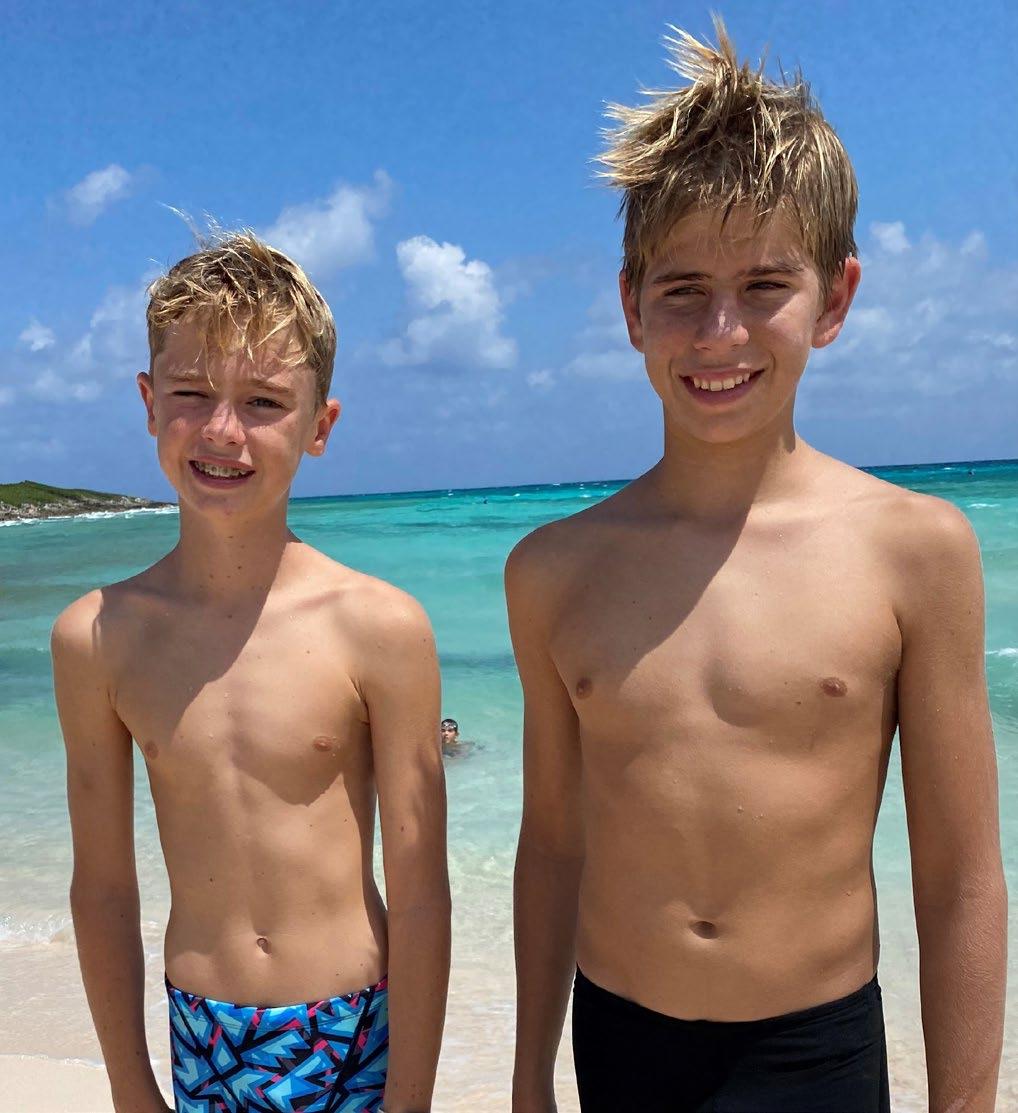
www.caymanparent.com 267
Jake Fagan and Ben Coak
Q&A
Hannah Hudson
Which famous actor would you love to invite into your class to read out loud to the children, and which book would it be?
Knowing that anyone I picked would likely produce blank faces from the children, I asked them who they would like to visit and here are my favourites of their responses. The answers ranged from; The Queen “because she is famous” to Cristiano Ronaldo, Simone Biles and Misty Copeland because of their great sporting achievements, Stephen Hawking for “being very interesting” and Malala Yousafzai for “doing lots for girls”. As for the book, it’s a tough call. I couldn’t possibly pick just one!
Do you have any tips for parents who struggle to get their children to read at home?
Take away the books! I don’t mean stories, definitely read stories every day, as it's a key factor in developing a love of reading. But for children who don’t want to read independently, presenting them with a book just switches them straight off – usually it’s one from school and it’s often not that exciting. Instead, encourage discussion around, and then reading of, alternative materials; such as character magazines, recipe cards for baking cookies, graphic novels, toy and food packets, anything at all that doesn’t ‘feel’ like reading.
You can take your class anywhere in the world, budget unlimited. Where would you take them and why?
This is an easy one at the moment; we’ve just recently celebrated ‘Kodomo no Hi’ in class, which is Japanese Children’s Day and the children absolutely loved it! We did lots of artwork around it and held our own Children’s Olympics. We also looked up how much it would cost to get to Japan and how long the journey would take. All of the children were asking for a trip there afterwards!
Sherene Brown
What has been the best moment of your career so far?
Recently one of my students brought me a gift bag. There was a bottle of water, a banana, a candy, and a small toy. She also handed me a small piece of paper with the note, “I love you Mis bron you are the bes teeecher.” Along with that, she had a cute drawing of me. She collected small items from her home to make me the gift. I appreciated it so much; it wasn’t a special day, neither was there any important event. Her phonetical plausible spelling moved me more than the gift. She was improving! That stood out in my hall of success!
Which of your current or previous colleagues do you admire the most and why?
I met Mrs Mary Smith on my first day at Red Bay Primary School and since then she has been a tower of strength for me. She calls herself the ‘mother’ and ‘grandma’ of the school. There is never a dull moment with her. She is involved in almost all the events held at school. She is an excellent educator, who cares about every child that she encounters. She is also a role model to the staff and can be depended on to offer wise counsel.
You can take your class anywhere in the world, budget unlimited. Where would you take them and why?
I would take my class to South Africa. South Africa has the best natural wildlife reserves. This experience would provide my kids with a greater appreciation for nature and the opportunity for first-hand experience with some of the most beautiful and magnificent creatures. Africa is also known for its cultural diversity. What a privilege it would be for my class to interact and learn about a people they may only see on a screen!
Hannah Hudson is from the UK and moved to Cayman in 2021. She teaches Year 1 at Island Montessori.

Sherene Brown is originally from Jamaica and teaches Year 2 at Red Bay Primary School.
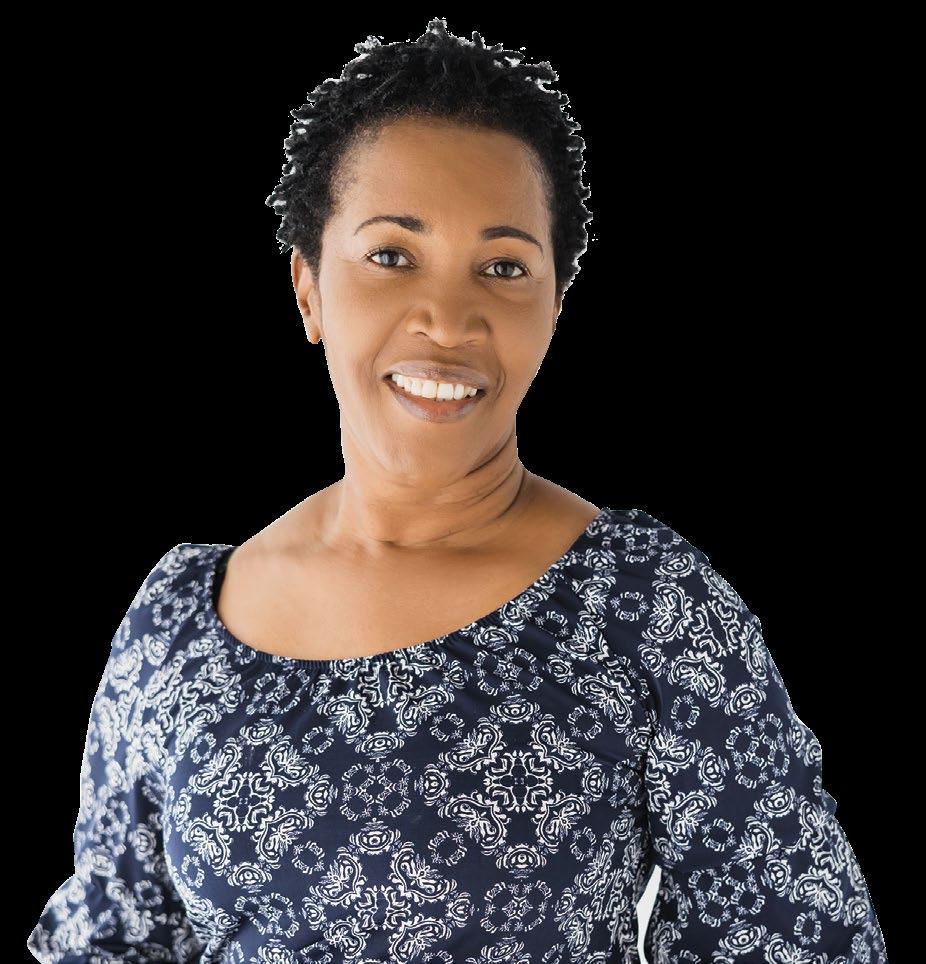
Kadie Malin Sellars
What has been the best moment of your career so far?
I really enjoy watching how much the toddlers change and grow over the course of a school year. A lot of them will start the year barely being able to talk or sometimes even walk.
By the end of the year they are able to speak in sentences and are jumping, climbing, and running all over the garden. This transformation is amazing!
How has teaching changed or evolved since you first became a teacher?
The use of technology in schools. Most of the time I find it to be a positive addition. Communication between teachers and parents is more streamlined. Access to different technologies to enhance music class and storytime. As well as use of the internet for different activities and arts and crafts ideas.
Which famous actor would you love to invite into your class to read out loud to the children, and which book would it be?
James Earl Jones because he has such a wonderful voice for reading books, and the book would be The Very Hungry Caterpillar.
Which of your current or previous colleagues do you admire the most and why?
That would have to be Annabel Dawson. She brought joy, happiness and light to the classroom every day. Both her laugh and positivity were infectious, and I am forever grateful I had the opportunity to work with her.
Are you concerned about possible speech and language delays as a result of children and adults having worn facemasks in schools over the past few months?
I am hopeful that the children are getting lots of chances outside of school to communicate with other children and other adults without masks on. Hopefully this will negate any possible speech and language delays.
Early Years & Primary School Teachers
Chad Pollard
What has been the best moment of your career so far?
Difficult question. Over the last year or so, we are having Alumnae come back to the MBTS community. Some of them have volunteered, others are registering their children to attend MBTS, while others have asked for opinions on courses at university. For me, this demonstrates how much they continue to value the MBTS community.
What’s your best technique for grasping everyone’s attention in class?
In this regard, an authentic Montessori learning environment works differently to a conventional classroom. We have a couple of instruments in the classroom such as a bell and a ‘croaking frog’ that is used for announcements.
Do you think there should be more opportunities to teach outdoors in Cayman? Outdoor classrooms are becoming more mainstream since the lockdown in 2020. Hopefully, educators and the Ministry will see the value of having outdoor classrooms and outdoor education as a whole and more funding will become available to enable this aspect to happen across the islands.
Which of your current or previous colleagues do you admire the most and why? Denise Orosa, who is currently the Curriculum Coordinator at MBTS. She is admired by all in the community for her calmness, wisdom and identifying where each child is in their learning journey. She is the best educator I have ever seen. She also happens to be the 2012 Golden Apple Award winner for Primary schools in the private sector.
You can take your class anywhere in the world, budget unlimited. Where would you take them and why?
I believe I am ‘living the dream’ with this question. Preparing and chaperoning students for the Montessori Model United Nations (MMUN) in New York City has been nothing short of sensational.
Kadie Malin Sellars is from the United States and works in the Toddler room at Montessori del Sol.

Chad Pollard is Canadian and teaches Grades 4-6 at Montessori By The Sea.
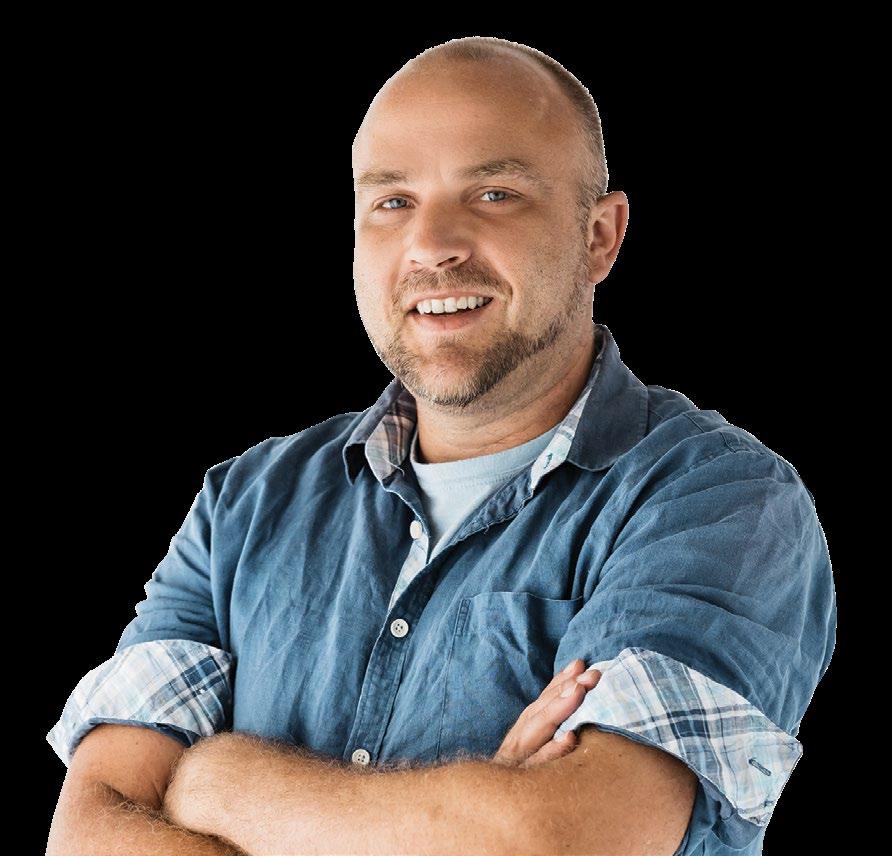
The Perfect Party Checklist
1. Choose a Venue. Cayman is a treasure trove of kidfriendly party venues. Pedro's Castle offers a variety of childfriendly attractions, including a multi-sensory movie theatre and lots of green space. The Turtle Centre is another popular option, offering an interactive scavenger hunt for kids! See


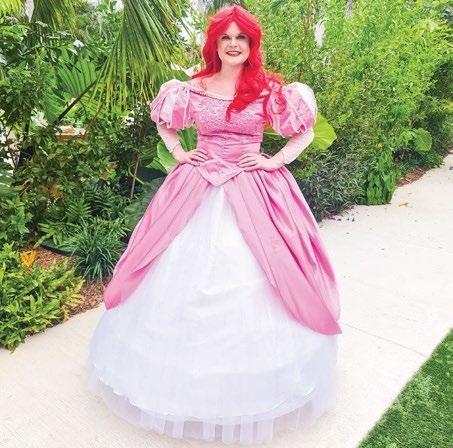
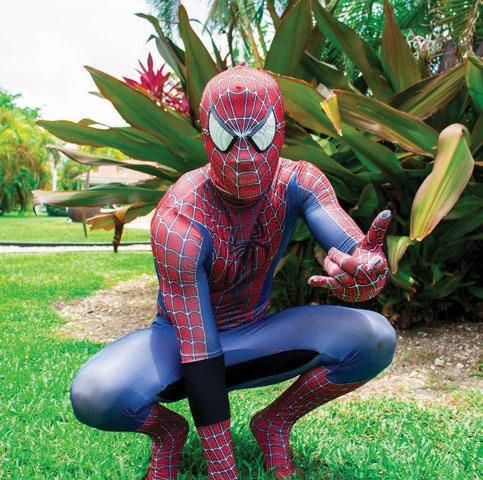
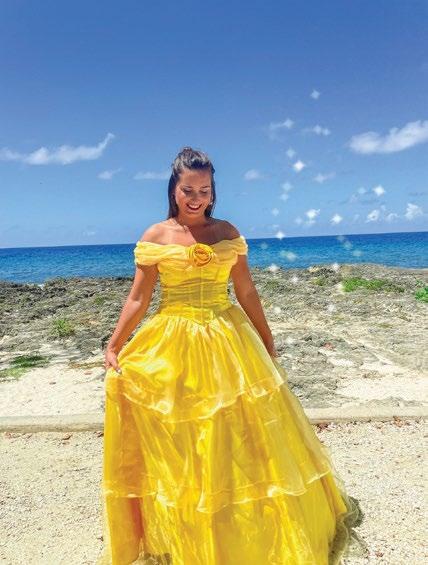
page 282 for more venue ideas. Of course, in Cayman, we're lucky to have plenty of beautiful outdoor spaces at our disposal, so why not host your party at a park or on the beach? Cabanas at these locations are free to use, but you'll need to book online at www.rpcu.gov.ky.
2. Decide on a Time. Younger kids tend to do better in the mornings, whereas school-age children prefer afternoon parties and it gives you some extra party prepping time. If you're hosting a party outside, then be mindful of the heat (and rainy season!) and ensure you have plenty of water on hand.


3. Send out Invitations. We suggest sending out invites 3-5 weeks before the event. You can buy themed invitations at any of Cayman’s party shops and some even offer customisation options. Don't feel pressured into inviting the whole class if it's not financially possible or you do not wish to host a large party. You could just invite the girls/boys. Be upfront on invitations about whether siblings of children invited can attend. An eco-friendly alternative to physical invites is digital options such as those found on websites like Paperless Post or Evite.
4. Food & Drink. Party venues will usually provide food as part of their party package, but if you are hosting at home, you will need to organise the food and drinks. Try one of Cayman’s caterers or the supermarkets, which can prepare party platters of fresh sandwiches, snacks and fruit. Local bakeries can produce a delicious cake to match your theme. Of course, you can also create a great spread yourself! Keep it simple so that you can fully enjoy the day! Pizzas or burgers on the BBQ are always appreciated, and bowls of chips and

Cayman Parent Magazine | School Age270
Take the stress out of party planning with Cayman Parent’s Perfect Party Checklist! We break down all the steps you need to take before the big day to guarantee a fun and memorable celebration for all. W hatsA pp: (345) 923 6797 cinderellaspar ties@gmail com • www cinderellaspar ties com Superheroes Children will enjoy games, stories, sing-alongs, coronation ceremonies, superhero face painting, princess make up, plus plenty of other Disney themed fun! Also available are mommy daughter tea parties, royal daddy daughter balls, ‘How to Become a Princess or Superhero’ summer camps with magical characters, princess and superhero after school programmes and more! Cinderella Elsa Moana Ariel Spiderman Batman Snow White Little Mermaid Black Panther Super Man
fruit skewers are a great compliment. Just make sure to check if there are any food allergies you should be wary of.
5. Photographs. Hire a professional photographer for your child’s special day so that they can capture all the memories you’ll be busy making! Cayman is lucky to have a selection of first-rate photographers who can offer their services for a few hours at a time. See page 282 for more details. If you're on a budget, why not ask one of your friends to help out? They can help capture busy moments like cake-cutting and blowing out the candles. You can return the favour at one of their events!

6. Games & Entertainment. Face painters, magicians, balloon twisters and other entertainers will all elevate your child’s party, but make sure to book them well in advance. You could also hire a bouncy castle, water slide and giant garden games such as Connect Four, Jenga and Twister. Classic party games like Musical Statues, Sleeping Lions and Pass the Parcel are great for kids four and up.
7. Theme & Decorations. Cayman’s party shops stock a wide variety of decorations. Popular themes include: Pirate (perfect for Cayman!), Superhero, Disney, Mad Scientist, Animals/Jungle, Circus, Sports – the choices are endless. They also offer equipment rentals such as tables and chairs. You can also make a statement with eco-friendly decorations that are great for the party and the planet! Create paper chains, use reusable plates and cups and if you do end up buying decorations, try to choose ones that will work for years
to come! If you host your party at a park or beach, nature's backdrop is the best decoration of all!
8. Party Favours. These serve as a fun way for the birthday child to thank their guests for attending their party. Gifts can range from pencils and stickers to mini colouring books. We recommend trying to limit plastic if you can. Savoury and sweet treats also make great gifts. Purchase some reusable mason jars and fill them with a pick and mix selection of goodies. If you love to bake, you can also gift some baked goods. The kids (and parents!) will thank you!
9. Thank You Notes. Send out 'thank you' notes to show your gratitude for the children who attended the party and for the presents received. Be sure to keep a gift log as you open presents so you remember who to thank for what.
Note: When it comes to attending someone else's party, Cayman has plenty of options for finding the perfect gift! Next Chapter, Book Nook and Atlantic Kids stock a variety of books, puzzles and toys for all ages. BrightBox is another fantastic option, offering specially curated birthday boxes. Each box contains a different activity to help encourage sensory play, creativity and learning! Choose from boxes about space, gardening, dinosaurs and even maths! Browse through all of their options at www.brightbox.ky.

www.caymanparent.com 271
CELEBRATE! with Shellby & Friends at Cayman Turtle Centre Make your next birthday celebration one to remember! BOOK YOUR PARTY TODAY: events@turtle.ky | www.turtle.ky | 949-3894
Party
the party begin
Mania

Highlights:
Pedro St. James
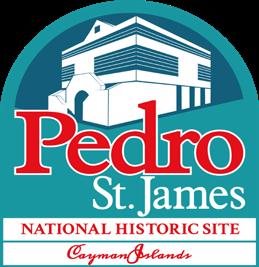
Party Venue & Cultural Site
simple
St. James
a unique combination
event
occasions;
to wedding
beautiful
baby showers
kids’ birthday parties,
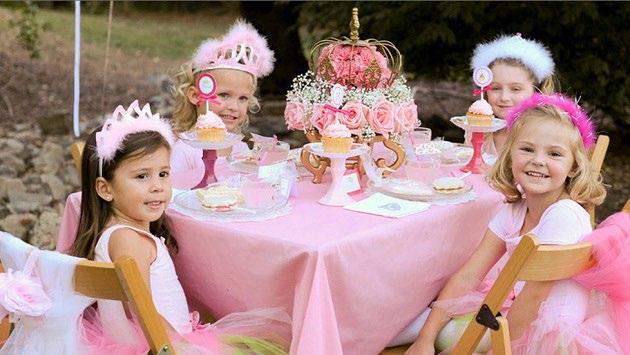
events
accommodate
stunning scenery, equipment rental and custom catering to suit

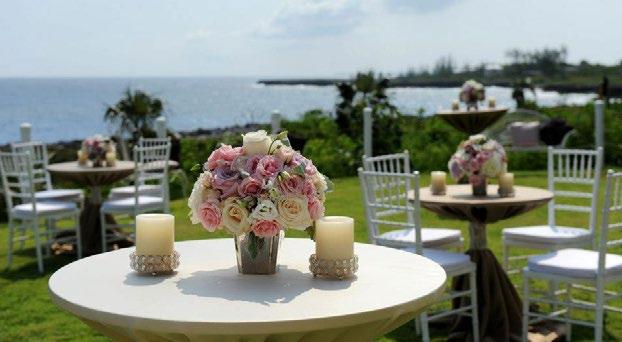


proms and graduation
Parties:
a multi-sensory movie theatre,
century Great House,
Baby Showers:

the perfect
Details:
Courtyard,
baby shower.
Side Lawn
Thatch
stunning ocean views
Barrel Restaurant
work
of lush landscape
party
Cayman Parent Magazine | School Age272 Party
offers an array of party supplies for anyone in Cayman planning an event. From birthday parties, baby showers, corporate events, graduation parties, weddings or a
gathering between friends and family, Party Mania can help plan and accomplish your party needs. They also organise coordinated theme parties with all of the necessary customised party supplies and decorations, including balloons, shirts, caps, cups and more, at very affordable prices. Explore their many options for custom-made balloon arrangements, perfect for your next big bash!
Mania Let
(345) 945 3268 or (345) 926 6966 | caypartymania@gmail.com | www.partymania.com Dorcy Dr, Foster's Airport Center
Party balloons • Customised party favours • Professional, experienced party planners who bring their client's vision to life • Resourceful party planning Details: Weddings • Birthday parties • Baby showers • Corporate events • Anniversary parties • Kid's magician and clown • Graduation parties • Party favours • Inflatables • Event decor • Piñatas • Costumes • Masks • Face painting • Balloon artist • Party supply rentals • Floral arrangement services • Foam cups and containers • Paper products • Gift items • Disposable cutlery • Party banners • Wine glasses • Champagne flutes
(345) 947 3329 | info@pedrostjames.ky | www.pedrostjames.ky | Pedro Castle Rd, Savannah Highlights: Children's
With
an 18th
a gazebo and playground, nature and history trails; your children will have lots of green space to run around and are guaranteed a fun event.
The
Gazebo or
with
is
spot for your
The
&
will
with your unique ideas and cater to your food, beverage and event service needs.
7 acres
• Local rum tasting and catering options • Custom
activities • Ocean views • Electricity and on-site security • Use of restrooms and ample parking • Luxury backdrop for photography Pedro
offers
of
all your
needs. Their
grounds have the capacity to
parties for all
from
to
to
ceremonies,
celebrations or corporate
and concerts. Show this ad to the Pedro Admin office and get $220 off your next children’s party! Includes 3D movie and tour, access to playground facility, lawn games and rental equipment (up to 45 people).
Get to Know Your Public Library
With six branches operating across Grand Cayman and Cayman Brac, the Cayman Islands is lucky enough to have a Public Library System which boasts an extensive physical book collection for both adults and children, as well as a comprehensive eBook collection and an online database. But all of these resources at your fingertips begs the question: where do you begin?
Get Signed Up
A great way to start getting the most out of Cayman’s library service is with a library card! Becoming a member at your local library gives you total access to its wealth of resources, as well as entry to a vibrant community and cultural centre. Members are able to use the library’s computer lab for free, and can take advantage of the designated quiet zones – perfect for doing your homework or reading a book in peace. After signing up, library card holders can check out a book for up to three weeks, with a chance to call and renew for another two! Children 17 and under and seniors age 60+ can join the library for free, Adults age 18-59 pay CI$5. Membership forms can be found at www.cipl.gov.ky and should be printed off, filled out and brought into your local library branch.
Online Services
As well as over 60,000 hard copy books, the library has an eBook collection with over 33,000 books, 1,700 magazine articles and 5,000 K-8 books in full text or PDF formats. They also have two student academic databases available where you can search for peer-reviewed and scholarly information on
reading, language, arts, current events, science, social studies, history, health and technology. To access these resources go to www.cipl.gov.ky, click on the EBSCO link for eBooks and the SIRS link for the databases.
Educational Programming
The Cayman Islands Public Library Service (CIPLS) proudly hosts an assortment of educational programmes that consider the needs of different age groups, different backgrounds and each local district. Below are some of the services offered to the local community.
Play, Read, Learn!
This library-based programme is for children between the ages of 3-5 with a parent or caregiver present, at the West Bay and North Side public libraries. Days and times vary; contact the George Town Library on Tel: (345) 949 5159 for details.
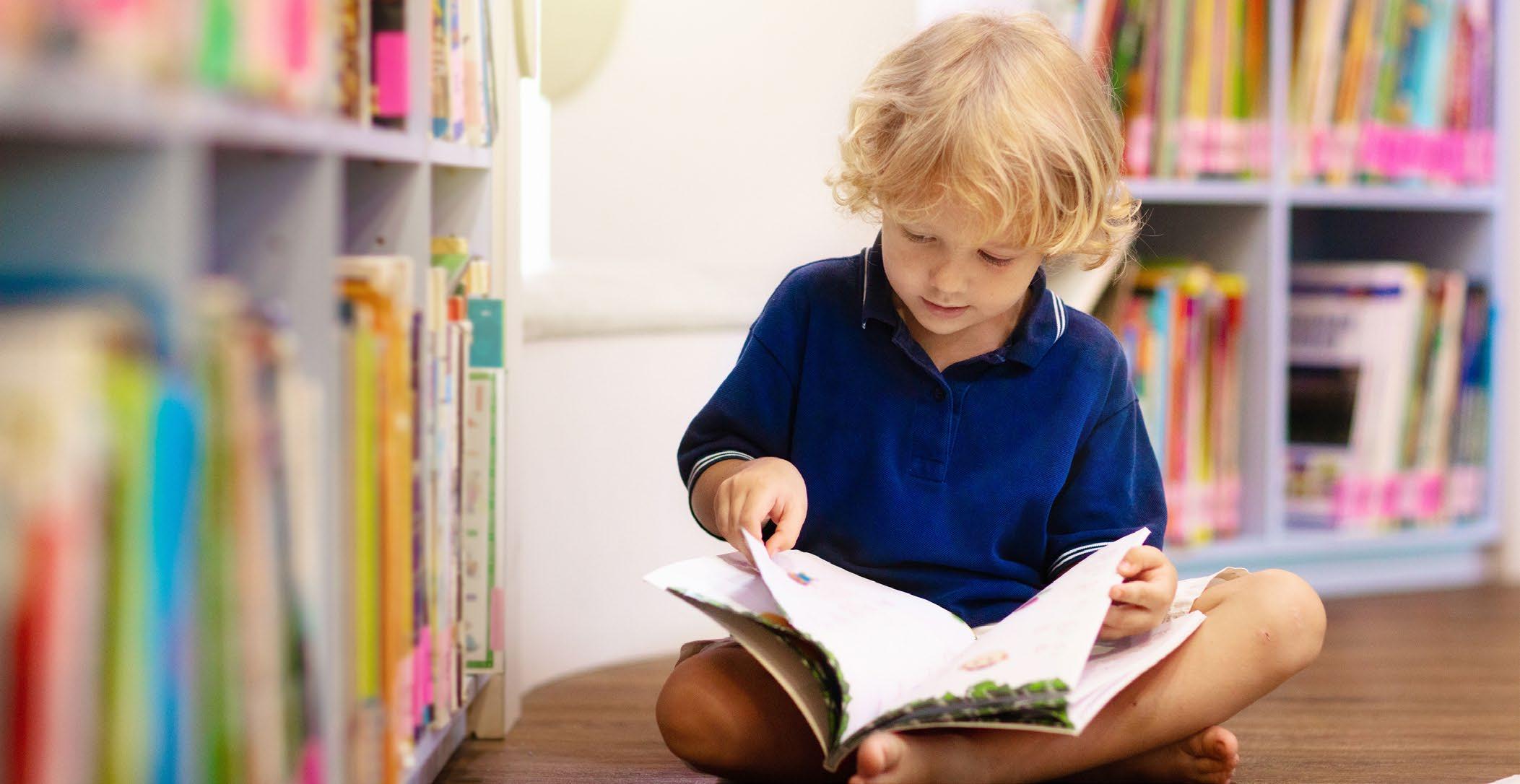
Summer Reading Challenge
Runs July 1st through August 31st, at all library locations. The challenge is geared toward school-aged readers as a means of
www.caymanparent.com 273
developing a childhood enjoyment of reading and promoting continued reading and learning throughout the summer holidays.
Saturday Chess
Free chess sessions, hosted by The Cayman Chess Club, are held every Saturday at the George Town Library, 11am-12pm, and are designed to introduce beginners to the game, and help intermediate players develop their skills. It is open to children of all ages but a parent or caregiver must be in attendance.
Computer Basics
One-day introduction to computers classes are offered at all six library branches; they cover basic computer skills and are free to all participants. The curriculum is designed for seniors and first-time computer users. Contact your local library branch directly for more details on course dates.
Music at the Library
The Cayman Arts Festival and the CIPLS proudly present monthly one-hour concerts at the George Town Public Library, which includes classical music, in addition to poetry and readings from local poets and writers.
Public Libraries
With a branch in each district, and one location on Cayman Brac, the Island’s Public Library Service has continuously made strides to maintain the Islands’ widespread accessibility to information. Find your nearest branch below and start discovering all that these great community hubs have to offer.
• George Town Library. 68 Edward Street, George Town, Tel: (345) 949 5159. Hours: Monday, Tuesday, Wednesday and Friday 10am-6pm, Thursday 10am-7.30pm and Saturday 10am-2pm.
• Vernon L. Jackson Library. 69 Bodden Town Road, Bodden Town, Tel: (345) 947 0966. Hours: Monday-Thursday 10am-6pm, Friday 10am-1pm and Saturday 10am-2pm.
• East End Library. 2739 Sea View Road, East End, Tel: (345) 947 7729. Hours: Monday-Thursday 10am-6pm, Friday 10am-1pm, Saturday 10am-2pm.
• North Side Library. 891 North Side Road, North Side, Tel: (345) 947 9362. Hours: Monday-Thursday 10am-6pm, Friday 10am-1pm, Saturday 10am-2pm.
• Emily (Teacher) Redley Powery Memorial Library & Learning Centre. 182 Reverend Blackman Road, West Bay, Tel: (345) 949 7659. Hours: Monday-Friday 10am-6pm, Saturday 10am-2pm.
• Cayman Brac Library. 263B Stake Bay Road, Cayman Brac, Tel: (345) 948 0472. See gov.ky for opening hours.
Alternative Resources

In addition to Public Libraries, there are a number of alternative educational resources available to children and adults across Grand Cayman:
School Libraries
Many schools across the Island are equipped with a school library or student media centre. If your child’s school has a library, encourage them to get familiar with the various resources! Find out the hours of operation and what the book lending policies are.

The Kiwanis Club of Grand Cayman
The Kiwanis Club of Grand Cayman operates a ‘Book Mobile’ mobile library, filled with books for all ages. It is permanently parked next to the administration building at George Town Primary School and opens every Thursday from 12.30pm1.30pm for the children at the school to use in their lunch hour and borrow books. For more information about the mobile library and volunteering opportunities please email: info@ kiwanis.ky.
The Rotary Central
‘Little Free Library’ Programme is a “take a book, return a book” free book exchange. Libraries are situated at various business establishments in the country in both Grand Cayman and Cayman Brac, and anyone can contribute or take books. Persons can take a book (or several) from any free library and return any book they choose to at any of the libraries on Islands.
The Sam Basdeo Learning Resource Centre
Located at the University College of the Cayman Islands (UCCI) it has some excellent academic resources within its collection. For further information on accessing their resources, please contact Mrs. Lucille Kong at (345) 623 0563 or email: lkong@ucci.edu.ky.
274 Cayman Parent Magazine | School Age
School Age Book Club
Best for Parents Best for Children
Discipline can be tricky, but this book provides a compassionate road map for parents dealing with tantrums, tensions and tears. Siegel shows us that there is a fascinating link between a child’s neurological development and the way we react to misbehaviour.

This illuminating guide provides parents with straightforward strategies to help build trust and communication with their children. Illustrative narratives and prompts will help you reflect on how to become an even better role model for your kids.
Today’s kids are growing up in a very different world. The author provides practical advice on how parents can help their kids navigate the pitfalls and positivity of our current digital landscape.
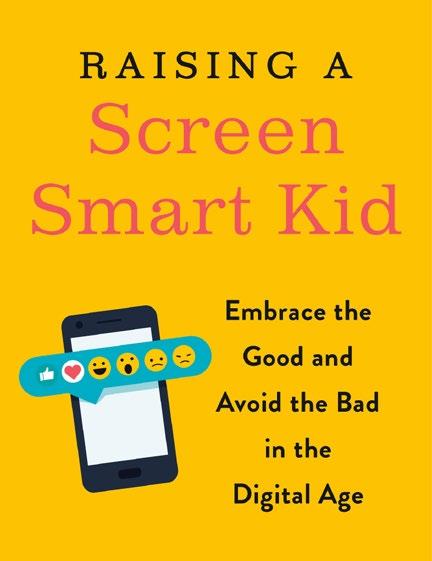

This award-winning story is an inspirational mix of hardship and hope. When Esperanza is forced to leave her home in Mexico, she learns how to create a new path forward and rise above the difficulties in her way.
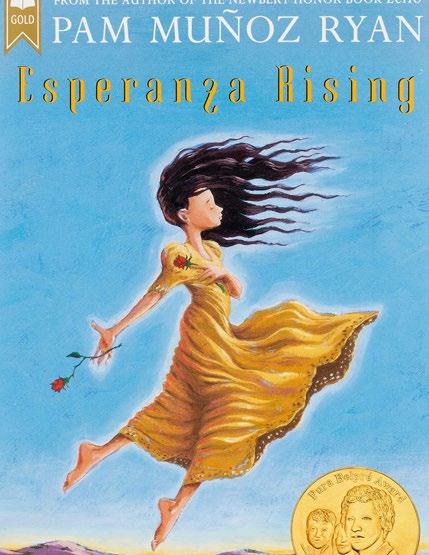
This beloved story about friendship and loss is an important lesson on moving forward and finding strength through grief. Read the book and then watch the movie with your little ones.
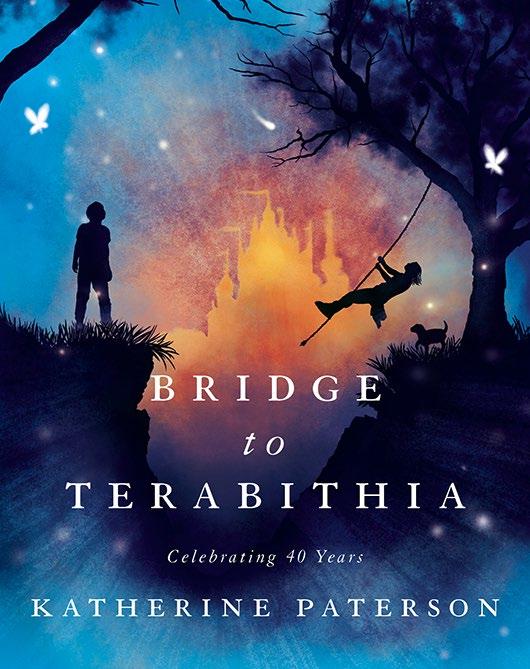
Sachar’s classic book, with its vibrant characters, has entertained children since its initial release in 1998. Holes is a wonderful redemption story filled with humour and heart. Its also been made in to a great film that children will love.

Best Digital for Parents
Good Inside with Dr. Becky is a weekly podcast that provides straightforward, actionable guidance for parents worldwide. Free, available on Apple Podcasts.

Best Digital for Children
Duolingo Kids is an education app that is fun! Choose from lessons in Spanish, French or English and encourage your child to start learning a second language. Free on Android and iOS.

www.caymanparent.com 275
Listings
Extracurricular Classes, Sports, Party Venues and Water Activities
Attractions & Outdoor Facilities
Explore Cayman’s many outdoor attractions and facilities, ideal for families and children of all ages.
Black Pearl Skate Park
Grand Harbour Shopping Centre, Red Bay. Tel: (345) 939 1301 Email: info@blackpearl. ky Web: www.blackpearl.ky. 62,000sq ft of beginner, intermediate and expert flow, as well as street courses, plus three basketball half courts. Equipment available to rent.
Blue Iguana Conservation Facility
Queen Elizabeth II Botanic Park, off Frank Sound Road, North Side. Tel: (345) 749 1132 Email: info@nationaltrust.org.ky Web: www. nationaltrust.org.ky. Meet the endangered Blue Iguana by participating in one of the variety of tours available at the Blue Iguana Conservation Facility.
Cayman Islands National Museum
3 Harbour Drive, Waterfront, George Town. Tel: (345) 949 8368 Web: www.museum.ky. Permanent exhibitions plus changing galleries (including one for children) and an audio-visual theatre.
Cayman Parrot Sanctuary
Austin Conolly Drive, East End. Tel: (345) 926 4415 Email: caymanparrotsanctuary@gmail. com. They offer a friendly, interactive and educational experience where you will meet Cayman's native animals face to face as well as see local plants in an unspoilt and natural landscape.
Cayman Turtle Centre
786 North West Point Road, West Bay. Tel: (345) 949 3894 Email: info@turtle.ky Web: www.turtle.ky. Meet the sea turtles and other sea creatures. Also features a pool, a crocodile, nurse sharks, a waterslide and a waterfall.
Cayman Crystal Caves
69 Northside Road, Old Man Bay, North Side. Tel: (345) 949 2283 Email: info@ caymancrystalcaves.com Web: www. caymancrystalcaves.com. See stalactite and stalagmite crystal structures in these caves which were formed over millions of years. Pirates are reported to have used these caves as hideouts and buried their treasure there.
National Gallery of the Cayman Islands Esterley Tibbetts Highway, south of Camana Bay. Tel: (345) 945 8111 Email: info@nationalgallery.org.ky Web: www.
nationalgallery.org.ky. Home to the national art collection with activities and programmes for children and families.
Pedro St. James Castle
Pedro Castle Road, Savannah. Tel: (345) 947 3329 Email: info@pedrostjames.ky Web: www.pedrostjames.ky. Historic 18th century Great House overlooking the sea with a multisensory movie theatre and playground.
Queen Elizabeth II Botanic Park
Off Frank Sound Road, North Side. Tel: (345) 947 9462 Email: manager@botanic-park. ky Web: www.botanic-park.ky. A 65-acre park dedicated to preserving local flora and fauna. Famous for its partnership with the Blue Iguana Conservation Facility, the park maintains the natural habitat for the native Blue 'Dragons' found only in Grand Cayman. There is also a wonderful children's garden.
Activities/Sports
ATHLETICS
Cayman Athletics Association
Tel: (345) 926 0719 Email: gensec@athletics. org.ky Web: www.athletics.org.ky. The governing body for track and field in the Cayman Islands.
345 Athletic Club
Truman Bodden Track, Olympic Way, GT. Email: media@athletics.com. Recreational and competitive team for runners and field event athletes. All ages and abilities are welcome.
Falcon Athletics
Email: falconathleticsinfo@yahoo.com. Track and field club for primary and high school aged children with local and international meets throughout the year.
Hy-Tech Tigers
Tel: (345) 925 1943 or Email: coach@candw.ky
They meet Monday to Friday at the TBSC and children from age 5 to adults are welcome. They cover all athletics events from running, jumping and throwing. They also meet at Governor's Beach on Saturday mornings at 8am to train. All are welcome!
Mustang Track Club
Email: tajyen@hotmail.com. They meet at the TBSC for track training multiple days a week.
Speed Athletics
Tel: (345) 525 2793 Email: speedathleticstrackclub@gmail.com Web: www.speedathleticstrackclub.com. They are a
full track and field team with sprinters, middle/ long distance runners, jumpers and throwers.
Athletes range from the age of 4 to 46 and groups are broken down into Youth, Juniors, Seniors and Masters.
Special Olympics Cayman Islands
Tel: (345) 946 7624 Email: soci@candw.ky. A registered non-profit sports organisation that offers year-round sports training and competition for those who are intellectually disabled.
BALLET & DANCE
Centre Pointe Dance Studio (CPDS)
Alissta Towers, North Sound Road. Tel: (345) 926 5889 Email: centrepointedance@gmail. com Web: www.centrepointedancestudio. com. Classes available for children from two years old through to adults in the following disciplines: ballet, tap, jazz, contemporary dance, hip-hop, Irish dancing, freestyle, musical theatre, drama and vocal training. LAMDA exams can be taken. Boys only classes are also available.
KRI Performing Arts School
98 Shedden Road, George Town. Tel: (345) 924 4089 Web: www.kridance.wordpress.com. Private dance lessons are available in salsa, modern jazz, hip-hop, and contemporary.
Radiance Dance Studio
Countryside Shopping Village, 33 Hirst Road, Savannah. Email: info@radiance.ky. Web: www.radiance.ky. Classes available for children between 3-16 in modern contemporary, ballet foundations, creative movement, hip-hop, jazz fusion, and Caribbean rhythms.
BASKETBALL
Cayman Islands Basketball Association
Tel: (345) 916 5083 Email: info@ caymanbasketball.com. The programme participates in international competitions and has four leagues: under-12, under-14, under-16 and under-19, by gender.
BEACH VOLLEYBALL
Cayman Islands Volleyball Federation (CIVF) Email: youthvolley@civf.ky Web: www.civf. ky. Indoor and beach volleyball programmes are available for teenagers aged 8-18. Training and clinics can also be arranged.
BOXING
Cayman Islands Boxing Association
Dalmain Ebanks Boxing Gym at the Truman Bodden Sports Complex, Olympic Way, George Town. Web: www.cibaky.com Email:
Cayman Parent Magazine | School Age276
the
i nfo@cibaky.com. They run a very affordable after school programme from 3.30pm-5pm five days a week and a summer boxing camp.
CRICKET
Cayman Cricket
Tel: (345) 326 1642 Email: president@ catnabcricket.ky. Cayman Cricket organises competitions for primary and secondary schools (May to June) and summer camps in July. They meet at the Cricket Pitch on Saturday mornings from 8.30am-10.30am.
Coach Connor
Tel: (345) 922 3080 Email: connor. patterson001@gmail.com. All cricket practice is done indoors at the King's Sports Centre on a Thursday evening. under-10s practise from 5.30pm-6.30pm and under-14s practise from 6.30pm-7.30pm. The cost is CI$15 per session.
CROSSFIT
7 Mile Strength & Fitness/CrossFit 7 Mile Cannon Place, North Sound Road . Tel: (345) 925 1456 Email: info@7mile.life. Private group lessons where kids are taught basic functional movement can be arranged for ages 8-17 years.
Cayman CrossFit Market Street, Camana Bay. Tel: (345) 929 8450 Email: info@crossfitcayman.com Web: www.crossfitcayman.com. CrossFit Kids is for boys and girls ages 8-11 years of all fitness levels and capabilities and runs 6-week programmes. CrossFit Teens/Tweens (12-16) offers a class similar to an adult class.
Centre
DIVING
See Diving Courses on page 281.
FOOTBALL/SOCCER
Academy Sports Club
Tel: (345) 929 2257 Email admin@ academysportsclub.ky Web: www. academysportsclub.ky. A range of football programmes for children 5-18 years old. They offer a Friday afternoon Junior Football programme for players aged 4-5 and a special football programme for children with autism and other special needs on Saturday morning.
Cayman Islands Football Association (CIFA)
Tel: (345) 749 5775 Email: secretariat@cifa. ky Web: www.caymanfootball.com. Five Leagues for boys and girls aged 6-23 years. The Grassroots Programme for children aged 5-12 years is a FIFA-approved programme, with twice weekly training sessions.
Excel Sports Management Academy Field, George Town. Tel: (345) 925 4347 Email: info@esmcayman.ky Web: www. esmcayman.ky. Pro football training with UEFA qualified coaches, they offer a popular after school programme and camps in the school holidays. They also host competitions and talent spot exceptionally skilled junior players.
Sunset Football Club
For boys aged 5-10 email: pmacey@usarisk. ky or gareththacker@gmail.com Email: Gisela.Gamba@gmail.com for girls. Coaching sessions for 5-10 year old boys are held
on Sunday mornings 8am-10.30am and Saturday mornings for girls 8.30am-9.30am both at the Camana Bay Sports Complex. There is also midweek training and matches for boys and girls under-8s to under-18s as well as men’s and women’s teams. The Girls Saturday Programme runs January to May and costs CI$165. The Boys Sunday Programme runs from October to May and costs CI$275. This includes the football kit.
Total Soccer Email: info@totalsoccercayman.com Web: www.totalsoccercayman.com. Programmes and camps offered Monday through Friday in the afternoon. Camps are available for children ages 5-13. After school Skills and Control activity is offered to children in Kindergarten through to Grade 8 and takes place at CIS.
FLAG FOOTBALL
Cayman Islands Flag Football Association (CIFFA) Web: www.ciffayouth.com Email: ciffa345youth@gmail.com. A popular youth flag football league for boys and girls aged 7-19 years.
FENCING
Cayman Islands Fencing Federation Email: info@fencing.ky Web: www.fencing. ky. The official governing body for all things fencing in the Cayman Islands.
Dance & Performing Arts Instruction

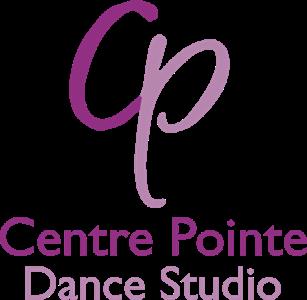

exceptional training
focussed
277www.caymanparent.com
CPDS provides
in the areas of dance, drama and musical theatre. They are
on developing students' natural self-expression, creativity and musicality through our unique classes and performing arts programme. We encourage our students to express themselves and to strive for excellence in all they do - both inside and outside of the studio. (345) 926 5889 | centrepointedance@gmail.com | www.centrepointedancestudio.com | 107-109 Alissta Towers Highlights: Fully integrated dance/musical theatre programme • External examinations offered 2/3 times per year • Outstanding examination results across all areas • Student-led fundraising activities • Student teaching education programme • Adult Classes 18yrs+ • Integrated Preschool programme • Fully qualified and experienced teachers Details: Opening Hours: Monday-Thursday 3pm-7.30pm and Saturday 8.30am-3.30pm Ages: 2 Years to Early Adulthood Cost: Fees start from $190 per term
Pointe Dance Studio Quality
GOLF
Cayman Golf Lab
37B Ashgo Street, Unit 6, George Town. Tel: (345) 917 2444 Email: brad@caymangolflab. com Web: www.caymangolflab.com. They offer lessons, rental of the golf simulator or you can just come and hit some balls or play a round of golf on one of the thousands of golf courses from around the world .
North Sound Golf Club
Safehaven Drive, SMB. Tel: (345) 947 4653 Web: www.northsoundclub.com Email: jeffrey. sauvage@northsoundclub.com. Year round junior camps and after-school programmes for junior golfers aged 6-12 years. Private lessons with PGA professionals are available.
The Ritz-Carlton Golf Club, Grand Cayman West Bay Rd, SMB. Tel: (345) 815 6500 Web: www.ritzcarlton.com/en/hotels/caribbean/ grand-cayman/area-activities/activities/ golf. Private instruction from the ages of 5 upwards.
GYMNASTICS
Motions Unlimited
150 Sparky Dr, Industrial Park, George Town. Tel: (345) 749 8365 Email: reception@ motionsunlimited.com Web: www. motionsunlimited.com. They have experienced coaches and state-of-the-art gymnastics equipment for children. They also hold Toddler Playdays throughout the week and on Saturday morning. All participants must be registered members in the Motions Jackrabbit parent portal and all payments must be made in advance online through Butterfield.
HORSEBACK RIDING
Cayman Riding School
Hirst Road, Savannah. Tel: (345) 926 7669 Email: caymanridingschool@gmail.com. Cayman Riding School is a registered overseas centre with the British Pony Club. Located in Savannah, Newlands CRS offers English riding lessons with BHS/FEI qualified instructors in Show Jumping, Dressage Vaulting and Cross Country.
Cowboy Town Stables
160 Lottery Road, Lower Valley. Tel: (345) 916 8571 Email: shanna@cowboytownstables. com Web: www.cowboytownstables. com. Riding and horsemanship lessons. A certified therapeutic horsemanship instructor specialises in providing lessons for people with physical, mental, social and emotional disabilities and disorders.
Equestrian Center Riding School
Linford Pierson Highway, George Town. Tel: (345) 516 1751 Email: info@equestriancenter. ky Web: www.equestriancenter.ky. A riding school and boarding stables. They also offer a 'Pony Park' every Saturday morning from 9-10.30am where children can have pony rides for CI$5 and meet goats, rabbits and other small animals.
Spirit of the West
Barker's Beach, West Bay. Tel: (345) 916 6488 Email: info@seahorses.ky Web: www. caymanbeachrides.com. Accompanied beach rides with a Caribbean Swim Ride option. Resident rates are available.
MARTIAL ARTS
Cayman Associated Schools of Karate (C.A.S.K.)
King’s Sports Centre, Red Bay. Tel: (345) 925 3367 Email: caskkarate@gmail.com Web: www.caskcayman.com. Youth (ages 4-12), co-ed adult and women-only classes, in traditional WADO style karate, as well as a Tai Chi programme.
Purple Dragon School of Martial Arts
Reliable Building, Compass Drive, George Town. Tel: (345) 946 1241 Email: purple@ candw.ky. Web: www.purpledragon.ky Purple Dragon teaches the martial arts system called Don Jitsu Ryu for children aged 4+.
The Academy
Unit 115, Canon Place, N Sound Rd, George Town. Tel: (345) 323 9778 Email: info@ theacademy.ky. The Academy teaches Brazilian Jiu Jitsu classes for children aged 7-10, and 11+.
PARKOUR
Motions Unlimited
Tel: (345) 749 8365 Email: info@ motionsunlimited.com Web: www. motionsunlimited.com. Motions Unlimited offers parkour training for children from the age of 8 and older. Very popular with the boys!
ROLLER & INLINE SKATING
King's Sports Centre
861 Crewe Road, George Town. Tel: (345) 946 5464 Web: www.kingssportscentre.com. Family skating is on Saturdays from 4.30pm10pm and Sundays from 1pm-4pm. Teen Jam Skate is on Saturdays from 7pm-10pm. Their Learn to Skate programme is held at 8am on Saturday morning for CI$10 per session.
RUGBY
The Rugby Club
South Sound Road, South Sound. Tel: (345) 525 6743 Email: caroline.deegan@ caymanrugby.com Web: www.caymanrugby. com. The Maples Group Community Junior Rugby coaching is held every Saturday morning from October to May for children aged 3–19 years old. Programmes are available for under-6, under-8, under-10, under-12, under-14, under-16 and under-19. Annual Membership is CI$100.
SAILING
Cayman Islands Sailing Club
244 Spinnaker Road, Red Bay. Tel: (345) 947 7913 Email: rharvey@sailing.ky Web: sailing. ky. CISC provides lessons for adults and youth, and an extensive fleet of boats are available for hire to members and non-members.
SKATEBOARDING
Black Pearl Skate Park
Grand Harbour Shopping Centre, Red Bay.
Tel: (345) 939 1301 Email: skate@blackpearl. ky Web: www.blackpearl.ky. 62,000sq ft of beginner, intermediate and expert flow, as well as street courses, plus three half-sized basketball courts.
SQUASH
South Sound Squash Club
25 Anne Bonny Crescent, South Sound. Tel: (345) 526 5052 Web: www.squash.ky Email:
info@squash.ky. Junior coaching is available from ages 5 and up at beginner, intermediate and advanced levels.
SWIMMING
CBAC (Camana Bay Aquatic Club) 95 Minerva Drive, Camana Bay. Email: info@ cbac.ky Web: www.cbac.ky. Competitive swim club with professional coaching for children ages 5-18 of all abilities. Group and private swimming lessons available for ages 2-10 years.
Darren Mew Sports and Fitness (SMS)
Lions Aquatic Centre, Olympic Way George Town Tel: (345) 323 9512 Web: www. darrenmew.com. Swimming lessons for ages 3 and upwards. Lessons are offered at home, in the ocean, or at a local pool facility.
Fitness Connection
1 Bambi Close, Glen Eden Road. Tel: (345) 949 8485 Email: fitness@fitness.ky Web: www. fitness.ky. A Starfish Aquatic Institute Training Centre offering a variety of programmes for all ages and abilities. Swimming lessons for babies begin at 6 weeks old. Private and group classes available.
Sky Blue Aquatics
Tel: (345) 916 0054 Email: info@ skyblueaquatics.com Web: www. skyblueaquatics.com. Mobile swimming instructors with lessons for ages 4 months to adults. Private, semi-private and small group lessons provided. Their certified instructors specialise in customising lessons to each client’s individual needs to ensure the highest productivity.
Stingray Swim Club
Lions Aquatic Centre, Olympic Way George Town. Tel: (345) 323 2271 Web: www. caymanswimming.com. A competitive swimming club for ages 6 and up.
Synchronised Swimming (CBAC)
Email: alissa@cbac.ky Web: www.cbac. ky. Training for young swimmers ages 5-17. Swimmers must be confident in deep water and be able to tread water.
Thrive Fit
Tel: (345) 938 1113 Web: www.thrivefitcayman. com Email: info@thrivefitcayman.com. Mobile swimming instruction for children aged 6 months and upwards. Private, semi-private and group lessons available.
TENNIS
The Cayman Islands Tennis Club
Anne Bonny Crescent, South Sound. Tel: (345) 949 9464 Email: tennis@tennis.ky Web: www.tennis.ky. Coaching available from the ages of 4 to adults. After-school programmes are also offered plus tournaments held throughout the year.
Cayman Performance Tennis
Tel: (345) 927 8690 Email: micabeach@gmail. com Web: www.caymanperformancetennis. com. Private and group tennis lessons from the age of 6.
Cayman Tennis Academy
1960 West Bay Road, Seven Mile Beach. Tel: (345) 547 6257 Email: contact@
Cayman Parent Magazine | School Age278
caymantennisacademy.com Web: www. caymantennisacademy.com. Lessons for kids aged 3-10 years on their half-sized tennis courts. For ages 10 and up lessons are held on full-sized courts. Private, group lessons, and after school programmes are also offered.
The Courts at The Ritz-Carlton
Ritz-Carlton Drive, Esterly Tibbetts Highway.
Tel: (345) 323 0049 Email: caymantennis@ ritzcarlton.com. Private or semi-private lessons offered for ages 6-16 years old. After school classes available.
TEN PIN BOWLING
King’s Sports Centre
Red Bay. Tel: (345) 946 2695 Email: kingpinbowling@candw.ky Web: www. kingssportscentre.com. Four bowling lanes plus a lounge and bar area.
YOGA
Kula Kids Yoga
Tel: (345) 916 3007 Email: kulakidscayman@ gmail.com Web: www.kulakidsyogacayman. com. Kula Kids offers classes from prenatal to 18 years of age in a studio dedicated to children and their yoga practice.
Thrive Fit
Tel: (345) 938 1113 Web: www.thrivefitcayman. com. Private and small group yoga classes for children. After-school and Saturday sessions available.
Yoga Sprouts
Tel: (345) 326 9876 Email: info@
yogasproutscayman.com Web: www. yogasproutscayman.com. Yoga classes from 3 months to 8 years old.
Church Services & Sunday Schools
ANGLICAN CHURCH
St. Alban’s Church of England 461 Shedden Road, George Town. Tel: (345) 949 2757 Web: www.churchofenglandcayman. org. Sunday Matins 8.30am; Church School 9am; Holy Communion 9.30am with Sunday school. For weekday services and activities see the website calendar. All services are taken from the Church of England's Book of Common Prayer (1662).
ANGLICAN (EPISCOPAL)
St. George’s Anglican Church 64 Courts Road, George Town. Tel: (345) 949 5583 Email: stgeorgescayman@gmail.com. Sunday Eucharist 7am and 9am; Sunday School 9am; Wednesday Eucharist 10am; Youth evening Friday 7.30pm.
ASSEMBLIES OF GOD
Cayman International Assembly Meeting place: Camana Bay Cinema. Tel: (345) 916 2957. Sunday Service 10am. Cayman International Assembly of God offers a casual and contemporary style of worship.
First Assembly of God 195 Old Crewe Road, George Town. Tel: (345) 945 2182 Email: faogky@candw.ky Offers YouTube online services just for kids.
Fitness Connection
Over 30 Years of Fitness and Fun in Cayman
For over 30 years, Fitness Connection has been Cayman’s leader in providing safe, effective fitness and aquatic programmes for families. They are committed to offering high quality, personalised programmes, both mobile and on-site, for kids and adults. With a small and intimate facility located in the heart of South Sound, their kids camps, swimming lessons and personalised fitness classes are popular with residents and visitors alike!

Swimming
Fitness Connection is Grand Cayman's premier swim school and provides safe, effective fitness and aquatic programmes for all ages and abilities, specialising in adults learning to swim, infants, toddlers and special needs.
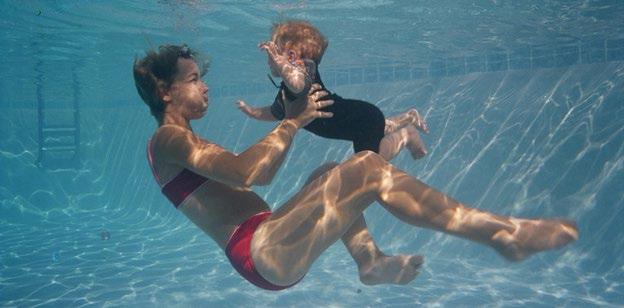
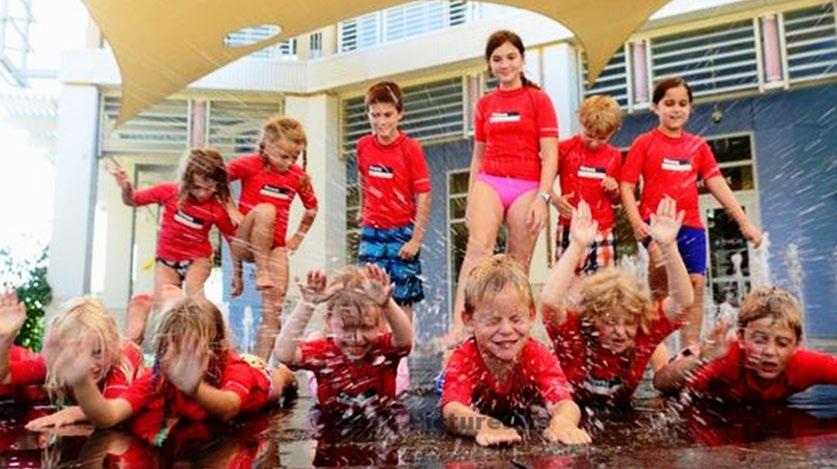
Kids Camps
Throughout the year Fitness Connection offers various holidays camps. Drop the kids at 9am -5pm for a fun filled day of excursions, swim time, arts and crafts, games and more with experienced camp counsellors.
Kids After School Programmes
Parents can drop their kids off at Fitness Connection for swim lessons and fun with friends from 2.30pm-5.30pm
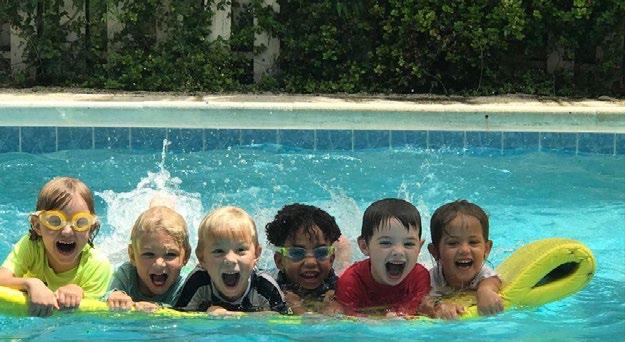
Tuesday and Thursday.
West Bay Assembly of God
100 Finch Drive (off Stadium Road). Tel: (345) 916 3748. Sunday School 10.30am. Online services streamed live on Facebook.
BAPTIST CHURCHES
Cayman Islands Baptist Church
163 Pedro Castle Road, Savannah. Tel: (345) 946 2422 Email: office@cibaptist.ky Web: www.cibaptist.ky Pastor: Dr Stephen Tillis Sunday Worship Services 9am and 11am; Wednesday Bible Study 7pm; service delivered in Spanish at 6pm on Sundays.
First Baptist Church of Grand Cayman 920 Crewe Road (Across from the Lion’s Centre and near Hurley's Shopping Centre). Tel: (345) 949 0692 Email: fbc@fbc.org.ky Web: www.fbc.org.ky. Sunday School for all ages 9.15am; Sunday Service 10.30am. Wednesdays 6.30pm Bible Study, Spanish Bible Study every third Sunday of the month at 6.30pm. Fridays 7pm SPARK Children's Club and Ignite Youth Group. Small groups also meet throughout the week.
CATHOLIC CHURCHES
St. Ignatius Catholic Church
597 Walkers Road, George Town. Tel : (345) 949 6797 Email: ignatius@candw. ky. Weekday Masses: Monday-Friday 7am, Weekend Masses: Saturday 8.30am and 6pm, and Sunday 8am, 11.30am and 6pm; Sunday School 10.15am–11.15am. There is also Eucharistic Adoration on Saturday and Sunday from 6am-9pm daily in the Divine Mercy Adoration Chapel.
279www.caymanparent.com
(345) 949 8485 | fitness@fitness.ky | www.fitness.ky | 1 Bambi Close |
every
Christ the Redeemer Catholic Church
Reverend Blackman Road, West Bay. Tel: (345) 949 6797. Sunday Mass 9.45am.
Stella Maris Catholic Church
Alta Vista Drive, Cayman Brac. Tel: (345) 926 5555 or (345) 949 6797. Sunday Mass 11am, and Communion Service at 6PM (some weeks).
LUTHERAN
Safe Harbour Lutheran Church
205 Andrew Drive, Snug Harbour. Tel: (345) 949 1835 or (345) 926 5491 Web: www.
safeharbourlc.com. Sunday service 10am at The Chamber of Commerce Training Centre, Governors Square on West Bay Road.
METHODIST
Wesleyan Holiness Church
150 North West Point Road, West Bay. Tel: (345) 949 1121 Email: info@whccayman.com. Sunday services: 11am and 6pm. Sunday School 9.45am.
MORAVIAN
Covenant Moravia Church
6 Devon Road, Off Marina Drive, Prospect. Tel: (345) 947 7935. Sunday School: 10am, Sunday services: 11am.
NON-DENOMINATIONAL
Agape Family Worship Centre
50 Fairbanks Road, George Town. Tel: (345) 949 2539 Email : agape@candw.ky. Sunday service 10am in person or live stream available; Wednesday service 7.30pm; Friday youth group held at 7.30pm.
Church of God Chapel George Town 22 Academy Way, George Town. Tel: (345) 949 9393 Email: cogcgt@candw.ky Web: www. churchofgodchapel-GT.org. Online Bible study Thursday evenings 7.30pm, Sunday Family Service at 10.30am (online viewing available).
Sunrise Community Church Services held at the Harquail Theatre. Tel : (345) 926 7473 Email: paola@sunrise.ky Web: www. sunrise.ky. Sunday Services 9am without Children/Youth Ministries and 10.30am with Nursery Care and a Children’s Sunday School. There is the opportunity to socialise afterwards with complimentary pastries and coffee. They also hold Community Groups for men and women who meet weekly.
PENTECOSTAL
All Nations United Pentecostal Church 23A Woodlake Drive, George Town. Tel: (345) 949 9533 Email: allnationupc@gmail.com.
Tuesday youth service 7.30pm; Sunday School 9am, Sunday worship 11am and Evangelistic service held at 7.30pm.
The Power of Faith Deliverance Ministry Ltd. 100 Greenwood Drive, George Town. Tel: (345) 949 1516 Email: pofdmc.ky@gmail.com Tuesday Prayer Service & Bible Study 7.30pm; Friday Youth Service 7.30pm; Sunday School 9.30am; Sunday Worship 10.30am and 7.30pm
PRESBYTERIAN & CONGREGATIONAL
Elmslie Memorial United Church Downtown George Town on the waterfront ,
North Church Street. Tel: (345) 949 7923
Email: elmslieunitedchurch@gmail.com Web: www.Elmslieunitedchurch.ky. Sunday service is held at 10.30am. Elmslie also has a smaller affiliated congregation: South Sound United Church and their service is on Sundays at 9am.
William Pouchie Memorial United Church 815 North Side Road, North Side. Tel: (345) 938 2239 Email: wpmucns@gmail.com. Sunday service is held at 9am.
SEVENTH DAY ADVENTIST
Cayman Islands Conference of Seventh-Day Adventists
Tel: (345) 949 2647 Web: www. caymanadventist.org Email: general.queries@ cicsda.org. Saturday Sabbath School service 9.15am, Divine Service 11am. Adventist Youth Programme 5pm (may vary) and there are Sunday and Wednesday evening services at 7.30pm. Churches are located across Grand Cayman, Cayman Brac and Little Cayman.
JEWISH SERVICES
Cayman Hebrew School 7 Mile Shops, West Bay Road. Tel: (345) 949 0770 or (345) 516 4474 Email: rikal@jewishcayman. com Web: www.chabadcaymanislands. com. Offer an array of afternoon classes for children aged 1-13. From Hebrew Reading and Jewish history to Judaic art music and more, the Cayman Hebrew School provides creative opportunities for students to explore their Jewish identities.
MUSLIM SERVICES
Islamic Society of The Cayman Islands Unit C3, Cayman Business Park, 10A Huldah Avenue, George Town. Web: www.isci.org. ky Tel: (345) 329 2079, Email: isci@candw. ky. Friday Jummah Services at 1pm; Children's Sunday School 10am.
Watersports Operators
All Aboard Charters
Cayman Islands Yacht Club. Tel: (345) 922 2177 Email: info@allaboardcharters.ky Web: www. allaboardcharters.ky. Private boat charters with tours to Stingray City and around the North Sound.
Cayman Kayaks
Tel: (345) 926 4467 Web: www.caymankayaks. com. Cayman Kayaks run eco-conscious bioluminescence tours by kayak and electric stealth boat in the Bio Bay near Rum Point when the moon is very new. They also point out various constellations in the night sky and the science behind the bioluminescence. It is an ideal thing to do with children aged 8 and up.
Cayman Sea Elements
Dock C4, Cayman Islands Yacht Club. Tel: (345) 936 8687 Email: caymansea@gmail.com Web: www.caymanseaelements.com. They offer mangrove kayak, bioluminescent and Stingray City tours plus in the school holidays they team up with Clever Fish and run the watersports side of their educational/adventure camps.
Cayman Stand Up Paddle Co. (CSUPco)
Tel: (345) 938 4787 Email: info@
caymanstanduppaddleco.ky Web: www. caymanstanduppaddleco.ky. Paddleboard rentals. A great activity for families. CSUPco will deliver the boards to you and offer a quick lesson.
Kitesurf Cayman
Barker's Beach, West Bay. Tel: (345) 916 5483
Email: info@kitesurfcayman.com Web: www. kitesurfcayman.com. Suitable for children aged nine and above who can swim. They offer kitesurfing and wind surfing lessons and they hold wonderful morning and/or afternoon summer camps in the school holidays.
Ocean Frontiers
344 Austin Conolly Dr, East End. Tel: (345) 947 7500 Email: info@oceanfrontiers.com Web: www.oceanfrontiers.com. A variety of small group snorkel trips which are great for families.
Parasailing Professionals
Seven Mile Beach. Tel: (345) 916 2953 Web: www.parasailgrandcayman.com. Parasailing rides along Seven Mile Beach. Minimum age is 5 years, when accompanied by a parent.
Point Blue Sailing
Boats leave from Camana Bay, Barcadere and Kaibo. Tel: (345) 925 7772 Email: dean@pointbluesailing.ky Web: www. pointbluesailing.ky. Luxury private sailing charters that can be customised to you and your family’s needs.
Red Sail Sports
Located at the Kimpton, Camana Bay, Westin Beach Resort, Marriott Beach Resort, Rum Point and Morritt's Tortuga Resort. Tel: (345) 623 5965 Email: info@redsailcayman.com Web: www.redsailcayman.com. Banana boat rides, sailing and diving. Beach toys available for rent.
Sail Cayman
Cayman Islands Yacht Club. Tel: (345) 916 4333 Email: neil@sailcayman.com Web: www. sailcayman.com. A full service private charter company offering a variety of sail and power boat excursions, all suitable for families.
Soto’s Cruises
120 Palm Heights Drive, SMB. Tel: (345) 945 4576 Email: scruises@candw.ky. Web: www. sotoscruises.com Guided snorkelling boat tours suitable for families.
White Sand Water Sports
Located at the Wyndham Reef Resort, East End and the Holiday Inn, Crighton Drive, Seven Mile Beach. Tel: (345) 938 7263 Email: whitesandwatersports@gmail.com Web: www.whitesandwatersports.com. Family friendly activities including snorkel and kayak tours, stand-up-paddleboarding and hobie cat sailing.
Sports Clothing & Equipment
Bliss Living Yoga
Marquee Plaza, Lawrence Blvd. Tel: (345) 949 9642 Web: www.blissyogacayman.com. Sells Lululemon, Athletica, Manduka and Dharma Bums yoga wear and equipment.
Cayman Parent Magazine | School Age280
Little Angels
Market Street, Camana Bay. Tel: (345) 946 2645.
Extensive selection of SPF 50+ sun protection tops, swimwear, ‘jelly’ shoes and more.
Sports Supply
Galleria Plaza, West Bay Road. Tel: (345) 949 7884 Web: www.sportssupply.ky. Offers
clothing for football, yoga, tennis and general fitness. Brands include Nike, Adidas, Asics, New Balance, and Under Armour. They also stock watersports equipment and home gym equipment.
Sportista
One Nexus Way, Camana Bay. Tel: (345) 926 1122. Clothing and accessories from top sporting brands.
Waterman Cayman
Galleria Plaza, West Bay Road. Tel: (345) 769 7873. Sells equipment and clothing for watersports such as paddleboarding, surfing and kiteboarding.
Diving Courses
Local diving companies offer a number of programmes for children, who can become PADI certified (Junior Open Water Diver) as early as age 10. Those who are younger have several options: the Bubblemaker programme is available to 8-9 year olds, and is a chance for them to try out scuba gear from the safety of a pool, under the supervision of a qualified instructor. For children aged 5-8 years, there is S.A.S.Y. (Supplied Air Snorkelling for Youth). This is for surface snorkelling only, but participants wear buoyancy jackets and regulators so they can begin to understand dive gear.
Ambassador Divers
Tel: (345) 916 1064 Email: ambassadordiverscayman@gmail.com Web: www.ambassadordivers.com. Various dive courses and boat dives.
Divetech
Lighthouse Point, North West Point Road, West Bay. Tel: (345) 946 5658 Email: info@divetech. com Web: www.divetech.com. They offer the S.A.S.Y. training to children aged 5 and up.
Eden Rock Diving Center
124 South Church Street, George Town. Tel: (345) 949 7243 Email: edenrock@candw.ky Web: www.edenrockdive.com. Full range of dive courses, guided dives, snorkelling and great shore diving.
Red Sail Sports
Tel: (345) 623 5965 Email: info@redsailcayman. com Web: www.redsailcayman.com. They offer the Bubblemaker programme for 8-9 year olds.
Seahorse Diving School
Email: seahorsedivingschool@gmail.com or Tel: (345) 328 2778. Fulvio Bonati and Sonia Pacini have taught more than 1,000 children in Cayman to learn to dive. Their small groups of a maximum of three students are very popular.
Sunset Divers
390 South Church Street, George Town. Tel: (345) 946 6789 Web: www.sunsethouse.com.
They offer various dive courses plus boat and
shore dives along with coral conservation courses.
White Sand Watersports
Located at The Wyndham Reef Resort & Colliers Beach East End and the Holiday Inn, Crighton Drive, Seven Mile Beach. Tel: (345) 938 7263. Web: www.whitesandwatersports.com. Boat tours, snorkel trips, jet skis, kayaks and more.
Parties
CATERING
Cooking for a crowd can be challenging! Save money, stress and offer a versatile menu by hiring a catering company for your next event.
The Cake Studio
Tel: (345) 926 4944 Email: thecakestudio@ ymail.com Web: www.thecakestudiocayman. com.
Carousel Creative Catering
Tel: (345) 946 0926 Email: orders@carousel.ky Web: www.carousel.ky.
Domino's Pizza
Tel: George Town (345) 949 8282, Savannah (345) 947 1188, West Bay (345) 949 6633 Web: www.dominos.ky. Party specials with pizza, chicken wings, pastas, sandwiches and glutenfree options.
Foster’s
Tel: (345) 945 3663 Email: catering@fostersiga.com Web: www.fosters.ky. A wide selection of party platters, fruit baskets, dessert platters, and cakes.
Hurley’s Supermarket
Tel: (345) 947 8488 Web: hurleys.ky. Party trays, sushi, cakes and pizzas.
Kirk Market
Tel: (345) 949 7022 Email: delivery@kirkmarket. ky Web: www.kirkmarket.ky. Catering services including hors d'oeuvres, custom menus, cakes, and gourmet platters.
Mise en Place
Tel: (345) 623 2433 Email: events@catering.ky Web: www.catering.ky. Catering for birthday parties, baby showers and other celebrations, large or small. Also offers custom-made cakes.
Petit Paris French Bakery
Tel: (345) 328 4000 Email: info@ppcayman. com Web: www.ppcayman.com. Catering for every occasion, large or small with pastries, sandwiches, platters, canapes and cakes.
Treats
Tel: (345) 945 4262 Email: treatsrestaurant@ gmail.com Web: www.treats.ky. Catering for all types of parties.
EVENT PLANNING
AI Rentals
Tel: (345) 946 4935 Email: info@ai-rentals.com Web: www.ai-rentals.com.
Celebrations
Tel: (345) 623 2044 Email: customerservice@ celebrationsltd.com Web: www. celebrationsltd.com.
Massive Equipment
134 Industrial Way, Airport Industrial Park. Tel: (345) 949 7990 Email: info@massivegroup. com Web: www.massivegroup.com
Poppet Studio
33 Eclipse Drive, Eastern Avenue. Tel: (345) 926 2551 Email: thepoppetstudio@gmail.com.
FLORISTS
Fresh flowers can add just the right touch to any occasion. Let Cayman's floral experts guide you in selecting the perfect flowers based on your budget, season and price. Most supermarkets sell flowers and some, like Kirk Market, have a 'flower bar' where they can make beautiful arrangements for you.
Celebrations
Tel: (345) 623 2044 Email: customerservice@ celebrationsltd.com. Web: www. celebrationsltd.com.
Every Bloomin’ Thing
384 Crewe Road, George Town. Tel: (345) 945 1701 Email: floral@ebt.com.ky Web: www.ebt. com.ky.
Kirk Market
413 Eastern Avenue, George Town Tel: (345) 949 7022 Ext 151 Web: www.kirkmarket.ky Email: theflorist@ksl.ky. The florist station at Kirk Market is open Monday-Saturday 8am8pm.
Trisha’s Roses
North Church Street, GT. Tel: (345) 949 2423 Email: moments@candw.ky Web: www. trishasroses.com.
PARTY ENTERTAINMENT
Balloonimals345
Tel: (345) 917 7757 Email: balloonimals345@ gmail.com. Balloon animals and face painting available for private parties and public events.
Cayman Face Painting/Joan Ebanks
Tel: (345) 922 6407 Email: kyfacepainters@ gmail.com. Provides fun and creative face painting.
Cinderella Enchanted Parties
Tel: (345) 923 6797 Email: cinderellasparties@ gmail.com Web: www.cinderellasparties.com. Magical princess and exciting superhero party packages.
Partybooth Cayman
Tel: (345) 926 4100 Email: partyboothcayman@ yahoo.com Web: www.partyboothcayman. com. Customised photo booths for parties and events. A range of props and party packs are also available.
Shilpa’s Creative Unique Arts
Tel: (345) 927 1763 Email: tshilpa74@gmail. com Web: www.shilpasuniqueart.com. Henna tattoos, face painting and arts and crafts activities and classes.
FANCY DRESS & PARTY SHOPS Art'y Parties
6 Devon Road, Prospect. Tel: (345) 928 0284 Email: artypartiescayman@yahoo.com Web: www.artypartiescayman.com. They offer customisable art parties as well as face painting
281www.caymanparent.com
and airbrushed tattoos. In the school holidays they offer art camps.
It’s Your Party
Bodden Place, Shedden Road, George Town. Tel: (345) 946 4453 Email: sherleenduval@gmail. com Web: www.itsyourparty.ky.
Party Mania
Dorcy Drive, Foster's Airport Center, George Town. Tel: (345) 945 3268 Email: caypartymania@gmail.com. Party decorations, balloons, piñatas and costumes.
Party Source
Paddington Place, George Town. Tel: (345) 947 2789 Email: party.source@hotmail.com. Web: www.partysource.ky.
PartyVille
38 North Sound Road, Plaza Venezia. Tel: (345) 943 8455 Email: partyvilleltd@gmail.com Web: www.facebook.com/thepartyvillegcm/ Party supplies and a party planning service.
DESIGN YOUR OWN COSTUME
Super Stitch Sewing and Fabric Centre
Tel: (345) 949 2833 Email: customercare@ superstitch.com.ky Web: superstitch.com.ky.
Creative Fashion & Design
Tel: (345) 949 0034 Email: info@ creativefashionanddesign.com Web: www. creativefashionanddesign.com.
PARTY VENUES
3 Girls & A Kiln
47 South Church Street, George Town. Tel: (345) 640 9990 Email: 3girlsandakiln@gmail.com Web: www.3girlsandakiln.com.
Art Nest
Elizabethan Square, George Town. Tel: (345) 927 2258 Email: events@artnestcayman.com Web: www.artnestcayman.com.
Art’y Parties
6 Devon Road, Prospect. Tel: (345) 928 0284 Email: artypartiescayman@yahoo.com Web: www.artypartiescayman.com.
Beach & Park Cabanas
Tel: (345) 949 2547 Email: pwdadmin@gov. ky Web: www.publicworks.gov.ky (look under 'Reservations'). Cabanas are free to hire on public beaches and in local parks. However, bookings are required.
Black Pearl Skate Park
Grand Harbour, Red Bay. Tel: (345) 939 1301 Email: info@blackpearl.ky Web: www. blackpearl.ky. The skate park can be hired for fun and games. Equipment rental, and food packages provided by Salty's available.
Bon Vivant
Market Street, Camana Bay. Tel: (345) 623 2665 Email: info@bonvivant.ky Web: www. bonvivant.ky. Fun and interactive cooking parties where kids will prepare a child-friendly meal from scratch.
Cayman Riding School
Hirst Road, Savannah. Tel: (345) 926 7669 Email: caymanridingschool@gmail.com. They host memorable birthday parties which include riding, games, party supervision, a gazebo to host the
cake cutting and the pièce de résistance - a pool in the back of a truck!
Cayman Turtle Centre
786 North West Point Road, West Bay. Tel: (345) 949 3894 Email: info@turtle.ky Web: www. turtle.ky. Parties offering interactive games, activities and music.
The Equestrian Center
Linford Pierson Hwy, George Town. Tel: (345) 516 1751 Email: info@equestriancenter.ky Web: www.equestriancenter.ky. Kids parties include pony rides, access to the petting zoo, staff supervision and picnic areas.
Kimpton Seafire Resort & Spa
Tel: (345) 746 4048 Email: campseafire@ seafireresortandspa.com. They have their new splash park plus waterslides, watersports, bouncy castles, face painting, magicians and movies under the stars.
King's Sports Centre
Crewe Road, George Town. Tel: (345) 946 5464 Email: kings@candw.ky Web: www. kingssportscentre.com. Bowling and roller/ in-line skating parties. They also offer multipurpose rooms to host events and parties. Food and drink packages available.
Motions Unlimited Gymnastics Studio
150 Sparky Dr, Industrial Park, George Town. Tel: (345) 749 8365 Email: reception@ motionsunlimited.com . Children’s parties held on Saturday afternoons. Make sure to book in advance as they are a very popular venue and get booked up months in advance.
National Gallery
Esterley Tibbetts Highway, south of Camana Bay. Tel: (345) 945 8111 Email: events@nationalgallery.org.ky Web: www. nationalgallery.org.ky. Themed parties with art activities, play area, games, staff supervision and food options.
Pedro St. James
Pedro Castle Road, Savannah. Tel: (345) 947 3329 Email: info@pedrostjames.ky Web: www.pedrostjames.ky. Several lawn areas and a playground available to rent. Food can be provided or parents bring their own. Kids can watch the theatre show, take part in nature and trails, and explore the 18th Century Great House.
The Ritz-Carlton Grand Cayman
West Bay Road, Seven Mile Beach. Tel: (345) 943 9000 Web: www.ritzcarlton.com/en/ hotels/caribbean/grand-cayman. Birthday parties are available to residents at Starfish Cay Waterpark, The Courts and Ambassadors of the Environment. The package includes food and drinks at the water park.
Yoga Sprouts
Tel: (345) 326 9876 Email: yogasproutscayman@ gmail.com Web: www.yogasproutscayman. com. Party packages include yoga, craft activities, supervision, food and drinks.
Photographers
Baby Love Newborn Photography
Email: info@babylove.ky Web: www.babylove. ky. They specialise in timeless maternity and
newborn photography.
Cathy Church's Photo Centre
Sunset House, South Church Street, South Sound. Tel: (345) 949 7415 Email: info@ caymanphotographers.com Web: www. cathychurch.com. Photography for parties, maternity, newborn, families and more.
Daria Keenan Photography
Email: daria@pinkpalmstudio.com Web: www. dariakeenan.com. Daria captures genuine, joyful, sunkissed portraits. Maternity, newborn and family photography.
Deep Blue Images
13 Caymanian Village, North Sound Road, George Town. Tel: (345) 916 0016 Email: info@deepblueimages.com Web: www. deepblueimages.com. Family, children and event photography.
Lisa Reid Photography/Blank Canvas Ltd
Tel: (345) 916 2239 Email: lisa@ lisareidphotography.com Web: www. lisereidphotography.com. Photography for families, children, couples, birthday parties and events.
Rebecca Davidson Photography
Tel: (345) 916 1654 Email: rebecca@ rebeccadavidson.com Web: www. rebeccadavidson.com. Corporate (including 360 shots for real estate properties), maternity, newborn and family photography.
Voluntary Organisations

There are so many volunteering opportunities in the Cayman Islands! For a few suggestions see our article on volunteering pages 266-267.
Teen Leadership Training
For more information on leadership training, turn to page 293 or visit CaymanParent.com.
Girlguiding Cayman Islands
Email: ggcimarketing@gmail.com Web: www. girlguidingcaymanislands.ky. Girlguiding groups include Rainbows (5-7), Brownies (7-10), Guides (10-14), Rangers (14+).
Scouts Association
Tel: (345) 949 1515 Email: ciscouts@candw.ky. Scout groups include Beavers (6-8), Cub Scouts (8-11) and Scouts (11-19).
YMCA Cayman Islands
Tel: (345) 926 9622 Email: info@ymcacayman. ky Web: www.ymcacayman.ky/programmes/ y-day-camps. A variety of after-school programmes, sports and summer camps that instil the YMCA’s core values of honesty, care, respect, responsibility and faith. The Y offers camp programmes the entire summer and anytime schools are on break for ages 5-12 and a Leaders-in-Training programme for teens aged 13-17. They also have the Ropes Challenge Course which can host birthday parties.
Cayman Parent Magazine | School Age282
Tell them you saw it in CAYMAN PARENT
Adolescence

283 ADOLESCENCE www.caymanparent.com
Contents Saturday jobs, budgeting, learning to drive, vaping & more The Problem of Vaping p284 Among Teens Teens & Drinking p286 Saturday Jobs for Teens p288 Having 'The Talk' with p290 Your Children Menstruation 101 p291 Low-Cost & Free Activities p292 for Adolescents Cayman's Inspiring Teens Q&A p294 Budgeting for the First Time p296 Learning to Drive & Rules of p298 the Road Adolescence Book Club p300 The Listings p301 In Conversation with Alanna P304 Warwick-Smith Photo courtesy of Daria Keenan Photography
The Problem of Vaping Among Teens

Vaping has exploded in popularity in the past five years or so. Electronic cigarette use is rising faster than any other substance use recorded. And the biggest worry is that one of the main users - teenagers - are not the demographic for which these devices were originally intended.
and thus, in theory, helps smokers wean themselves off cigarettes. One of the reasons behind the rapid uptake among teens, however, is that many have fruit or candy flavours added which appeal to young people. Another, is the product design which has become increasingly sleek and techy-looking. Devices can look like pens or zip drives and fit neatly into the palm of a hand. And then there’s the marketing, much of which is on social media and targets this age group.
E-cigarettes have also succeeded in removing many of the negative connotations of conventional cigarettes – users don’t inhale the tar, there is no smoke or unpleasant smell, and they are cheaper than tobacco – all of which add to their appeal.
Vape Use in Cayman
Although 40+ countries worldwide have prohibited vaping in all forms, in Cayman these devices are readily available in gas stations and corner shops, and are often prominently displayed, says Simon Miller, the National Drug Council’s prevention specialist.
Although by law tobacco products cannot be sold to under18s in Cayman, it’s a grey area as some vapes do not contain nicotine and are therefore not technically tobacco. However, the good news is that vaping products are in the process of being regulated here.
It’s a sad irony that a product that was originally conceived as a smoking cessation aid is, in fact, creating a whole new generation of nicotine addicts. According to the Truth Initiative, between 2011 and 2019, youth e-cigarette use rose 1,800% and it is now the most common source of tobacco for young people.
While e-cigarettes may be less harmful than traditional cigarettes, they are in no way harmless. In North America a sudden outbreak of lung injuries associated with e-cigarettes during the summer of 2019 highlighted some of the short-term dangers of these devices. But perhaps even more concerning is that they are so new that experts don’t yet know what the long-term effects might be.
What is Vaping?
Vapes, vape pens, mods, tanks or e-cigarettes are collectively known as Electronic Nicotine Delivery Systems (ENDS). These battery-operated devices heat a liquid into an aerosol that is then inhaled. This liquid usually – but not always – contains nicotine,
Nonetheless, the NDC’s 2020 Student Drug Use Survey, which polled almost 3,500 students in Cayman schools, found that e-cigarettes were the second most common substance used by young people after alcohol, with 29% reporting having vaped at least once. These figures have increased since the 2018 survey.
The survey also found that children aged 13 and younger reported having tried vaping – double the rate that had tried tobacco.
Risks of Vaping
Because vapes have been around for less than 15 years, the long-term effects have yet to be seen. Their recent emergence also means that there is little regulation surrounding them, and some of the chemicals used in them are unknown, so their safety has not been established.
Most vapes deliver nicotine, a highly addictive substance that is known to raise the heart rate and increase the risk of heart
Cayman Parent Magazine | Adolescence284 ADOLESCENCE
attack. Nicotine is particularly dangerous for young people, as it can have damaging effects on brain development: it may lower impulse control in developing brains and can harm the parts of the brain that control attention and learning. Evidence indicates that those who consume nicotine through vaping are more likely also to use traditional tobacco products and try other drugs.
Juul, by far the largest vape brand, makes refills that contain the same amount of nicotine as a pack of 20 cigarettes – such concentrations are prohibited in the European Union – which in addition to addiction, can lead to nicotine poisoning. Nicotine toxicity can cause headaches, nausea, vomiting, changes in heart rate, seizures and, in severe cases, death.
Even when vapes don’t contain nicotine, the e-liquids that are heated contain other chemicals, some of which are known to be harmful. One, diacetyl – a chemical used for flavouring – is linked to a condition called 'popcorn lung', which causes scarring and obstruction in the lungs; another, Vitamin E acetate, was found to be associated with EVALI, the vaping-associated lung injury that hospitalised thousands in 2019.
Some vapes can also be modified to smoke marijuana, Miller says, and the devices work in such a way that the smell is barely perceptible, so teens could be smoking at home, unbeknownst to their parents.
Additionally, the heated coils may expose users to heavy metals such as nickel, tin and lead, and in rare cases, faulty lithium batteries have exploded causing injuries and burns.
Is Your Teen Vaping?

It’s not always easy to tell when young people are vaping as the devices are discreet and, unlike conventional cigarettes, there isn’t the same smell that clings to hair and clothes. However, signs to look out for, include:
• Changes in behaviour, irritability, or mood swings
• Nosebleeds (vaping dries out the mucus membranes in the nose)
• Increased thirst
• Unusual, sweet or fruity odours from the flavourings
• Unfamiliar paraphernalia (many look like zip drives or pens but have holes at either end)
• Coughing

• Mouth sores
• Decline in academic or athletic performance.
Talking to Teens About Vaping
“Whether your child is vaping or not, have a conversation about it with them,” Miller advises.
Adolescent brains are almost hard-wired to take risks, so you may not be able to stop your teen from trying vaping, but you can talk to them to ensure that if they do, they do so knowing the facts.
Talking about vaping need not be confrontational: try to make it a two-way conversation rather than a lecture. Find out what they
know about the risks and fill them in on the details they don’t know, emphasising how much is still unknown.
Look for openings – such as when you see someone on the street or on TV vaping – to ask them if they have tried it and start a dialogue. It may be more effective to have the conversation over time, in small chunks, so that it remains an open and ongoing discussion.
The US Surgeon General has a website (https://e-cigarettes. surgeongeneral.gov/) dedicated to vaping among teens that includes tip sheets and fact sheets that suggest approaches to opening a discussion and that help equip parents with the right information.
Getting Professional Help
For teens who have trouble quitting vaping, Miller says the support would be the same as for those trying to quit smoking. Your GP may be a first port of call, but there are also smoking cessation classes offered by both HSA and Cayman Islands Cancer Society. Counselling centres, such as Infinite Mindcare, also run programmes specifically for teenagers.
As Miller points out, even if your child is not vaping, they will know someone who is. As a parent, you can’t control what your teenagers do, but you can make sure they know the facts. And perhaps the most important point to impart is that at this early stage it is the unknowns with vaping that are at least as worrying as the knowns.
www.caymanparent.com 285 ADOLESCENCE
Teens & Underage Drinking
It is illegal in the Cayman Islands for anyone under the age of 18 to consume or purchase alcohol. Despite this fact, a recent Cayman Islands Student Drug Use Survey (CISDUS) conducted by the National Drug Council (NDC) found that 44% of the 3,478 participating students admitted to using alcohol at least once during their lifetime. An alarming 16% of students revealed they had drunk alcohol at some point during the last 30 days.
Alcohol is the number one drug of choice amongst teenagers in the Cayman Islands, according to the CISDUS 2020 findings. However, proper parental intervention can influence children to make smart and informed decisions surrounding alcohol and underage drinking.
Why Teens Drink
Understanding the contributing factors which can lead to underage drinking ensures you are coming from a place of empathy when you approach your child about the risks.
Peer Pressure
Teens' still-developing brains can make it hard to resist the pull of peer pressure and consider the consequences of their choices. Instead, the immediate reward of feeling liked or a part of the group outweighs the risks of giving in to underage drinking.
Mixed Messaging
On an island where brunch is a cultural institution and coolers filled with alcoholic beverages are a boat day fixture, alcohol is regularly shown to be synonymous with fun, which can be a confusing message for children. Moreover, studies suggest the positive portrayal of alcohol in the media (social media, TV, radio, print) can sway children into early use.
Coping Mechanism
According to The National Centre on Addiction and Substance Abuse (CASA), highly-stressed teens are twice as likely to smoke, drink and use illegal drugs. Mounting achievement pressure paired with a seesaw of hormones and emotions may lead teens to believe the easiest way to cope is by numbing their feelings with substances.
Natural Inclination to Push Boundaries
As your teen develops their own values and sense of self, they may be inclined to challenge the boundaries parents set for them. Simply telling your teen not to do something can have the opposite of the desired effect.
The Dangers
Underage drinking can carry serious and lasting implications for the user. Some of these include:
Health Risks
Alcohol is a depressant, and its effects are exaggerated in teenagers. Alcohol can slow down brain activity for up to two weeks after consumption and repeated alcohol abuse from a young age can carry long-term consequences for brain development. Some of the areas which can be permanently impacted include memory function, motor function, learning ability and attention span. Additionally, more life-threatening health concerns, such as heart disease, liver disease, cancer, nerve damage and respiratory infections may emerge over years of heavy drinking.
Impaired Judgement
Drinking impairs your judgement and while under its influence you may make decisions you otherwise would not have made when sober. Generally, teens who drink are more likely to engage in risky sexual behaviour, experiment with other illicit substances, get into fights and commit crimes.
Against the Law
The bottom line is it is illegal to buy or possess alcohol if you are under the age of 18 in the Cayman Islands, even in the privacy of your own household. You also risk losing your licence for a minimum of 12 months if you are found to be under the influence of drugs or alcohol while driving. Depending on the level of intoxication, you could be subject to a CI$1,000 fine and face up to six months of imprisonment for the first offence, and a CI$2,000 fine and up to 12 months of imprisonment for a repeat offence.
Tips for Talking to Your Child About Alcohol
35% of students surveyed in the NDC Cayman Islands Student Drug Use Survey identified their parents as having the most influence on their decision not to experiment with drugs or alcohol. The most effective way to inform your child’s values on drinking is to start talking about it – whether you are trying to prevent them from drinking in the first place, or to curb any existing alcohol use.
Start Young
Children begin to formulate their own opinions on drinking from an increasingly young age – meaning parental intervention should start early. By age 10, children will have already been
Cayman Parent Magazine | Adolescence286 ADOLESCENCE
GET THE FACTS
• The National Institute on Alcohol Abuse and Alcoholism in the US states that more than 90% of all alcoholic drinks consumed by young people are consumed through binge drinking.
• People who begin drinking by age 15 are five times more likely to develop an alcohol dependency than those who begin drinking after age 20.
• Alcohol is the leading cause of accidental death for youths aged 15-24 years.

exposed to positive messaging surrounding alcohol, especially those with easy access to the internet. Answer any questions children have and encourage an ongoing dialogue.
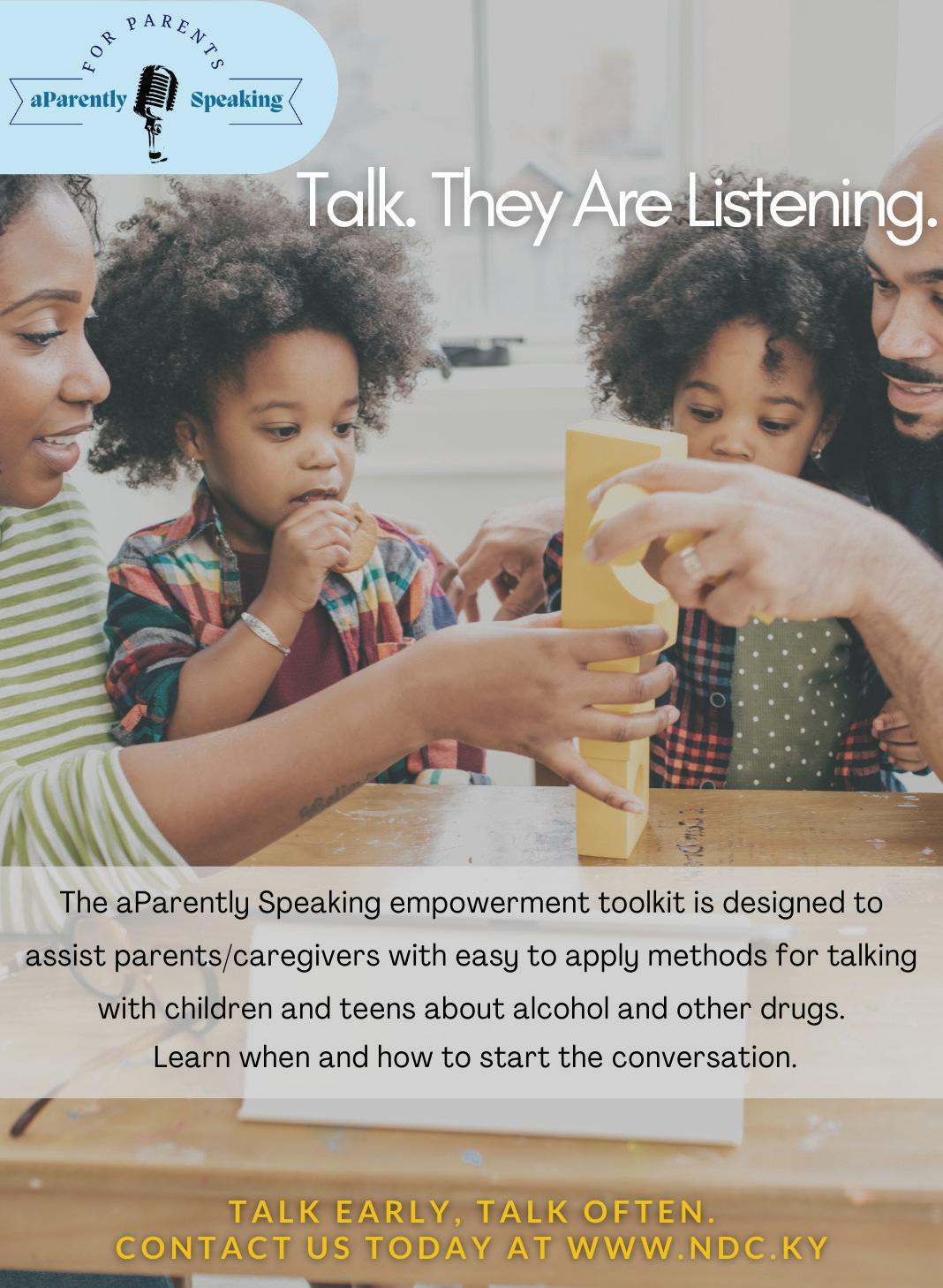
Get the Setting Right
Forgo a formal sit-down talk as that can come across like a lecture. Instead, aim for frequent and casual conversations that are revisited when relevant. Look out for conversational triggers, such as TV shows that positively depict underage drinking, or advertisements for alcohol on the television. Use these as an opportunity to highlight the contradictory messaging around drinking and ask their opinions on the matter.
Take Accountability
Prevention begins at home and parents can set a good example early on. Demonstrate positive ways to handle stress and avoid statements like "I need a drink" after a long day, as this can perpetuate drinking as a coping mechanism. Show your children examples of responsible drinking, such as turning down a drink when you are driving and not drinking to excess. Discuss reasons why people may choose not to drink to normalise abstinence as a socially acceptable option.
Set Expectations
Set and enforce clear rules against drinking and uphold certain consequences if they fail to abide by your rules. Link responsible actions to freedoms, such as a later curfew or use of the family car, so your expectations carry some weight.
Speaking about drinking is a tough, but necessary topic to tackle with your children. Ultimately you want to remain as approachable as possible – when children feel that you’re being honest with them, they’ll be more likely to respect your rules and feel comfortable coming to you when they have any questions.
Resources
To learn more about underaged drinking or to obtain referrals to programmes in your community, contact one of the following organisations:
National Drug Council Tel: (345) 949 9000 Email: info@ ndc.ky Web: www.ndc.ky. The Parents as Preventers programme (see info box to the right), is designed to educate parents and caregivers on some of the early warning signs that determine if a child is using a substance, as well as provide them with the
information and skills that can help them take a positive approach in dealing with teens and developing effective drug prevention.
Department of Counselling Services Tel: (345) 949 8789 Email: foi.dcs@gov.ky.
The Wellness Centre Tel: (345) 949 9355 Email: info@ wellnesscentre.ky.

www.caymanparent.com 287 ADOLESCENCE
Saturday Jobs for Teens
If you're trying to teach your teens the importance of financial literacy, a weekend job can provide them with an incredible foundation. From balancing a budget to saving up for something special, parttime work will help your kids really understand the value of a dollar.
Whether it’s merely for pocket money or to fund a major life goal, gainful employment puts more than cash in your teenager's pockets: it arms them with important life skills that will serve them for years to come.
Benefits of a Part-Time Job
For the vast majority of us, adulthood entails working for several decades so introducing your children to the reality of finding and keeping a job is the best way to prepare them for that certainty. More than that though, securing work and earning an income can benefit teens in multiple ways.
Money management:
Once teens start earning, money takes on a new meaning. Rather than simply asking for cash when they want to purchase something, they will start to relate the cost to hours of their time: a CI$150 pair of shoes suddenly represents 15 hours of their time at a CI$10/hour job – or a full weekend working. Being able to buy things with money they have earned themselves offers a different level of satisfaction and a greater appreciation for the value of money.
Having an income also teaches you how to manage it: this is a chance not only to learn about the practicalities of opening a bank account, but also to budget, allocating portions to different outgoings or saving for their college fund.
Responsibility:
Beyond financial responsibility, being employed instils allround responsibility in adolescents. They will be expected to be punctual and, depending on the work, they may be expected to deal directly with customers, to handle cash or to work as a team. Knowing that their performance directly affects the business's overall reputation and success is a sound introduction to responsibility.
Work experience:
It’s an age-old conundrum: if businesses only employ people with experience, how do you ever get experience?
Traditional teen jobs (see opposite page) often don’t require experience and thus provide that all-important first step into employment. And of course, having work experience is a big plus for their resumés, college applications and future job applications.
Insight into jobs and industries:
Work experience exposes young adults to different industries and jobs, from customer-facing roles or working with kids to office-based positions. If they enjoy the work, it might prove a stepping stone and a chance to make professional contacts; and if they don’t, at the very least it helps them rule out industries in which they don’t want to work.
When a Part-Time Job is Not Right
Although there are studies that show students who work less than 15 hours per week get better grades in school, the reverse may be true when students work more than 15 hours per week. A part-time job might not be a good idea if:
• their grades suffer as a result of working
• the time demands of a job oblige them to give up extracurricular activities
• they are not motivated or interested in the job – in this case volunteering with an organisation that aligns with their passions may be more rewarding
• they are prone to anxiety or stress and risk being overwhelmed by the responsibility
• they may spend the money on things like alcohol or cigarettes.
Is Your Teen Ready for a Job?
Children mature at different rates, and while some may be ready for a part-time job at 14, others will still struggle at 17. Signs that your child is ready to work are:
• Timekeeping - Can your child manage their time responsibly? A teen who regularly oversleeps, misses the school bus or is late for class is unlikely to be punctual at work.
• Communications skills - Does your teen communicate clearly? Are they comfortable conversing with adults? Most jobs will require them to speak to colleagues, superiors and customers in a professional manner. Teens who are nervous or shy may not be ready.
• Awareness - Does your child dress appropriately for a situation, arrive prepared with the materials they need, and show a professional demeanour? These are all positive signs but if they tend to go to school looking unkempt, forget their homework or have a tendency
Cayman Parent Magazine | Adolescence288 ADOLESCENCE
to get into trouble, they may not yet be ready for the responsibility of a job.
Of course, these are not deal-breakers: in some instances the responsibility of a job may be the incentive they need to behave more maturely. Ultimately, your teen has to want to work. If they are reluctant to apply for jobs or go to work, they are unlikely to make a good impression, perform well or to get positive references.
What Jobs are Available to Teens in Cayman?
Per the law, non-Caymanians can only seek gainful occupation in the Cayman Islands with a Work Permit which, legally, will not be granted under the age of 18. Children who fall within this category are still able to pursue unpaid volunteer opportunities, lots of which can be found on page 266. For Caymanian children, there are lots of parttime positions regularly made available to high schoolers and college-aged students. We have listed some popular options here. Another option for Caymanian children is paid internships.
Grocery Bagger: most major grocery stores take on students to bag groceries. This type of job requires no specific skills and will instil punctuality, customer service and responsibility. Teens looking for bagging jobs at grocery stores can approach any in-store manager with employment inquiries.
• Hurley's Supermarket – Tel: (345) 947 8488, www.hurleys.ky/jobs/ → General Online Application.
• Foster's – Tel: (345) 945 7283, www.foster.ky/needhelp/about/careers/ → General Online Application.
• Kirk Market – Tel: (345) 947 7022, www.kirkmarket. ky/careers/ → General Online Application.
Babysitting: babysitting is a good option for those looking for casual work that they can accept or decline depending on other commitments. Babysitting requires a certain level of responsibility and suits those who enjoy spending time with children. Start by asking neighbours, family, and friends if they need help with little ones. Teens can also look on Ecaytrade.com under ‘Domestic Help’ for babysitting opportunities.
Dog Walking: for those who like animals, walking dogs or pet sitting can be a good source of casual work. Busy professionals who lack the time to walk their dogs or do other tasks around the home and garden may be willing to pay teens to help out. Ask friends and neighbours if they have any leads or consider placing an advertisement on Ecaytrade.com.
Reception: hair salons and spas tend to be busier at the weekend and often take on students to help on reception during these times. A great option for those interested in the
health and beauty industry, and who like interacting with customers. Reach out to local salons or spas in your area to express your interest in a part-time position.
• Focus Hair Salon – Tel: (345) 943 6287, www. focussalon.com, Email: focus@candw.ky.
• Utopia Hair Salon – Tel: (345) 749 8876, www. utopiahairboutiques.com, Email: loveurhair@ utopiahairboutiques.info.
Retail Associates/Servers: Saturdays are busy shopping days and retail outlets often take on extra staff at weekends and around the holidays. Jobs in retail give teens experience in customer relations, cash handling, stock keeping and inventory, among others.
• Camana Bay – Next Chapter (info@nextchapter.ky) / Forever Summer (info@foreversummer.com).
• Funky Monkey – Tel: (345) 943 8659, email: Jodi@ funkymonkeycayman.com.
• Cathy Church’s Photo Centre – Tel: (345) 949 7415, www.cathychurch.com.
Tutoring: students with an aptitude for Maths, Science, English or Languages may be well placed to help younger students who require extra help with their studies. As well as in-person tutoring, there are numerous online tutoring sites that take on college students.
• Ecaytrade.com – www.ecaytrade.com or browse online tutoring opportunities in over 100 subjects on www.preply.com/en/teach.
• YMCA Cayman – www.ymcacayman.ky/careers/ General application online.
Online Jobs: for teens who are tech-savvy there are numerous ways to earn some extra cash online.
• Swagbucks – www.swagbucks.com – Fill out surveys for cash.

• Fiverr – www.fiverr.com – Try out freelance writing, graphic design, illustration and more.
• Blogging can turn lucrative once you gain a following. Get started on www.wix.com or www.wordpress.com.
The ‘Job’ section on Ecaytrade.com is a good resource for all of the above areas of work. Some companies and people seeking employees for small businesses will also advertise there. However, remember that advertising your paid services on Ecaytrade.com is only legal if you have the right to work in the Cayman Islands, i.e. Caymanians and/ or Work Permit holders. Social media accounts like Cayman Jobs on Instagram (@caymanianjobs) can also be handy when looking for new openings!
www.caymanparent.com 289 ADOLESCENCE
Tell them you saw it in CAYMAN PARENT
Having The Talk with Your Children
According to an Adolescent Health and Sexuality Survey conducted among 15-19-year-olds in the Cayman Islands, the average age at which children become sexually active is 14. At the same time, only 27.8% of participants felt comfortable sharing their sexual health concerns with a health care professional, while the majority of those surveyed had not discussed sex or contraception at all with a parent or trusted guardian.
'The Talk'
Talking to your children about sex can be a tricky subject to navigate. However, it is often our first encounter with a topic that shapes our views on it. We recommend that parents keep an open dialogue with their children so that misinformation from peers and the media does not interfere with healthy and safe decision-making. These conversations will help set the stage for safe sex practices that will follow children into adulthood.
What Age is the Right Age to Initiate 'The Talk'?
There isn’t one definitive answer to this question and all the bases don’t have to be covered in a single conversation. In fact, 'The Talk' should be the start of an ongoing and positive sexual health dialogue in your household. With that in mind, try to meet your child where they are. Consider the developmental context when responding to questions: the information a sevenyear-old is looking for is likely very different to what a 13-yearold wants to know.
If you're looking for more advice, The Family Resource Centre has parenting webinars on their website that discuss this important topic. Find them at www.frc.gov.ky.
Expanding the Conversation

Explaining how pregnancies can occur is an important part of safe sex education, but it's also important to explain what happens after birth. Between 2020 and 2021, the number of young people in Cayman who had repeat pregnancies increased significantly. The HSA reported a 27% spike, which indicated that many young parents who had already given birth were finding themselves in that situation again.
The Family Resource Centre notes that there could be various reasons for this increase, but the numbers speak to a need for more sex education among young people. Talking to your kids about the broader reality of what happens after birth is just as important as talking about what comes before it. Raising a baby is a huge responsibility and entails a great deal of hard work and sacrifice. It's crucial that young people understand that.
Birth Control
Birth control, also known as contraception, helps protect against unwanted pregnancies and certain methods can also
protect against sexually transmitted diseases (STDs). If your teen is sexually active, they need to be taking steps to ensure that they are staying safe. Talk to your teen about their options and the pros and cons of each to determine which birth control best suits their individual needs.
Some factors to consider when discussing contraceptive methods include whether they want to take it daily, existing health issues such as a predisposition to migraines or a family history of high blood pressure, and any potential side effects.
Some common birth control methods include:
• Condoms: condoms are the most widely used birth control method available. If used correctly, condoms are 98% effective in protecting against pregnancies and STDs, such as HIV/AIDS.
• Oral Contraceptive Pills: commonly referred to as ‘the pill’, contraceptive pills contain hormones which prevent women from ovulating. If taken at the same time every day birth control pills can be very effective in preventing pregnancy. It is important to note that the birth control pill does not protect against STDs.
• Long-Acting Reversible Contraceptives: for examp le, injections, implants or intrauterine devices (IUDs). You can get copper IUDs or hormonal IUDs (Mirena). These do not protect the user against STDs.
Free condoms are available at all District Health Clinics, the Cayman Islands’ Red Cross, The Cayman AIDS Foundation and at the UCCI Student Services. Any other form of birth control requires a doctor’s appointment.
Sexual Health
All District Clinics, the Women’s Health Centre and OceanMed (Tel: (345) 946 2326) provide information on sexual health and STD screening. Dr. Heidi Fahy at Cayman Clinic (Tel: (345) 949 7400) specialises in women’s health and family planning. The Cayman Islands Health Services Authority Women's Health Clinic offers contraceptive advice and care, as well as routine pap smear screening for females who are sexually active.
Cayman Parent Magazine | Adolescence290 ADOLESCENCE
Menstruation 101
A girl’s first period is a major milestone that marks the shift from girlhood to womanhood. However, it can also be a scary and confusing experience if she is unsure of what to expect.
– Dr Lisa Joels

Understanding What is Happening
Menstruation, commonly referred to as your period, signifies the start of a female’s menstrual cycle when a woman bleeds for anywhere between 3 to 8 days. A cycle begins on the first day of one period and ends on the first day of the following period. This timeframe is around 21 to 28 days. During the menstrual cycle, an egg is released by one of two ovaries, which then travels to the uterus through one of the fallopian tubes. Body tissue and blood cells form a thin layer of material on the walls of the uterus to protect the egg, however, if an egg remains unfertilised, the body will no longer need this protection and shed the lining during menstruation.
The average age for starting your menstrual cycle is 12 years old but there is some variance. If your daughter hasn’t shown any of the early signs of puberty (i.e. growth spurt, body odour, mood swings) by the age of 14, there can be reason for concern and she should see a doctor who understands the stages of puberty. If she has had some body changes, then you should not be too worried unless she has not started periods by age 16.
NOTE: it is important to have the contraception conversation early on as girls can still get pregnant even before their periods have regulated.
The first few periods in puberty are usually irregular. If, after a year, her periods do not settle down into a regular pattern this is only really a problem if this is interfering with her schooling or extracurricular activities, or if the gap between periods is longer than three months.
What to Have on Hand
It is important to talk to your daughter about what to expect from her period. The first few periods are not usually heavy, and she can expect to change a pad or tampon three to four times a day. Heavy periods can be managed with a nonhormonal tablet to reduce the flow, which is highly effective with very few side effects or risks. Really resistant problems may need a progesterone hormone but it’s important to avoid the contraceptive pill for a couple of years after the start of periods – unless of course she needs contraception too. The reason being that you may interfere with the final stages of puberty, which are full breast development and achieving full adult height.
Some girls experience period cramps the day before or during the first two days of menstruation, and the experience can be frightening at first. Typically, cramps are felt in the lower tummy and back area and sometimes at the top of your thighs. Pain can be managed with a combination of paracetamol and ibuprofen as they work together with an additive effect.
Complications
Occasionally painful and/or irregular periods can indicate an underlying condition such as endometriosis or polycystic ovary syndrome. Both conditions can occur in teenagers but diagnosing them is a real challenge, and should only be done by a doctor with expertise in adolescent gynaecology to avoid over-diagnosis. The focus should be on managing symptoms and allowing your daughter to achieve her full potential, rather than giving her a label.
raphene, detox pearls, yoni s eggs and pops, and womb e also supply organic tampons, menstrual cu and organic wipes.
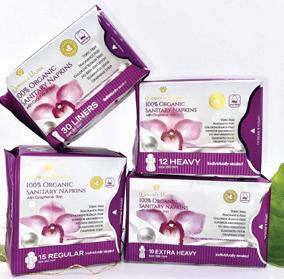
e of Women’s Haven is t taboo and the silence around the subject emale menstrual cycles and vaginal health emales on the importance rganic feminine care products.


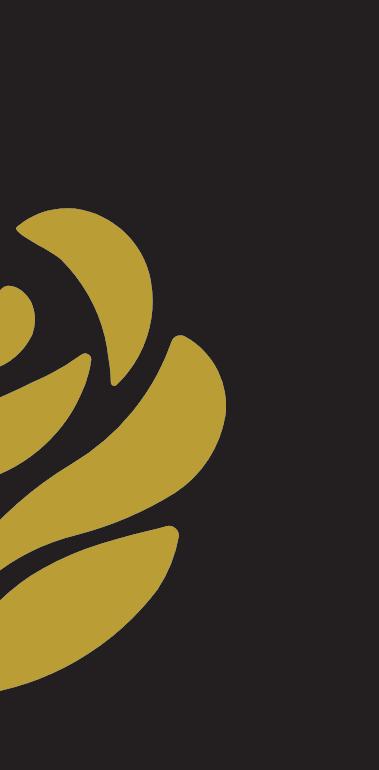
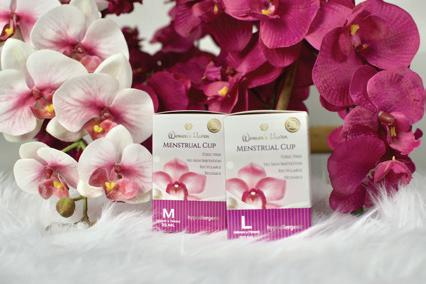

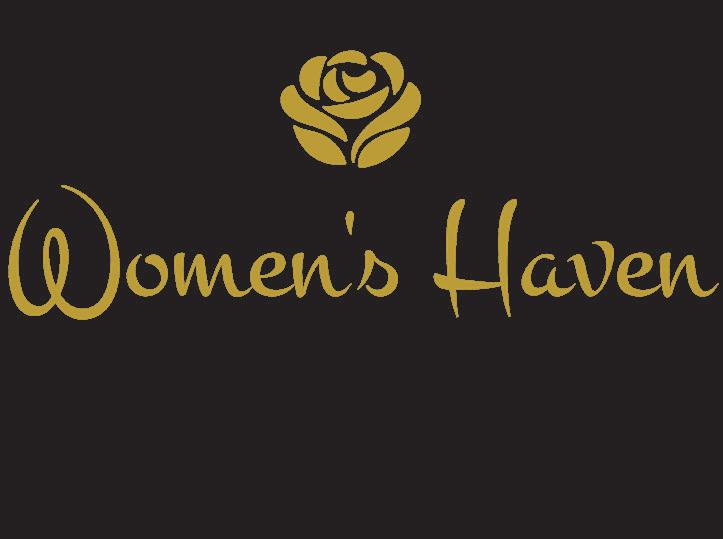
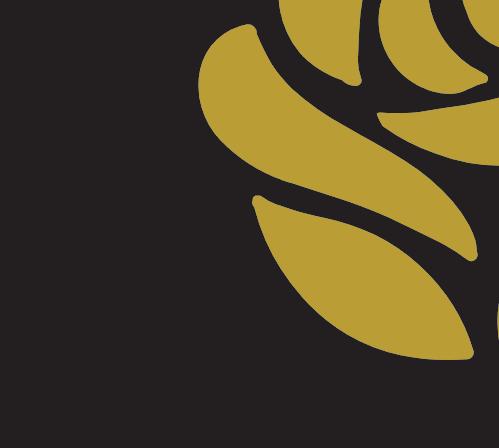
Available
Supermarket locations, Kirk Market, Hurley’s Marketplace, and West Bay Pharmacy.
www.caymanparent.com 291 ADOLESCENCE
at: All 4 Foster’s
Direct orders: orders@womenshaven com General Inquiries: info@womenshaven com www.womenshaven.com
Low-Cost & Free Activities for Adolescents
It is essential to encourage children to explore different areas of interest while keeping them positively engaged during their adolescent years. Cayman is fortunate to have access to a wide range of free and low-cost programmes geared toward adolescents which can be found below.
Extended After-school Programmes
The Ministry of Education sponsors extended after-school programmes run by YMCA for public primary and high schools. The programmes are free, operate from 3pm - 6pm weekly and include a rotating range of activities such as basketball, football, homework club, automotive workshops, archery and track and field. Transport home is provided. Call (345) 922 2432 or email easp@ymcacayman.ky for more information.
Sports Athletics
The Cayman Athletics Association is the governing body for athletics and they encourage participation in athletics at all levels regardless of age, gender or race. Training sessions are held daily in the afternoon at the Truman Bodden Sports Complex (TBSC) and the Association puts on several competitions per month from late December until mid-late June. In the summer months the local clubs compete abroad and the Athletics National Team compete at the North American, Central American and Caribbean Athletic Association and at the World Athletics level. Visit www.athletics.org.ky or email gensec@athletics.org.ky for more information. You can reach out to 345 Athletics Club on (345) 925 2865, or Coach Porter at Speed Athletics on (345)
525 2793 or email: speedathleticstrackclub@gmail.com. You can also try Falcon Athletics at falconathleticsinfo@yahoo.com, the High Tech Tigers at coach@candw.ky and the Mustang Track Club at tajyen@hotmail.com. The Special Olympics Cayman Islands offers a variety of sports training for children and adults ages 8+ with intellectual disabilities. To learn more email: soci@candw.ky.
Cricket
Cayman Cricket organises competitions from May to June for primary and secondary schools (for boys and girls) and there are youth training sessions on Saturday mornings from 8.30am10.30am at the Cricket Pitch. Email: president@caymancricket.ky.
Baseball
Cayman Islands Little League, operated by the YMCA of the Cayman Islands, teaches children aged 4-18 skills in baseball and softball. If you are looking for a safe environment emphasising teamwork, good sportsmanship, and healthy competition email: info@littleleague.ky, or visit www.littleleague.ky.
Basketball
After-school basketball training is available with the Cayman

Cayman Parent Magazine | Adolescence292 ADOLESCENCE
Photo courtesy of Irene Corti
Islands Basketball Association for students up to 16 years. Practice takes place on Thursdays and Fridays from 3.30pm5.30pm and costs CI$10 a month. Tel: (345) 916 5083, or email: info@caymanbasketball.org.
Football
Academy Football Club provides opportunities for families from different socio-economic backgrounds on a case-bycase basis by accepting assistance through fundraising and volunteering time in lieu of fees. Contact Paul Byles, Head of Youth Development on Tel: (345) 916 7389, email: admin@ academysportsclub.ky, or visit www.academysportsclub.ky.
Karate
Students can try a free week of classes at Cayman Associated Schools of Karate (C.A.S.K.) at King's Sports Centre. Adolescents may be eligible for scholarships or financial assistance and can contact the Chief Instructor Greg Reid directly to enquire call (345) 925 3367, or visit www.caskcayman.com.
Netball
The Cayman Islands Netball Association (CINA) has a junior league and games are played throughout the year for under-12s, under-14s and under-16s. A membership fee of CI$5 is made once a year. Contact Lucille Seymour on (345) 916 1944 or via email: caymannetball@yahoo.com. For more information, visit www.caymannetball.com.
Rugby
The Rugby Club in South Sound runs a well-established programme for students up to the age of 18 with yearly membership fees of CI$100. Both girls and boys are encouraged to come down. Contact Caroline Deegan for more information on (345) 525 6743, email: caroline.deegan@caymanrugby. com, or visit www.caymanrugby.com.
Skateboarding
The Black Pearl Skate Park has grown into a bustling centre of activity for Cayman's children and teenagers. The dynamic course can be accessed for a daily fee of CI$7 and consists of beginner, intermediate and expert ramps. For more information visit www.blackpearl.ky.
Personal Development & Leadership

Big Brothers Big Sisters of the Cayman Islands is part of an internationally known youth mentoring programme serving children from ages 8-16 years old. Each child, known as a Little, is matched with an adult mentor. The Little and their Big meet regularly, with professional support provided by BBBS staff. For more information, call: (345) 326 0610 or visit www.bbbs.ky.
The Cadet Corps instils life skills and high standards of conduct through military-style activities. Three programmes are offered: band cadets, marine cadets and army cadets. The programmes could result in BTEC Level 2 qualification and/or honours in the Duke of Edinburgh Awards Scheme. They accept boys and girls from the ages 11-19. For further information email: cadetcorps@
gov.ky, or visit www.cicadetcorps.ky.
Girlguiding helps girls build their confidence, discover their full potential and make a positive difference in the community. The Guides cater to the 10-14 age group, and the Rangers are for 14-18 years. Girl Guides works hard to make their pricing as inclusive as possible for all members of the community. Visit www. girlguidingcaymanislands.ky for further information.
The Scouts Association is a non-formal educational programme which encourages the holistic development of boys through outdoor activities. From the Beaver-Scout programme (6-8 years) to the Cub Scouts (8-11 years) to the Scouts (11-19 years) boys will develop vital skills and earn badges. Groups meet weekly. Call Winston on (345) 939 8813 or email: ciscouts@candw.ky for more information.
The YMCA's Leaders-in-Training (L.I.T.) programme is offered to youth aged 13-17 years and runs during school breaks. Teens gain leadership skills and experience, while learning more about the Y's core values, making friends, building confidence and having fun. The programme is free for participants and requires an application and an interview. Call (345) 925 3276 or visit www.ymcacayman.ky for more information.
The TAYA Lounge is a free after-school programme run through the Cayman Islands Crisis Centre (email: taya@cicc.ky). It offers a safe and supportive environment for at-risk youths to develop life training skills, connect with peers and utilise the amenities. Visit www.cicc.ky for more information.
Arts & Culture
The National Gallery of the Cayman Islands runs the Walkers' Art Club, an after-school Art Programme for ages 5-17. The classes are sponsored by Walkers and are free to attend. Register online at www.nationalgallery.org.ky.
Cayman Youth Choir runs a senior choir for ages 11-20 on Mondays at John Gray High School. The choir is sponsored by Cayman Arts Festival and there is no fee to join. No audition necessary, and open to all children and teens. Email: caymanyouthchoir@gmail.com, or call (345) 922 2079 for more information.
Time to Spare
Devoting time to a charitable cause is a valuable way to teach adolescents a sense of community responsibility. See page 266 for our article on Volunteering.
Church Groups
Most churches in Cayman offer a Friday night youth group. They provide a supportive environment for your adolescent’s spiritual development and encourage teenagers to actively support their congregation. The Cayman Islands Baptist Church (Tel: (345) 946 2422) boasts one of the strongest youth followings. Visit www.cibaptist.ky for more info.
www.caymanparent.com 293 ADOLESCENCE
Q&A
Lewis Bromby
Why are you so passionate about playing the saxophone?
The saxophone is such a beautiful instrument to me, with an unmatched range. It doesn’t sound out of place playing classical music nor jazz and I don’t think any other instrument rivals it in that regard. The baritone sax in particular is really fun to play as you can play some big heavy bass notes while also being able to dance around in the higher register.
How did it feel to be awarded runner-up in the Butterfield Young Musician of the Year competition?
I’m proud of myself since I didn’t expect to be competing this year, let alone coming second. It was a fun competition for me as I had some really enjoyable pieces to play, and I loved listening to the other musicians. Hopefully I can enter next time and maybe win!
Which musician, singer or band would you love to perform live on stage with?
I’d have liked to play with Duke Ellington and his jazz orchestra. He’s one of my favourite jazz musicians and I love his music.
Where do you see yourself in 10 years’ time?
I don’t plan to make music my career, although I will continue to play. In 10 years I would like to have a Master’s degree or hopefully a PhD in aeronautics and to work at Airbus, BAE or Saab.
Do you have any hobbies or interests outside of music?
I really enjoy scuba diving. I’m into road cycling and I normally go out three times per week. I spend most of my time reading, playing games, or listening to music though.
Okezie Eleweanya
Why are you so passionate about empowering the youth of today?
When it comes to the youth of today, there is a simple sentence everyone should remember – the youth are our future. They are the ones who will continue to add onto the projects of the generations before them, and they are the ones who will innovate and make the world a better place. Therefore, it is important that we as a nation don’t limit the passion of the island's youth, but instead empower them to change the world around them.
How do you stay focussed on studies whilst committing time to the Cadet Corps and other voluntary roles in the community?
Time management, like any other skill, takes practise. The key to staying focused on school is simply knowing that at the end of the day, schoolwork is what takes you to your academic goals. Anything else is simply a boost, not a path. With this in mind, I’ve always made sure to prioritise my study time and model my time with the Cadet Corps based on that time.
Do you feel it is important for teenagers to have a part-time job or voluntary role from an early age?
The sooner a child realises that effort is what opens the door to their hopes and dreams, the better. It is crucial that today’s youth learn that success requires the departure from their comfort zone, so I believe that every child should have some experience involving volunteering or work of some kind. When you partake in work early on, it allows the identification of strengths to maintain and weaknesses to improve on. This way, one’s entrance into the professional world of work can be smoother and easier.
Lewis Bromby is 16 years old and a student at John Gray High School. He plays the saxophone and recently came runnerup in the Butterfield Young Musician of the Year 2022.

Okezie Eleweanya, 16, is a student at UCCI. He is a member of the Cadet Corps, the UCCI jazz band, a mentor and tutor for the Department of Children and Family Services and has been nominated for the Proud of Them Awards 2022.
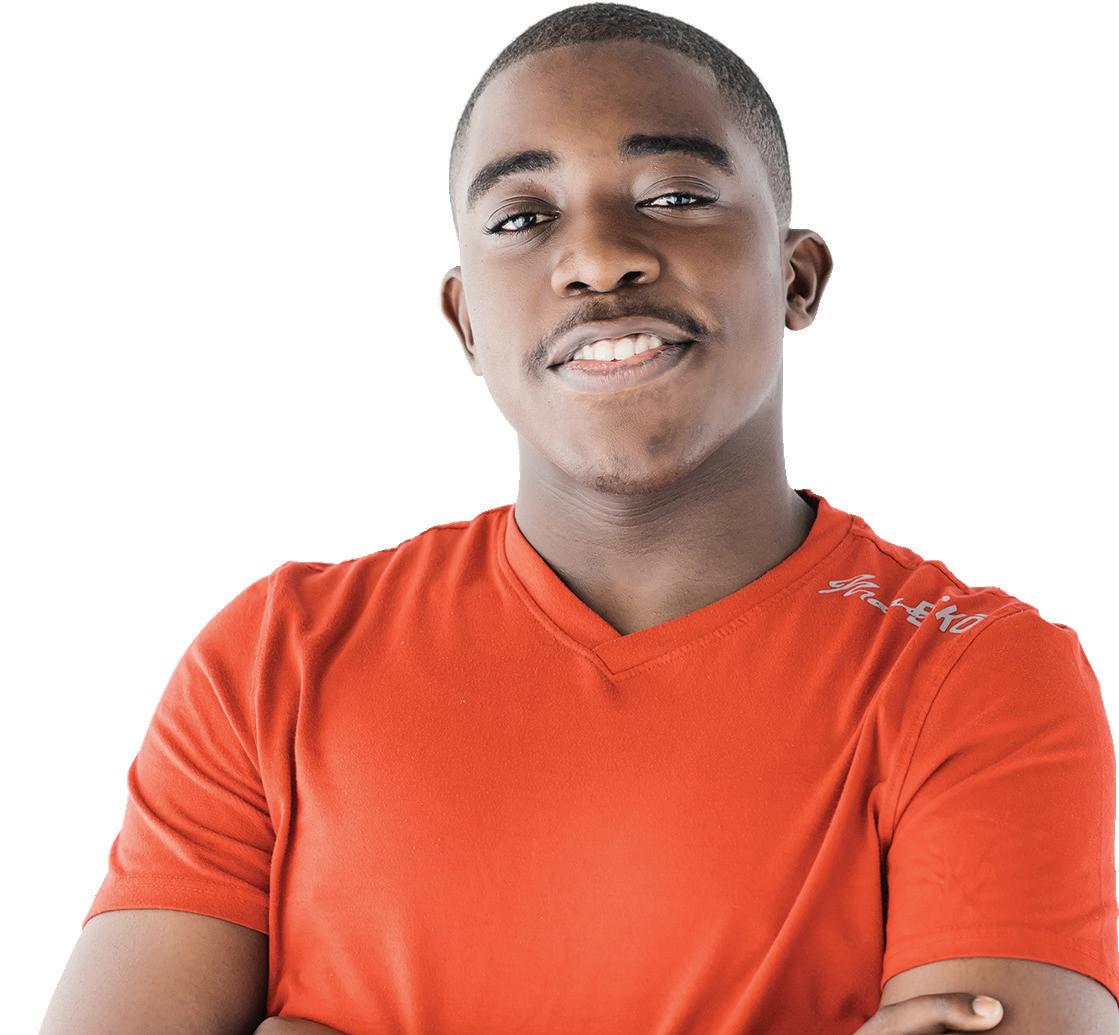
ADOLESCENCE
Sean Moran
How did it feel to be awarded winner in the Butterfield Young Musician of the Year competition?
Unreal. My parents and siblings were super proud of me, and there were quite a few happy tears. It really was a special night.
Why are you so passionate about playing the guitar?
The classical guitar is a beautiful instrument. When I play it, it helps me express things that I can struggle to express with words. I also enjoy playing piano and wind instruments. Pretty much every instrument can be inspiring if you give it a chance.
What’s the best and hardest thing about being so dedicated to playing an instrument?
The best part is when an audience enjoys listening to me play as much as I enjoy playing for them. The most frustrating part is when I have trouble playing a more complex piece, because it reminds me of how much further I have to go.
How do you handle or control your nerves whilst performing or playing music in front of an audience?
When I have a performance coming up, I practise to the point where I’m confident I won’t mess up. That really helps to ease my nerves when I get onto a stage. But the nerves never go away, which is probably a good thing.
Where do you see yourself in 10 years’ time?
Hopefully I will be pursuing a music career, releasing songs and enjoying performing them in front of a live audience.
How do you stay focussed when you have to practise but your friends are going out socialising or staying out late?
It’s not that difficult. Some of my friends from St. Ignatius are also pretty good musicians, and we stay up late making music together.
Sean Moran, 15, is a student at St. Ignatius and plays the guitar. He recently became the Butterfield Young Musician of the Year 2022.
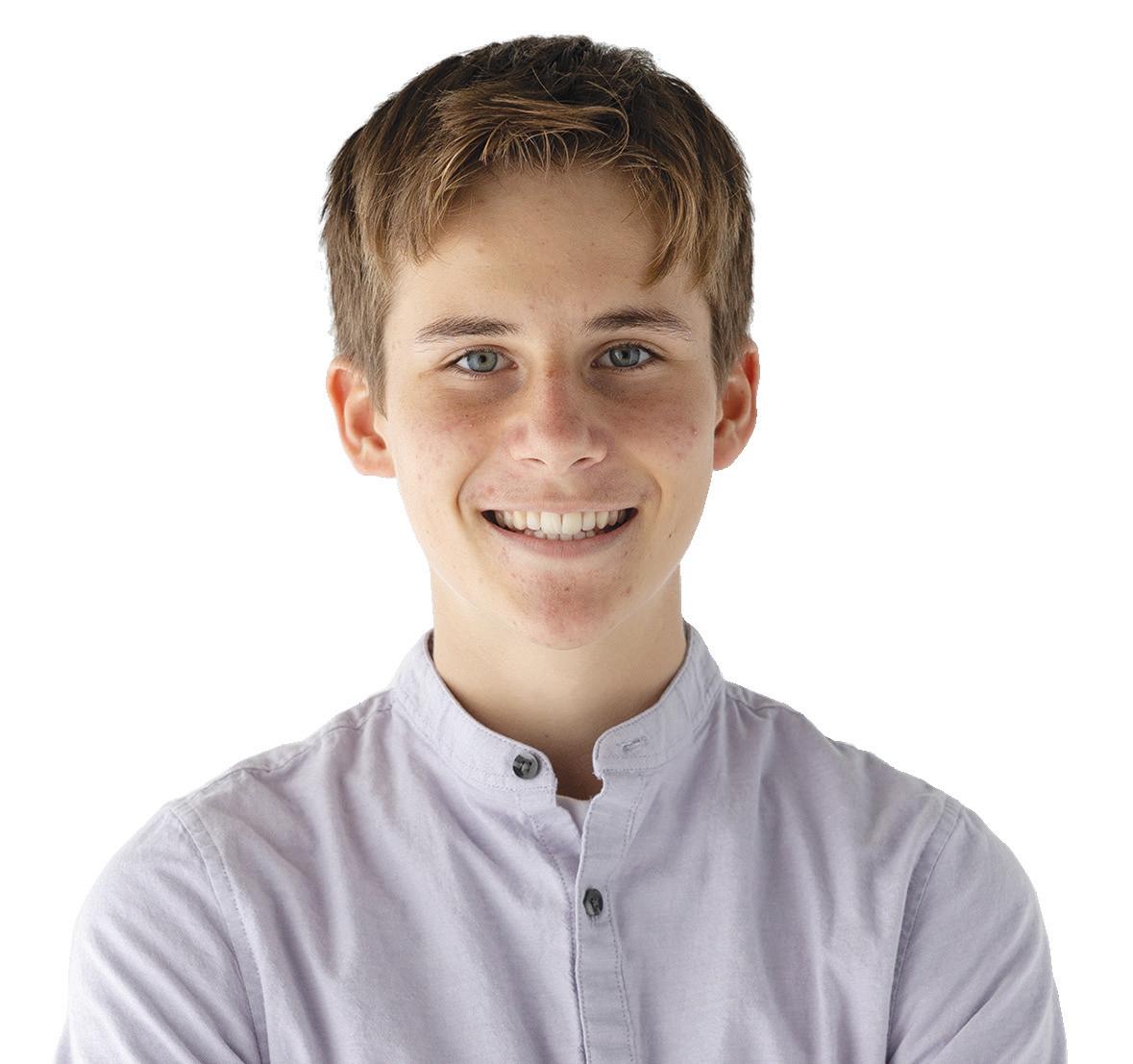
Cayman's Inspiring Teens
Tashell Dawson
Who has inspired you the most in your life so far?
My mom has inspired me so much in life. She is such a hardworking woman. Despite countless obstacles thrown her way she continues to work against the odds to provide me, our family and friends with knowledge, love and support. Without her I would not be the individual I am today.
What is one important lesson you've learned from your time as student council president?
An important lesson I learnt is that you won’t always be able to please everyone and not everyone will see your vision but despite this you should continue to work towards your goals and making a difference. My time as president definitely contributed to the leadership skills I have today.
Who is your favourite chef and why?
My favourite chef without the professional title would be my great grandmother known as Ms. Dell Dixon. At the age of 89 she is still up and ready to prepare lunch almost every day of the week. I admire her dedication to her craft and her ability to prepare various traditional meals and desserts without having to follow a written recipe. If you’re ever in the Brac do yourself a favour and try her cassava stretcher.
What does winning a Proud of Them award mean to you?
Winning a Proud of Them award is one of my biggest achievements to date. I am overwhelmed with gratitude and it means so much to me. It is a great feeling to be recognised and congratulated for your hard work and continuous efforts to better yourself and your community. It has definitely pushed me to continue to work hard.
What are your hobbies and interests?
One of my favourite hobbies is reading. It is has become a great escape for me over the years, and it has expanded my knowledge enormously and has given me the opportunity to explore different aspects of life from the comfort of my home.
Tashell Dawson, 16, is a student at Layman E. Scott High School on Cayman Brac. She is a former National CookOff champion, Student Council President and a Proud of Them 2022 honoree.

ADOLESCENCE
Budgeting for the First Time
Is the art of saving up for a purchase dead in today’s world of instant everything? Instant coffee, instant messaging, instant meals - instant gratification! We’ve all had that feeling where we need the newest, shiniest thing to reward ourselves for a job well done. But that impulse to buy can really put a dent in our financial plans and even derail more important long-term goals. Budgeting doesn’t mean you have to deny yourself, but it may help you quantify and prioritise your spending, making your financial goals more attainable! - Patrick Ball, Private Banker for RBC Royal Bank (Cayman) Limited
Anyone at any age can benefit from taking control of their expenses. Think back to when you were a kid. You probably remember a time when you had Mrs. Bradshaw’s math test to study for and debated whether to use your weekend for studying or to go out with friends.
Well, if you budgeted your study time and developed a study plan, you’d probably realise that putting in consistent hours in the proceeding weeks would help ensure you could go out and enjoy your weekend without feeling stressed!
In that respect, we like to think that with the proper plan (or budget) in place, you can have it all. You’ll become more efficient with your time and your money, too!
Why Budget?
A budget is defined as a spending plan for a specified period, such as a month or a year. In its simplest form, a budget estimates how much money you'll receive (income) and spend (expenses) over that period. It can be useful to categorise your spending into buckets, like entertainment, groceries, clothes, transportation and dining. Its purpose is to create financial stability by allowing you to determine in advance whether you will have enough money to do the things you need or would like to do. In other words, it helps you distinguish between the true needs versus the wants in your life, and then aids in prioritising those wants.
Creating and sticking to a budget is key to financial success, but it can also result in feelings of stress and anxiety for many of us. Start with the basics and keep it simple. Some people prefer to write their budget by hand, while others use a spreadsheet or budgeting app. There’s no ‘one size fits all’ way to budget — what works for one person might not work for another. The best way to learn what works for you is to give it a try and remember that you can adjust and adapt along the way!
When it comes to allocating income, we think the 50/30/20 approach is a good place to start. This method suggests you spend about 50% of your monthly after tax income on necessities, 30% on wants and 20% on savings and paying off debt.
Let’s take an example from two people who earn similar incomes but have drastically different spending habits Alicia and Brian. Brian has five times the savings of Alicia but spends 50 times what Alicia does. Brian will burn through his savings in just 10 months as opposed to 100 months for Alicia.
Alicia Brian
Savings 200,000 1,000,000 Expenses per month 2,000 100,000
Number of months before running out of money 100 10
This shows the importance of understanding the spending implications on the budget and adjusting them accordingly to suit the needs of the identified goals.
What Makes a Successful Budget?
A budget should include estimates for income, fixed expenses, miscellaneous expenses, as well as clearly defined personal financial goals, from near-term emergency savings to long-term retirement savings.
These goals should be 'SMART':
Specific – Add a monetary value to a goal as well as an overarching purpose.
Measurable – A more accurate forecast/goal will make it easier to measure the ultimate success.
Achievable – The more attainable the goals, the greater the probability of success.
Reviewed – Regular reviews of budgets with adjustments where necessary.
Timely – Include a pre-specified period for attaining the goal(s) even if this is subsequently adjusted.
Cayman Parent Magazine | Adolescence296 ADOLESCENCE
Real World Example
I’m sure you’ve all heard those dreaded words, “Mum/Dad my best friend’s parents got this for her. Why can’t I have one too?”
One way to instil some early financial literacy might be to ask your child to prepare a budget with their allowance as the income. Ask them to budget their monthly expenses (or wants) for a period of one year the ultimate goal being the purchase of the item they want at the end of the 12 months.
This budget should be reviewed monthly to assess if they are on track and brings the opportunity to teach compound interest.
To simplify the concept, absolute numbers (in $5 increments) can be used instead of the actual calculation for compound interest. For example, for every month the savings goal is achieved, an additional allowance of $5 (and increasing in $5 increments) could be awarded. Assuming they remain within budget for months 1-3, the additional allowance in months 1, 2 and 3 would be $5, $10 and $15, respectively.
However, if in any month your child does not meet the budget, no additional allowance is awarded. So, if the budget is met six times over 12 months, the additional allowance paid would be $30, which lines up with month six and a cumulative additional amount earned for the year would be $105
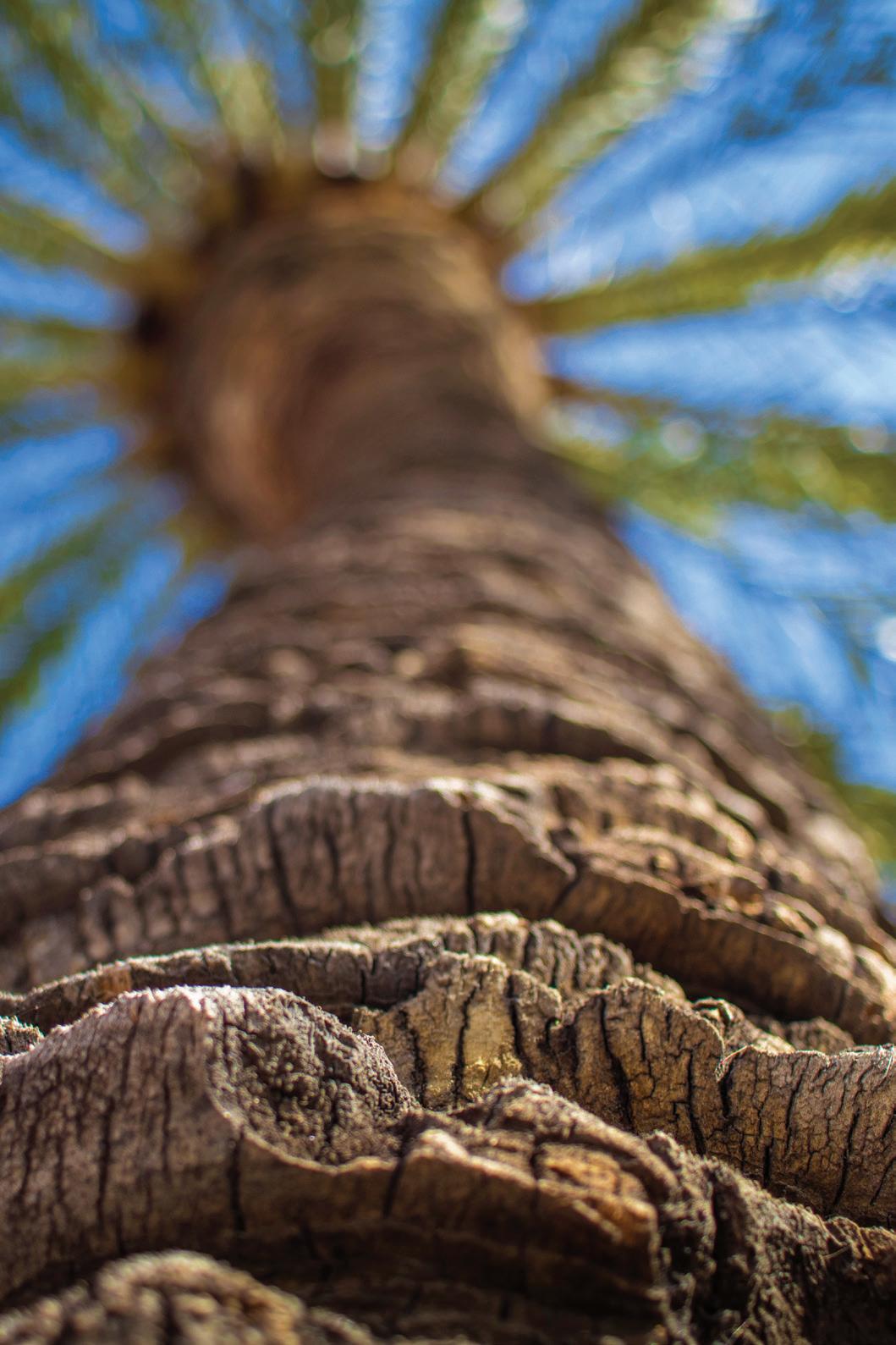
Compare this to achieving the budget in all 12 of the months, which nets a cumulative additional allowance of $390. Whilst meeting the budget 12 times represents a twofold increase over six times, it results in nearly four times the additional amount earned: $390 vs $105

www.caymanparent.com 297 ADOLESCENCE
Month budget met Additional allowance in that month ($) Cumulative total additional allowance earned ($) 1 5 2 10 15 3 15 30 4 20 50 5 25 75 6 30 105 7 35 140 8 40 180 9 45 225 10 50 275 11 55 330 12 60 390 Remember, budgeting can benefit everyone. It encourages us to live within our means, understand our relationship with money and save for the future. Think of a budget as building blocks to your and your children’s financial goals!
Learning to Drive & Rules of the Road
Getting Your Licence
Cayman's teens can begin the process of getting their driving licence at age 17. The first step is to sit the theory exam - a 40-minute test, made up of 40 questions. Teens will need to make an appointment by heading into one of the Department of Vehicle and Drivers' Licensing (DVDL) offices or over the phone at (345) 945 8344. Candidates should prepare by studying the official road code booklet, available in PDF format online at www.dvdl.gov.ky, or by reading Drive Safely in Cayman by Graham Walker. This helpful tool can be purchased directly from Graham (345) 926 2501 for CI$15 or is available for CI$18 at most book stores.
After passing the theory test, a learner’s licence is issued; it is valid for six months and allows you to drive a vehicle while accompanied by a holder of a full Cayman licence. During this time, an ‘L’ plate must be visible on the front and back of the car. Learners need to wait four weeks before taking the practical test, and are encouraged to take driving lessons during this period. For driving lessons call Tony Martin on (345) 923 7218. Once the learner has passed the practical driving examination, they will receive a full, unrestricted driver’s licence.
The Rules of the Road
It is important that a new driver observes these four basic safety rules to keep themselves, their passengers, fellow drivers and pedestrians safe. Please review this section with them.
1) Never drink and drive. It is illegal to drive with a blood alcohol level over 0.1%. DUI penalties include CI$1000+ fines, imprisonment for 6-12 months and loss of your licence. Drinking and driving can also result in your death or the death of others.
2) Have a valid driving licence and insurance. It is illegal to drive without a valid licence or in an uninsured vehicle
3) Slow down. Drivers caught speeding by the police face a standard fine of CI$20 for every mile over the speed limit. If your fine exceeds CI$500, it is mandatory for you to make a court appearance.
4) Don't use a mobile phone while driving. It is illegal in Cayman and may result in an accident, a fine or loss of your licence.
If a driver loses their right to drive, they will be required to surrender their licence. In some cases, they may even be required to take out a learner’s licence and retake their driving examination.
Insuring a Young Driver
All drivers in the Cayman Islands must be insured on the vehicle(s) they drive. This includes learner drivers, for whom most insurance companies have specific policies. Note, however, that insurance rates for young, inexperienced drivers can be very high. Certain vehicles such as those with engine sizes greater than two litres, convertibles or modified vehicles attract a higher premium, as do newer, higher value vehicles.
Buying a Used Car

For cheaper, second-hand vehicles, www.ecaytrade.com is a good place to look – but be aware that purchasing a car from a private individual can be risky. Consider getting a mechanic to check the car over for you prior to purchase. Transferring vehicle ownership is very straightforward, as long as you deal with the official owner of the vehicle or go through a reputable car dealer. Local car rental companies also occasionally have pre-owned fleet sales.
The Department of Vehicle & Drivers' Licensing (DVDL) 990 Crewe Road, Red Bay, Tel: (345) 945 8344, www.dvdl. gov.ky, Open: Monday-Friday, 8.30am-4pm
Jacques Scott Marketplace, West Bay, Tel: (345) 949 7231, Open: Tuesday-Friday, 10am-6pm, Saturday 9am-4pm
Breakers, Frank Sound, Tel: (345) 244 5528, Open: TuesdayFriday, 10am-6pm, Saturday 9am-4pm
The Department of Vehicle & Drivers’ Licensing (DVDL) in Cayman Brac: District Administration Building, Dennis Rd Tel: (345) 948 2222, Open: Monday-Friday, 8.30am-4pm
Little Cayman: Little Cayman District Office, Open: (Normally) Every other Thursday, 9am-2.30pm
Cayman Parent Magazine | Adolescence298 ADOLESCENCE
Cost of Getting Your Licence: • Theory Test - CI$25 • Learner's Licence - CI$60 • Practical Test - CI$50 • Full 3 Year Licence - CI$75 • Full 5 Year Licence - CI$125

Adolescence Book Club
Best for Parents Best for Teens
Price is a child psychologist who is combatting the stereotype of the lazy teenage boy. He encourages parents to look beyond the surface in times of difficulty and shares tips on inspiring self-confidence and responsibility in your kids.


Connecting with your teen can sometimes be challenging, but Fortune's 15-minute parenting model is full of great advice. Learn the key to healthy communication and become an even better role model for your kids.
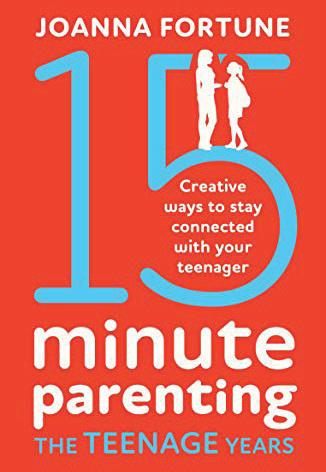
Seeing your child struggle with anxiety can often leave you feeling helpless. Hutcherson offers practical advice on how to help your kids navigate any complex or difficult emotions.
This coming-of-age thriller follows a Native American teen who must fight to root out corruption in the community she cares so deeply for.

Best Digital for Parents
Glympse makes it easy to share your real-time location with family. As your teens start to spend more time on their own, it can help provide some peace of mind. Free on Android and iOS.
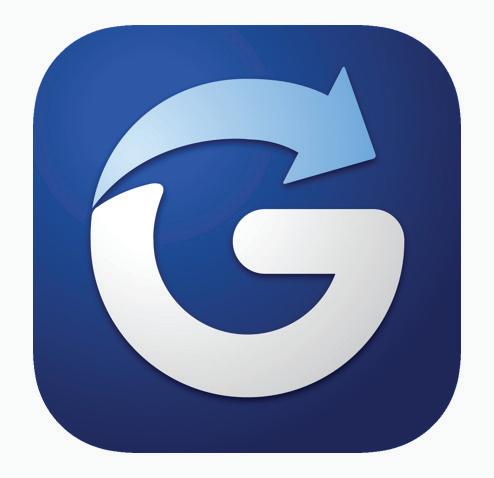
Best Digital for Teens
Full of magic and whimsy, this heartwarming tale follows a lonely man who finds family and friendship in the most unexpected of places. It's a fantastical story with a lovely message.
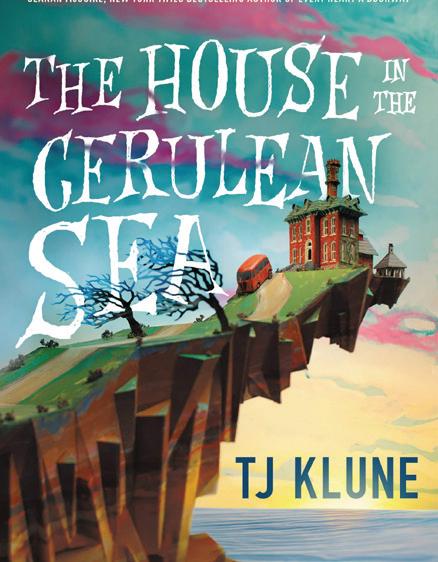
Both funny and heartbreaking, this graphic novel by Satrapi is an autobiographical retelling of her childhood growing up in Iran during the Islamic Revolution.

Spendee is perfect for teens who are learning to budget. The app is super easy to use and breaks down all of your spending into specific categories. Free on Android and iOS.
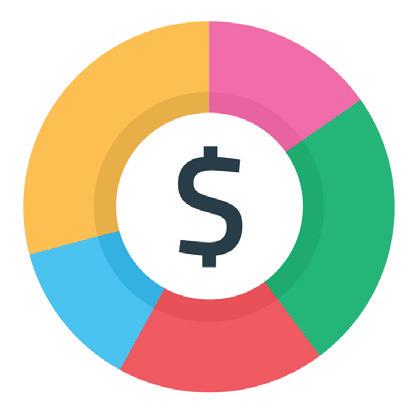
Cayman Parent Magazine | Adolescence300 ADOLESCENCE
Listings
Cayman Universities, Trade Schools and Car Insurance Providers
International College of the Cayman Islands (ICCI) 595 Hirst Road, Newlands. Tel: (345) 947 1100 Email: info@icci.edu.ky Web: www.icci.edu.ky. Numerous associate, bachelor and certificate programmes available.
St. Matthew’s University School of Medicine Regatta Office Park, Leeward 3, West Bay Road. Tel: (345) 945 3199 Email: admissions@ stmatthews.edu Web: www.stmatthews.edu
Medical students complete five semesters of Basic Science and Pre–Clinical studies in Grand Cayman, and then do clinical rotations at teaching hospitals in the US, Canada or the United Kingdom.
School of Hospitality Studies (part of UCCI)
Tel: (345) 623 8224 Email: shs@ucci.edu.ky Web: www.ucci.edu.ky. Offers an industrydriven, internationally accredited Hospitality and Tourism studies programme.
School of Veterinary Medicine (part of St. Matthew's University) Regatta Office Park, Leeward 4, West Bay Road. Tel: (345) 814 3177 Email: admissions@ stmatthews.edu Web: www.stmatthews.edu
Veterinary students complete seven semesters of Basic Science instruction in Grand Cayman and a year of clinical instruction at an affiliated US or Canadian veterinary school.
The Truman Bodden Law School (TBLS)
Old CIBC Building, 54 Edward St, 2nd & 3rd floor, GT. Tel: (345) 945 0077 Web: www.lawschool.gov. ky TBLS is an affiliated institution of the University of Liverpool (UK). Full and part-time Bachelor's and Master's Law degrees plus PPCs are available.
University College of the Cayman Islands (UCCI) 168 Olympic Way, GT. Tel: (345) 623 8224; Brac Campus: Stake Bay, Cayman Brac. Tel: (345) 623 0540 Email: admissions@ucci.edu.ky Web: www.ucci.edu.ky. Numerous associate, bachelor and certificate programmes available. There are also graduate programmes, trade courses, an IT academy and a school of Hospitality Studies.
University of the West Indies (Open Campus) Cayman (UWI)
Olympic Way, George Town. Tel: (345) 946 8322 Email: cayman@open.uwi.edu Web: www.open. uwi.edu. Hundreds of courses are available to be studied by distance learning, as well as a number of shorter face-to-face courses.
Cayman Career Academy
60 Smith Road, George Town. Tel: (345) 936 2228 Web: www.caymancareeracademy.ky.
Offering the CIDESCO Beauty Therapy Diploma, a Post-Graduate diploma and a Beauty & Spa Management Diploma.
Chamber of Commerce Professional Development & Training Centre
Governors Square, Lime Tree Bay Avenue. Tel: (345) 949 8090 Web: www.caymanchamber.ky. Courses and workshops are available in Customer Service, Business Essentials, Legal Master Classes, Finance, Supervision, Management and more.
Connect by Nova
Tel: (345) 623 1029 Email: connect@nova.ky Web: https://connect.nova.ky/career-development
A social enterprise initiative by Nova Recruitment, Connect by Nova is committed to supporting individuals in the Cayman Islands to achieve career success. They are committed to developing talent through bespoke career information, advice, and guidance for job seekers.
Inspire Cayman Training (ICT)
Grand Harbour Shopping Centre, Units H3 and H4 (next to Salty's) Tel: (345) 525 8990 Email: info@inspirecaymantraining.com Web: www. inspirecaymantraining.com. ICT have in-person classes in Core Curriculum and Employability Skills, amongst other subjects, but they also have hundreds of courses that can be taken online through Ed2go, Electude and BIS Safety Software.
Leaders-in Training for Teens (YMCA)
Tel: (345) 926 9622 Web: www.ymcacayman.ky/ programmes/teens Email: info@ymcacayman.ky
The YMCA Leaders-In Training programme is designed to inspire youth to explore, find new talents, and try new activities, while developing their own leadership skills at the same time.
Passport2Success
Tel: (345) 945 9672 Email: worc.training@gov.ky Web: www.worc.ky. The programme lasts for 8 or 16 weeks and includes a week of community service and work placement days. It is a 5-days-aweek (8.30am-4pm) programme and is aimed at 17-24-year-old Caymanians. The WORC website includes a very informative page explaining the programme.
Ready2Work KY
Email: worc@gov.ky Web: www.worc.ky. The
Ready2Work programme is a pathway to employment initiative that supports employers as they make best efforts to employ Caymanians and support unemployed Caymanians as they seek to access employment. While the employer focuses on training in the area of technical and subject matter skills and expertise, Ready2Work KY delivers structured training, individual and group support and other services to address a range of barriers to accessing and maintaining employment.
Bogle Insurance Brokers
34 & 35 Pasadora Place, 94 Smith Road George Town. Tel: (345) 949 0579 Email: service@ bogleins.com.
Caribbean Alliance Insurance
203 Alissta Towers, 85 North Sound Road. Tel: (345) 949 9744 Web: www.caribbeanalliance. com.
Cayman First Insurance Company Ltd.
17 Vibert Bodden Drive, off Shedden Road Tel: (345) 949 7028 Web: www.caymanfirst.com.
Cayman Insurance Centre (Insurance Brokers)
Tel: (345) 949 4657 Web: www.cic.com.ky.
CG BritCay
BritCay House, 236 Eastern Ave, George Town
Tel: (345) 949 8699 Web: cayman.cgcoralisle. com.
The Insurance Company of the West Indies (Cayman) Limited (ICWI)

150 Smith Road, George Town. Tel: (345) 949 6970 Web: www.icwi.com.
Island Heritage Insurance Company Ltd.
128 Lawrence Boulevard, Seven Mile Beach. Tel: (345) 949 7280 Web: www. islandheritageinsurance.com.
Massy United Insurance Ltd.
Unit 3, The Strand Shopping Centre. Tel: (345) 743 1900 Web: www.massyunitedinsurance. com.
Vanguard Risk Solutions Ltd.
Dr. Roys Drive, George Town. Tel: (345) 949 5836 Email: jennifer.clarke@vrscayman.com Web: www.vrscayman.com.
www.caymanparent.com 301 ADOLESCENCE
the
Colleges & Universities
Vocational & Professional Training
Car Insurance Providers
Index
A.L.
Thompson's 184, 190, 252
AAA Caregivers 241, 252
Activities for adolescents 292-293
Activities for kids 248-249, 260-261
Activities listings 276-279
Acts of Random Kindness (ARK) 12-19
Acupuncture 213, 231
ADHD 156-159
Aesthetic treatments 58-60, 77
Allergy doctors 49, 182
American schooling system 92
Art classes 138
Ashley Furniture 217
Athletics 260, 276, 292
Attractions 276 Autism 158
Baby and children shops 232
BabyLove 215, 282
Baby proofing 252
Babysitting 193-194, 240-241, 252
Baking 43-45
Ballet 276
Banks 209
Basketball 276, 292-293
Beach volleyball 248, 276
Bedside Manor 56, 226, 232
Behaviour therapy 156-159
Birth classes 224-225, 231
Birth control 290
Boarding schools 100-107
Bodden Town Health Centre 225 Book club 48, 76, 97, 168, 208, 230, 245, 275, 300
Book Loft (The) 252 Book Nook 252
Book shops 252
Boxed 45 Boxing 276
Breastfeeding 225
BrightBox 81, 137, 252, 271
British schooling system 92
Bryanston School 104
Budgeting 296-297
Bullying 256-259
Bump To Baby (The) 225, 226, 232, 252
Buying a home 190-192
Camana Bay 248-249, 250
Captain George Dixon Park 251
Car insurance providers 301
Car safety 298
Car seats 214
Caregivers 193-194, 240-241, 252
Caribbean Alliance Insurance 189, 210, 301
Caribbean schooling system 88-93
Cayman ABA 86, 136, 180, 182
Cayman Academy 134, 135
Cayman Clinic 49, 77, 145, 148, 160, 172
Cayman Dental 72, 73, 151, 177
Cayman Drama Society 138, 260
Cayman Family Law 203, 210
Cayman Fertility Centre 212, 231
Cayman International School 93, 129, 135
Cayman Islands Cancer Society 149
Cayman Islands Crisis Centre 30-33, 180, 293
Cayman Islands Hospital (HSA) 71, 171, 173, 177, 222
Cayman Islands Humane Society 249, 266
Cayman Islands Little League 249, 292
Cayman Islands Museum 249, 276
Cayman Islands Red Cross 138
Cayman Islands Sailing Club (CISC) 254, 262, 278
Cayman Learning Centre 132, 135, 137
Cayman Orthopaedic Group 181, 183
Cayman Parrot Sanctuary 249, 251, 276
Cayman Physiotherapy 75, 77, 181, 231
Cayman Prep and High School 91, 130, 135
Cayman Turtle Centre 248, 253, 271, 276, 282
Cayman Villas 50
CaymanSpine/Doctors Hospital 140, 176, 181
Cemetery Beach 248 Centre Pointe Dance Studio 62-63, 64, 260, 277
Cerave 9
Change Project 257
Charities 266-267
Chatterbox 136, 142-143, 157, 182
Childbirth classes 224, 231
Childcare agencies 240-241, 252
Childhood illness 152-154
Children's Clinic & Family Practice (The) 169, 172, 231
Children's playgroups 252-253
Chiropractic care (infant) 155
Church services 279-280
CIBC FirstCaribbean Bank 3, 209
Cinderellas Enchanted Parties 253, 270, 281
Clean Gas 189
Cleaners/helpers 193-194, 240-241
Clifton Hunter High School 134
Clongowes Wood College 105 Collas Crill 210
Cooking classes 138
Cost of children's activities 260-262, 292-293 Counselling 180 COVID-19 21, 164 Cricket 260, 277, 292
Crystal Caves 276 Cyberbullying 256-259
Da Vinci Centre 77, 181, 231, 232
Dance 62, 260, 276, 277
Daria Keenan Photography 271, 282
Dart Family Park 250
Dental care 72-73, 150-151, 162-163, 177-179
Dental Centre (The) 177 Department of Environmental Health 235 Department of Vehicle and Drivers' Licensing (DVDL) 298-299 derma Ltd 59, 77, 180, 263
Dermatologists 180
Developmental checks 228-229 Dieticians 49, 174 Dining out with kids 46-47 Discovery Kids 123, 127 Diving 121, 281 Divorce 200-201, 202 203 Divorce lawyers 210 Doctors 160, 169-173, 231-232 Doctors Express 170, 172, 179
Doctors Hospital 61, 146, 173, 175, 179, 231
Dog walking 266, 289
Dorm & Day 101, 103, 138
Doula/Doula services 218, 224
Dr. Foley's Eye Clinic 167, 180
Dr. Wolfe's Dental Centre 163, 177 Driving licences 298
Early Intervention Programme (EIP) 137, 157, 182
Early learning centres 123-128
East End Health Centre 225 Education Government schools 128-134 Education Private schools 135-136 Education psychology 156-159, 180, 182 Education systems 88-93
Elevation Health & Physiotherapy 77, 181, 223
Embroidery services 139
Engel and Volkers 7
ENT in Cayman 49, 159, 169, 182
Environmentally friendly 234-237
Estate planning 205, 206 207, 210
Event planning 270-272, 281-282
Examinations 90 93, 101, 109, 115
Excel Sports Management 261, 277
Extra curricular classes 138-139, 260 262, 292-293
Eye exams 166-167, 180
Eyewear 166-167, 180, 263
Faith Hospital 173
Family breakdown 200-201
Family counsellors 180-181
Family dining 46-47
Family homes 190-192
Family law 200-201, 202-203, 210
Family Practice (The) 172
Family Resource Centre 180, 225, 256-259
Fancy dress shops 281-282
Farmers markets 49
Fertility 212 213, 231
Financial advice/planning 112-113, 204-205, 296-297
Financing a home 190-192
First aid/courses 138
First Baptist Christian School 132, 135
First time buyers 190-192
Fitness 62-65, 74-75, 77
Fitness Connection 77, 122, 138, 253, 262, 279
Flag football 277
Flu (or Influenza) 164-165
Food (organic) 49
Food allergies 49
Football 260-261, 277, 293
Footsteps School 134, 135, 137
Foster's 34, 49, 179, 289
Foster's Airport Park 250
Fountains 250, 253
Free activities 292-293
Furniture 200-201, 202-203, 232
Gardening 238-239
GNC Cayman 49, 53, 54
Golf 261, 278
Government schools 89-92, 128-134
Grace Christian Academy 135
Groceries 37, 49
Gymnastics 261, 262, 278
Gyms and exercise studios 77
Hampson & Company 197, 210
Hand, Foot & Mouth 154
Harold McCoy Sr Park 251
Health City 173, 174, Inside Back Cover
Health insurance providers 210
Health listings 169-182
Health screenings 89, 145 149
Health Services Authority 171, 172, 177, 179
Helpers 193-194, 240-241
High Achievement Academy 137
Holy Cross Health 5
Homeschooling 94-95
Hope Academy - Clinical Services 136, 158, 180, 182
Hope Academy 135
Horseback riding 261, 278
Hospitals Maternity 173-174, 223, 231
Humane Society 249, 266, 267
Hurricane checklist 188
Immigration Divorce law 200-201, 202 203
Immigration 196-199
Immigration professionals 210
Immunisations 164-165
Infertility 212-213
Inline skating/hockey 261, 278
Insurance Car 298, 301
Insurance Health 210, 220-221
Insurance Life 207, 210
Integra Healthcare 152-154, 172, 180, 228-229, 231
International Baccalaureate 91, 93, 109, 115
International College of the Cayman Islands (ICCI) 118, 301
International Financial Planning (IFP) 205
Internships 199, 288-289
Island Montessori 125, 268
Island Primary 131
IVF 212-213
Jerald Smith Park 251
Jolly Phonics 242-244
INDEX 302 Cayman Parent Magazine
Karate 261, 278, 293
Kid's bedroom 216-217
Kids clubs/Playgroups 252-253
KidsAbility 84, 87, 136, 181, 182
King's Sports Centre 278, 279, 282
Kirk Market Inside front cover, 49, 281
Kirk Pharmacy 143, 180
Kitesurfing 280
Laboratories 180
Lactation consultants 225, 231
Lamaze childbirth classes 224, 231
Language courses & tuition 138
Language disorders 159
Law firms 210
Le Visage 60
Leadership training 139, 282
Learning & cognitive issues 156-159
Liberty Wealth 204-205, 209 Libraries 273-274
Licensing a vehicle 298
Life insurance 207, 210
Literacy development milestones 84-87
Little League 292
Little Trotters 123, 126
Living.ky 216-217, 232, Back Cover
Logic Cyber Bullying 256-259
Martial arts 138, 278
Mastic Trail 248, 251
Maternity hospitals 231
Maternity leave 227
Mattress Gallery 57
McGrath Tonner Attorneys 199, 210
Meals on Wheels 266
Means testing 109
Medical health providers 169-182
Menopause 69 71, 160
Menstruation 291
Mental health 20-23, 62-65
Mental health care providers 136, 182
Michael Webster Life Insurance 207, 210
Midwifery services 221, 222-223
Minerva 193, 209, 252
Ministry of Education 111, 123
MOD Realty 192
Montessori by the Sea 128, 136, 269
Montessori del Sol 123, 124, 269
Montessori School of Cayman 124, 128 Moonbeam Park 250
Motions Unlimited 253, 261, 262, 278, 282
Museums 249, 276
Music equipment 139 Music for children 138, 139, 261, 262 Musical instruments 139
My Island Dentist 177, 178
Nannies
193-194, 240-241, 246-247, 252
National Drug Council 285, 286-287
National Emergency Notification System (NENS) 187
National Gallery 138, 249, 253, 276, 282, 293
National Roads Authority (NRA) 299
National Trust 267
Natural Disasters Preparing for 186-187, 188
Naturalisation 199, 202-203
Netball 293
Newland Heights Park 250
Next Chapter 83, 230
North Side Clinic 225
North Sound Gardens Park 250
NovoClinic 140, 176
Nurseries and preschools 26-29, 80-81, 123 128
Nursery furniture and equipment 214-217, 232 Nutrition 35-49
OBGYNs
Optique 167, 180
Orthodontics 150 151, 179
Orthodontics at Cayman Dental 150-151, 179
Paddleboarding 139, 280-281
Paediatric services 221
Paediatric therapy services 136, 182
Paediatricians 169-172
Pain management 155
Painting 138
Parkour 278
Parks 250-251
Part time/Saturday jobs 288-289 Party Mania 272, 282
Party planning 270 272, 281-282
Party shops 281-282
Pasadora Family Dental Centre 177, 179
Passports 195
Paternity leave 227
Pedro St. James Castle 272
Pensum Health 54, 77
Perimenopause 69
Permanent residence 196-199, 202-203 Pharmacies 179-180
Photographers 282
Physiotherapy 74-75, 181-182
Pilates 74-75, 77
Plant based eating 40 42, 236
Playgrounds 250-251
Playgroups 252
Post partum care 225, 231
Pre & Postnatal exercise 74 75, 77
Pregnancy books 230
Pregnancy listings 231-232
Prenatal health insurance 220-221 Preschools 80-81, 123 128
Primary schools 128-136
Psychiatry 180 Psychology 180, 182
Public Health Department 164, 171 Public Parks 250-251
Queen Elizabeth II Park 251, 276
RBC Royal Bank (Cayman) Limited 209, 296297
RE/MAX Kass Coleman 191 Reading tips 82 83, 84-87, 96, 242-244 Real estate 190-191 Recipes 38-39, 44-45
Renting a home 190-192
Restaurants Family friendly 46-47 RF Bank and Trust 113, 209
Rite Start Pre School 127, 128 Road safety 298-299 Roller skating 278 Rugby 262, 278, 293 Rules of the road 298-299
Sailing 254, 262, 278
Saving for college 112 113, 296-297 Scholars Park 250 Scholarship Secretariat 111 Scholarships 91, 108 111, 114-117
School health screenings 89
School Inspection Standards 88-89 School listings (preschool) 123-128 School listings (primary, high) 128-134 School listings (public) 128, 134 School uniforms 139 Schools Enrolment policies 89 Schools (choosing a preschool) 80-81 Schools (choosing primary/high) 88-93 Scuba diving 121, 281
Seasonal fruits & vegetables 42
Self care 66-68
Seven Mile Beach Park 250
Snorkelling 281
Soccer 260, 277
South Sound Playgroup 253
Special needs education 136, 156-159, 182
Speech and language therapy 136, 182
Spinning 64 65, 77
Sports activities/clubs 260-262, 276 279
Sports clothing and equipment 139, 280-281
Squash (sport) 278
St. Ignatius Catholic School 133, 136
St. Ignatius Church 279
St. Matthew's University 119, 301
Stables 278
Stamp duty waivers 192
Standard Health Insurance Contract (SHIC) 220
Stowe School 78, 106
Strand Medical Centre (The) 49, 173, 182
Studio 54 West 67, 252
Sun protection 253, 263
Sunday school 279-280
Supermarkets 49 Supplements 49, 52 54, 71
Swimming 253, 262, 278
Swimwear and sun tops 253
Synchronised swimming 278
Synergy Chiropractic and Physiotherapy 155, 182, 213, 232
Tai Chi 278
TAYA Lounge 33, 293
Technical & vocational courses 120-122, 301
Ten pin bowling 279
Tennis 262, 278-279
The Perfect Maid and Nanny Agency 194, 252
Theatre 138
Tiny Tots 126
Tomlinson Furniture 57, 232
Total Health 49, 77, 149, 174
Toy shops 252
Traffic rules 298
Travel Immigration rules 196-199
Travel Passports 195
Travers Thorp Alberga 200, 201, 210
Tropical Optical 166, 180
Truman Bodden Law School 118, 119, 301
Turtle Reef 248
Tutoring 96, 137, 289
Tutoring companies 137-138
UCCI University College of the Cayman Islands 118, 121, 136, 301
Underage drinking 286-287
Uniko Eco Salon 68
Universities 114-117, 118-119, 136, 301
University entry requirements 114-117
Vaping 284-285
Vehicle insurance 210, 298, 301
Village Montessori 127, 136
Violence teen 30-33
Vital | SpinBar & YogaDen 65, 77 Vitamins 49, 52 54
Vocational courses 120-122, 301
Vocational scholarships 109
Volunteering 266-267
Water Play Parks 253
Water rescue courses 138
Watersports 280
Wealth planning 204-205
Wellbeing 51-77
Well child checks 228-229
Wellness Centre Ltd 144, 181
West Bay Health Centre 225
Wills and estate planning 206-207, 210
Windsor Park 250
Women's Haven 77, 291
222-223, 231
Occupational therapy 142-143, 182
Occupational therapy providers 182, 136-137
OceanMed 160, 174, 231
One Heart Yoga & Apothecary 63, 77
Optical Outlook 85, 181
Opticians & Ophthalmologists 166-167, 180
Seven Mile Medical Clinic 49, 154, 173 Sexual health 290, 291
Sister Janice's Early Learning Center 123, 128 Skateboarding & parks 262, 278, 293
Skating 261, 278
Sleep therapy 55-57
Smile Dental Clinic 178
Worms 152
YMCA
139, 282, 293, 301
Yoga 63 64, 68, 74, 77, 262, 279
Youth groups 279, 293
Yum 92
www.caymanparent.com 303 INDEX
In conversation with...
Alanna Warwick-Smith
Social Media Manager, Proud of Them recipient, Generation Z speaker.

Why do you think it’s important to get involved in Cayman’s community? We are all responsible for the place we live in, no matter where in the world we are. If you see something that you believe requires change, put action behind it. An inspirational action happening right now is the work being done by Bethany Ebanks-Pacheco and her colleague, Lorren Stainton, to try and increase parental leave rights in the Cayman Islands. They are members of the community who are on the path to making substantial change that will affect us all.
What challenges do you think the education system is facing? Probably the segregation between public schools and private schools. I am proud to be an alumnus of the Cayman Islands Public Education System (primary through high school) and can collectively say amongst my peers, we are lawyers, accountants, doctors – our experiences are not the same as what is often publicised.
Tell us about your background & family life. I was born and raised in Grand Cayman, more specifically in West Bay. I like to say that I am a generational West Bayer, my dad is from North West Point and my mom has lived in West Bay since she moved here in 1987. I’m a big melting pot of cultures and people, I am Bermudian and English on my mom’s side and Caymanian and Belizian on my dad’s side. There’s a little bit of Cuba and Scotland tossed in there too – but that’s a long story!

What was it like growing up in Cayman? Growing up in Cayman can only be described as special. I was raised by my community. I feel very lucky to have experienced, and be able to remember, a pre-Hurricane Ivan Cayman (I was 8 years old when Ivan hit), and have fond memories of walking home from school and being called out to by elders on front porches telling me I shouldn’t get into trouble or they’d tell my Grandma.
What did you want to be as a child? A few things. I wanted to be an actor and also a writer! My mom once took me to open casting calls for Nickelodeon and Disney in Miami – I’m still sad it didn’t work out. I also wanted to be a writer, I wrote my first ‘novel’ by hand when I was 12 because I wanted to be like Christopher Paolini who wrote the Eragon series at 16.
Who are your biggest role models? Probably my mom. The older I get, the more understanding I become of how hard being a parent is and how there really was no guide book. My mom went back to school for her degree when I was 10 and her perseverance towards providing me a better life is always an inspiration to me that I can always put in a little bit of extra effort to whatever I am doing.
What improvements would you like to see in Cayman’s education system? I’d love to see it be more publicised that, pending available space, children of work-permit holders can attend public schools. I’d also love to see more efforts and incentives towards encouraging a more diverse public school population. I graduated in 2012, and can confirm that we did feel the difference between us and our private school peers. My mother moved to Cayman in 1987 and attended Cayman Islands High School and tells me stories of how different things were when kids weren’t separated. I believe it will help assist with the social divide we are seeing nowadays. I’d also like to see Cayman Culture included in the curriculum for public and private schools as a mandatory course.
What are your dreams for the future of Cayman? I’d love to see a more walkable Cayman! I used to work in Camana Bay and have really carried the principles and benefits of New Urbanism with me. I would also like to see us lean into education of our heritage, supporting the future but also not allowing practices such as thatching to die out. I am proud to have that knowledge specifically, but I am aware there is so much that I and others don’t know.
What’s your favourite thing to do on a weekend? I like to rest, but in different ways. I like to read books or watch interesting movies. I watch the Twilight Zone a lot. I’m starting to learn that it is okay to go a little bit slower, that you can’t pour from an empty cup and sometimes doing nothing is productive.
Where is your favourite place in Cayman? My favourite place is Liars Tree (Garvin Park) in West Bay, next to Calypso Grill. I find a lot of peace near the sea, and sometimes I will drive there on a Sunday and park my car and just listen to the waves.
ADOLESCENCE
ROLE MODEL Cayman Parent Magazine304
Our new 70,000 square foot facility at Camana Bay will give families access to the most advanced hospital care and technology across many specialties. Included in our vision is a neonatal intensive care unit providing holistic, world-class care for premature newborns, neonates, and critically ill infants with complex medical conditions.
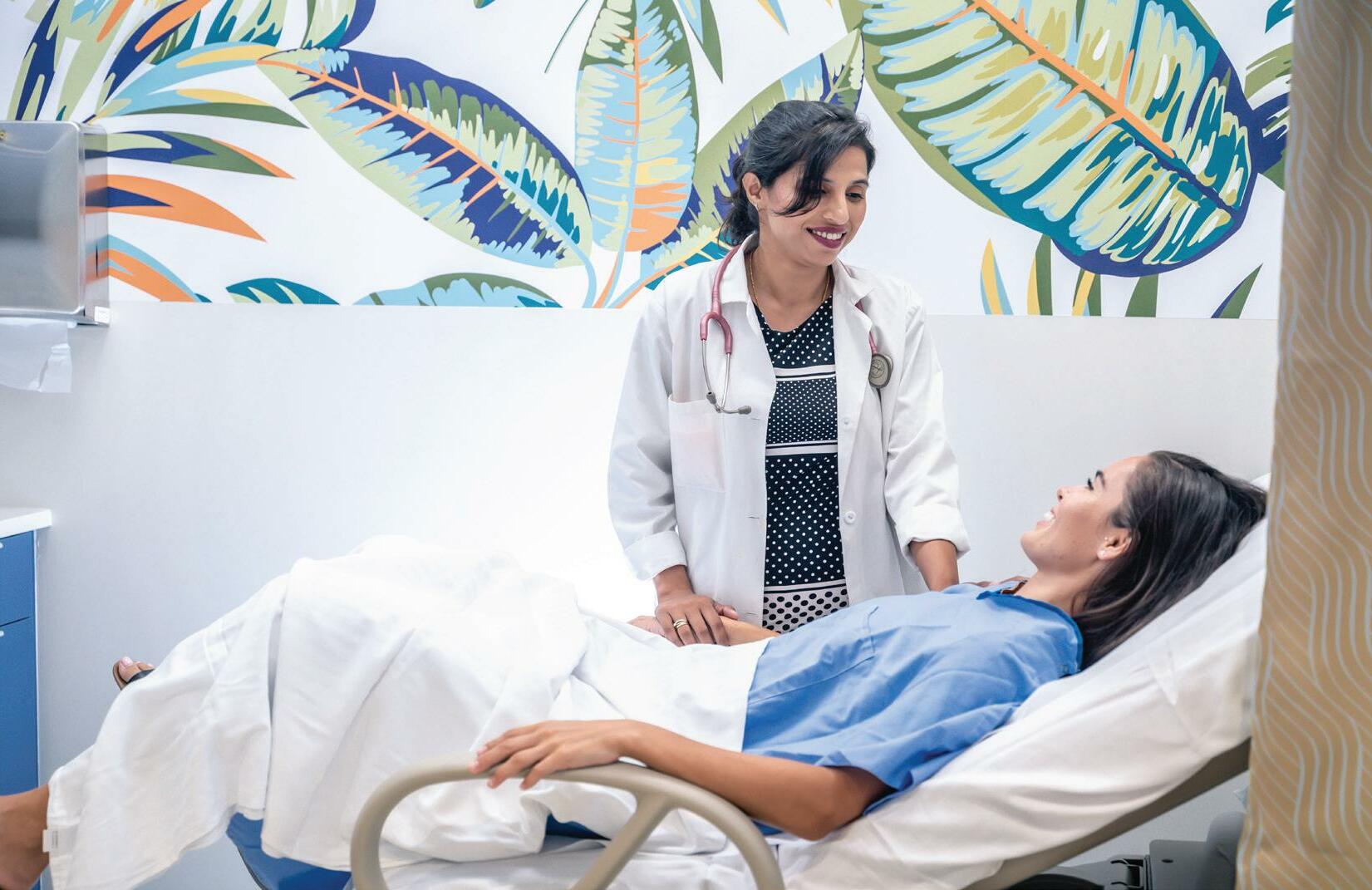

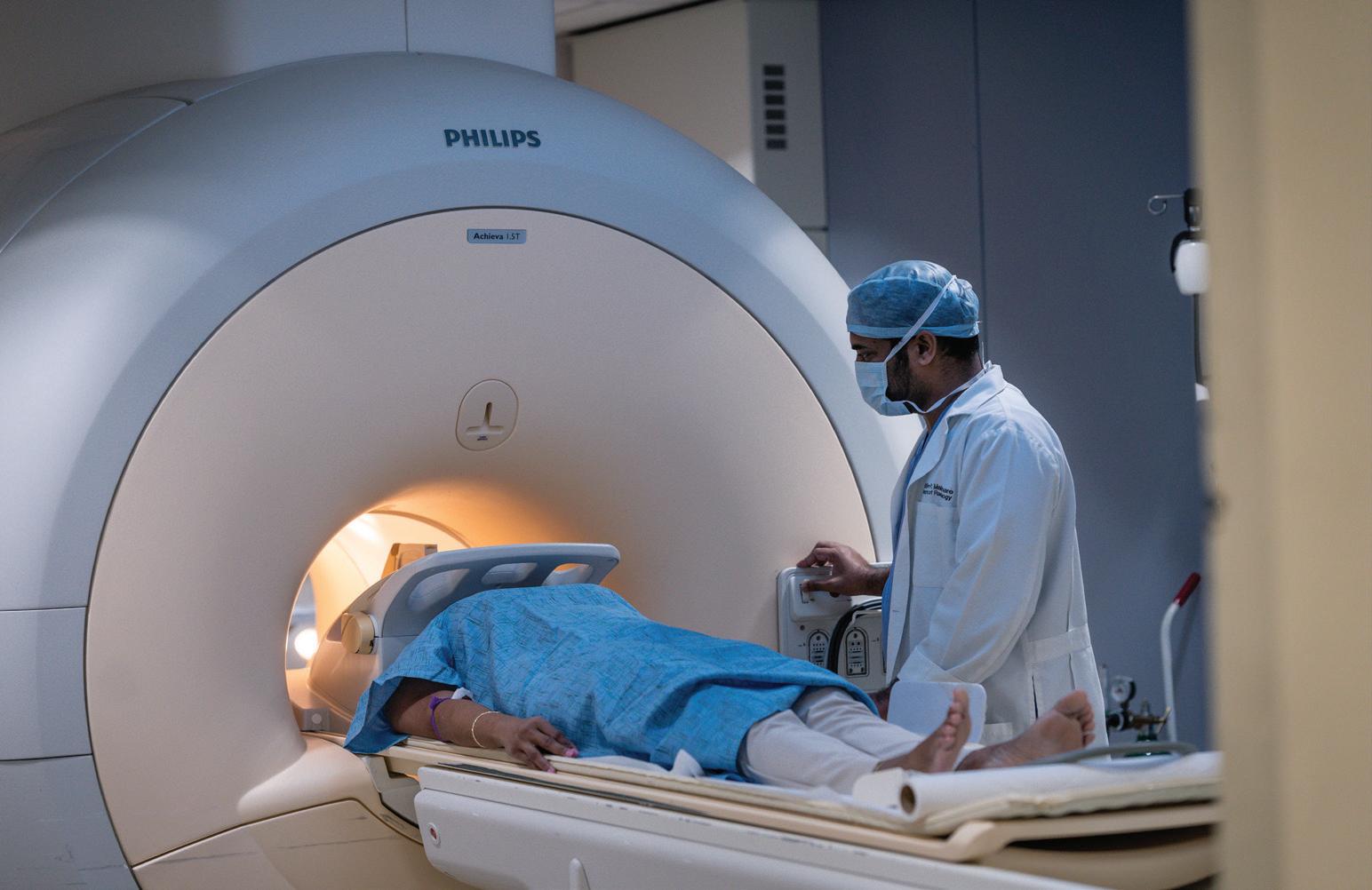
For your immediate needs, visit our clinic at 9 Forum Lane, Camana Bay. Open extended hours for your convenience.



WWW.HEALTHCITY.KYinfo@healthcity.ky | +1(345) 640 4040

LIVING.KY PROVIDES GRAND CAYMAN WITH A PERSONALLY-CURATED COLLECTION OF CLASSIC TO CONTEMPORARY FURNITURE—AT AFFORDABLE PRICES—FOR EVERY ROOM IN YOUR HOME. LIVING.KY WWW.LIVING.KY • (345) 233-8700 24 PASADORA PLACE, SMITH ROAD, GEORGE TOWN, GRAND CAYMAN









































































































































































































































































































































































































































































































































































































































































































































